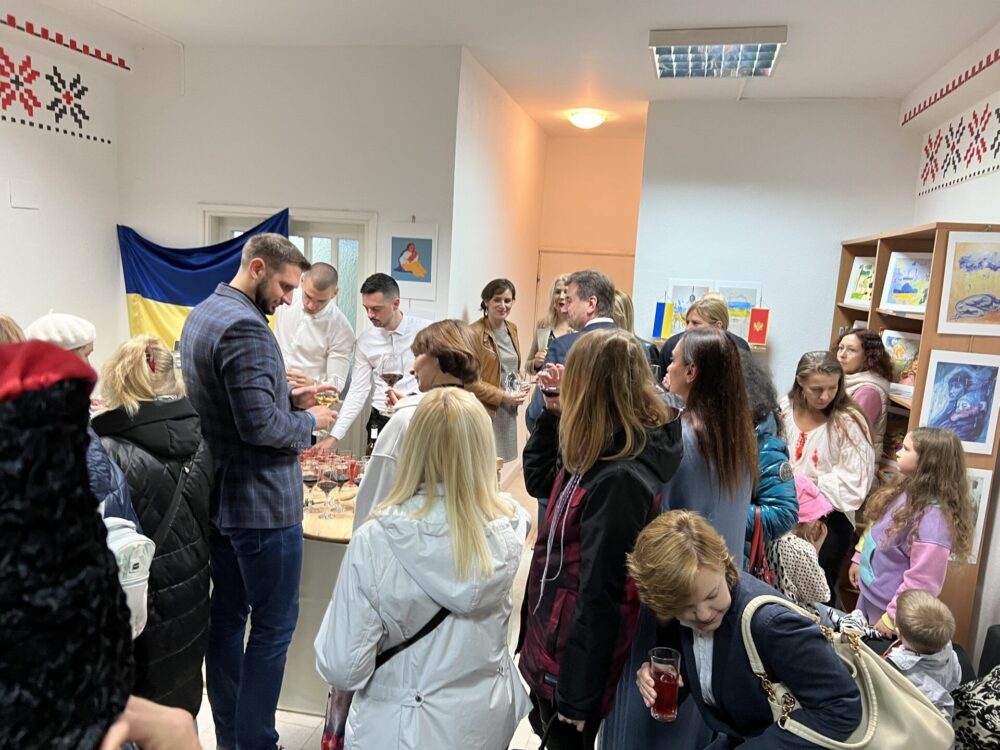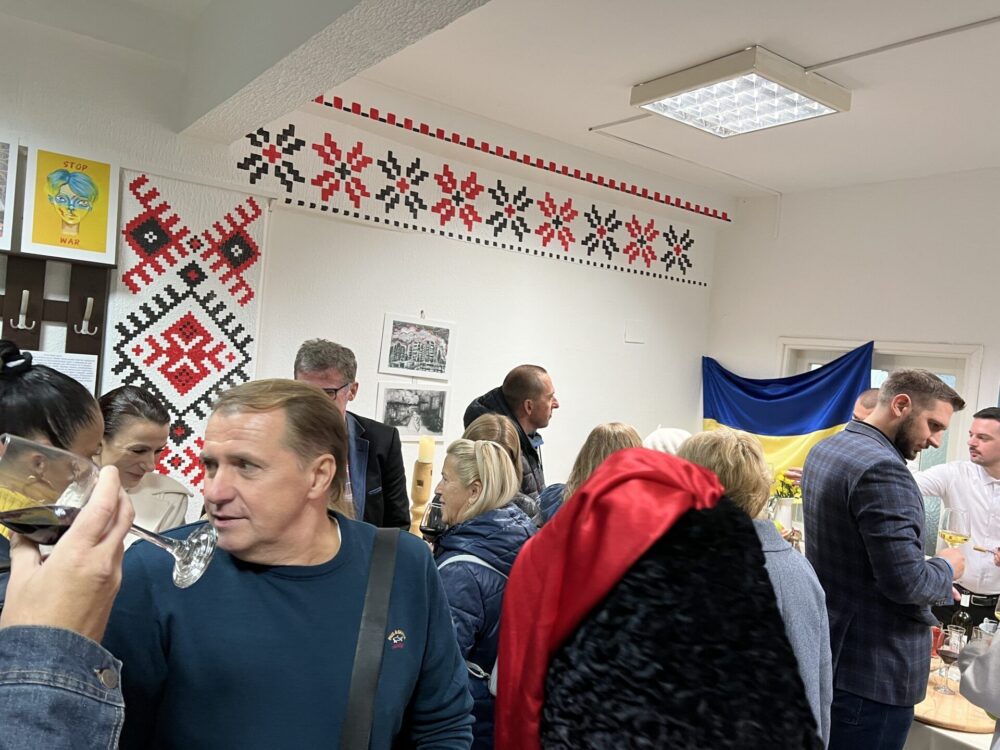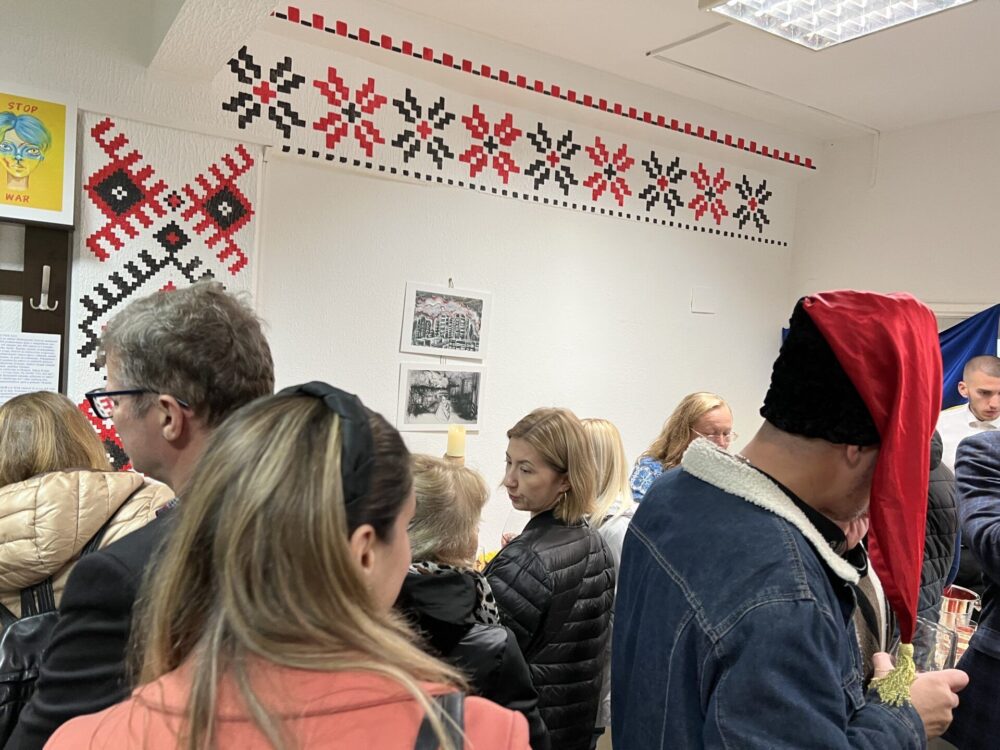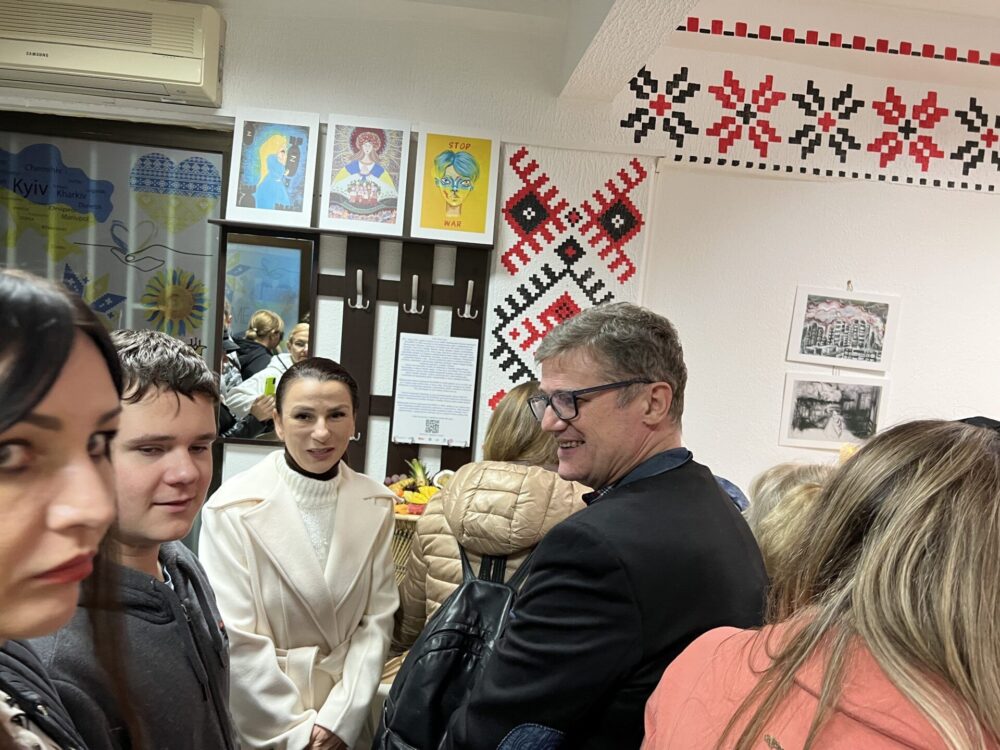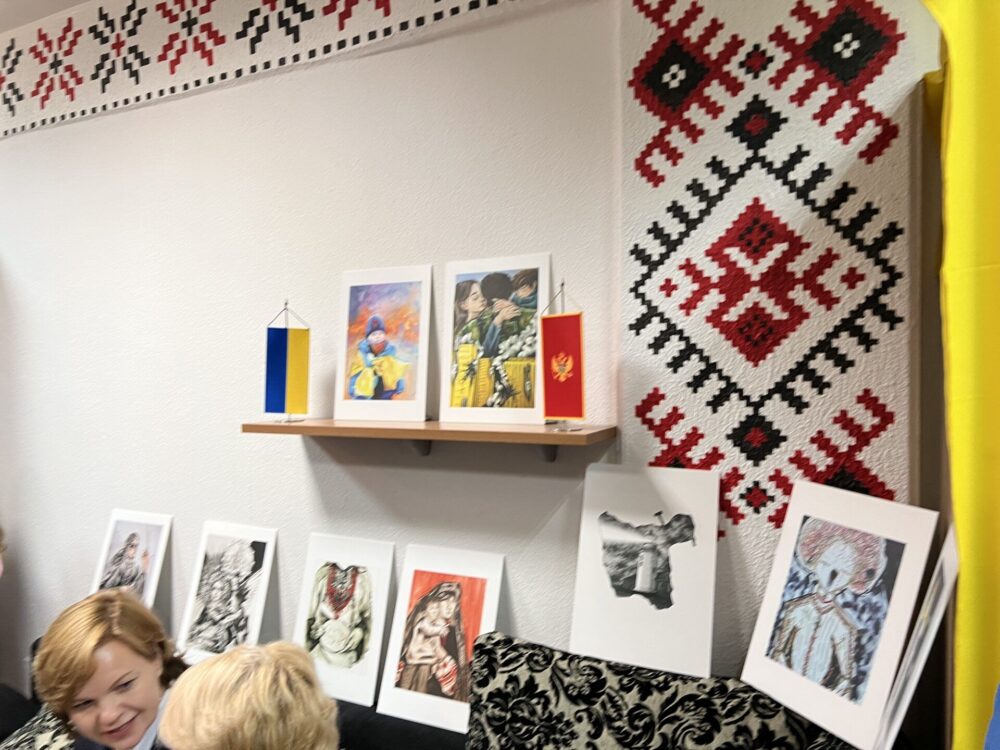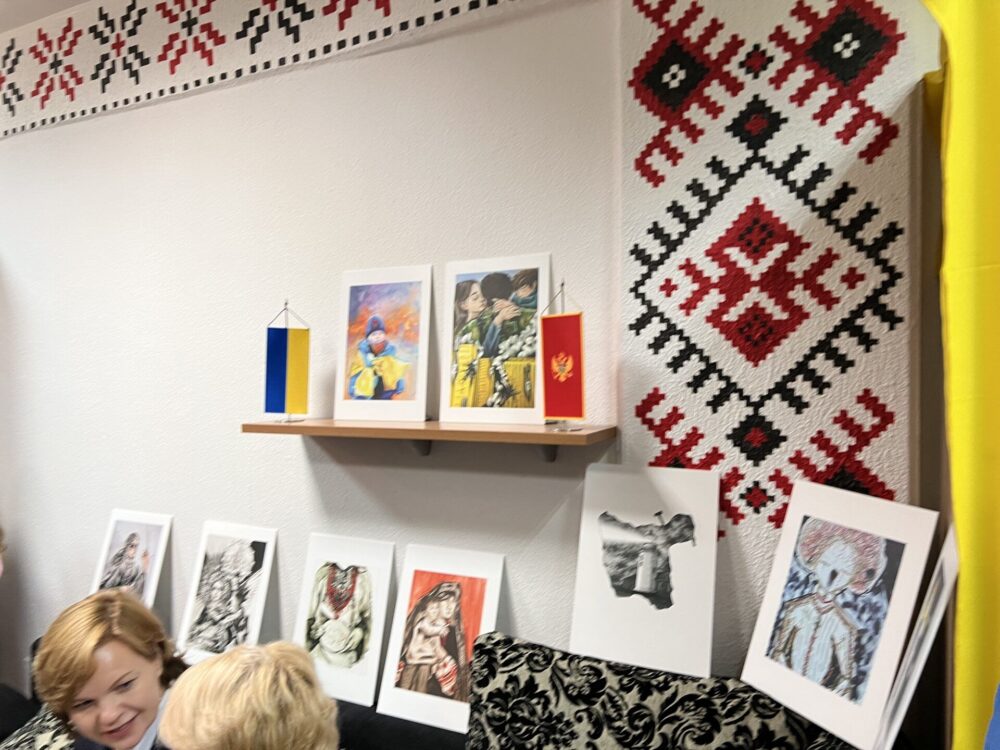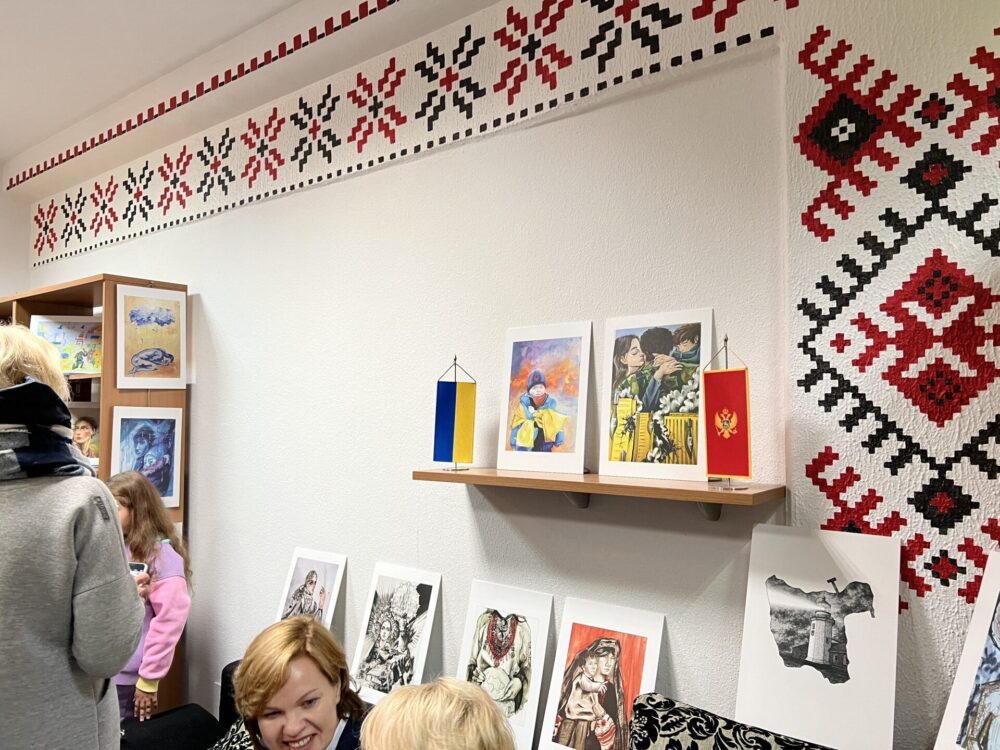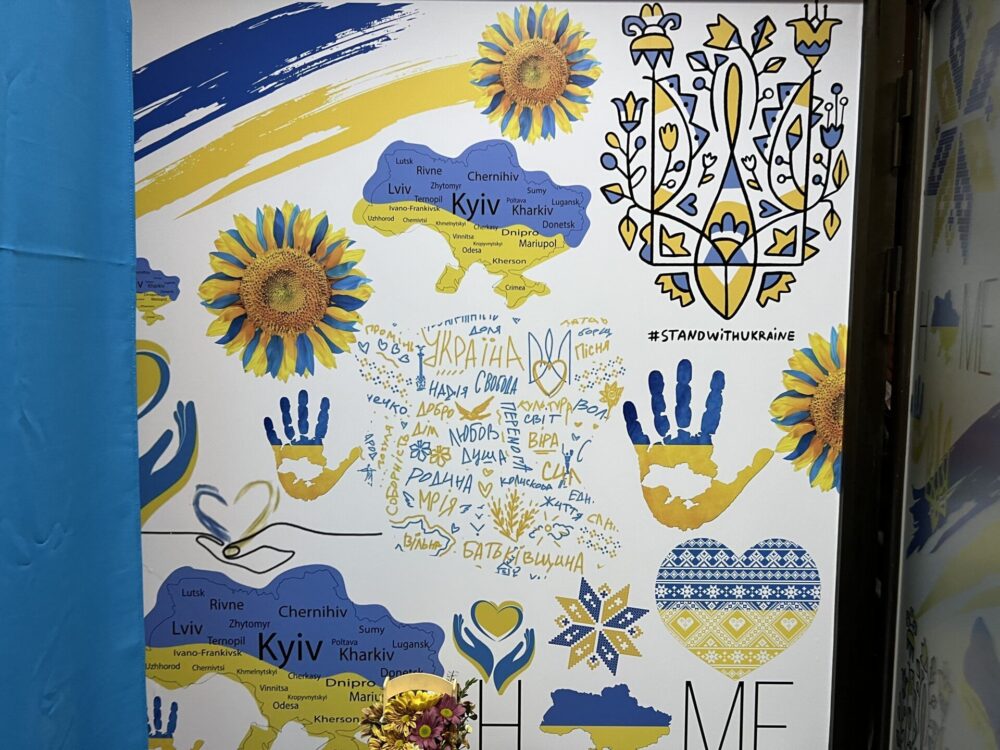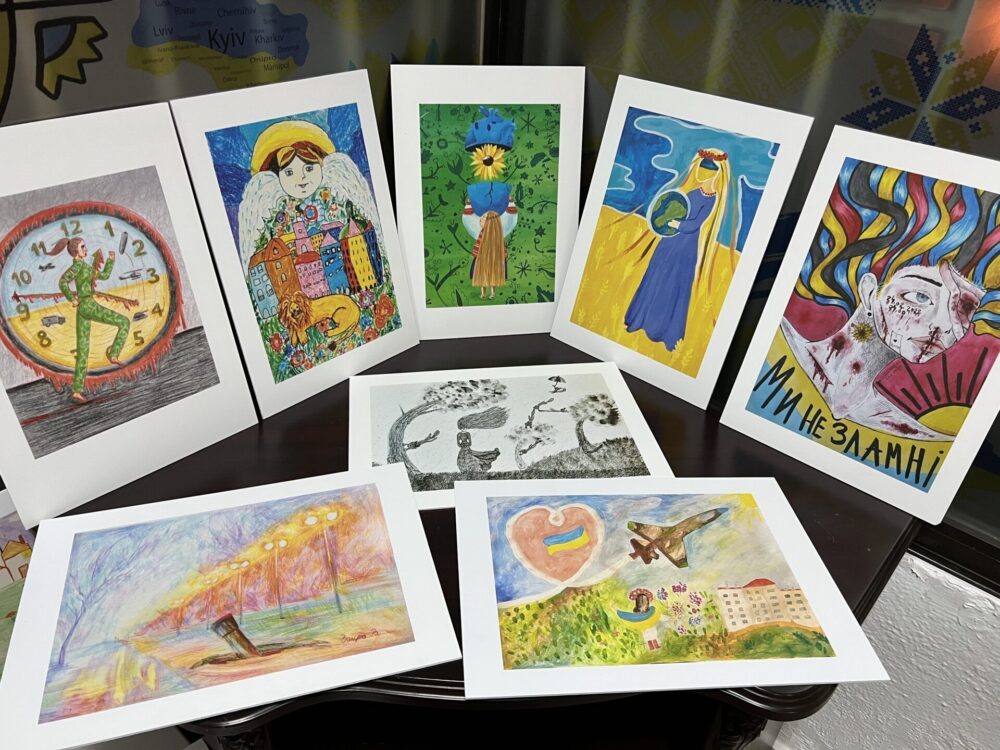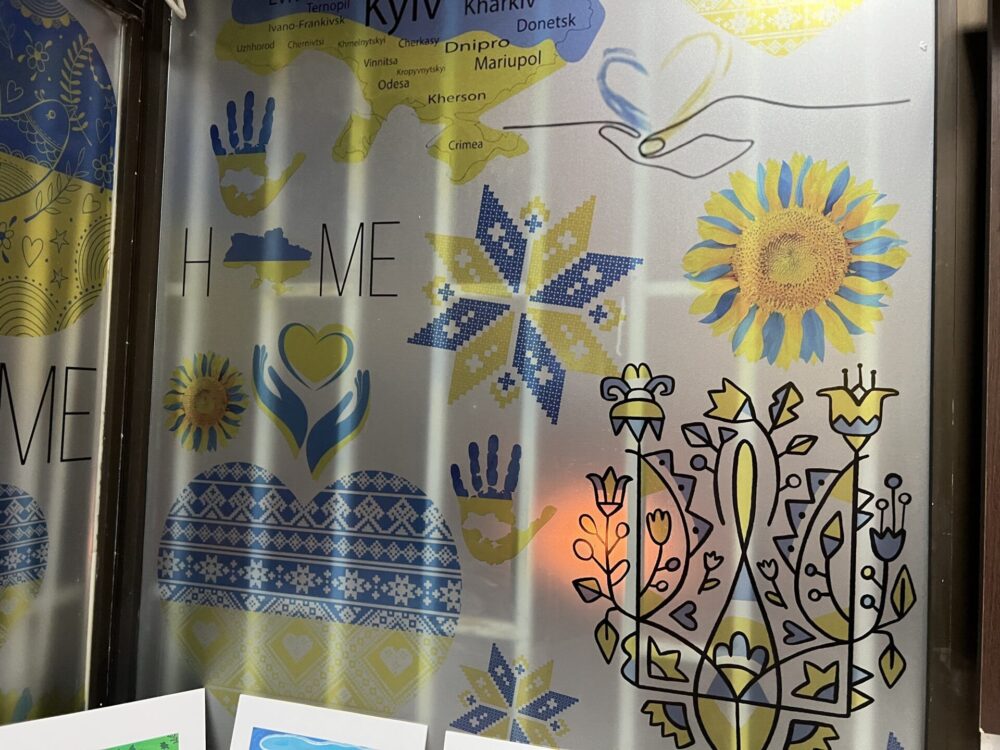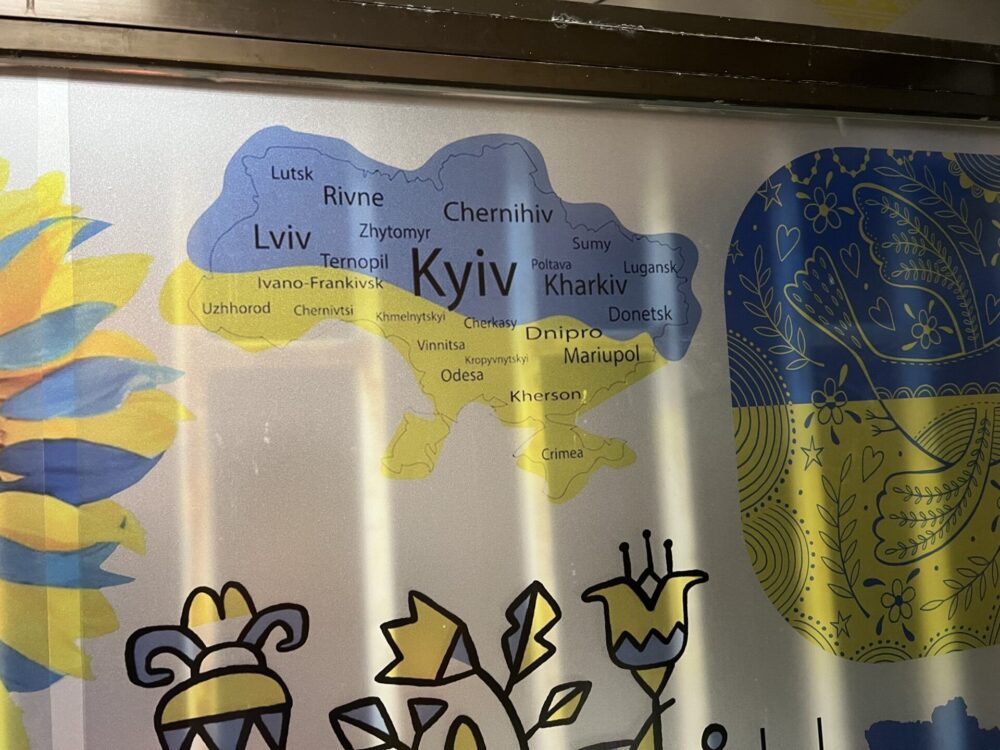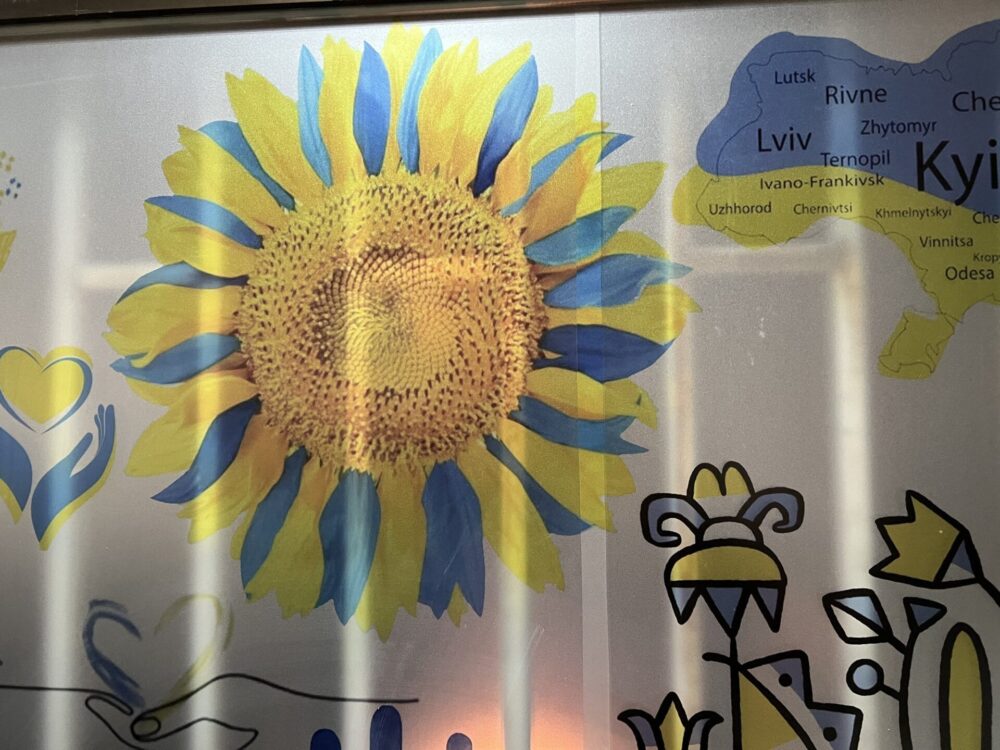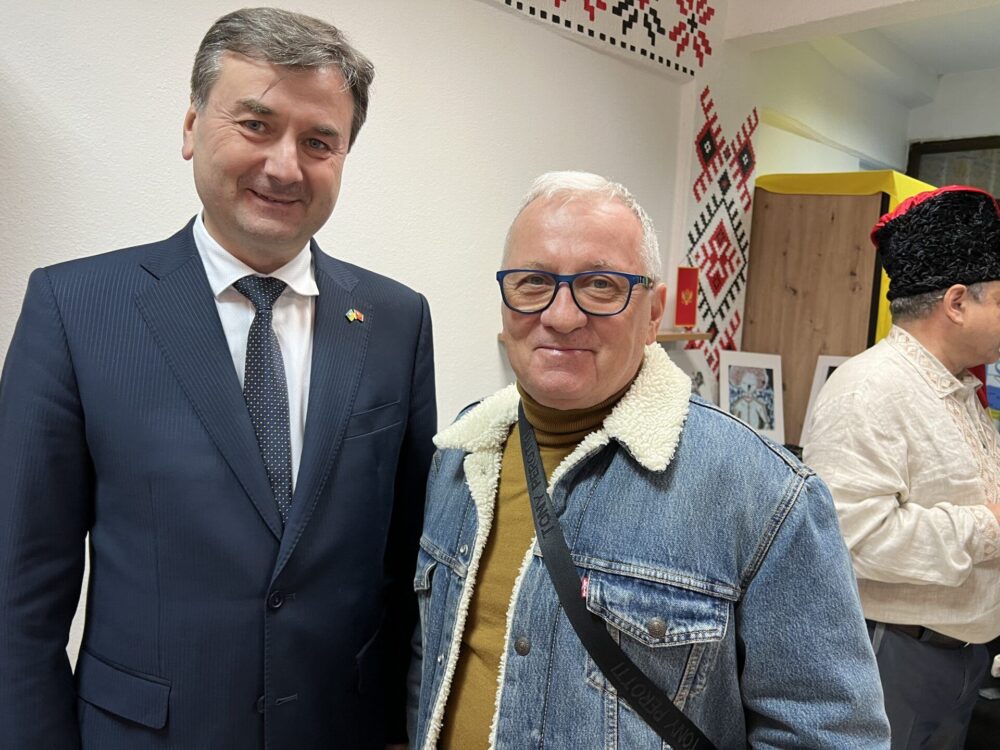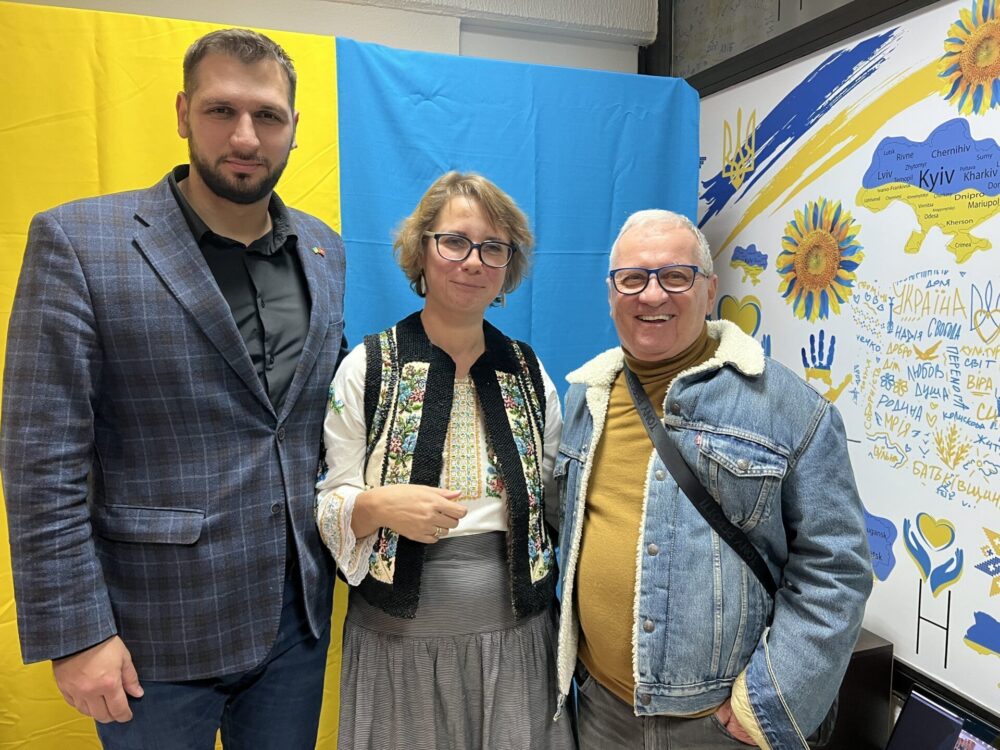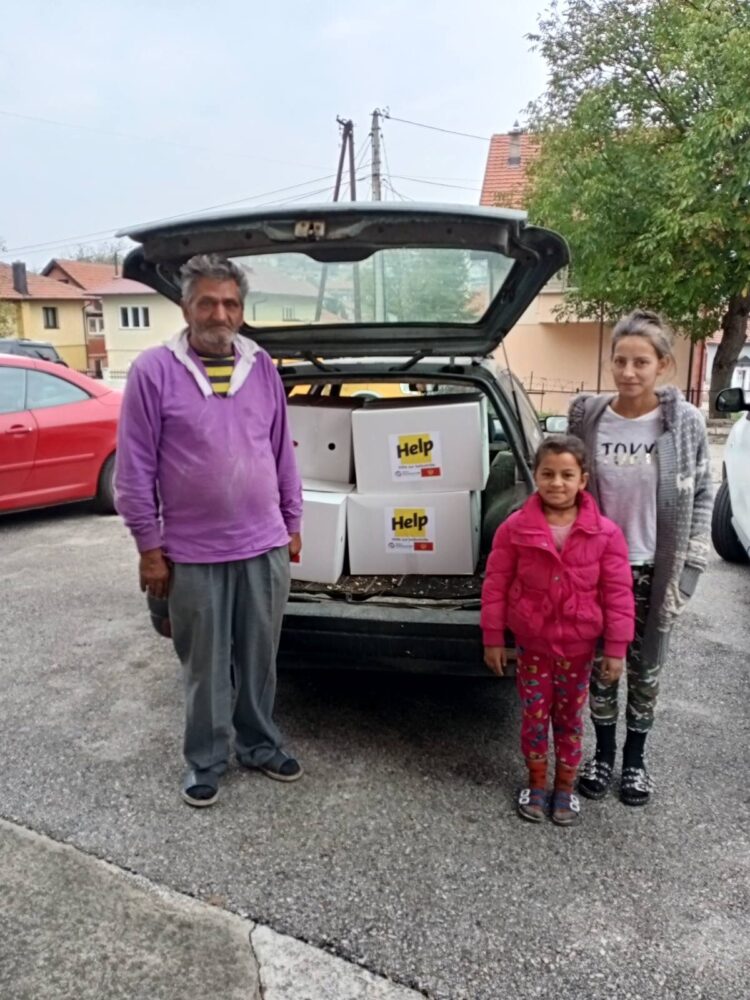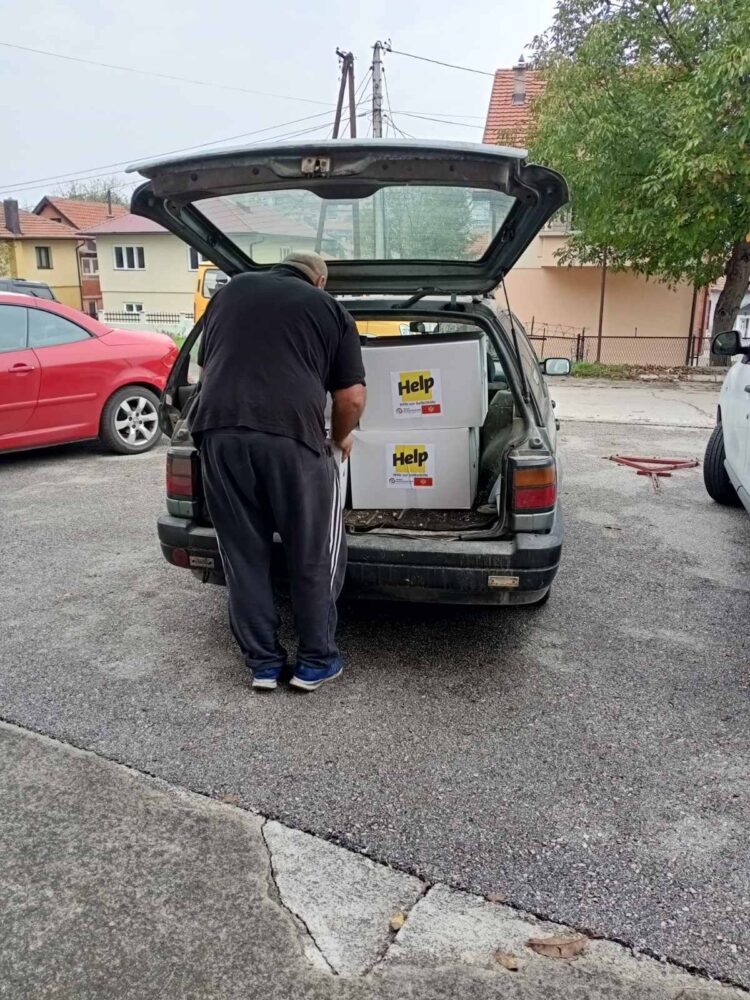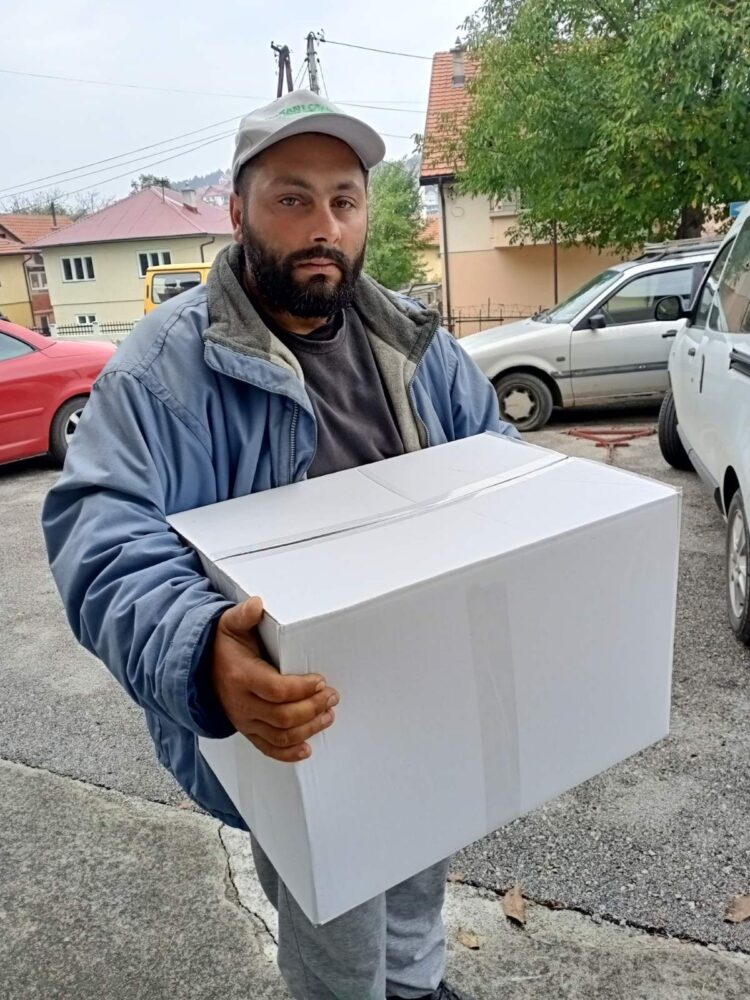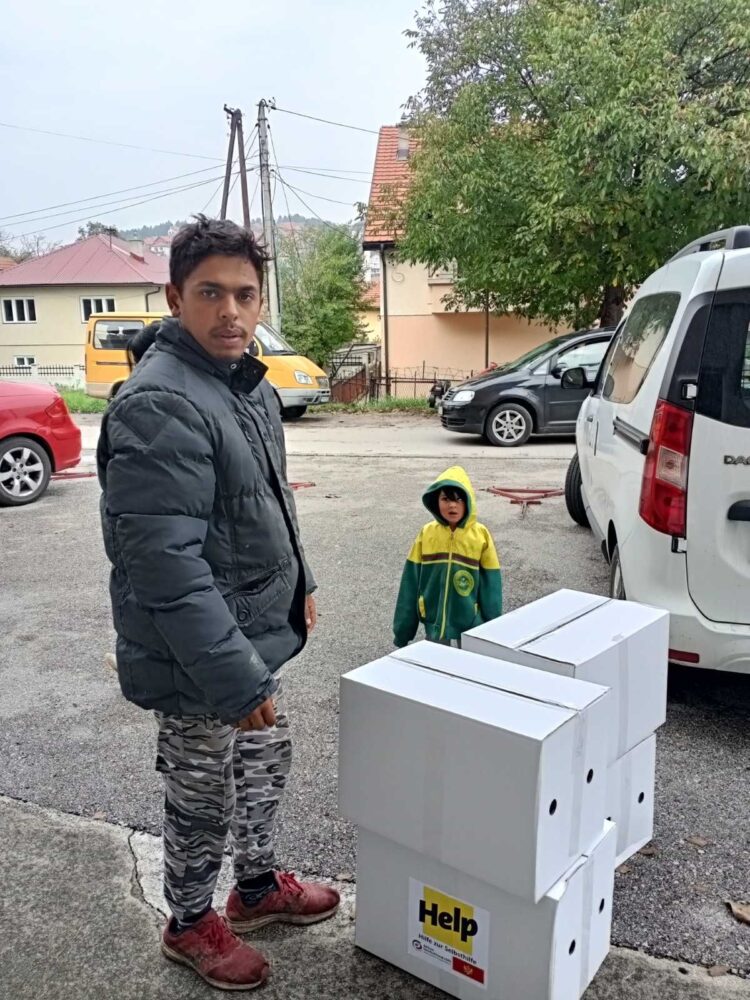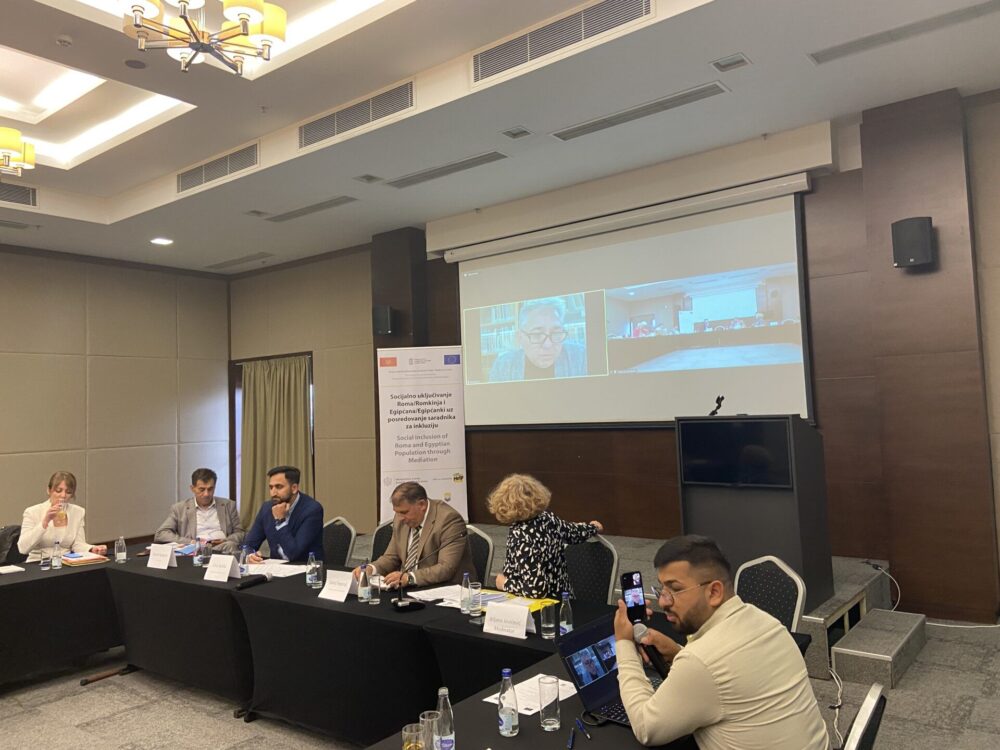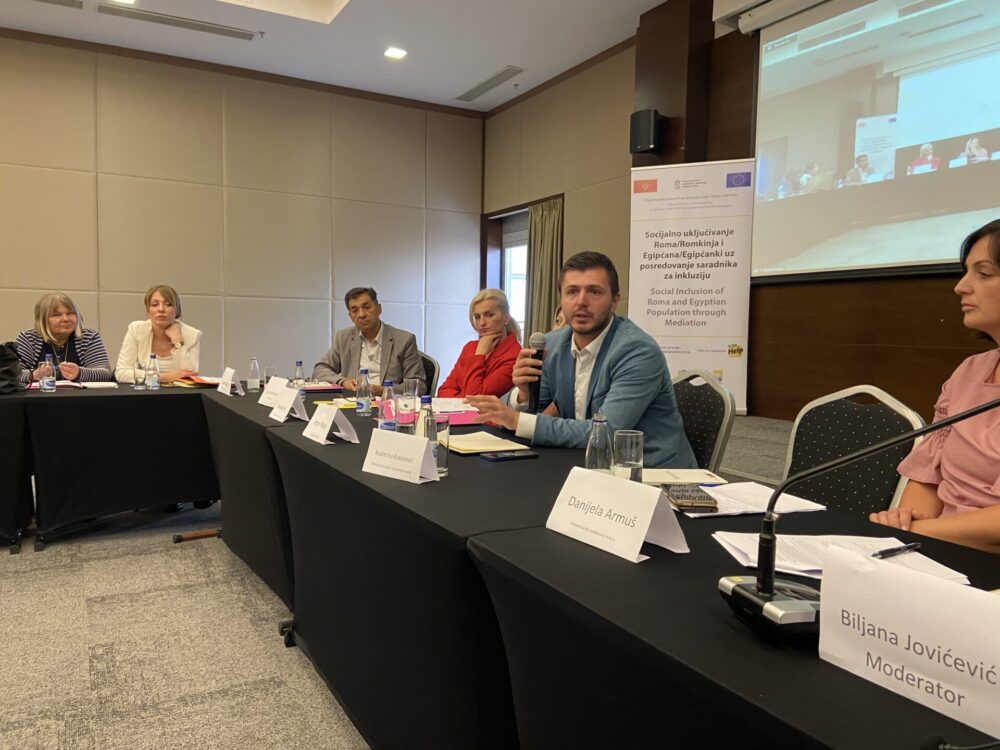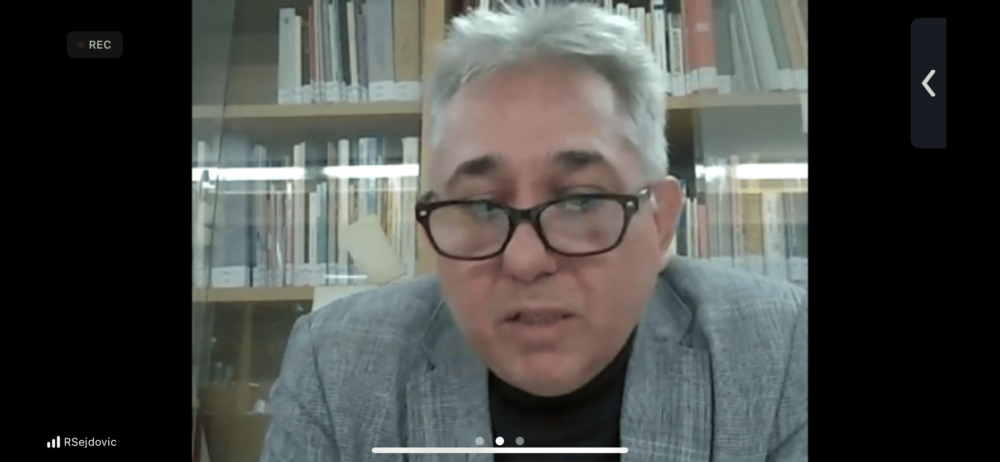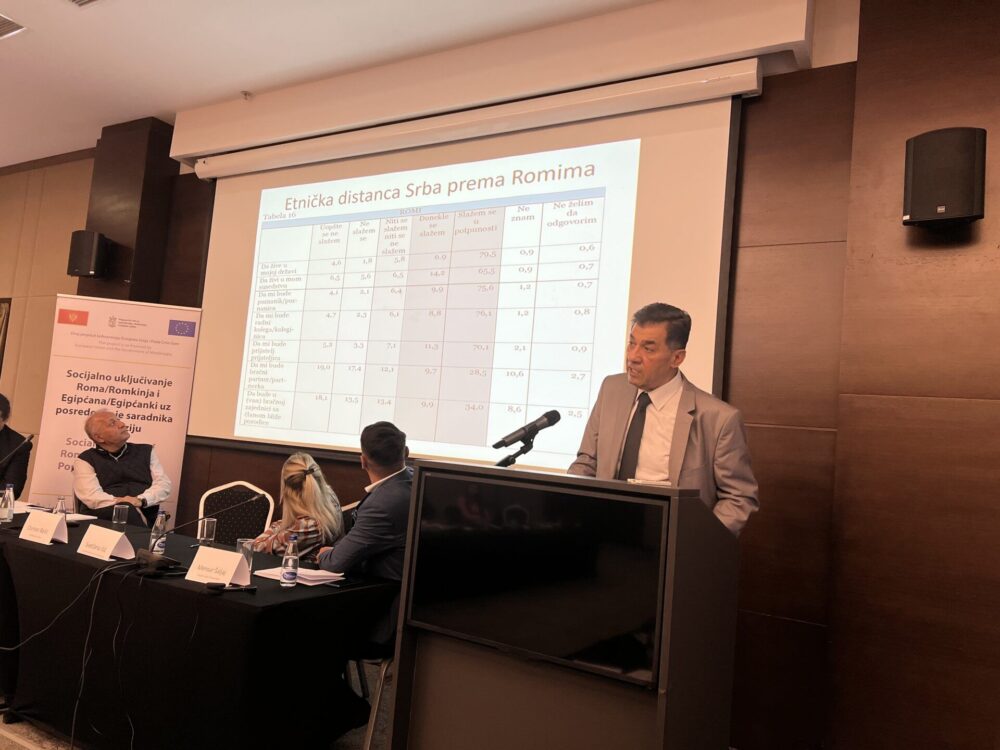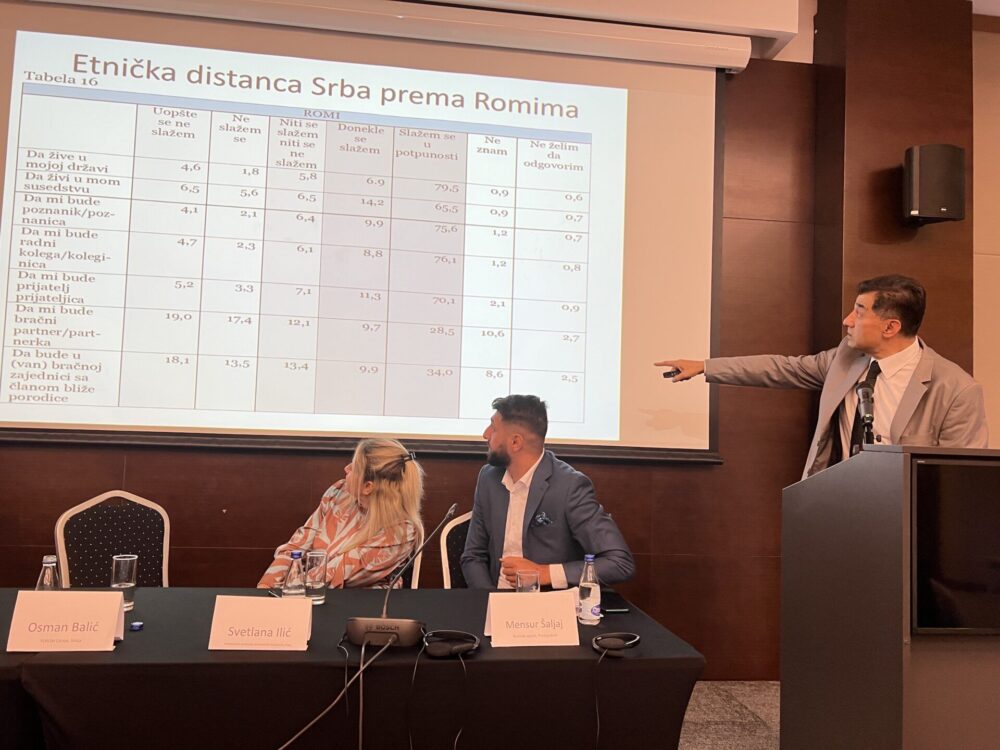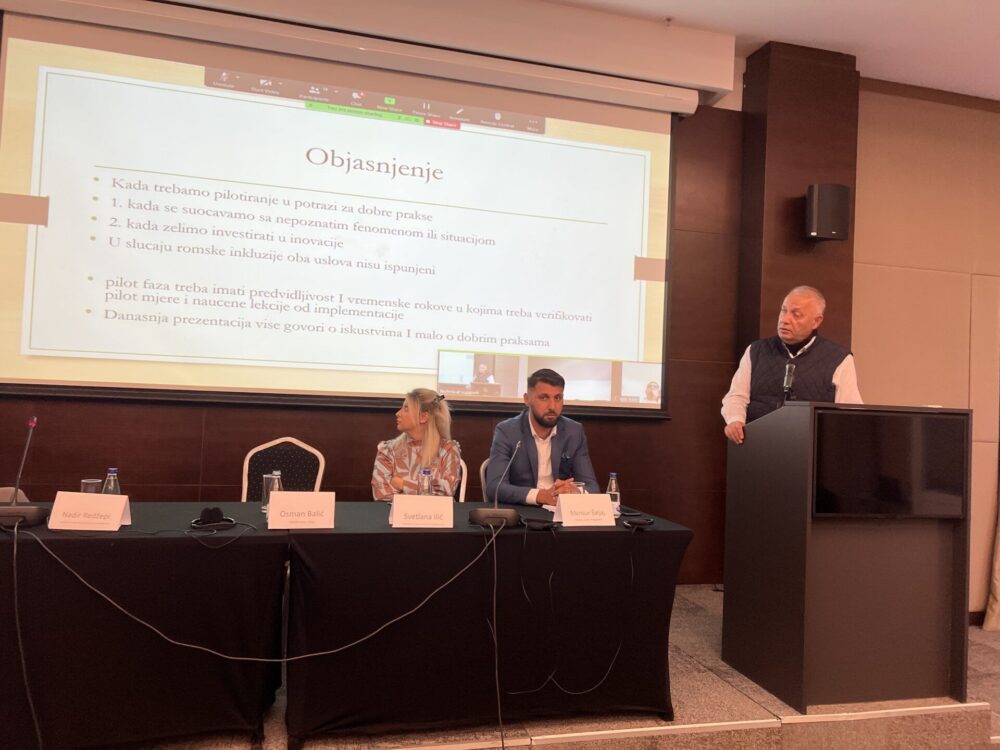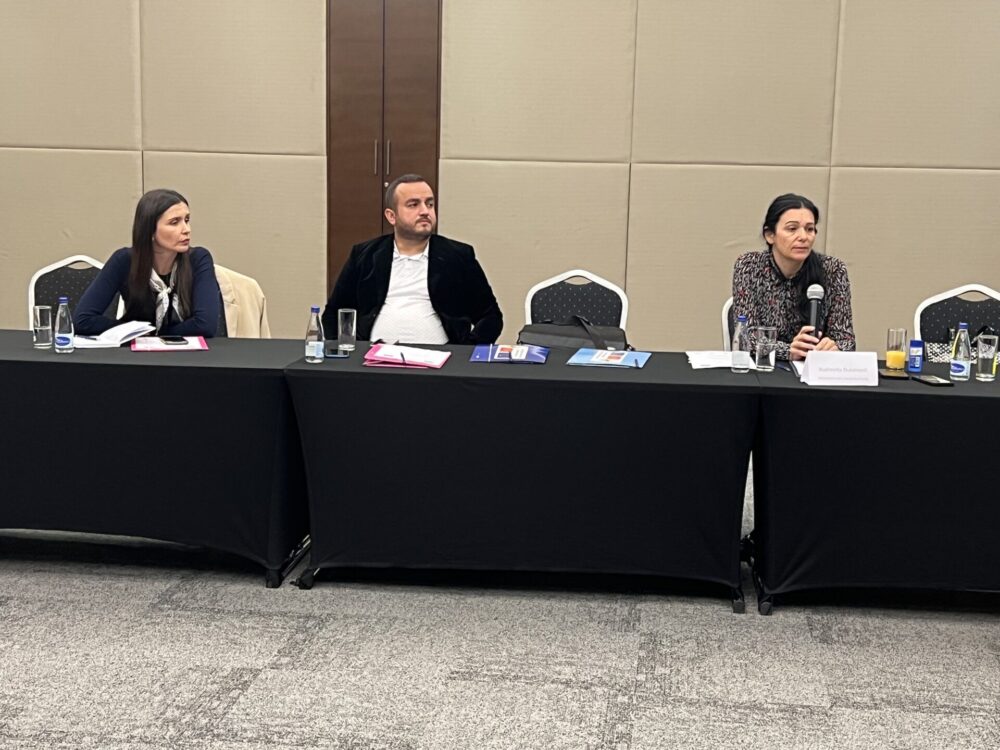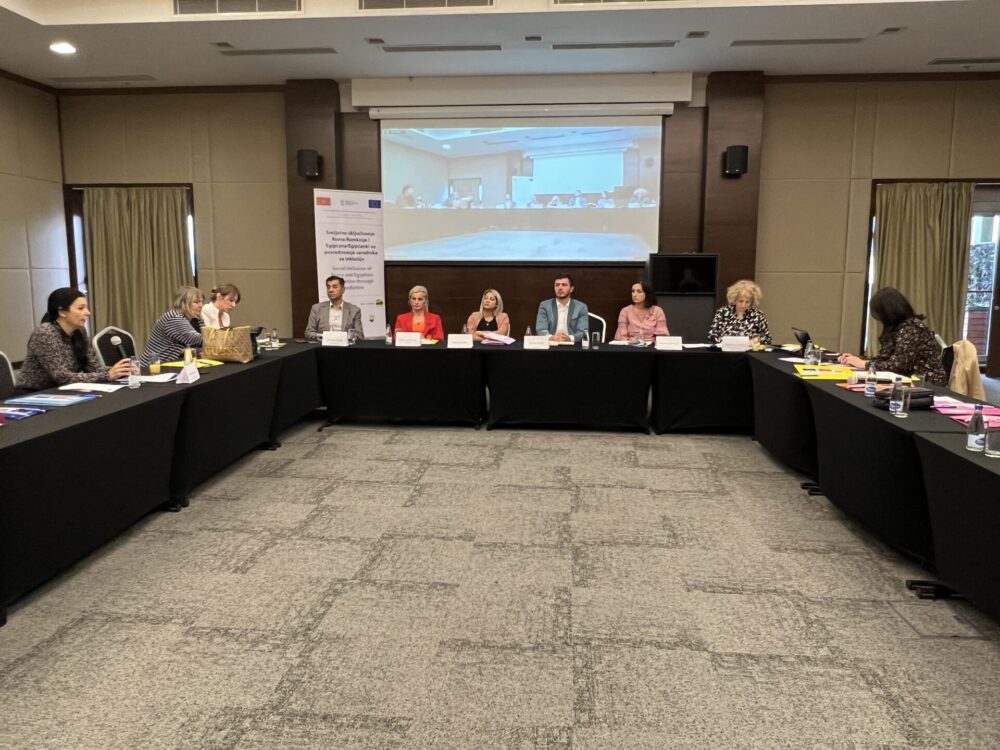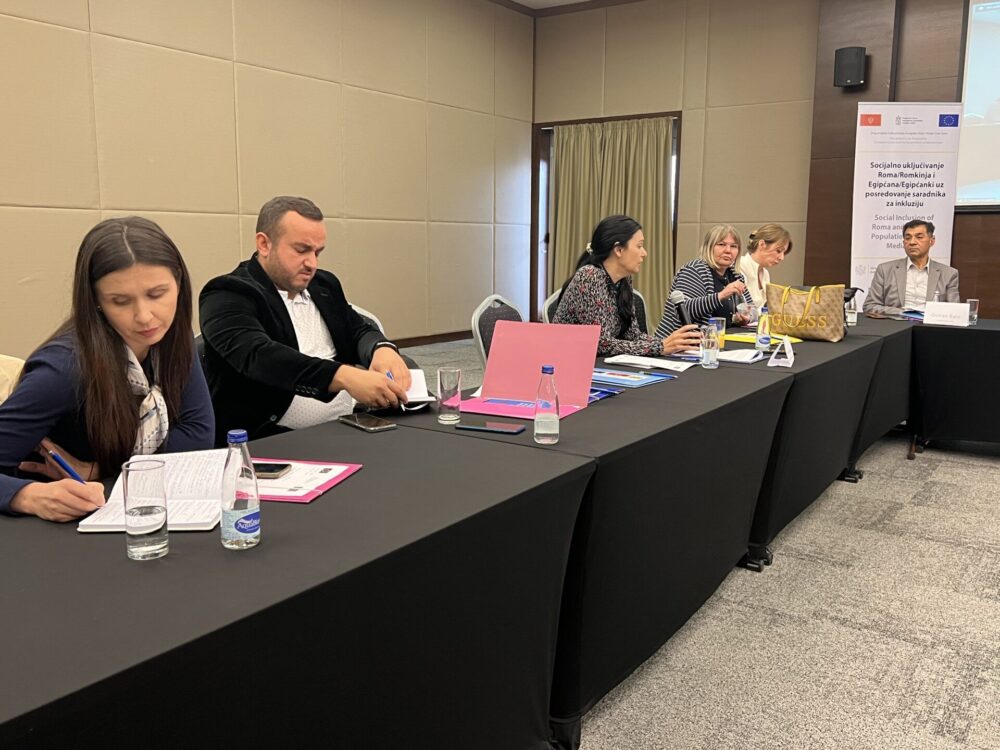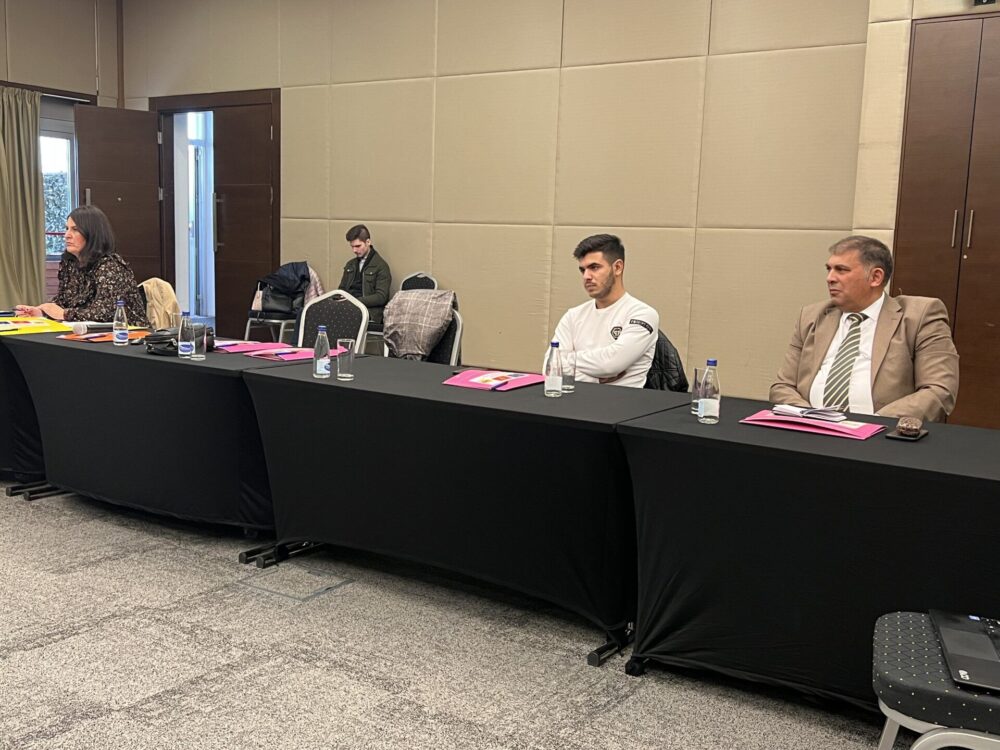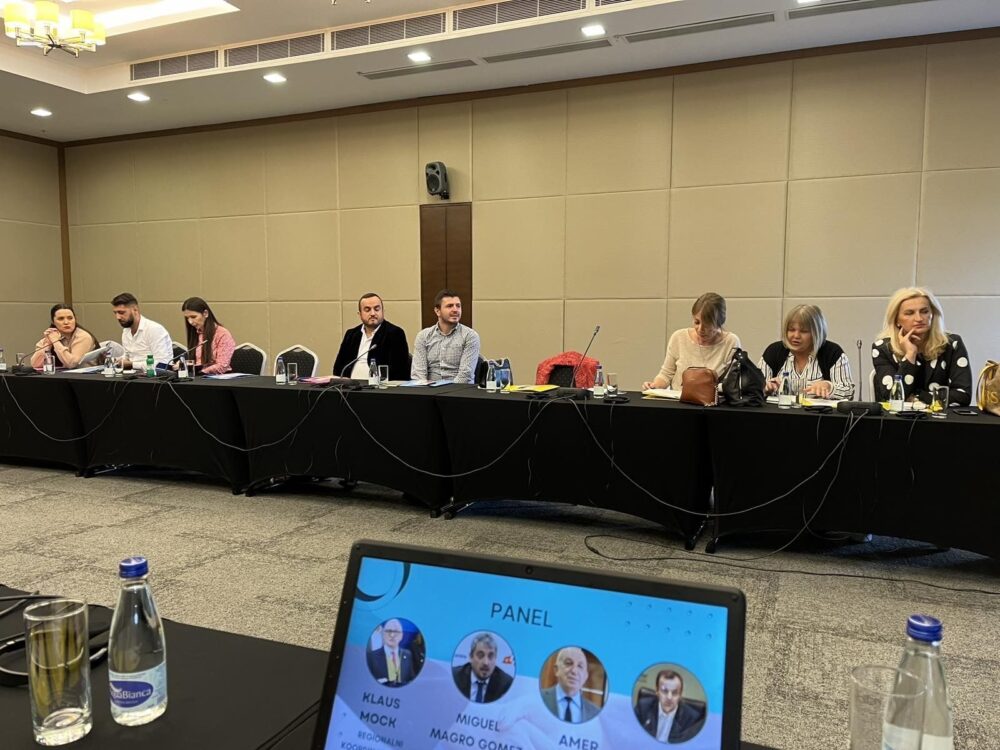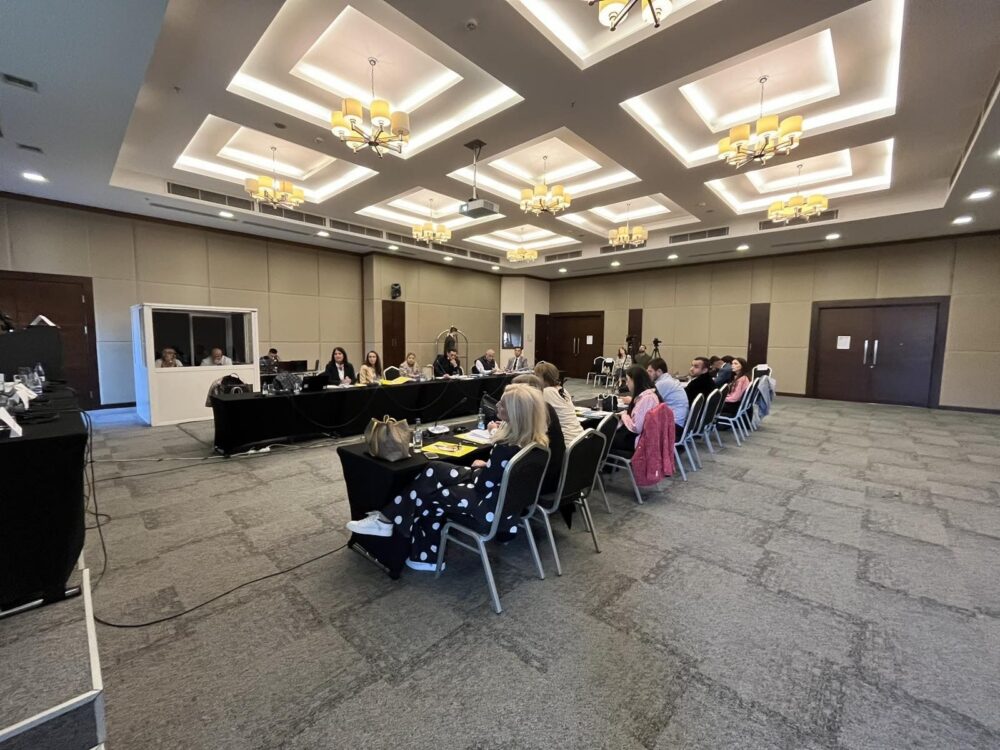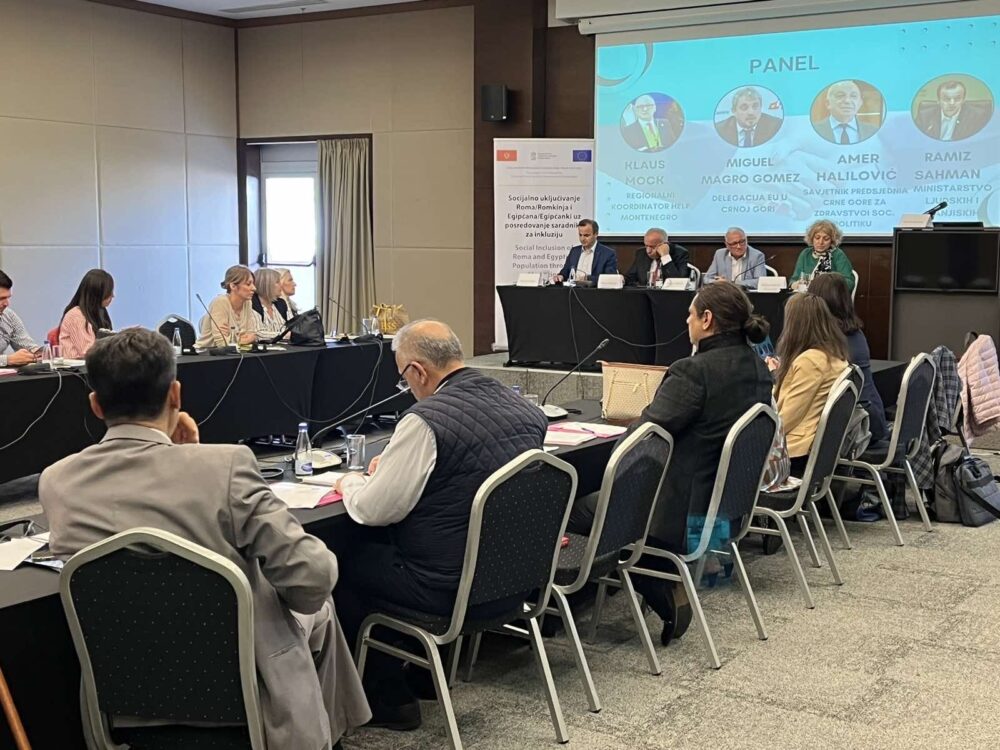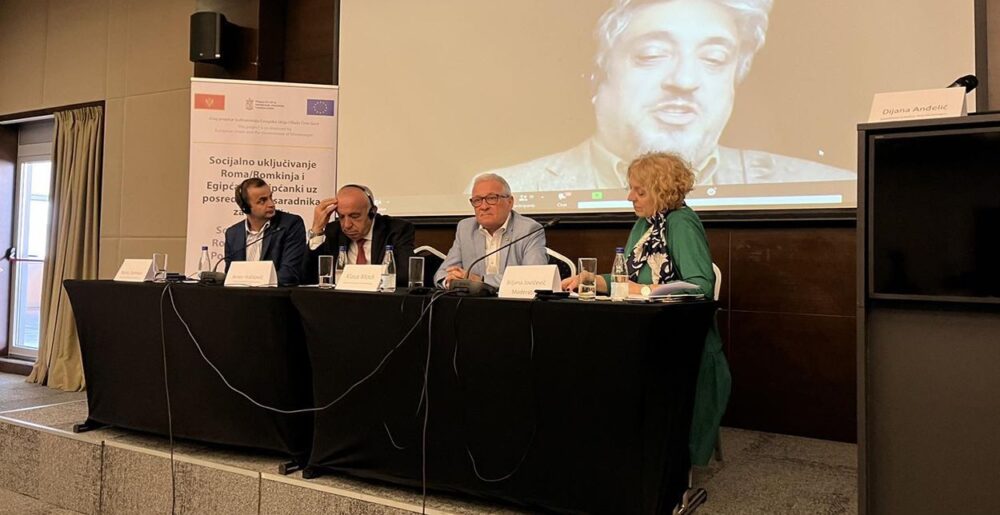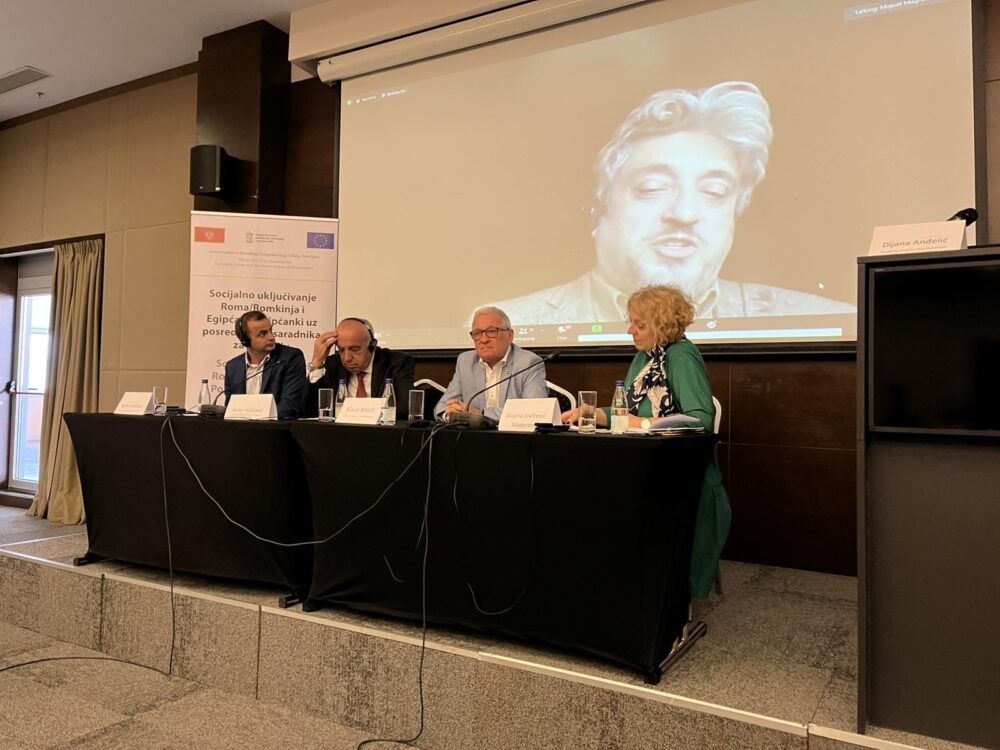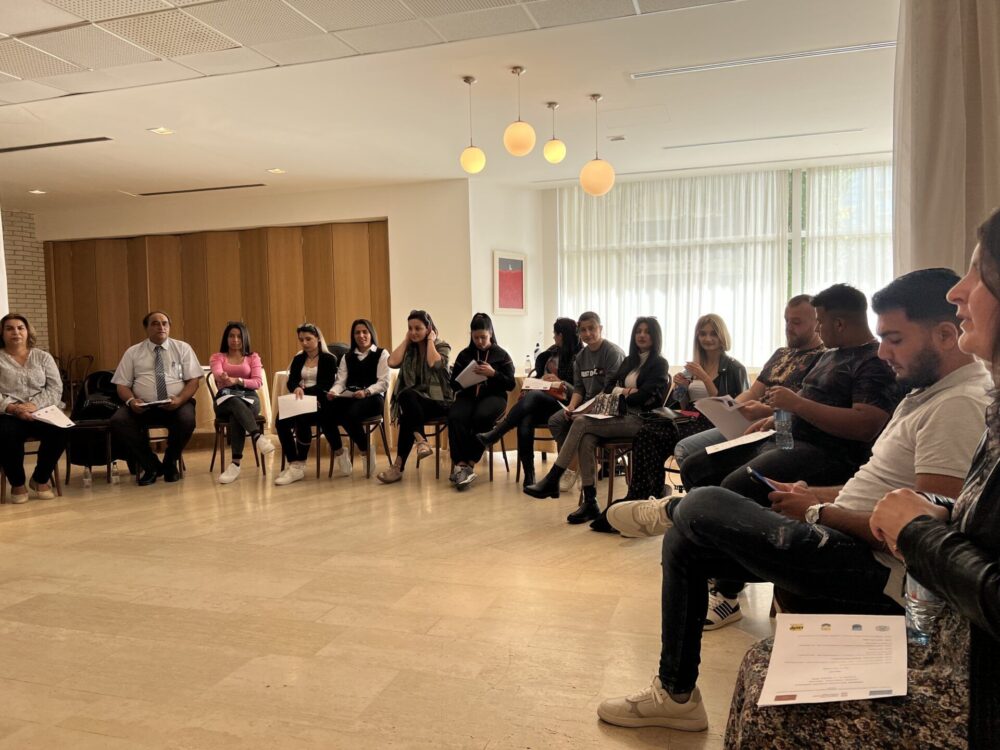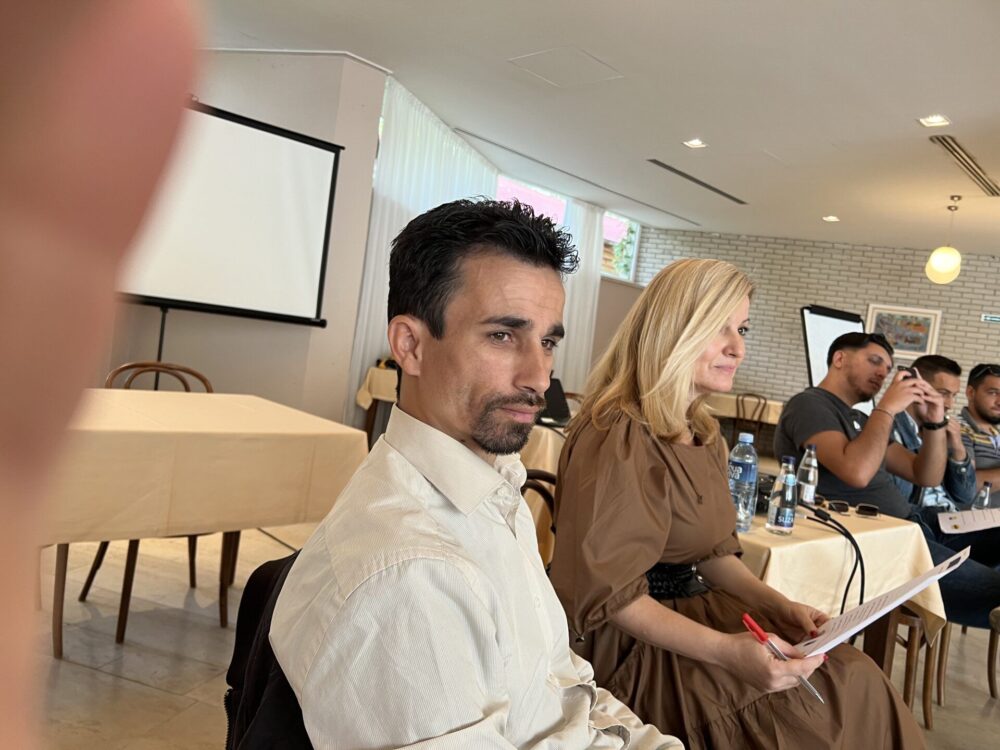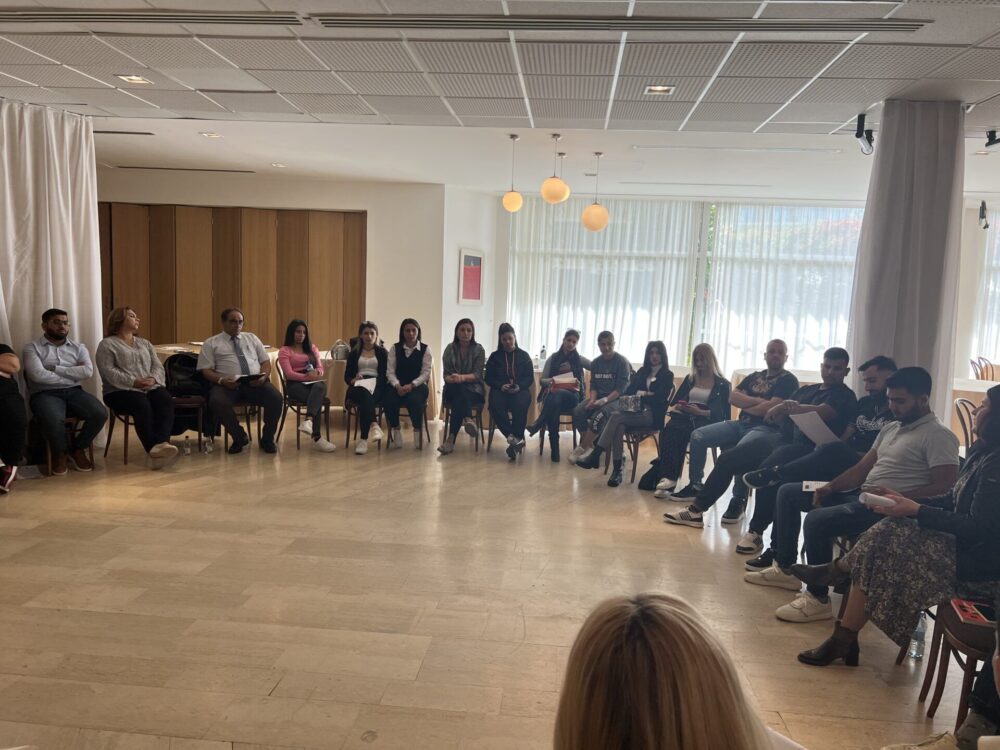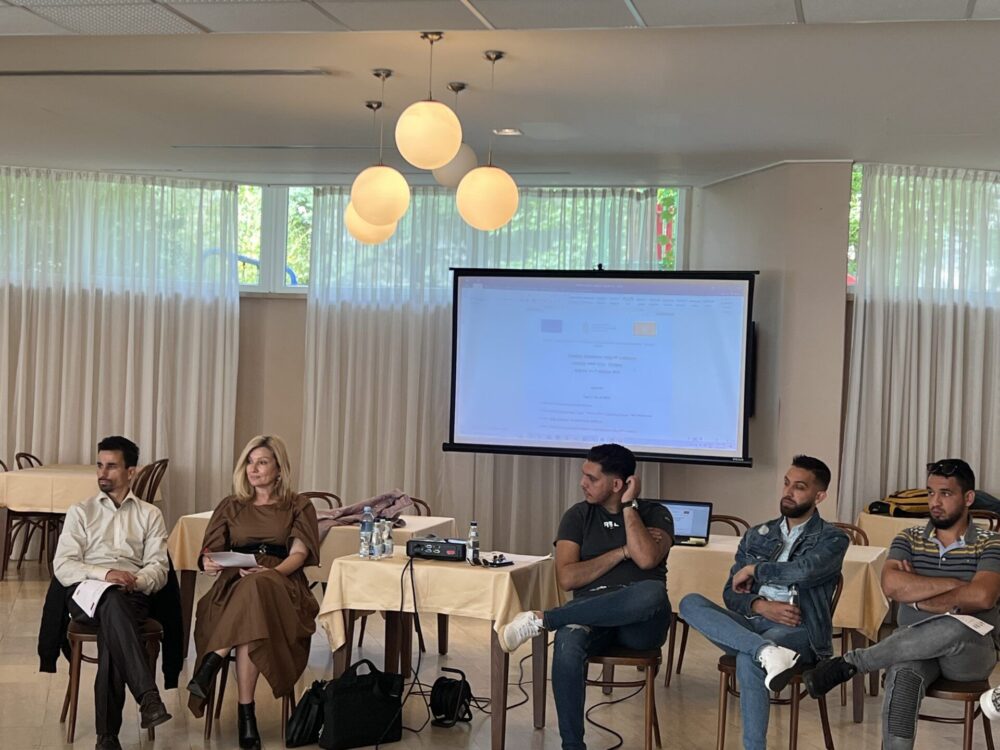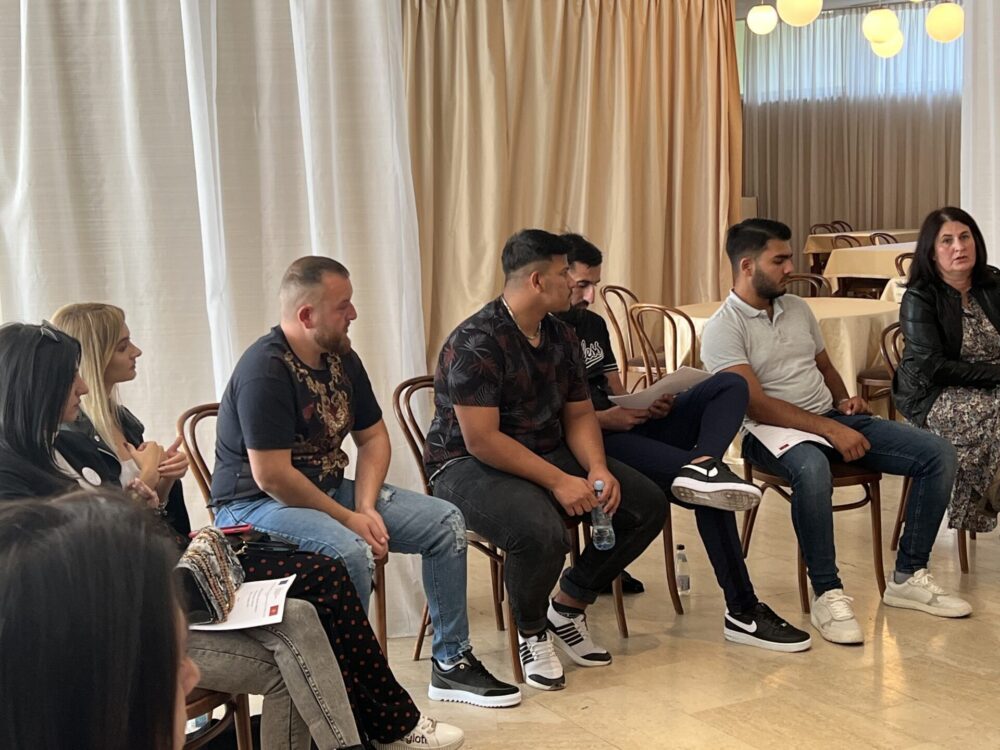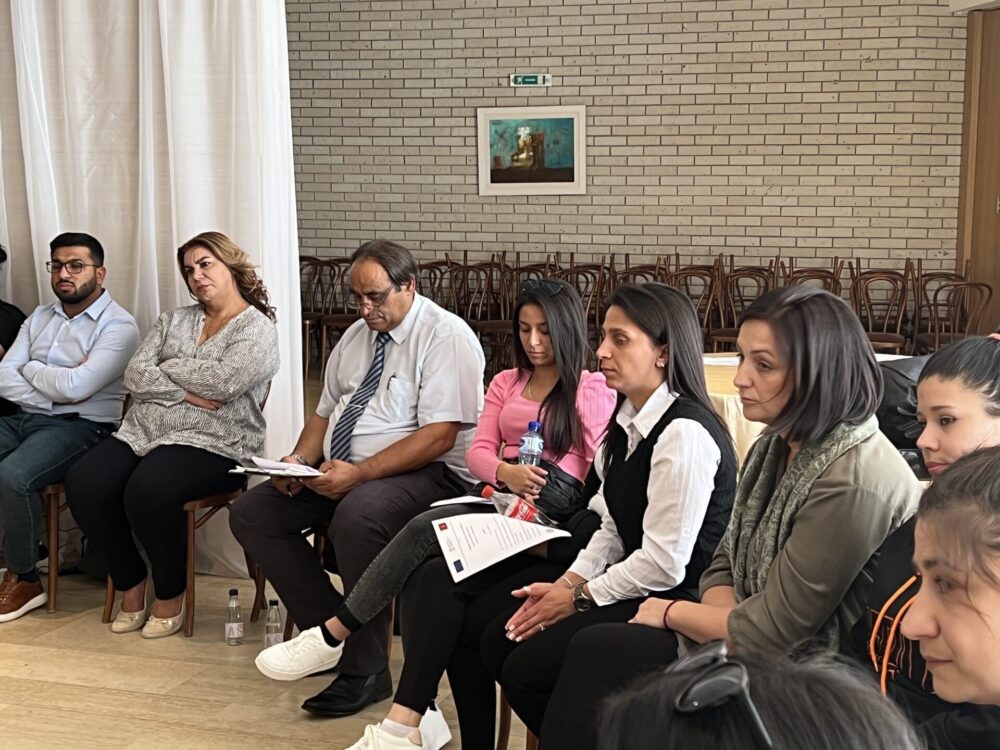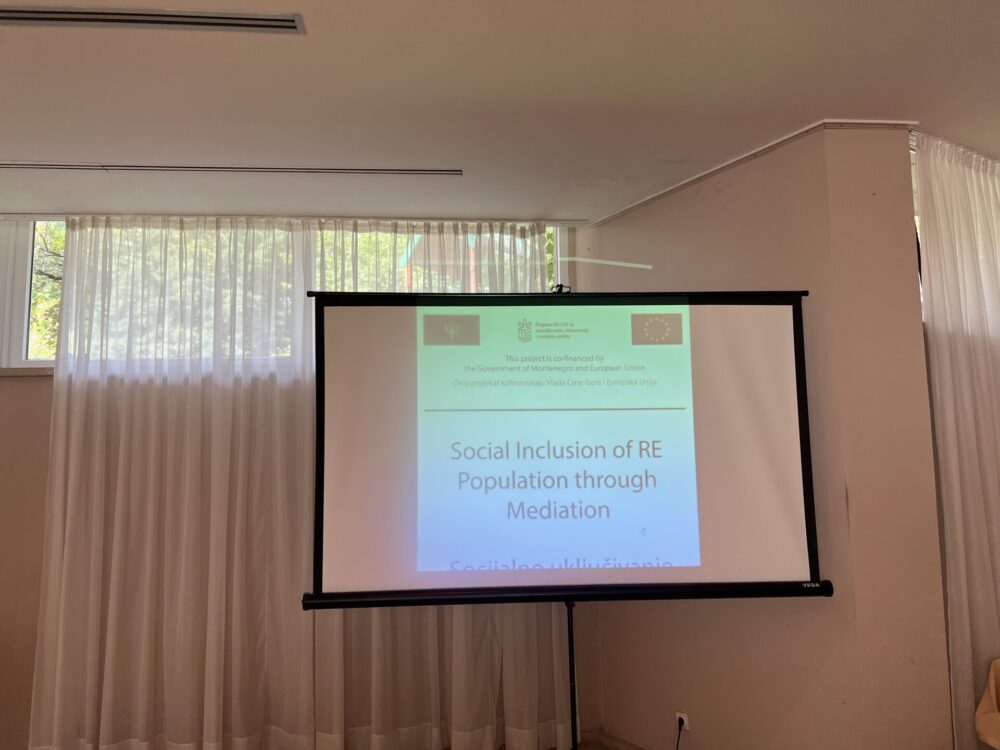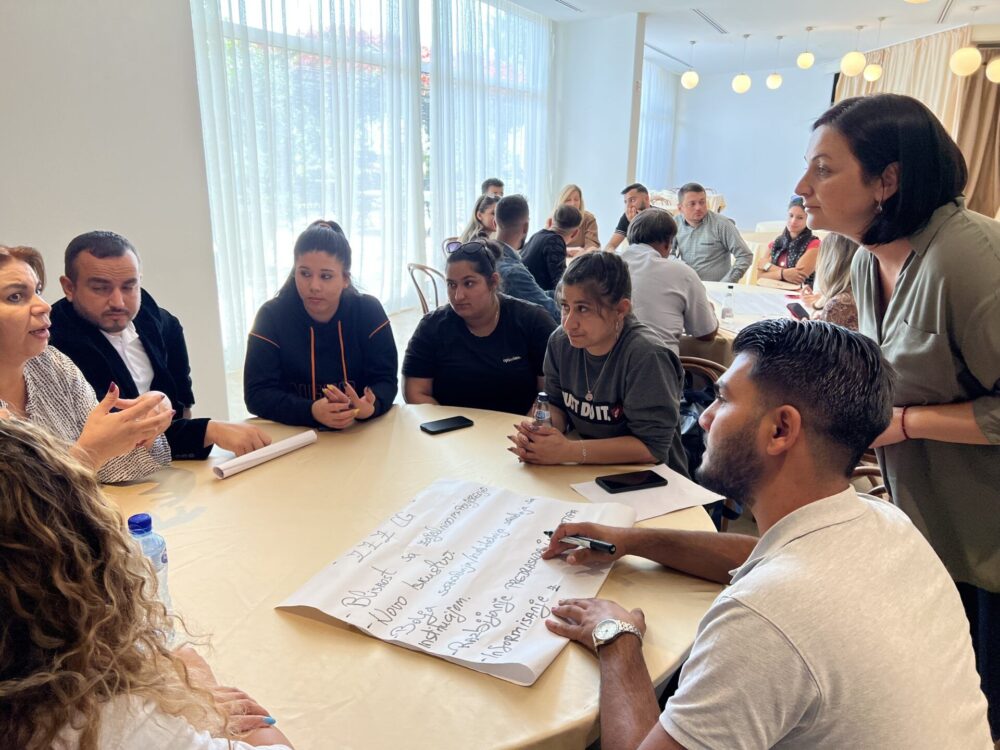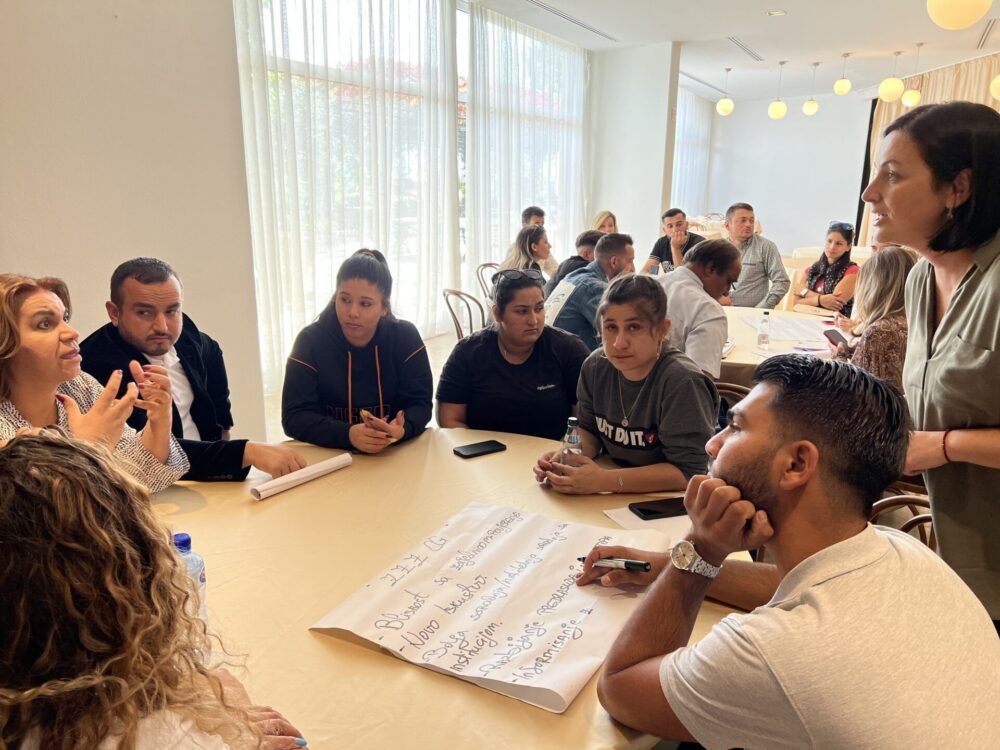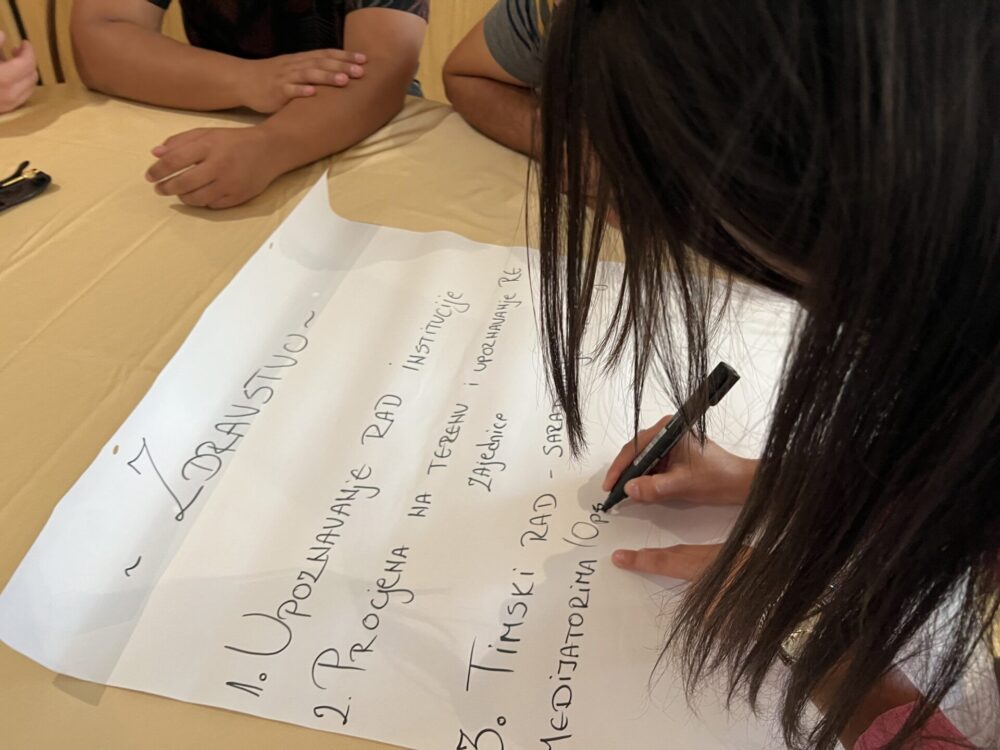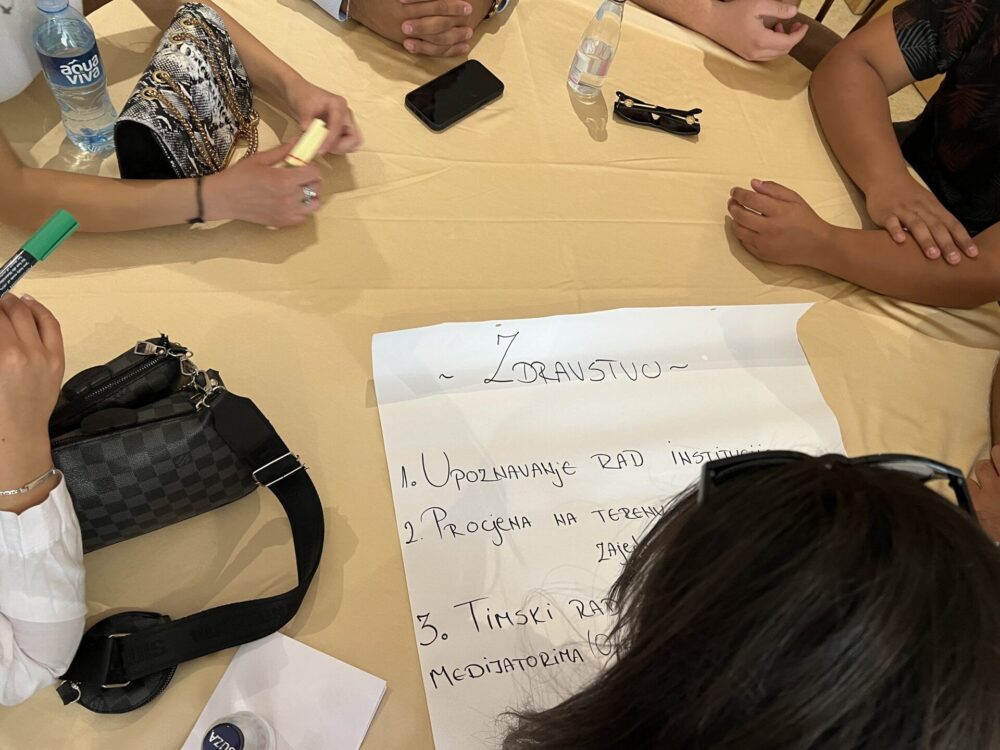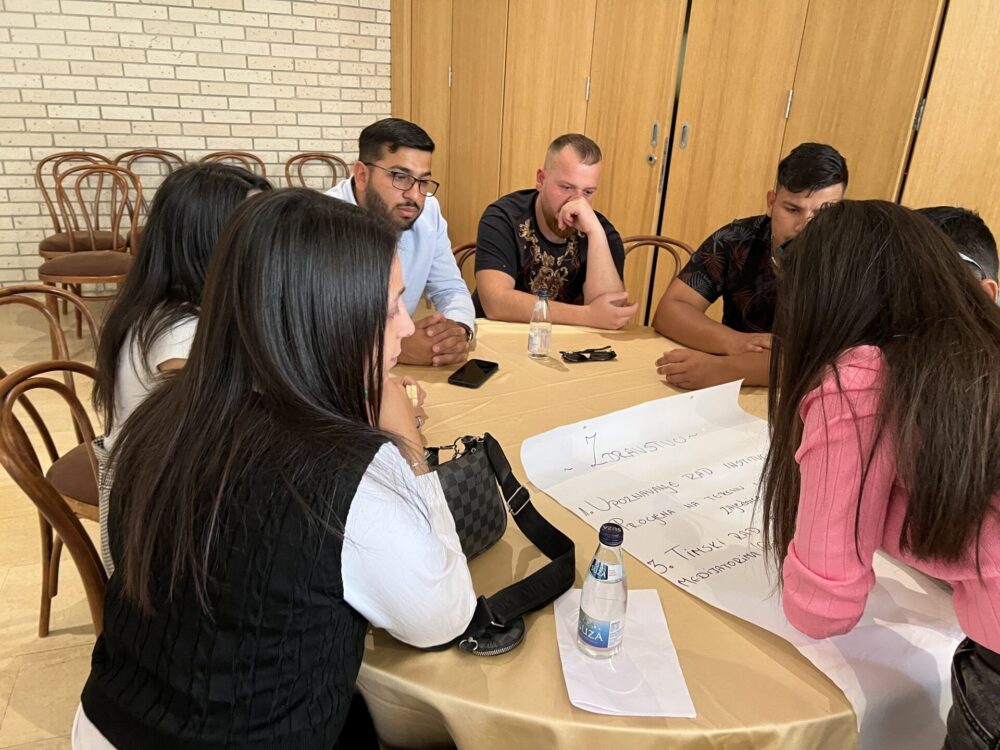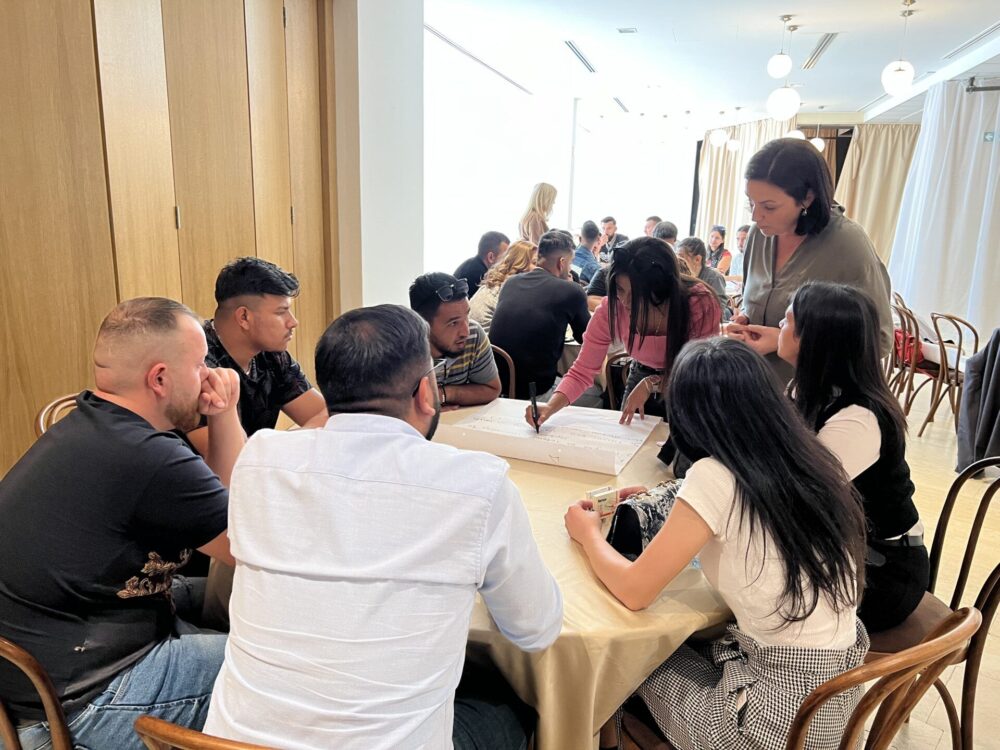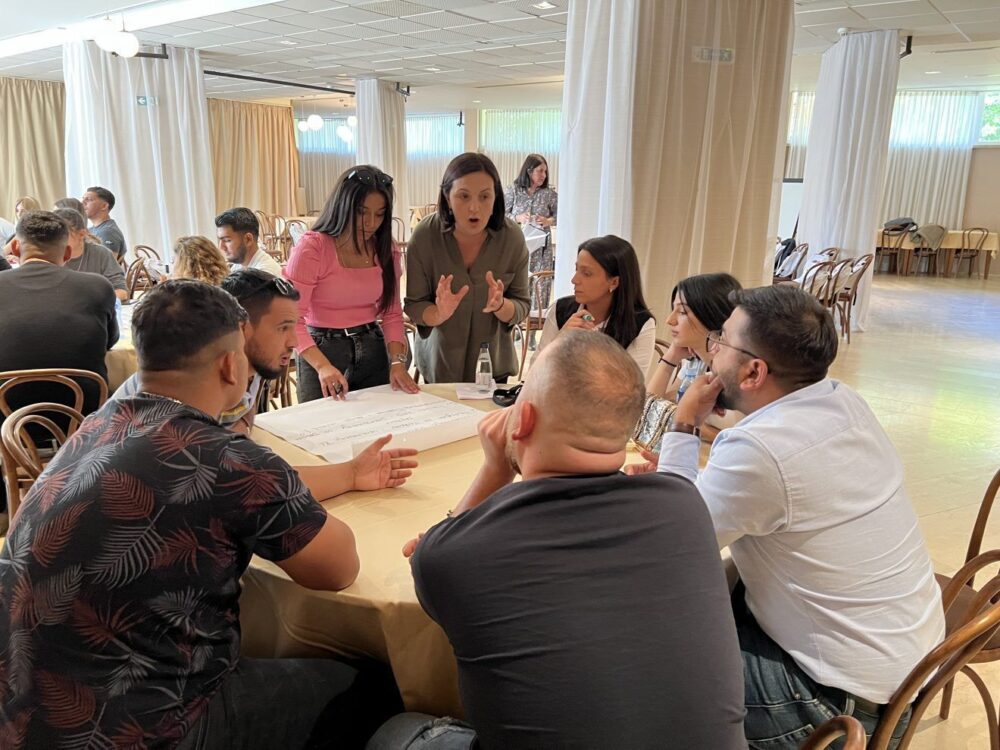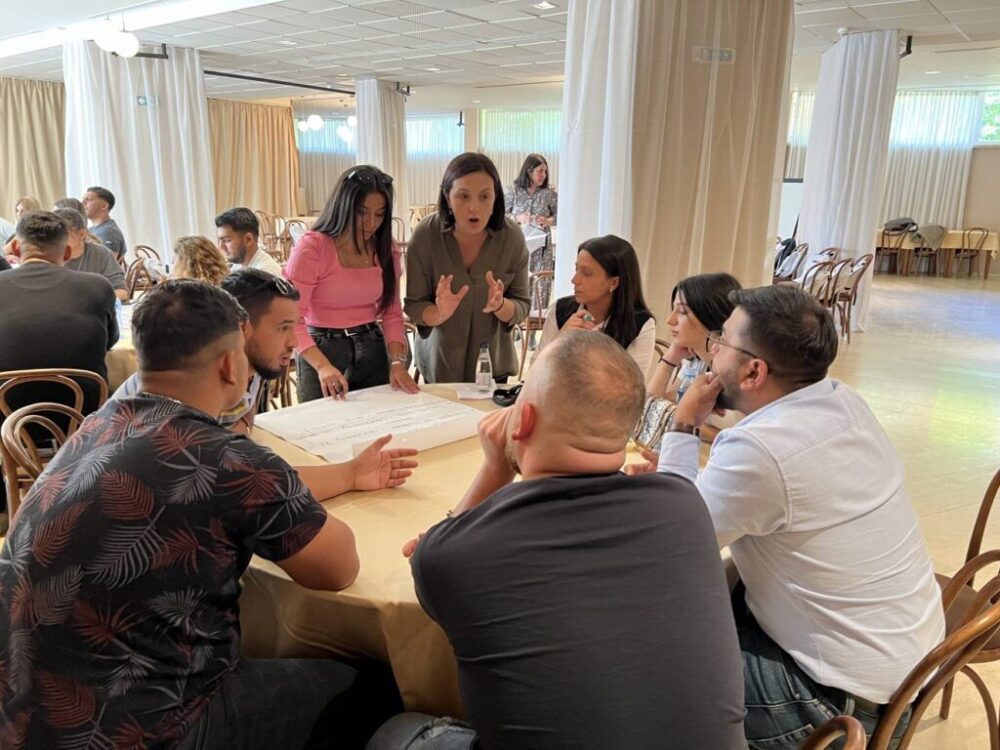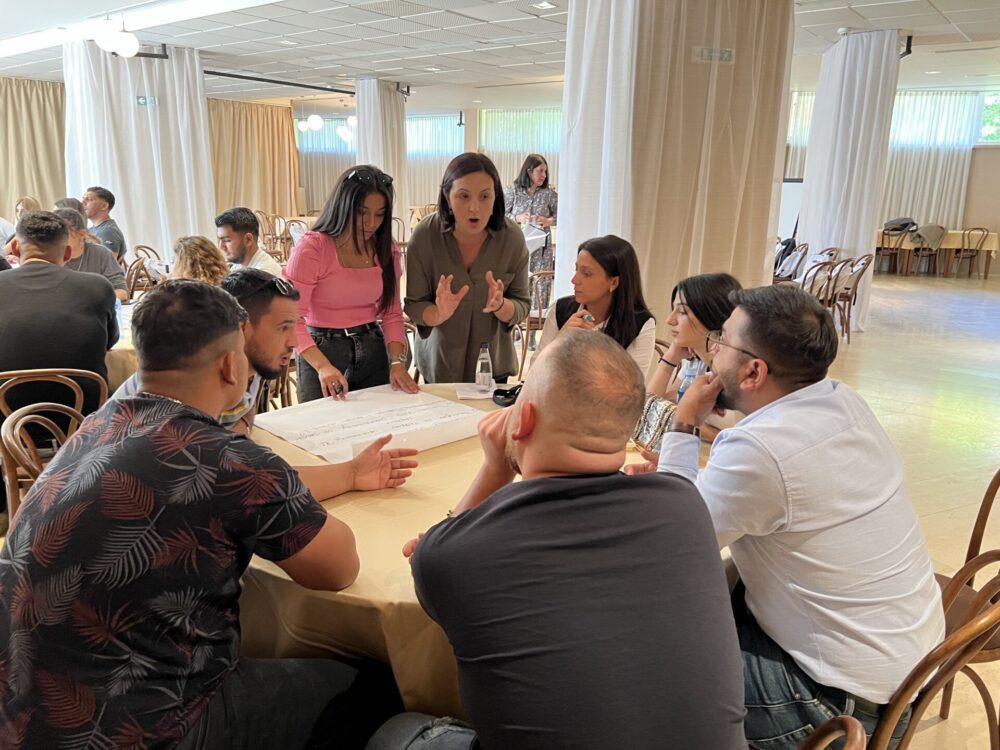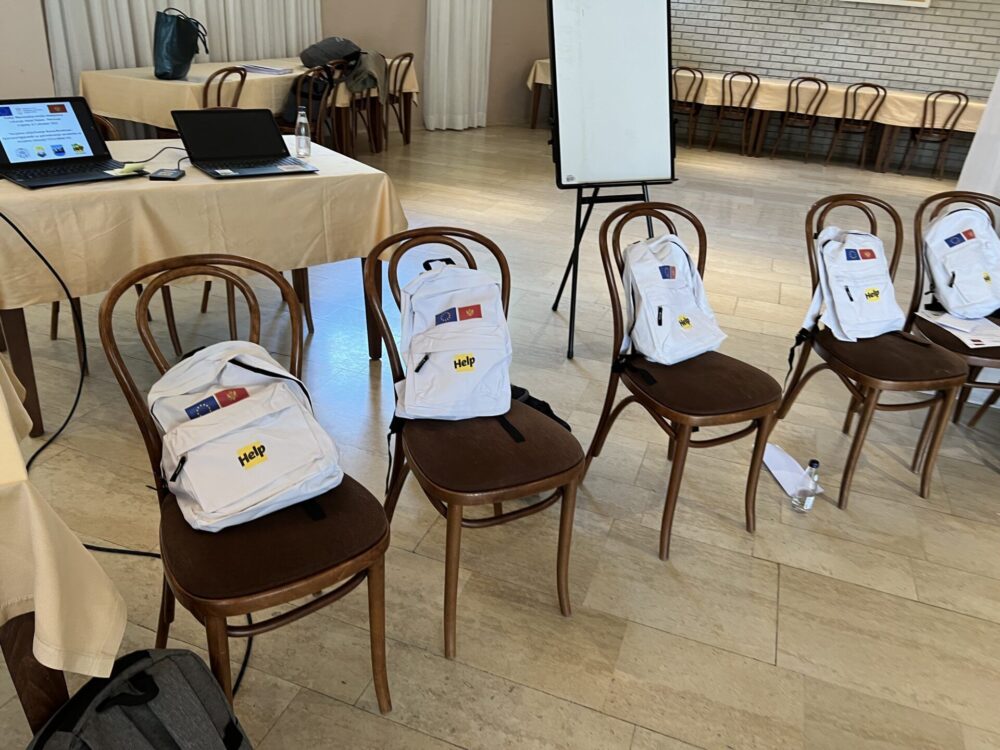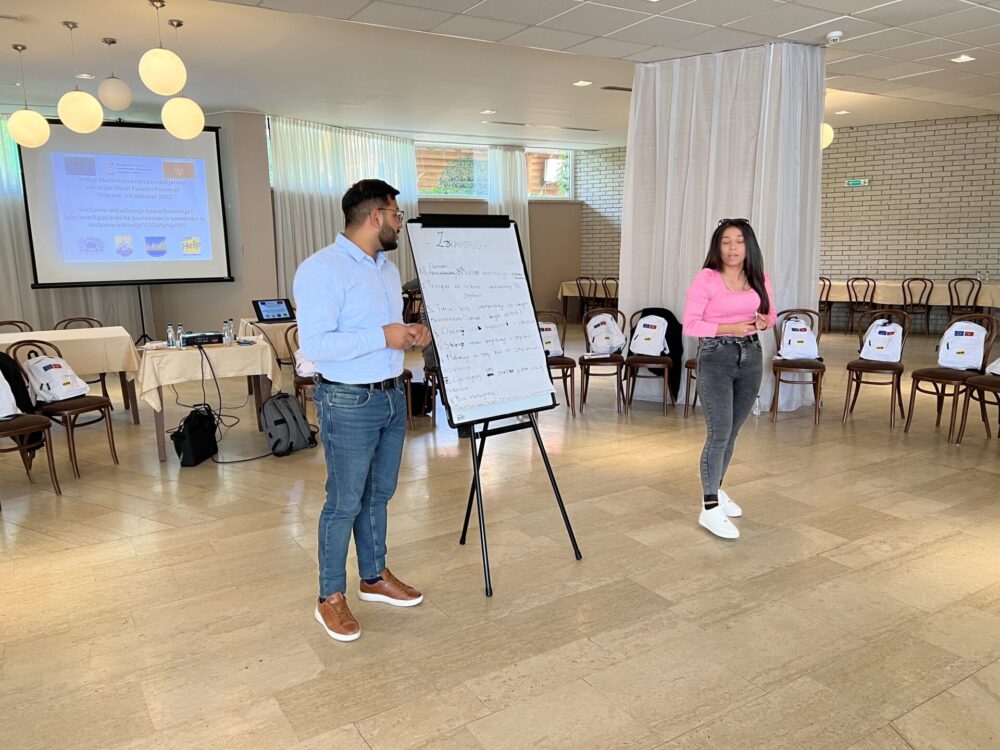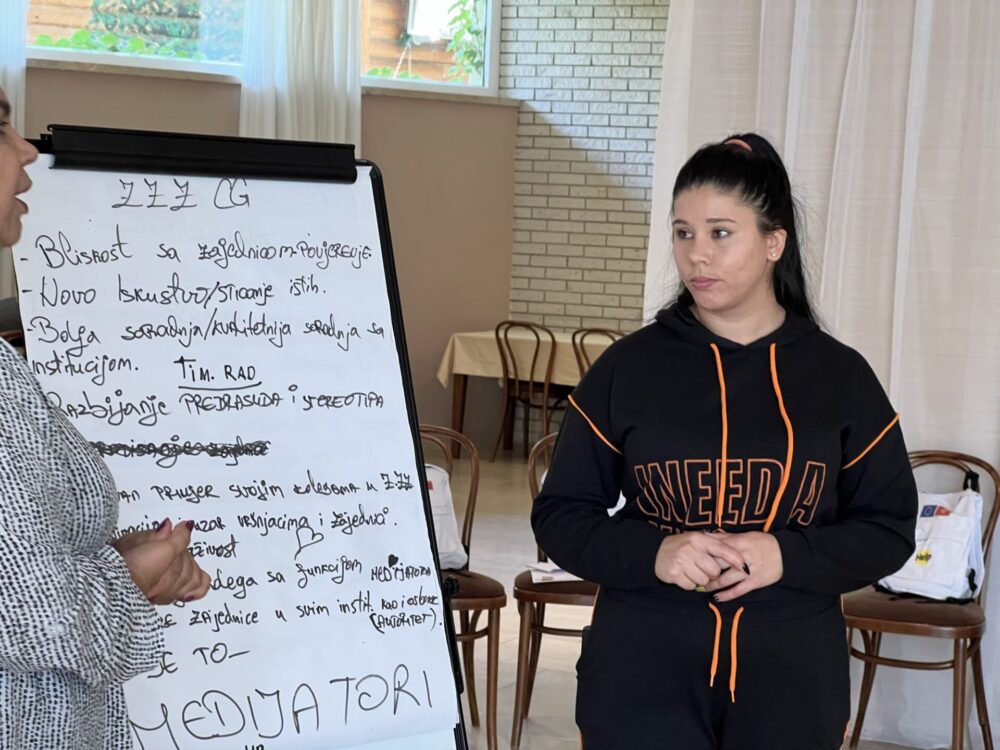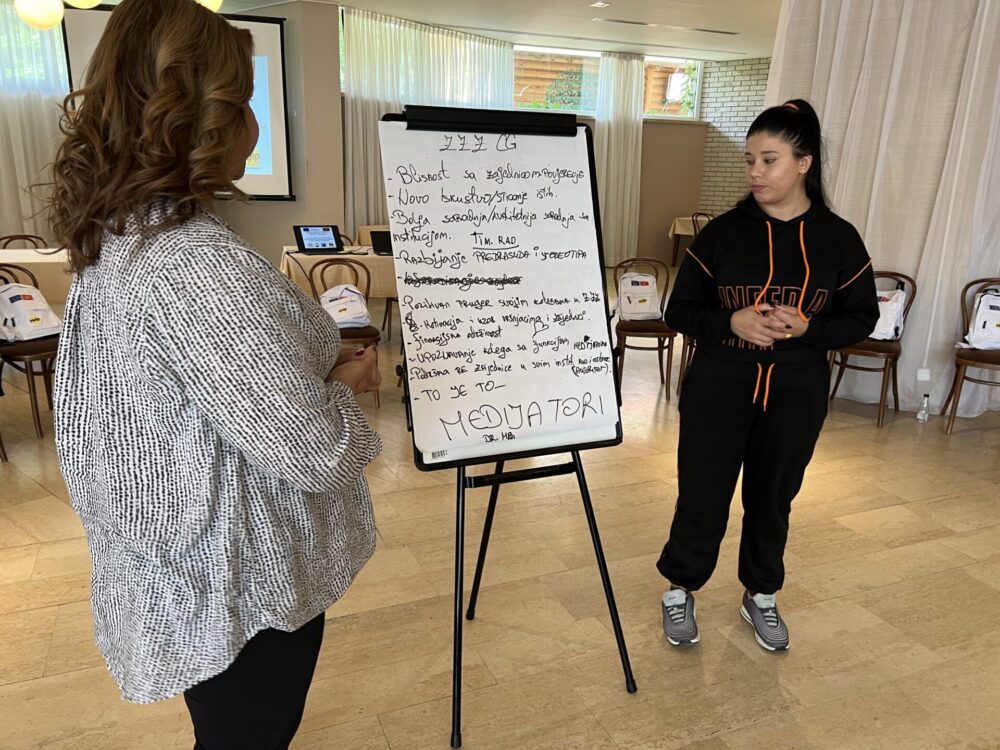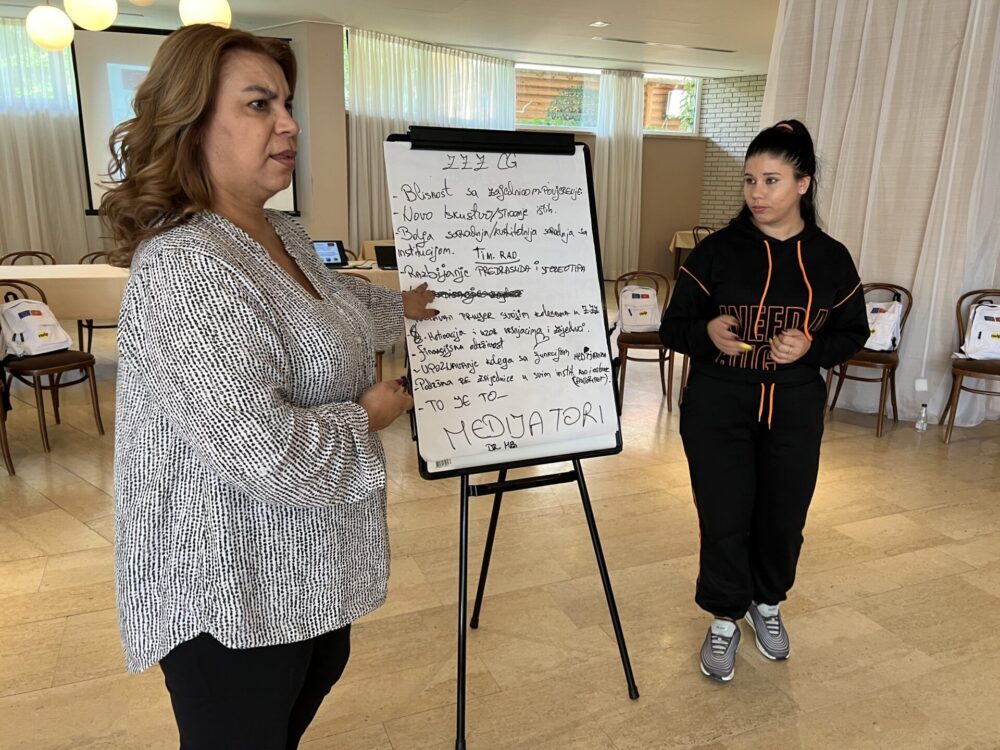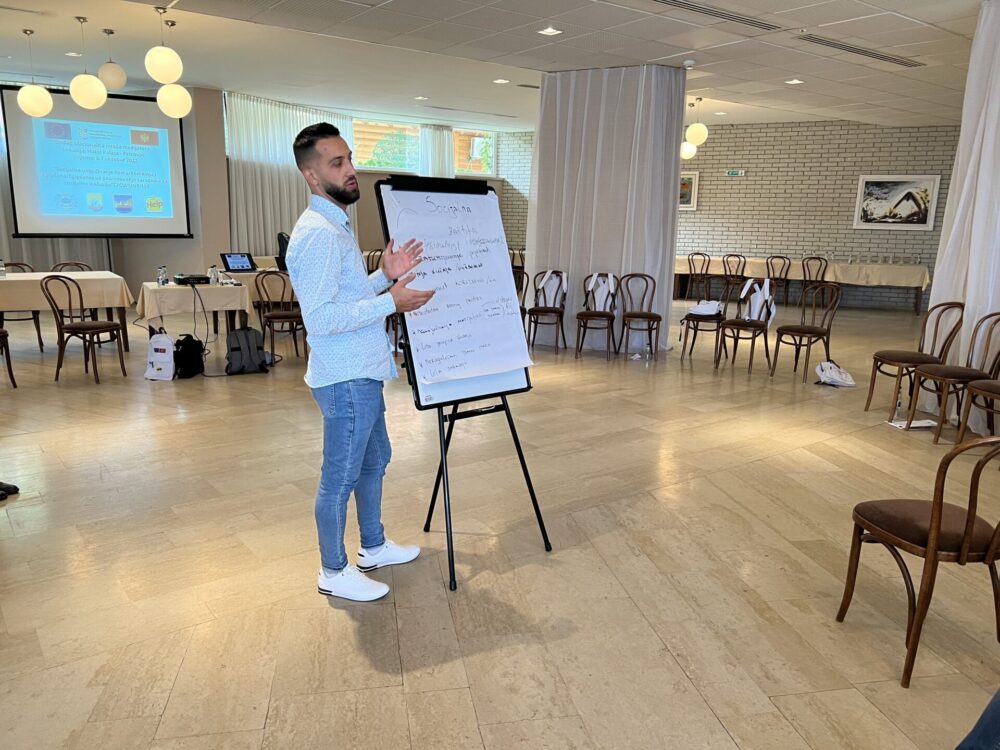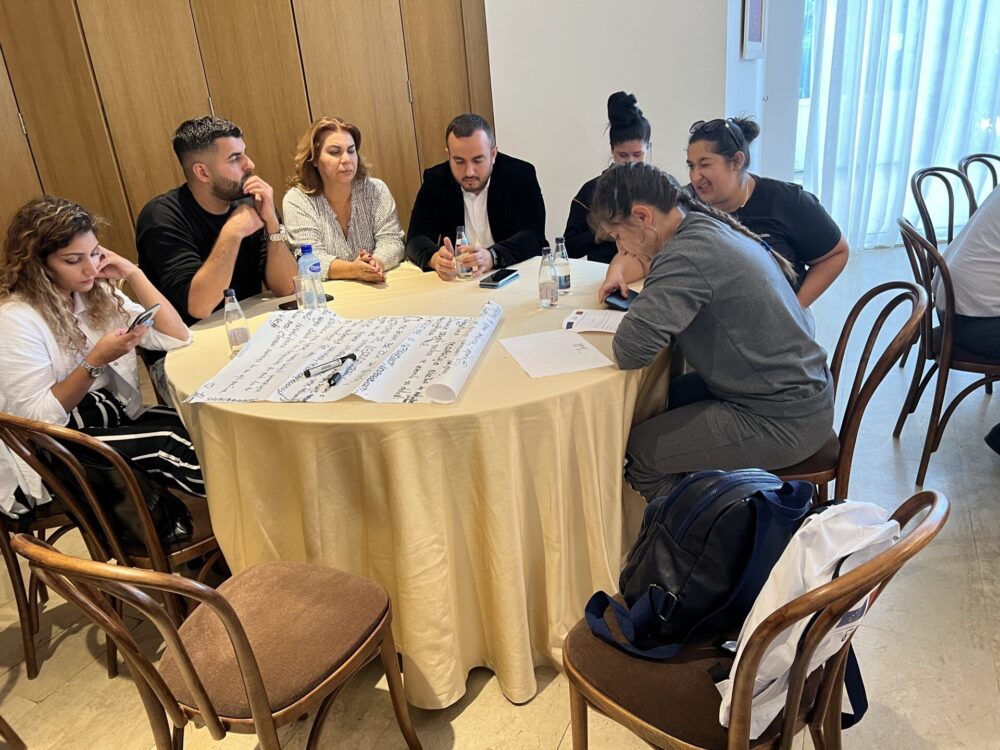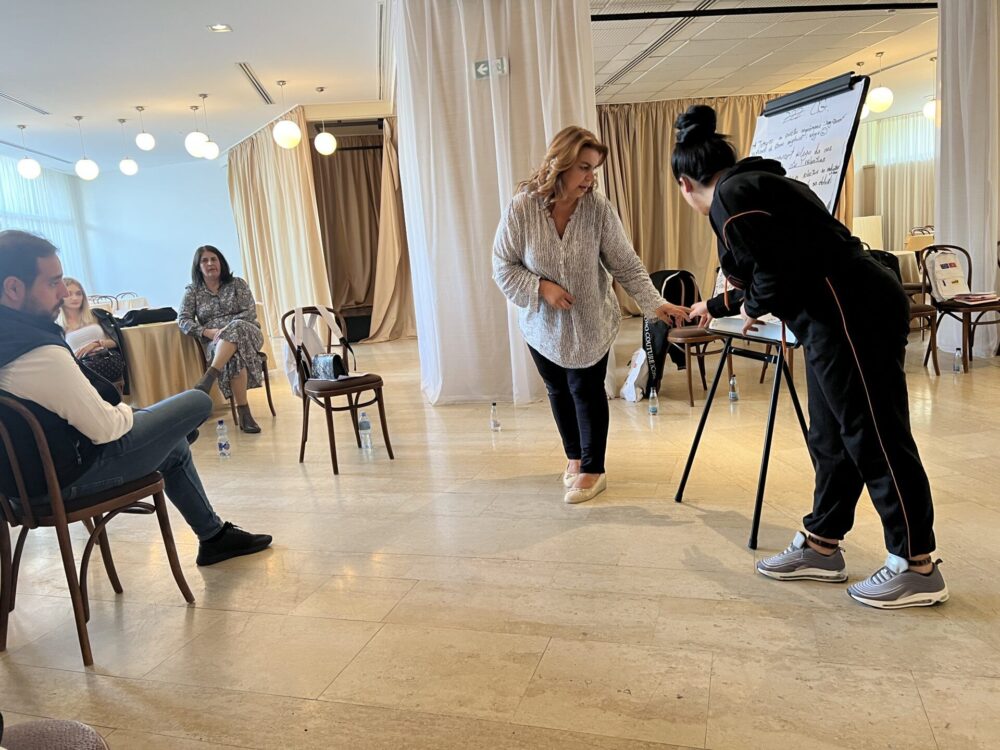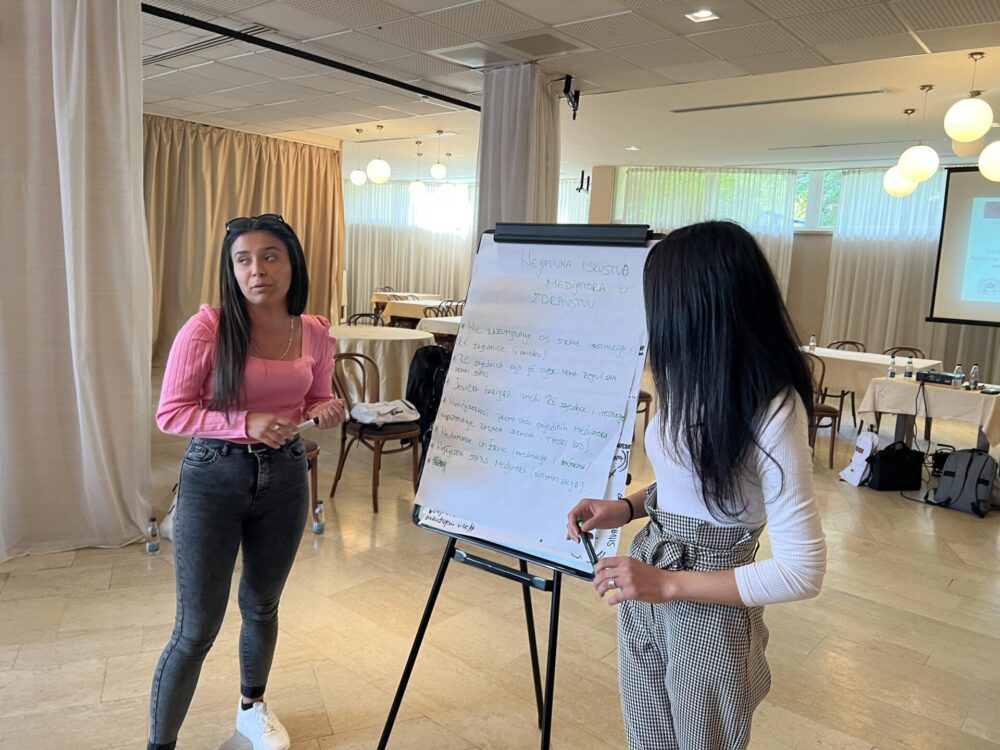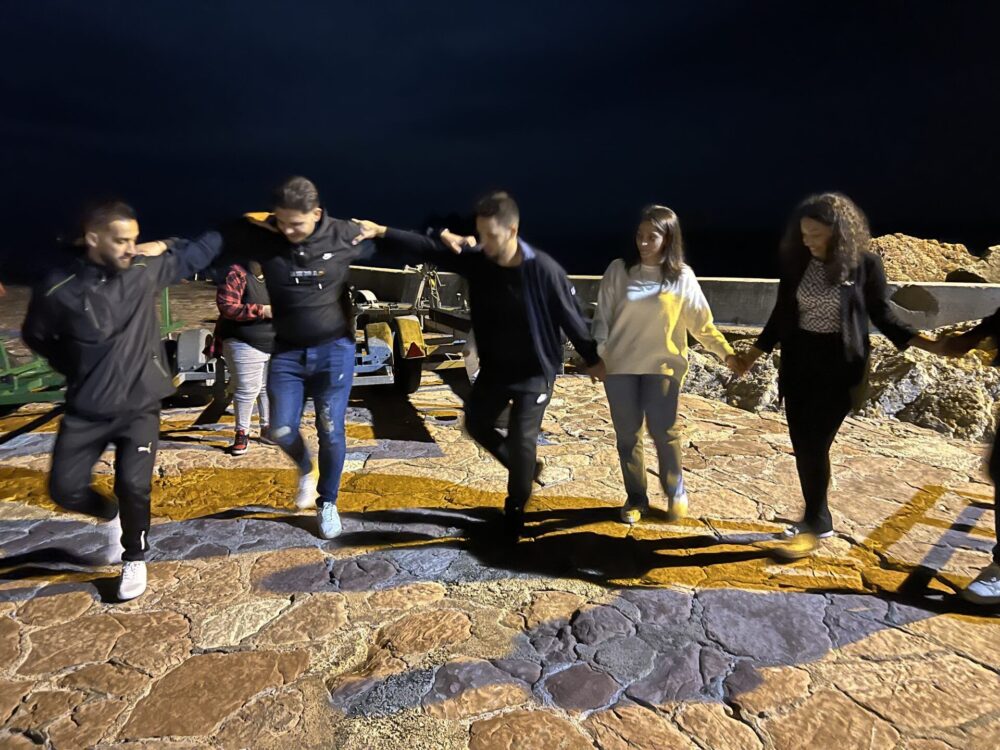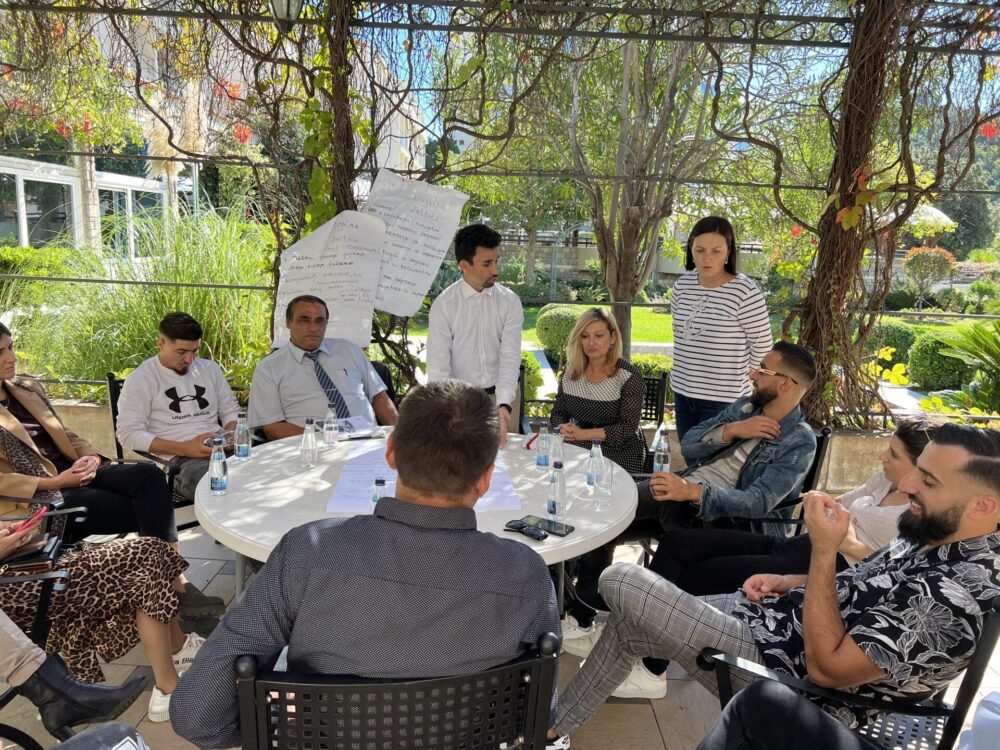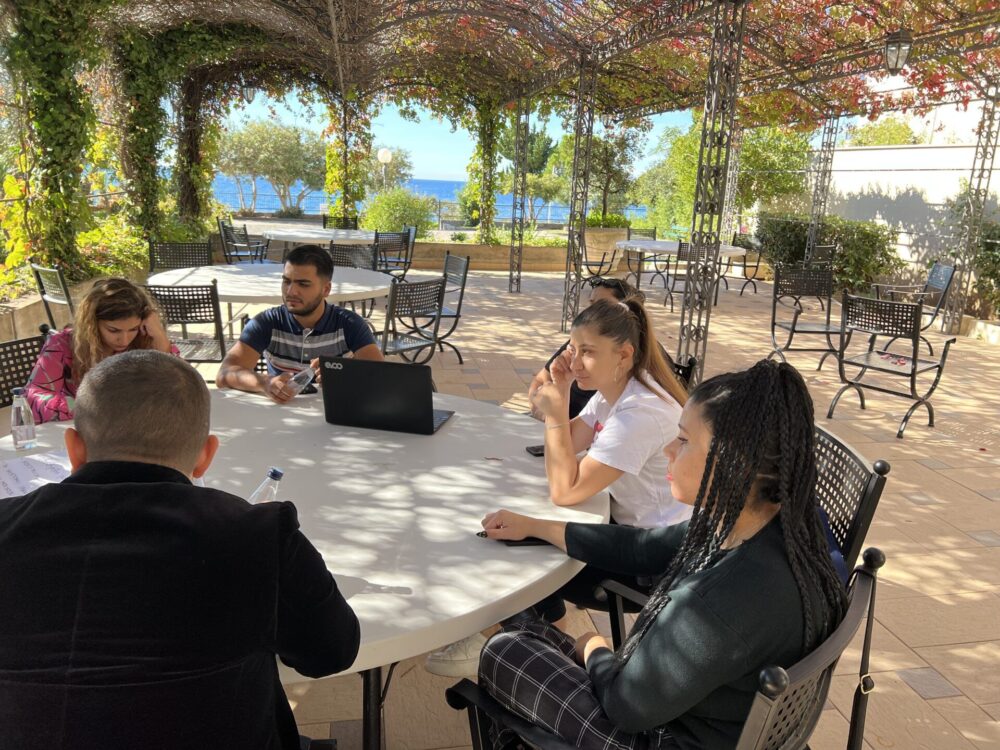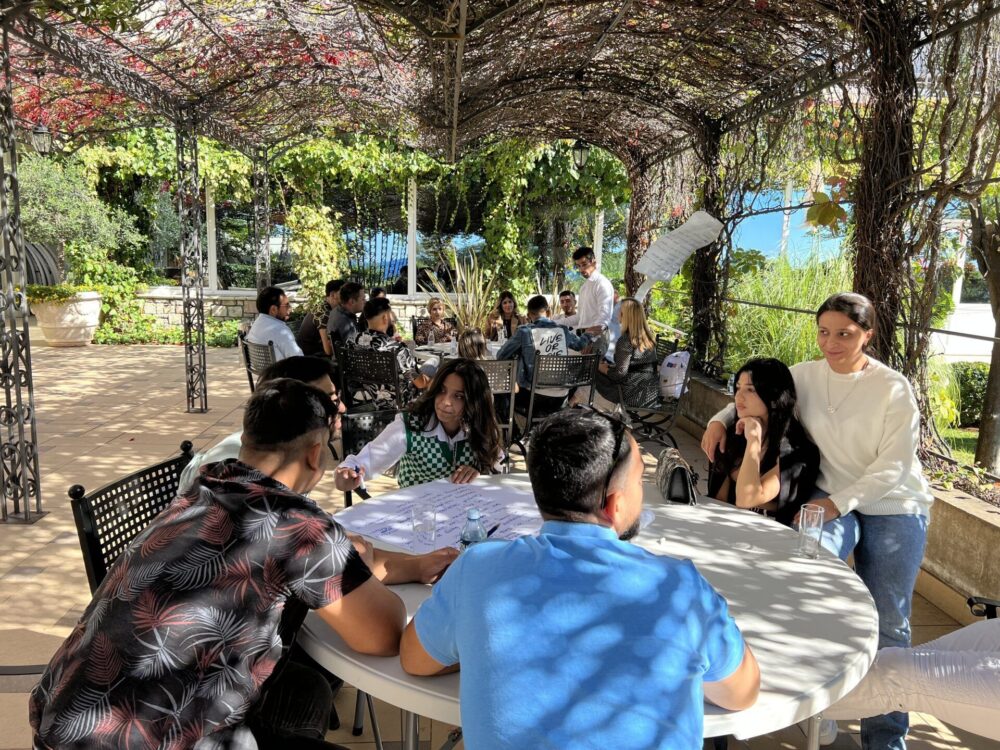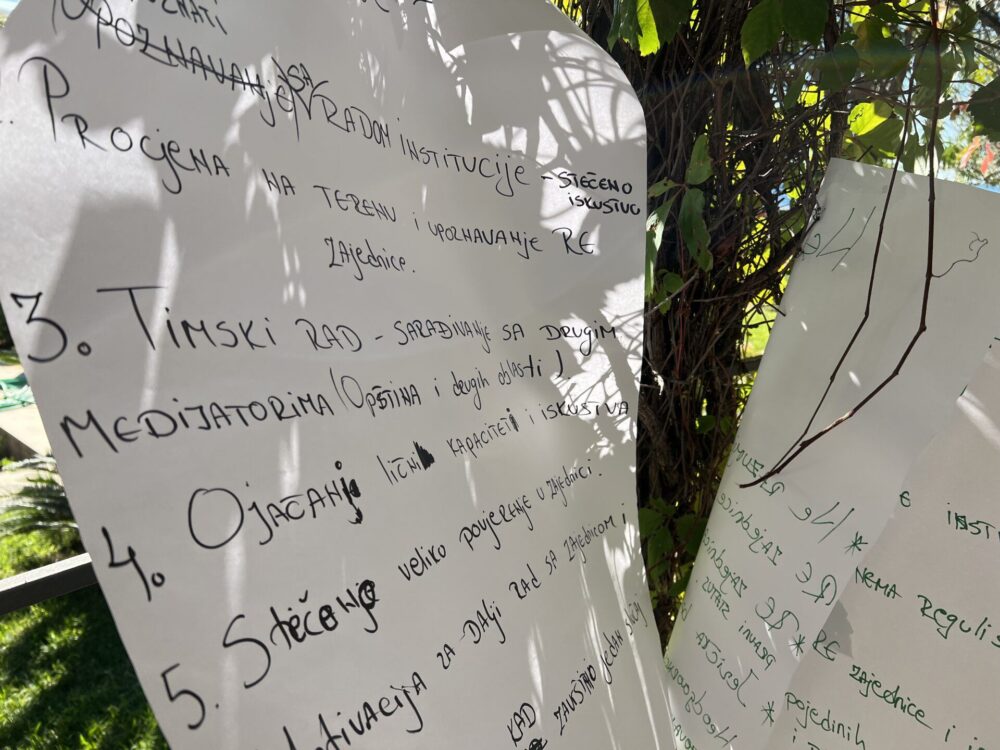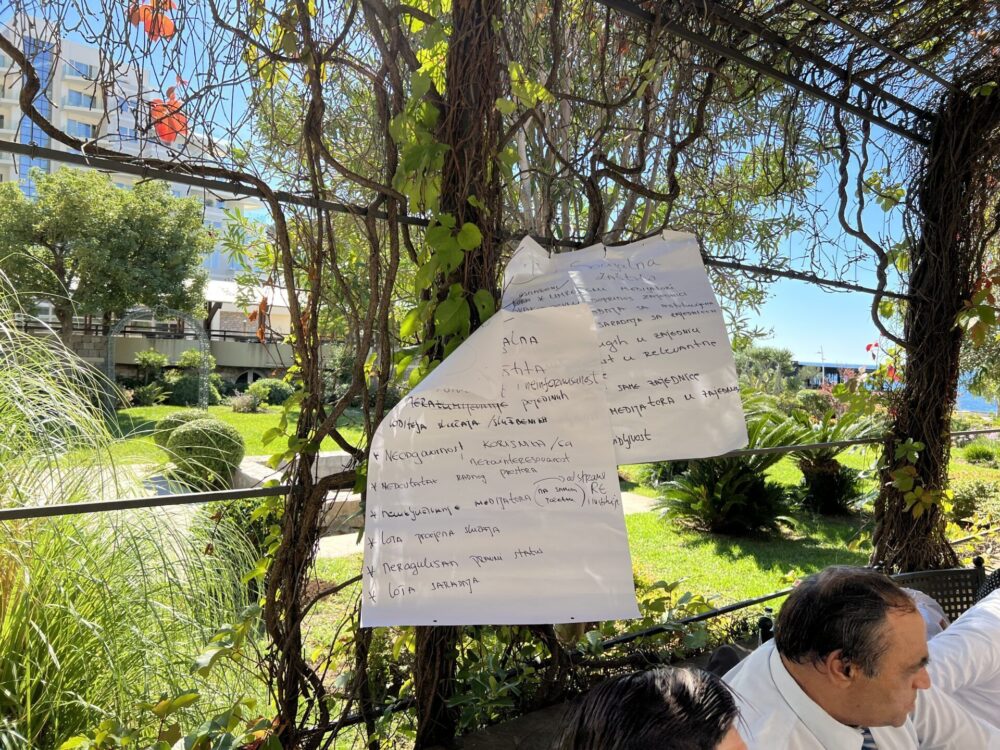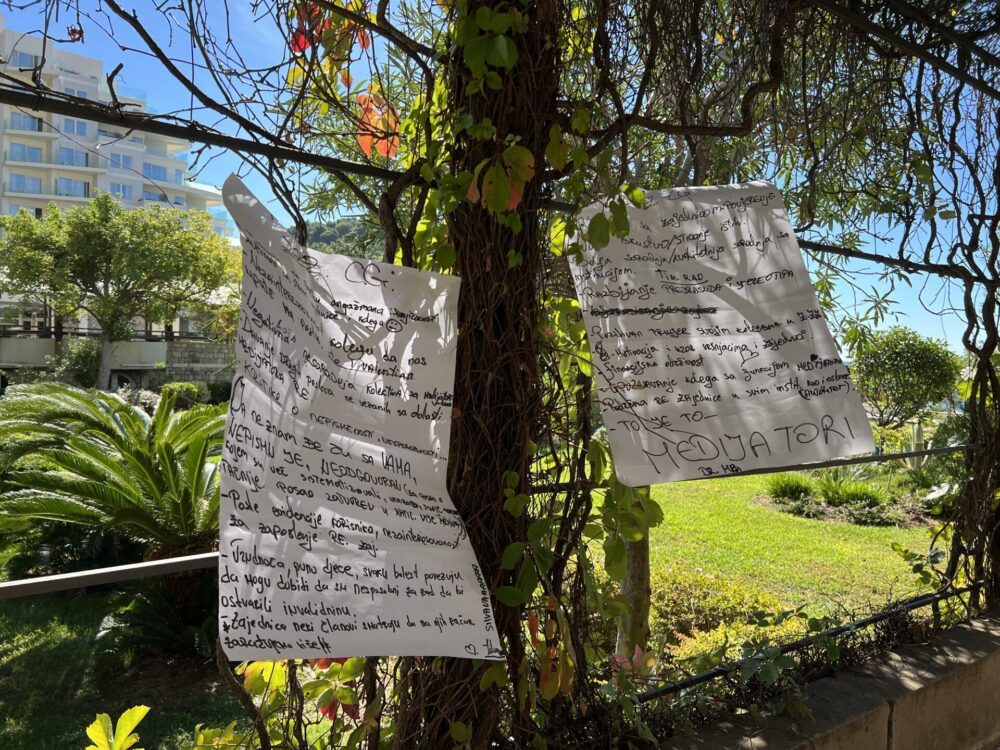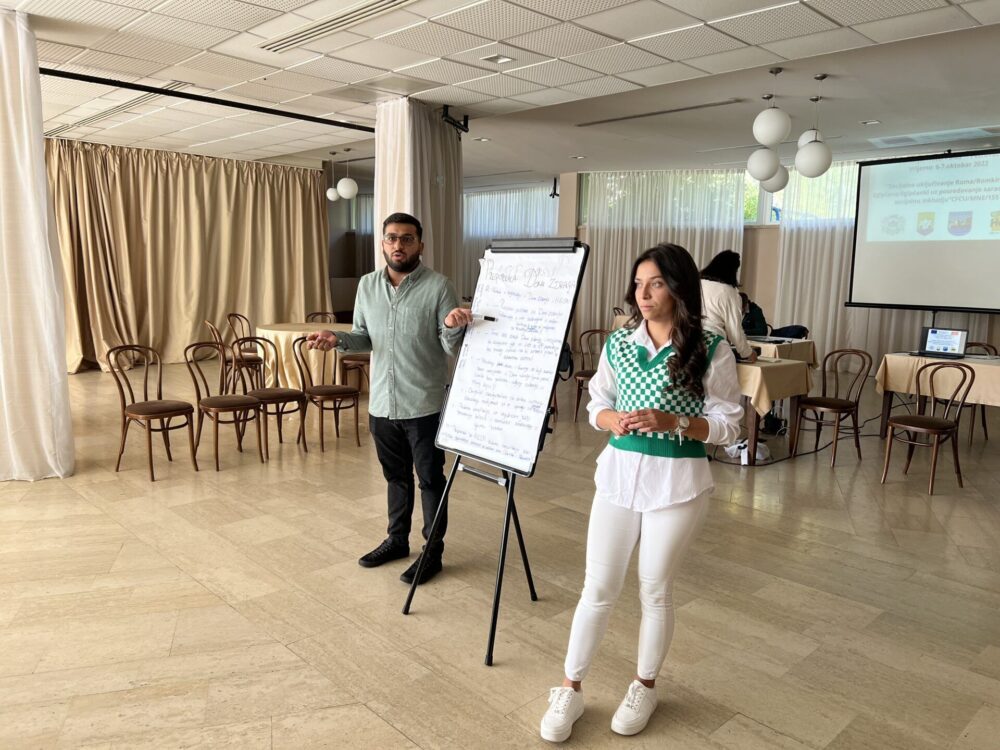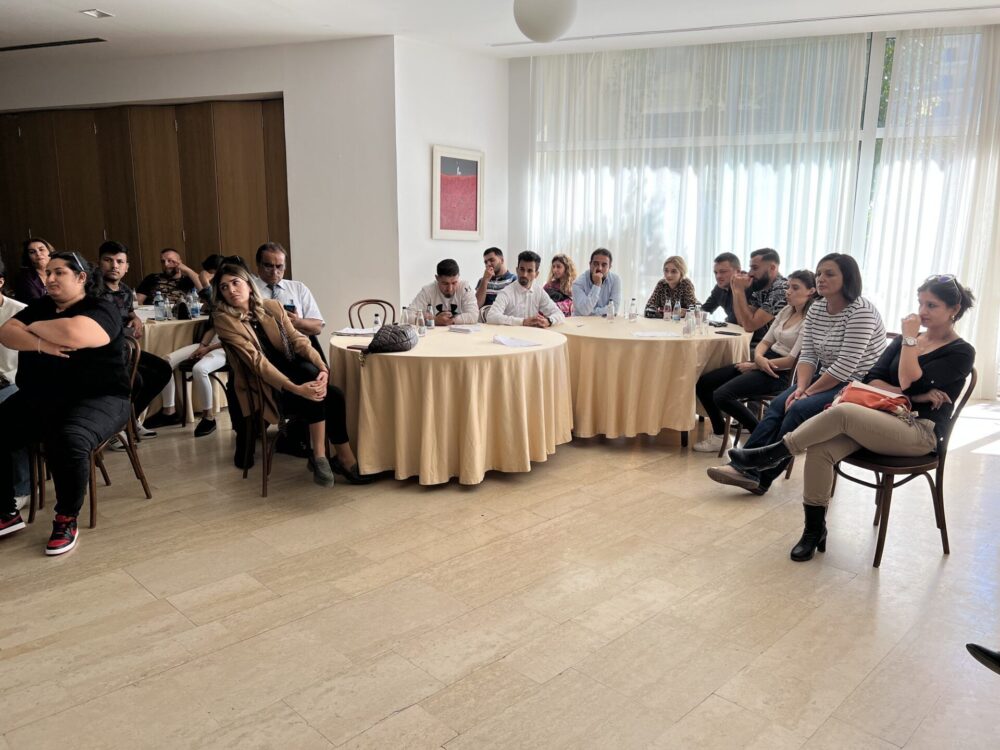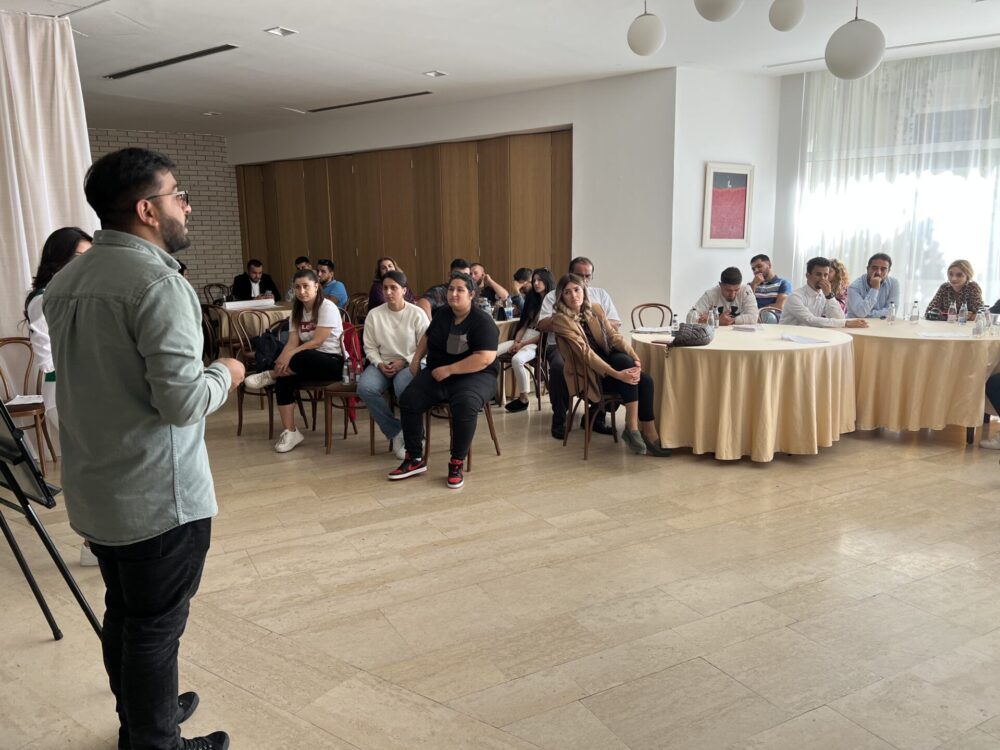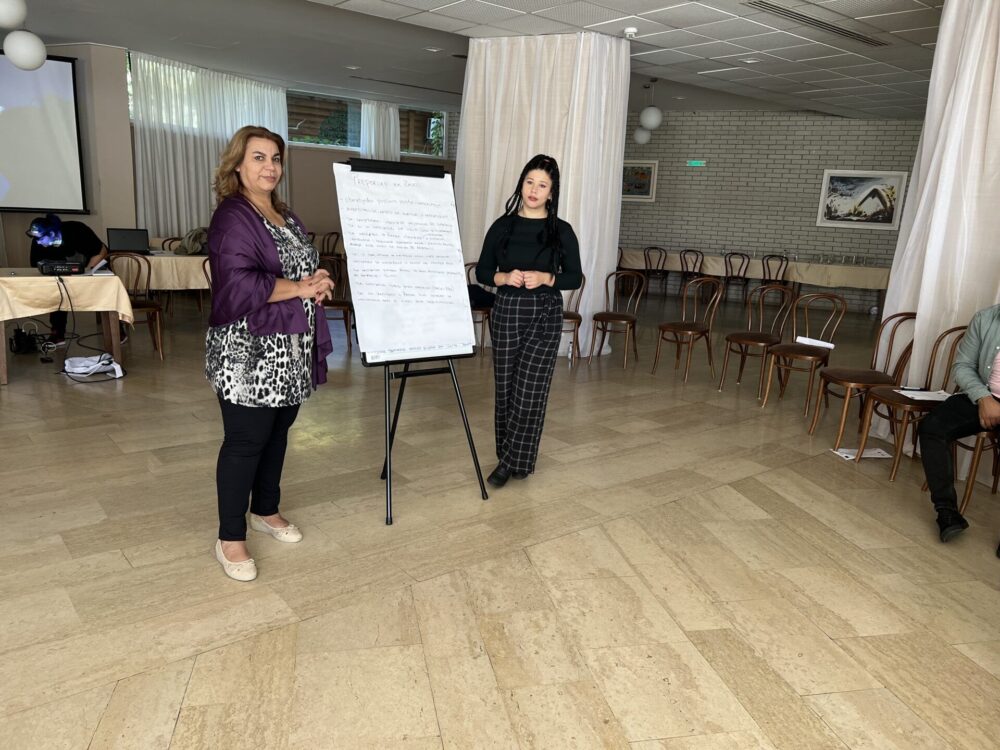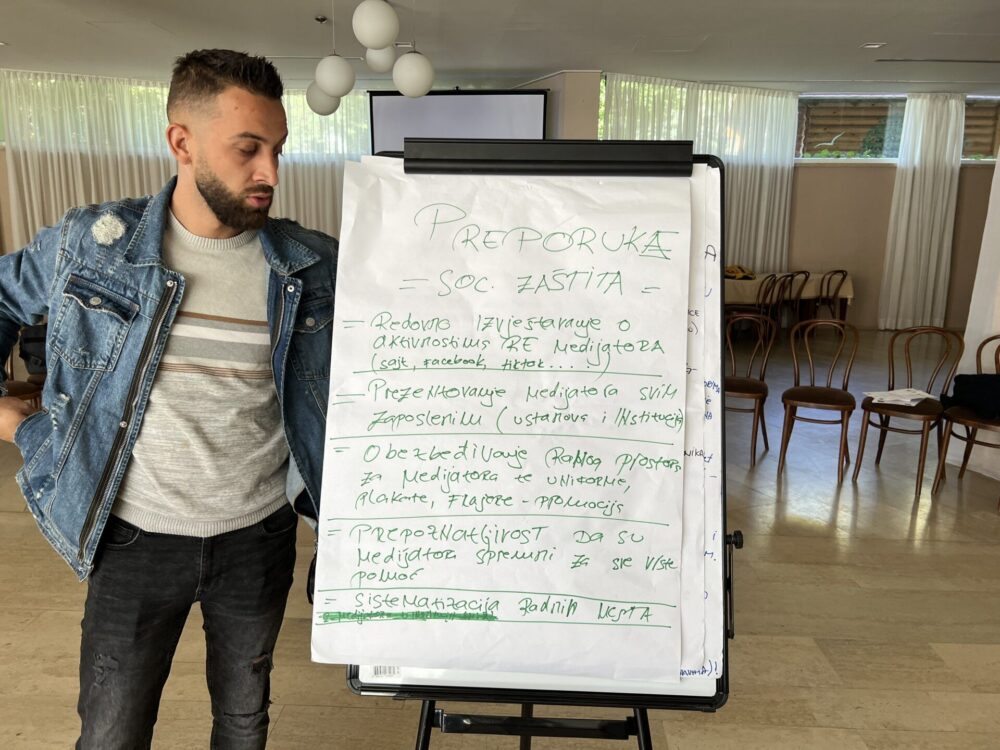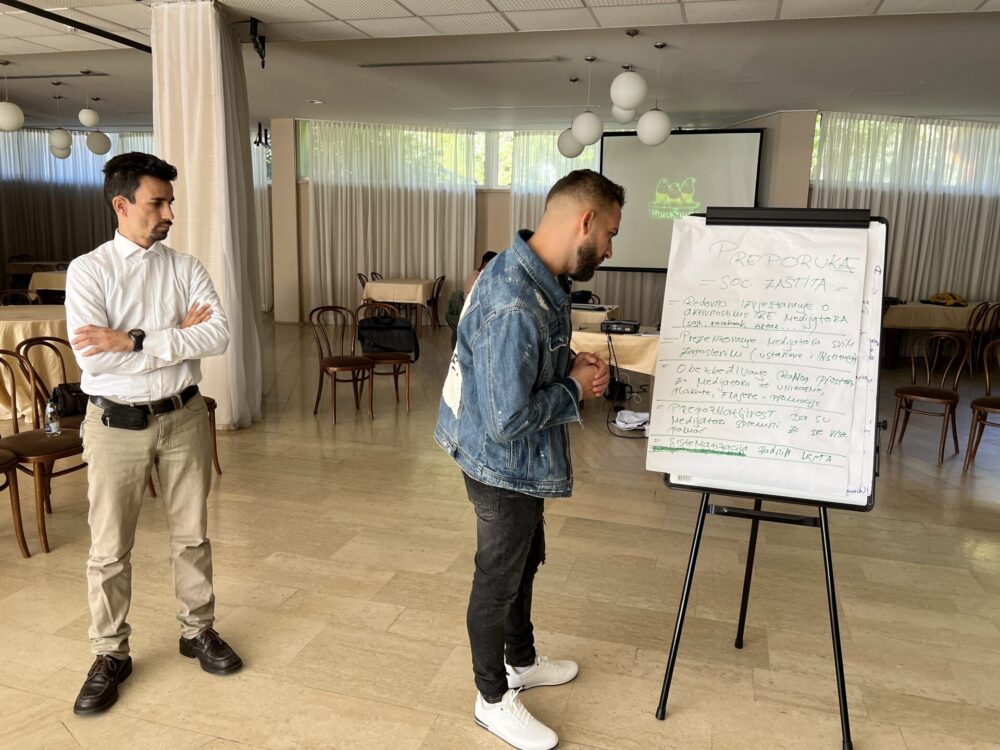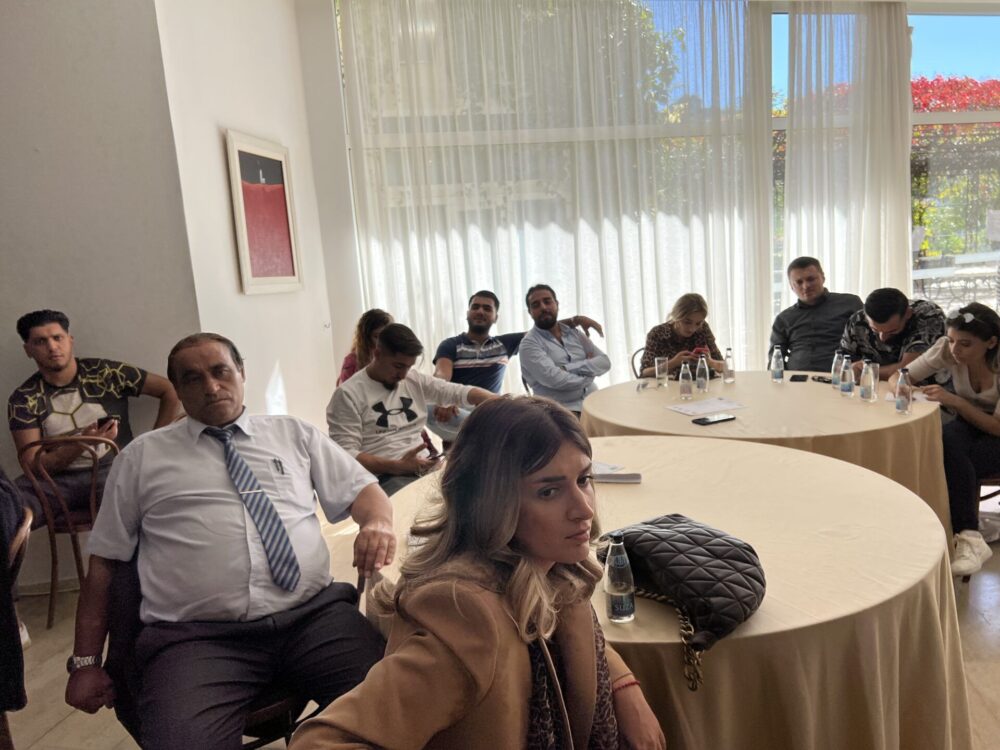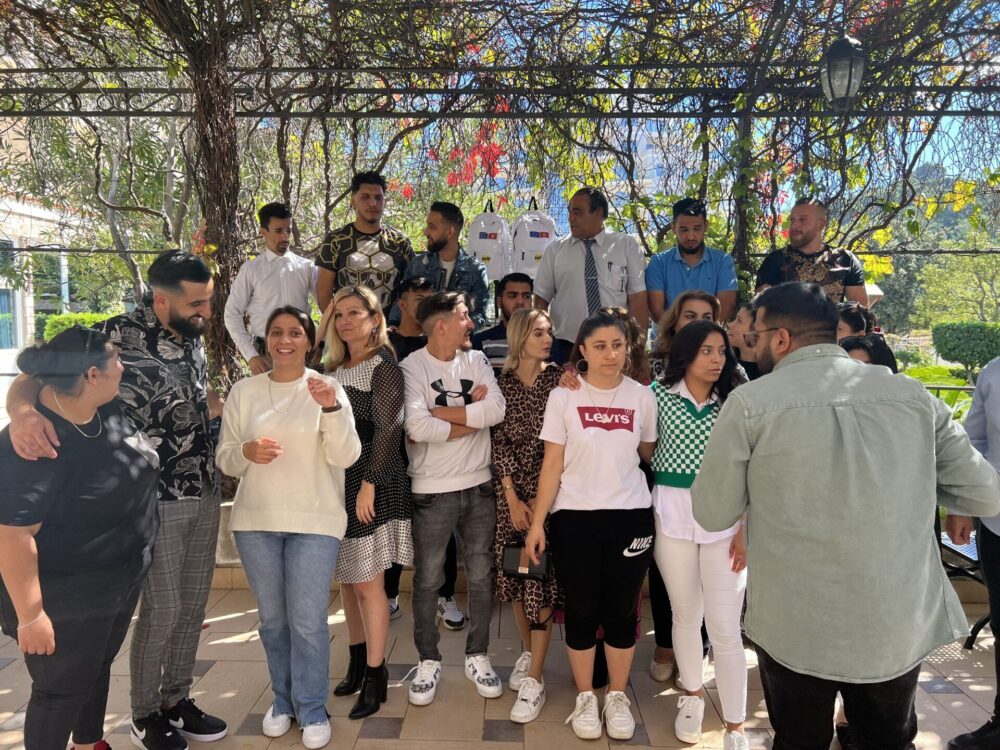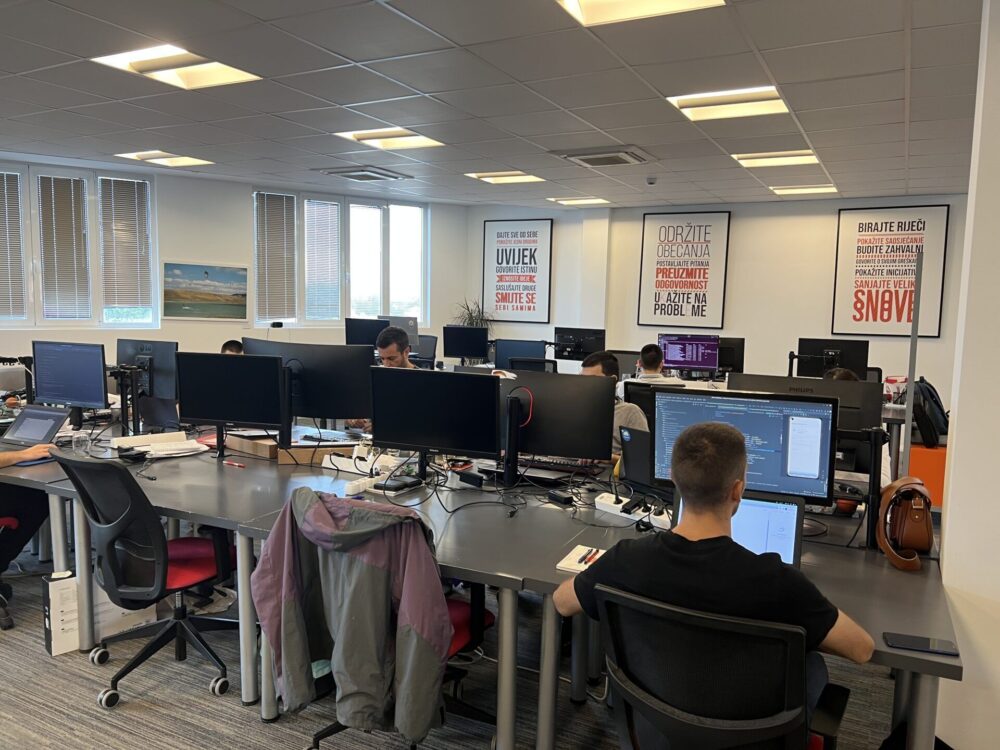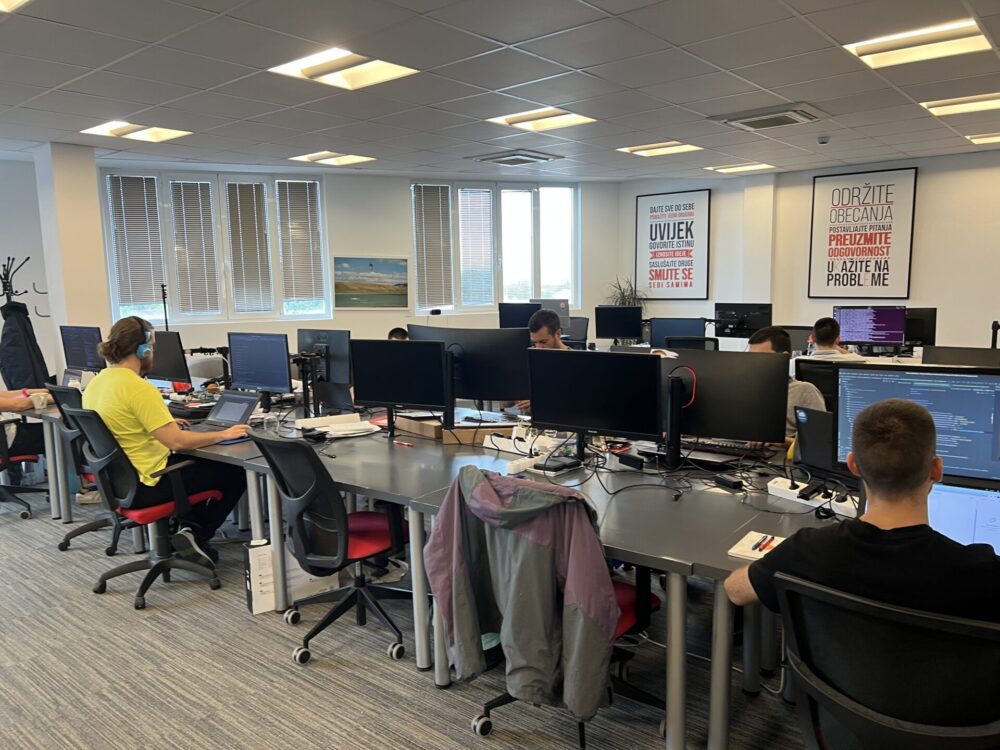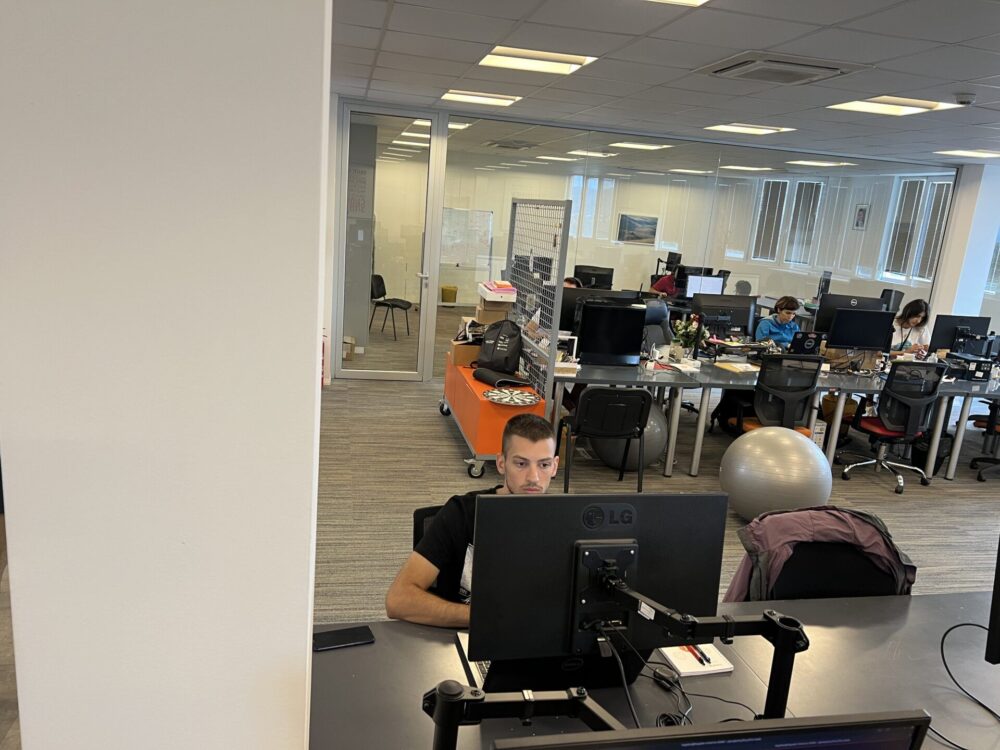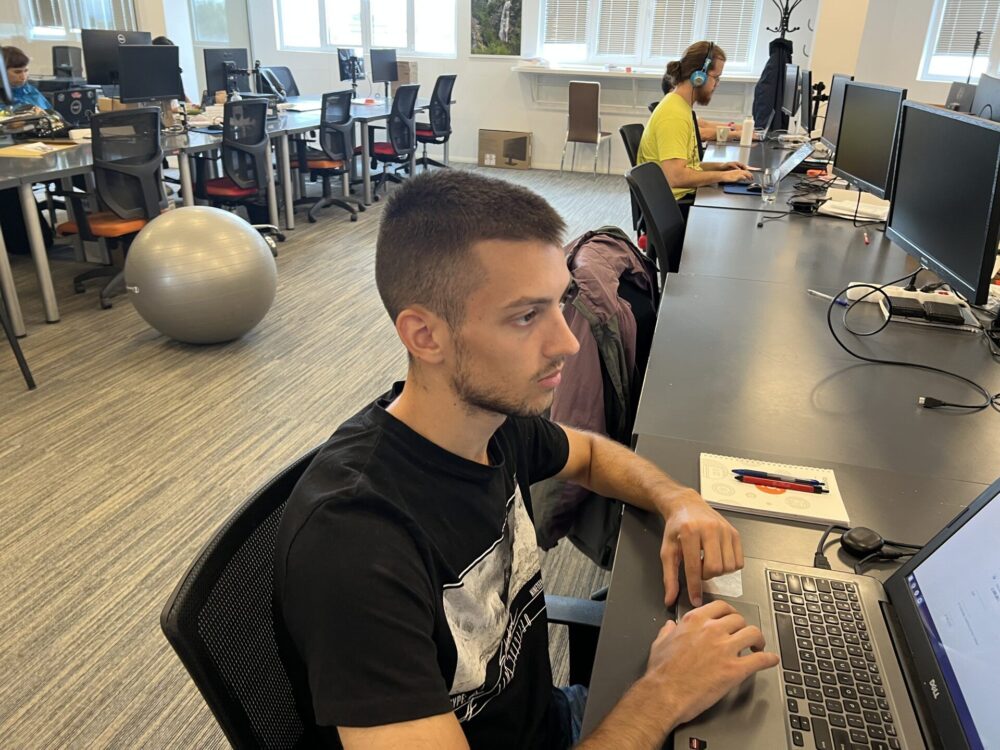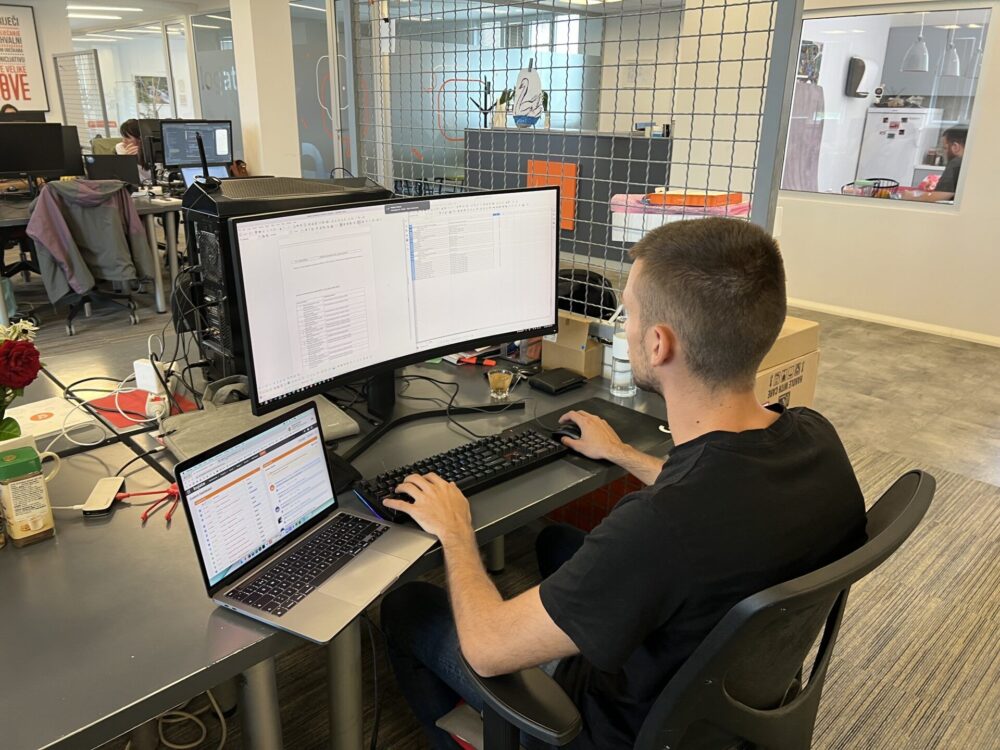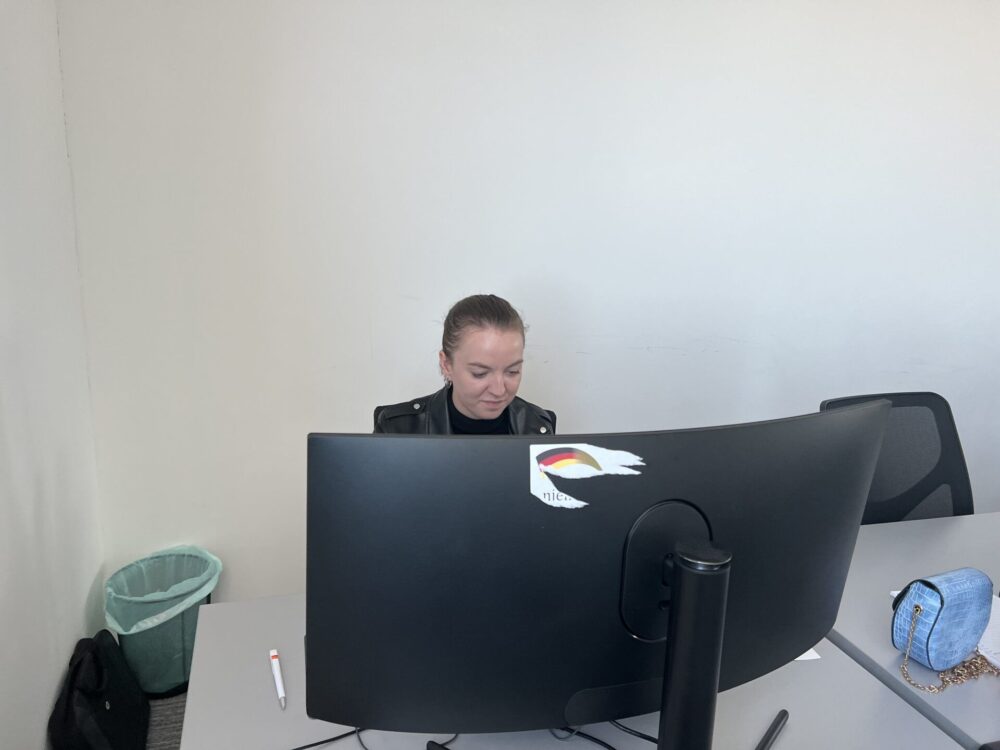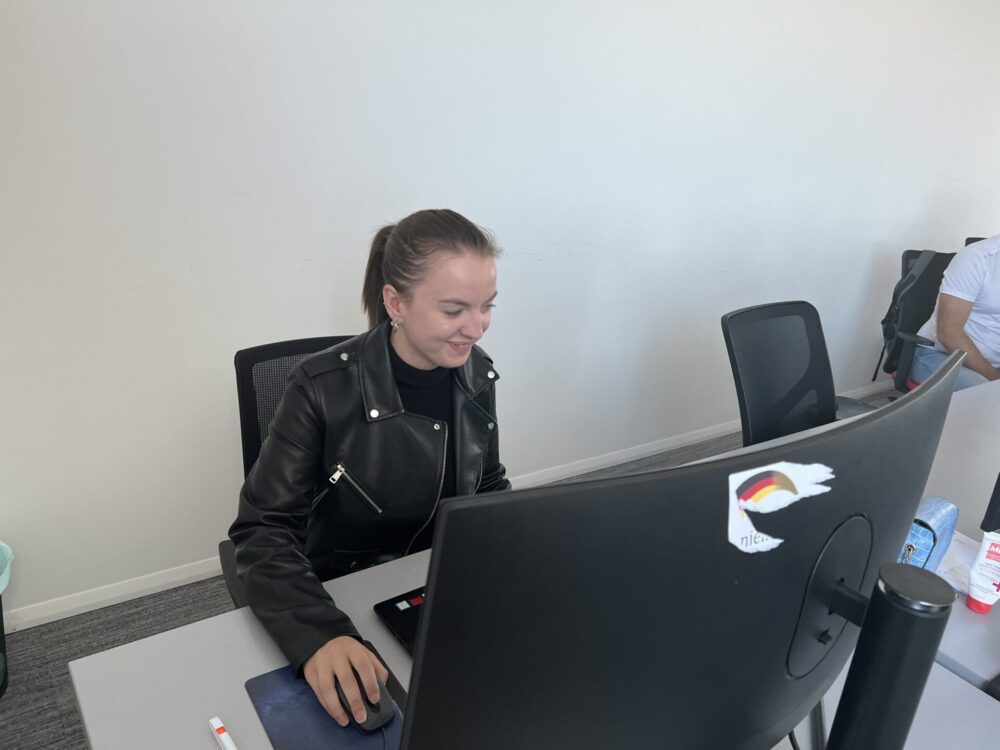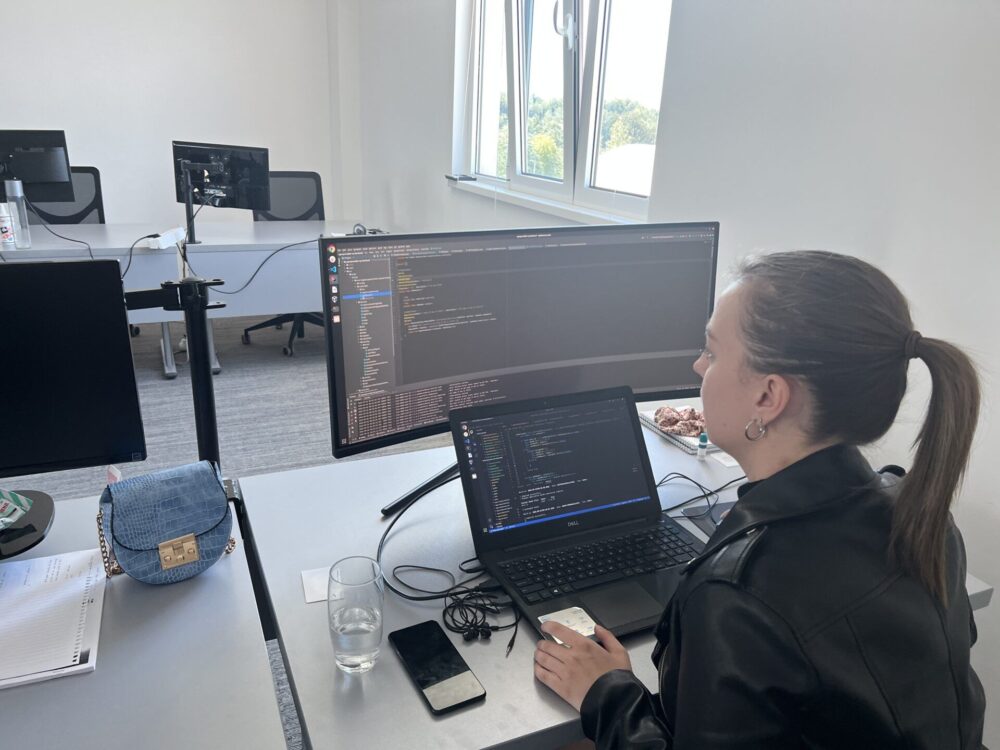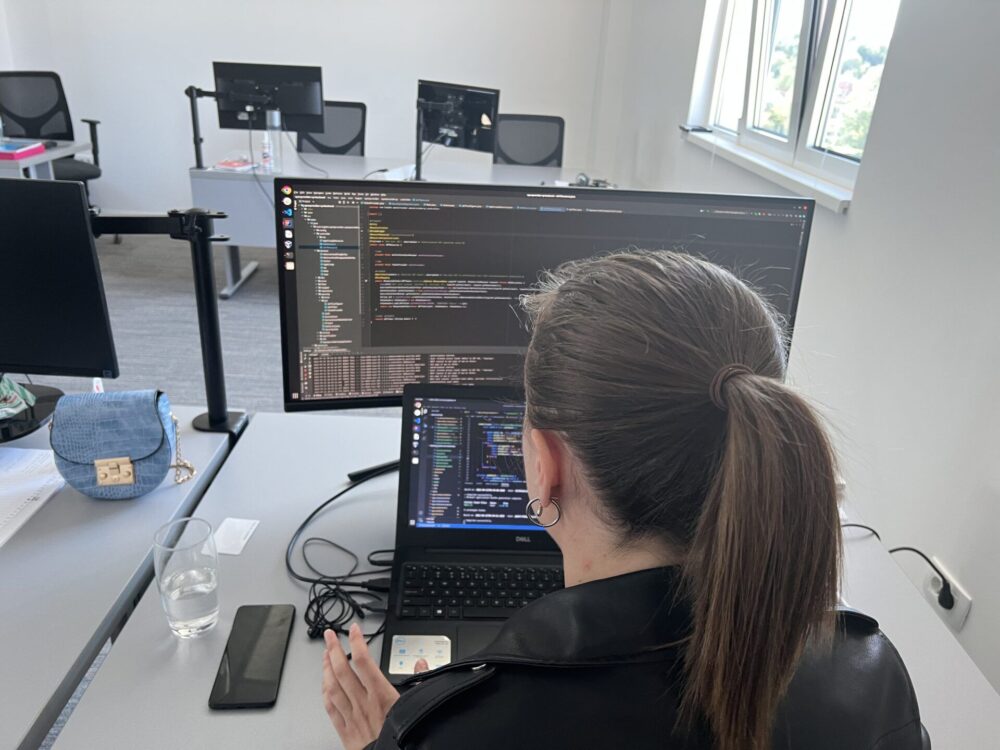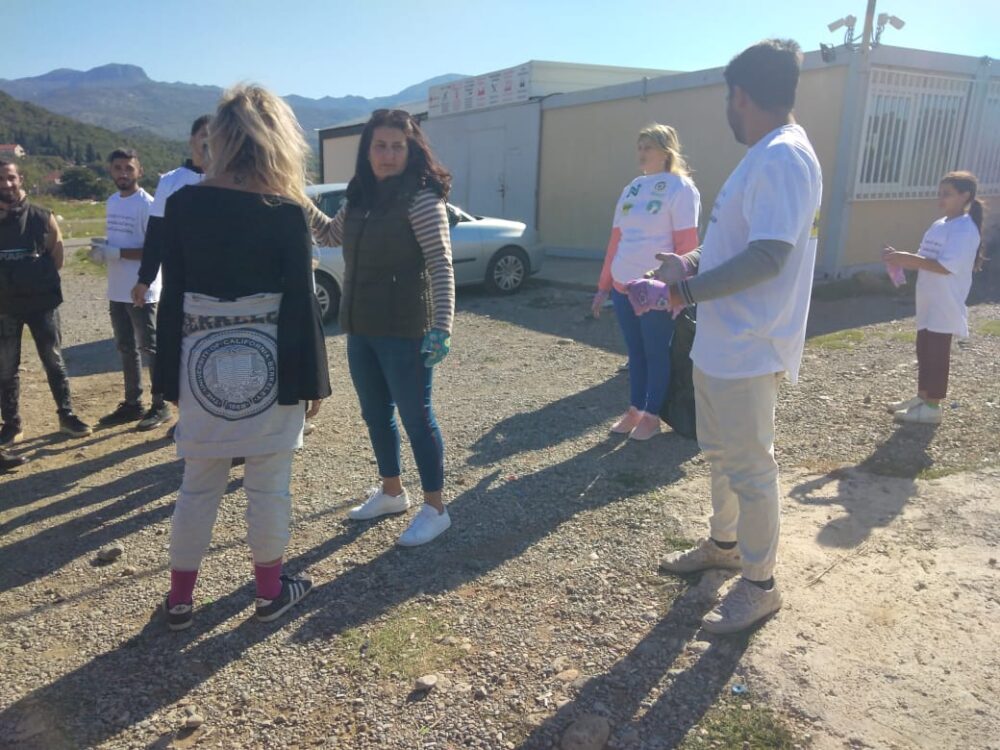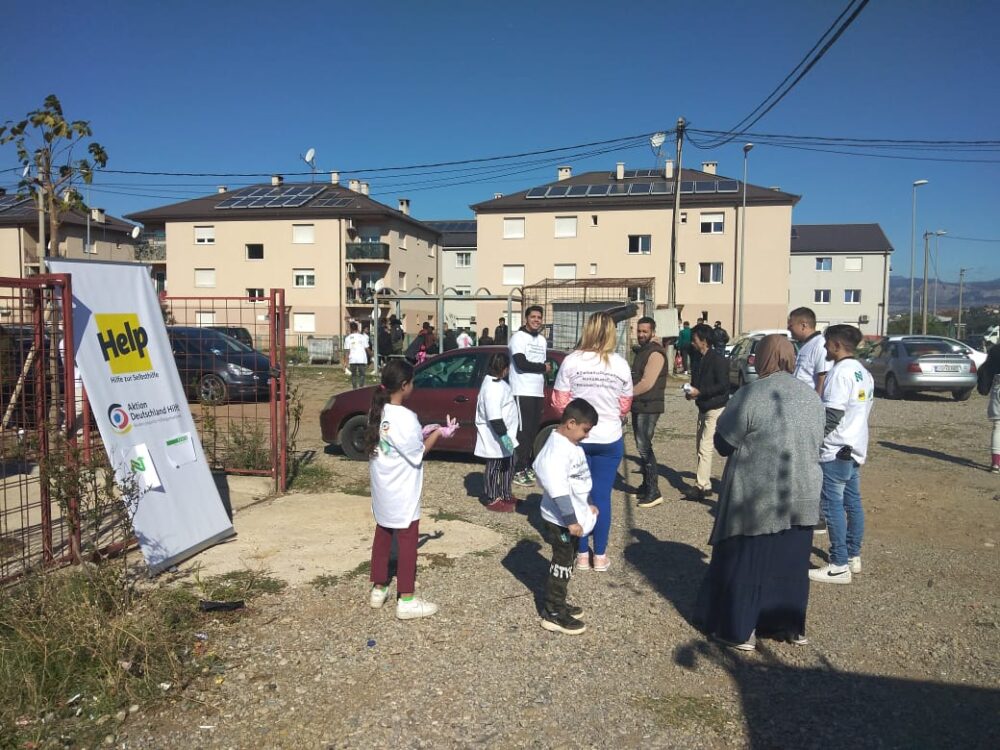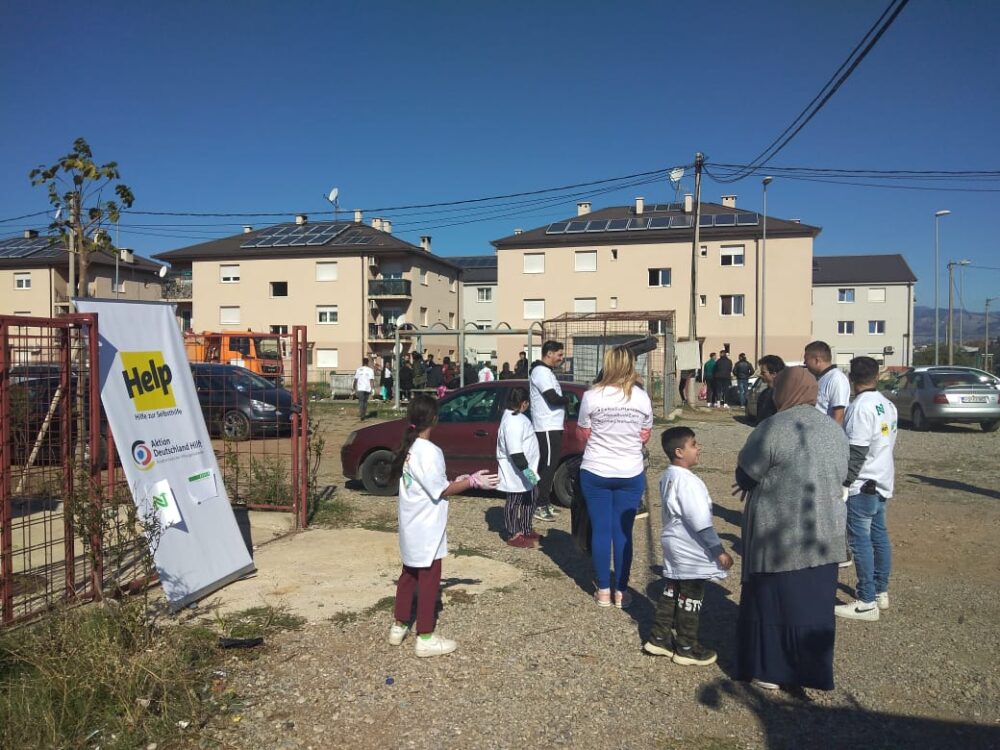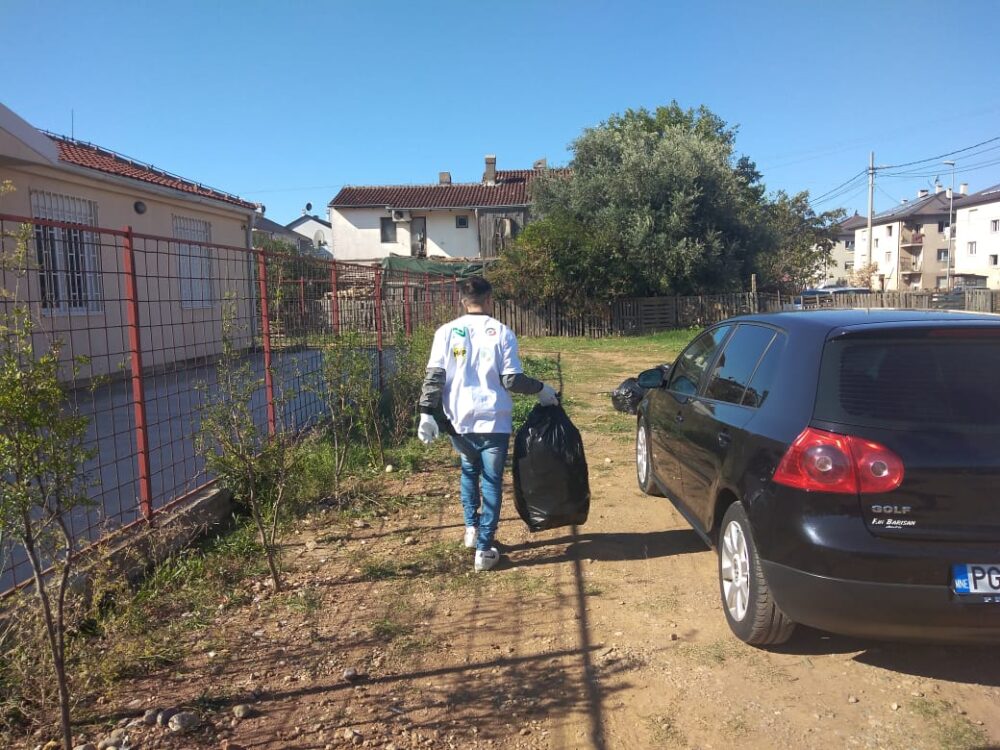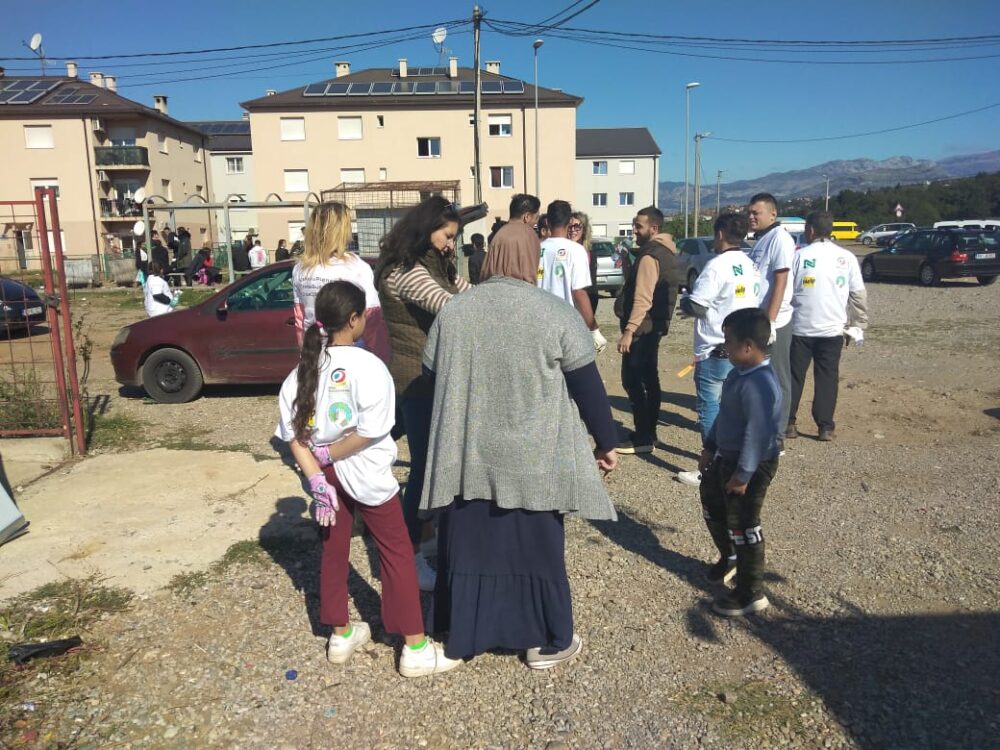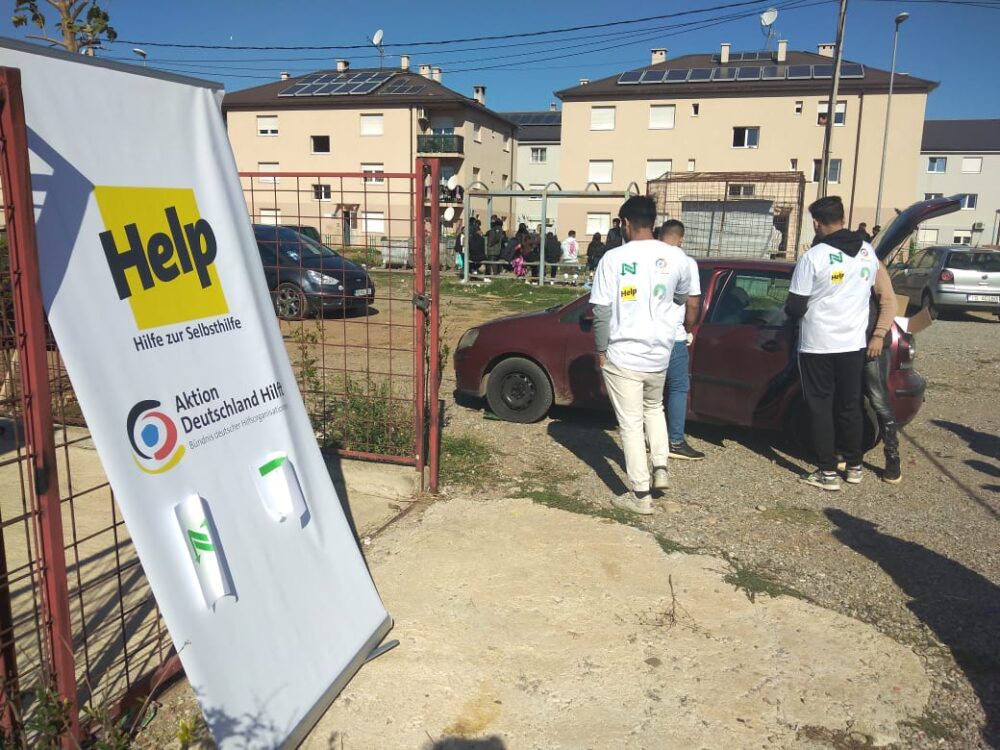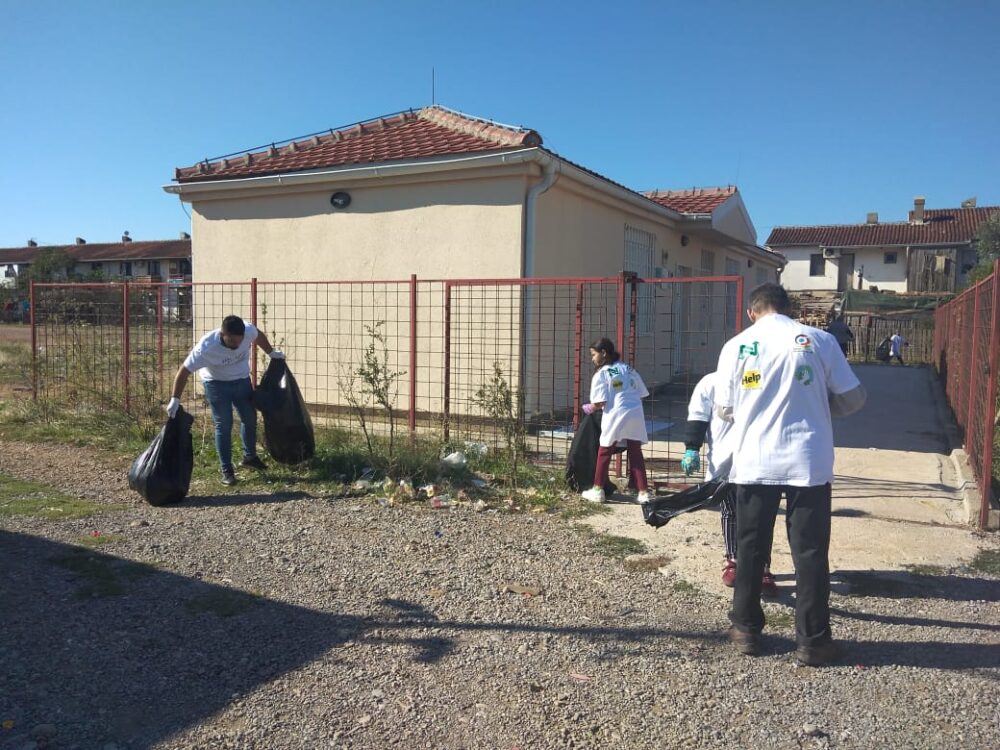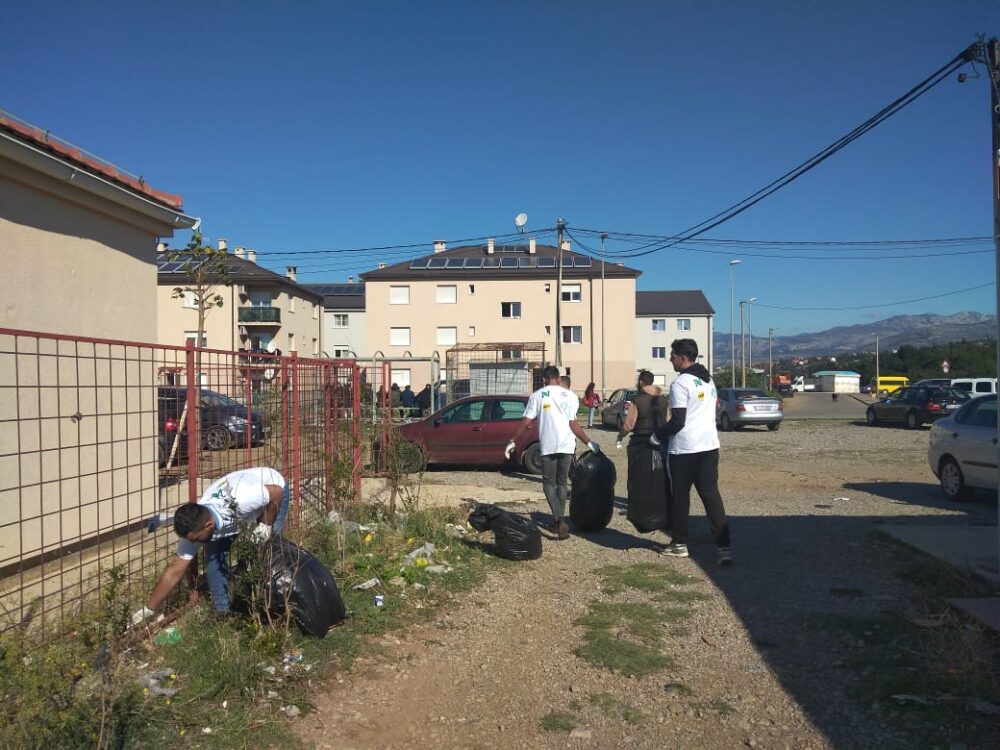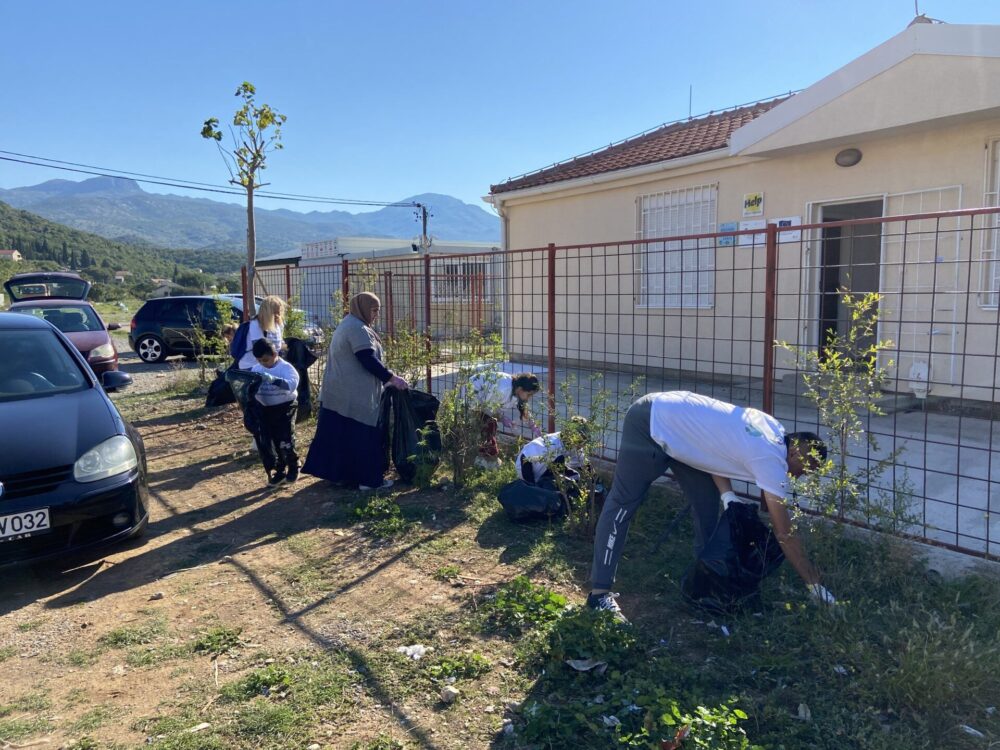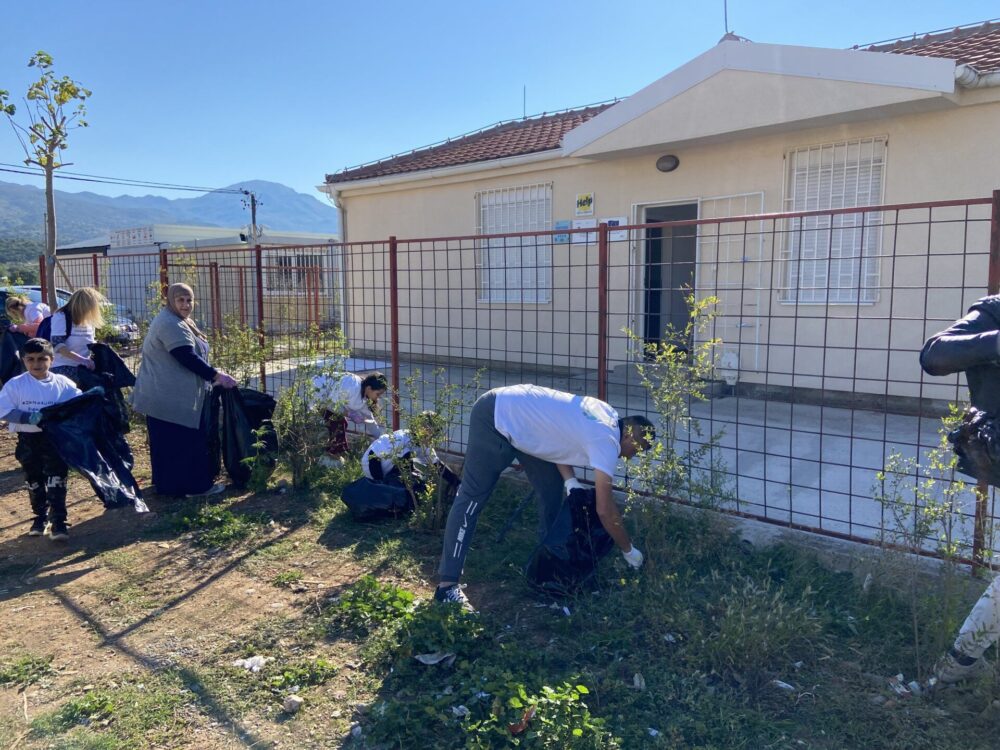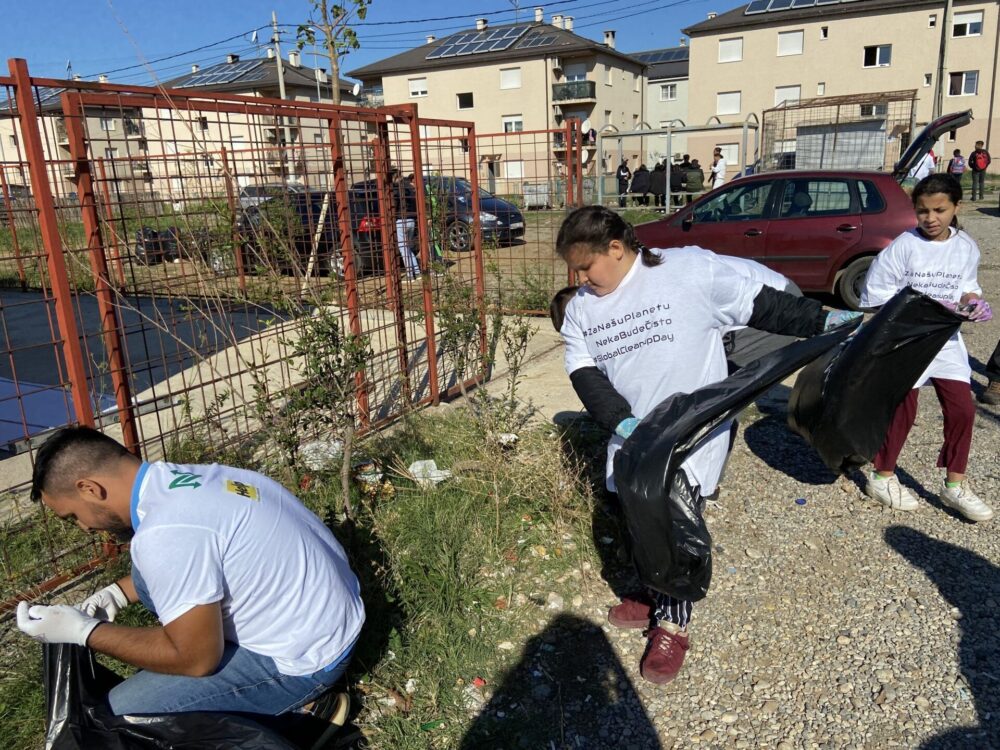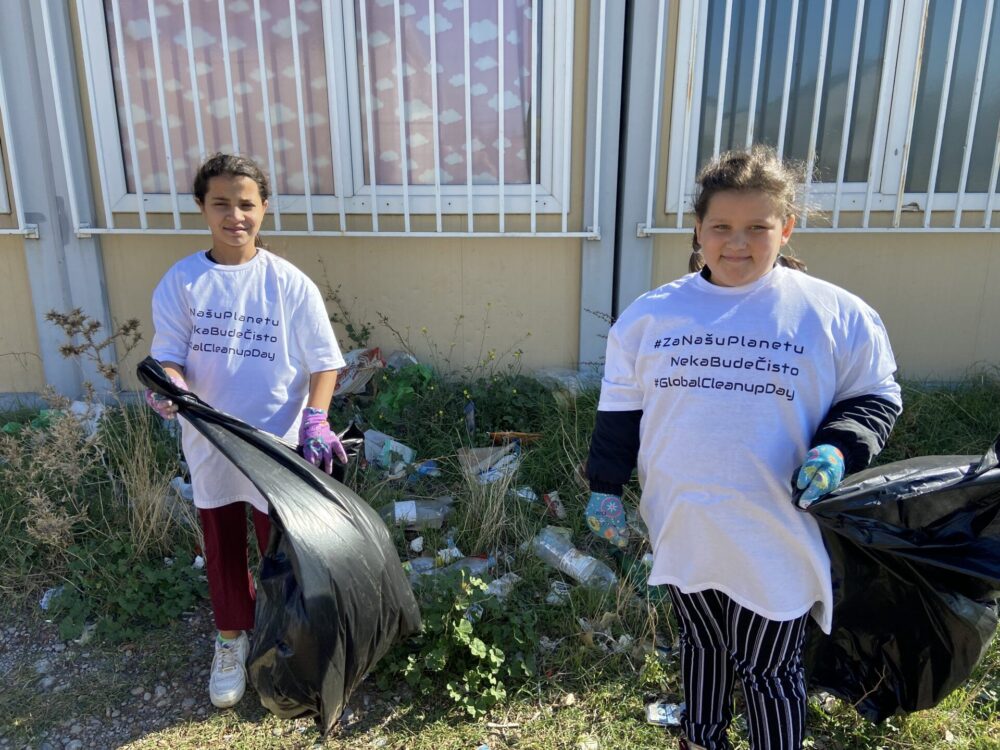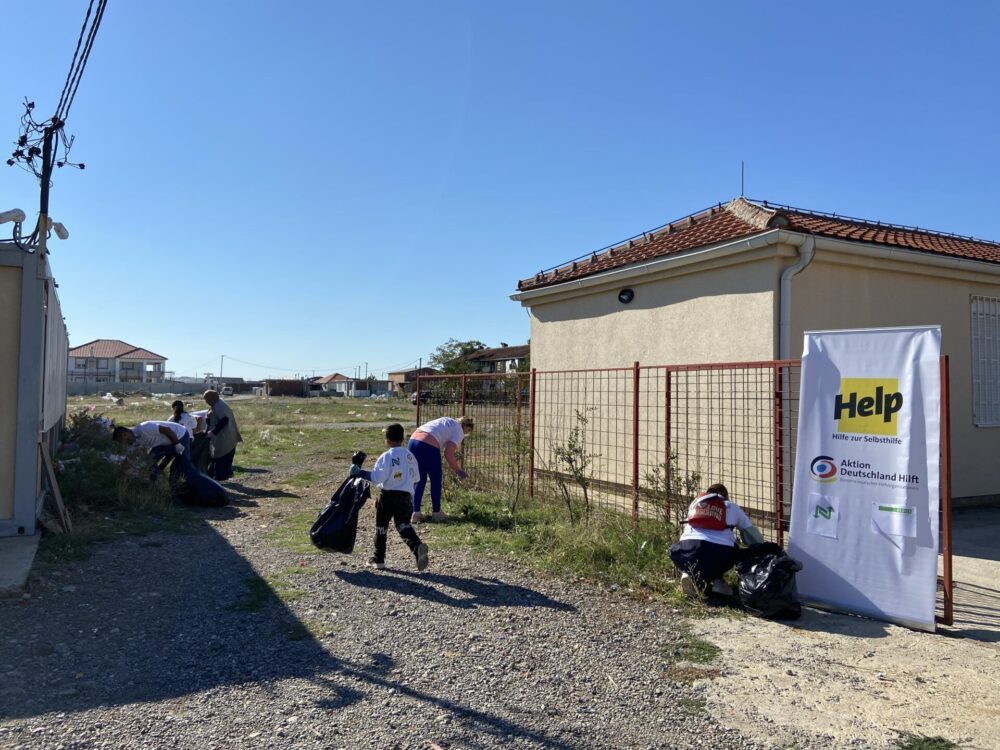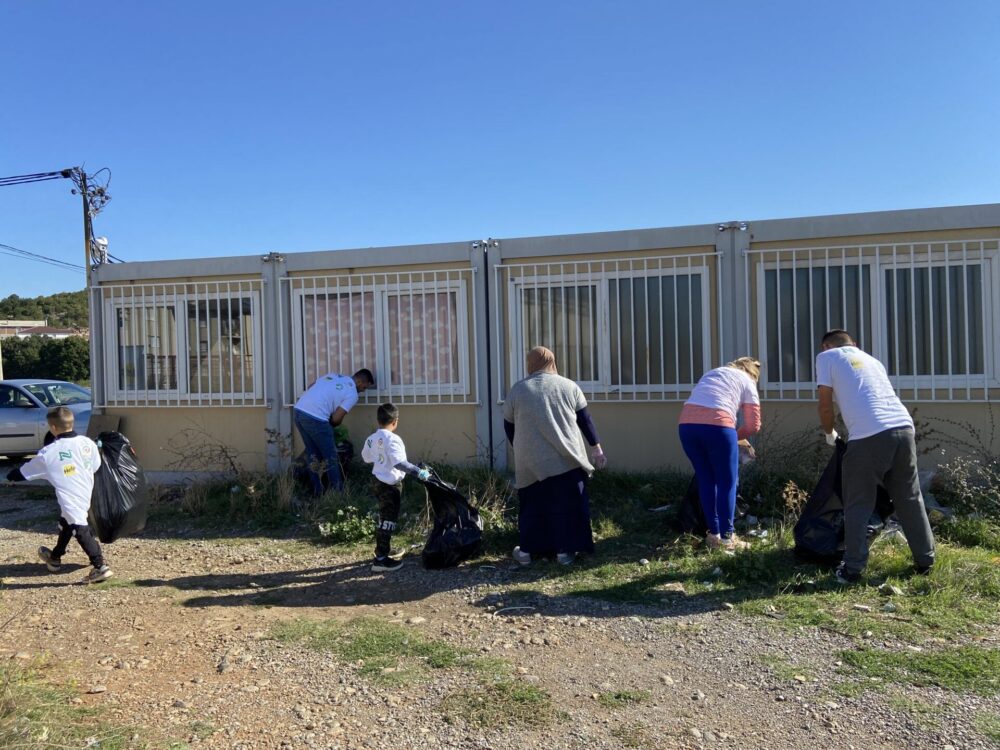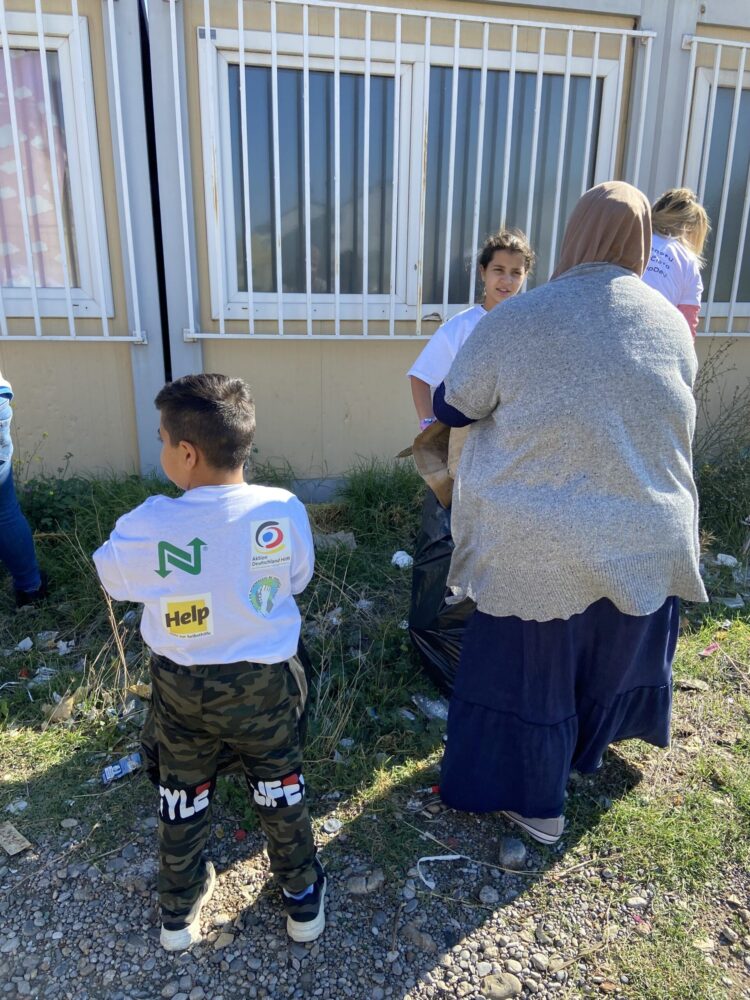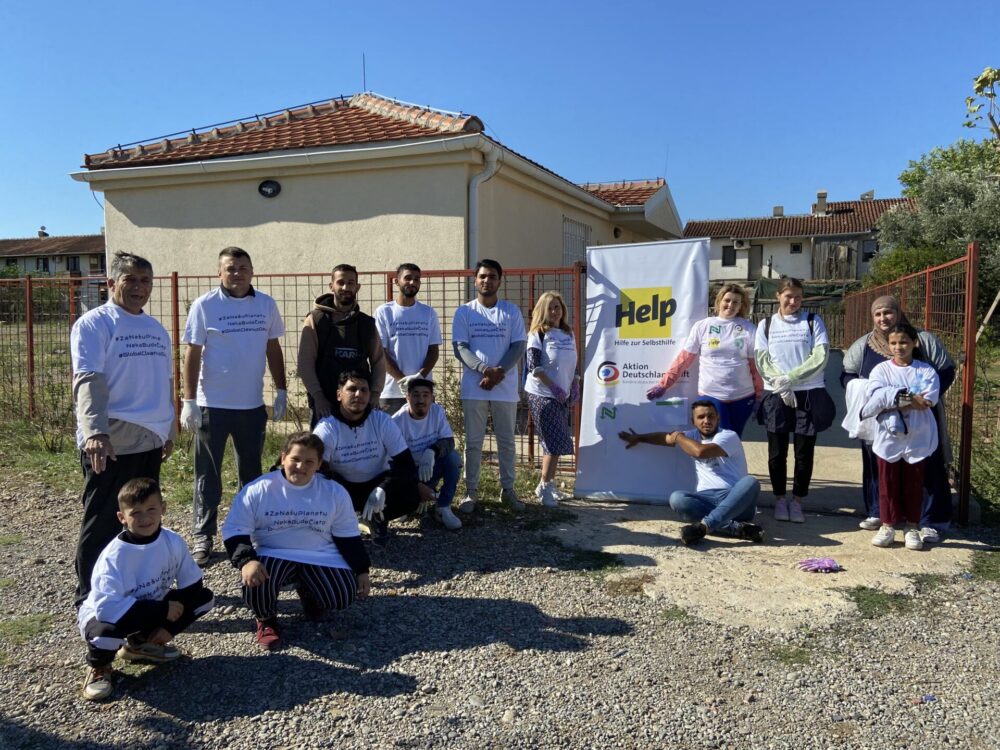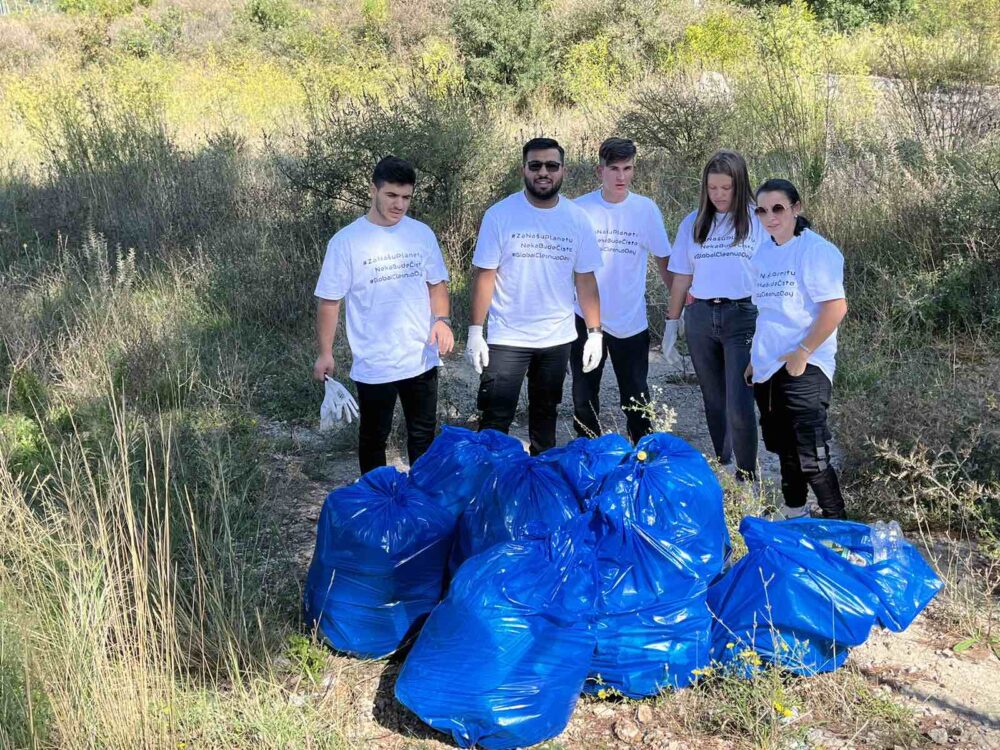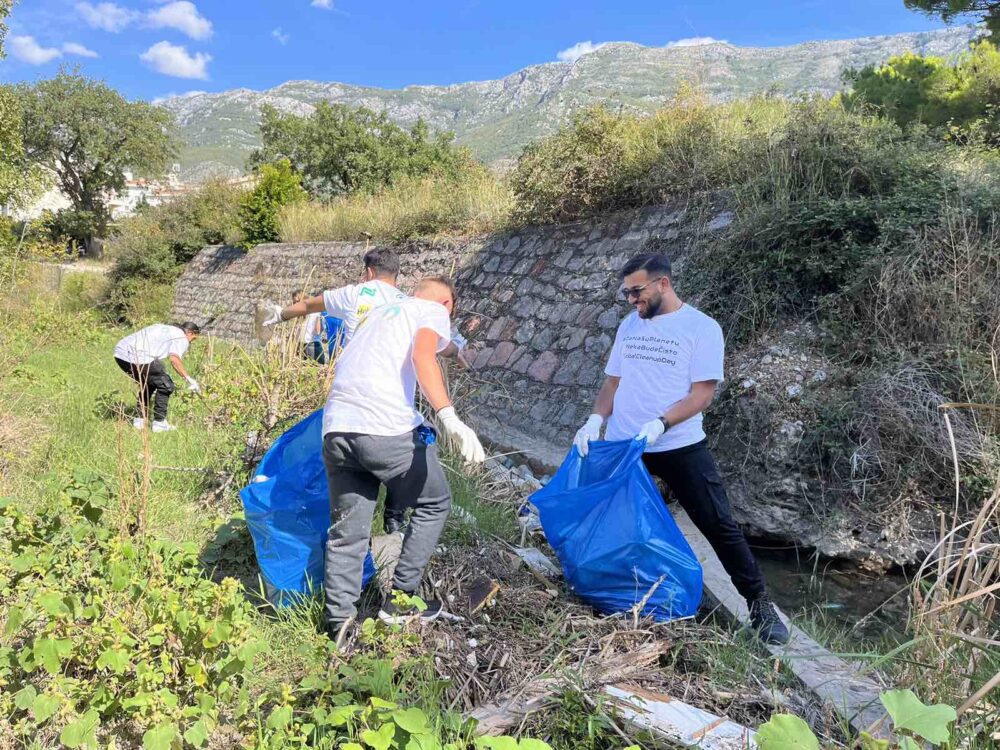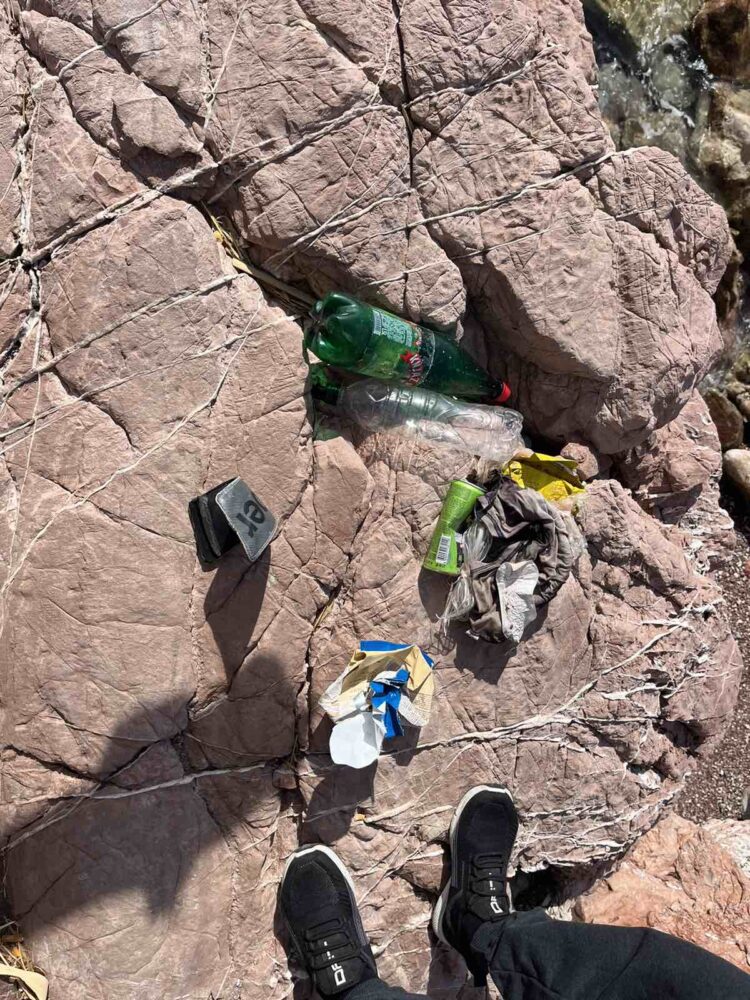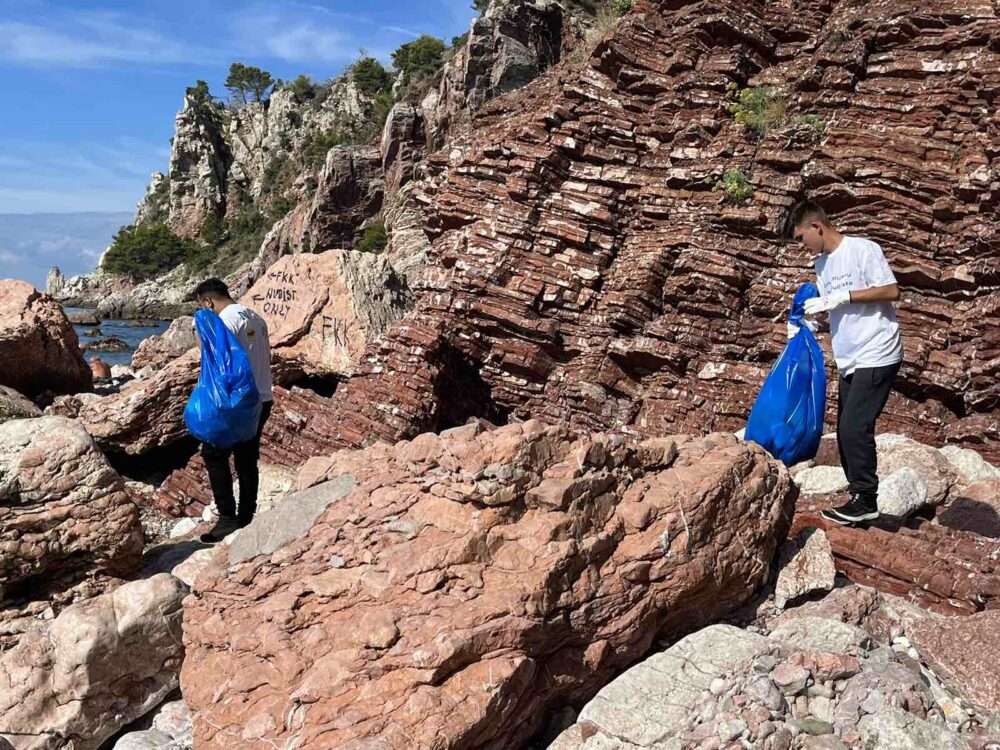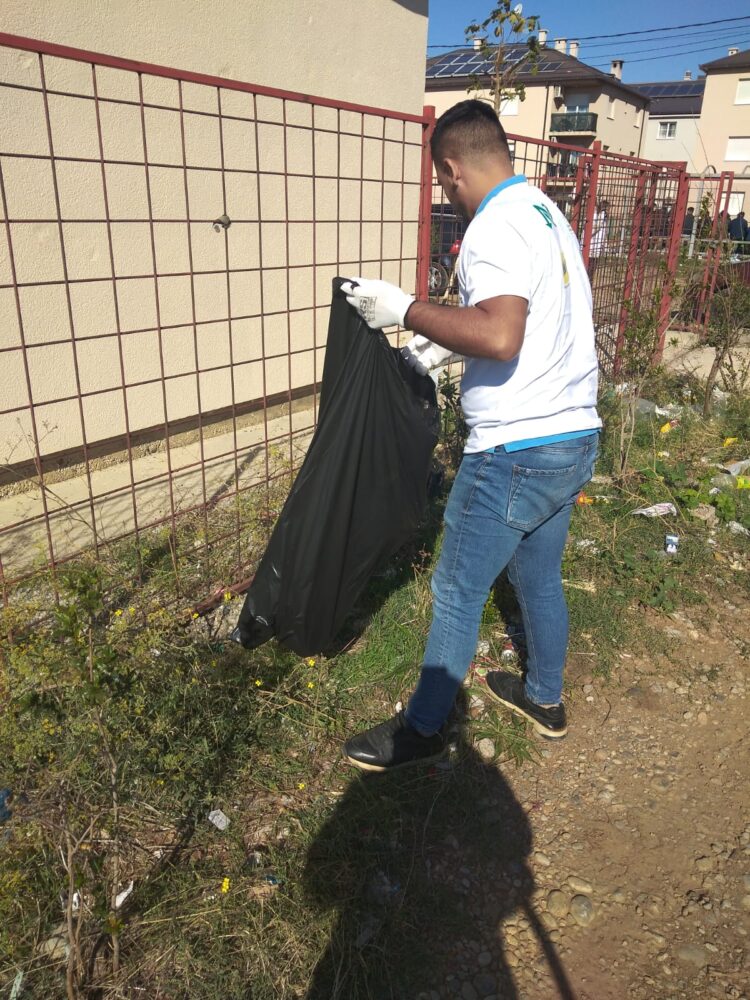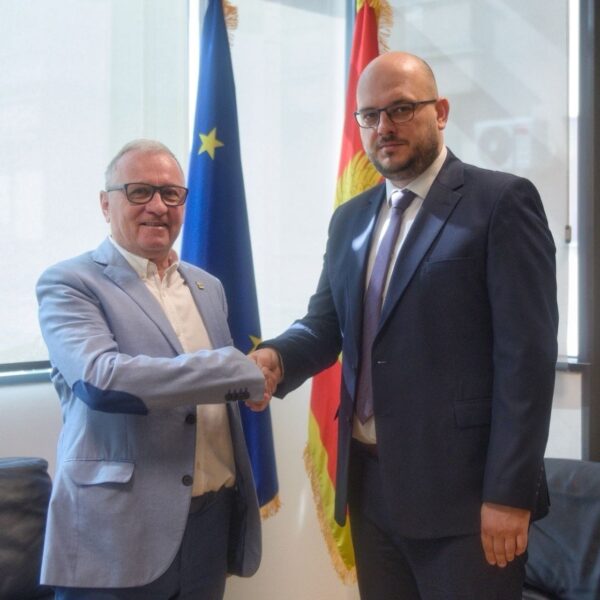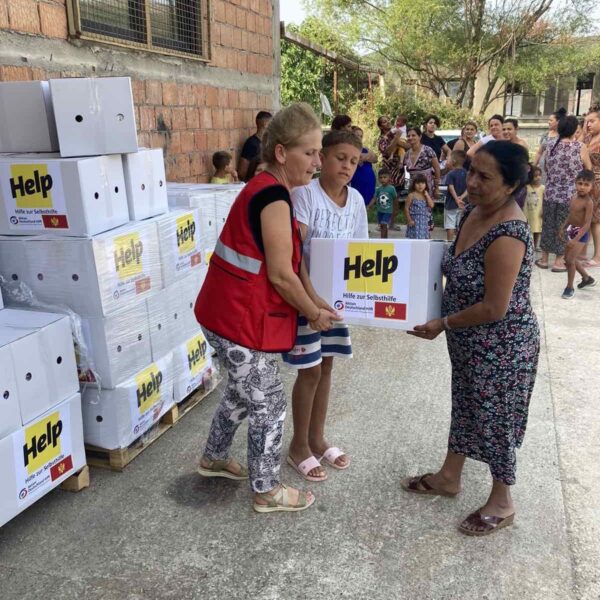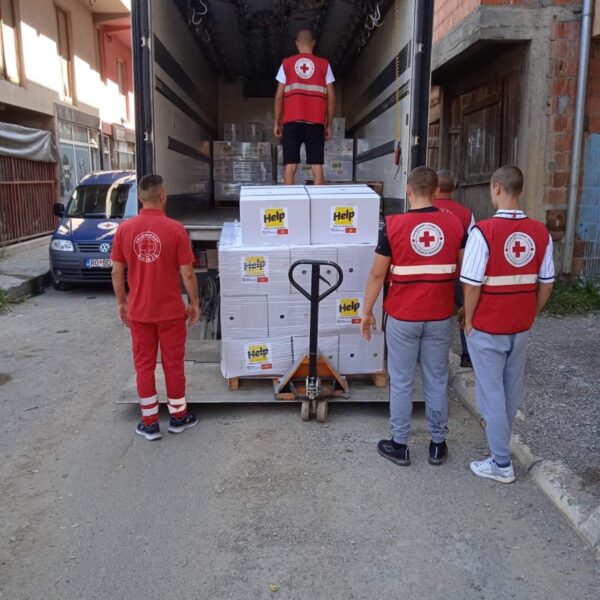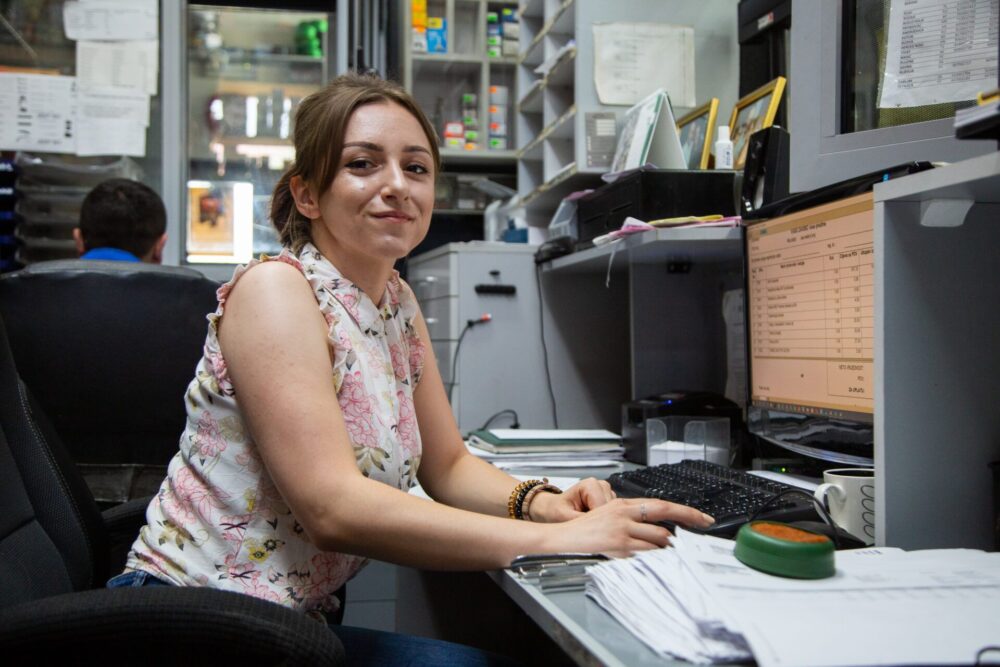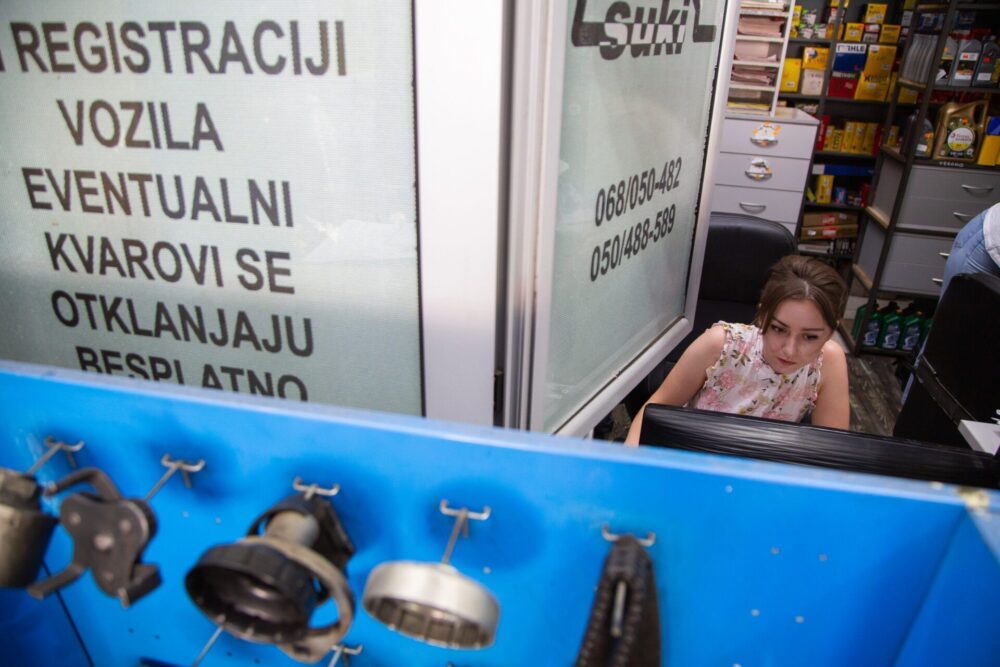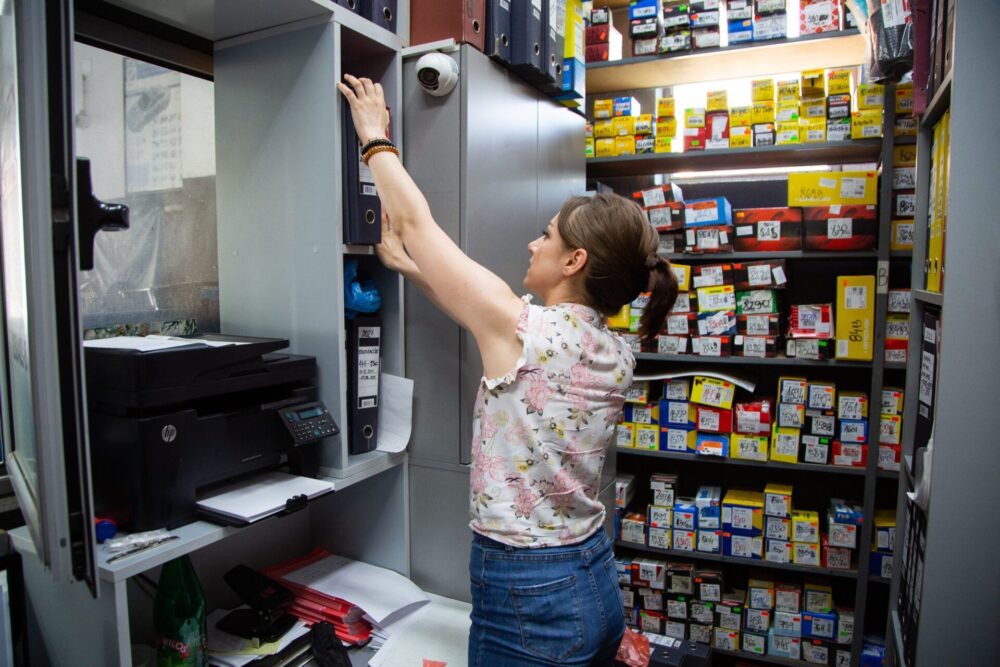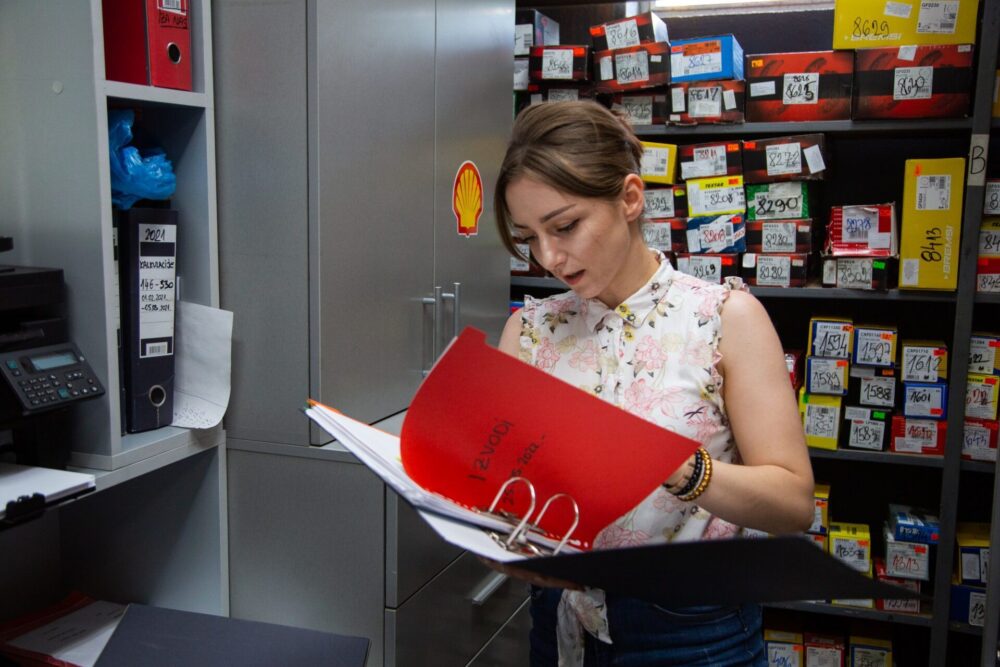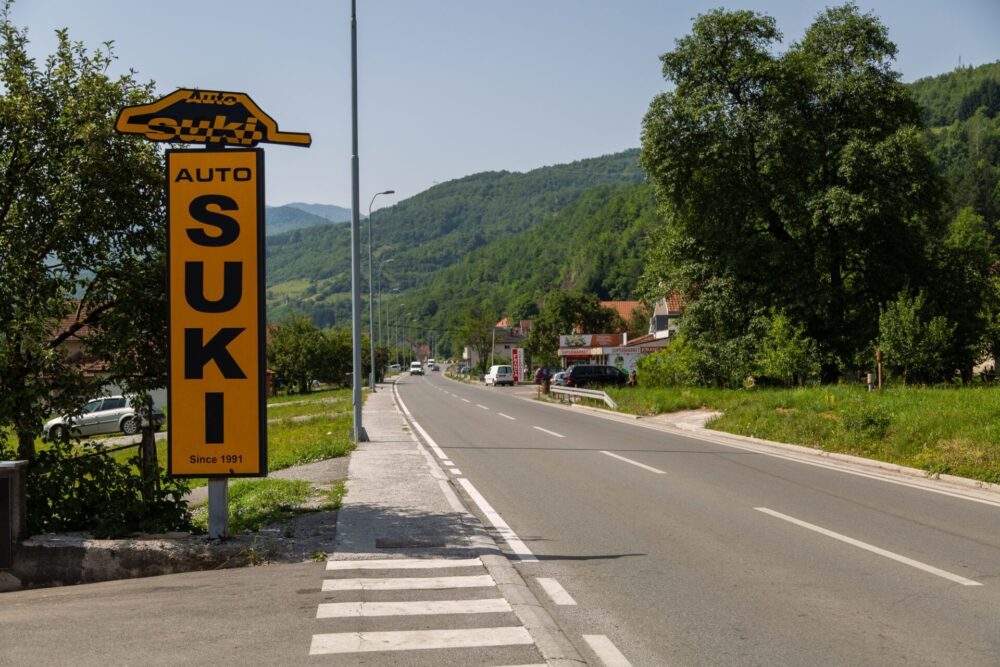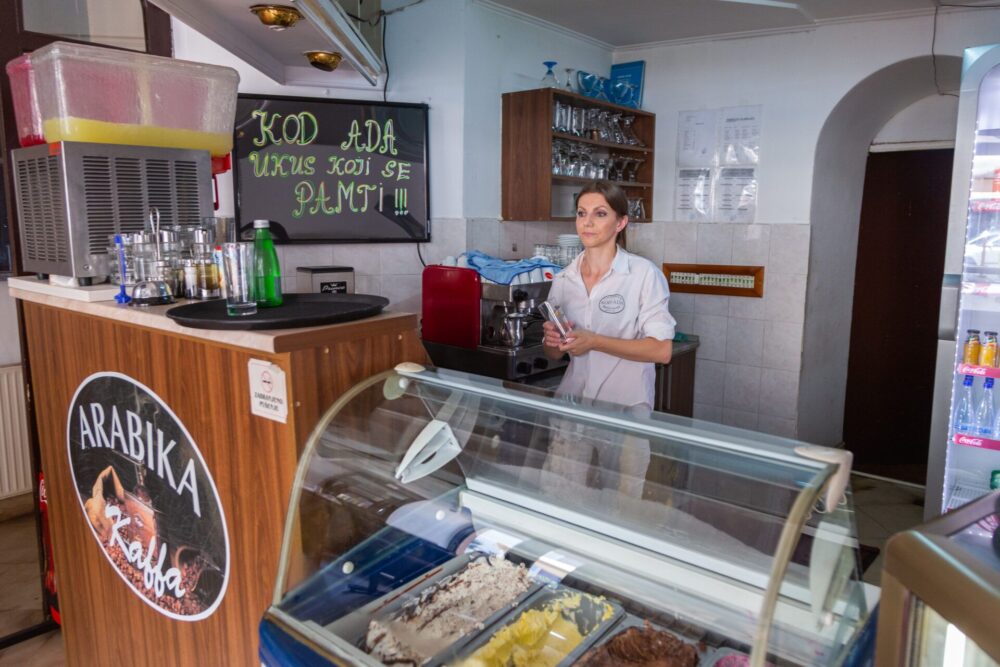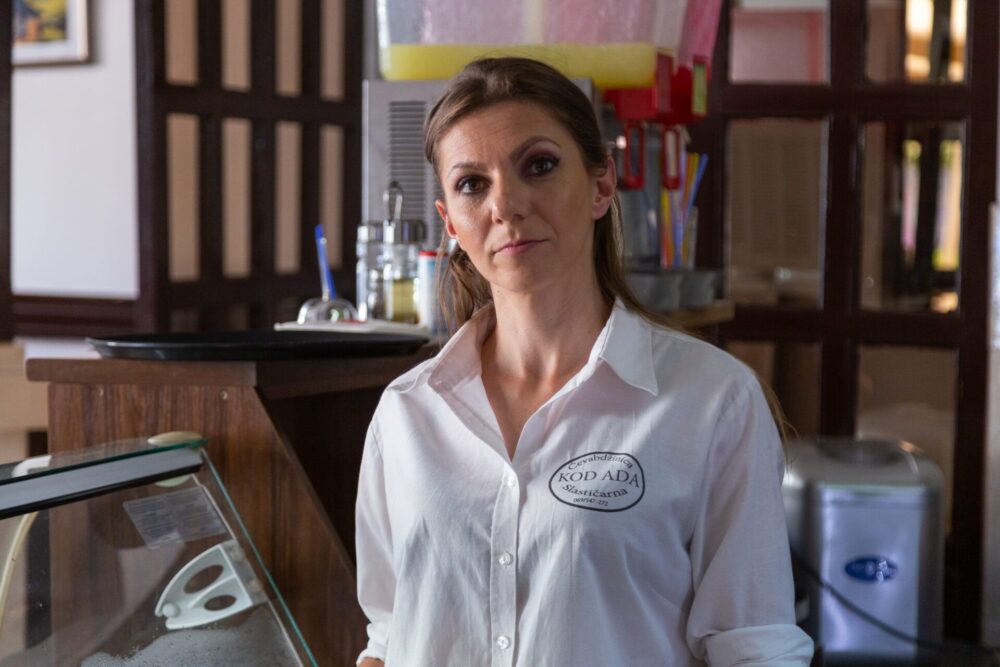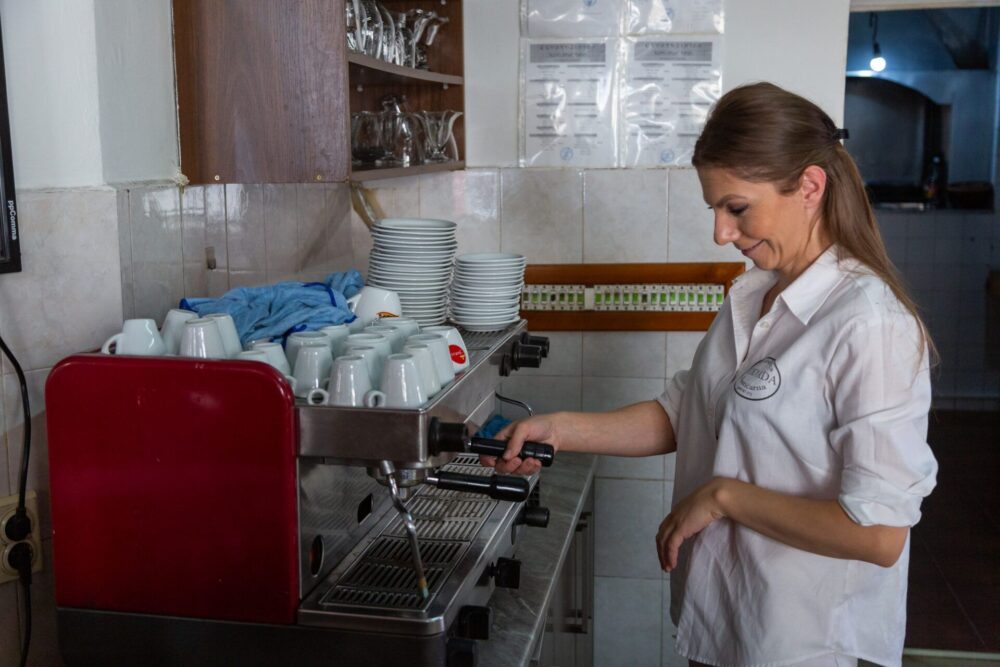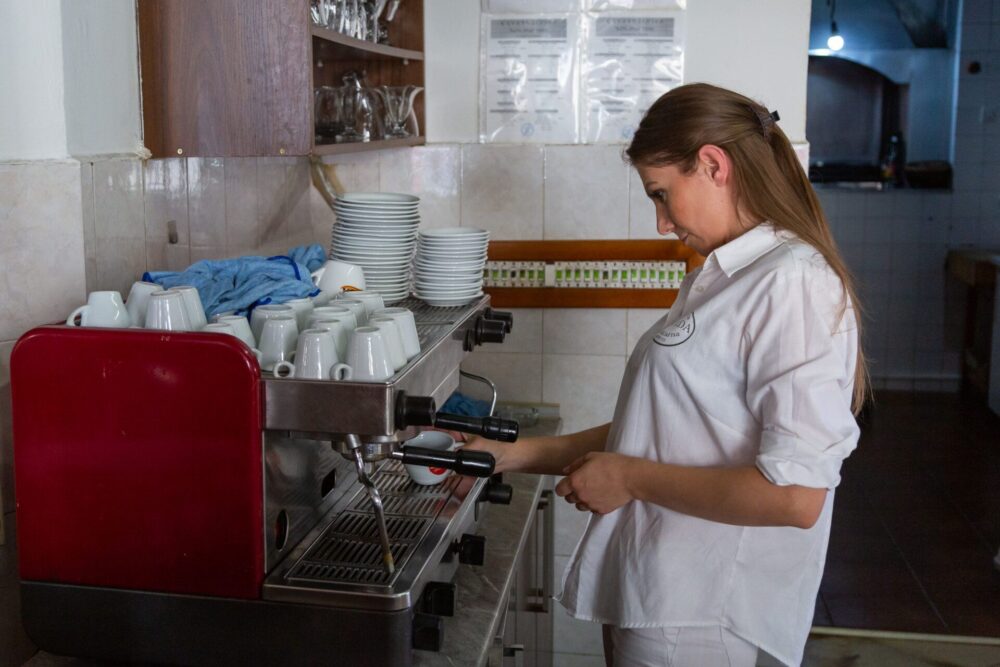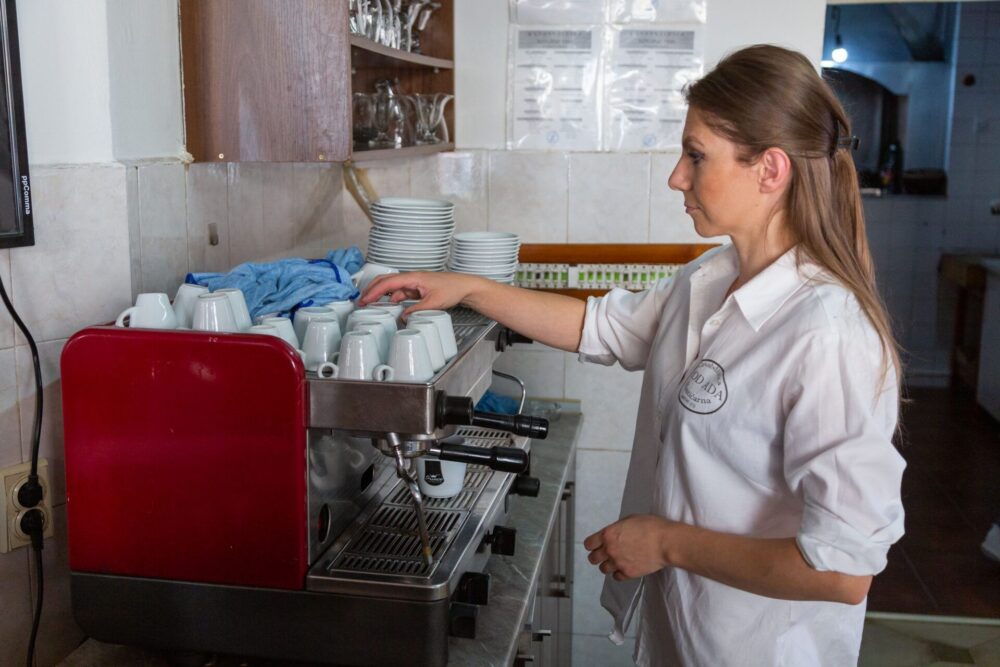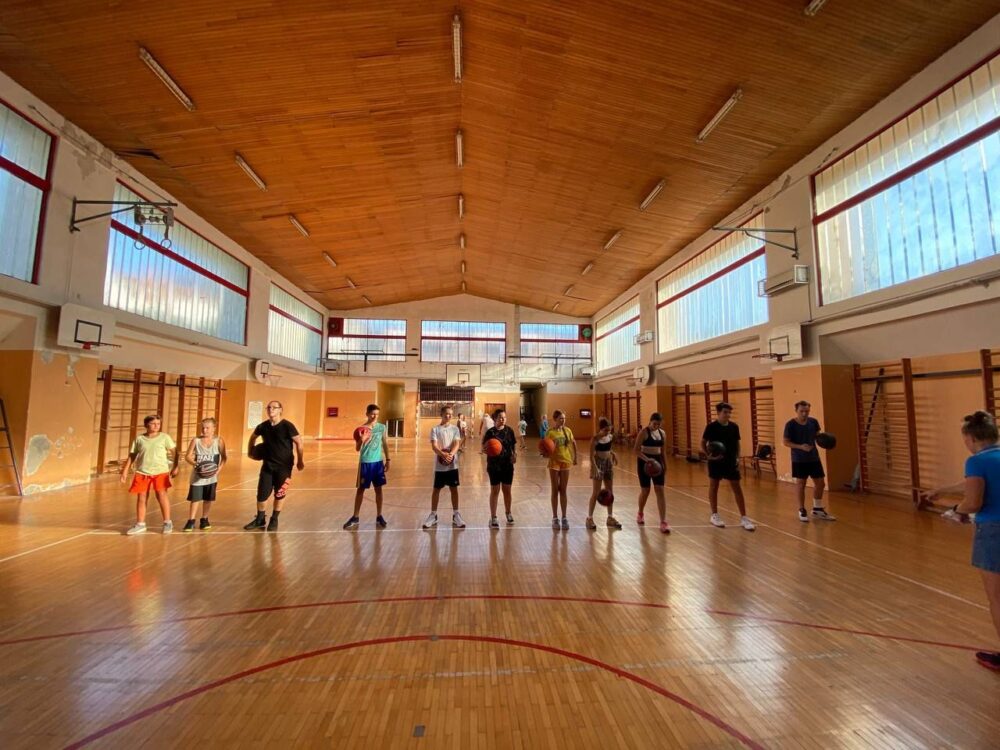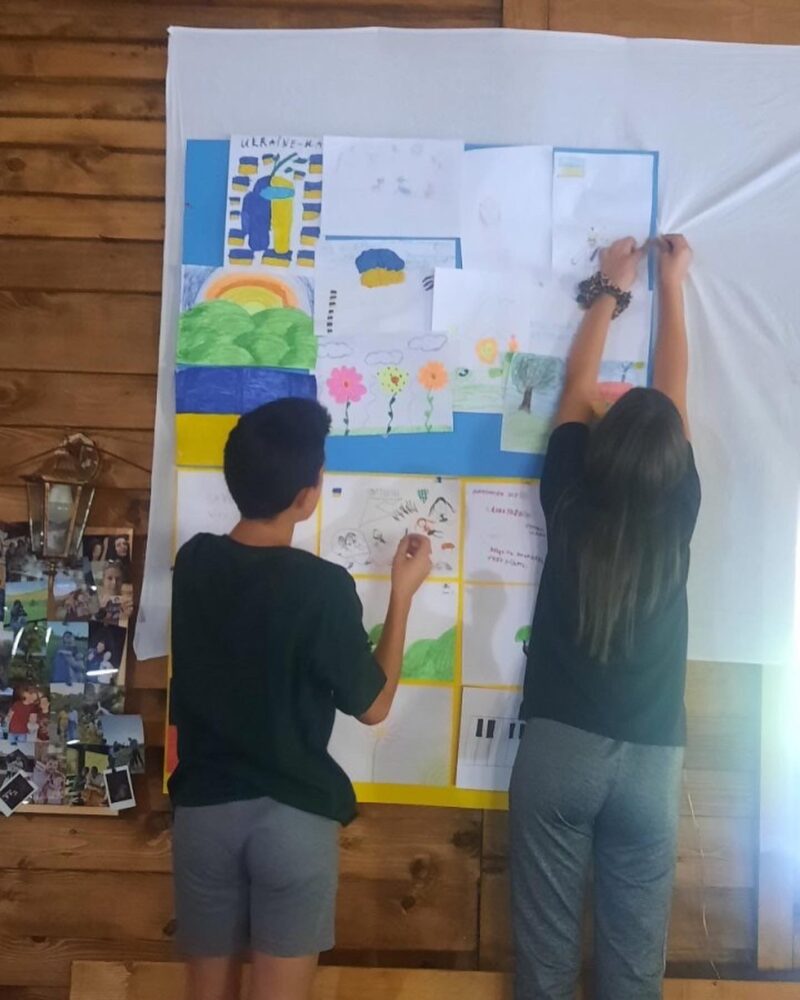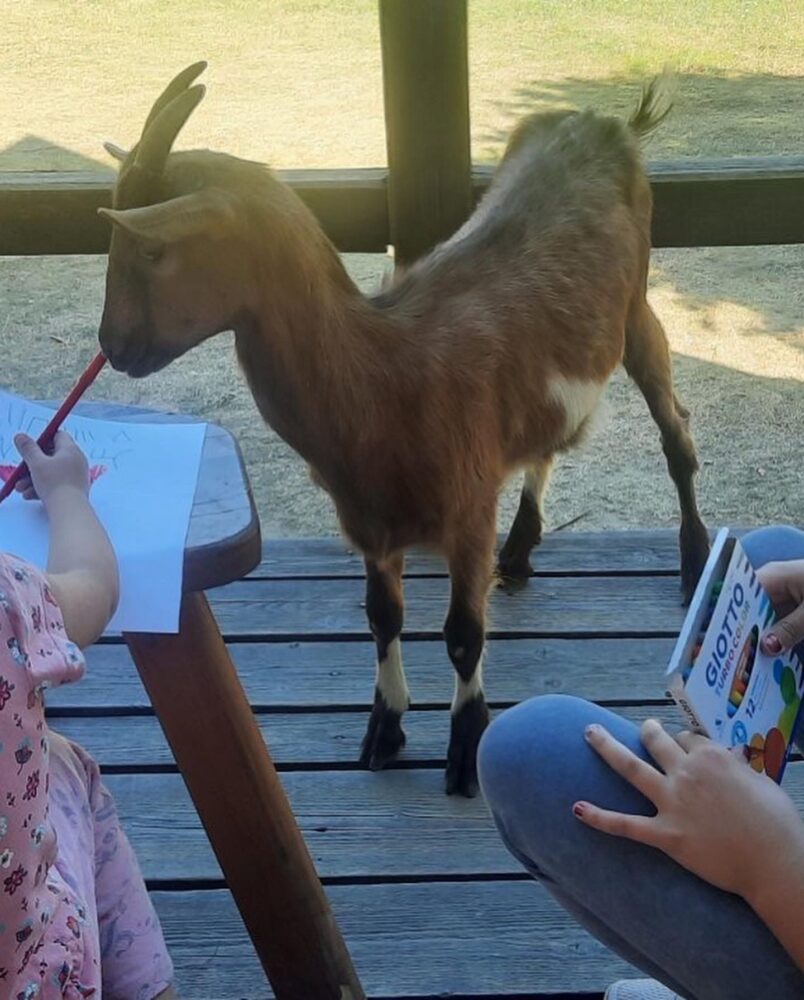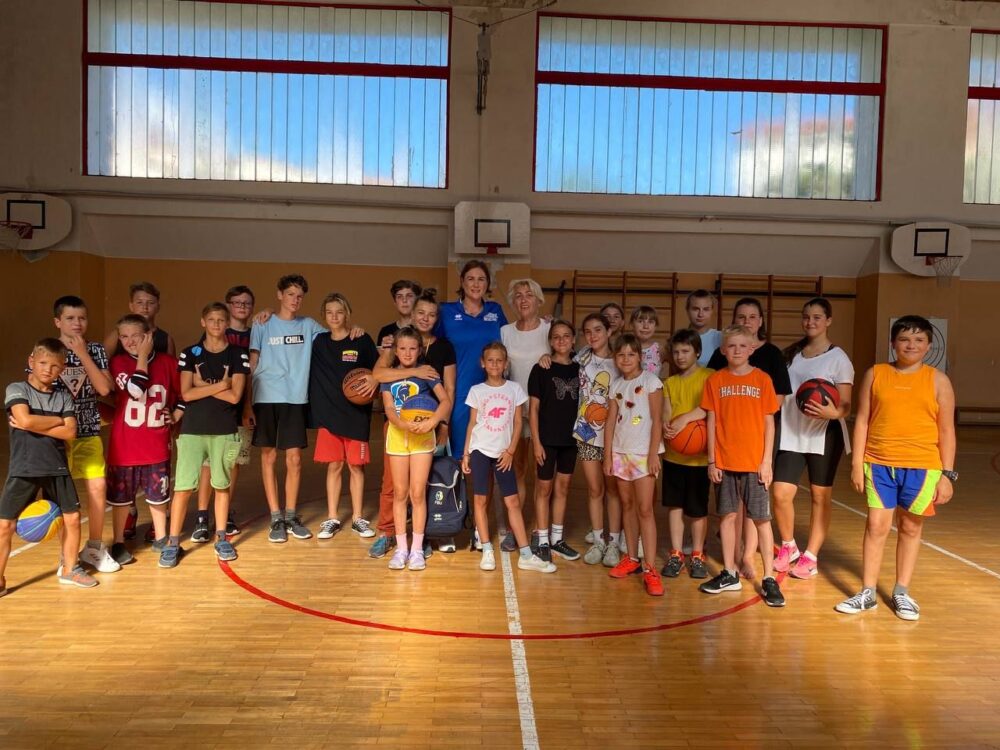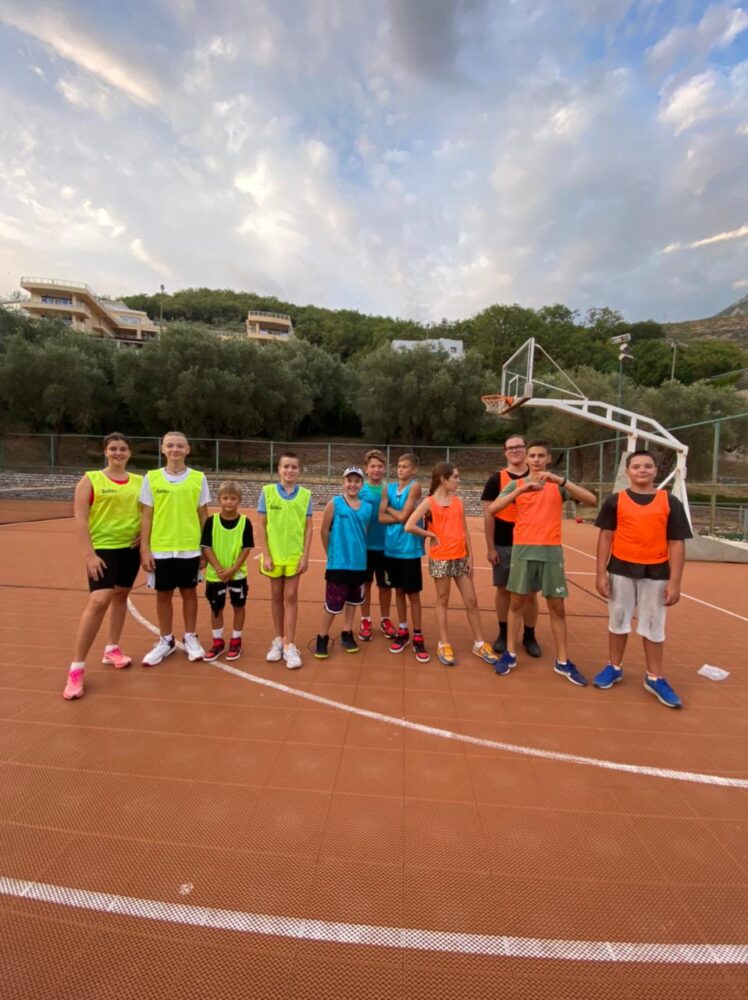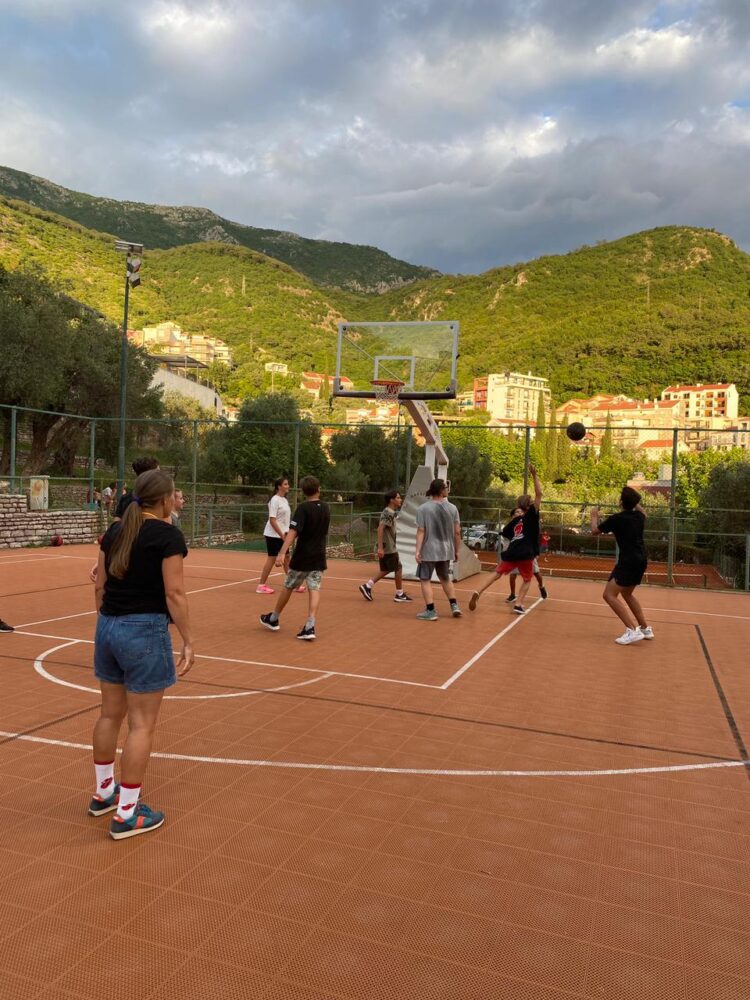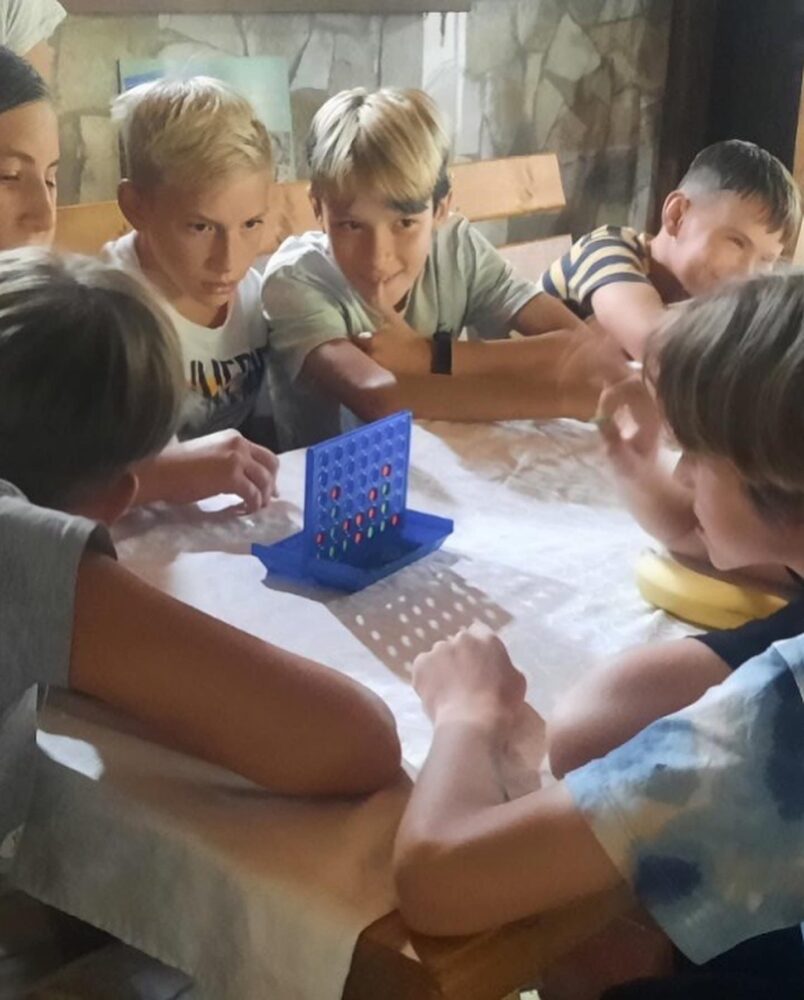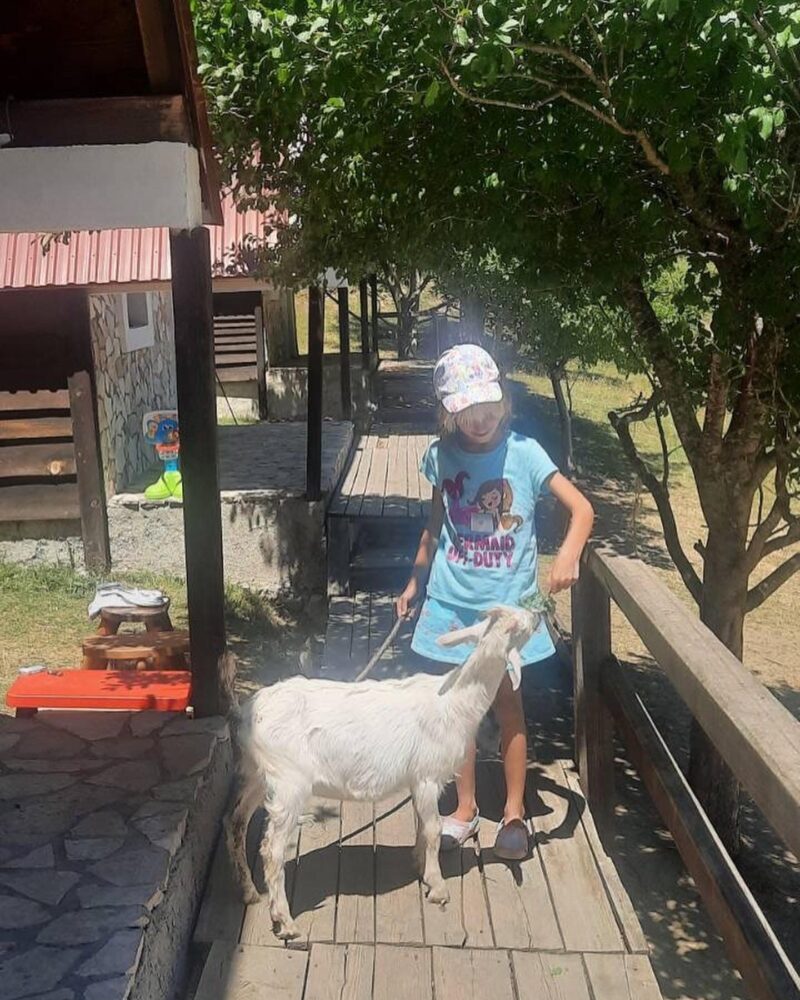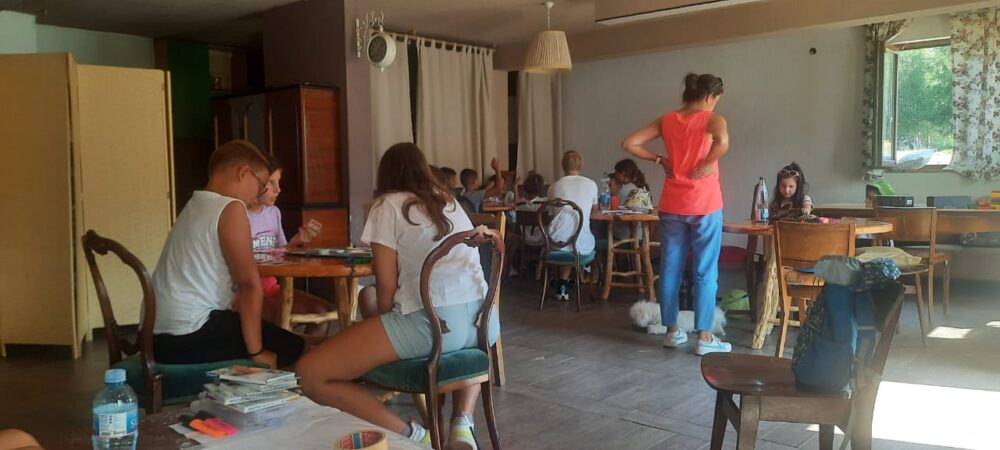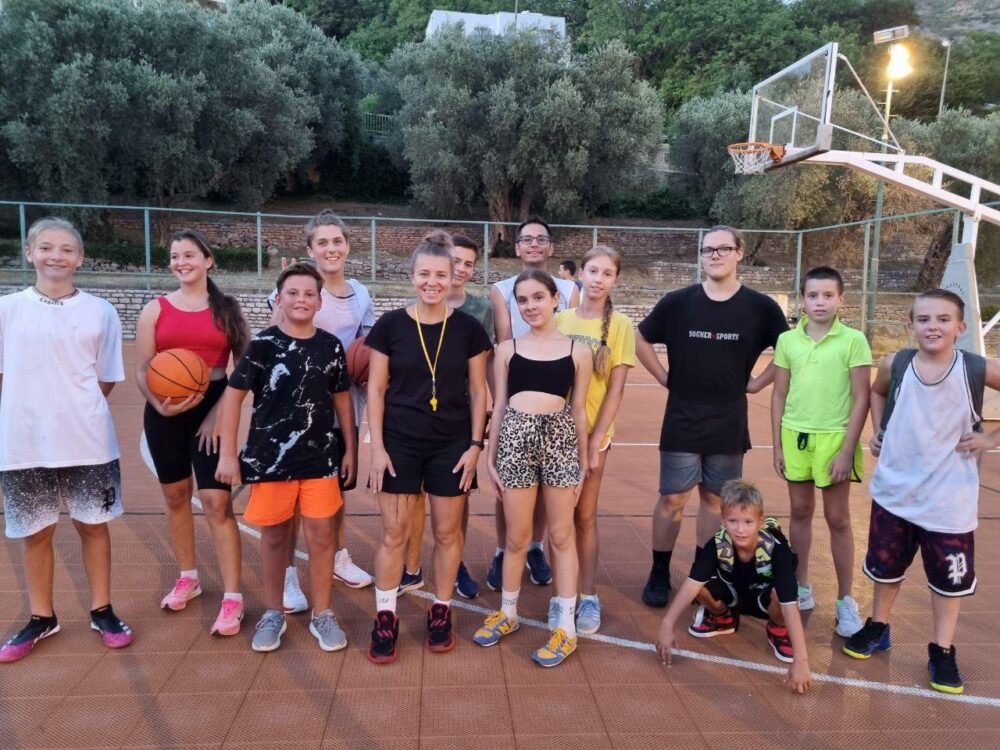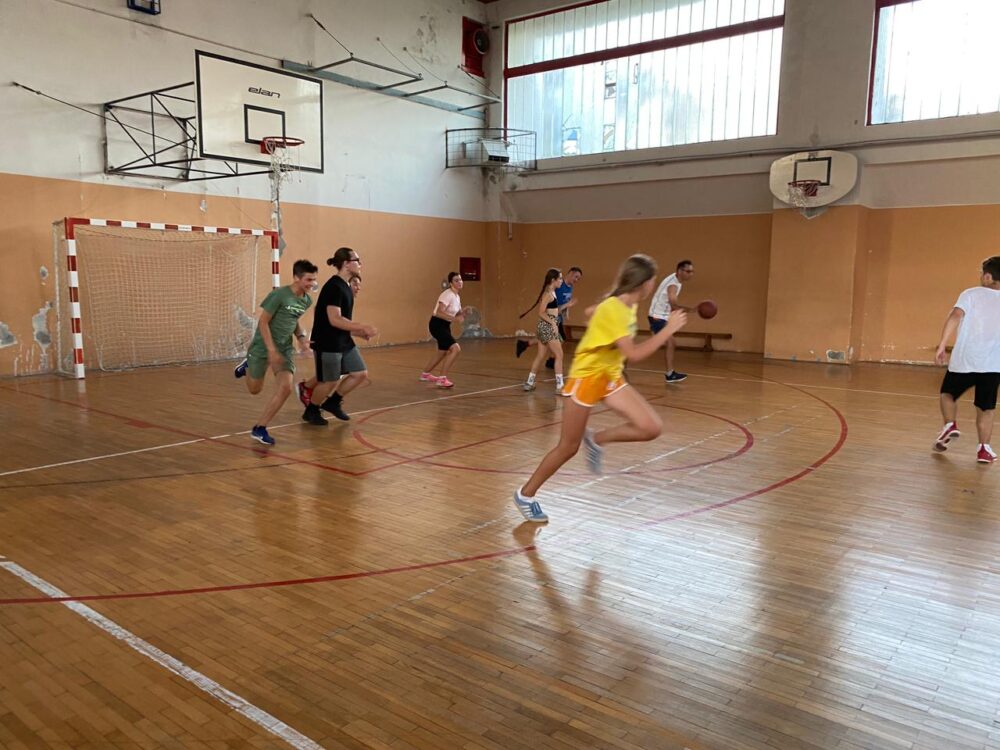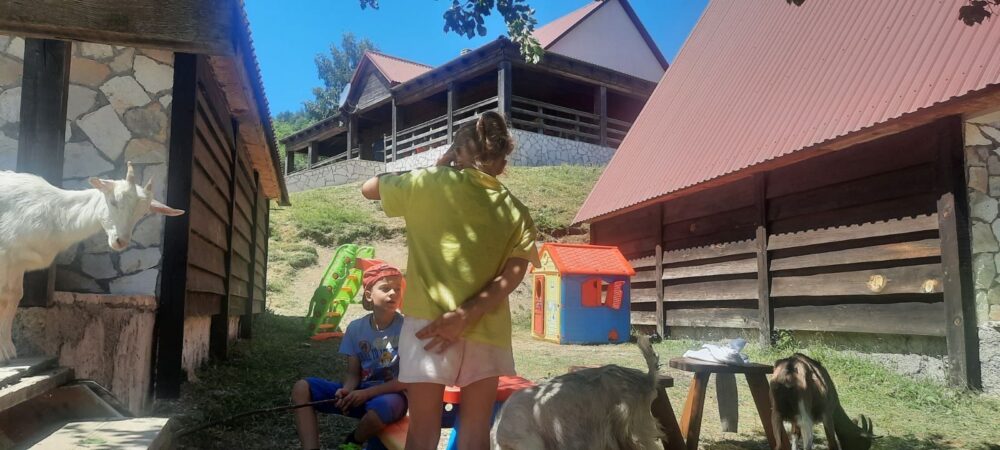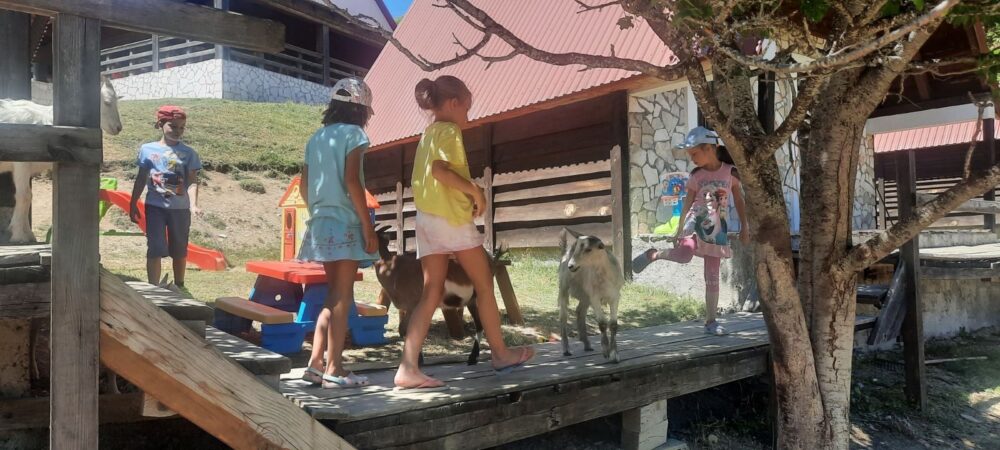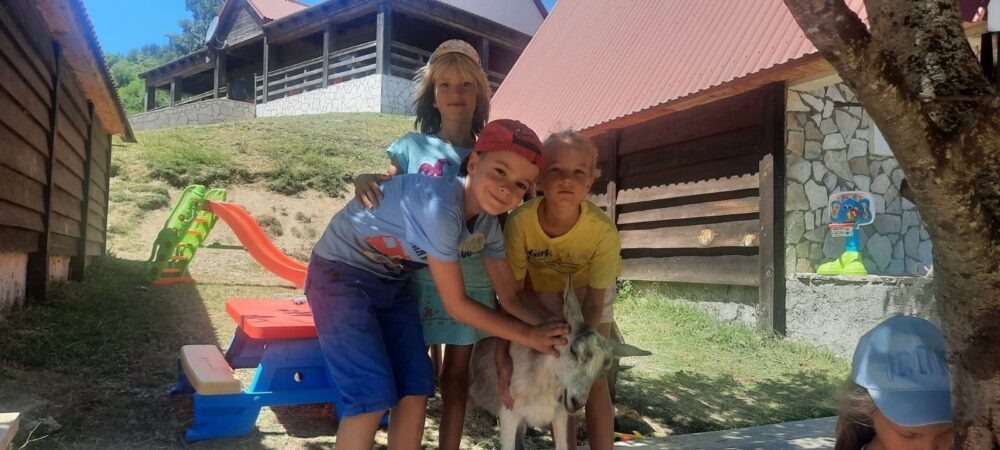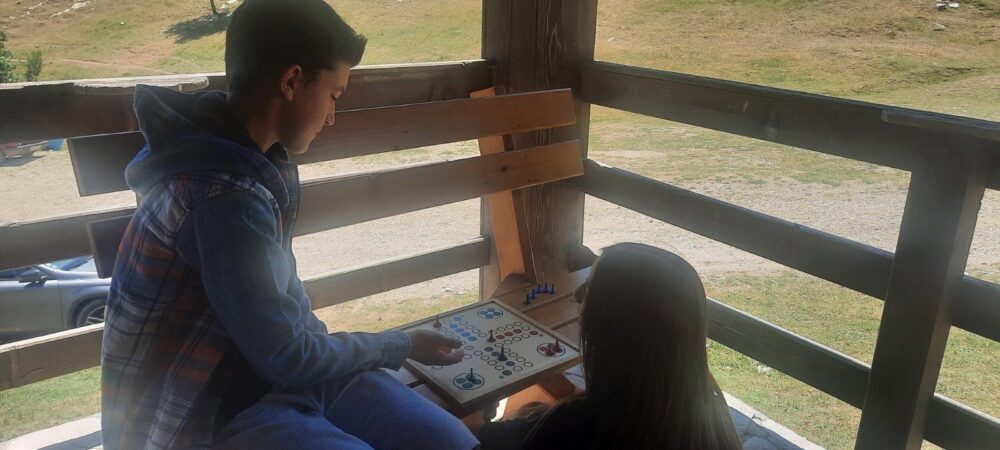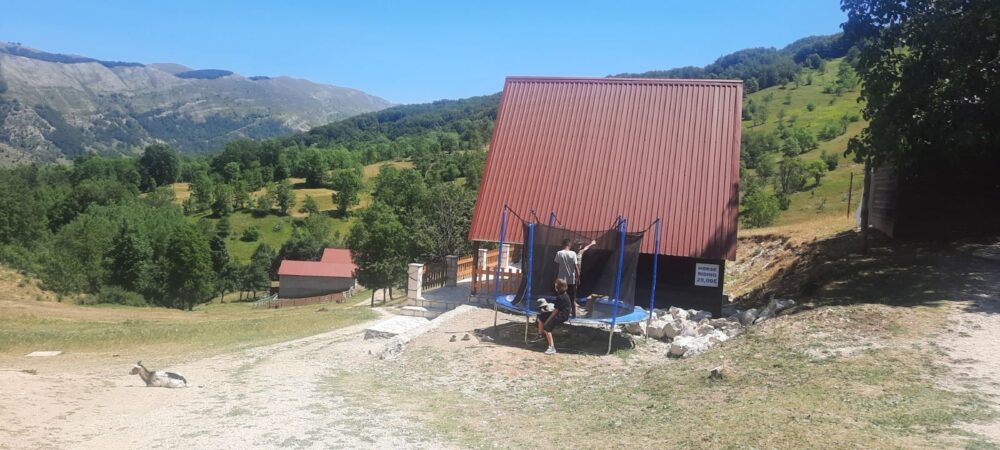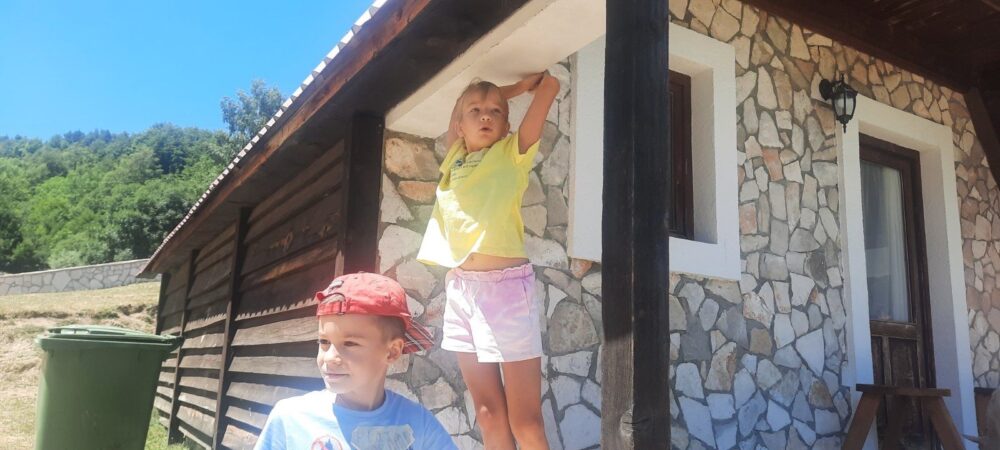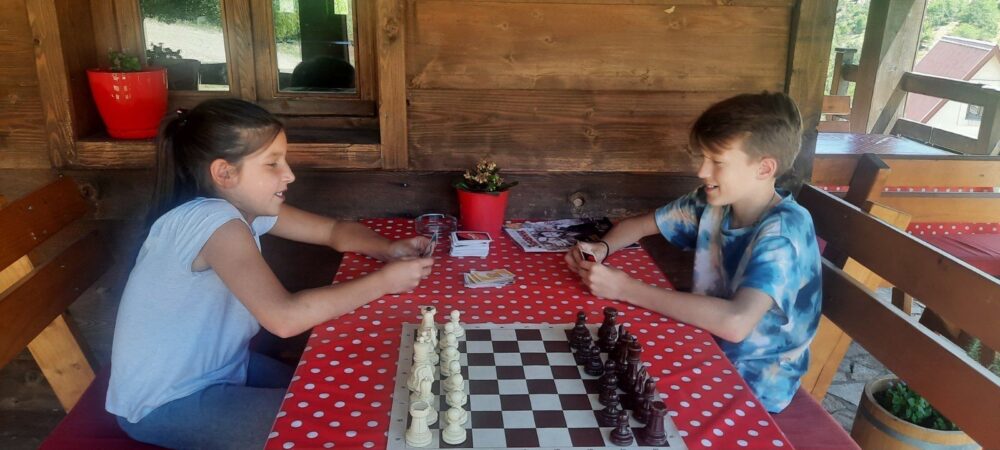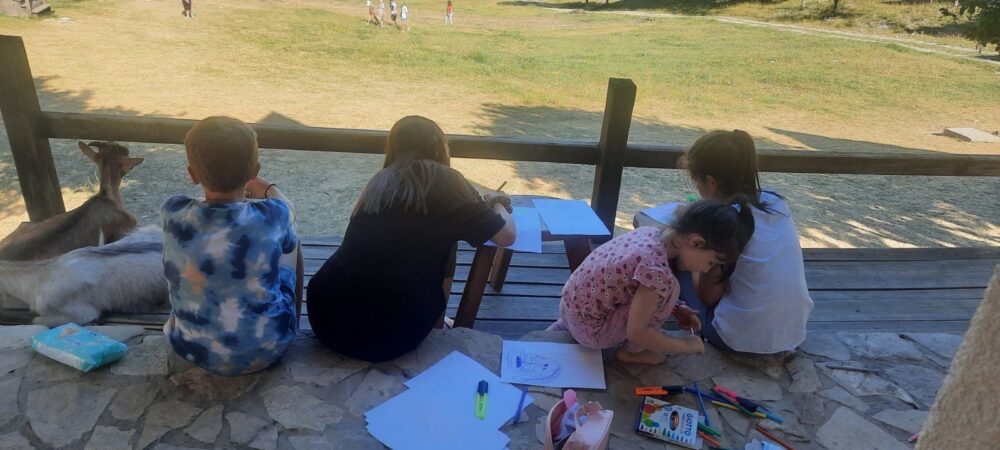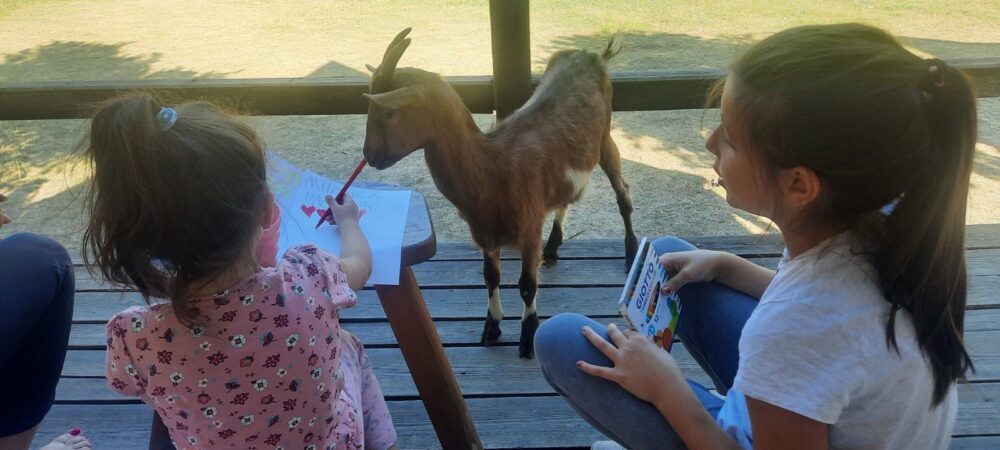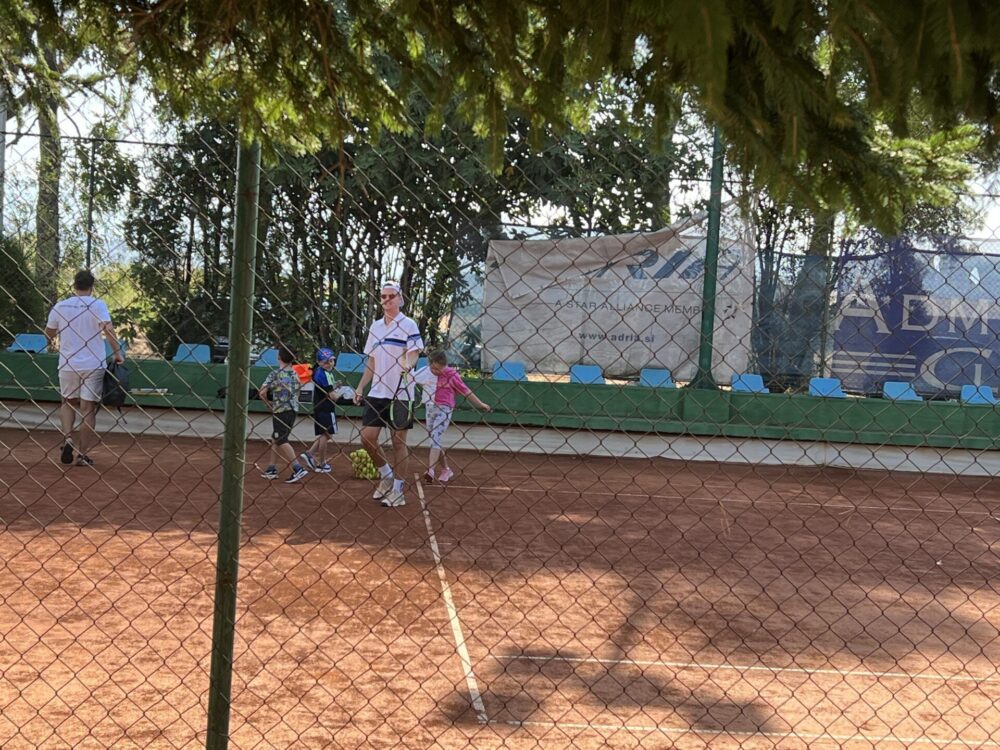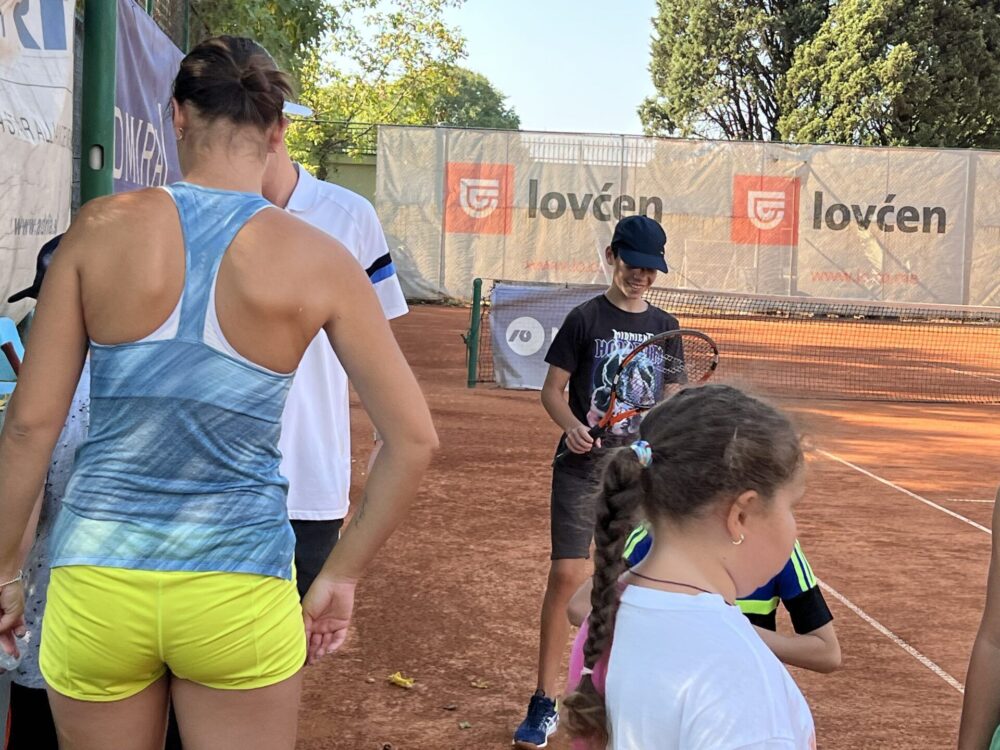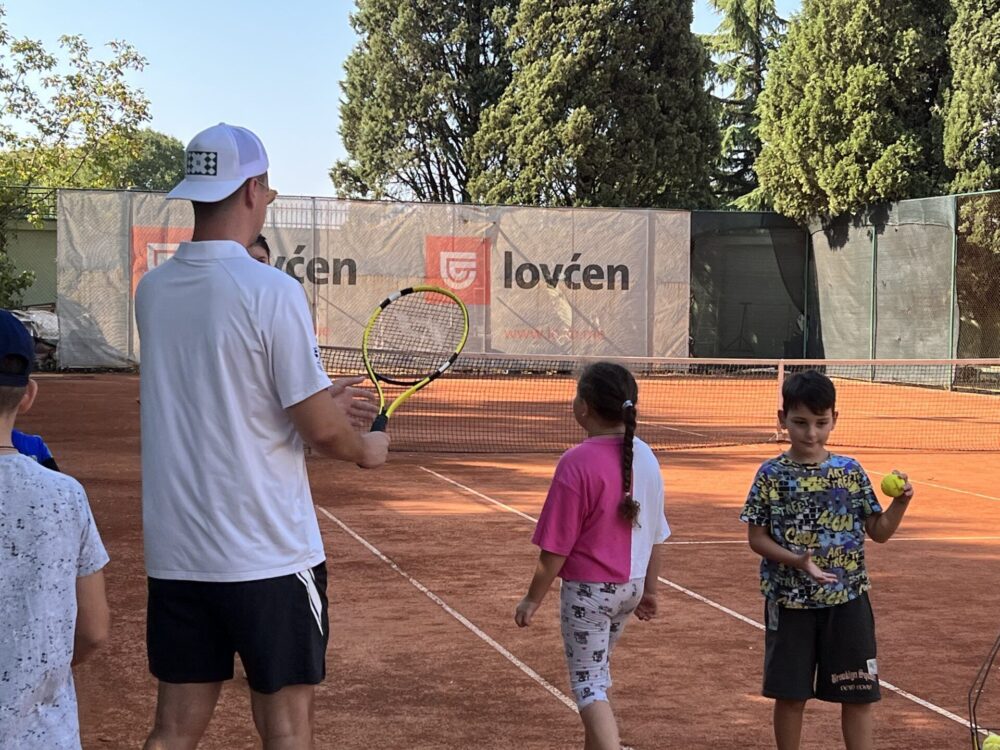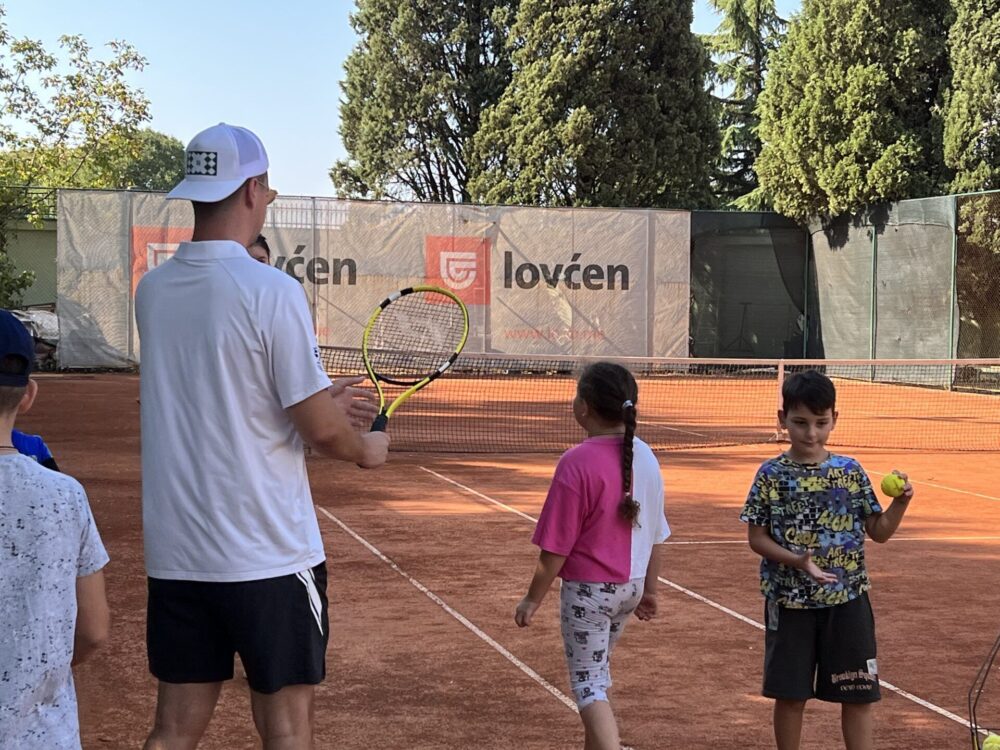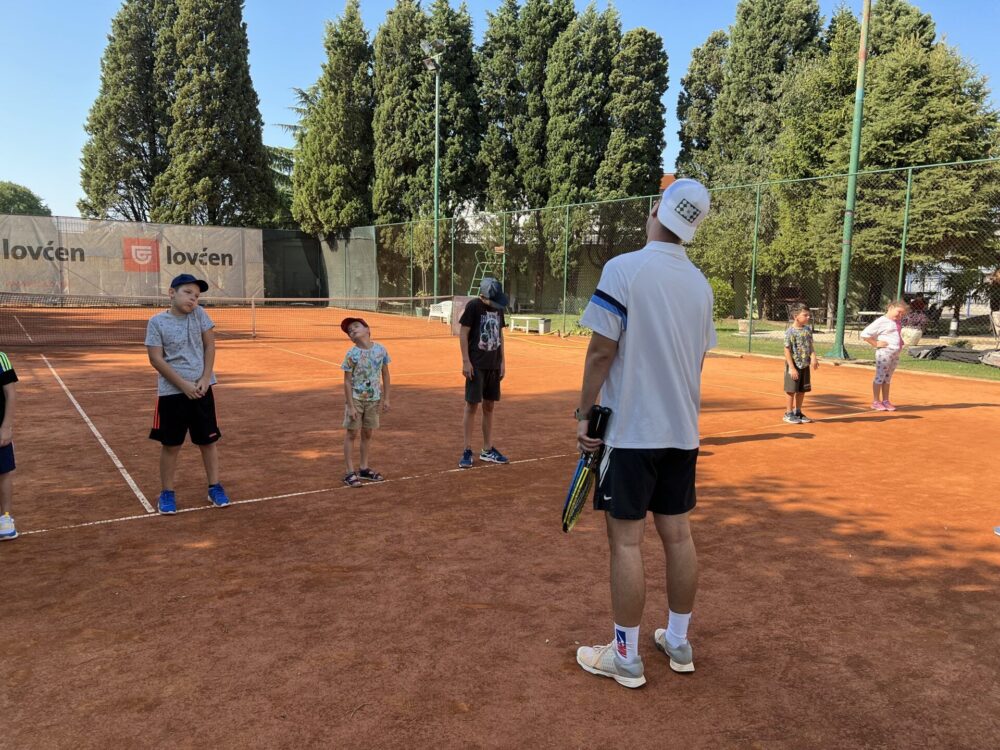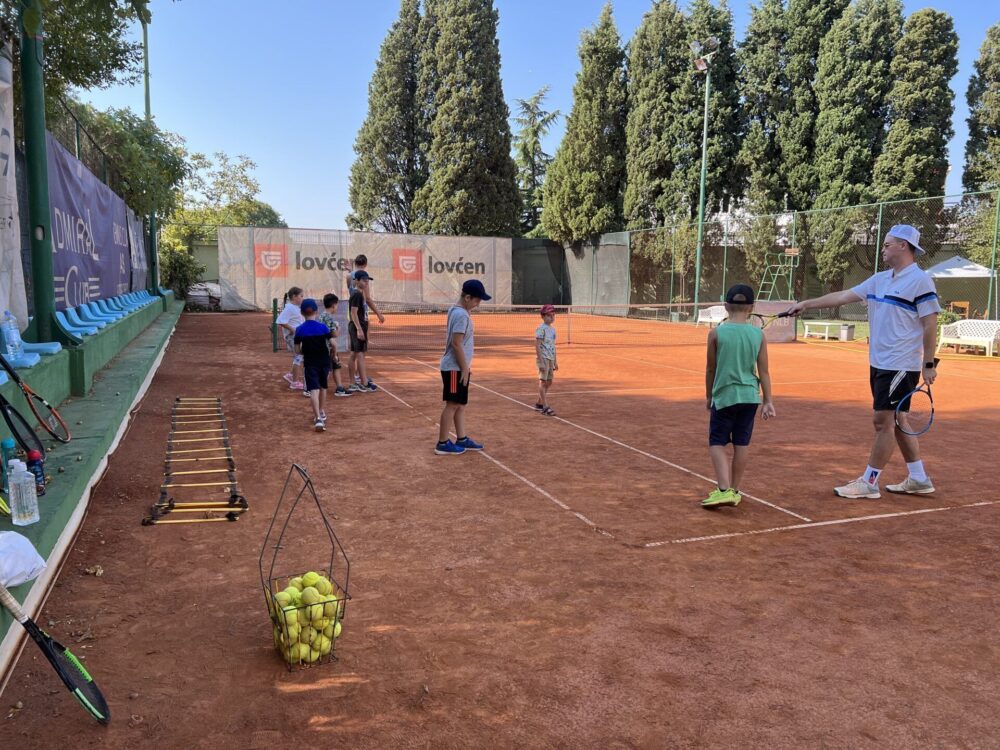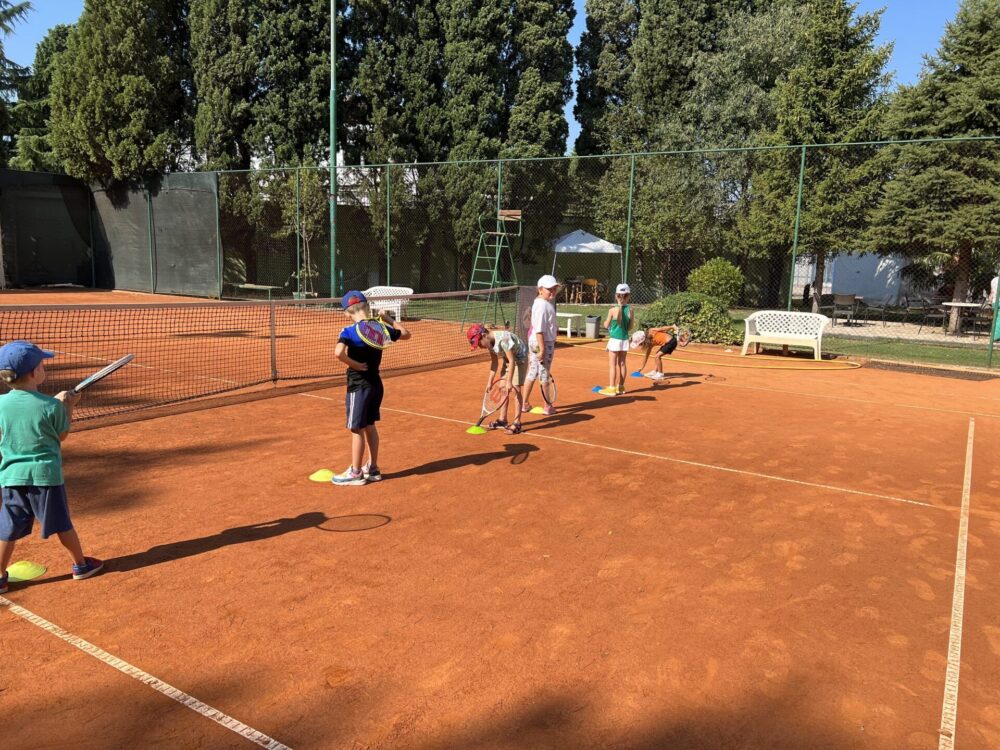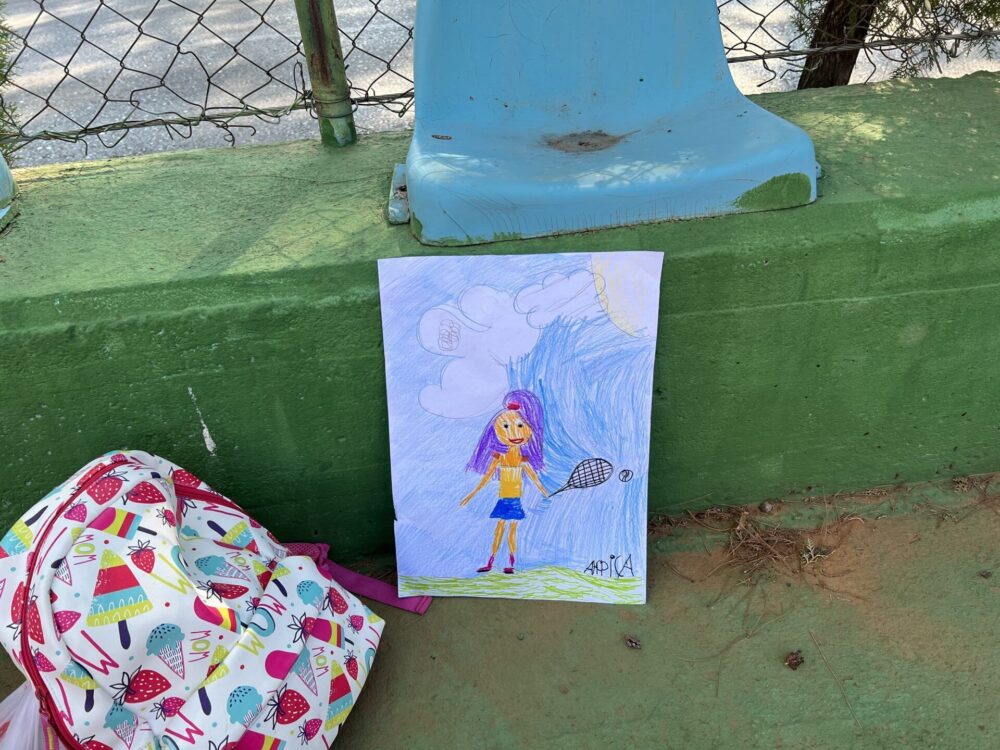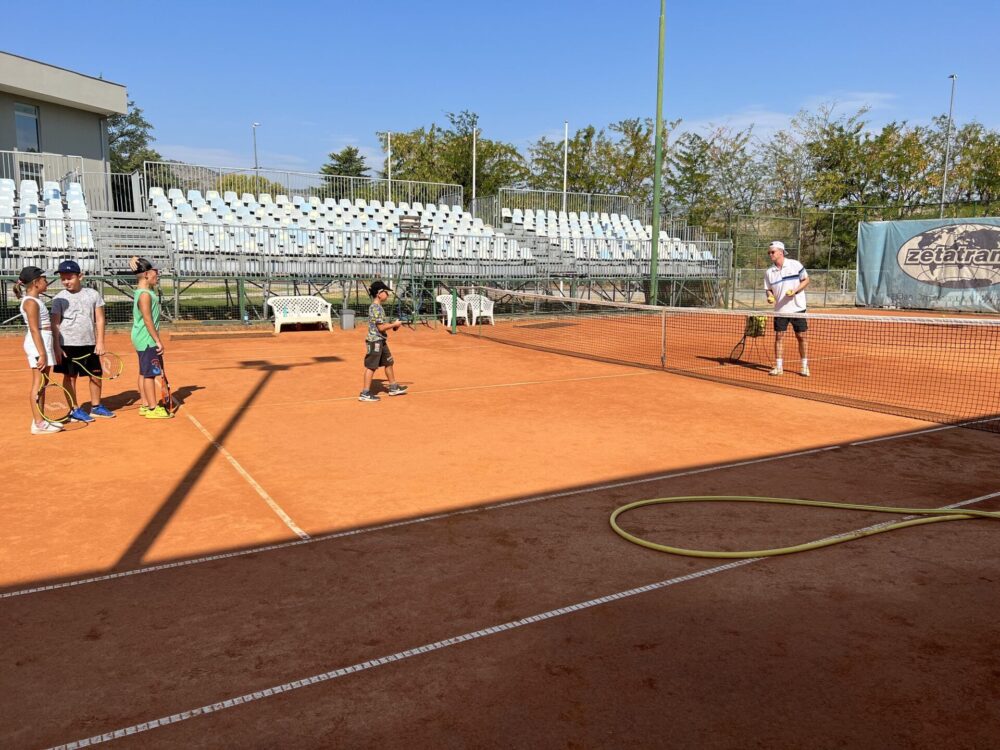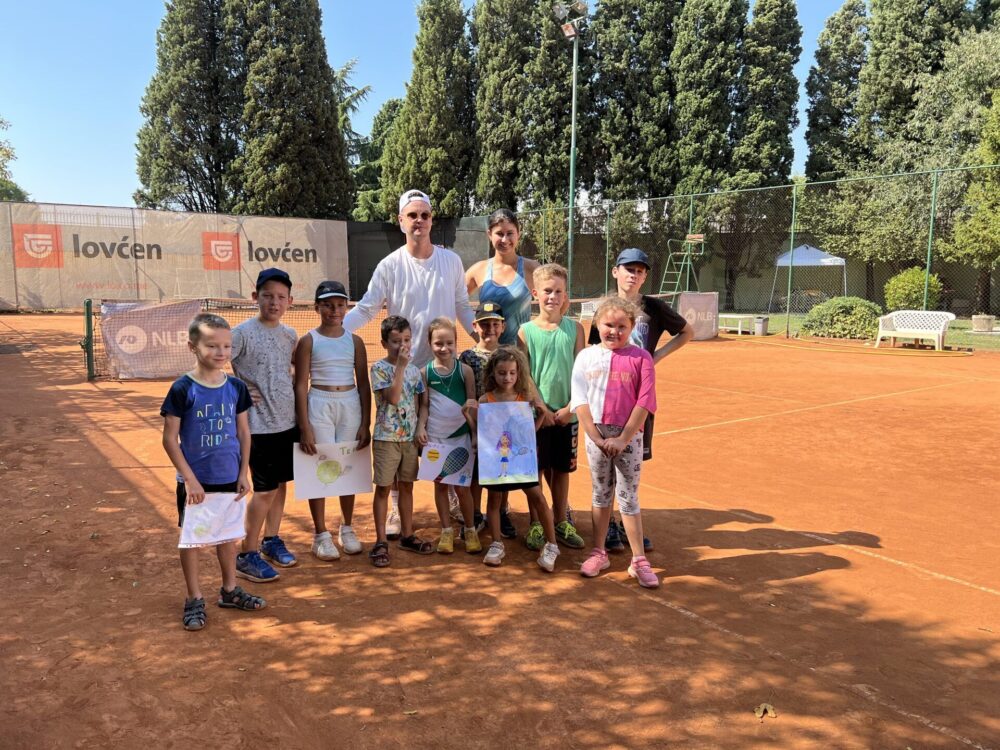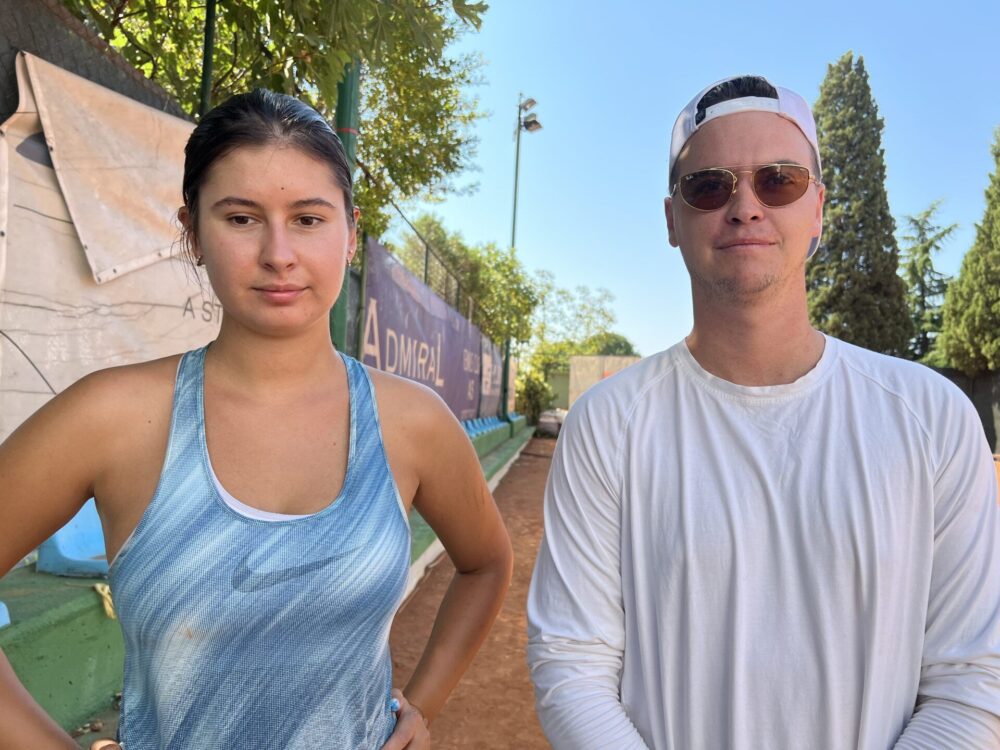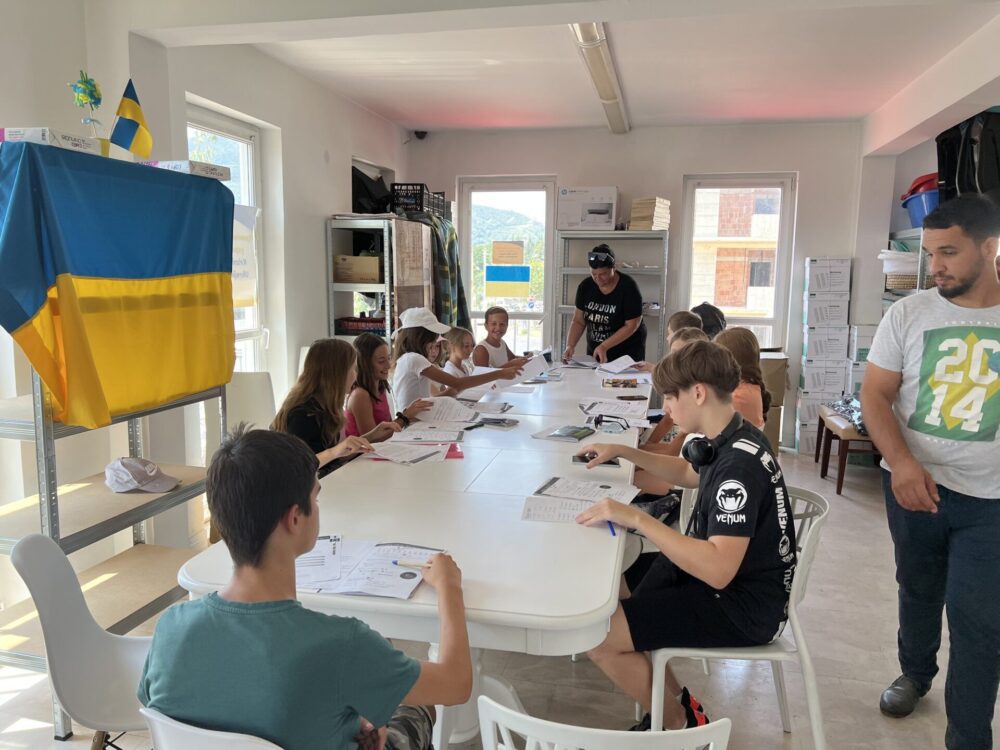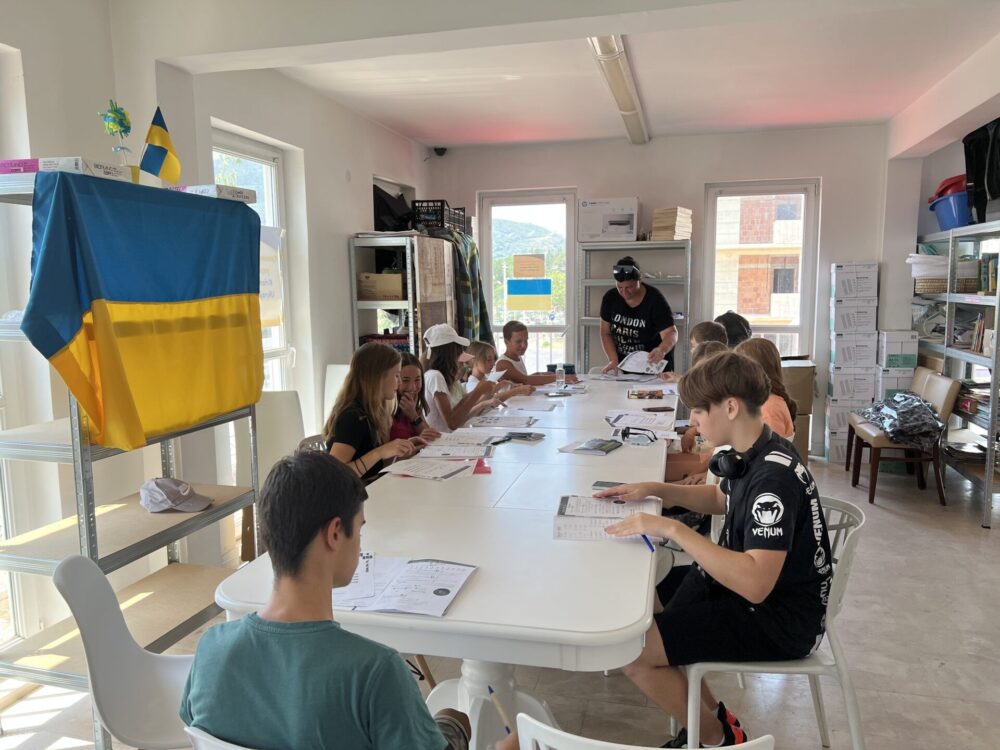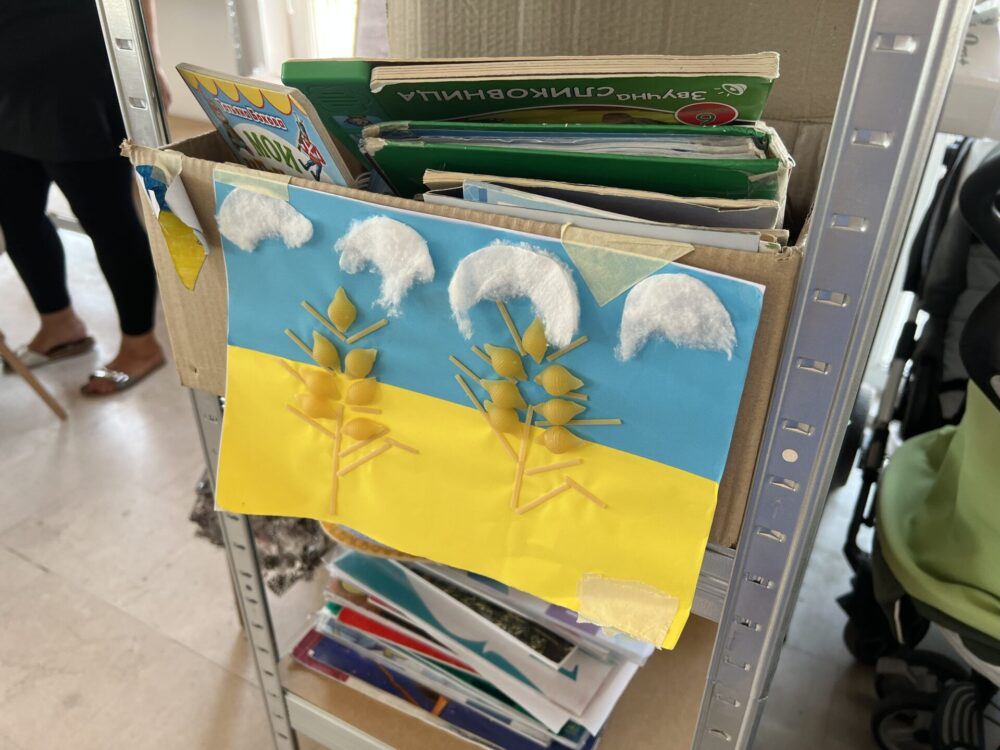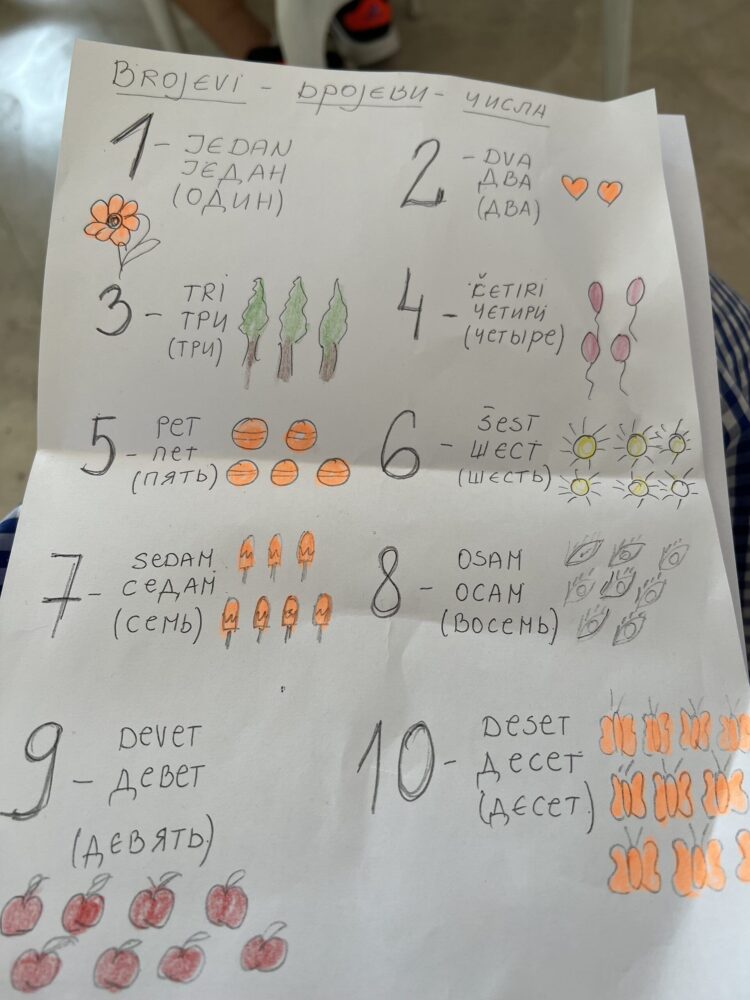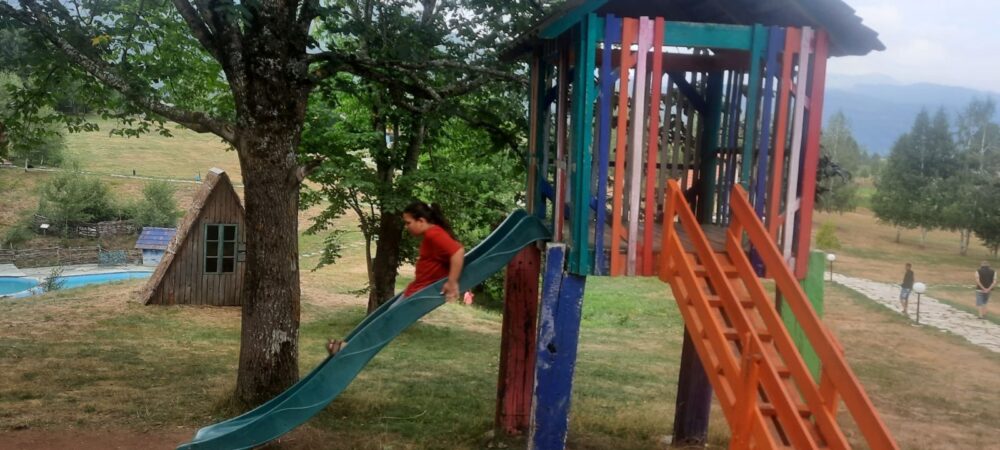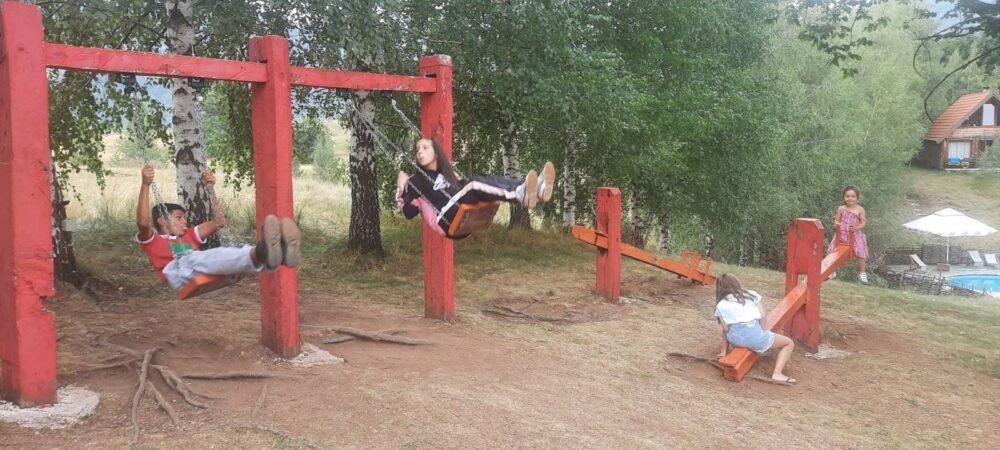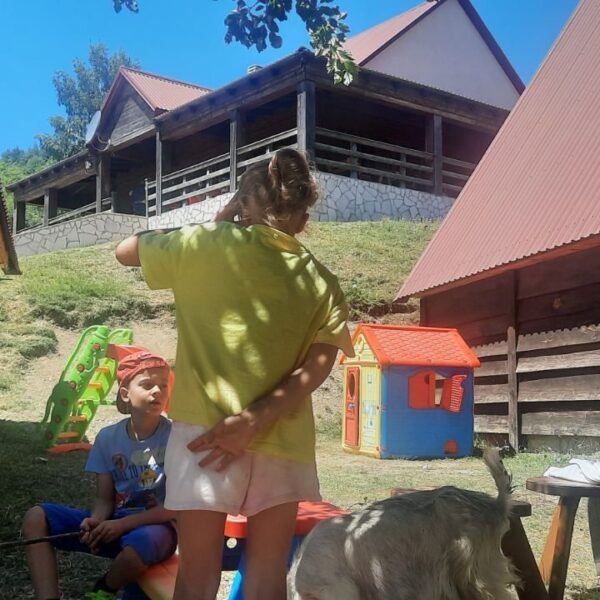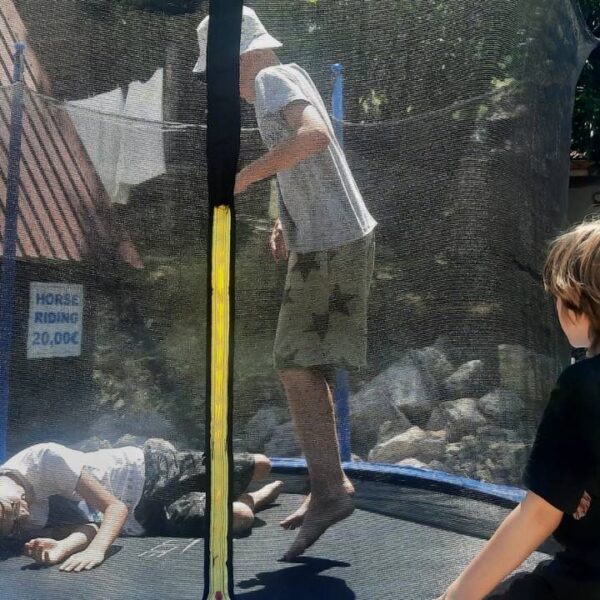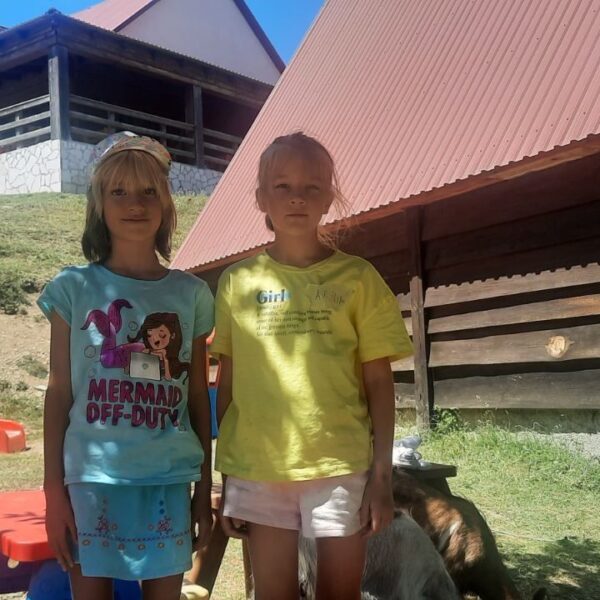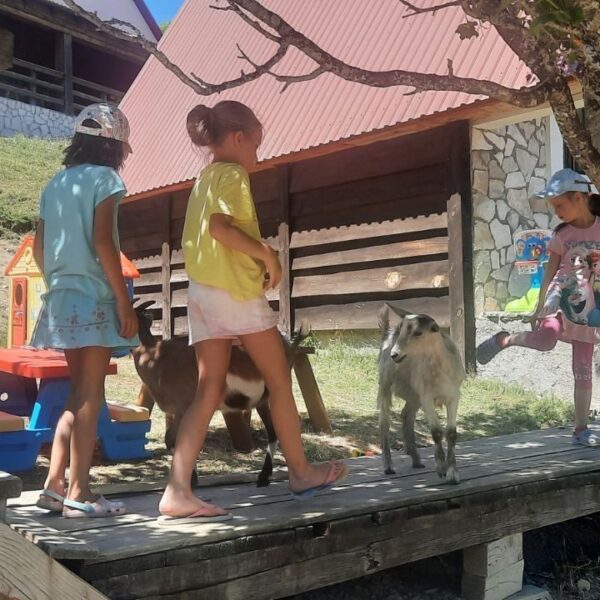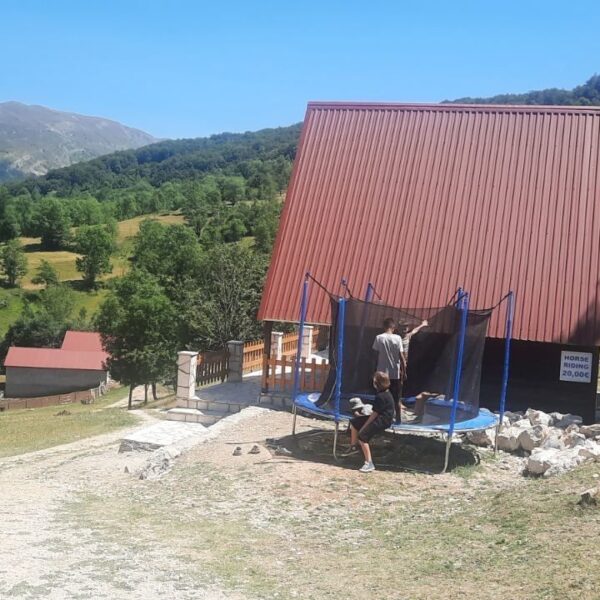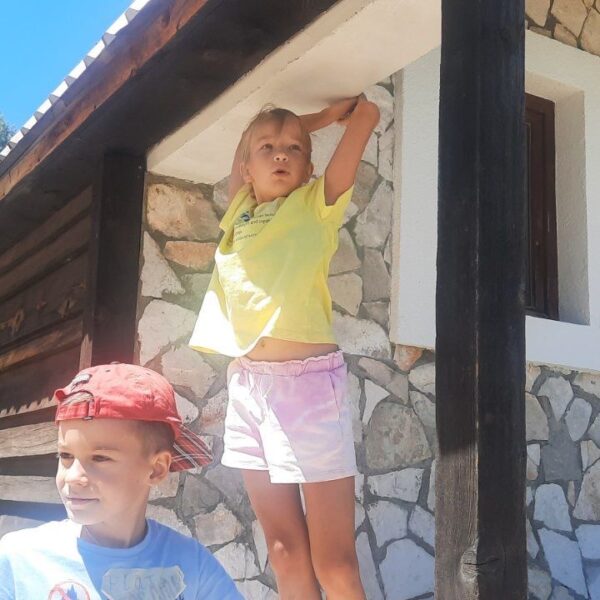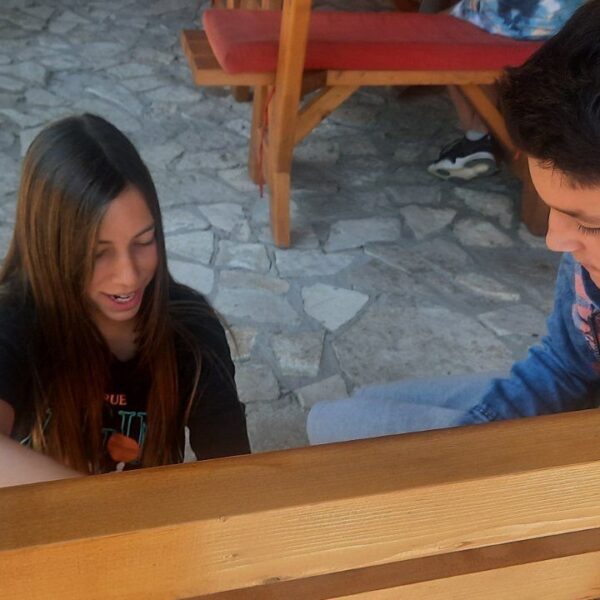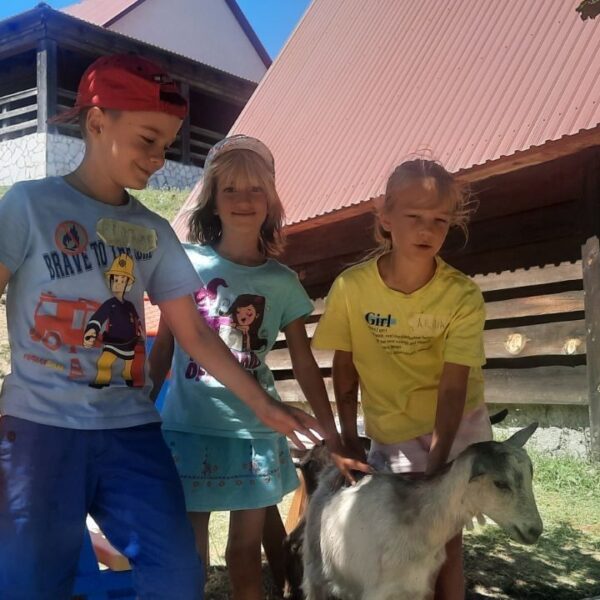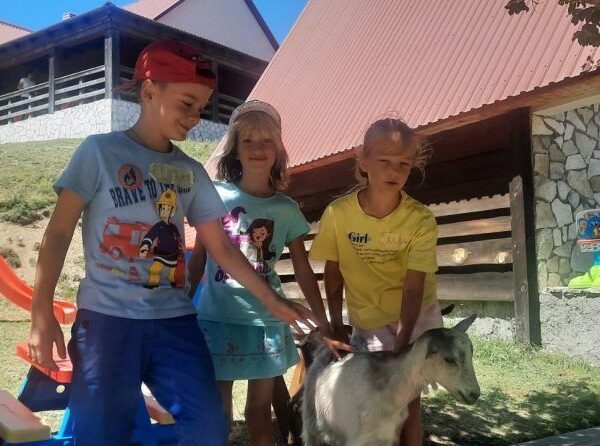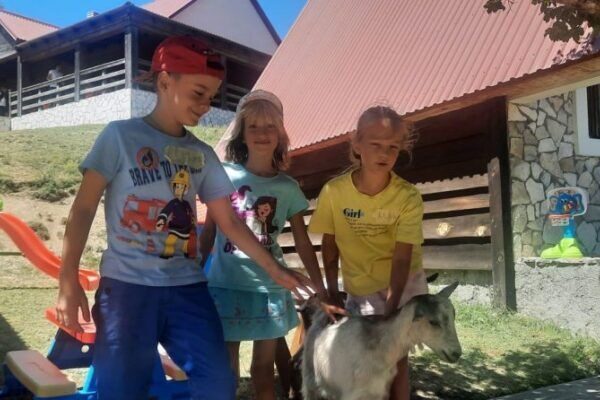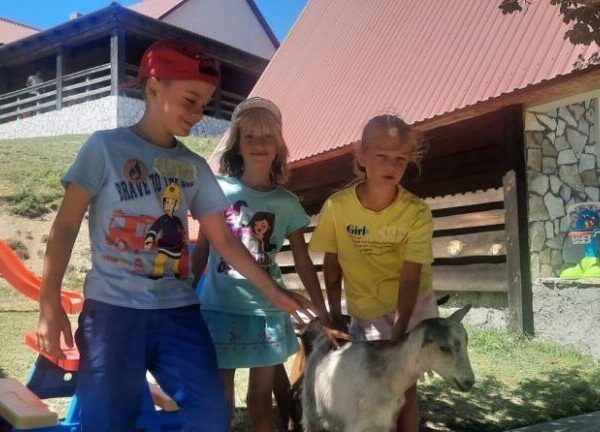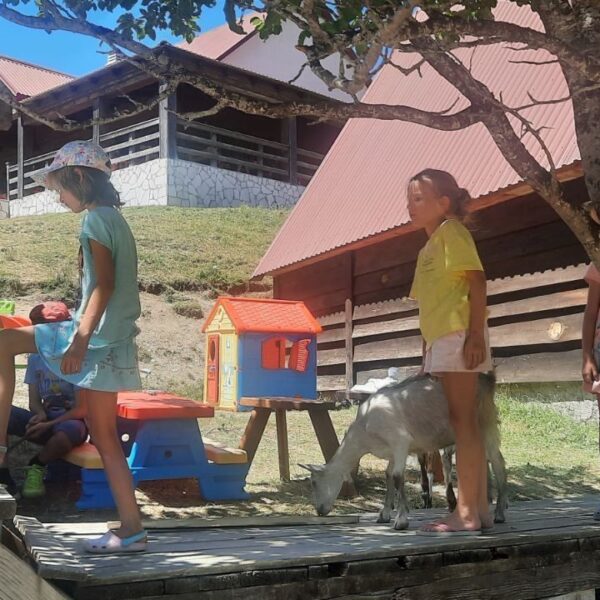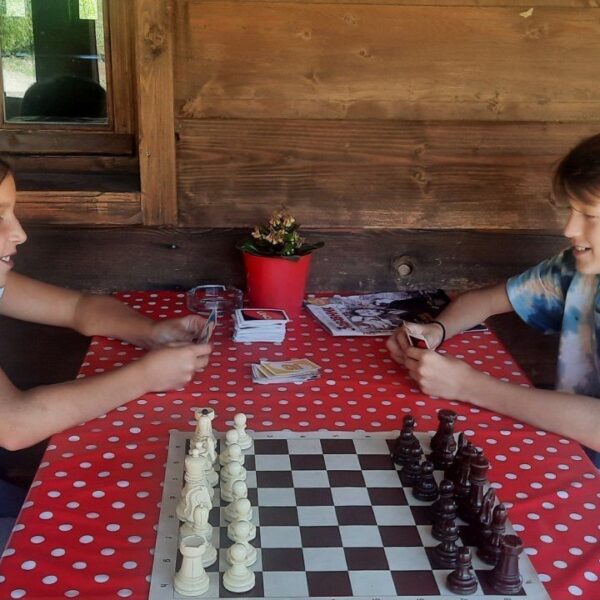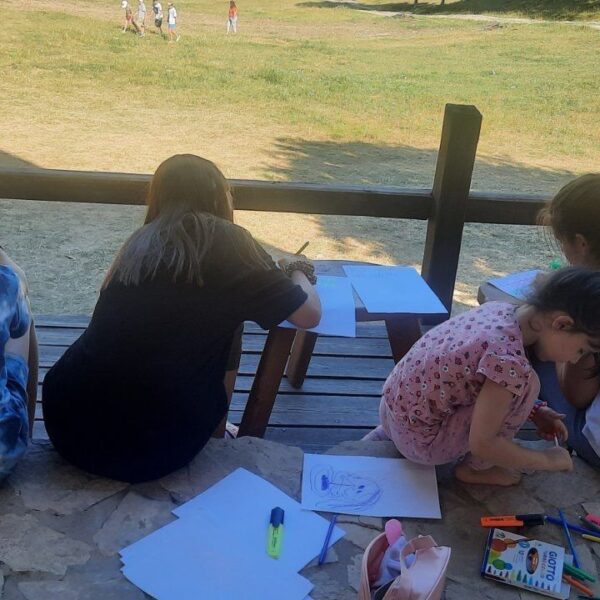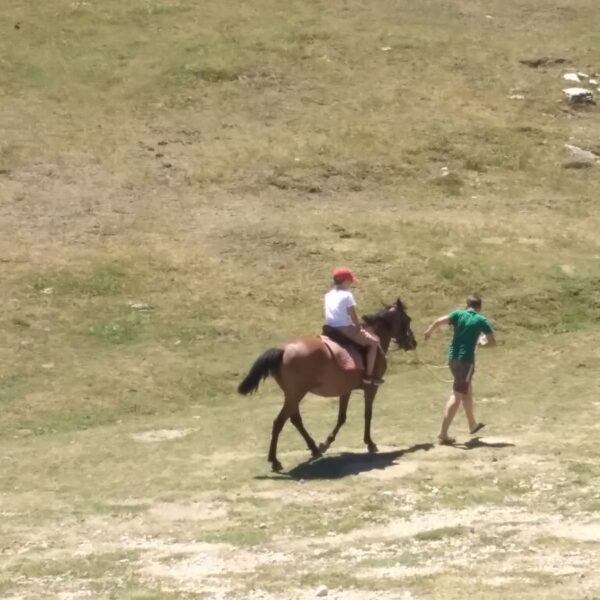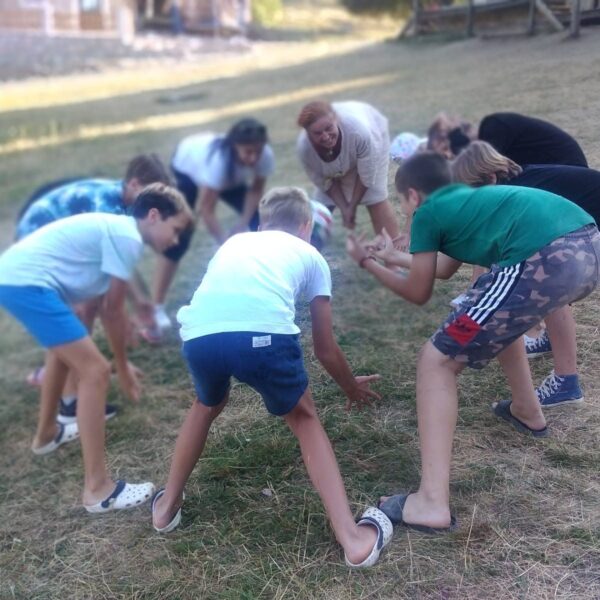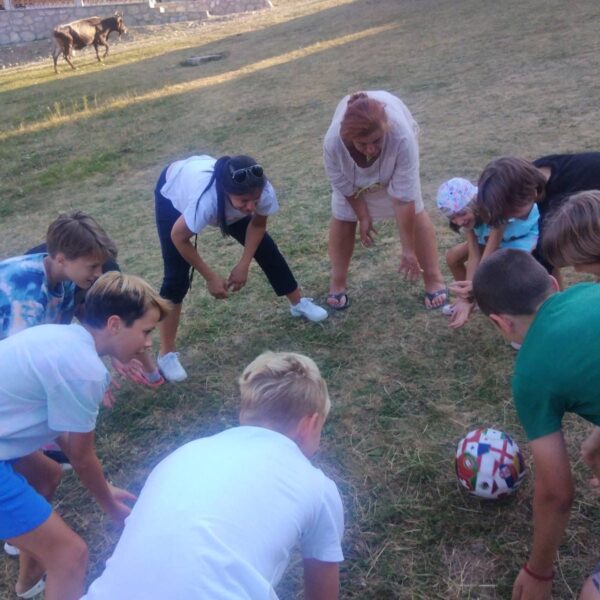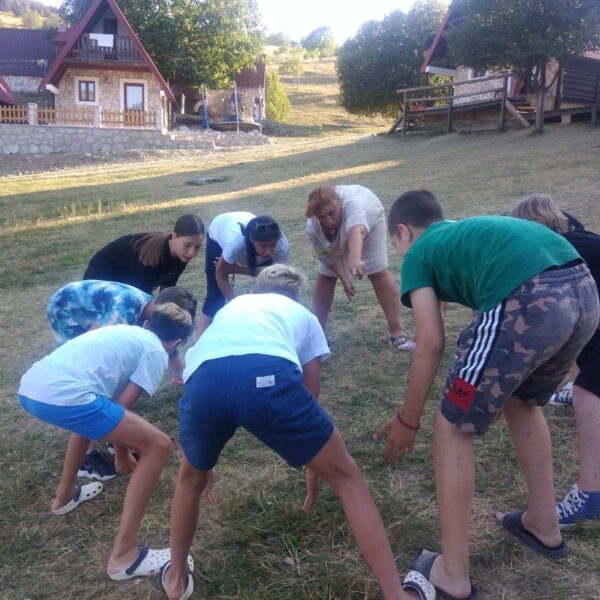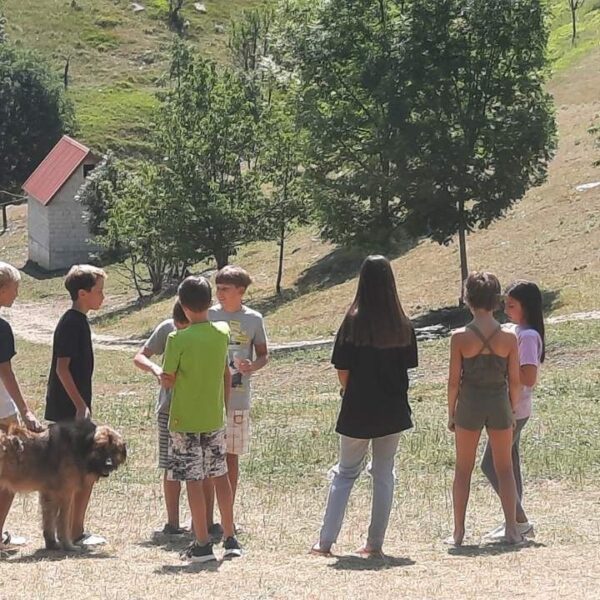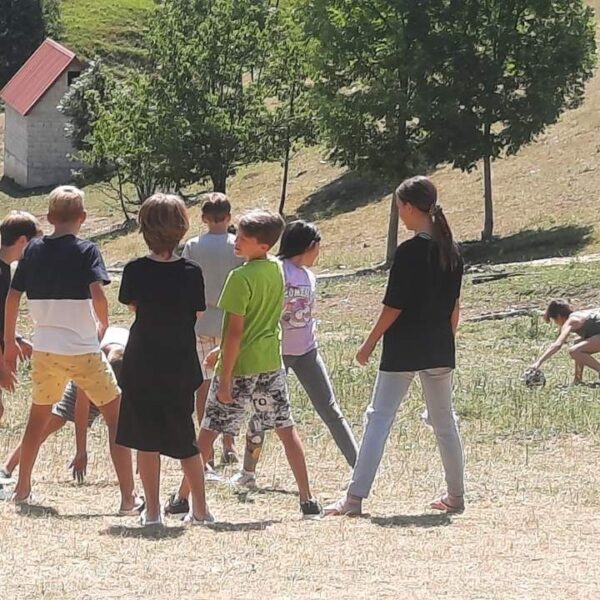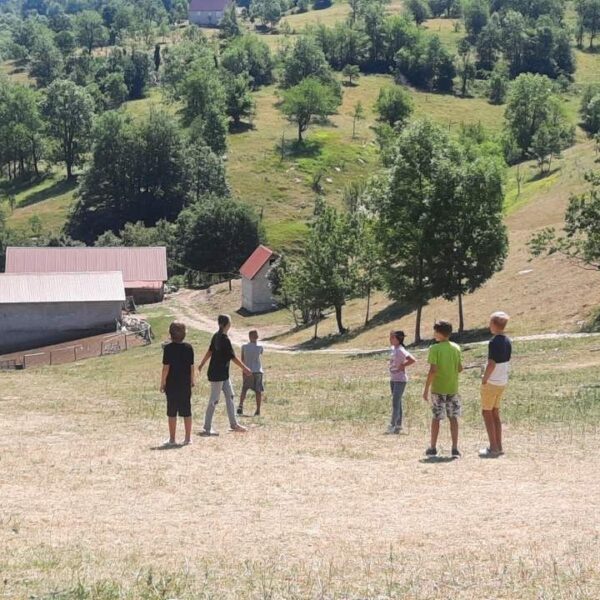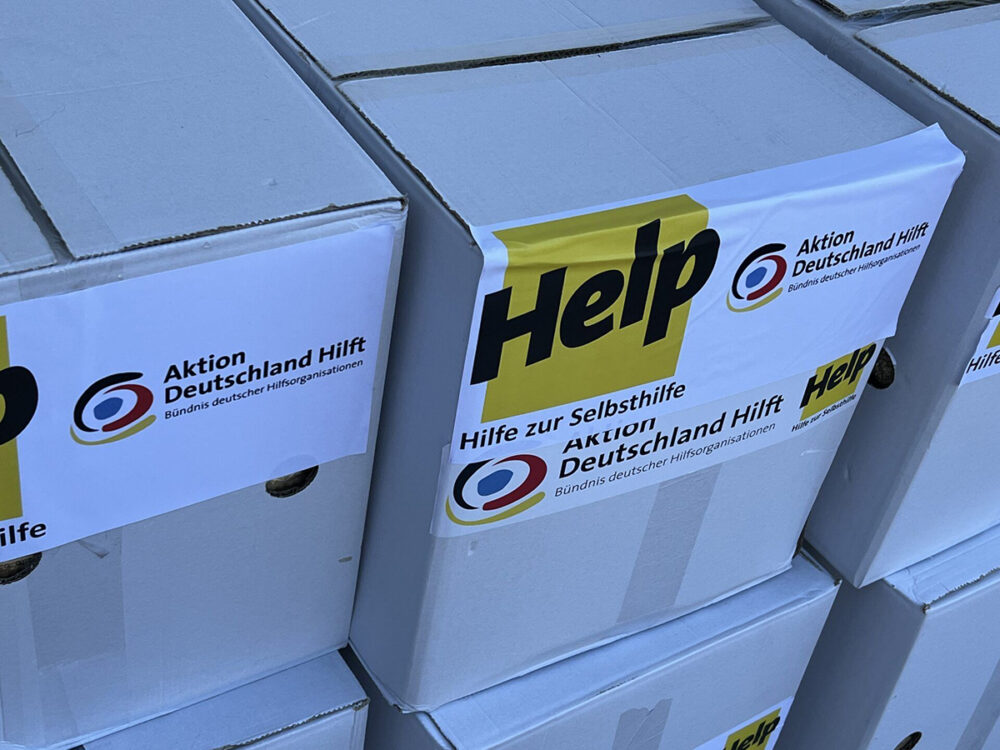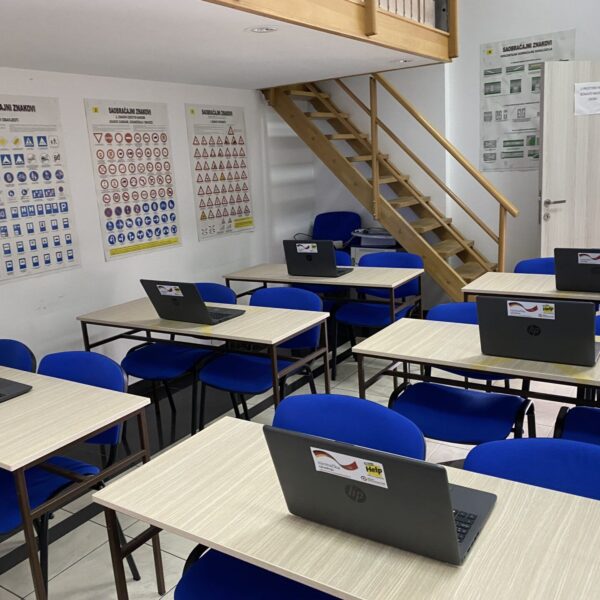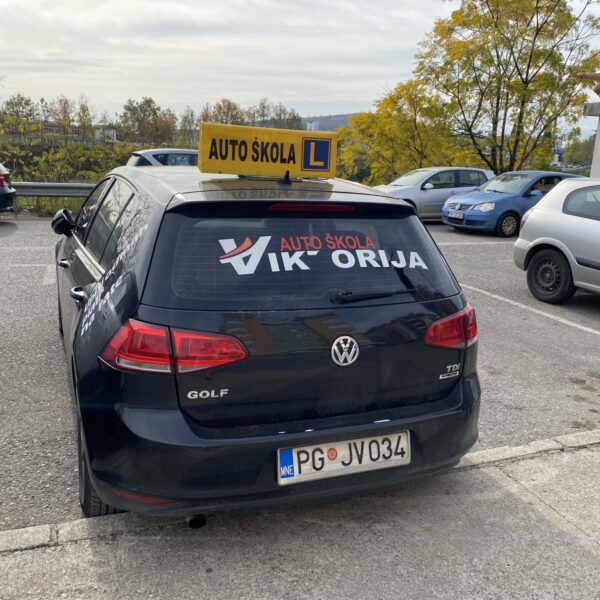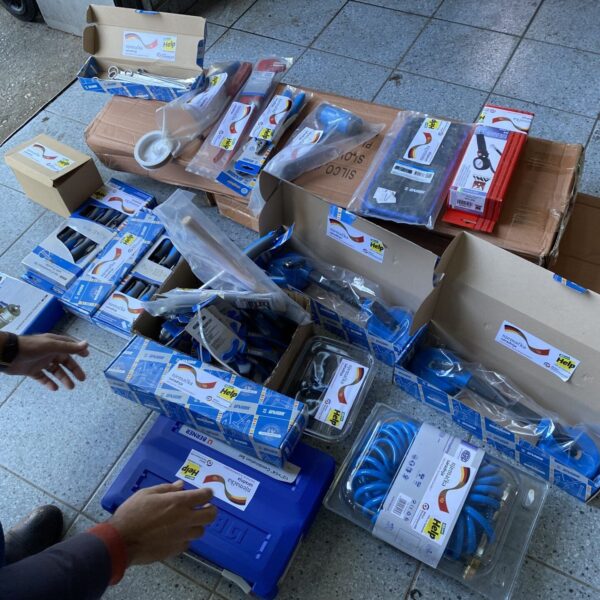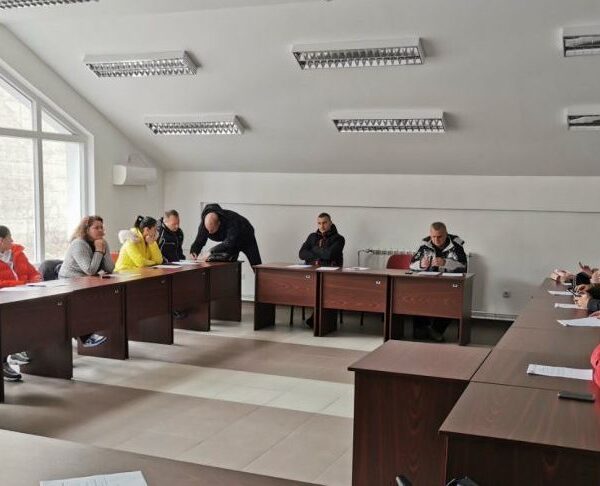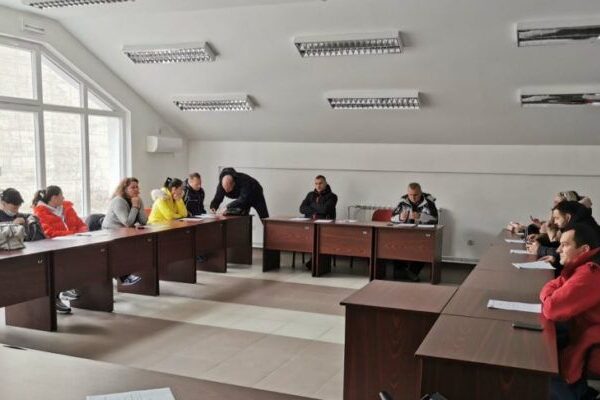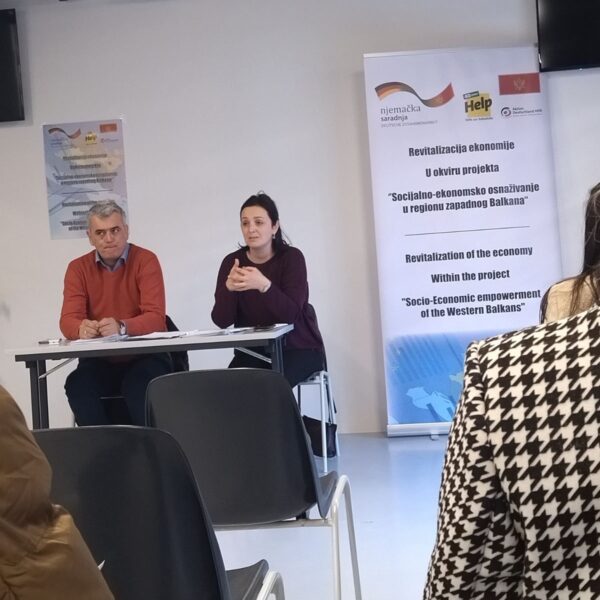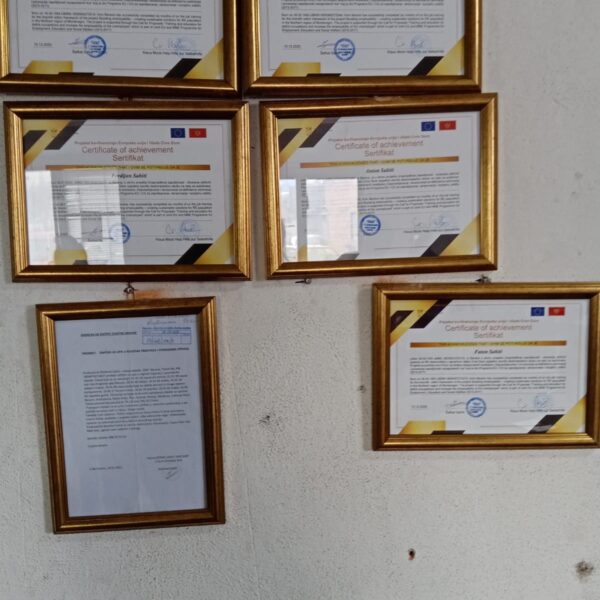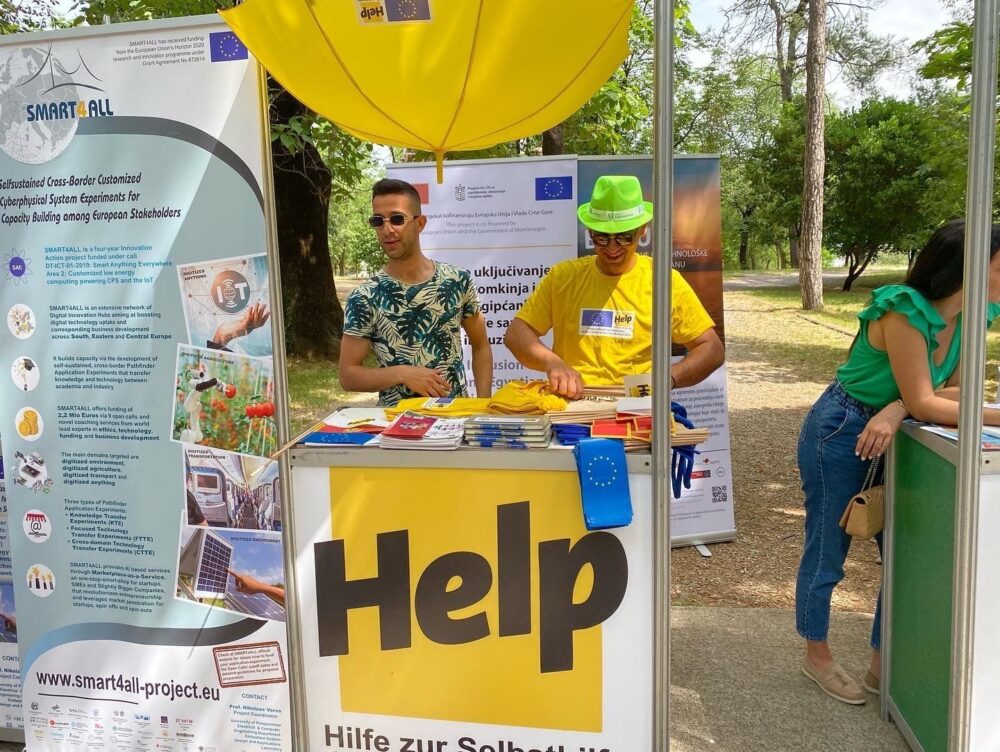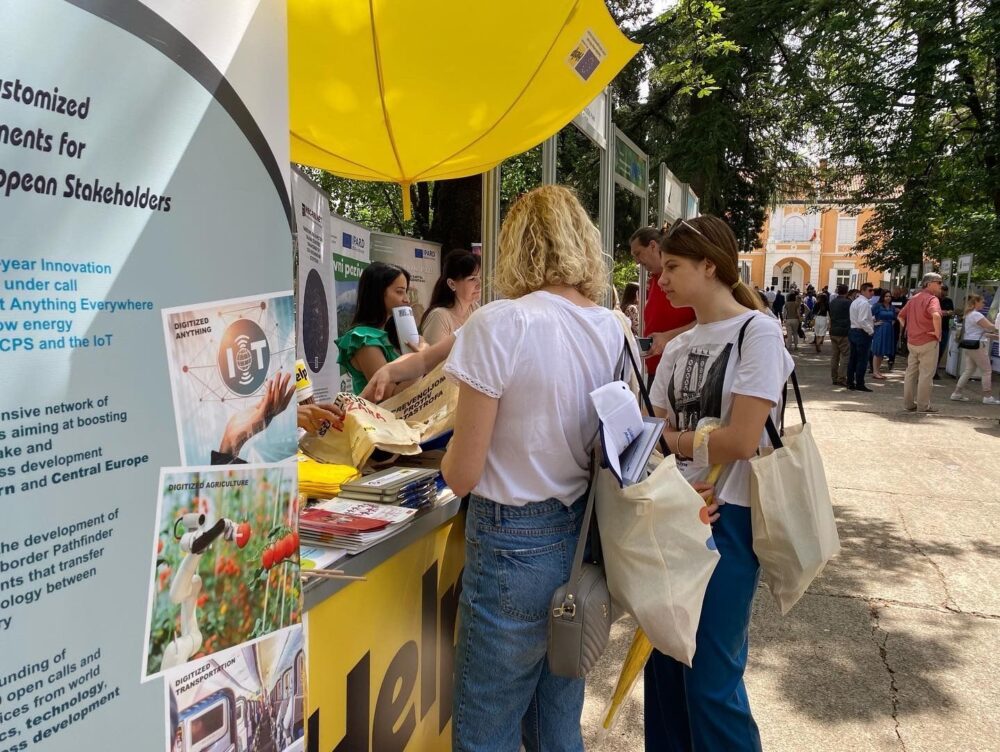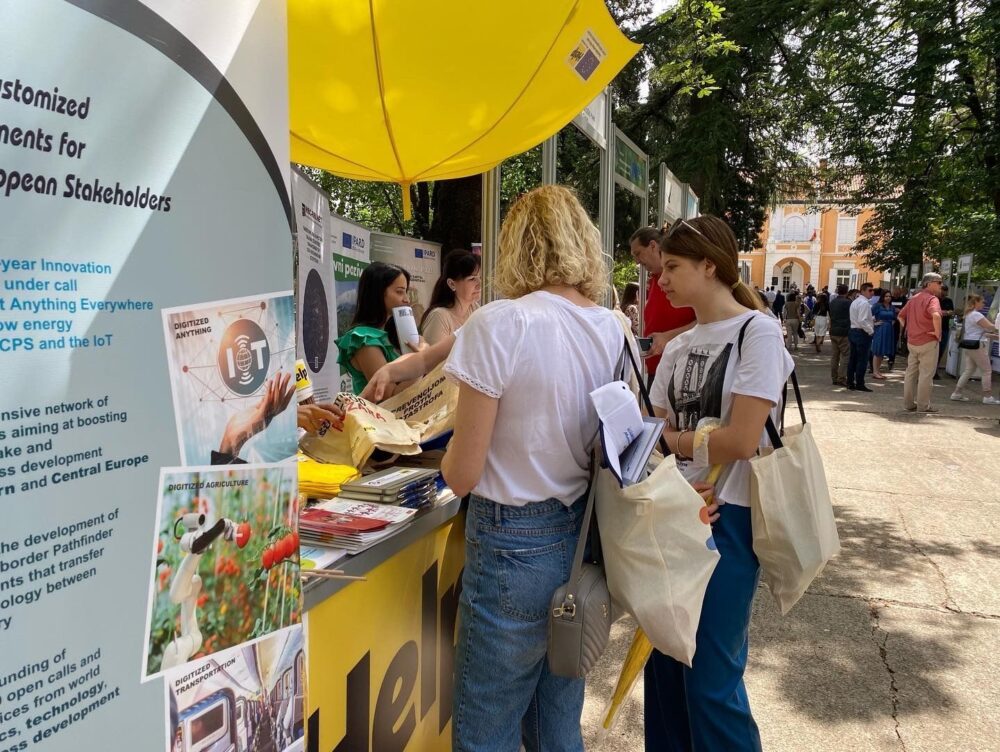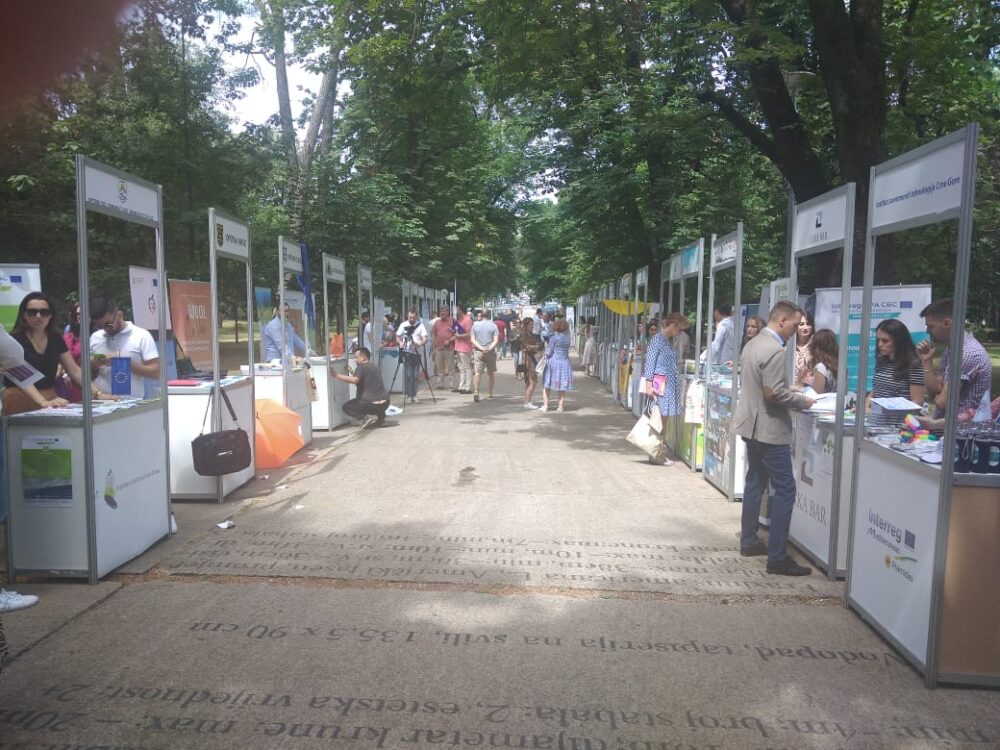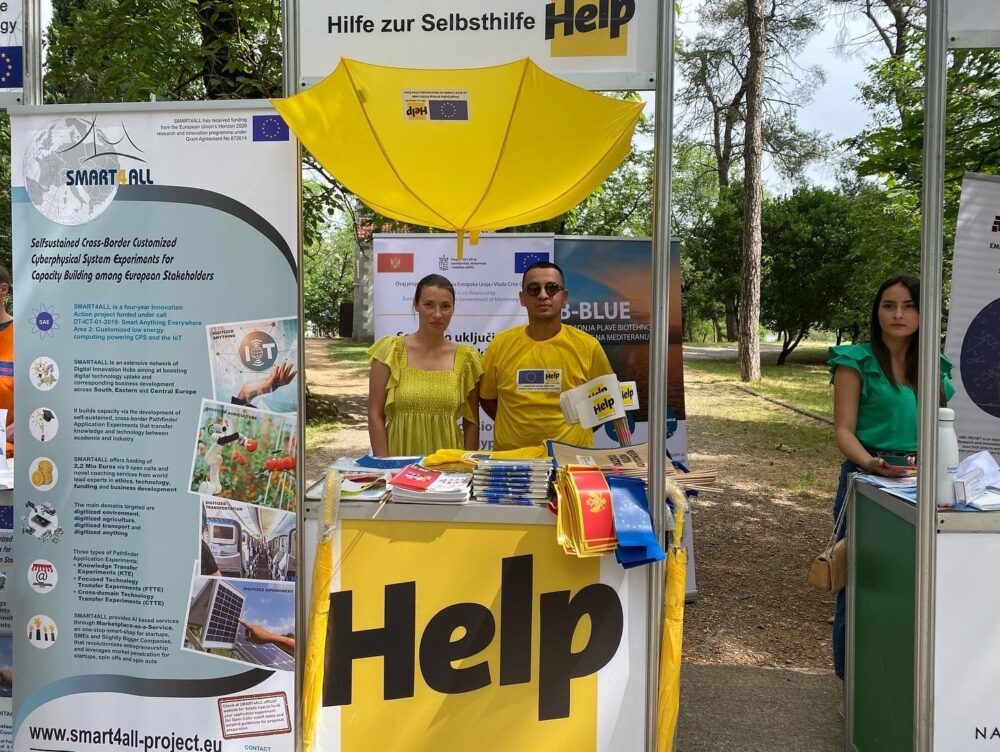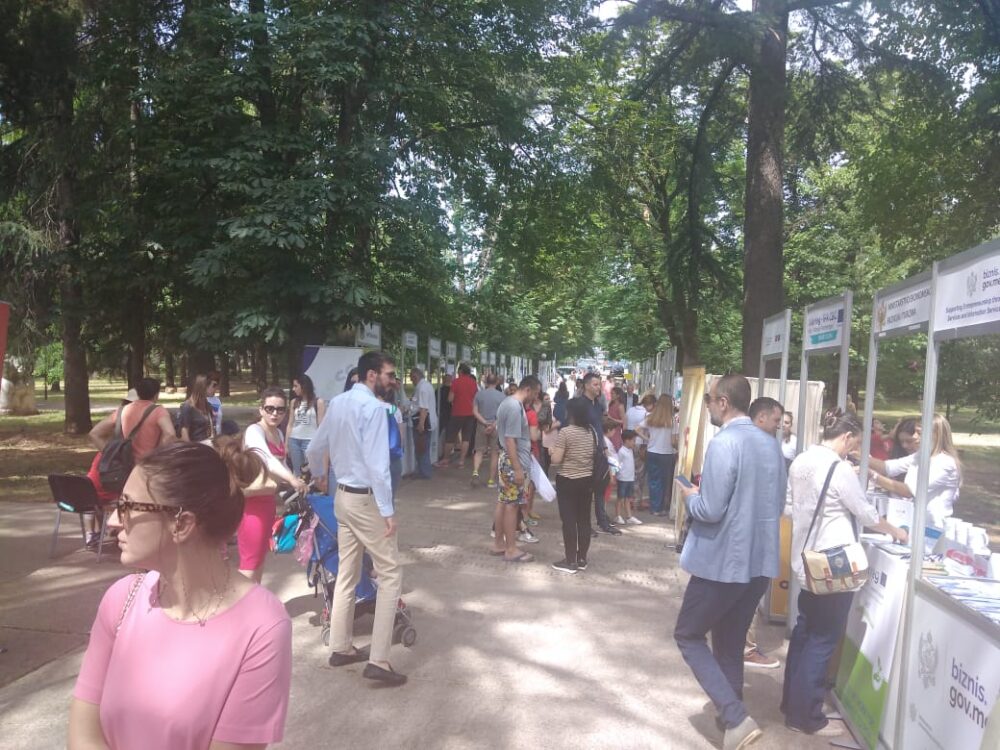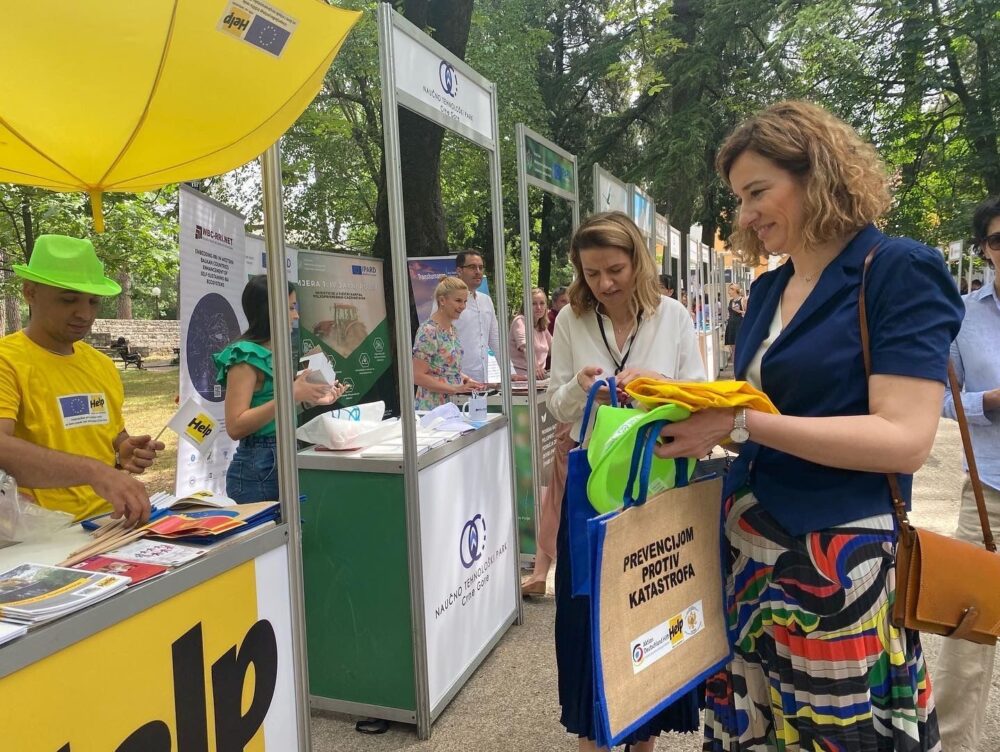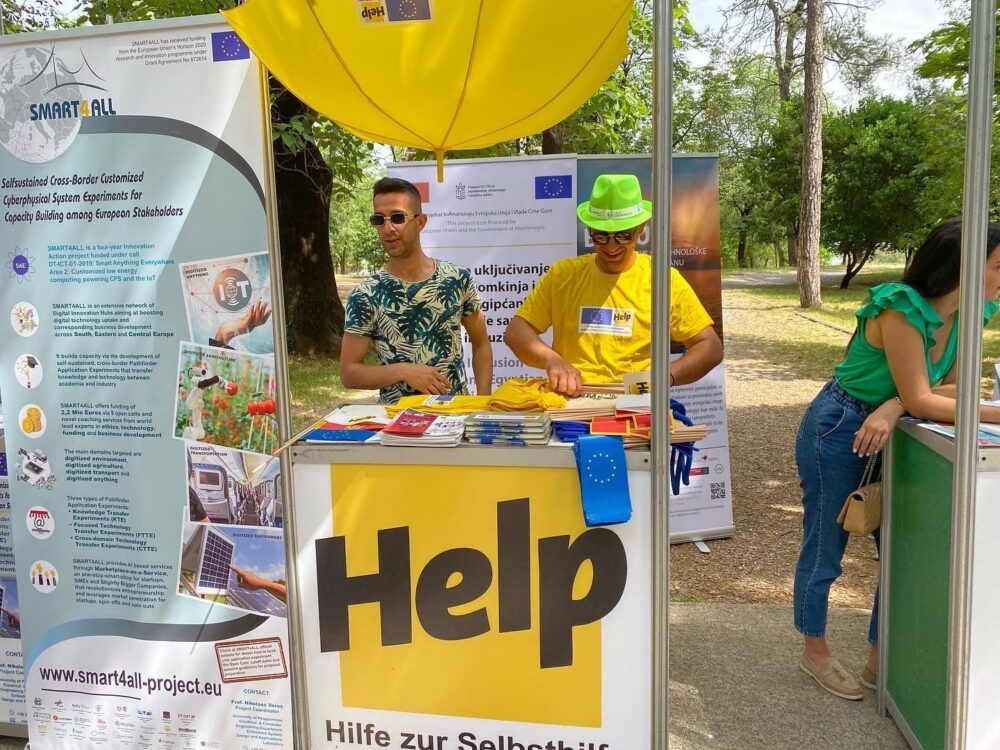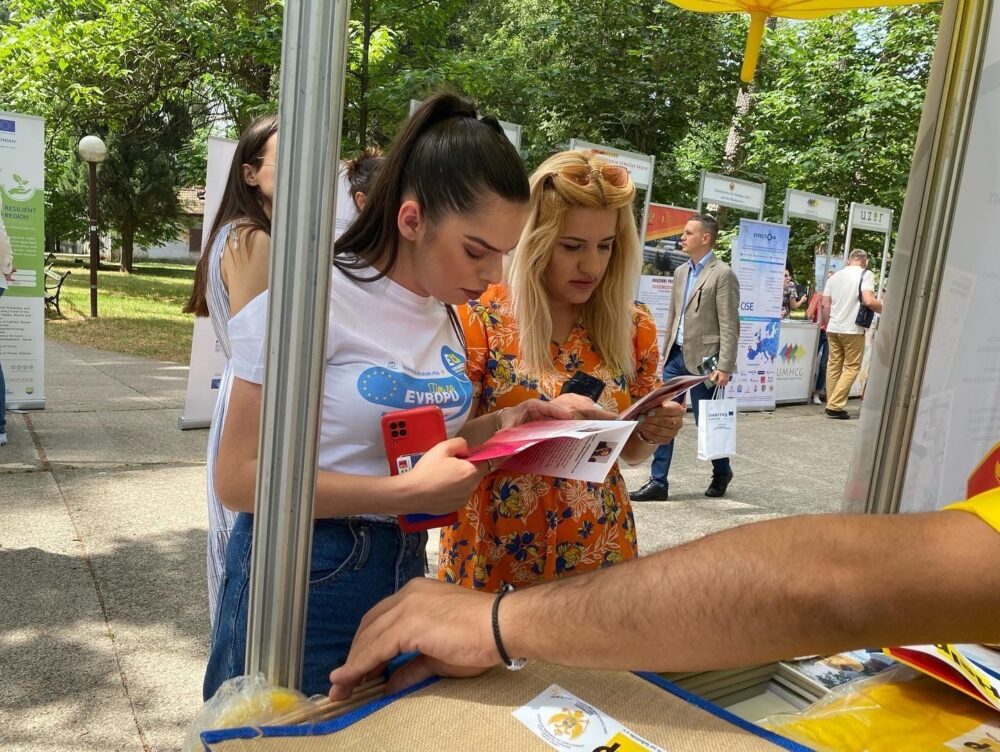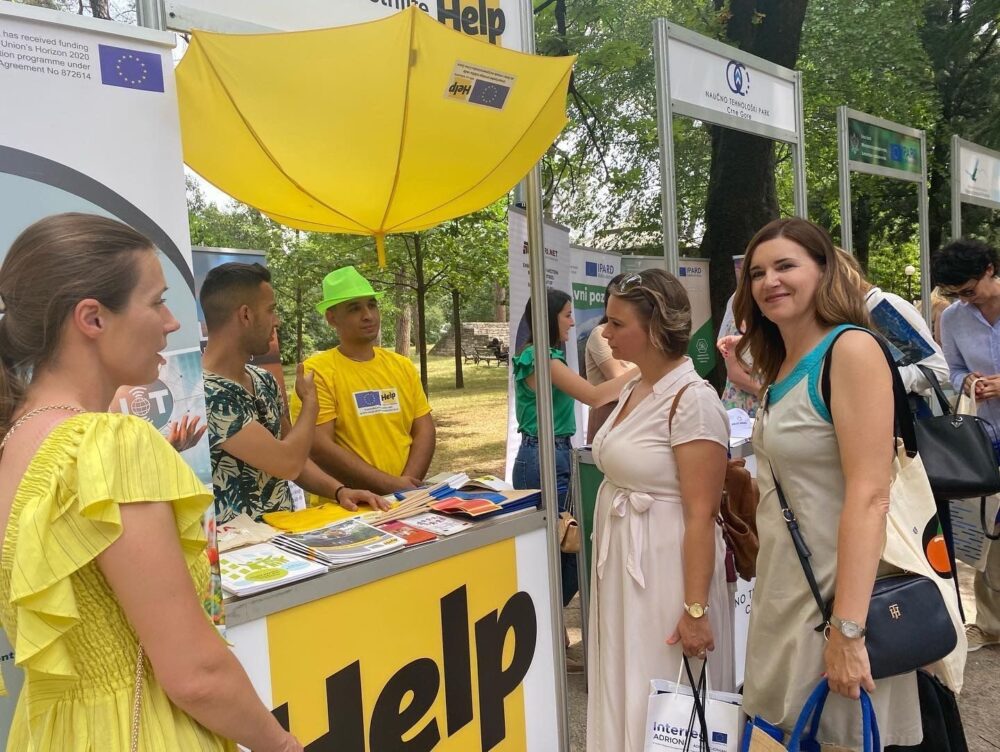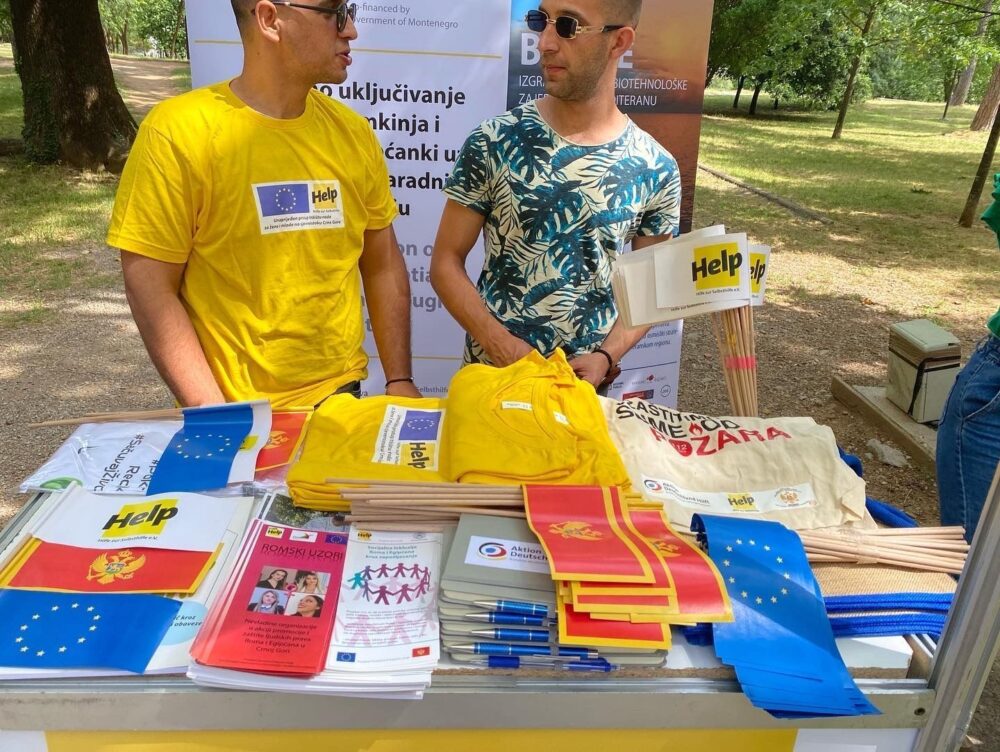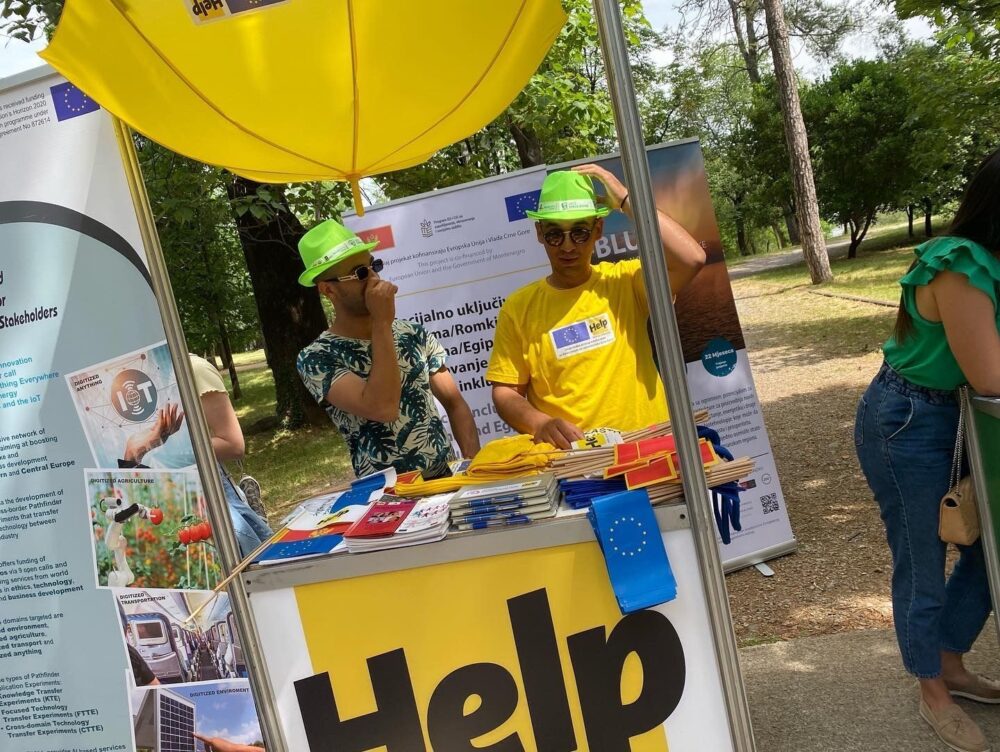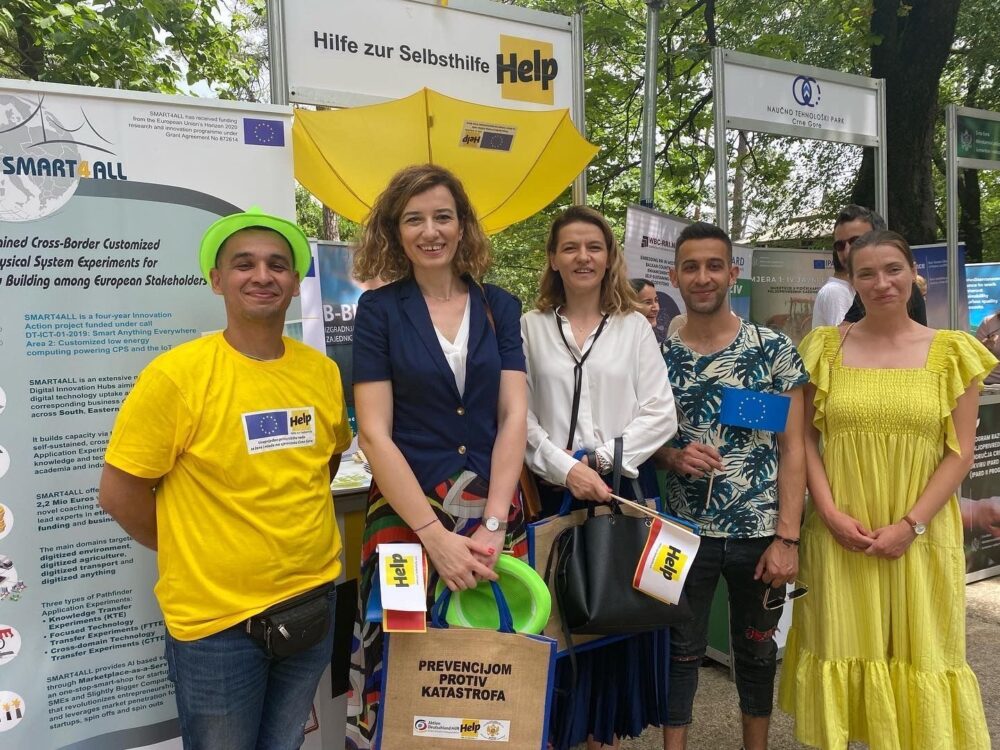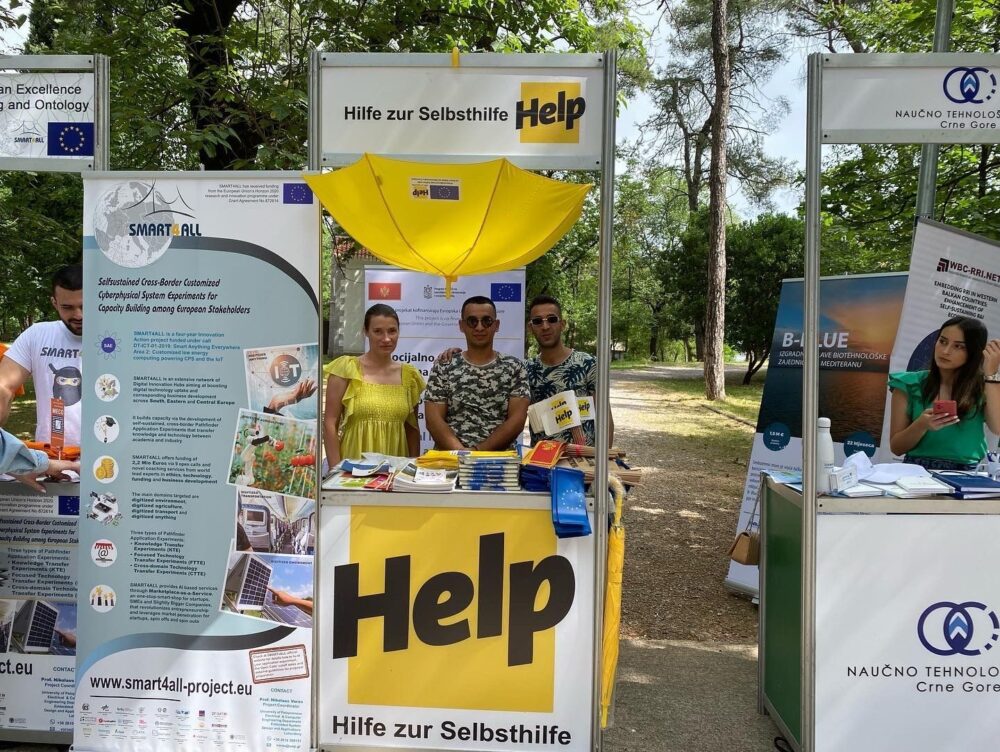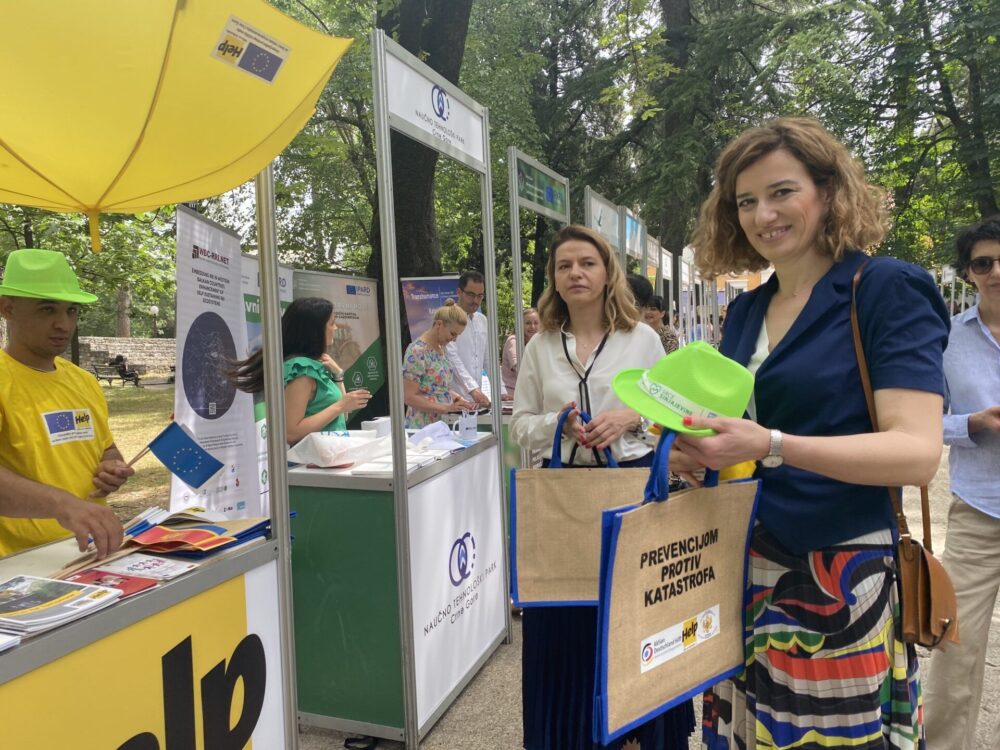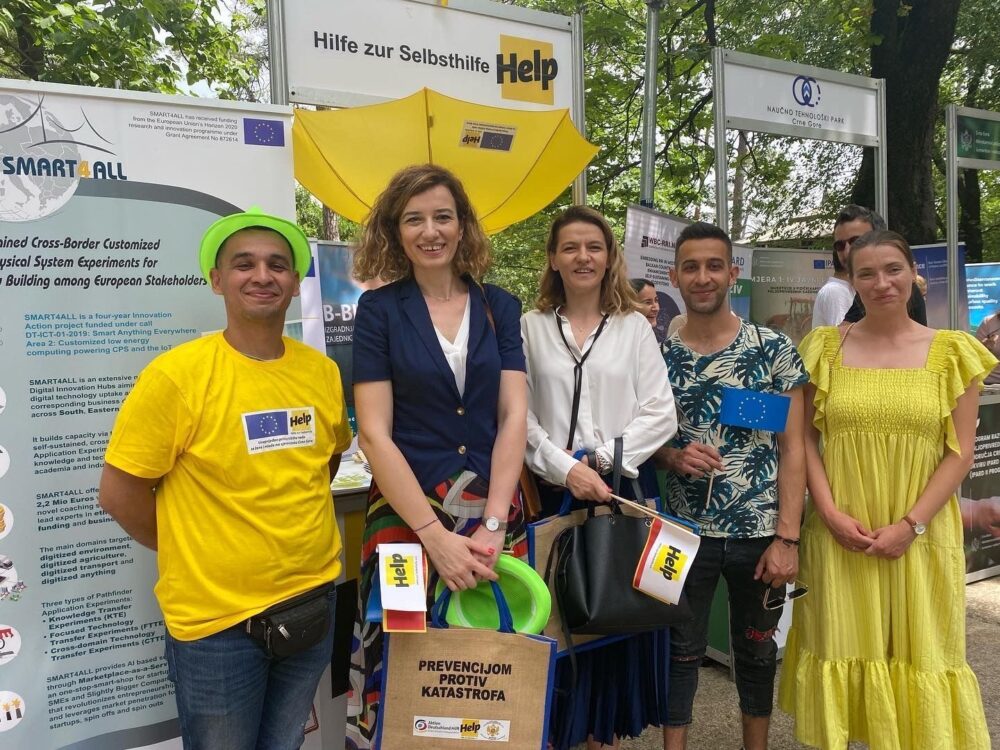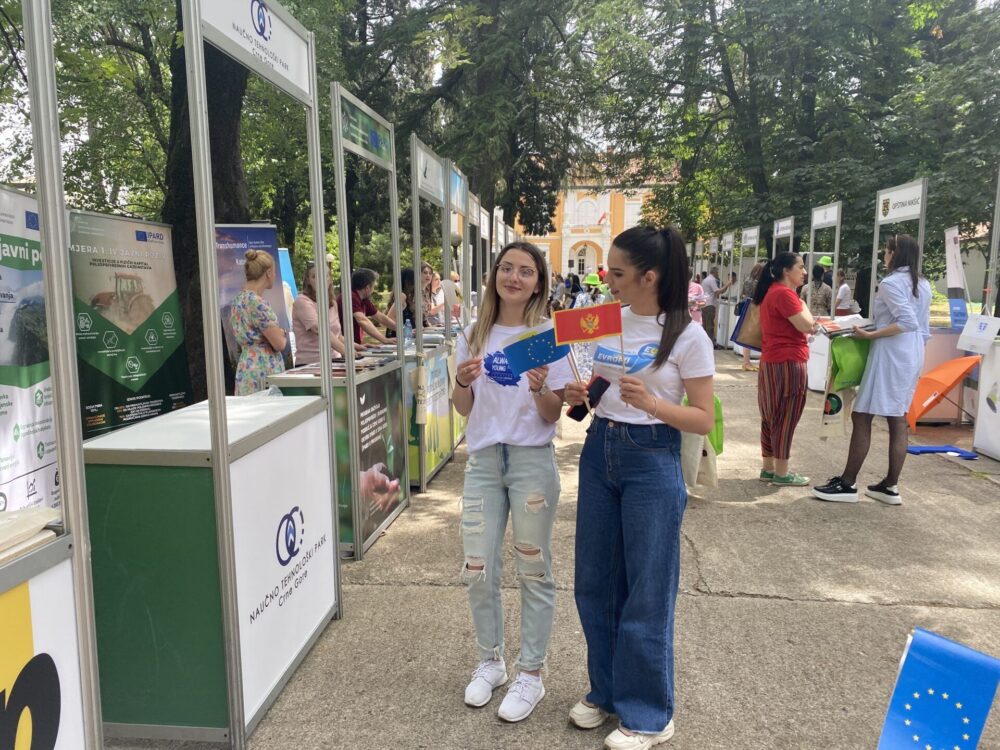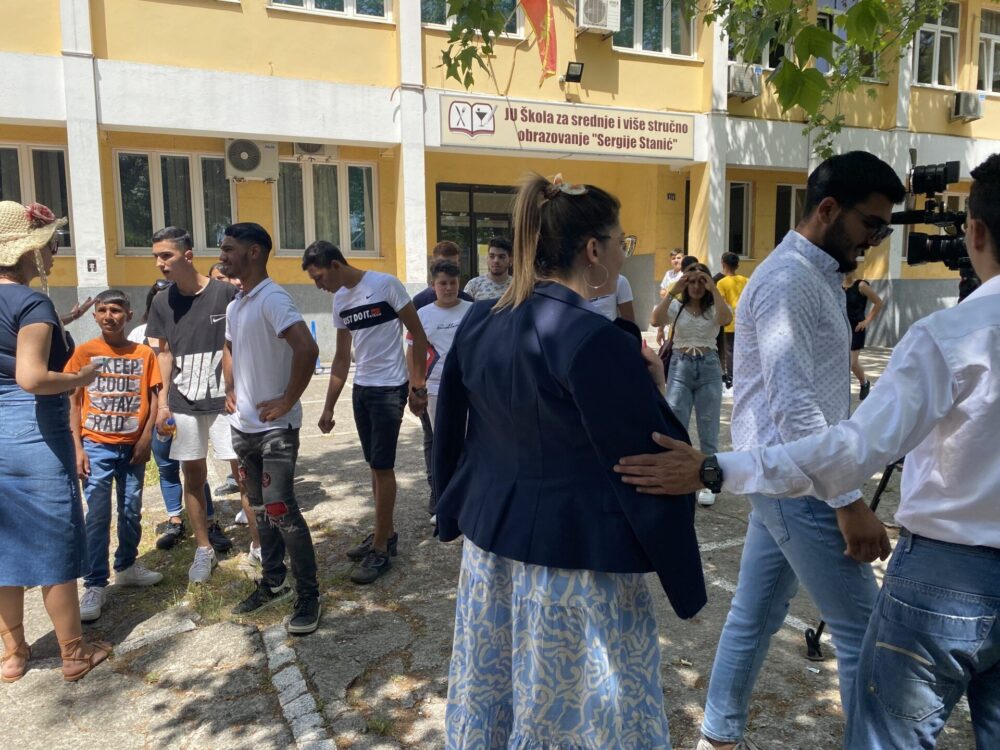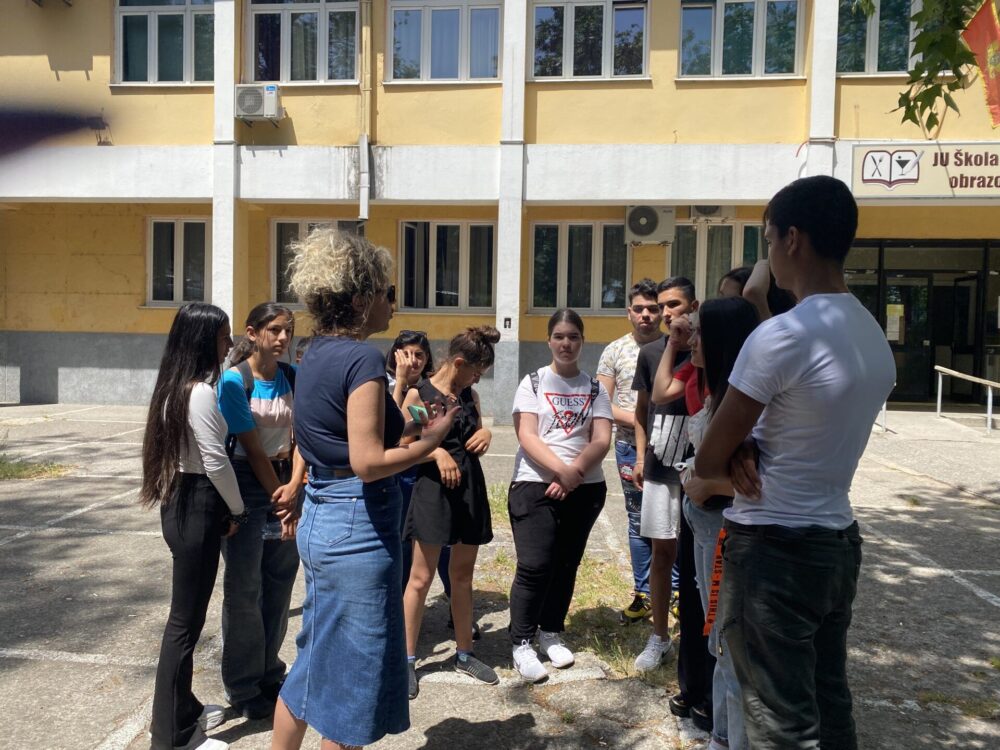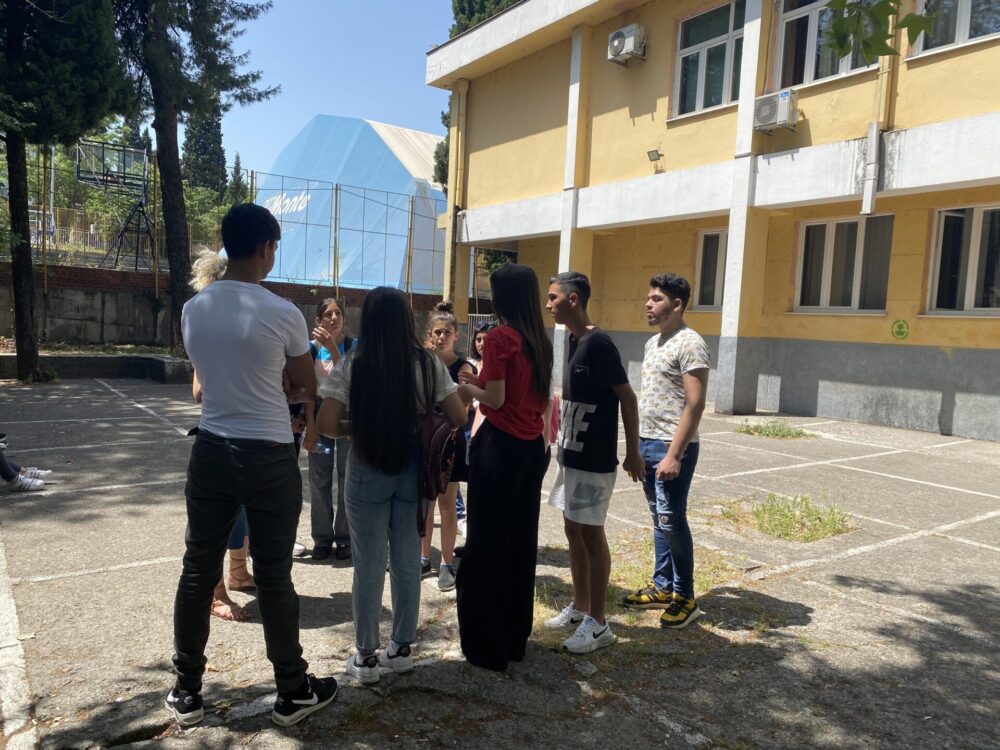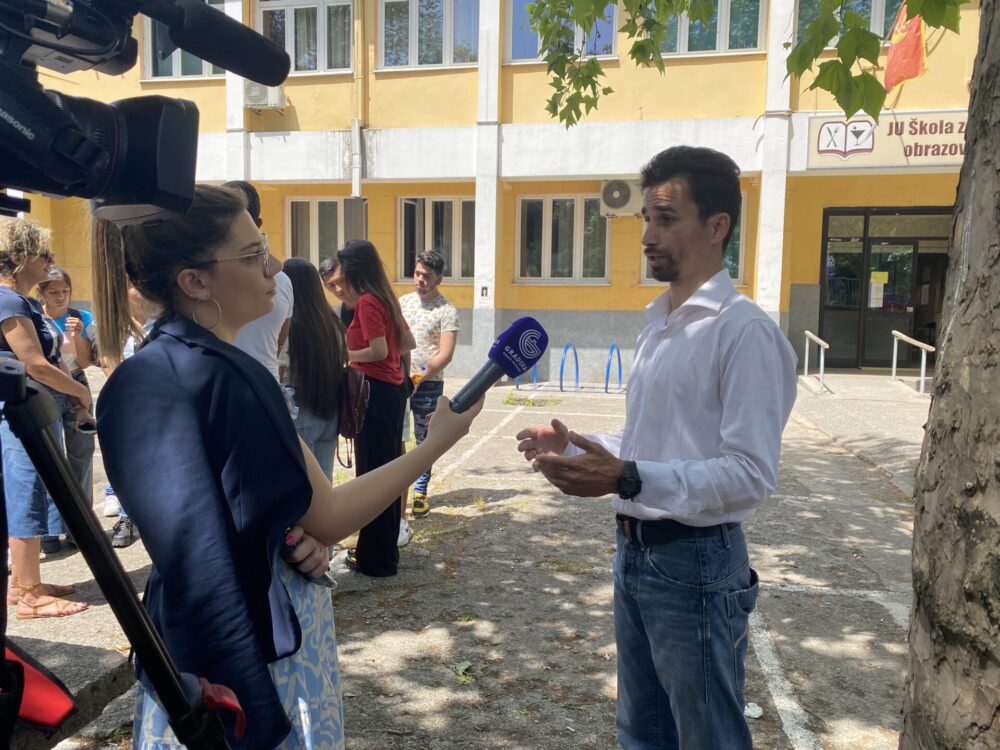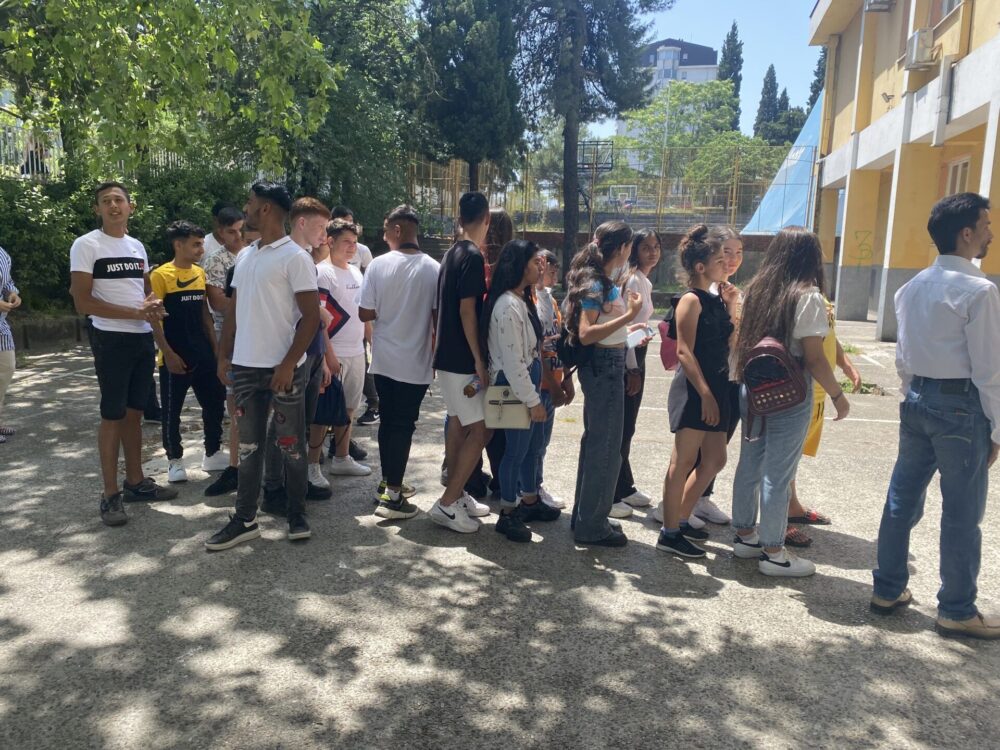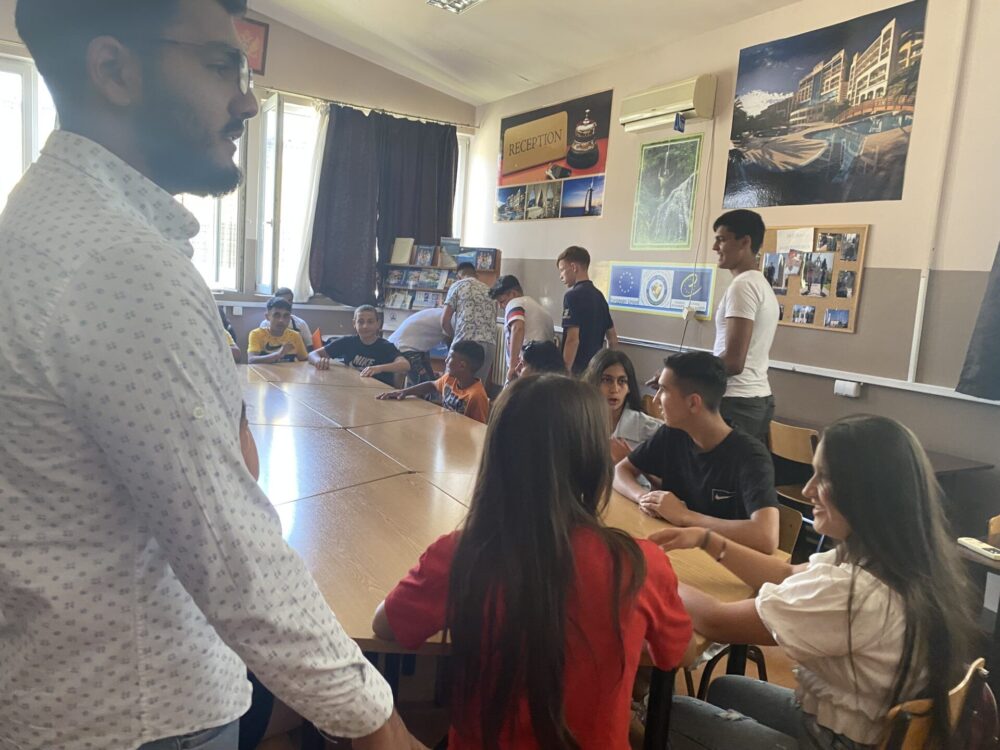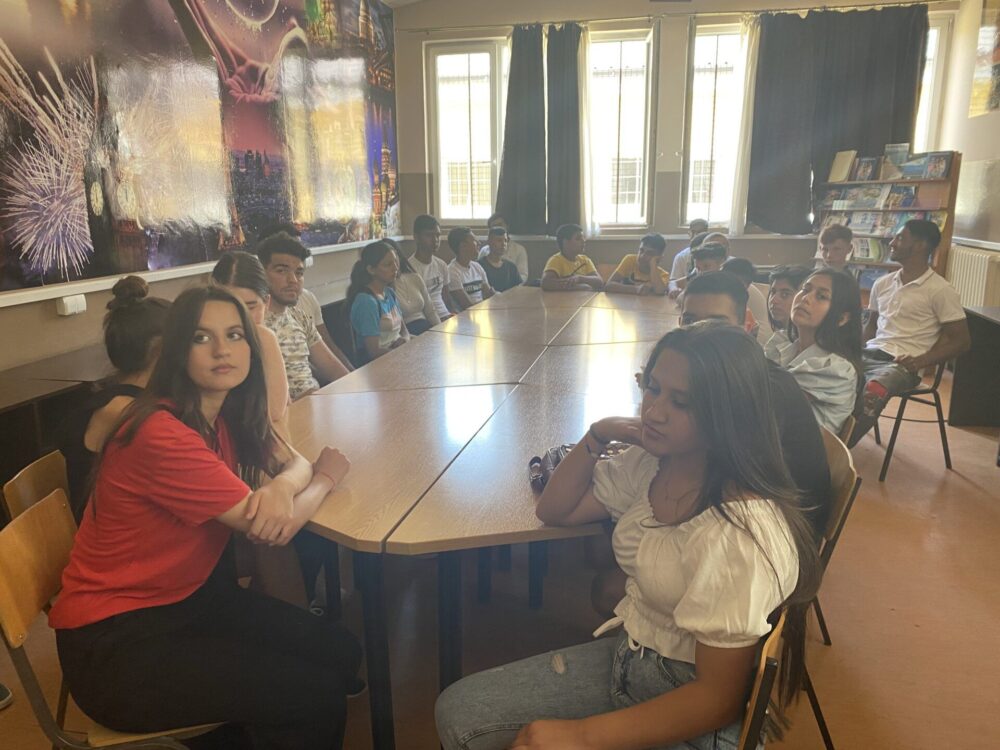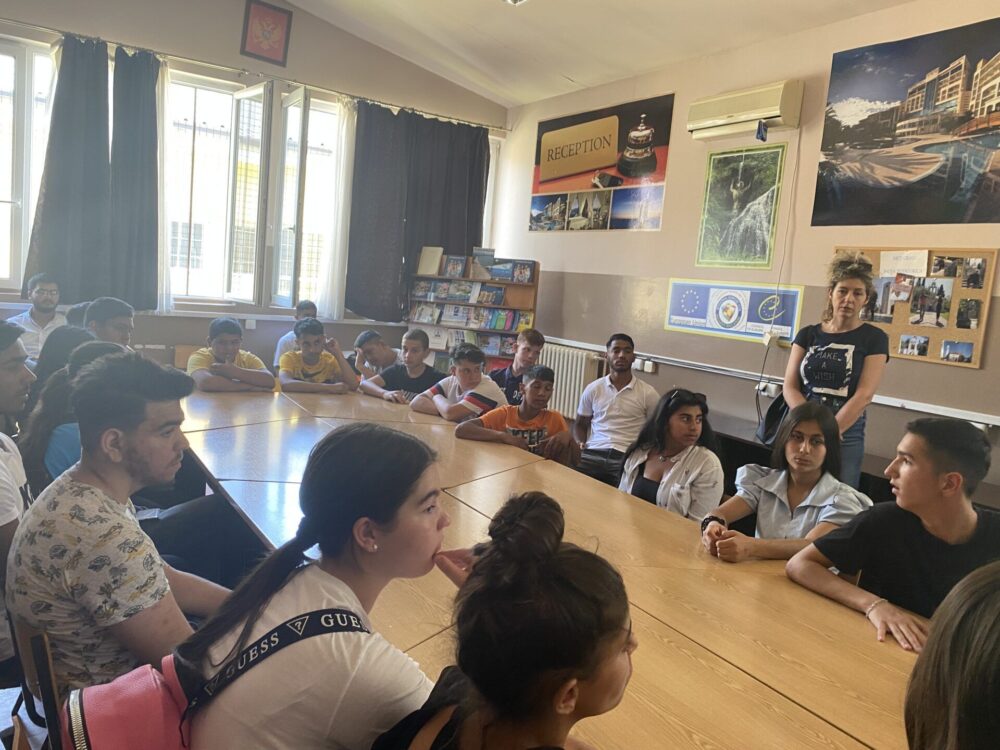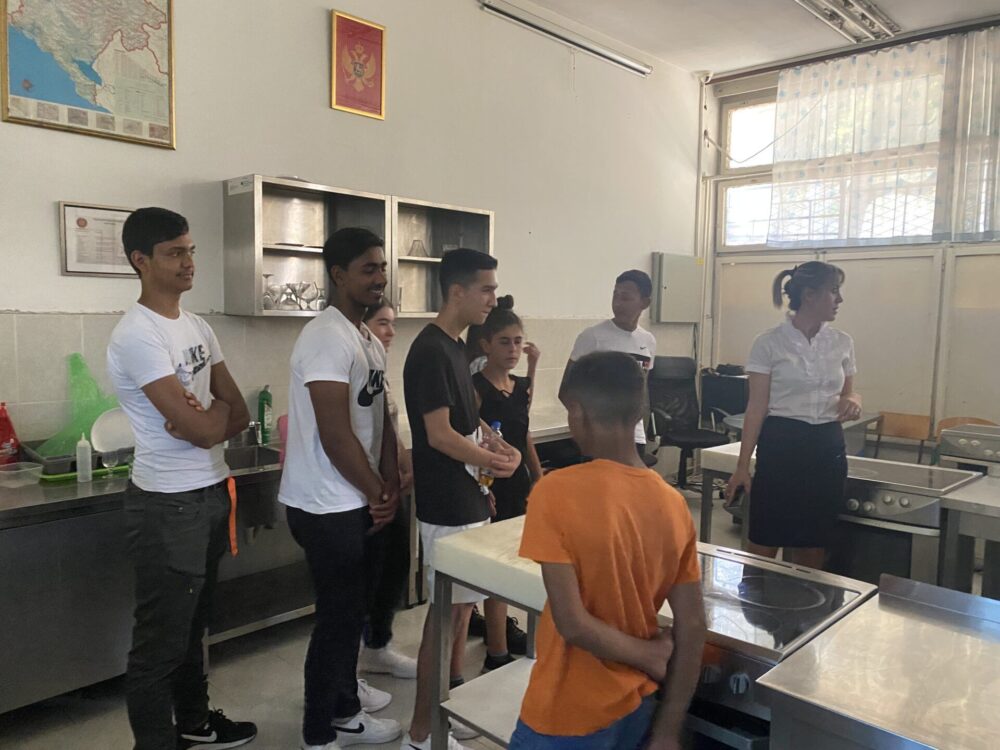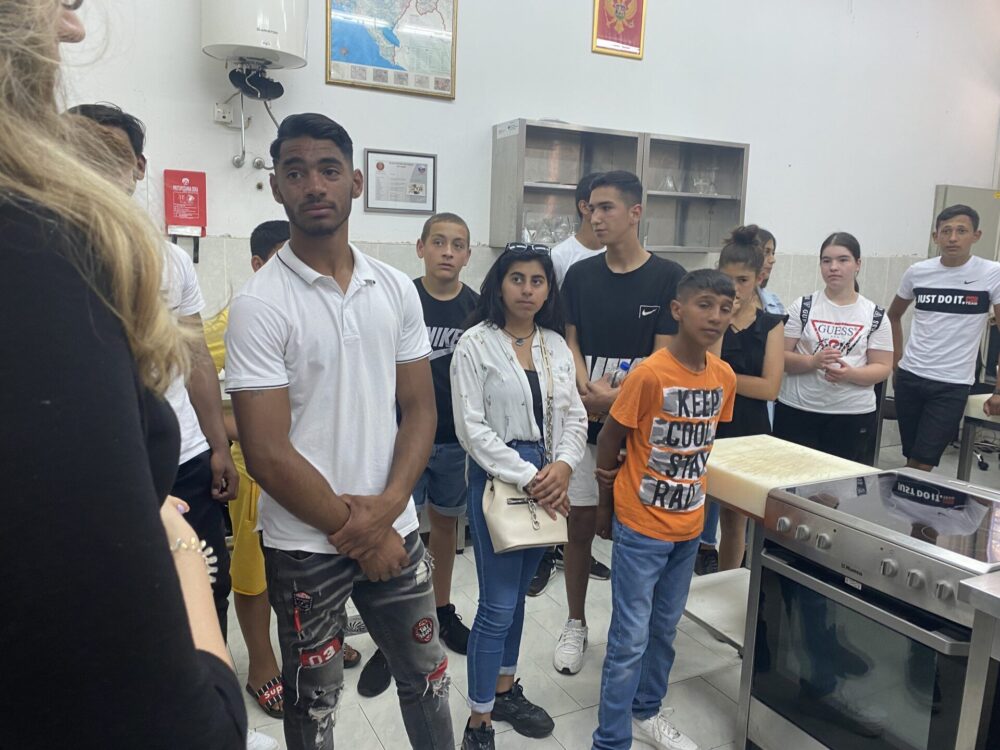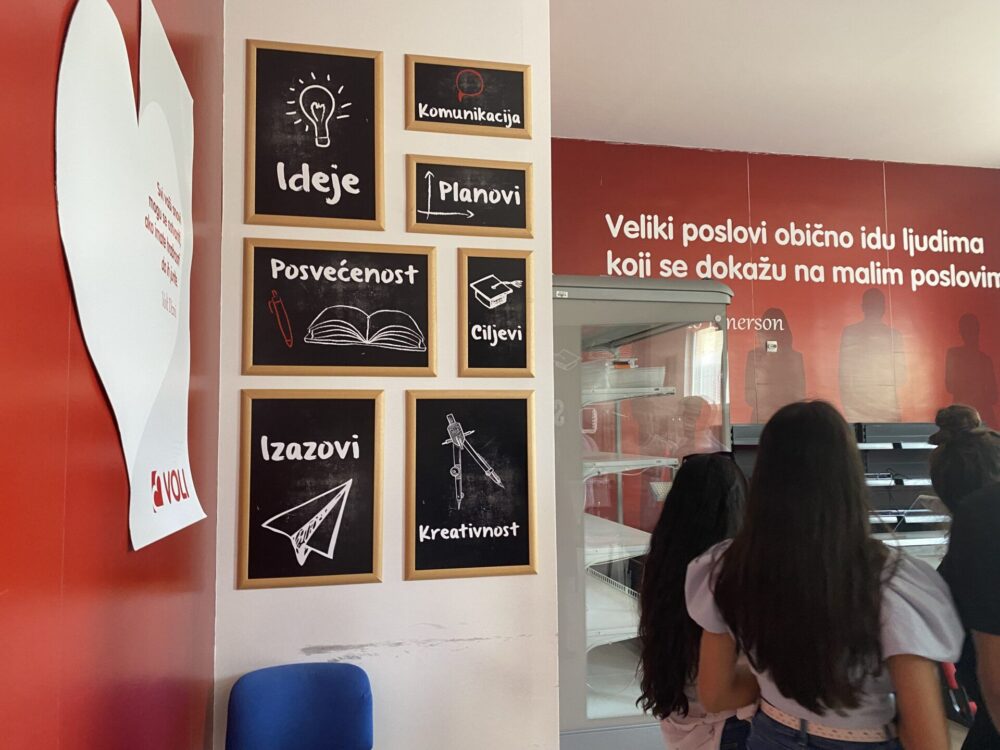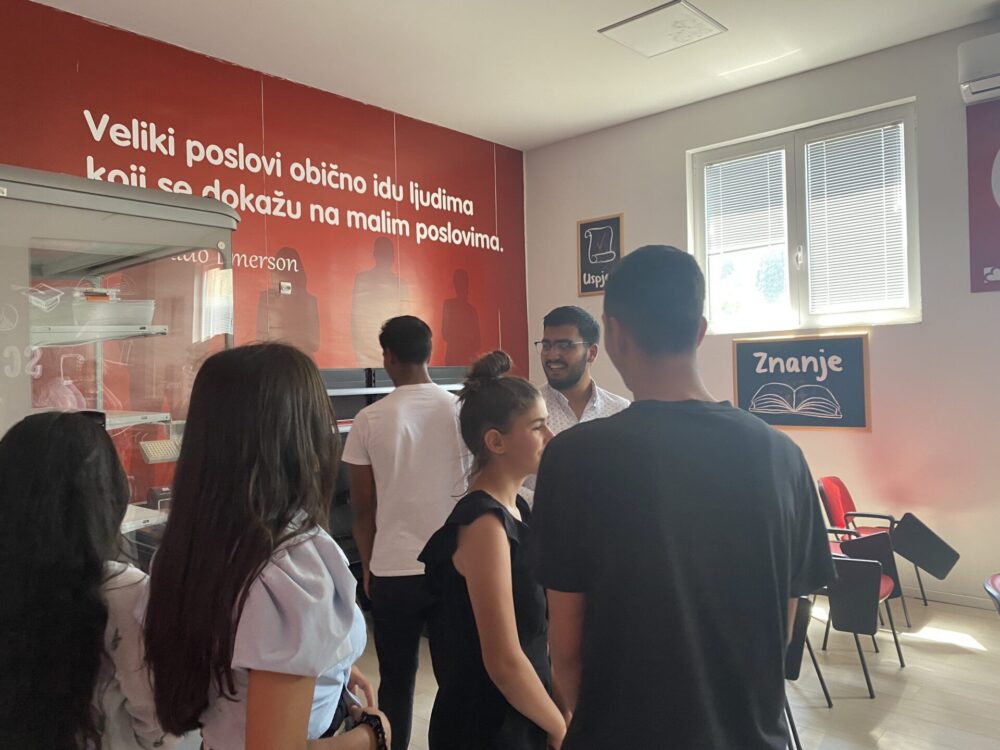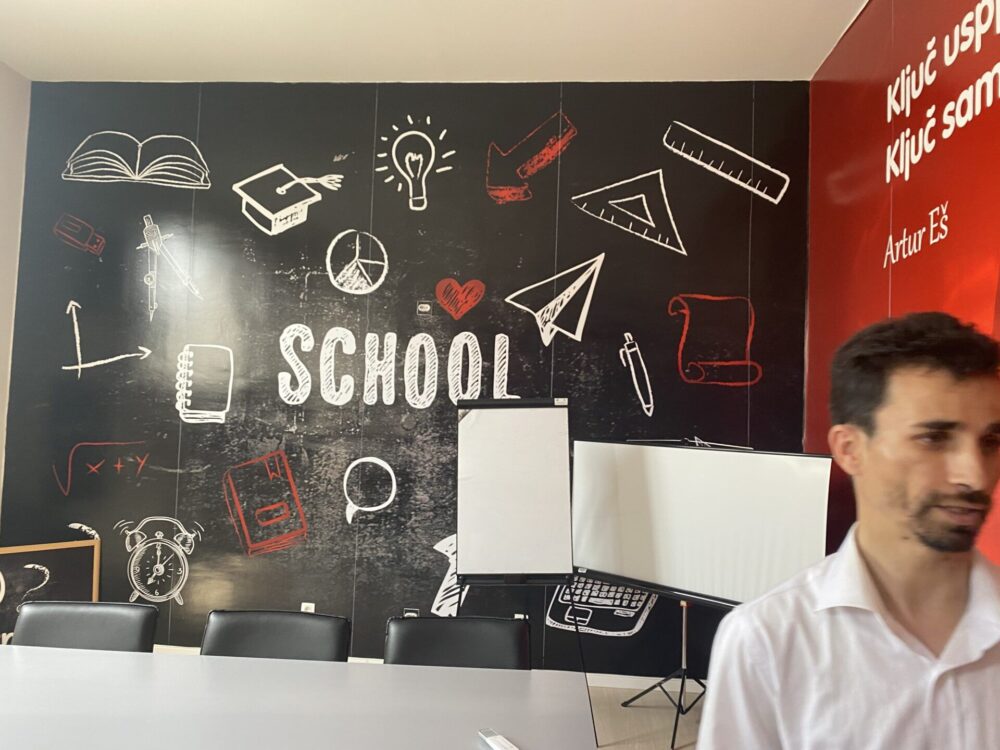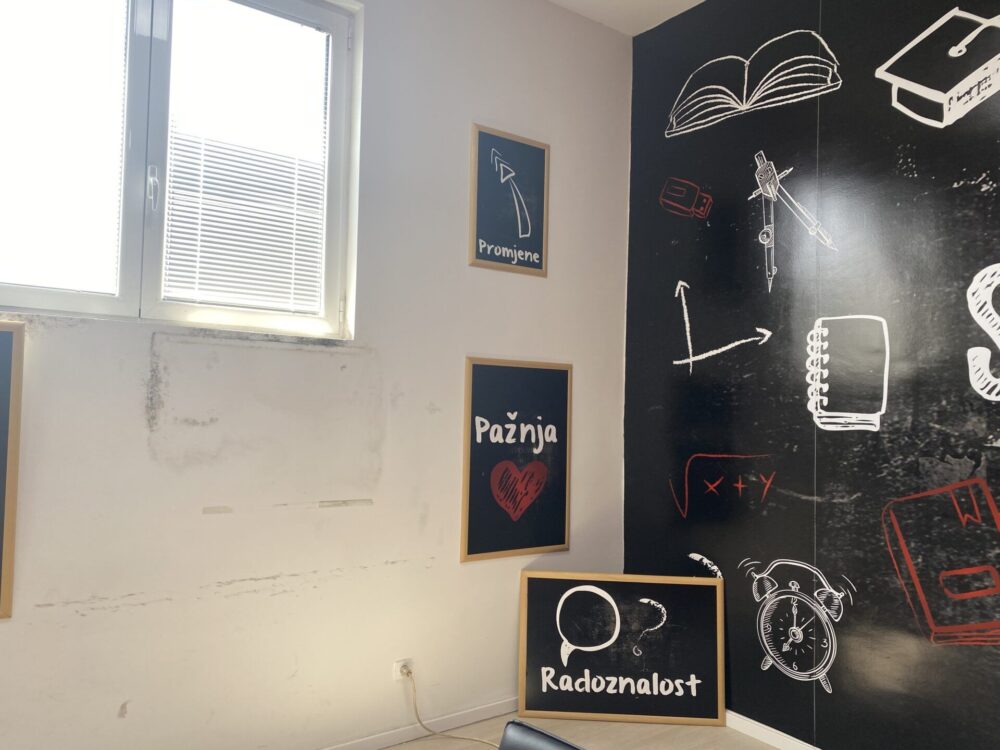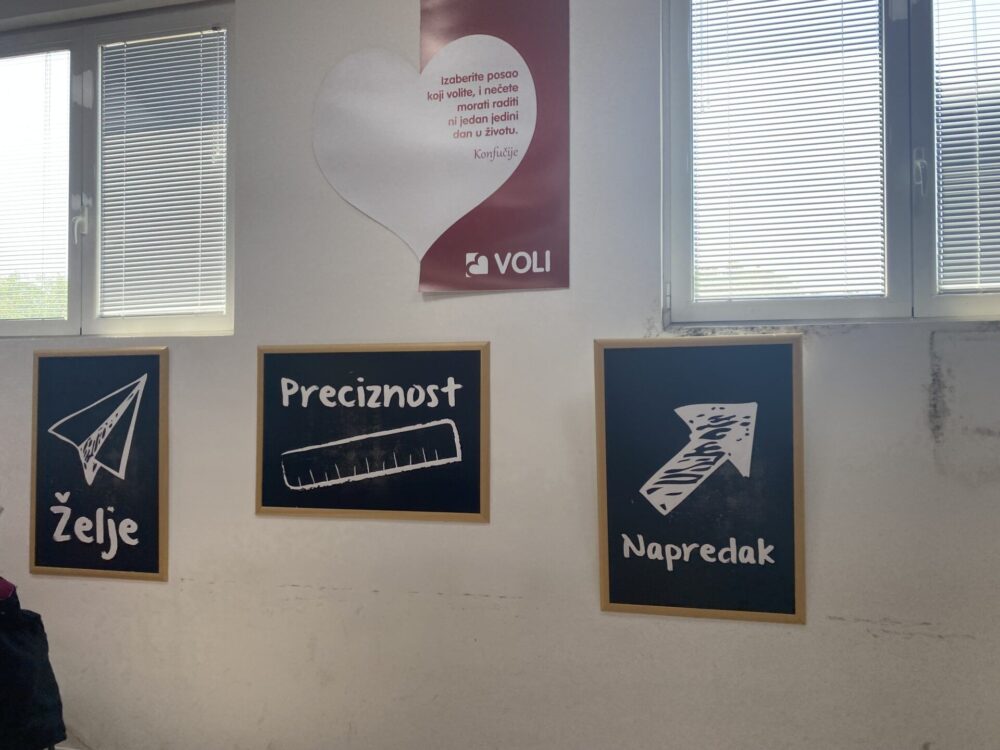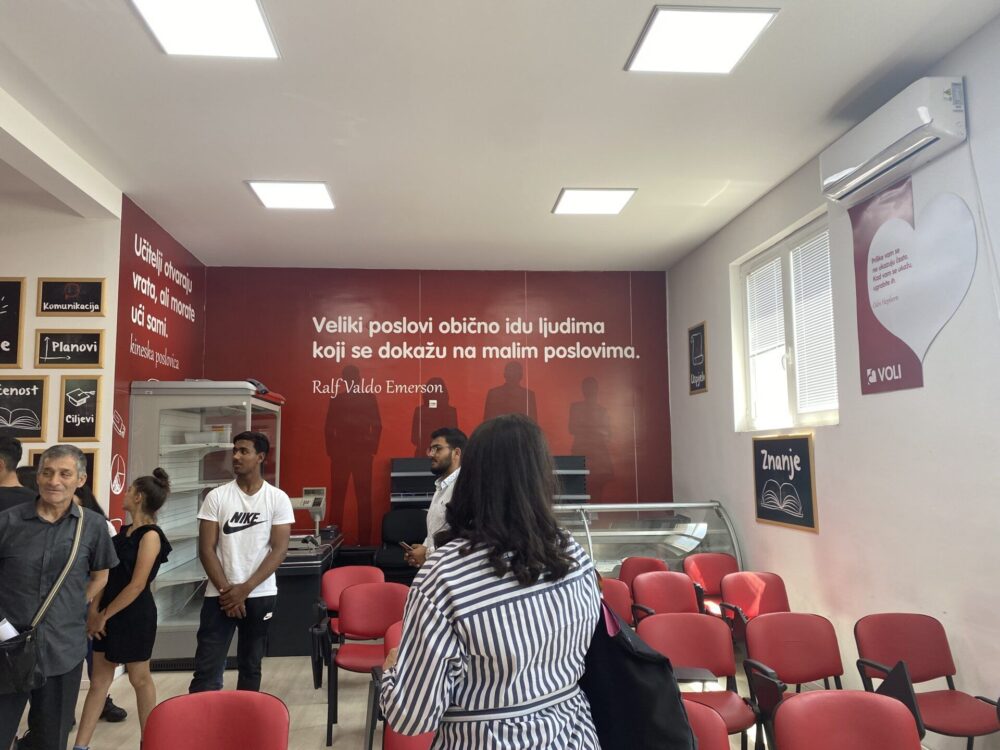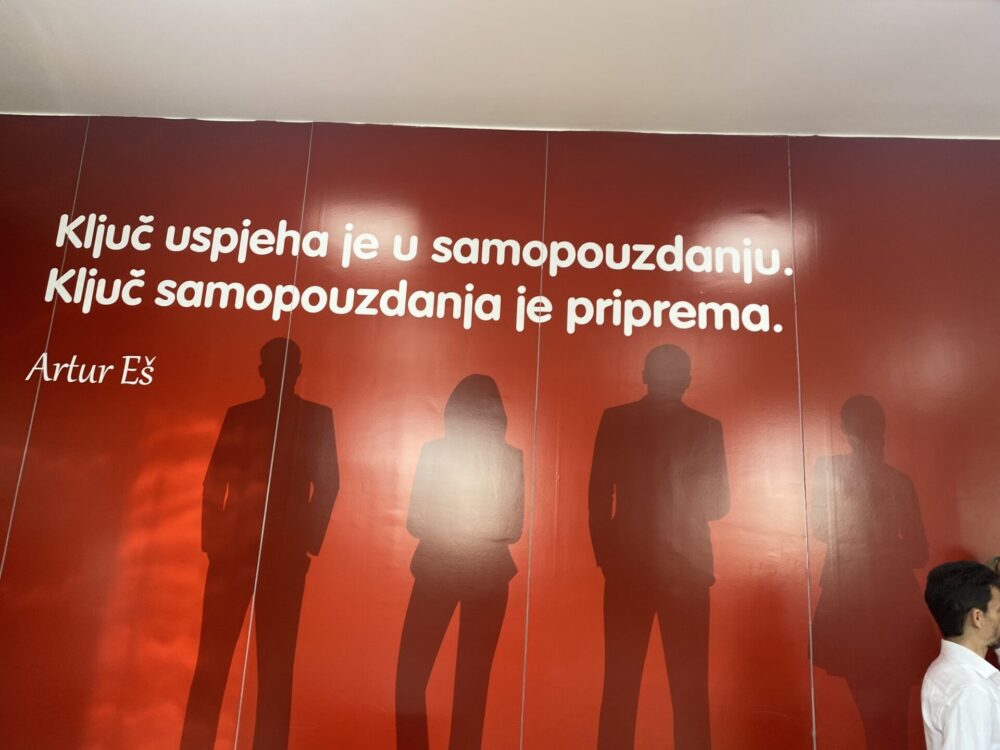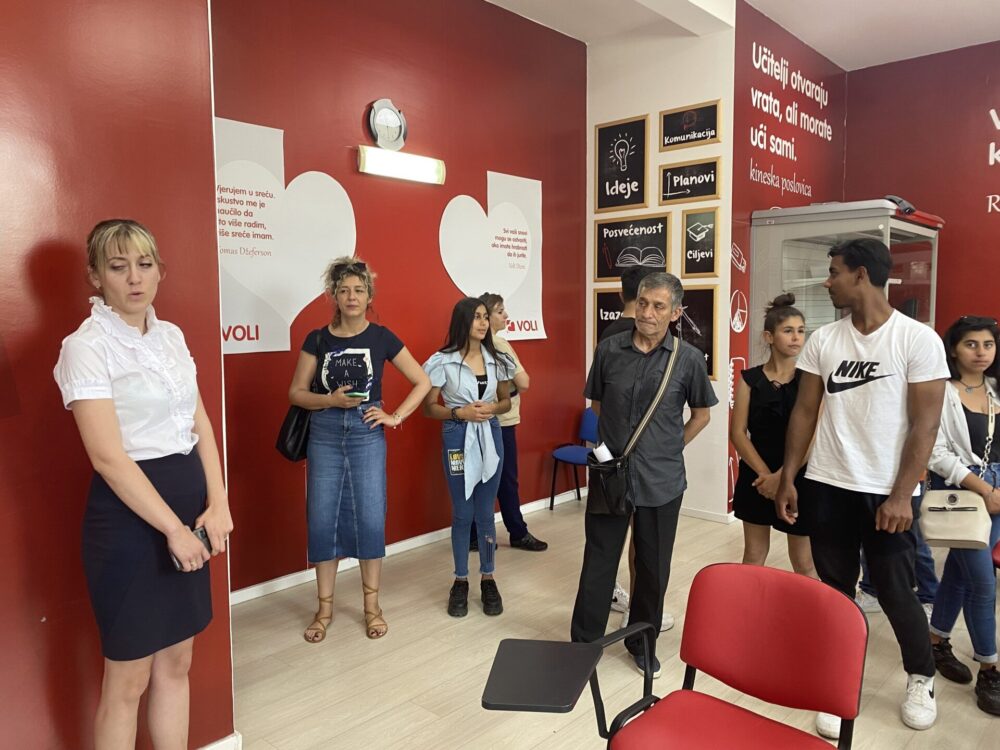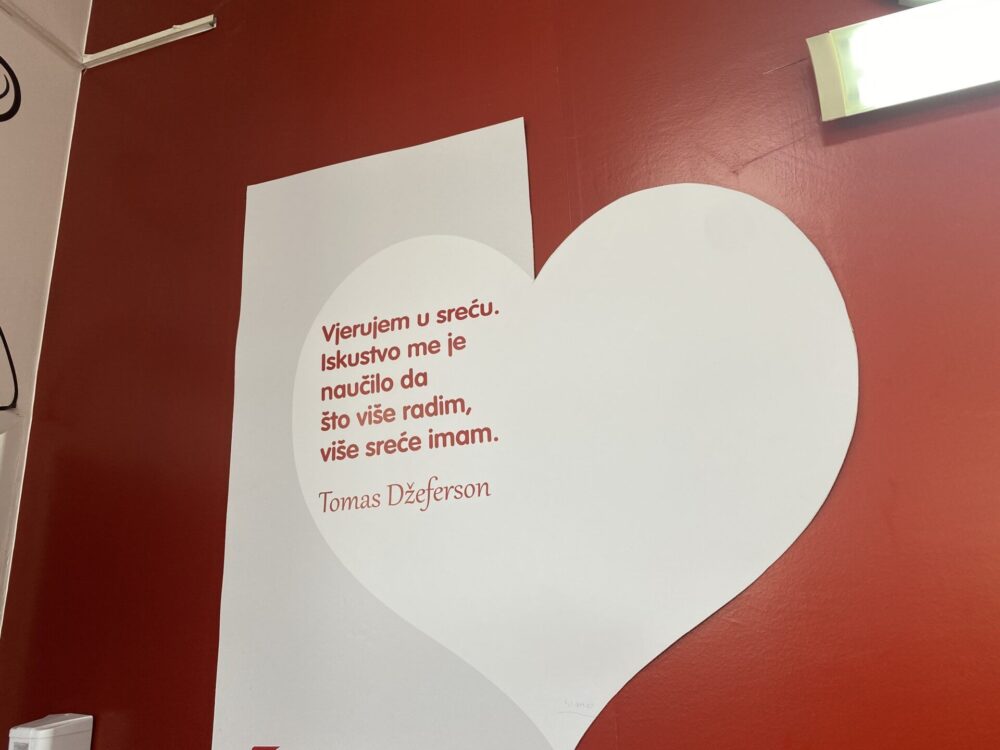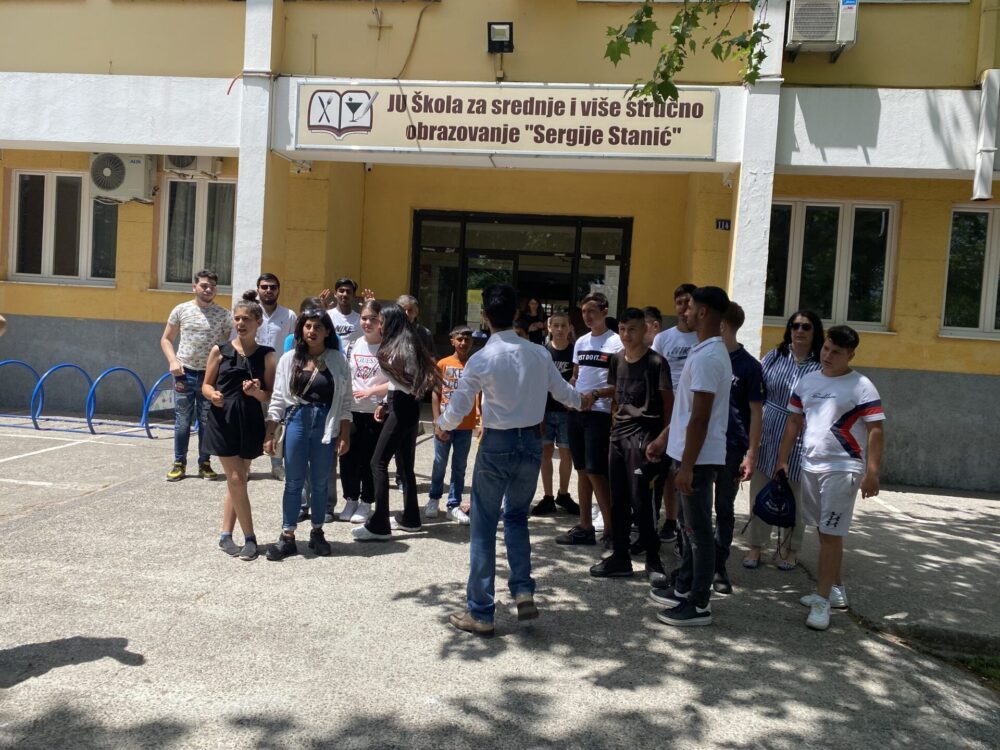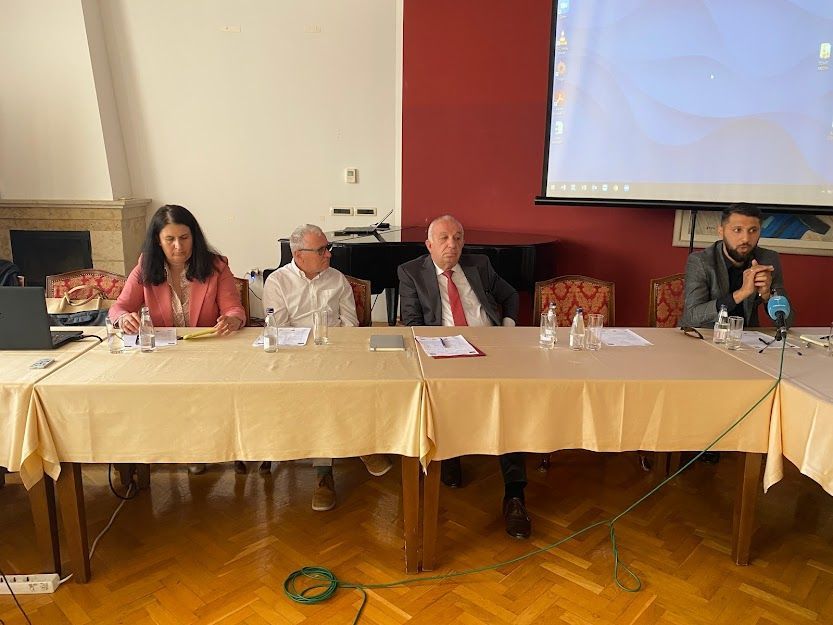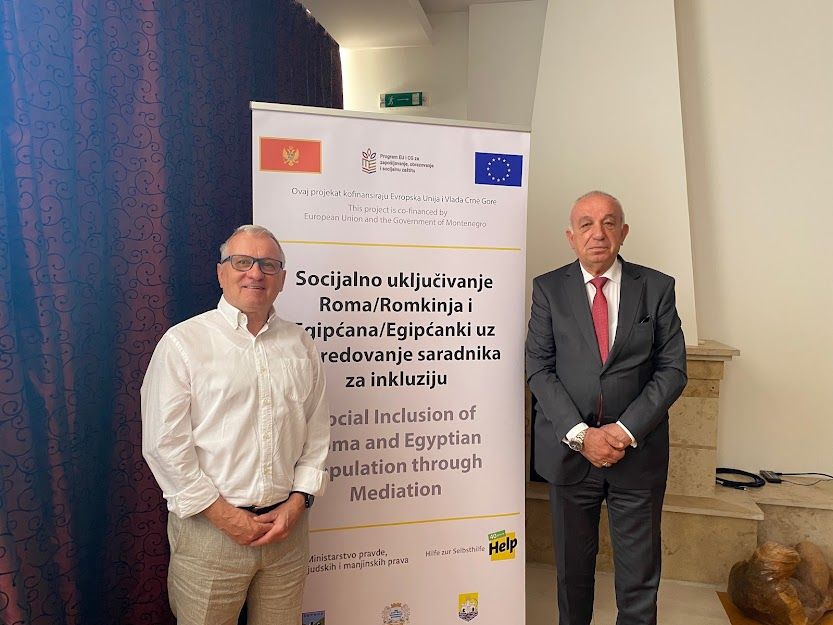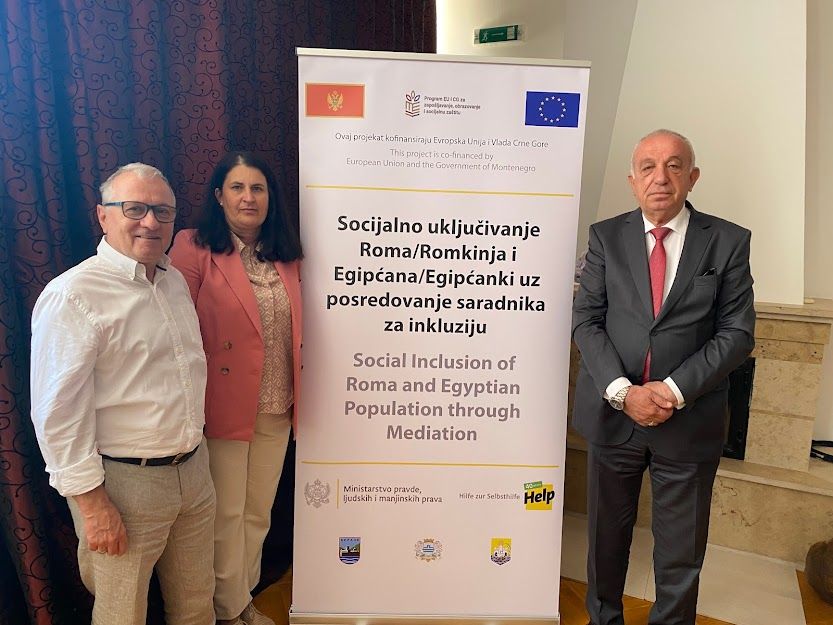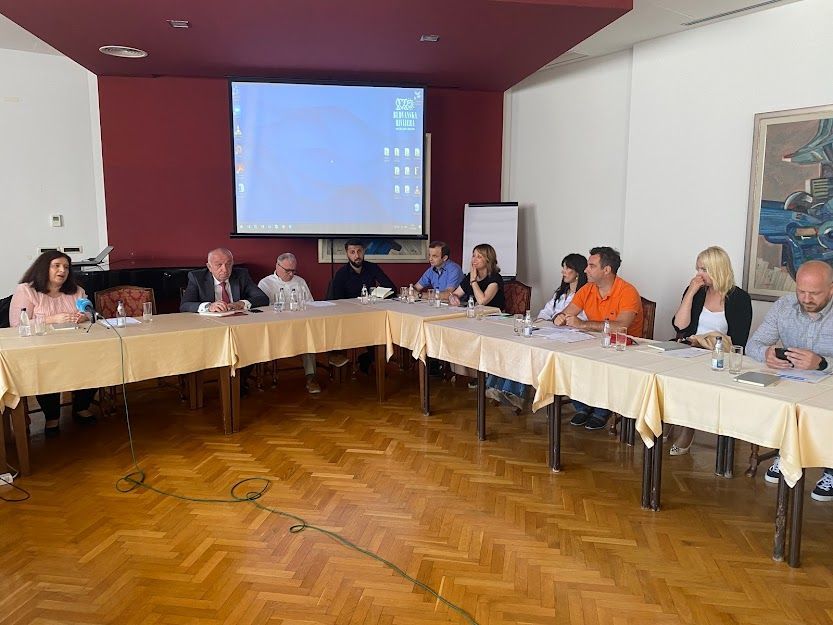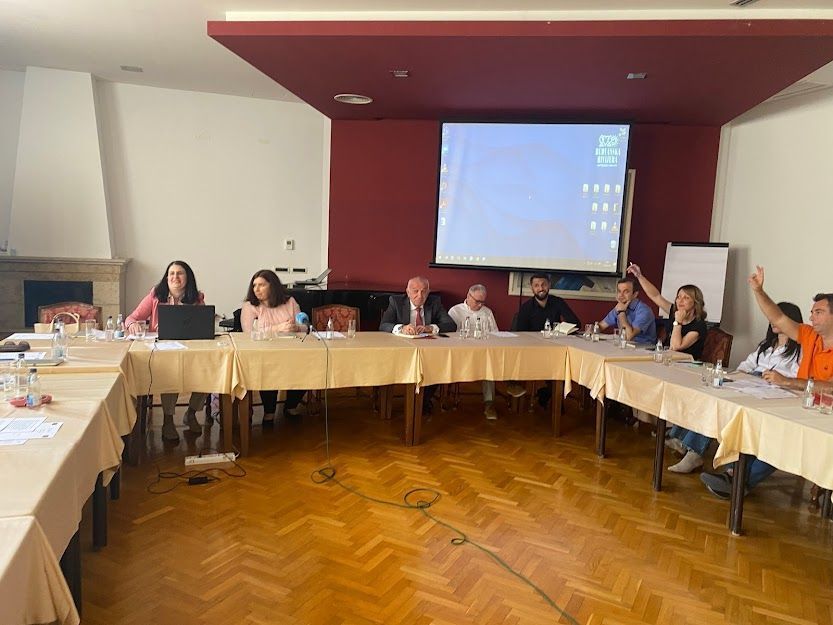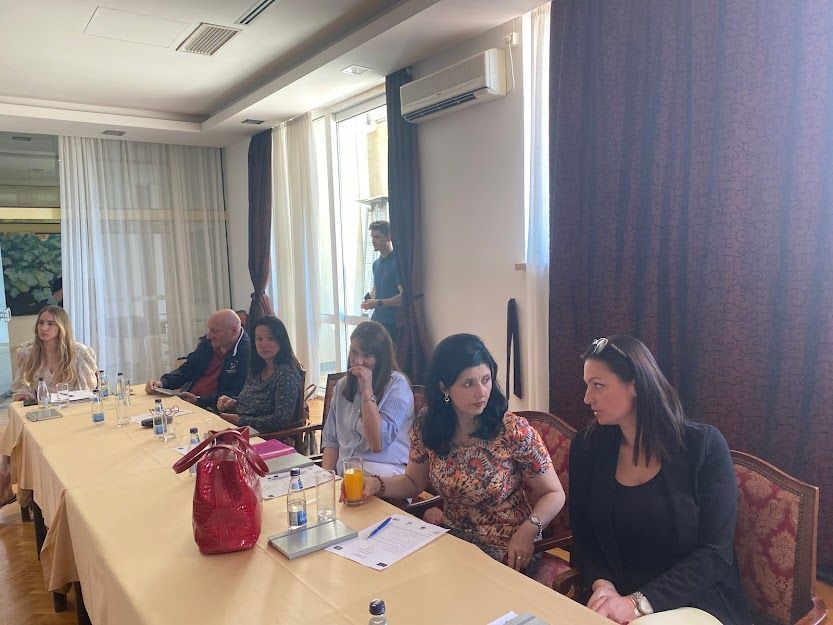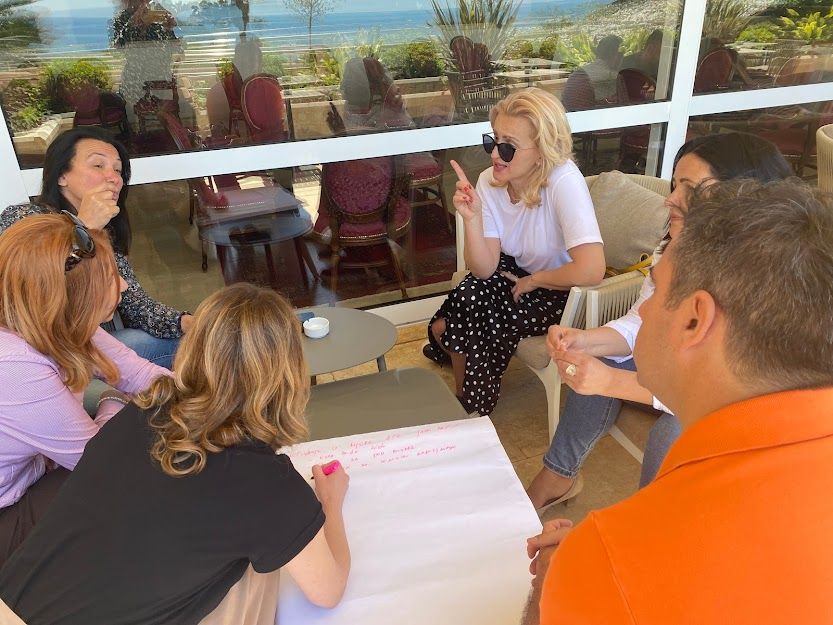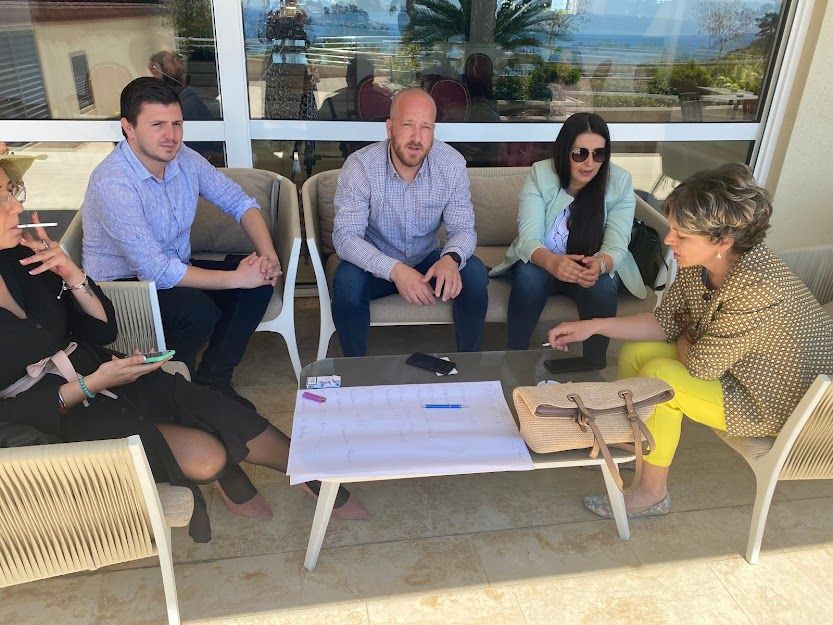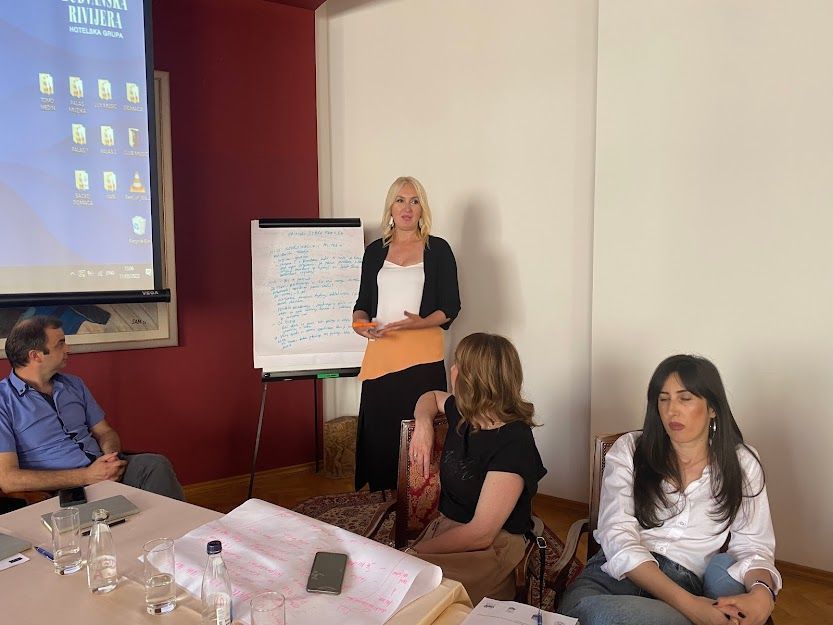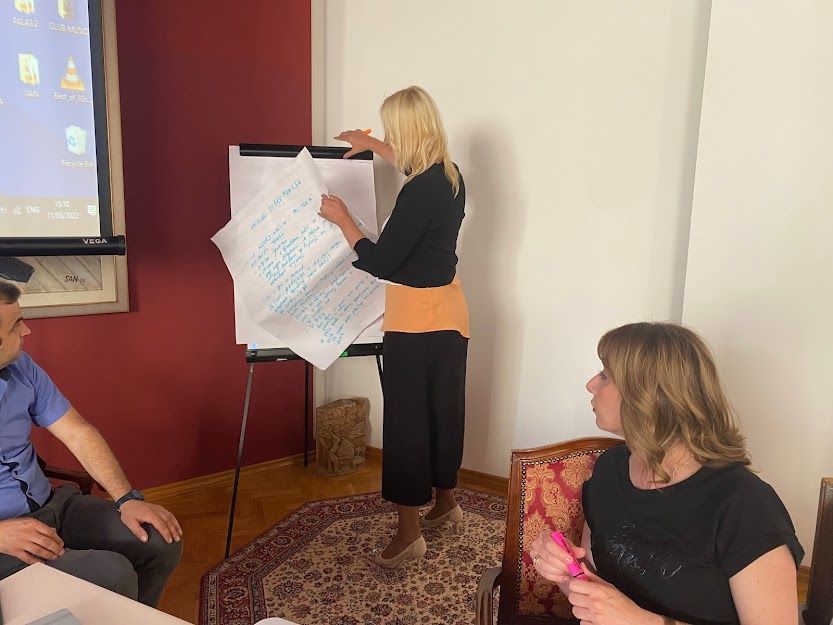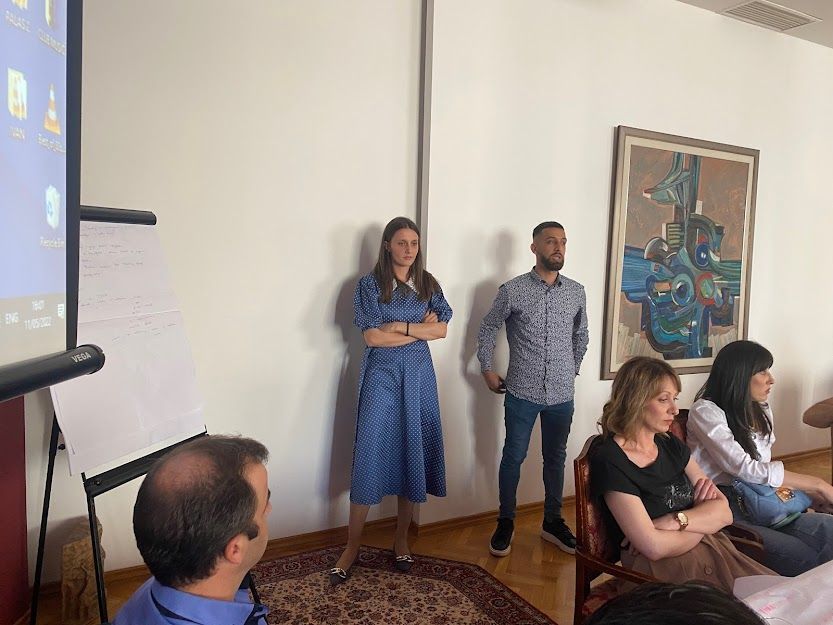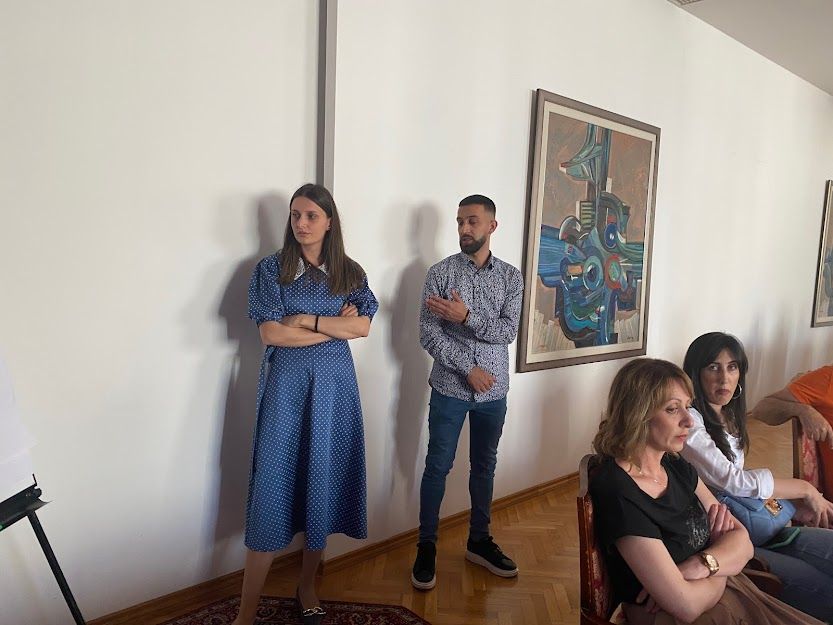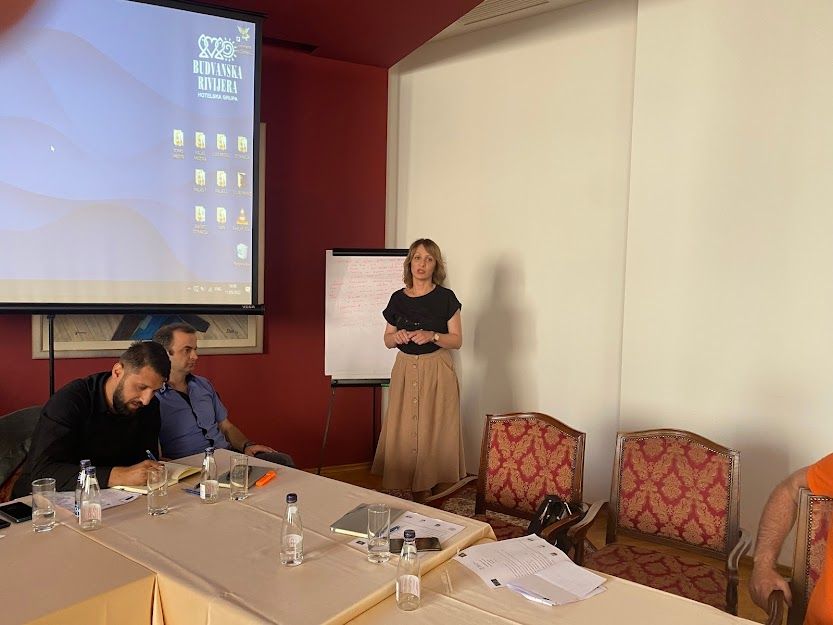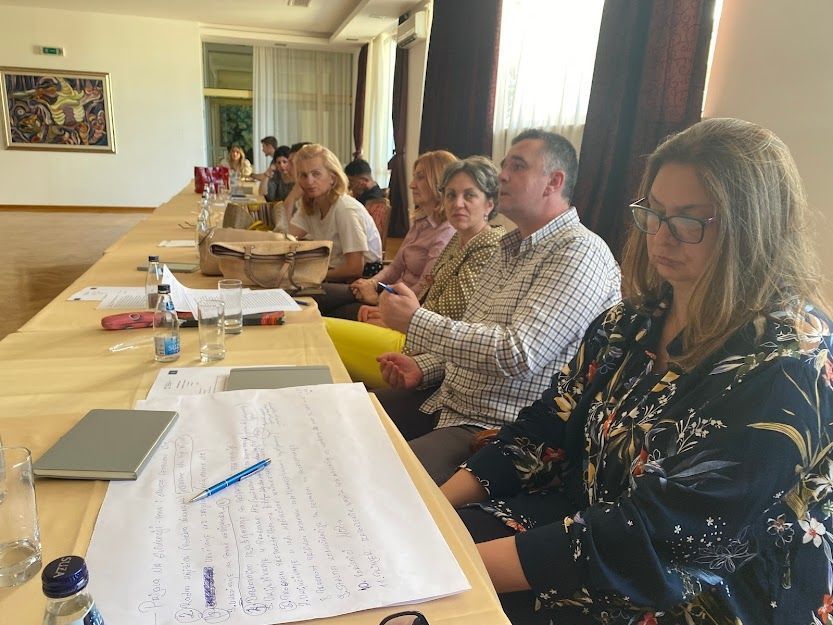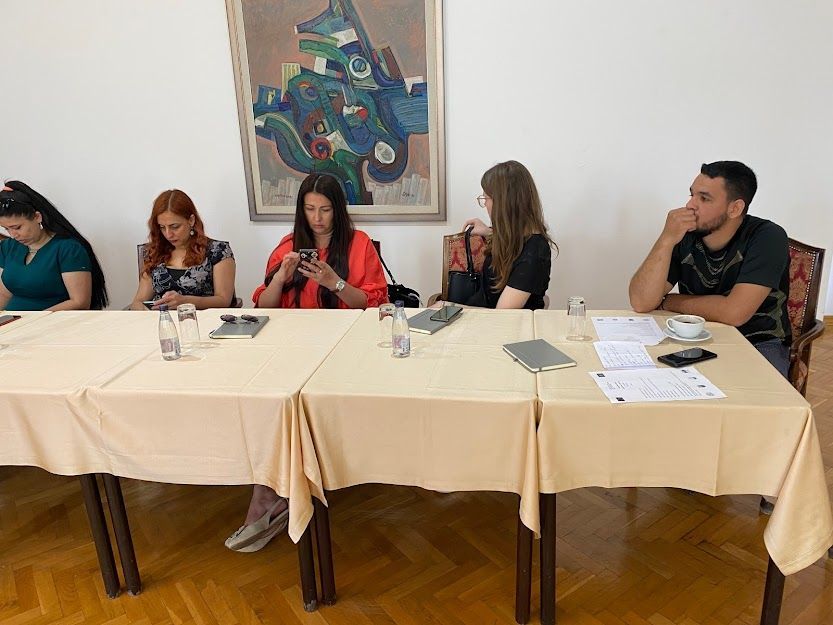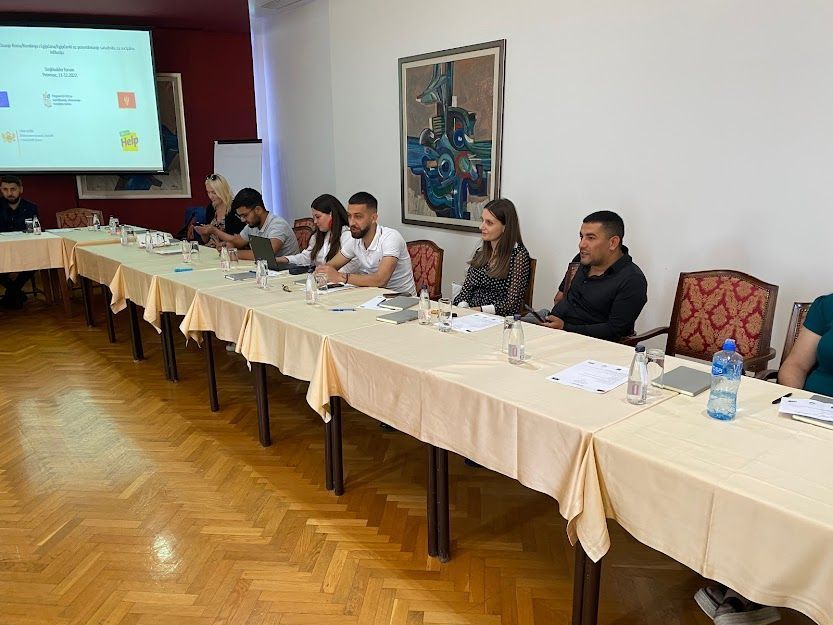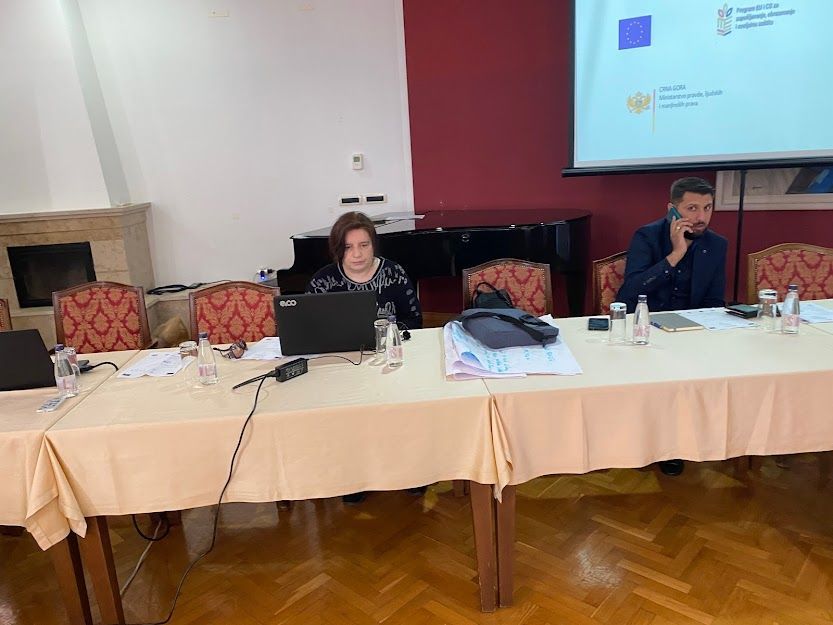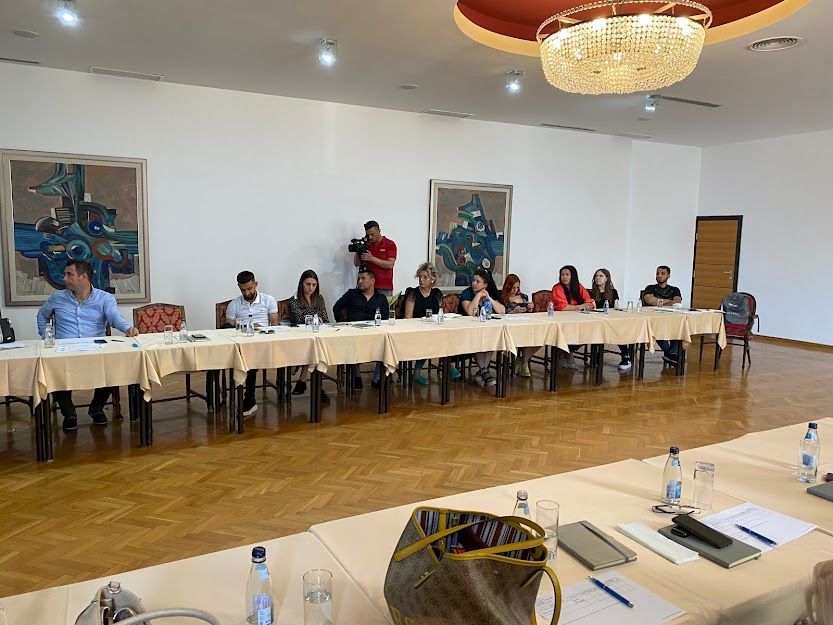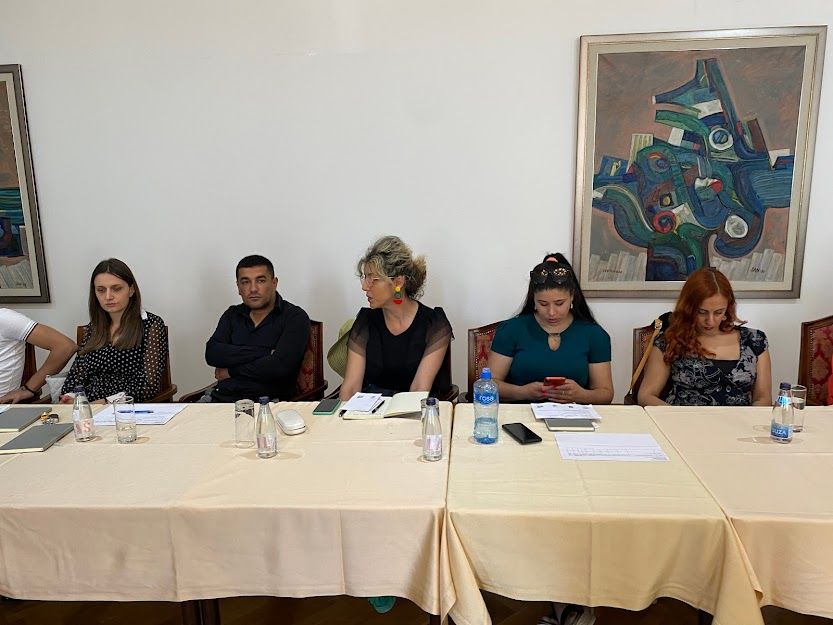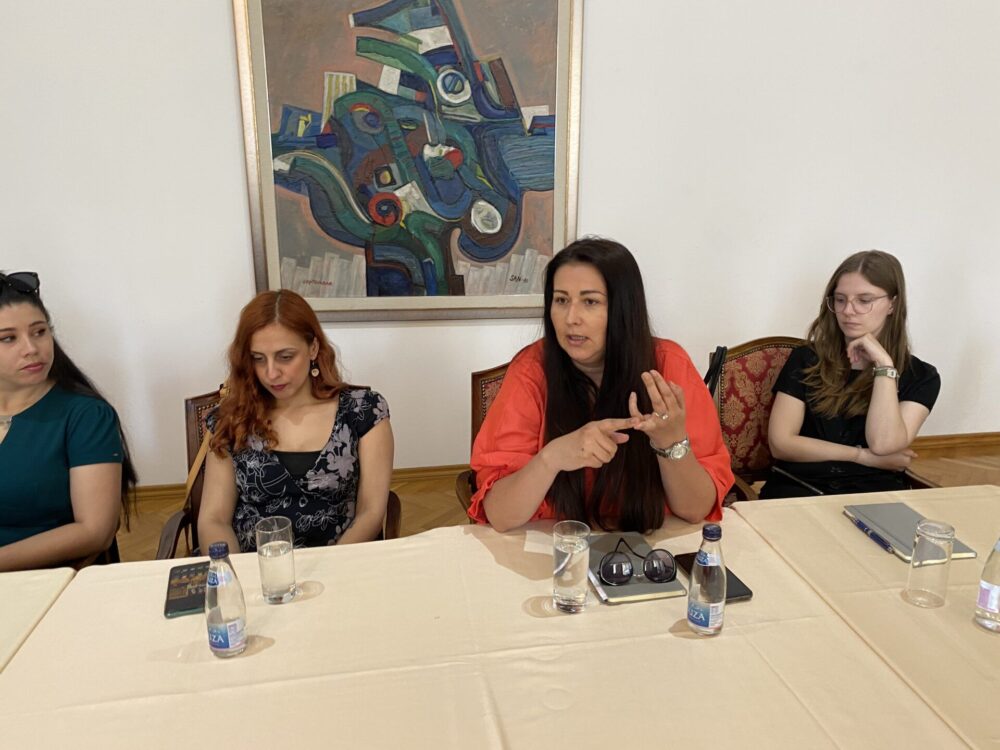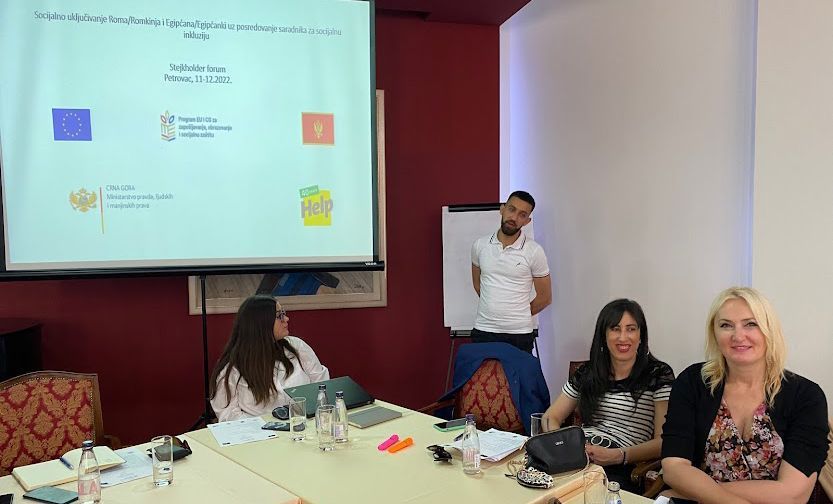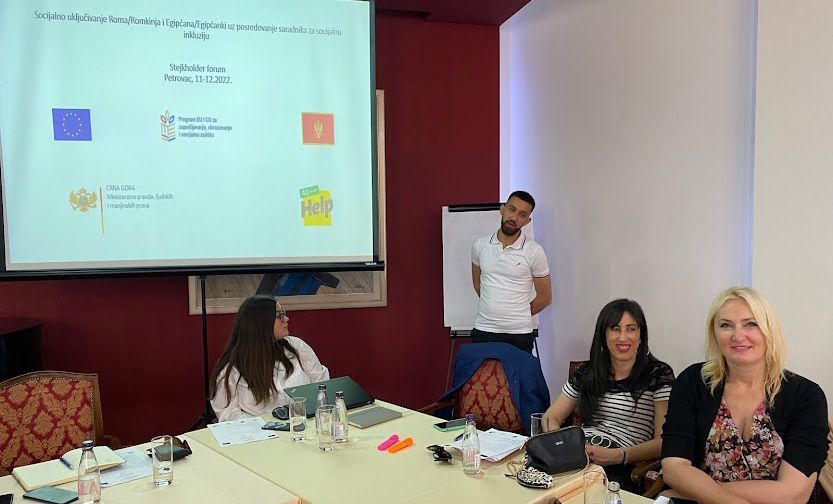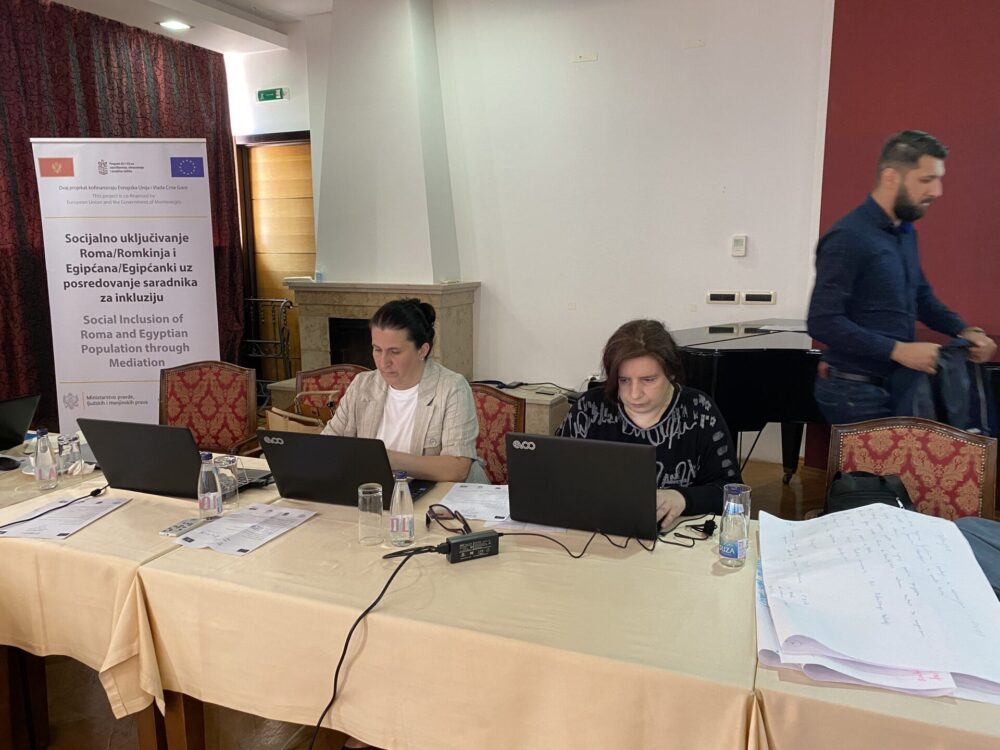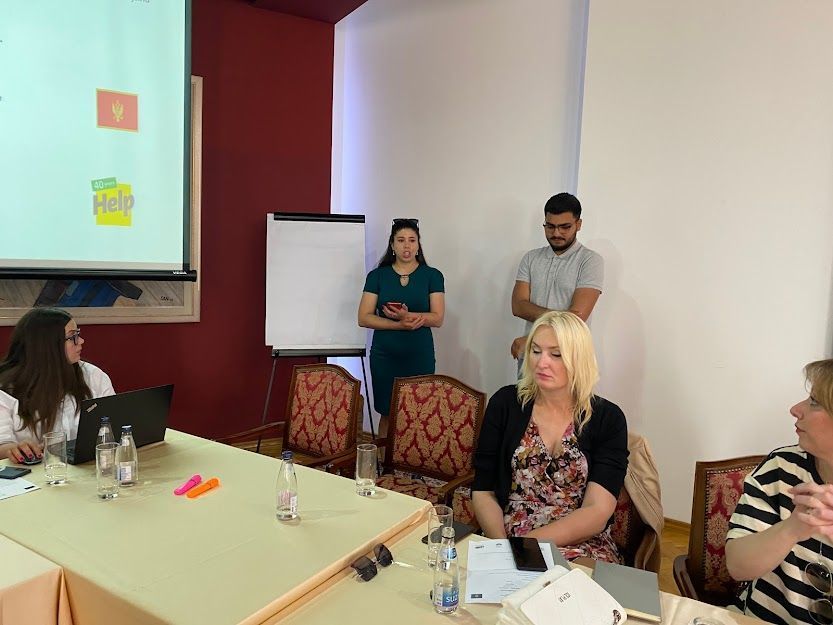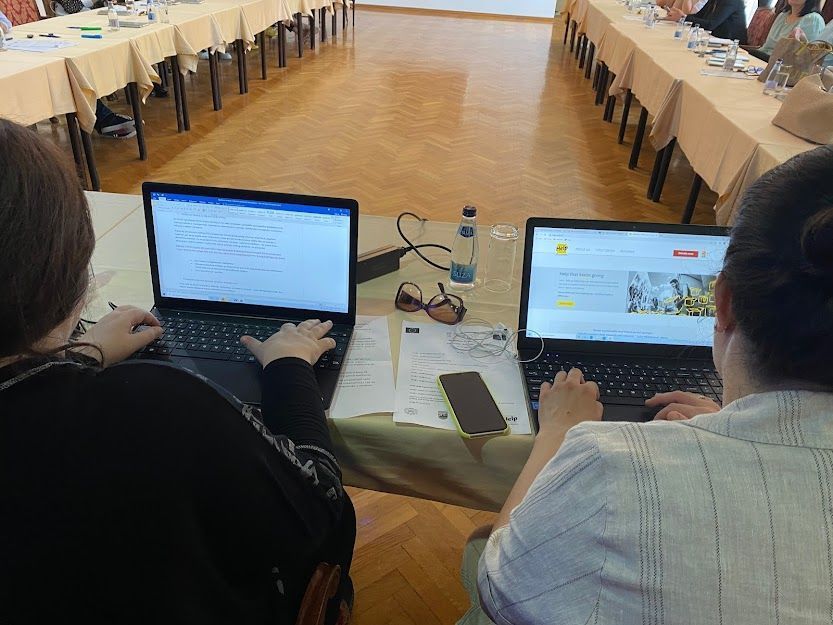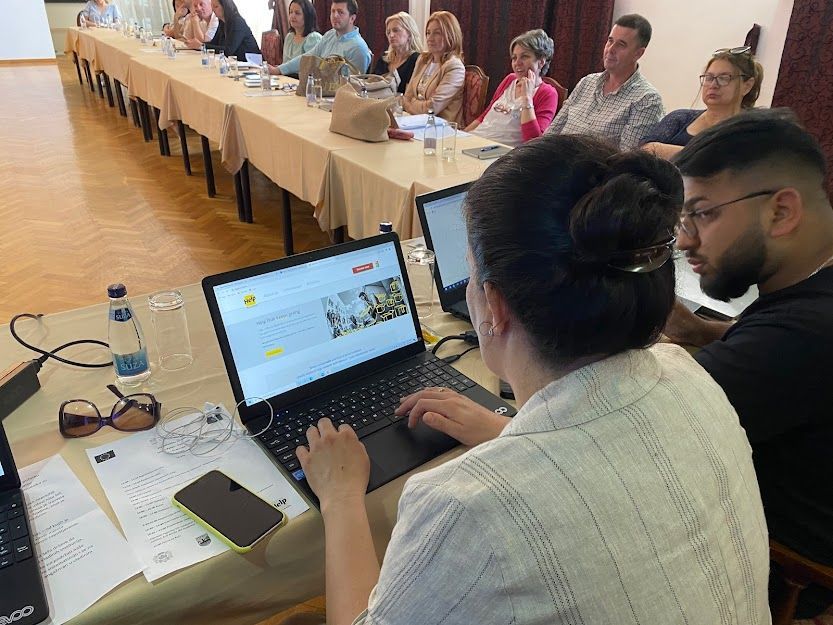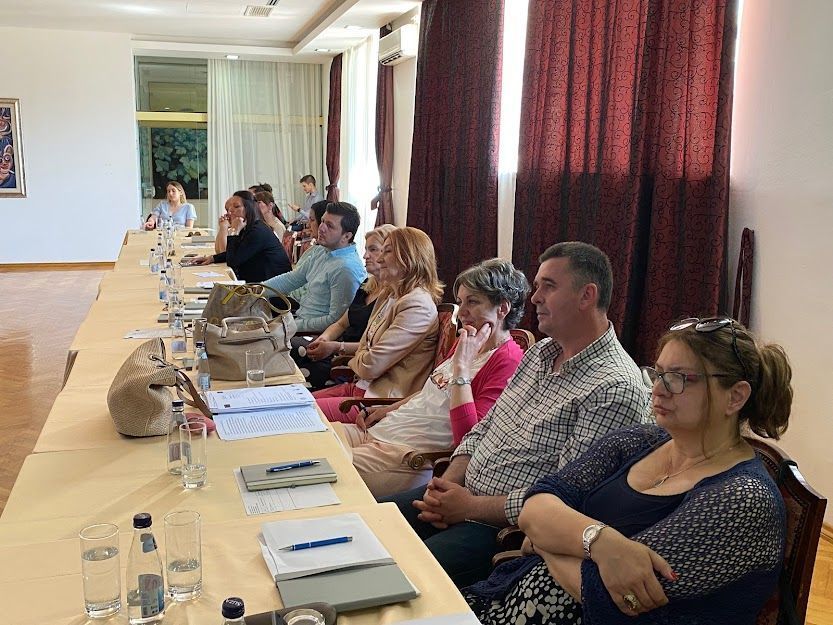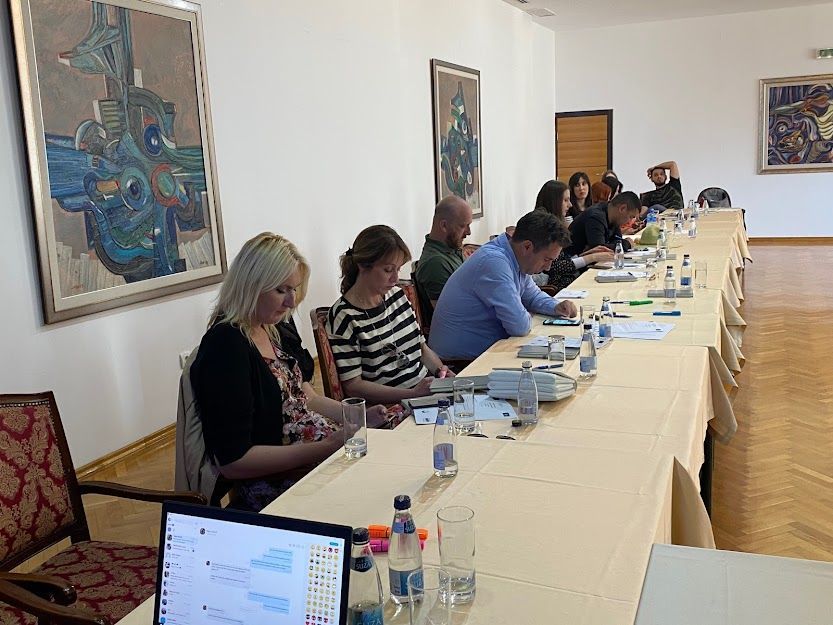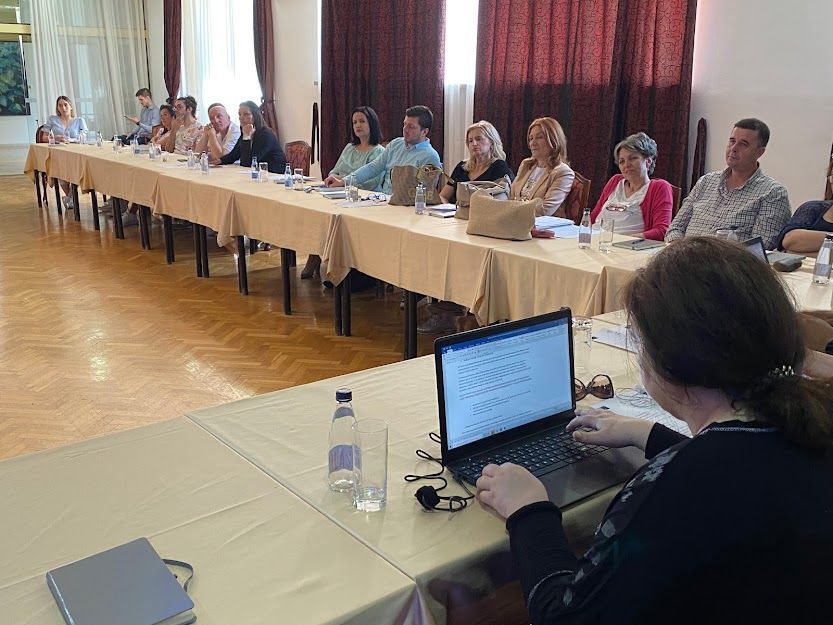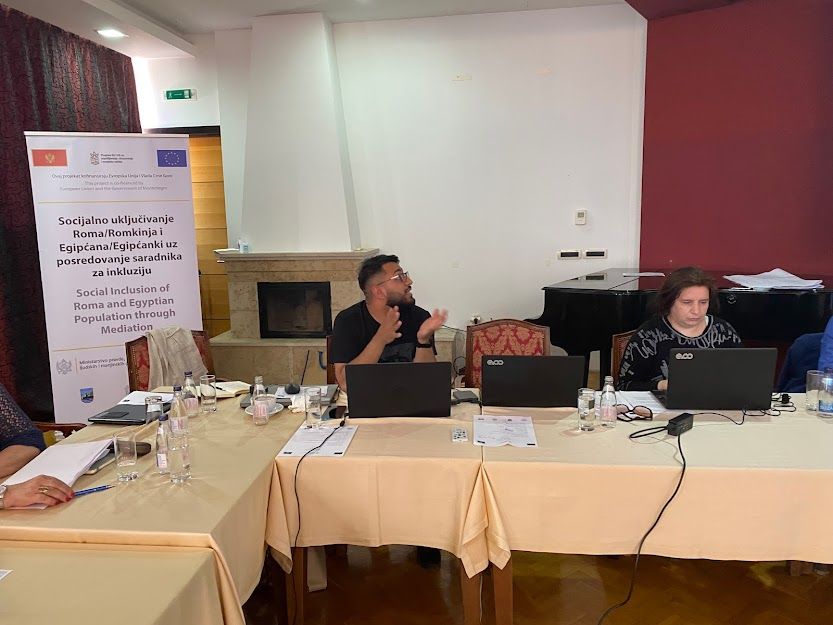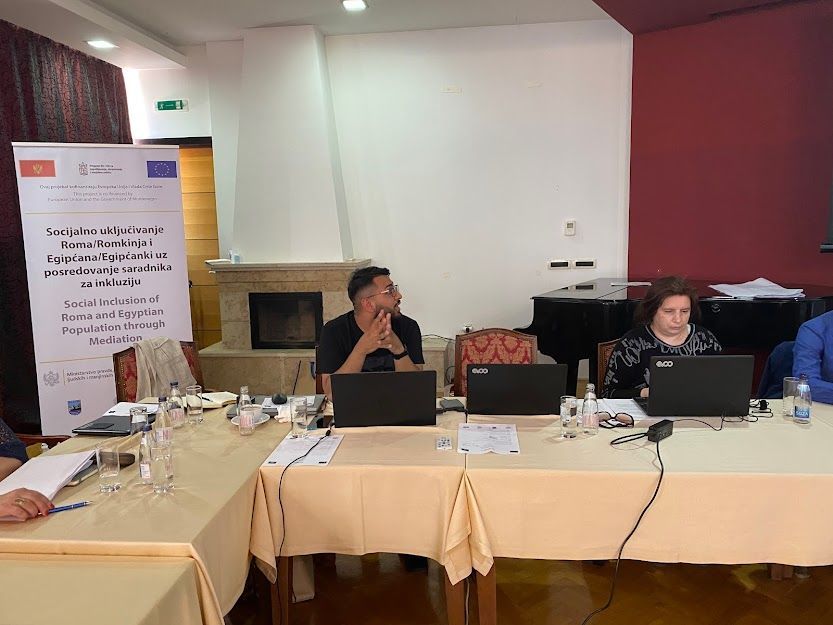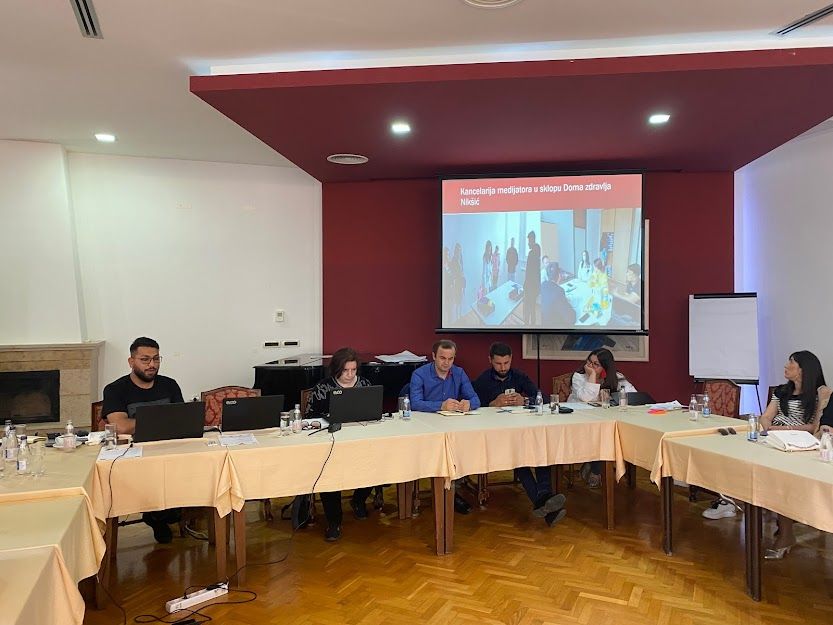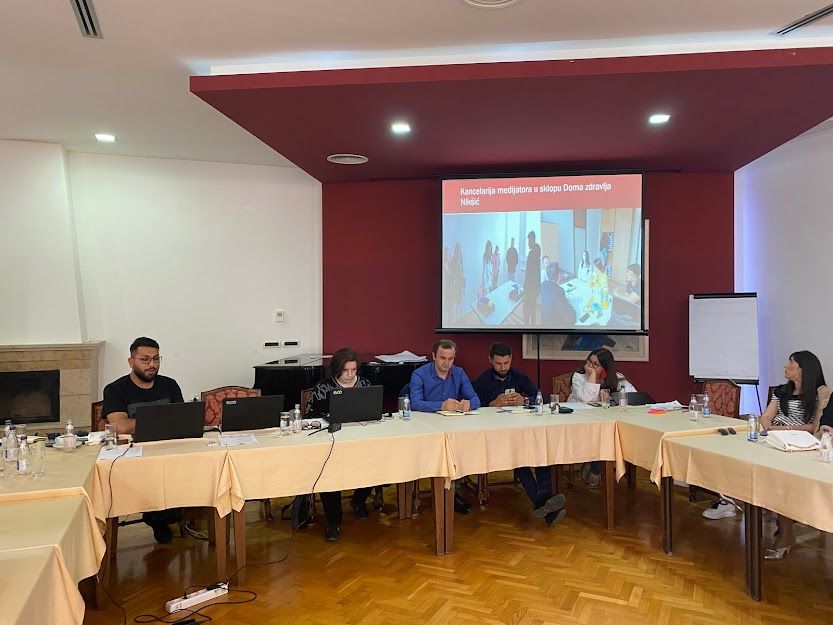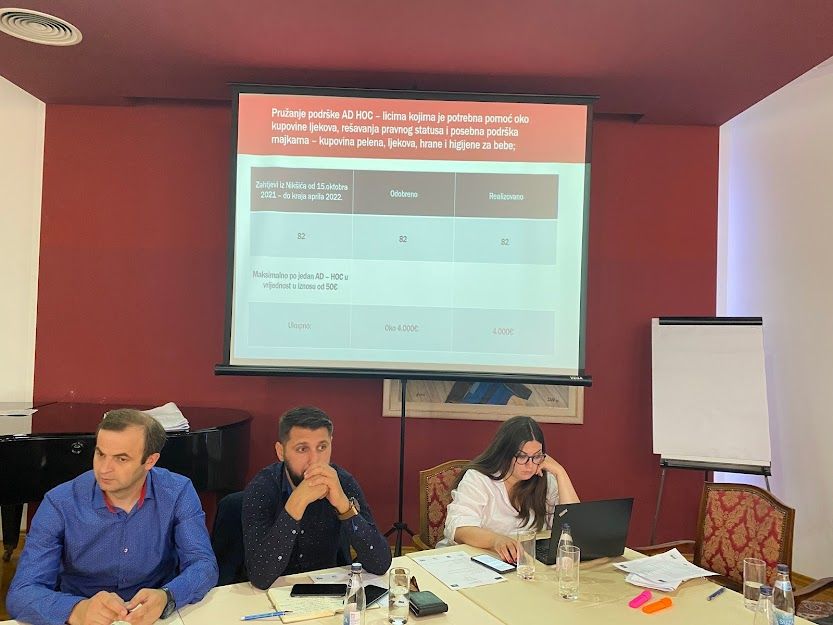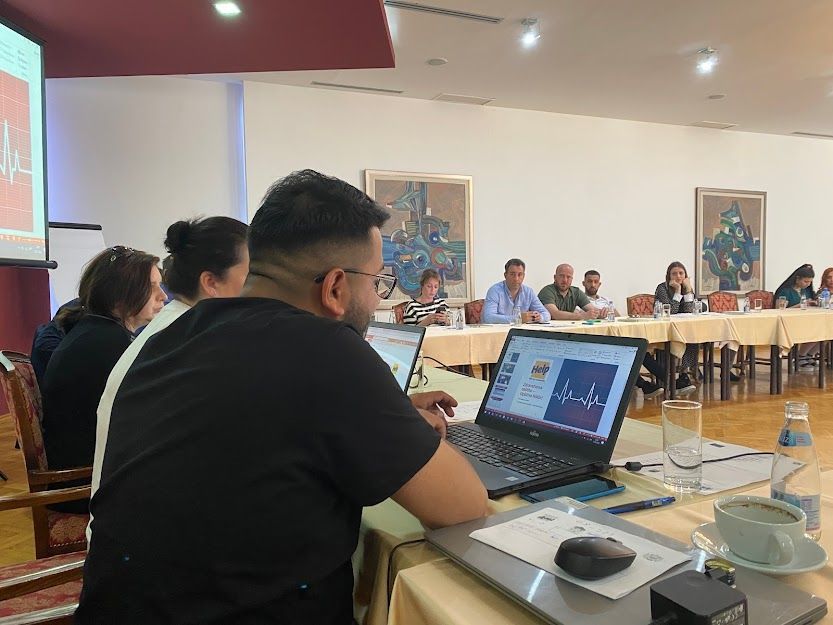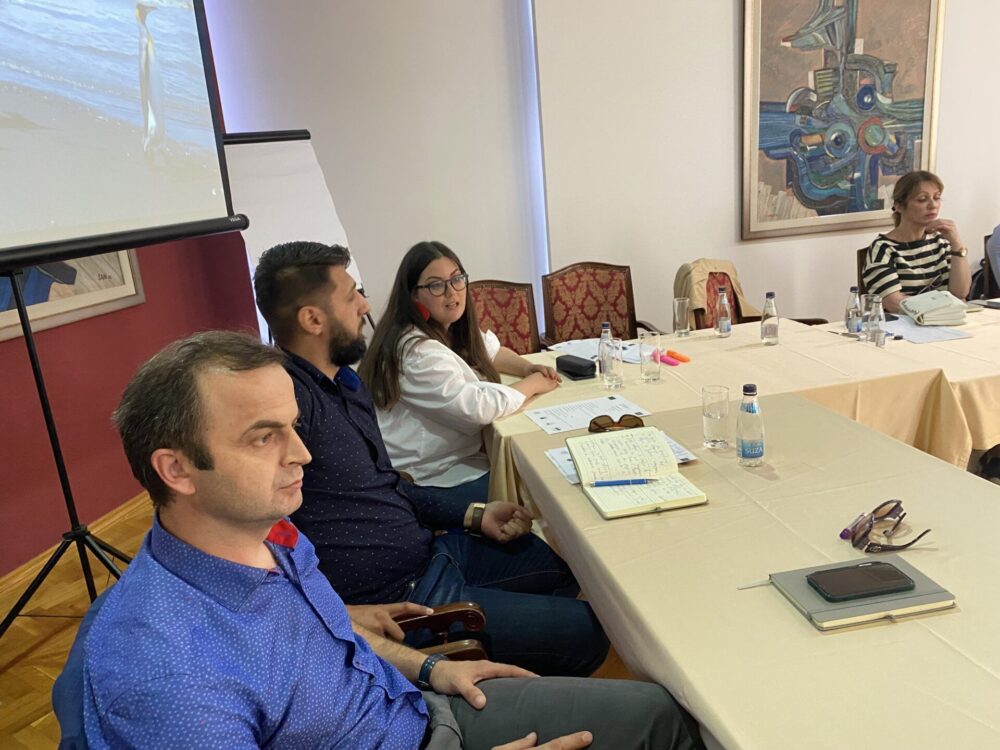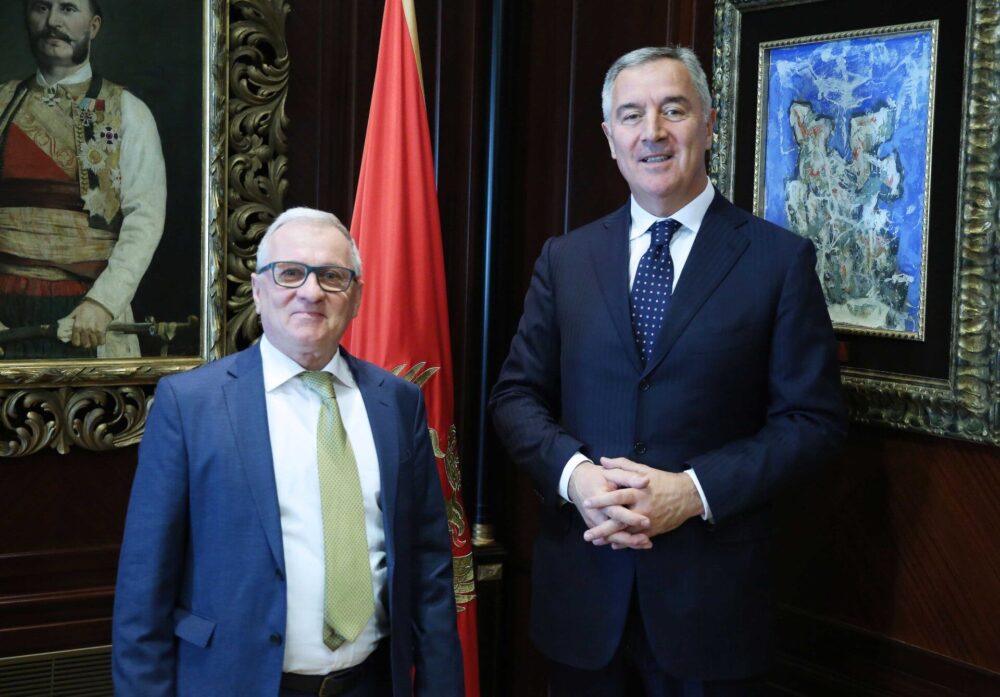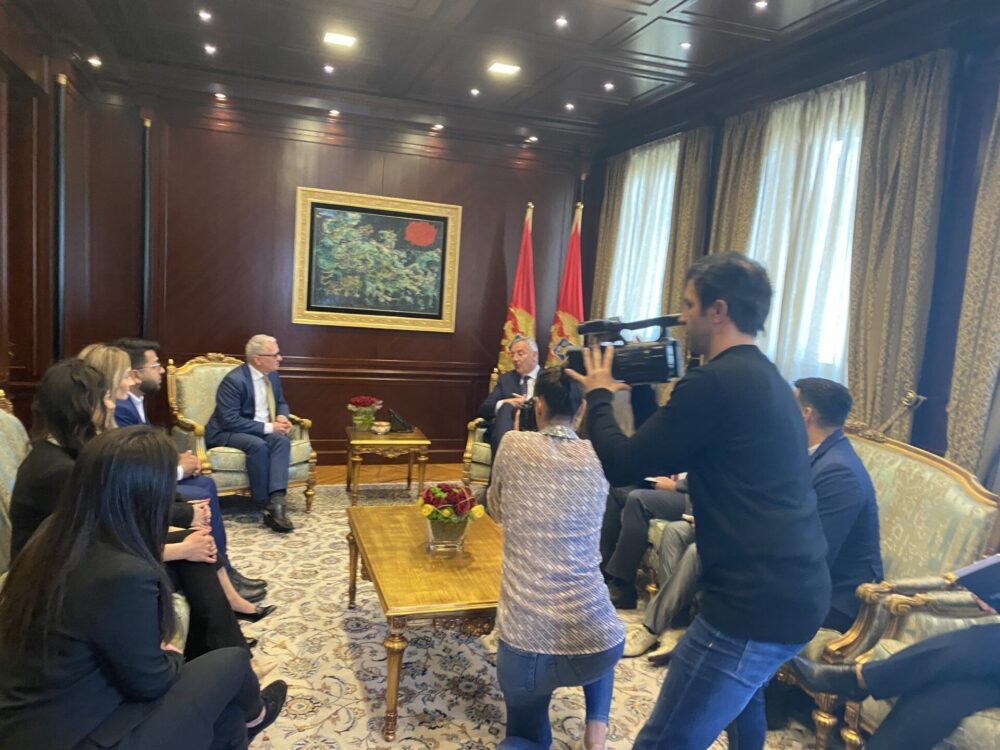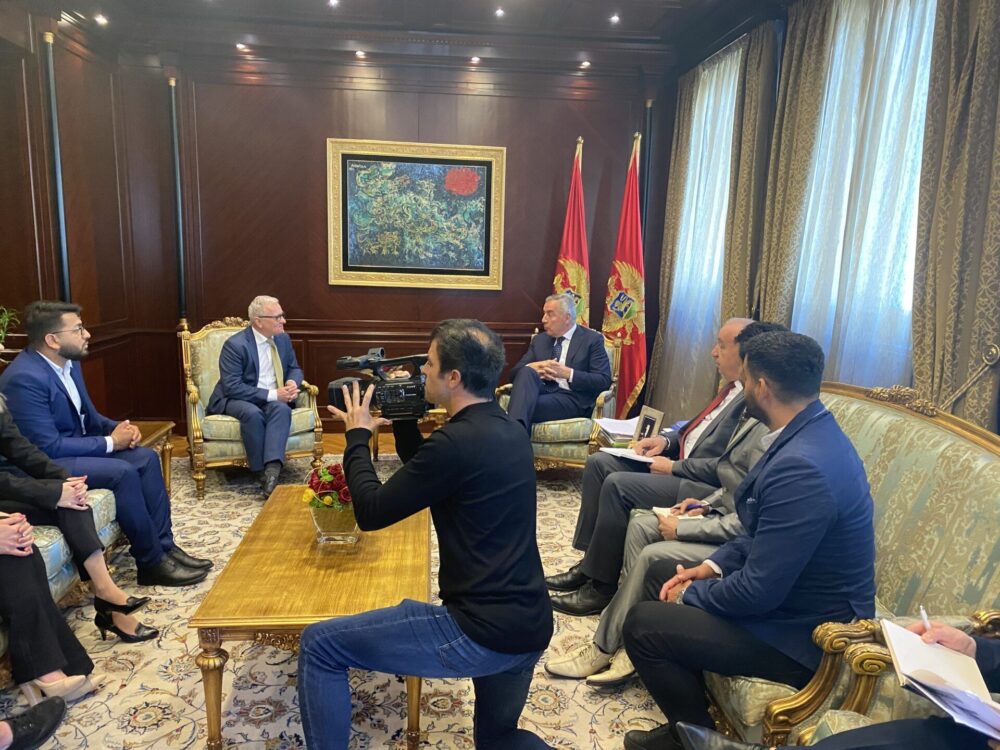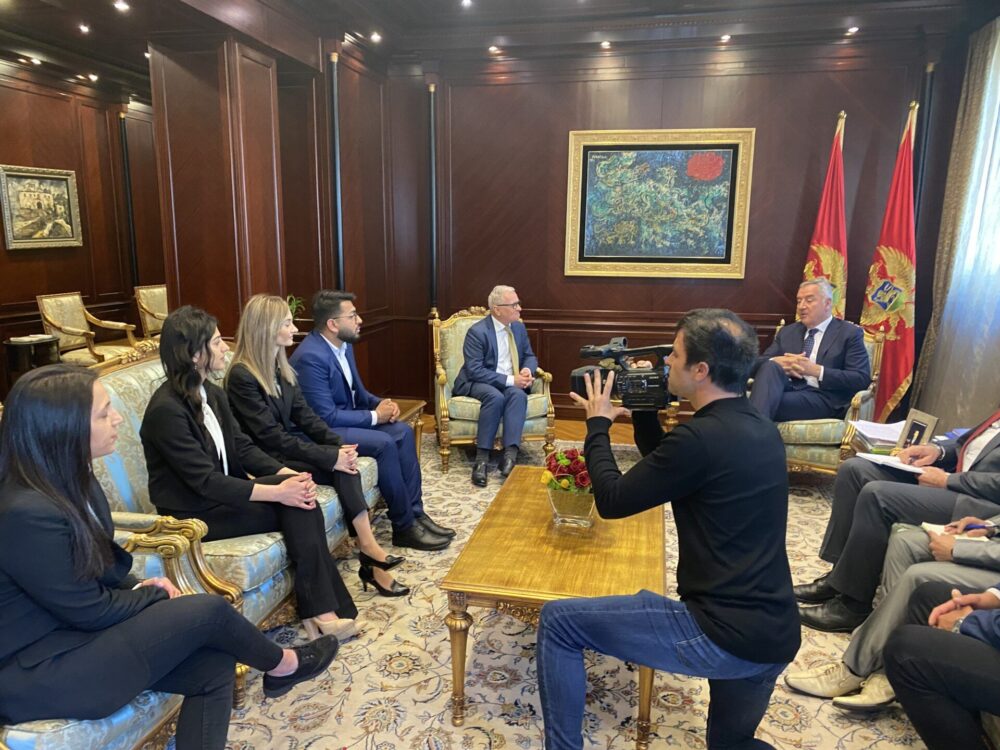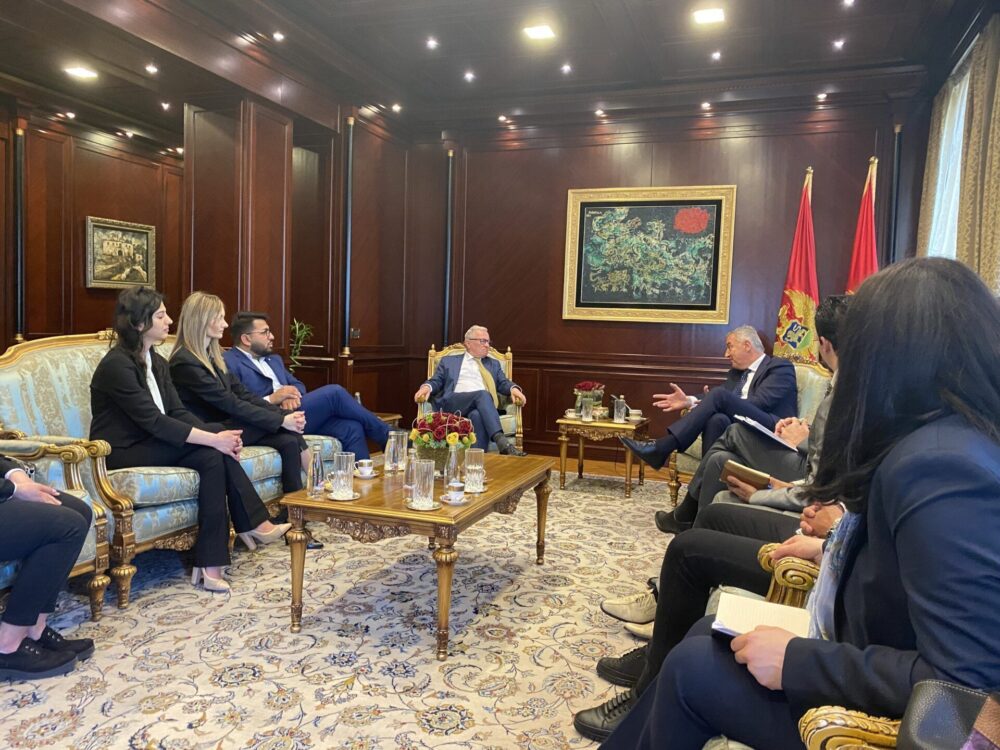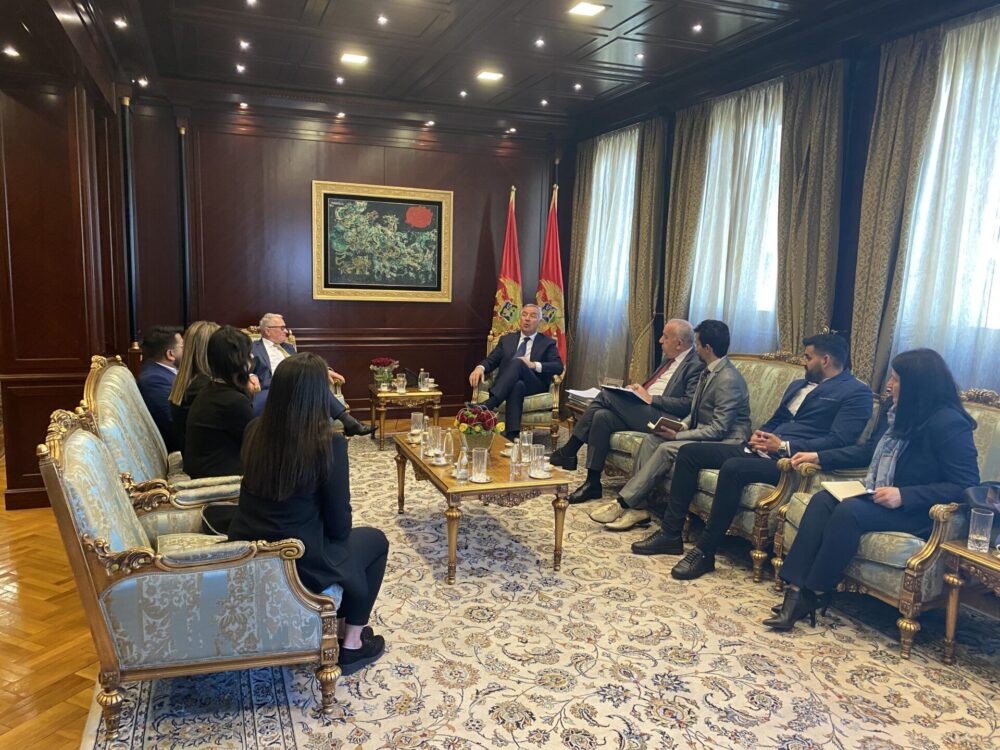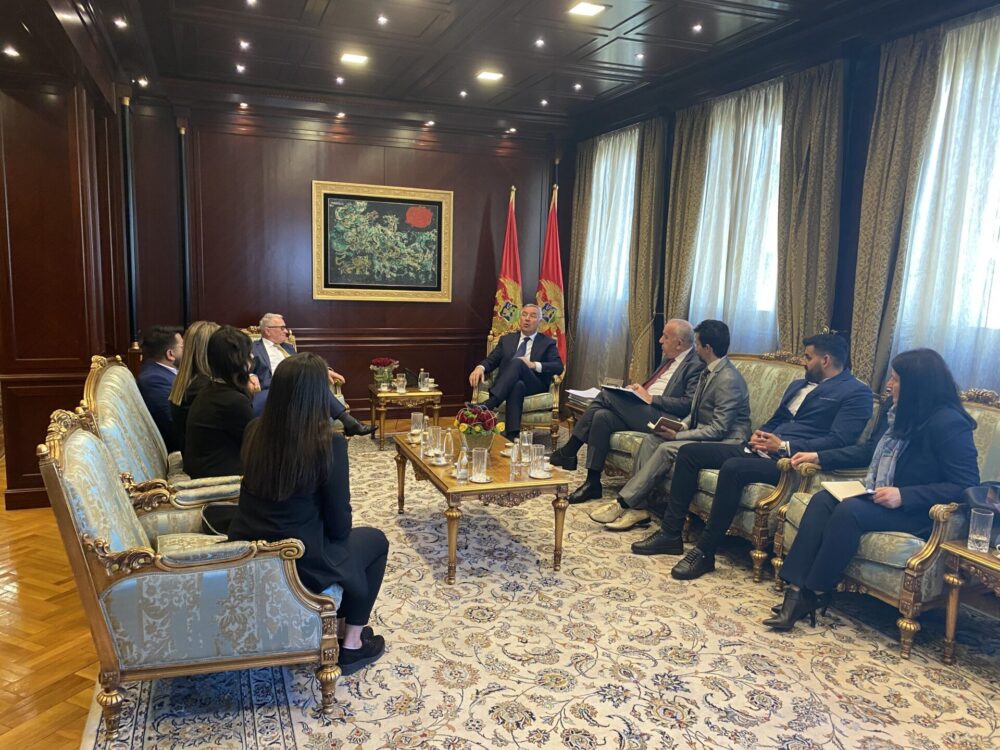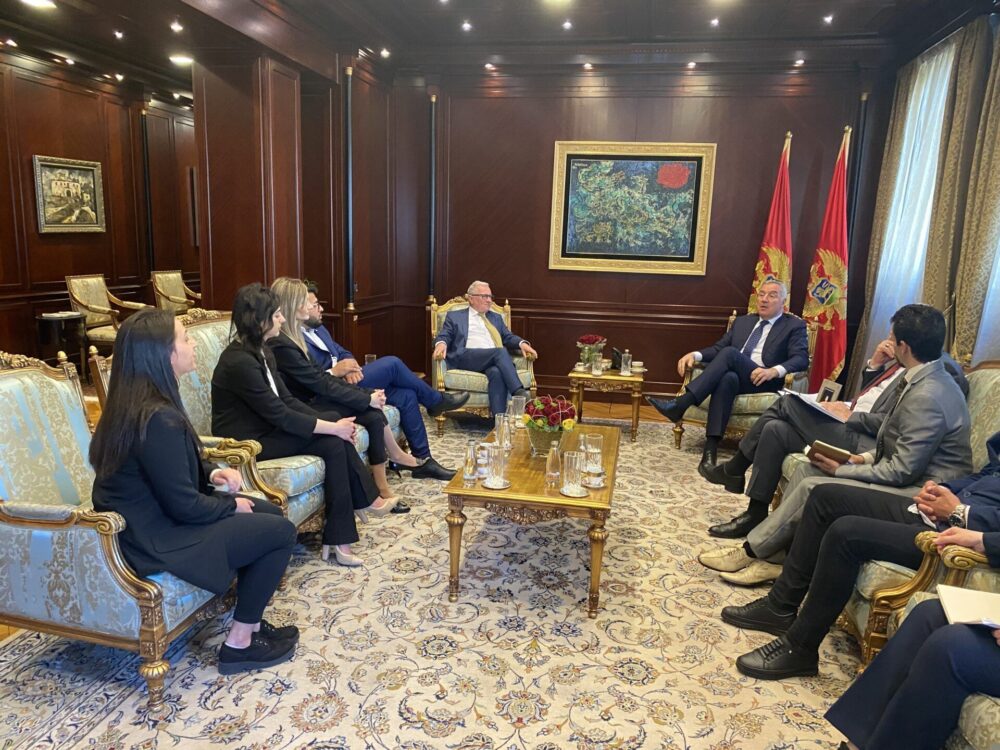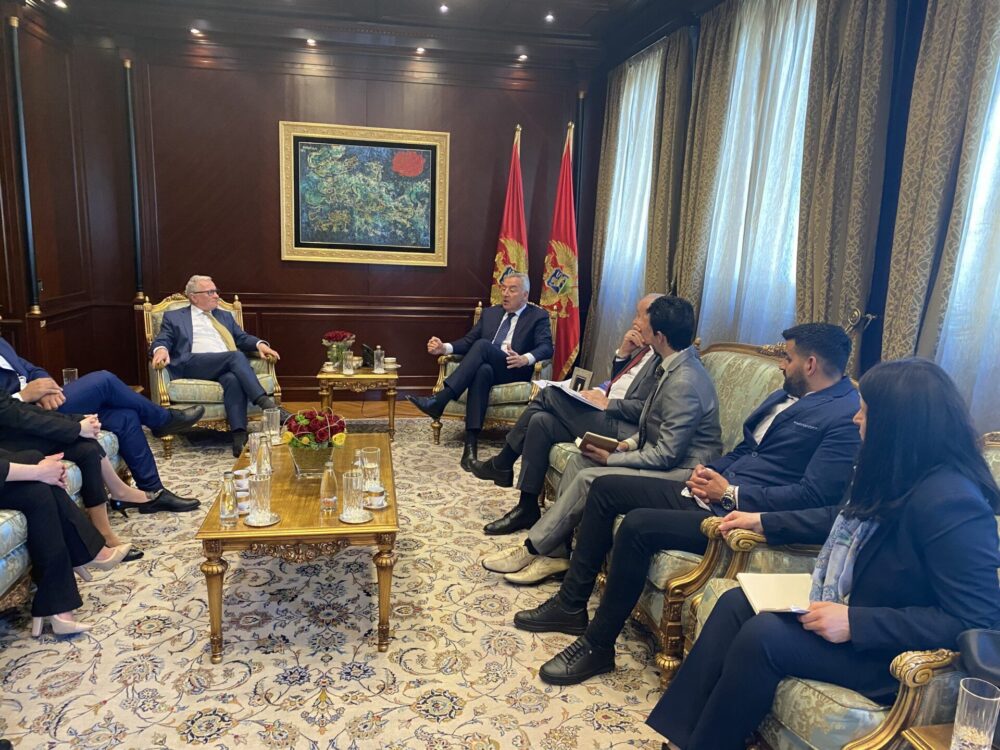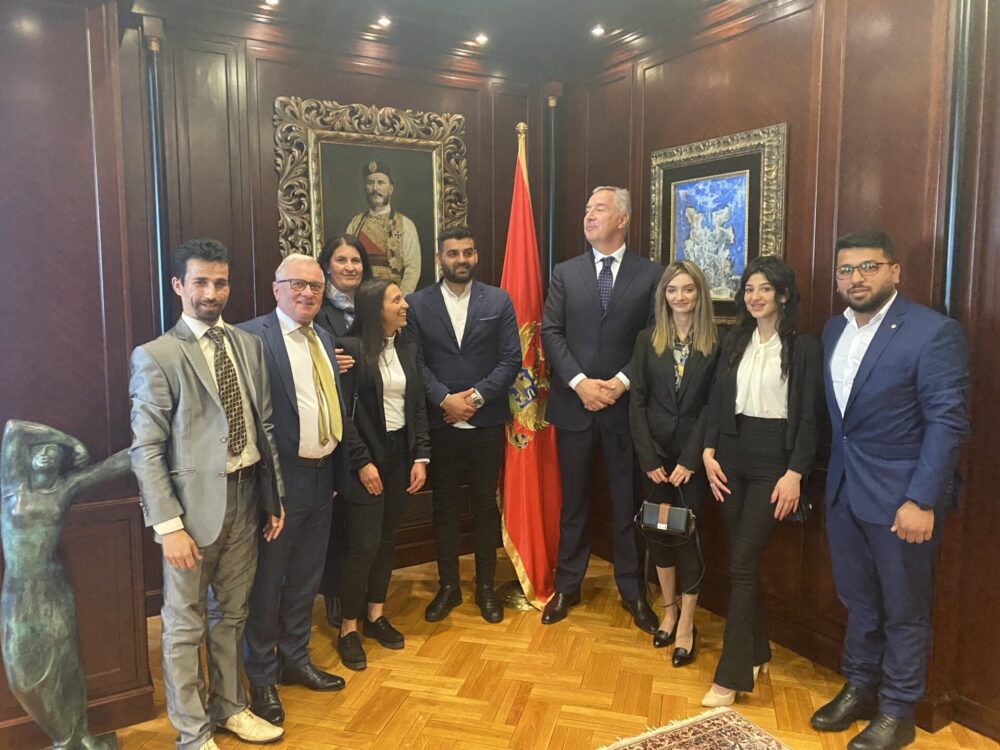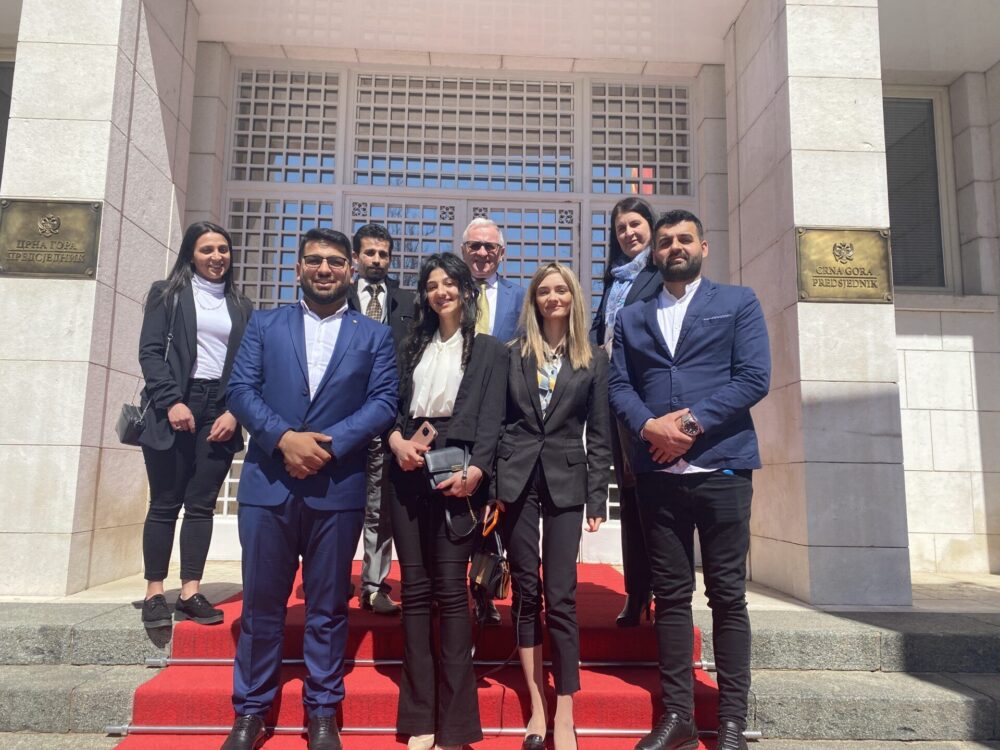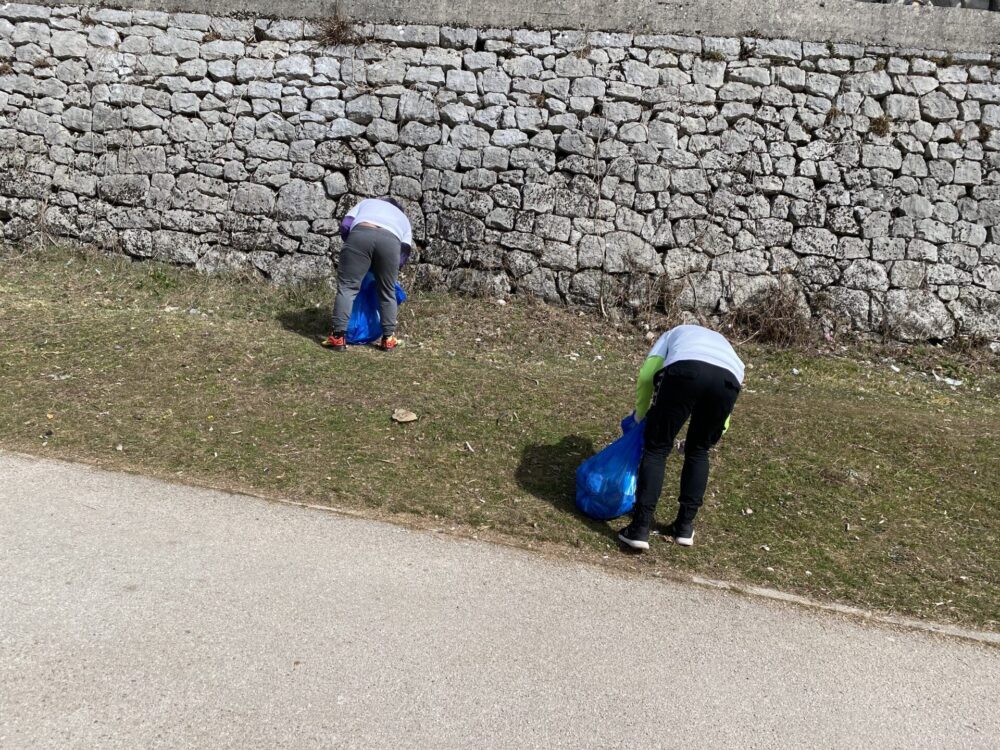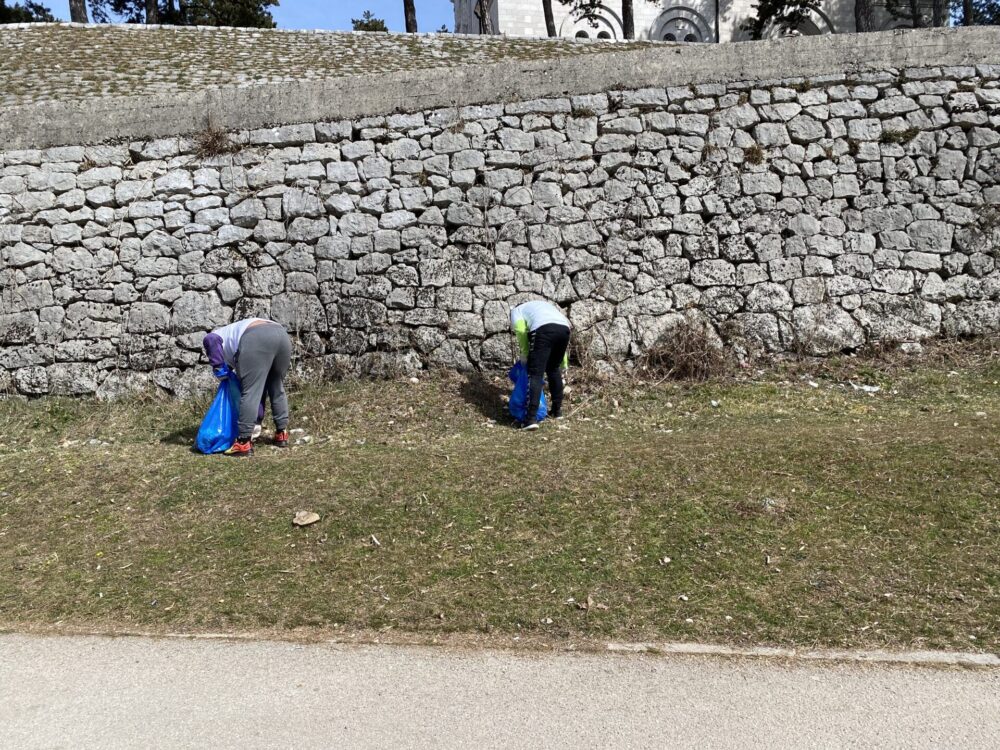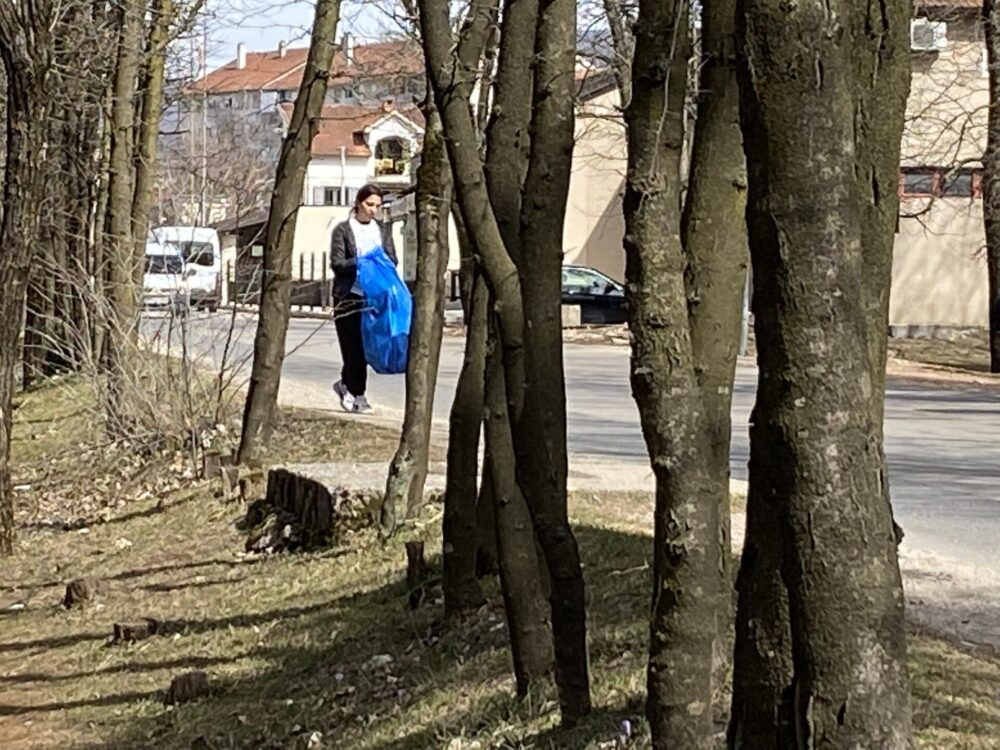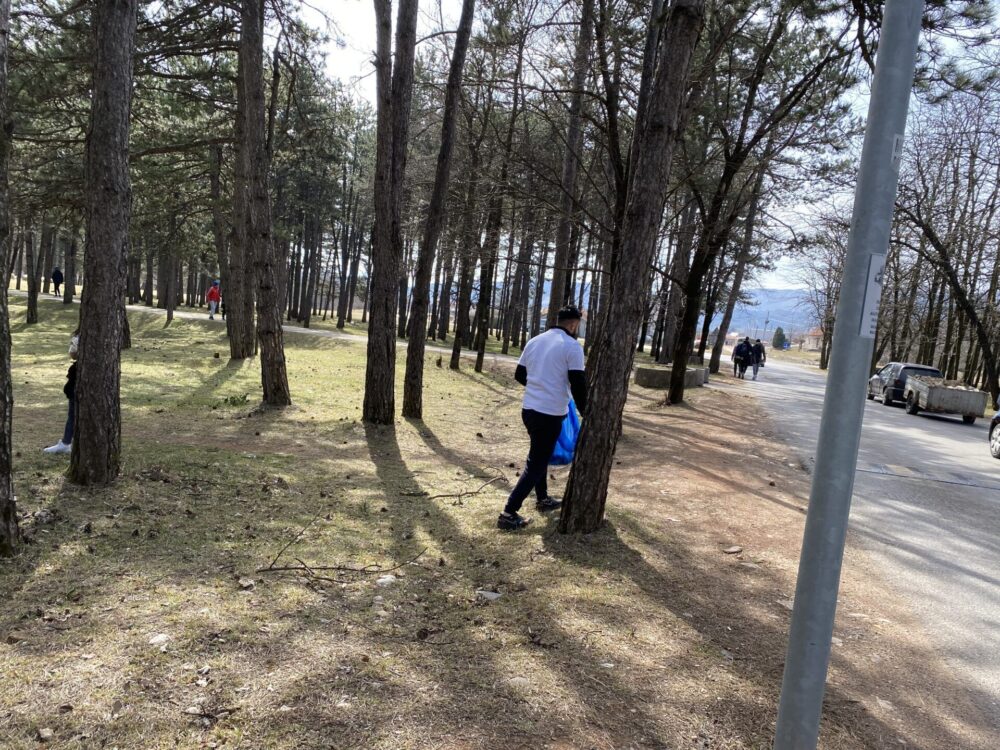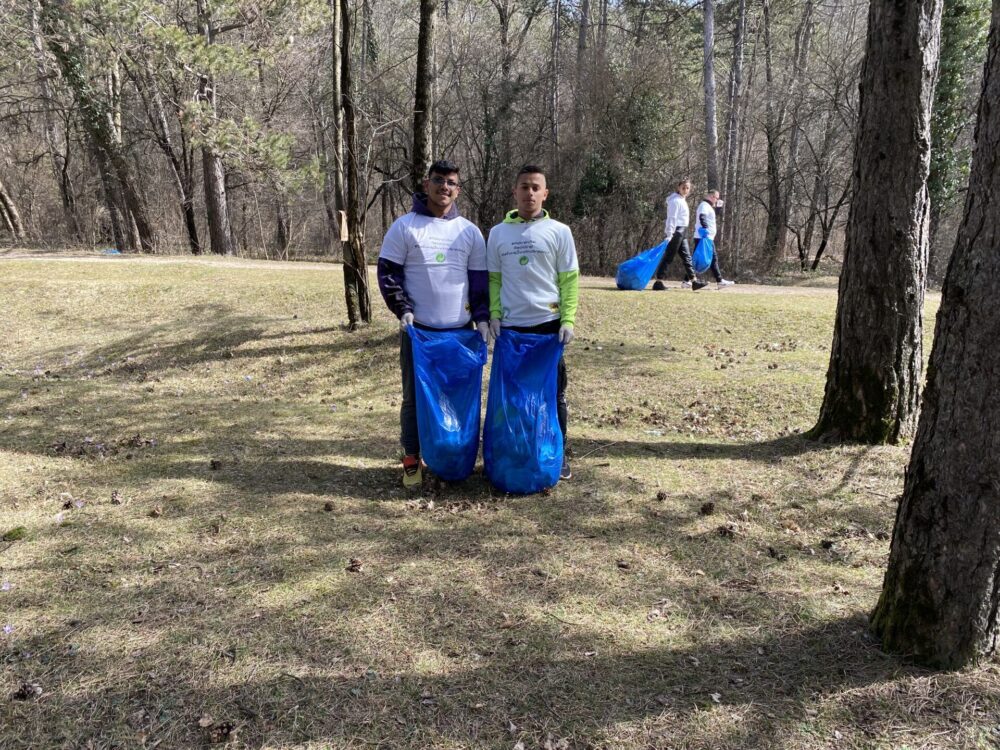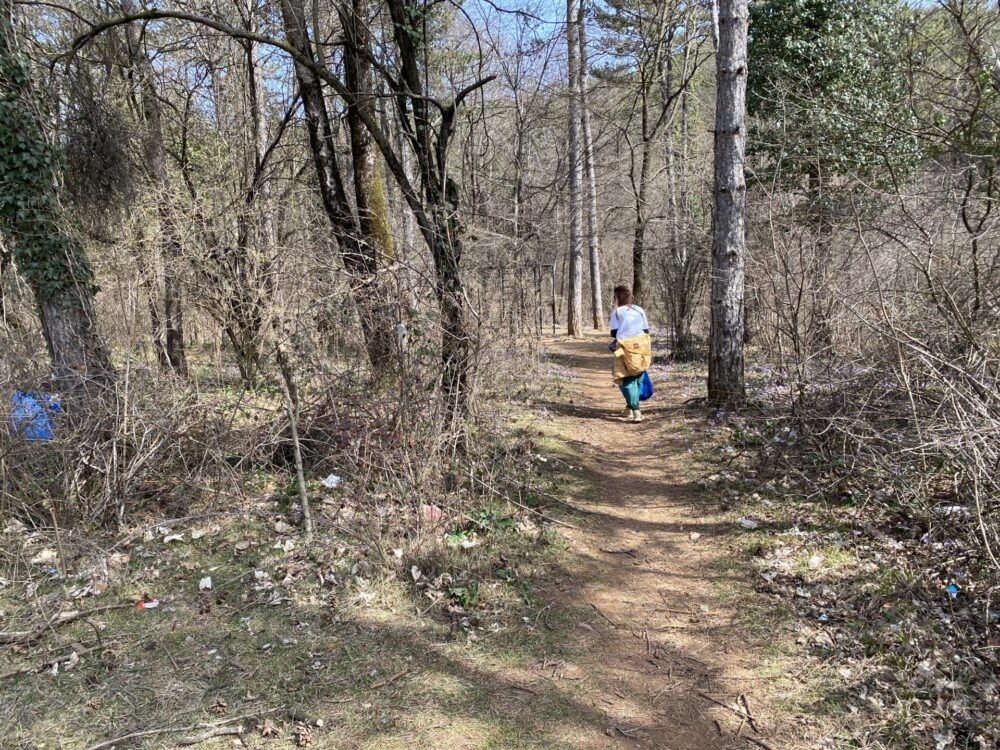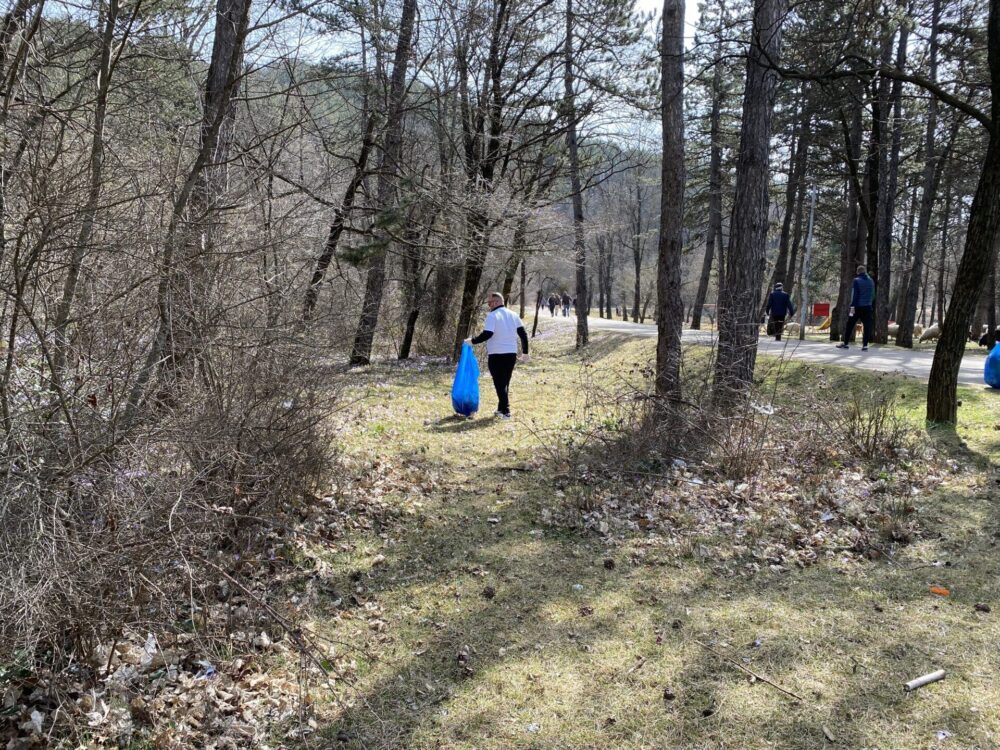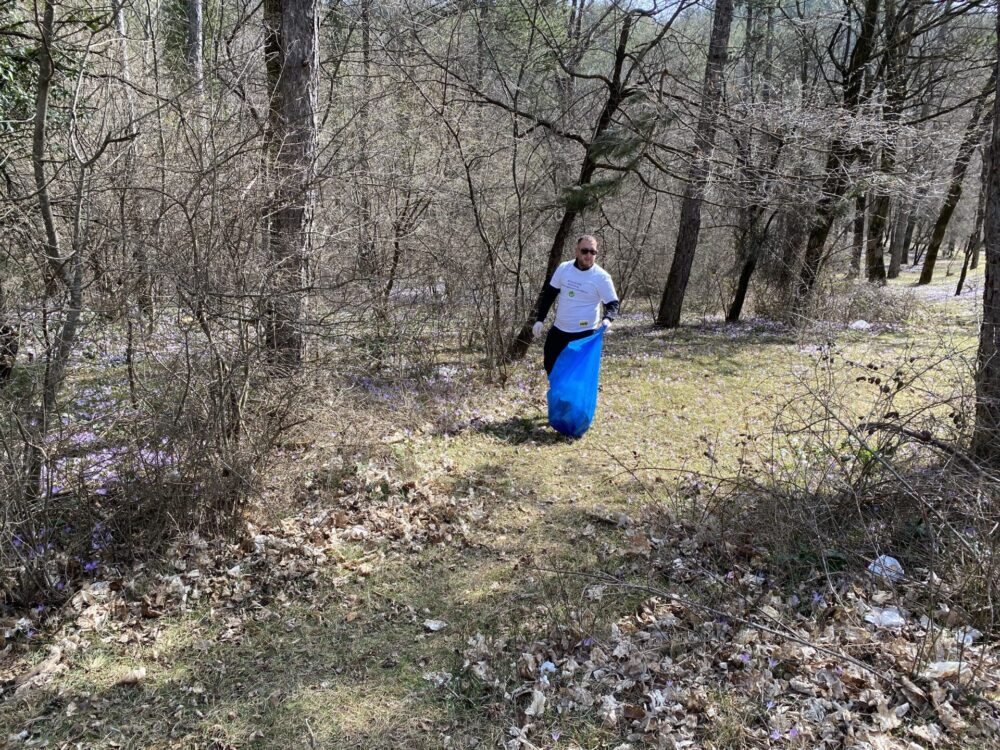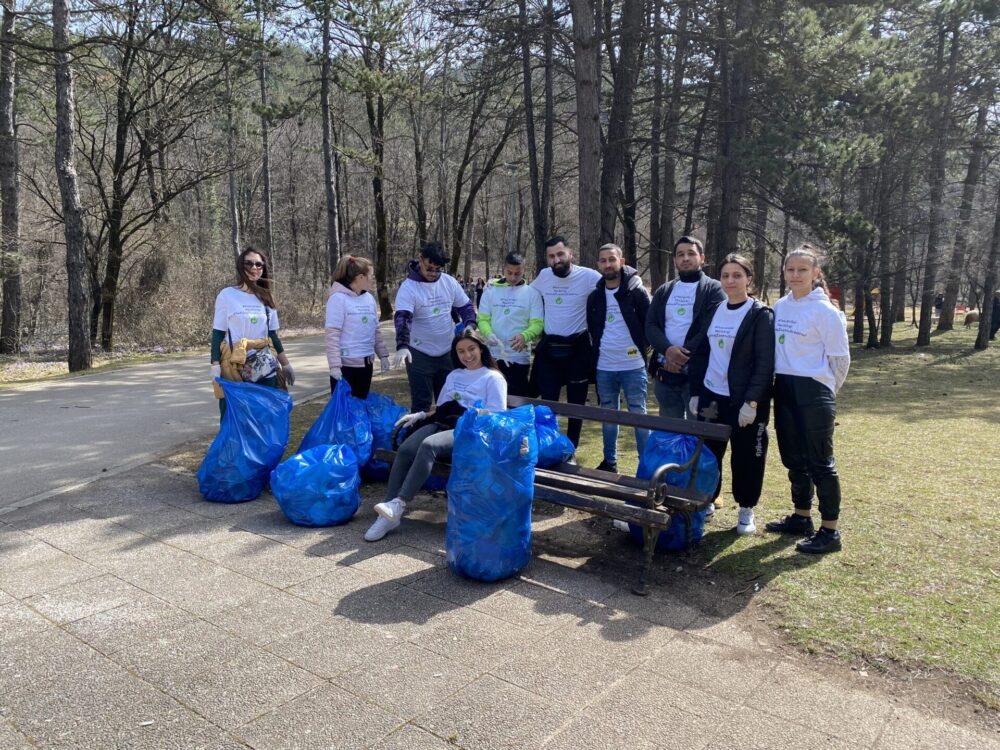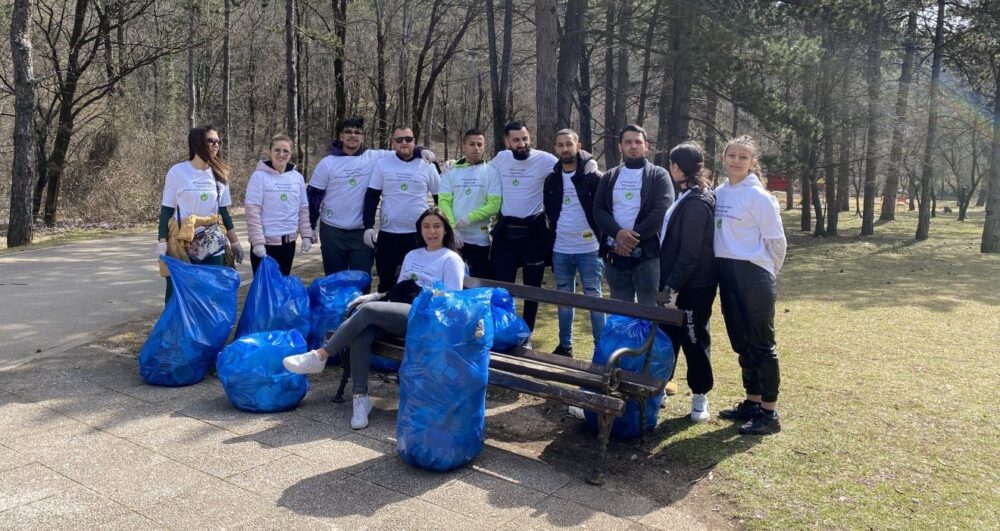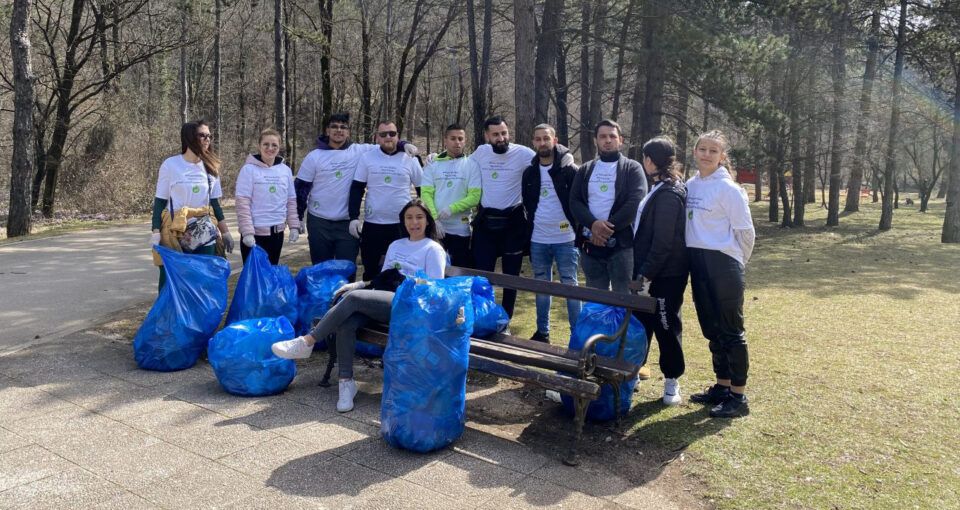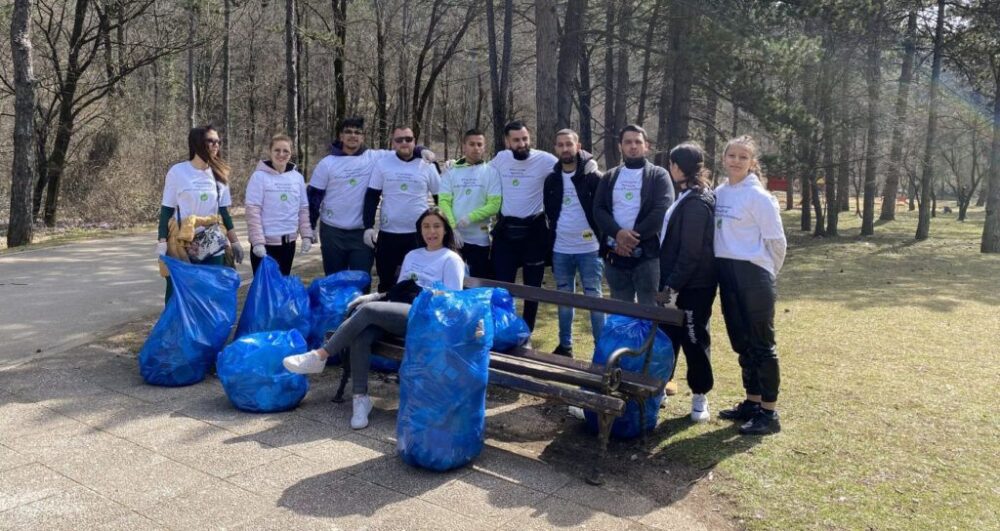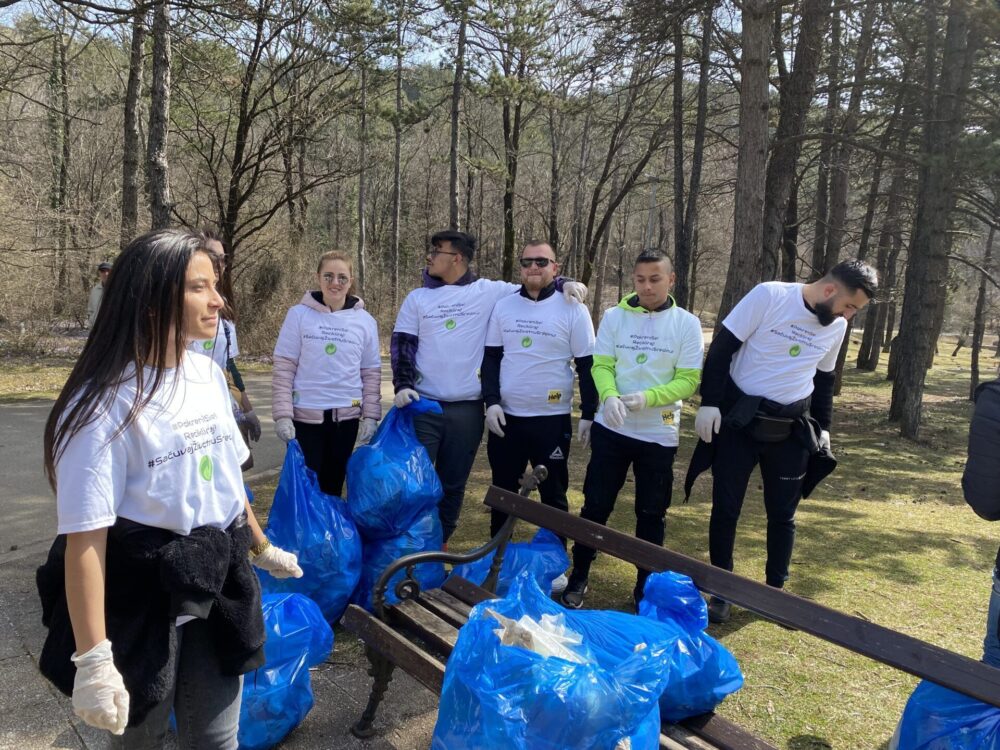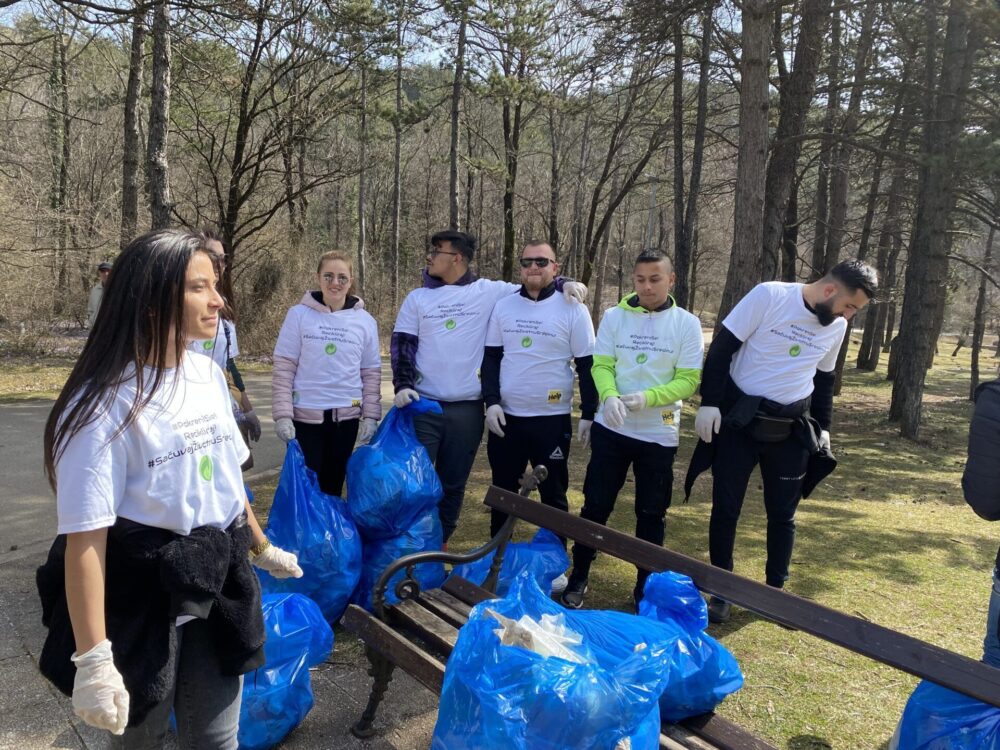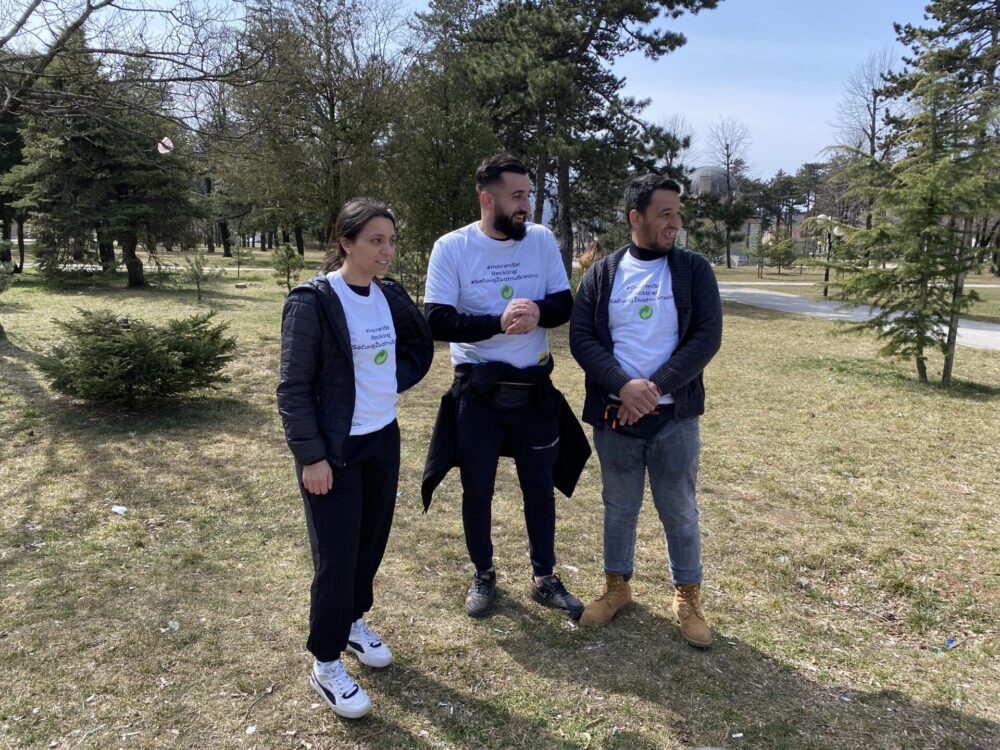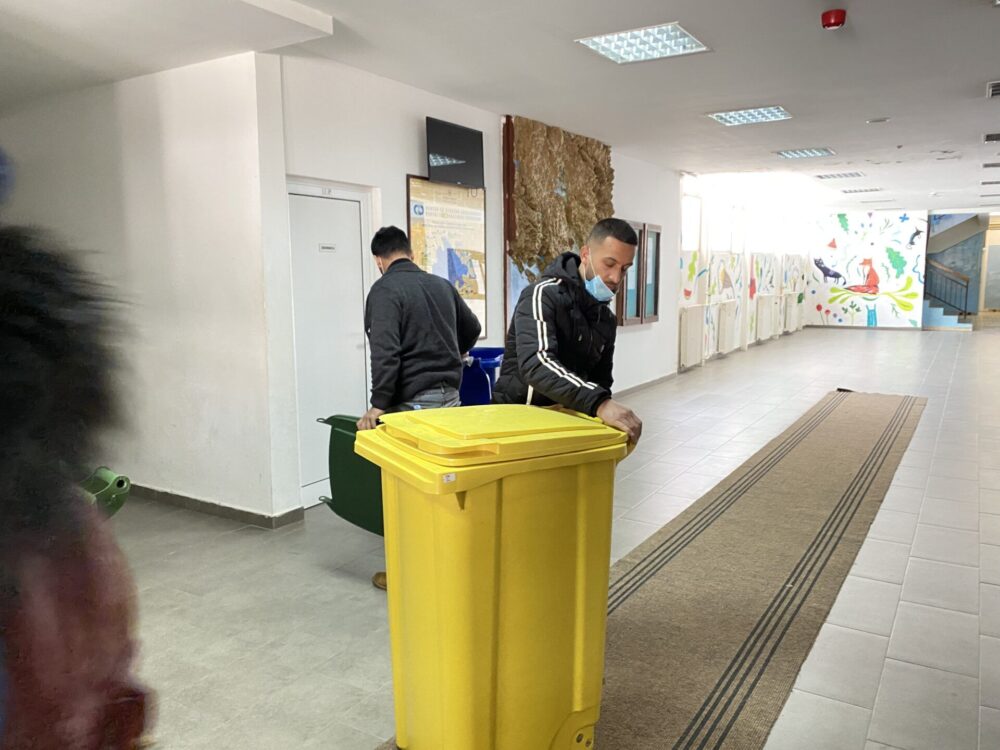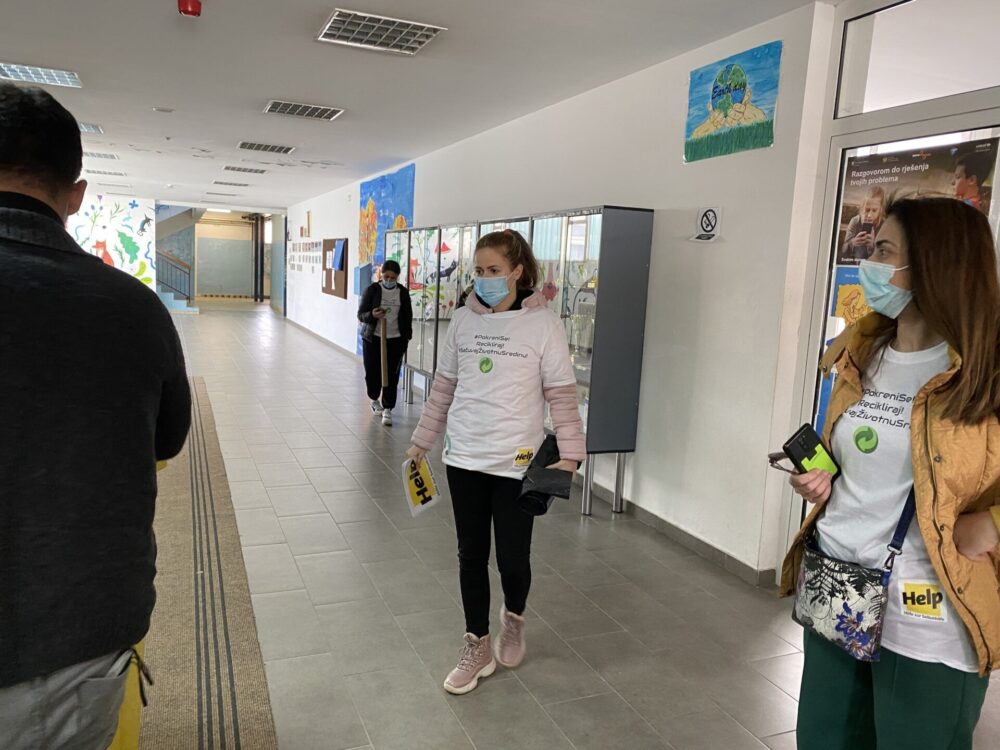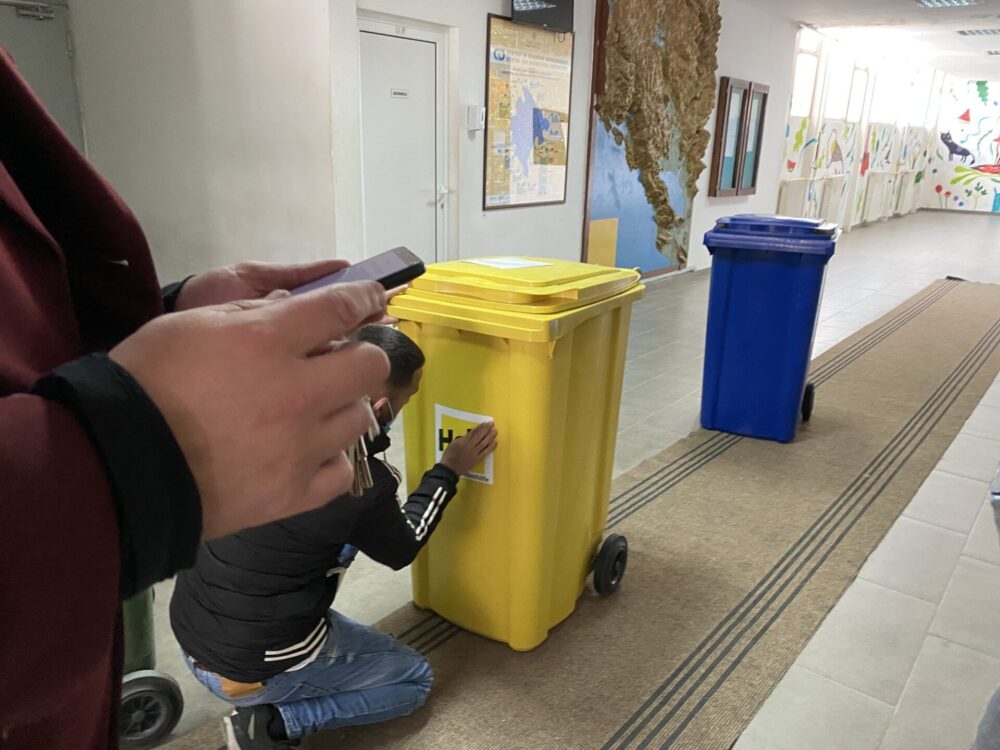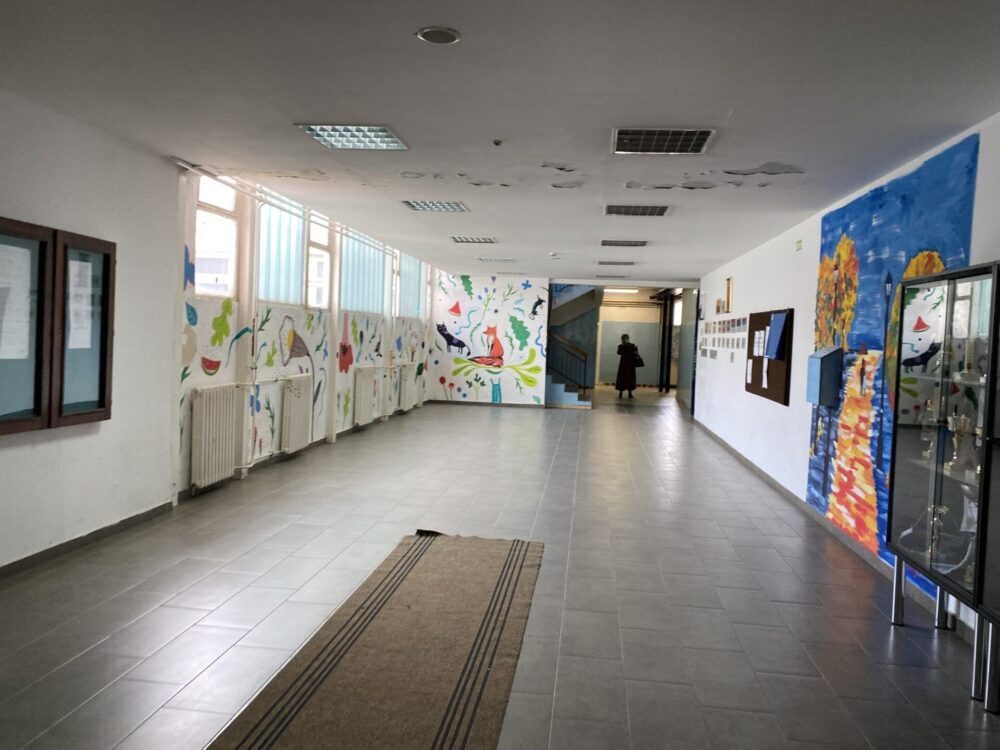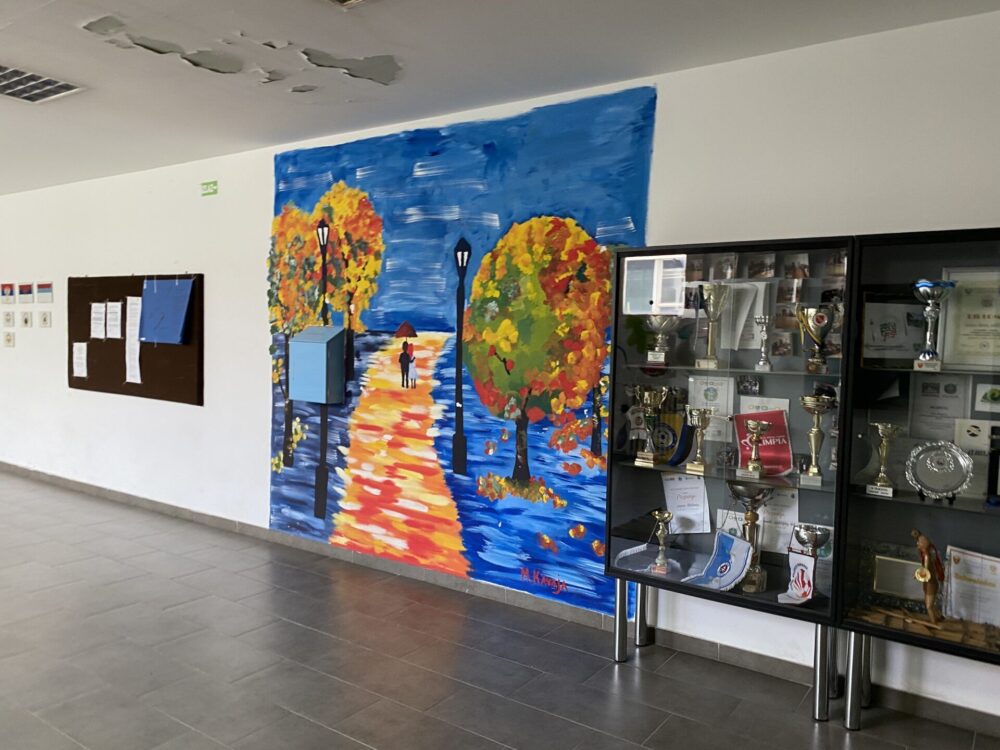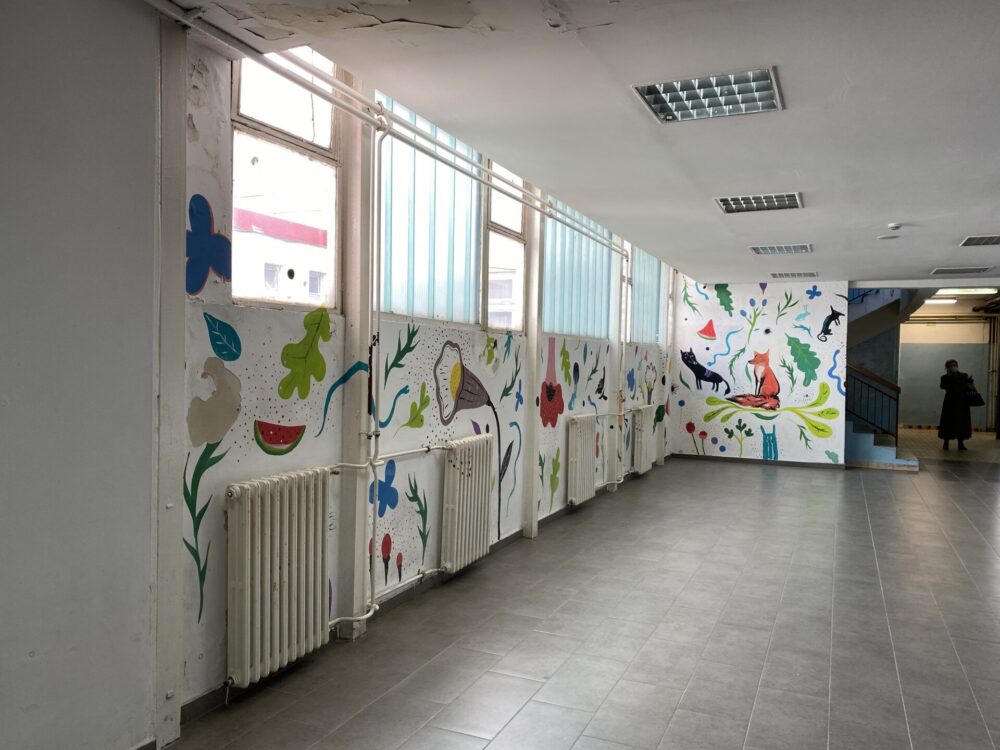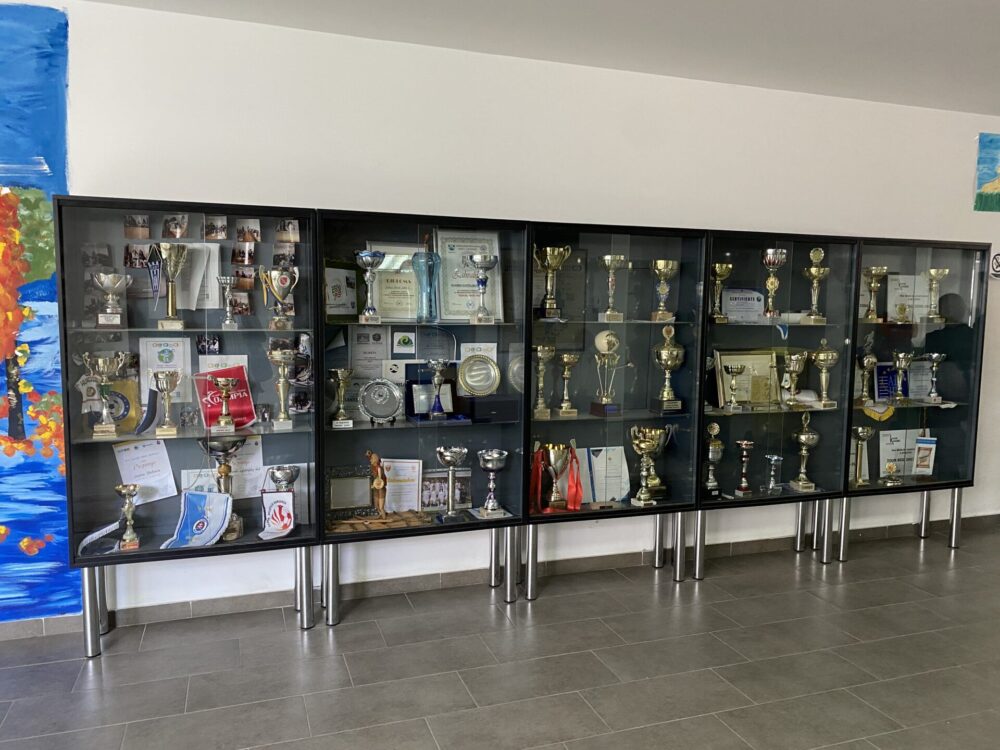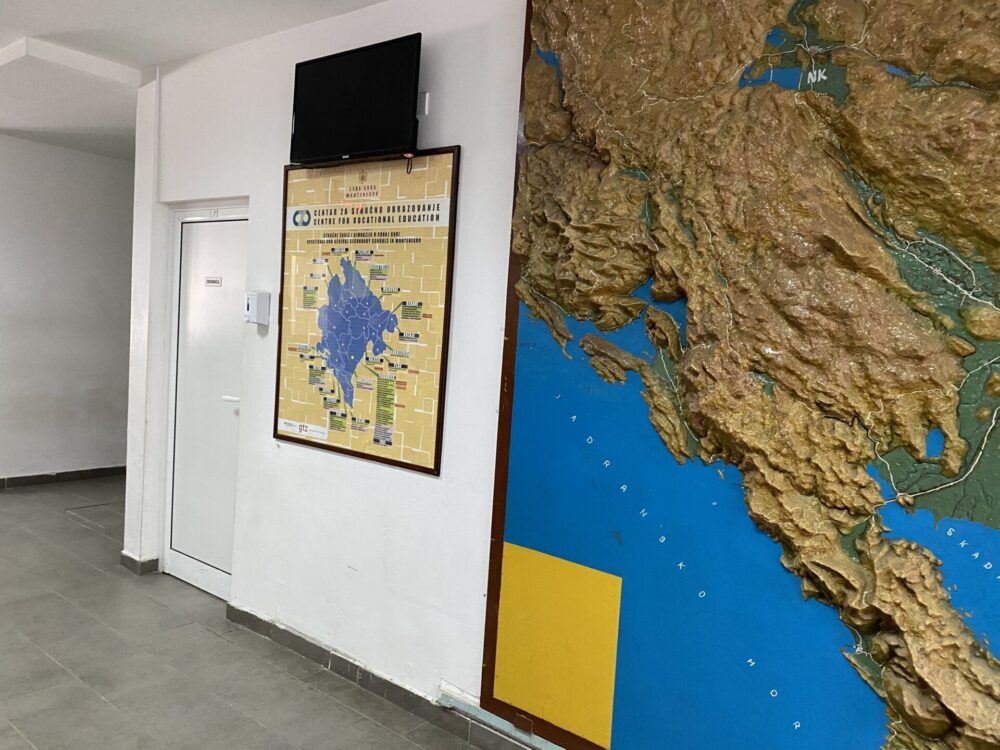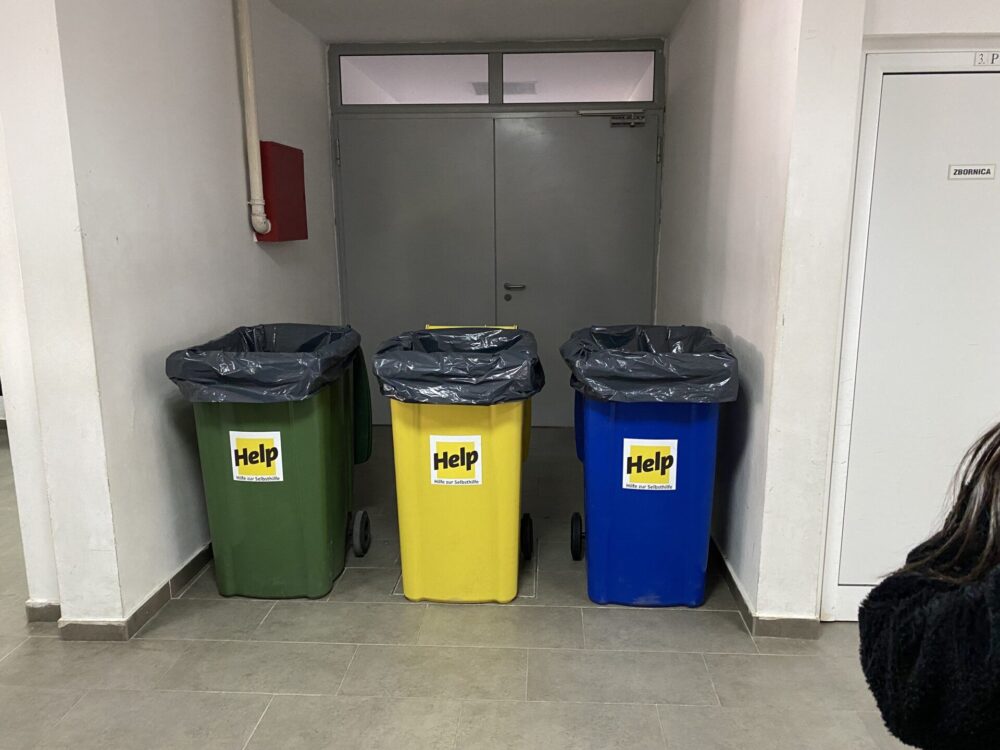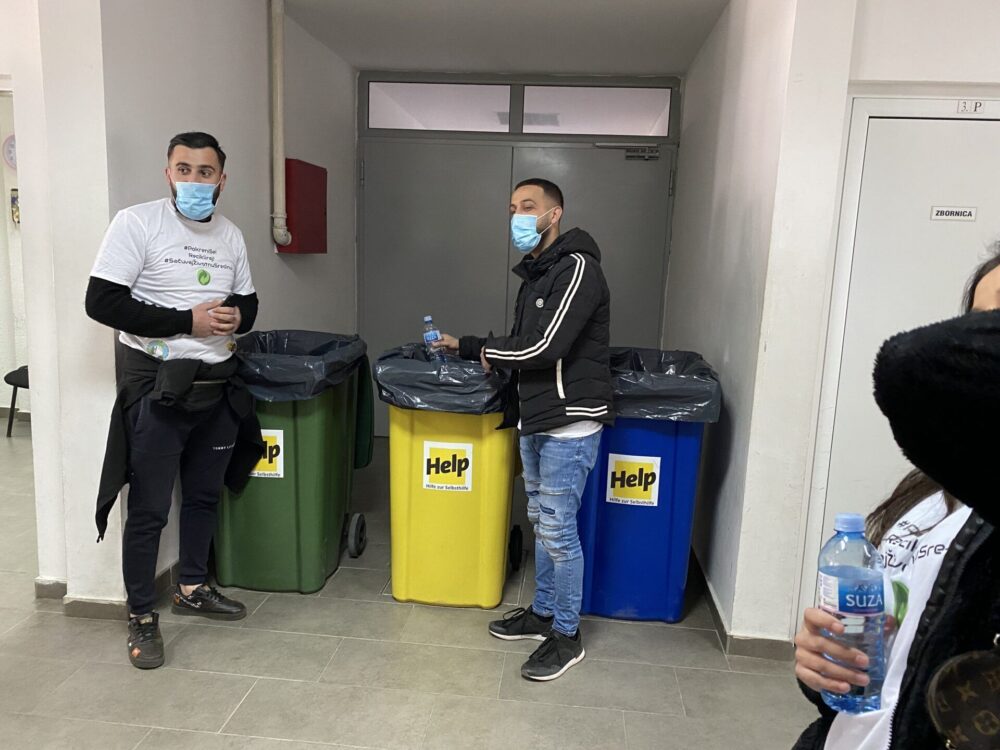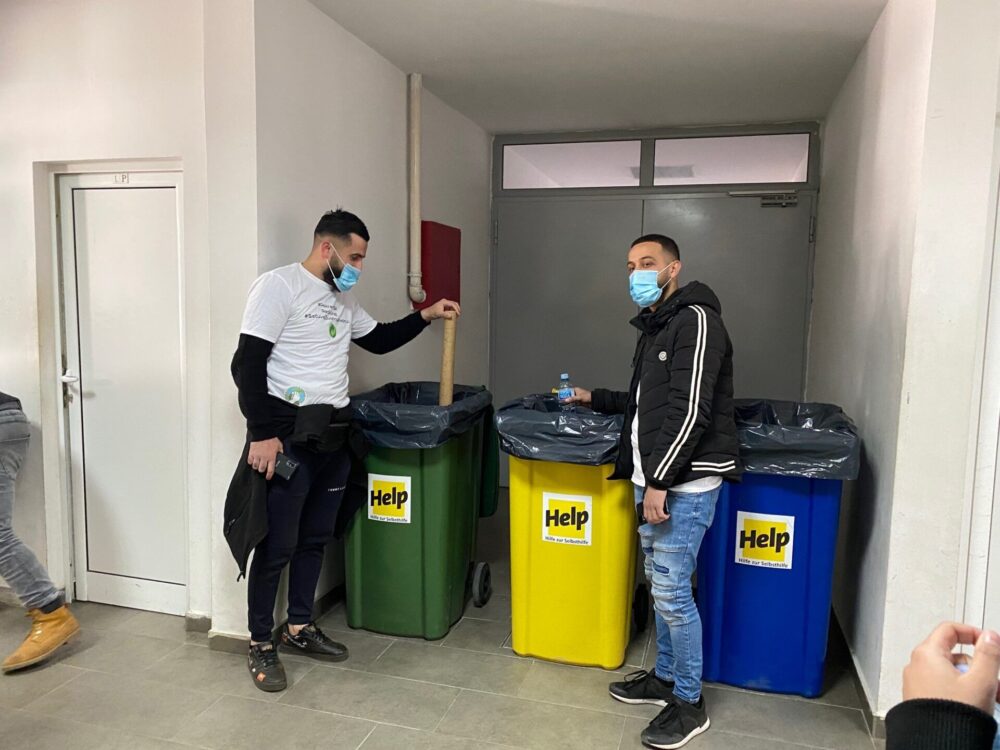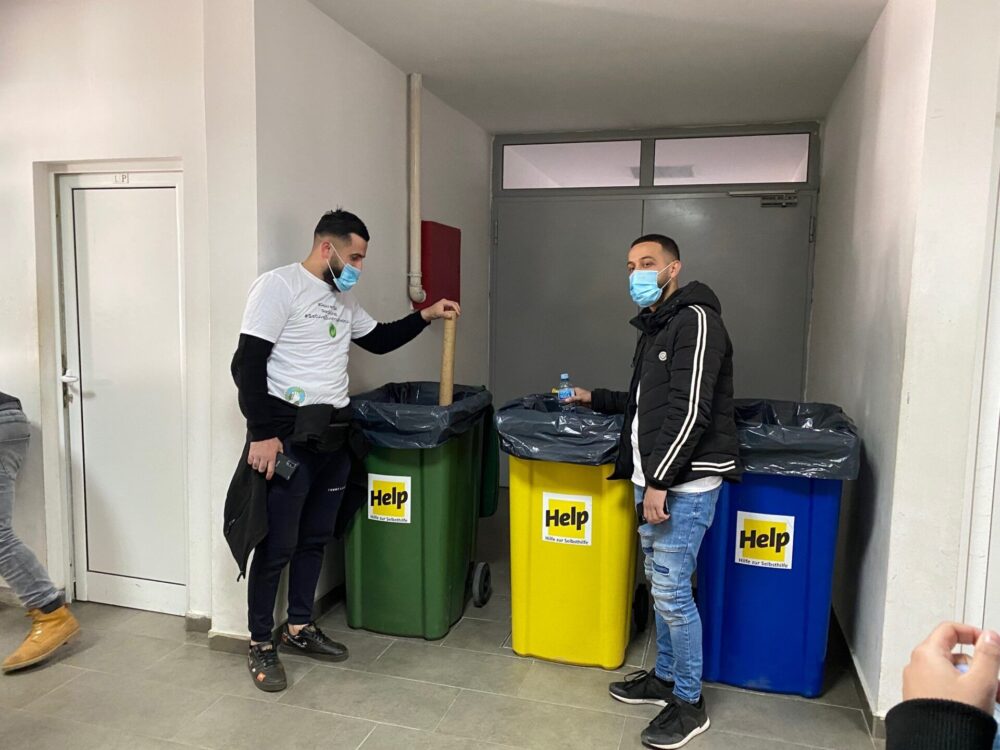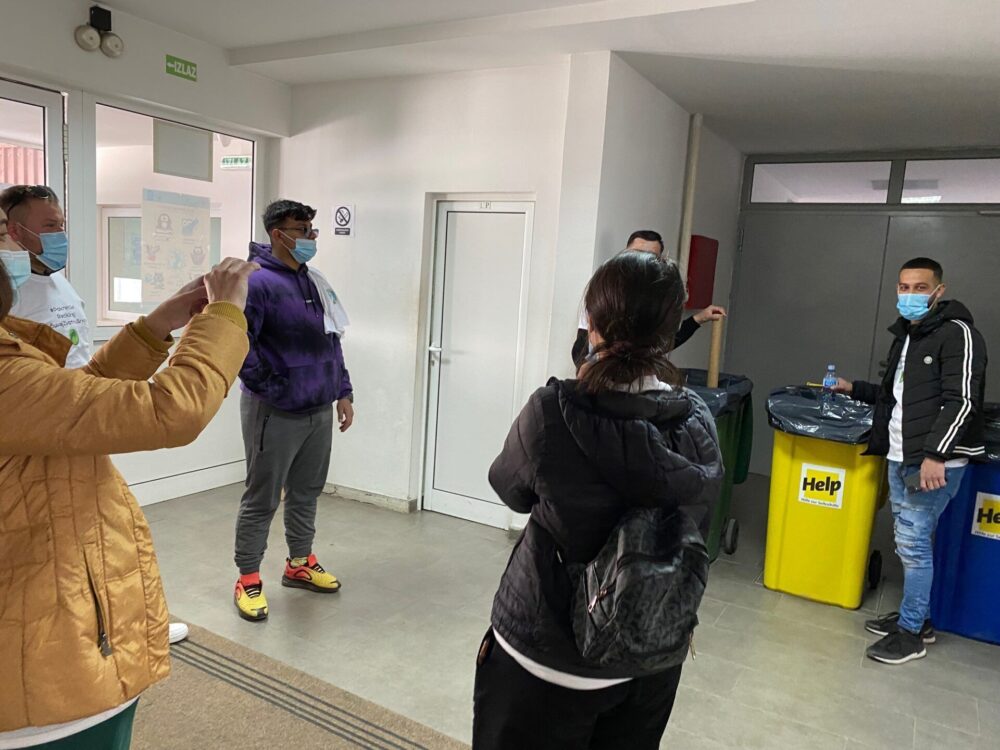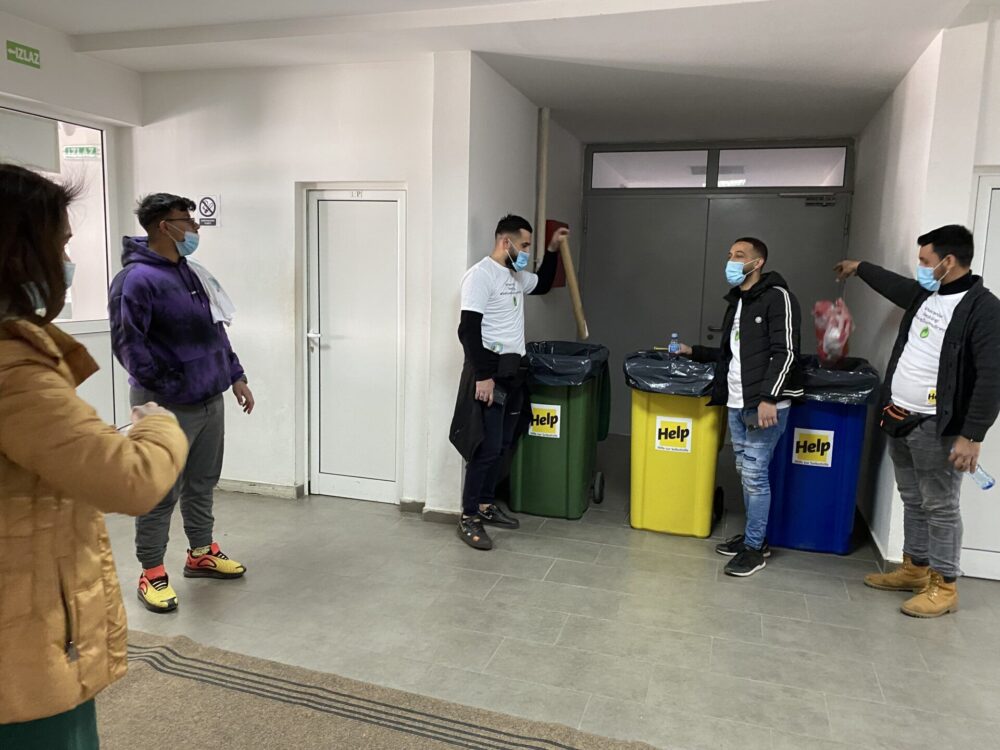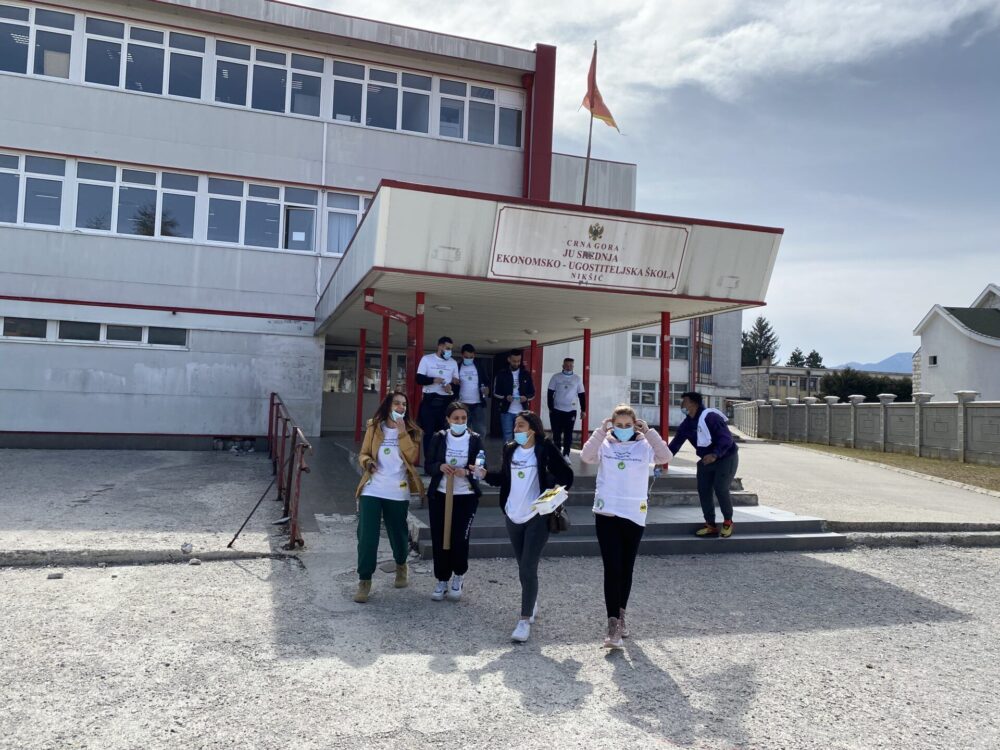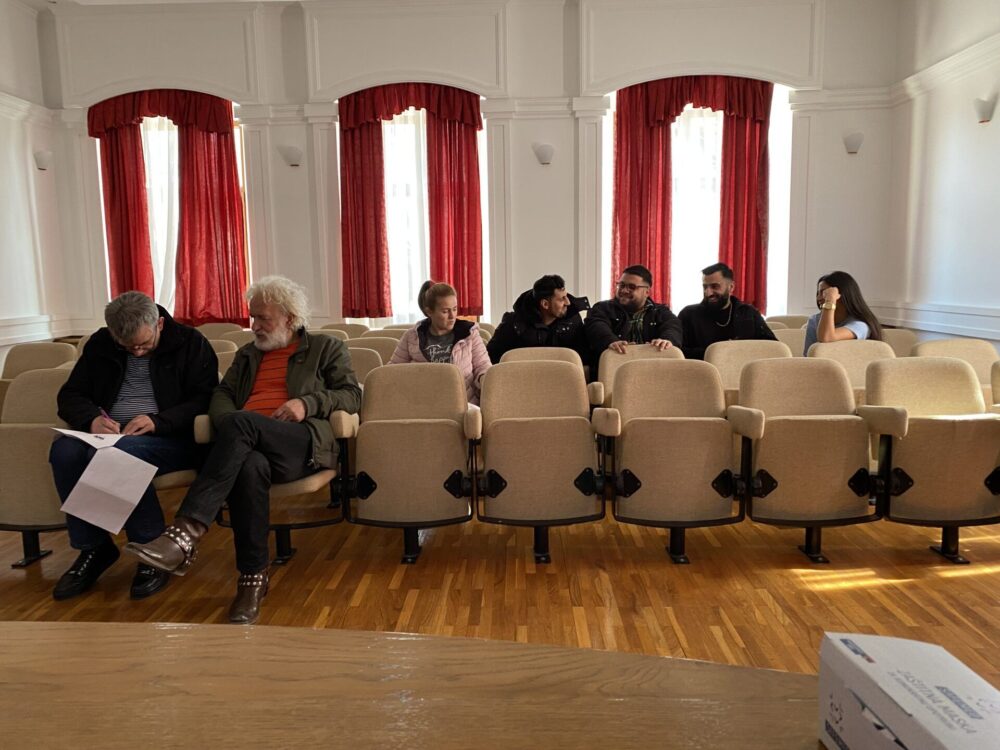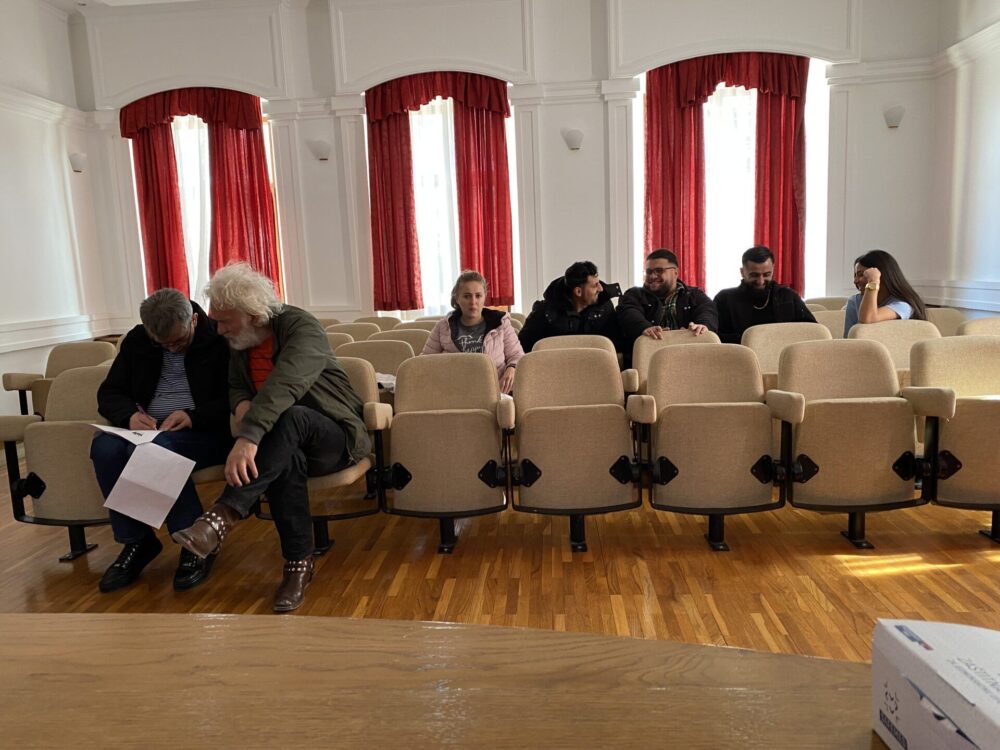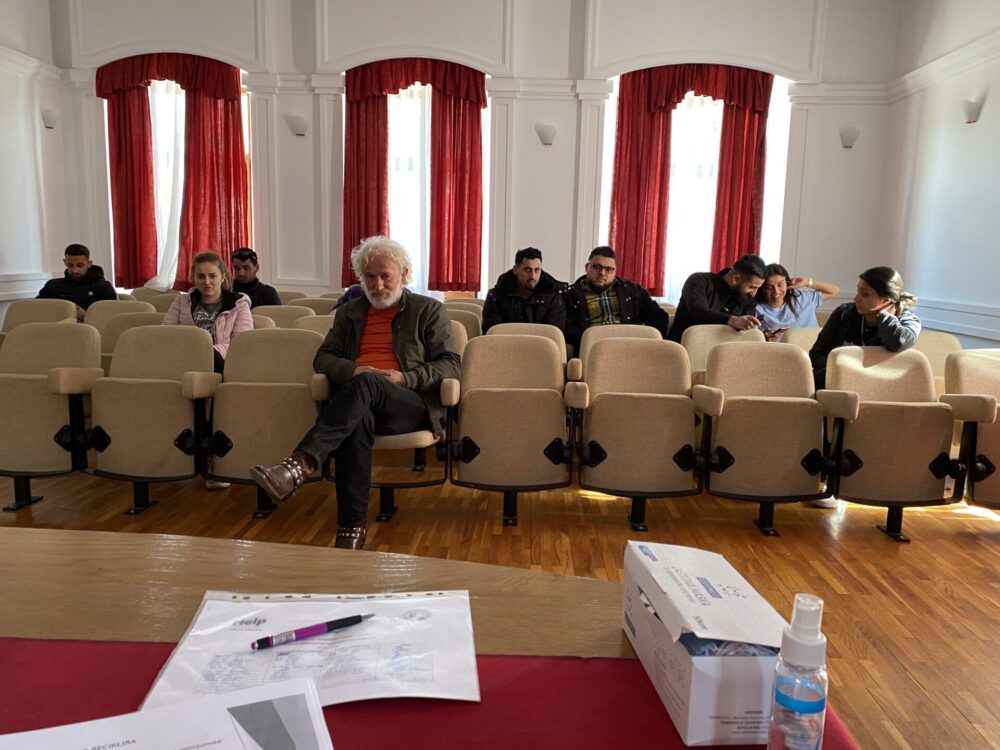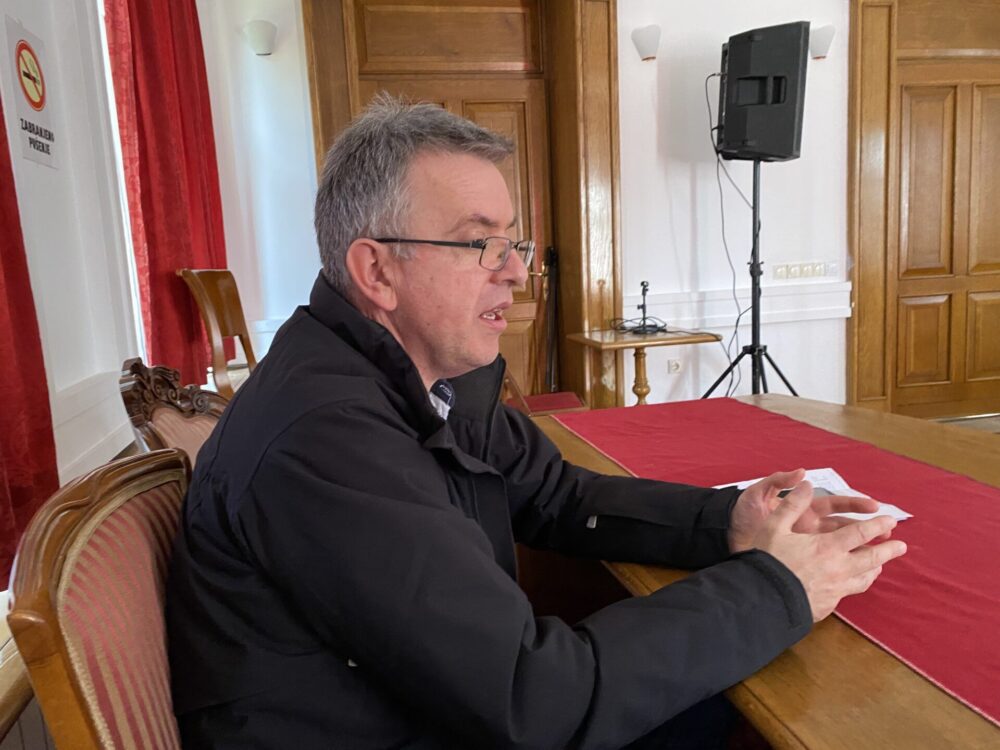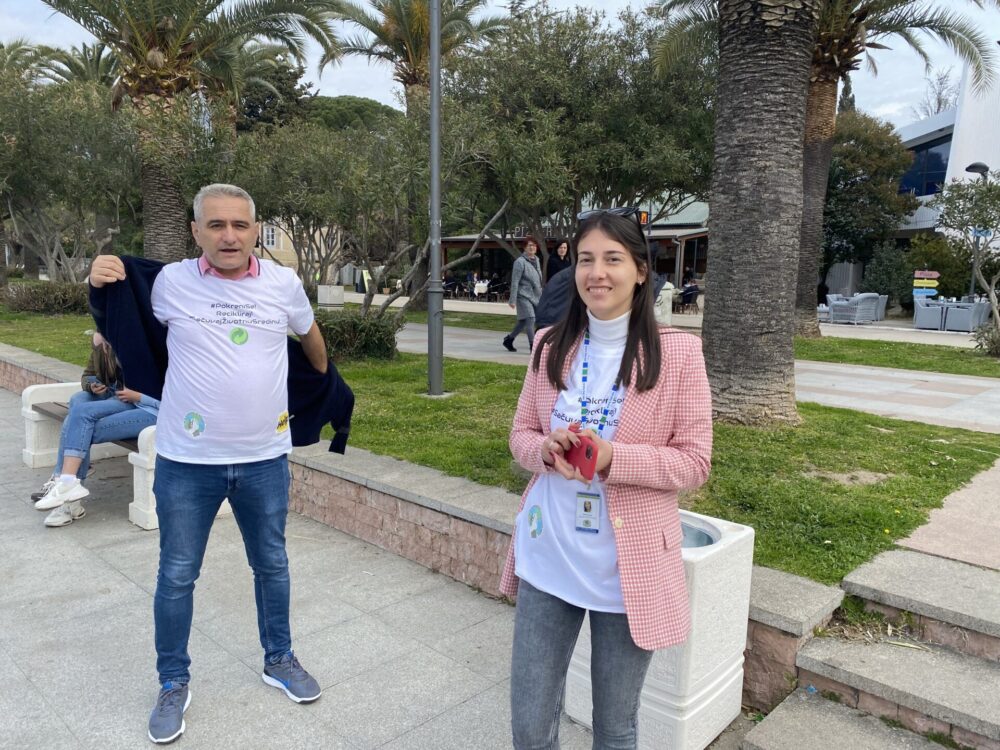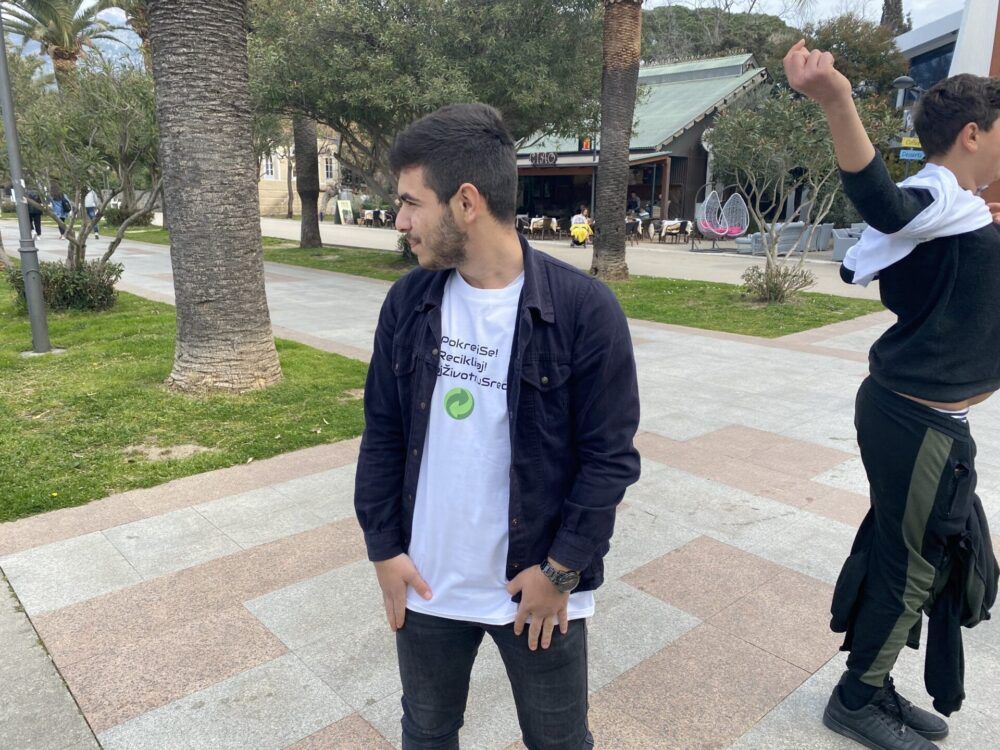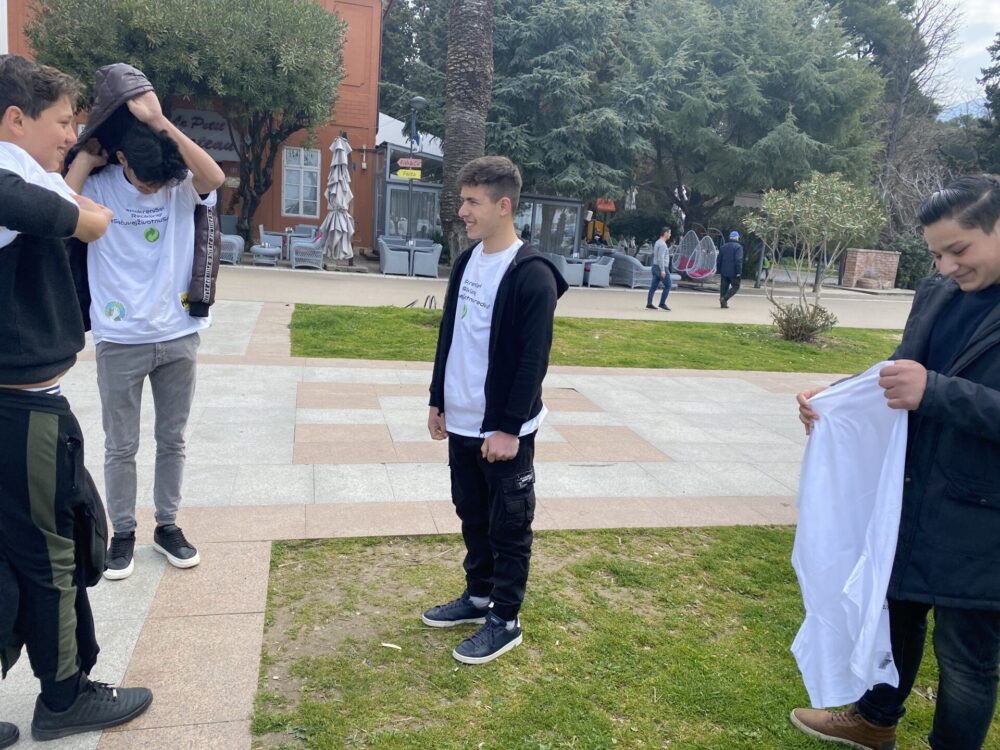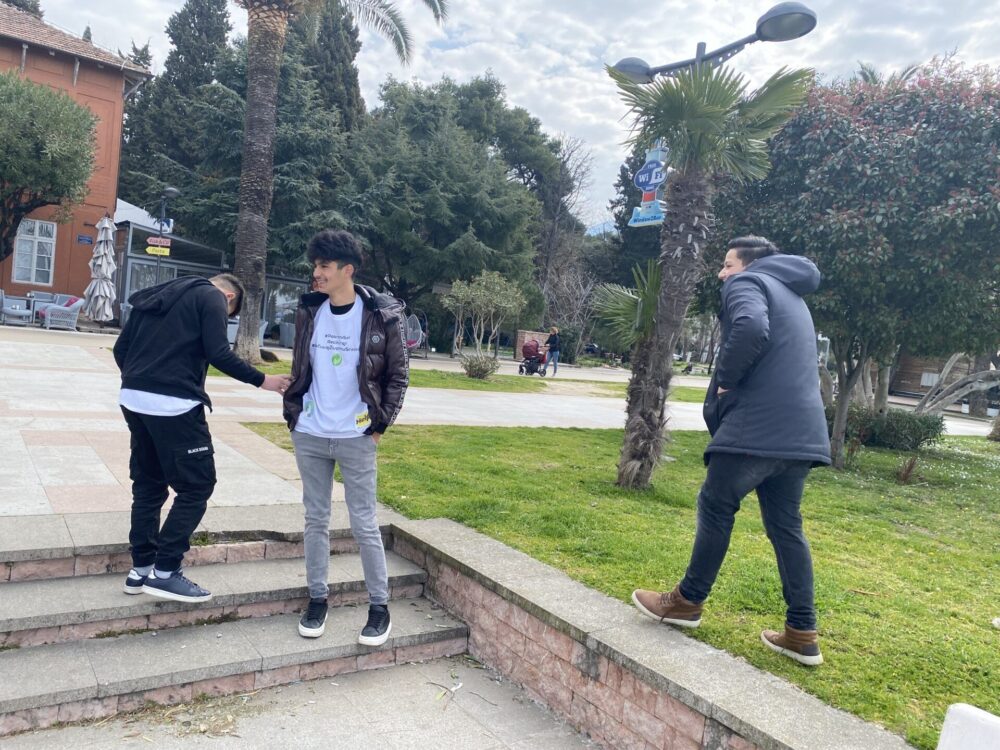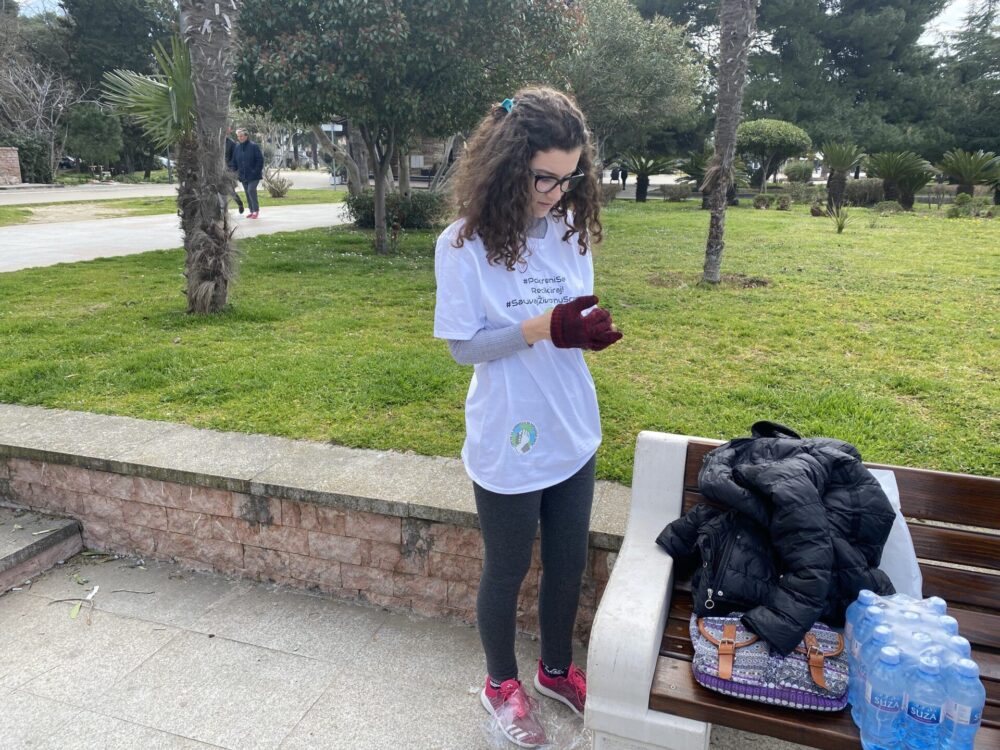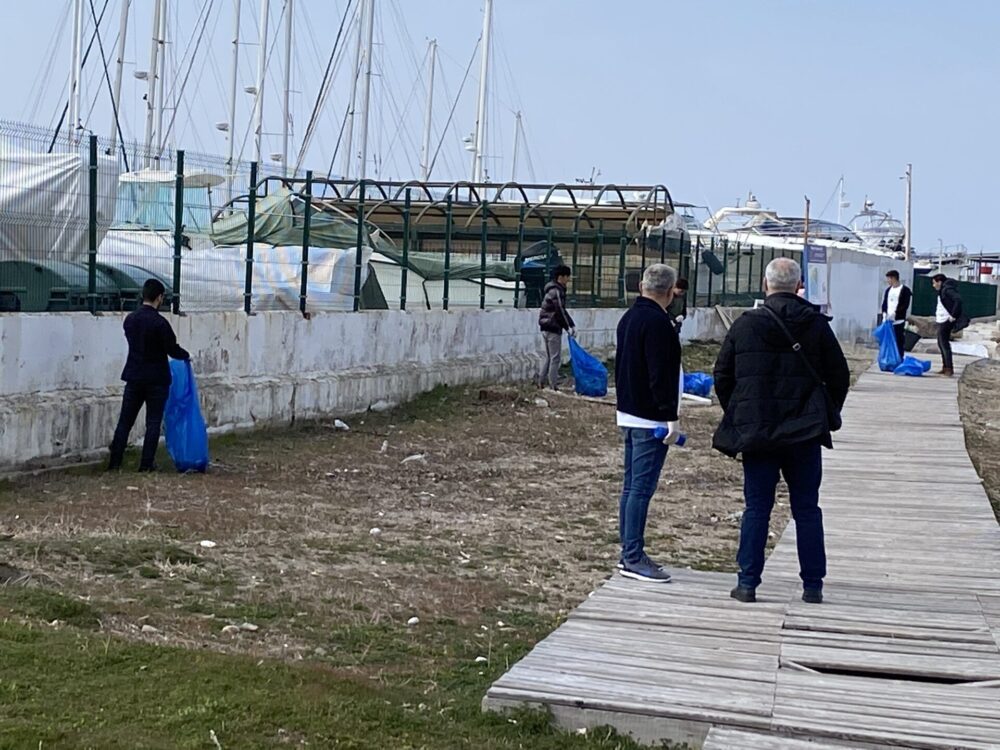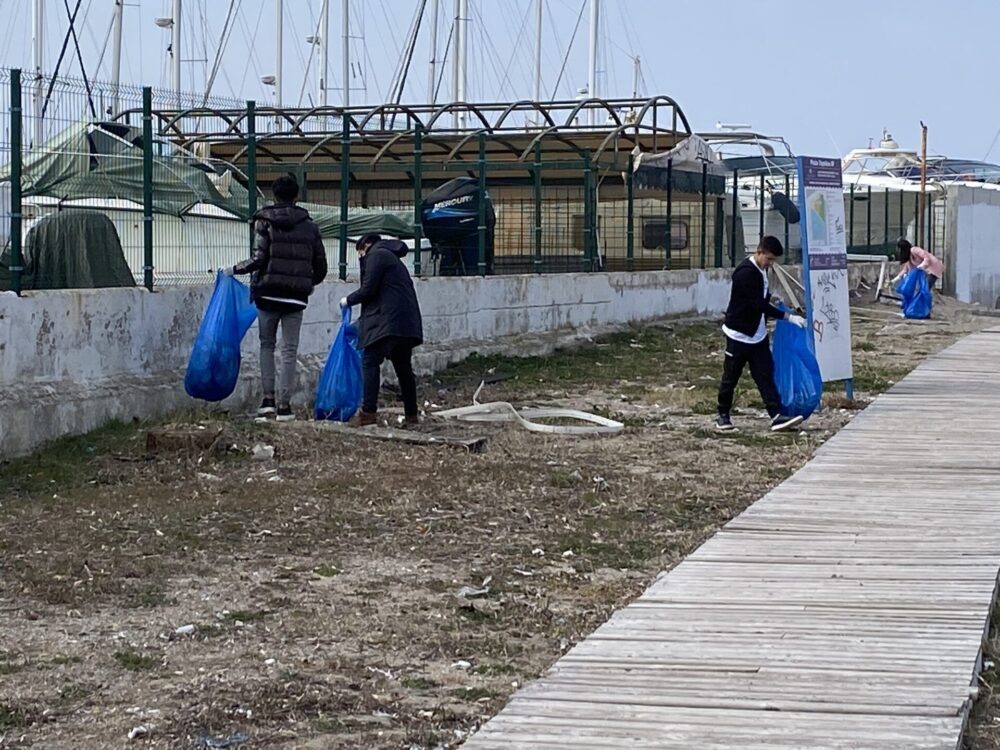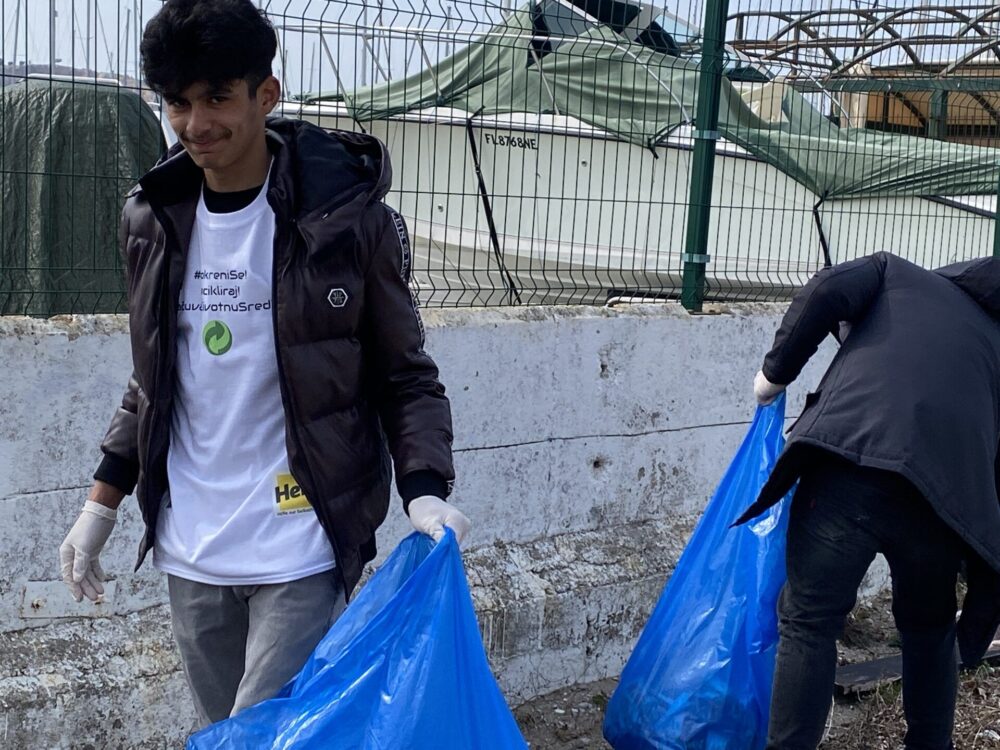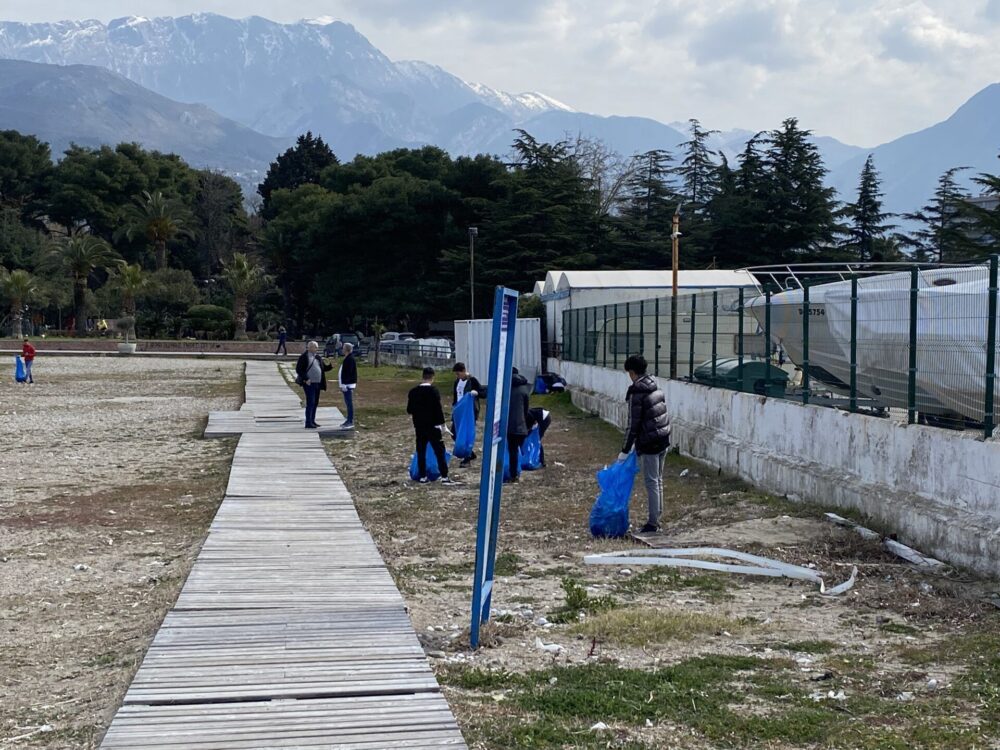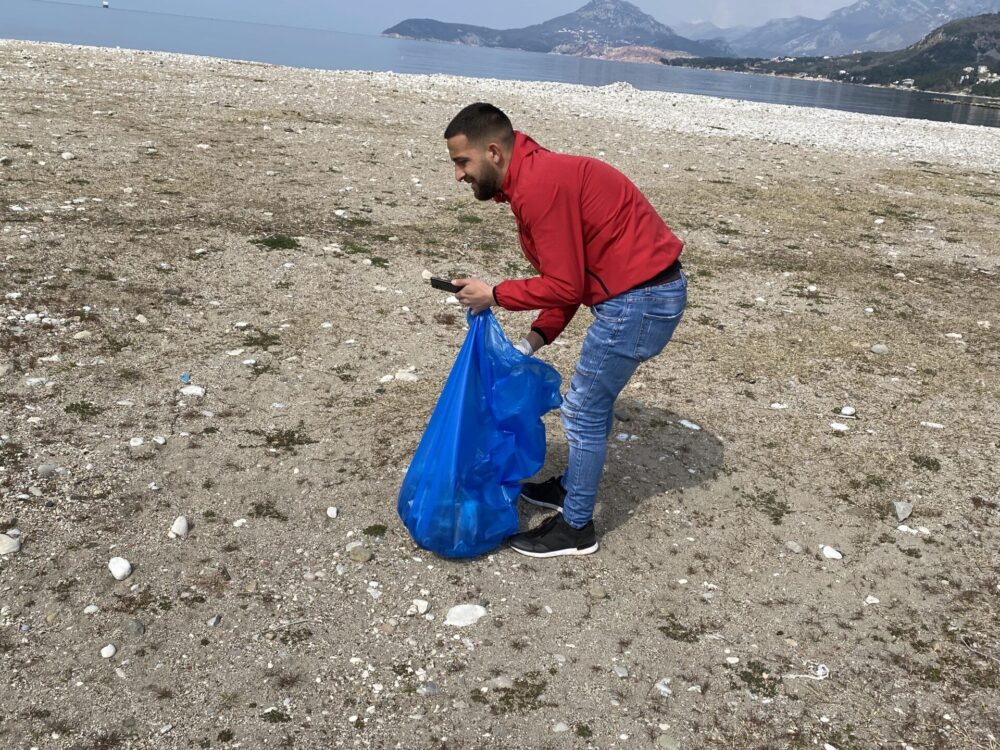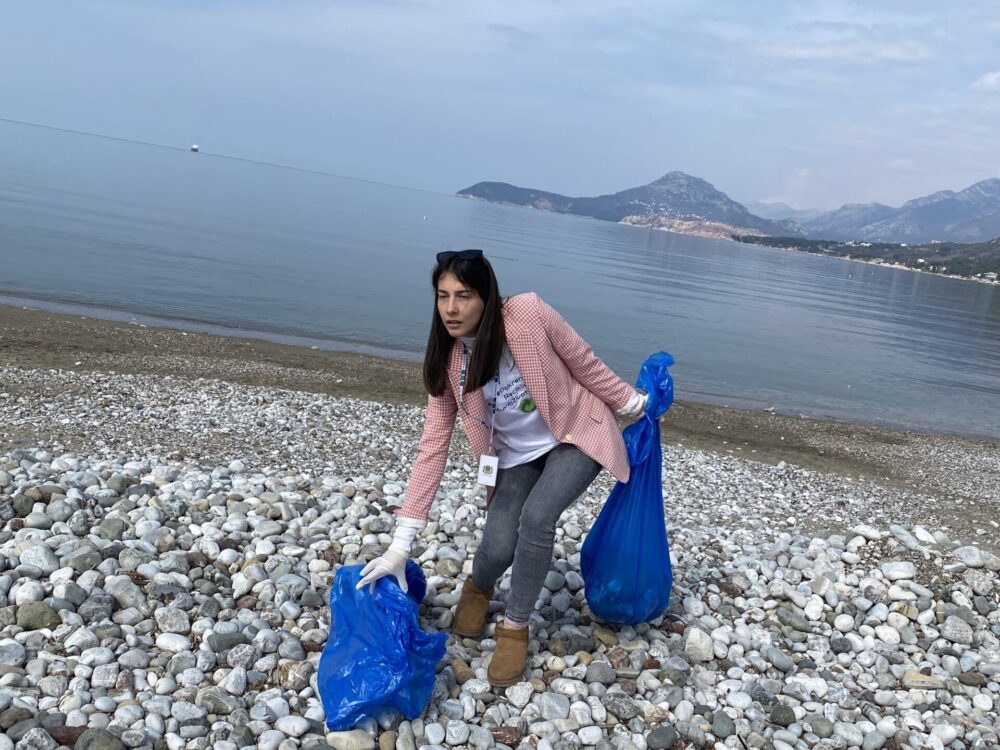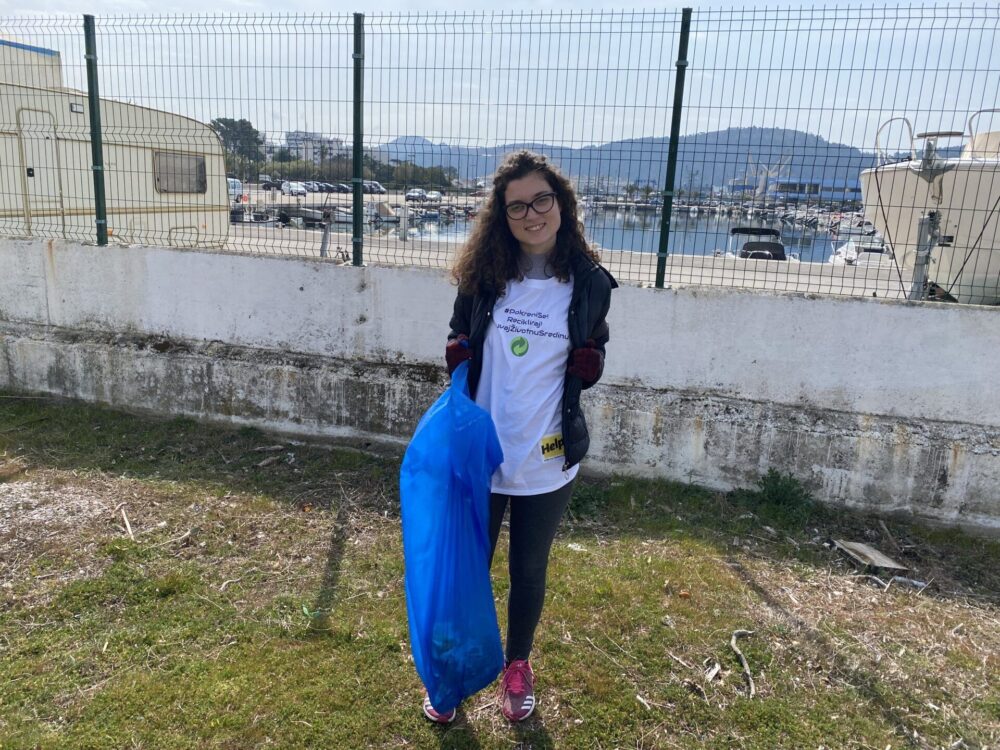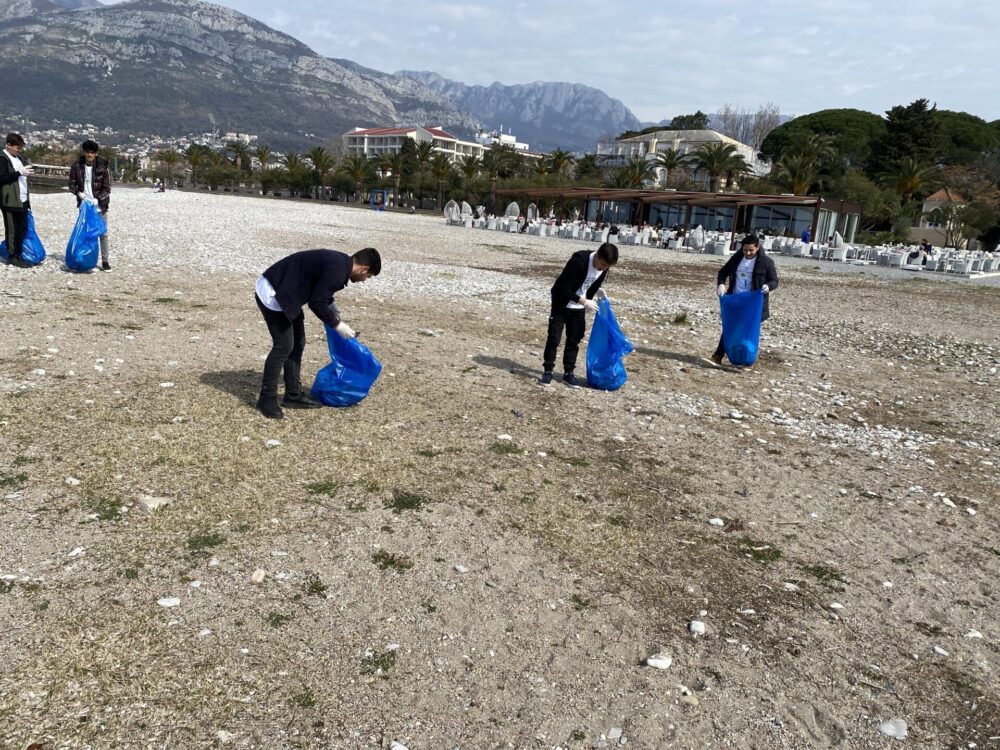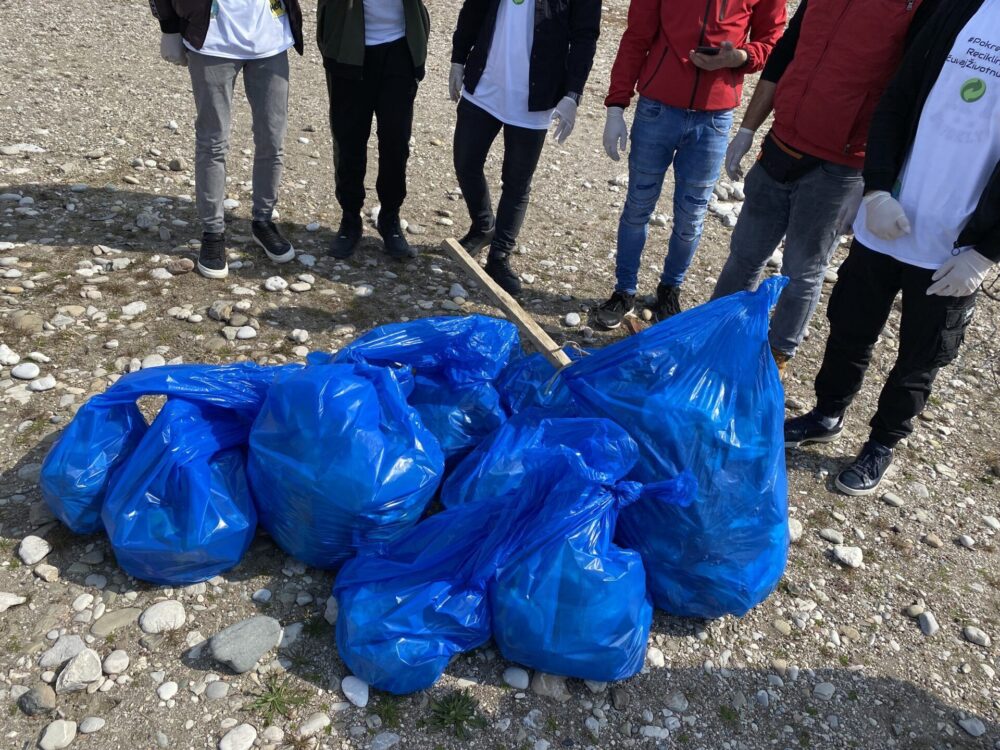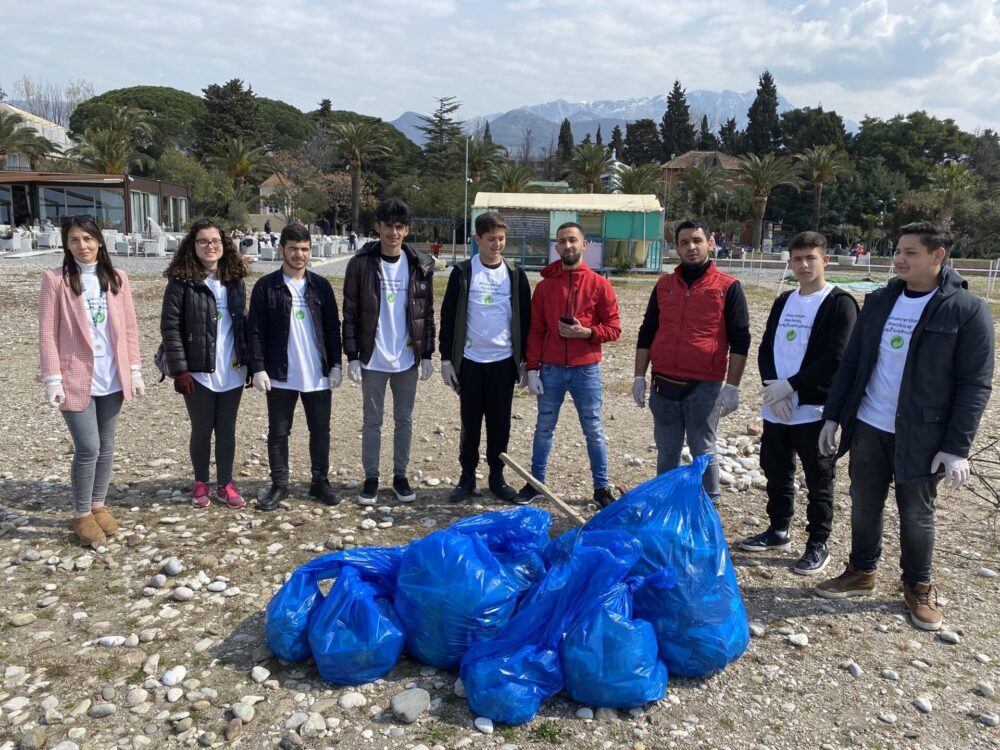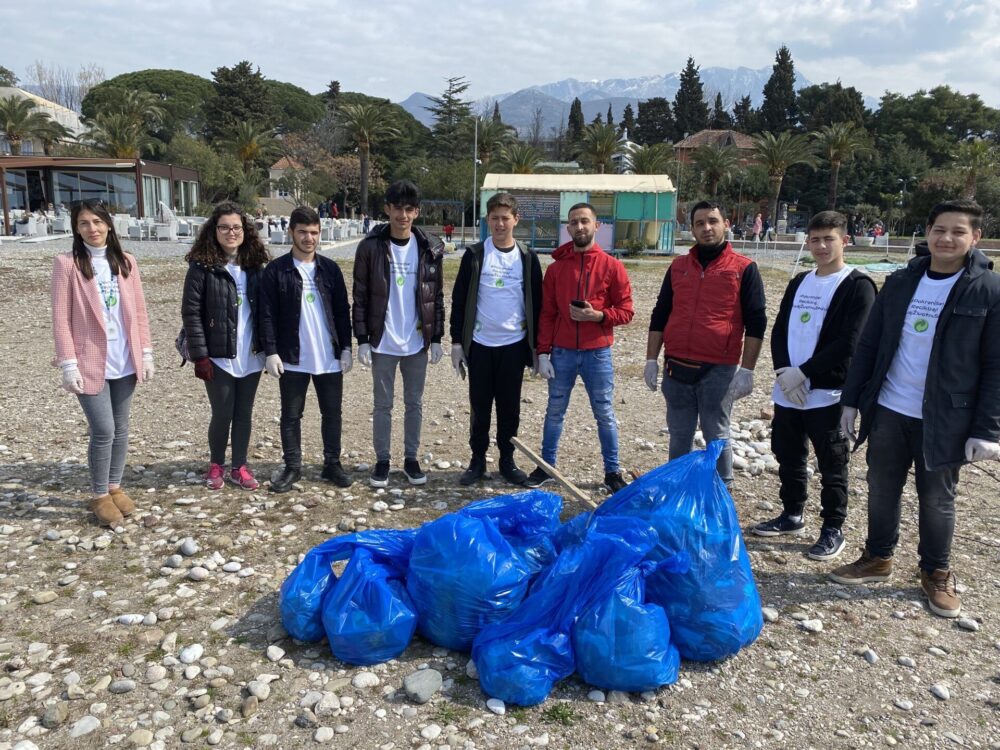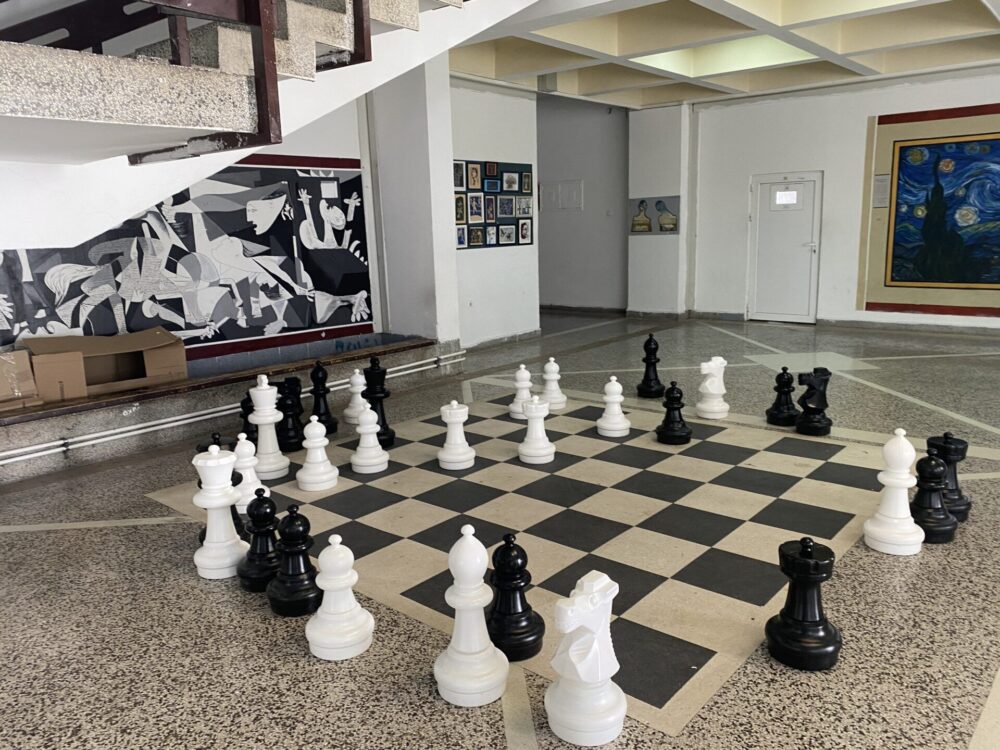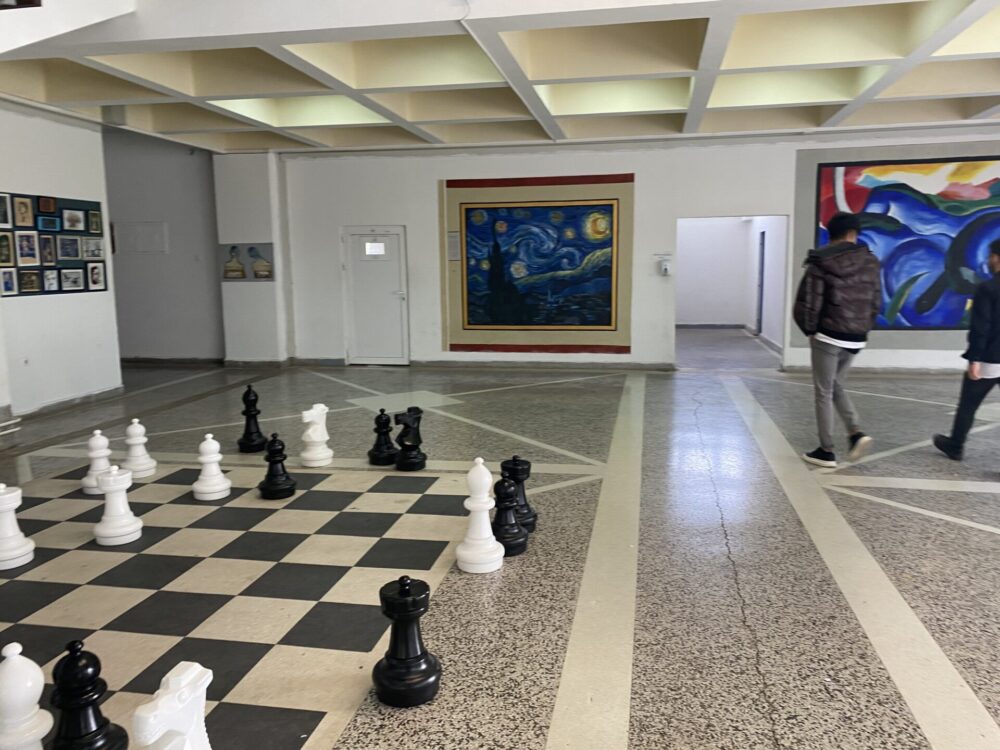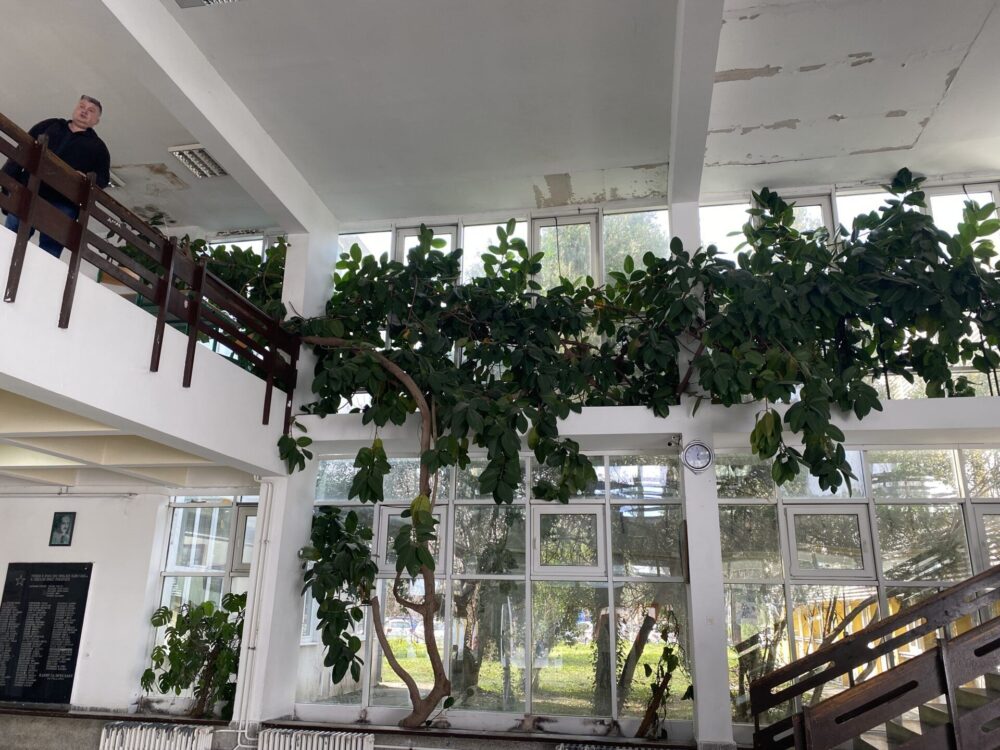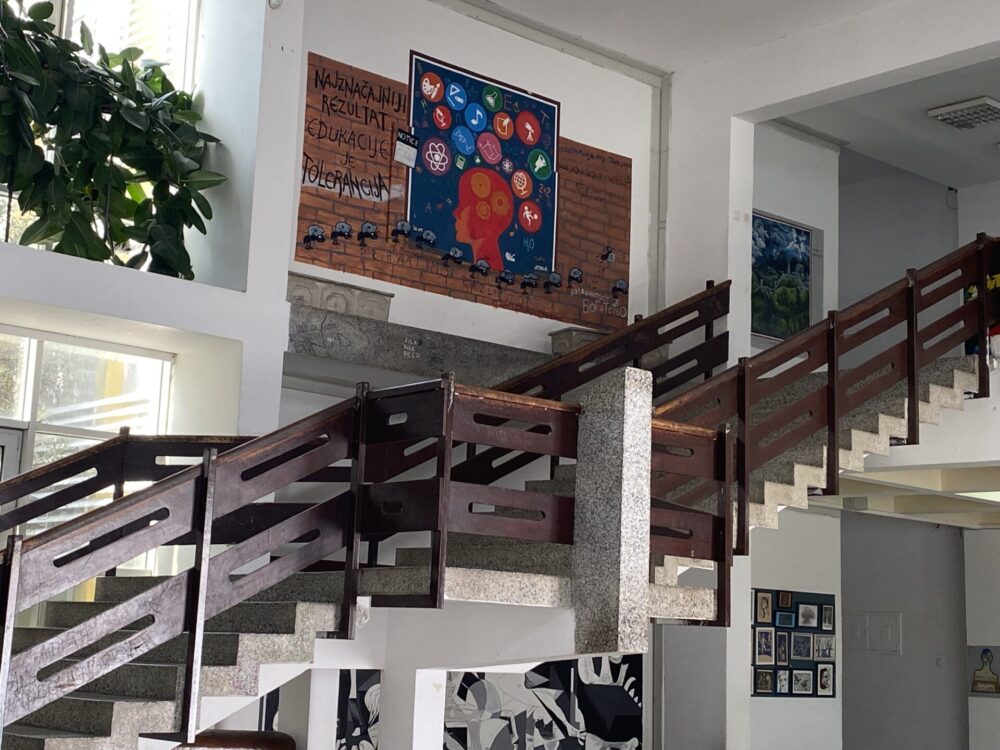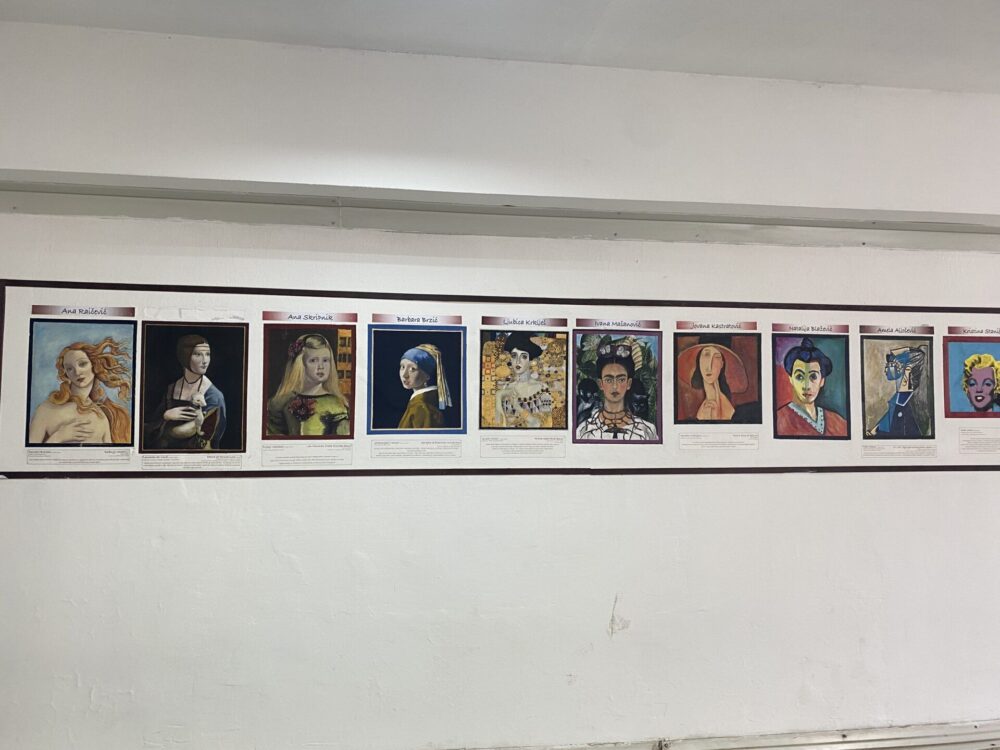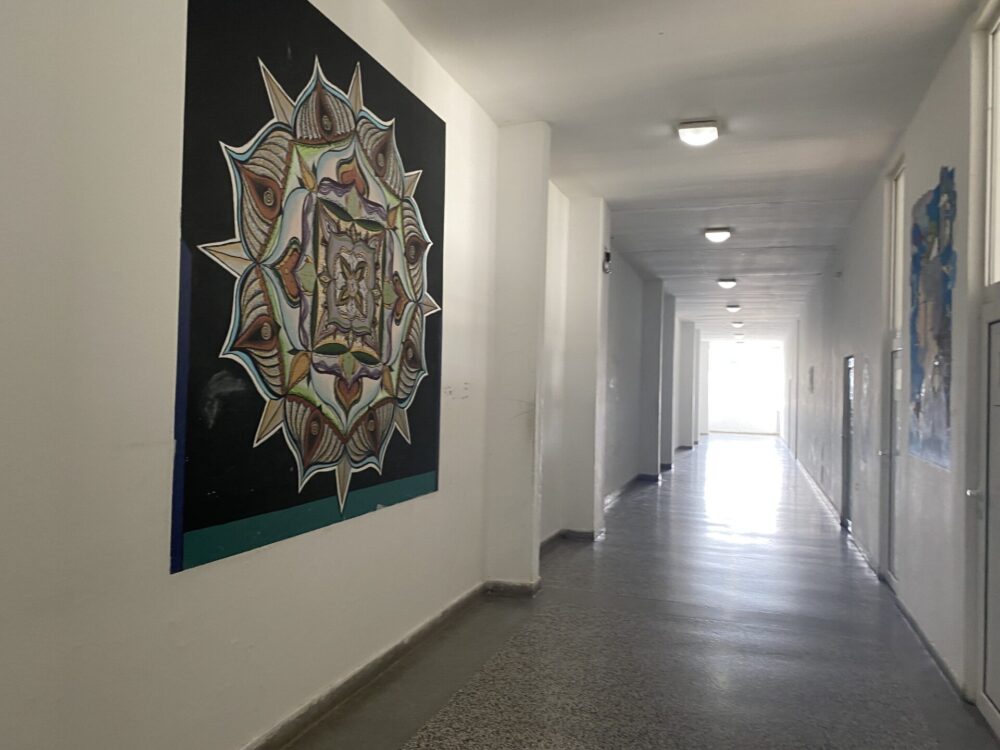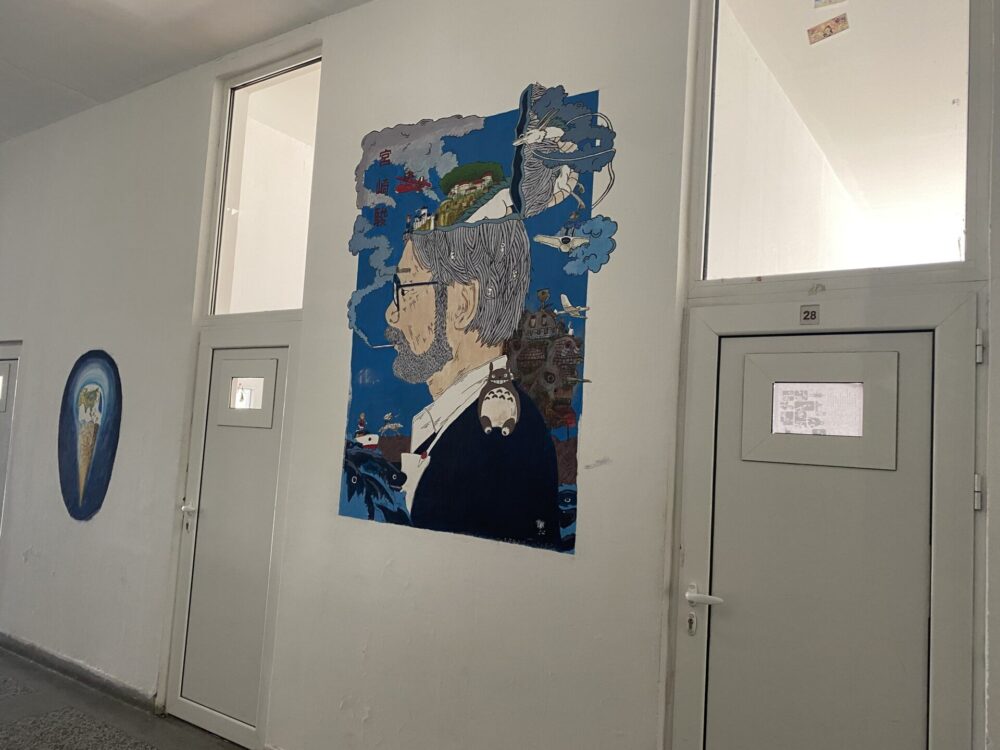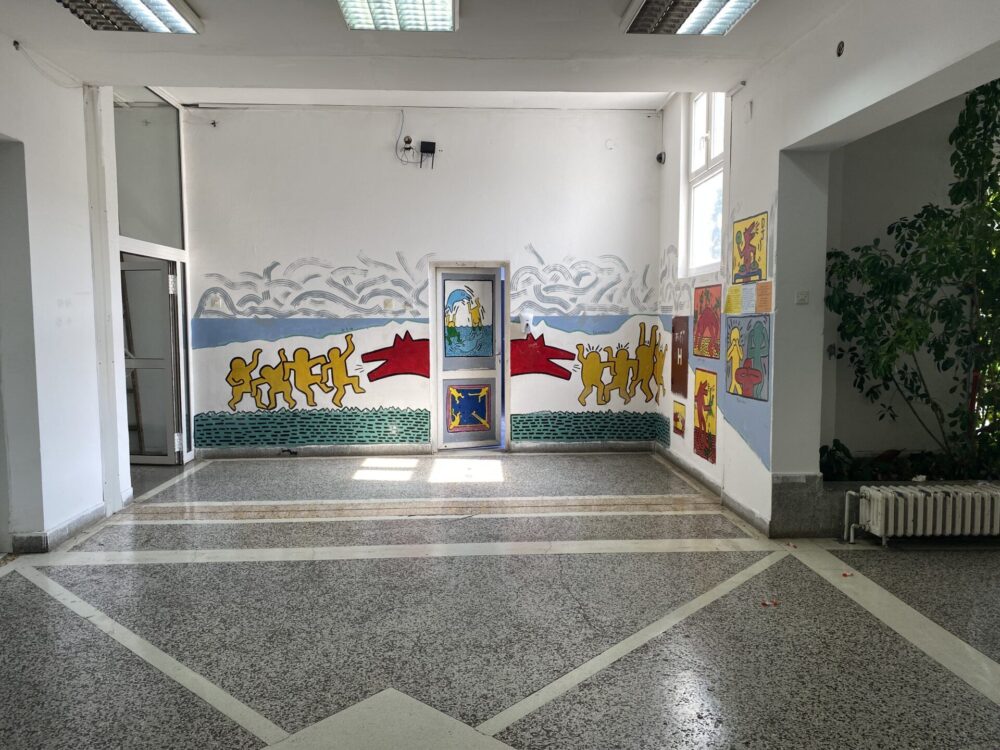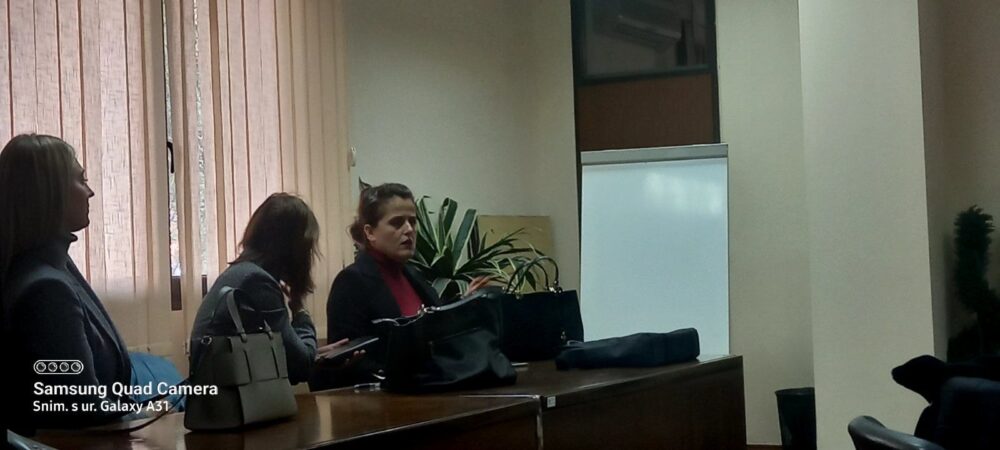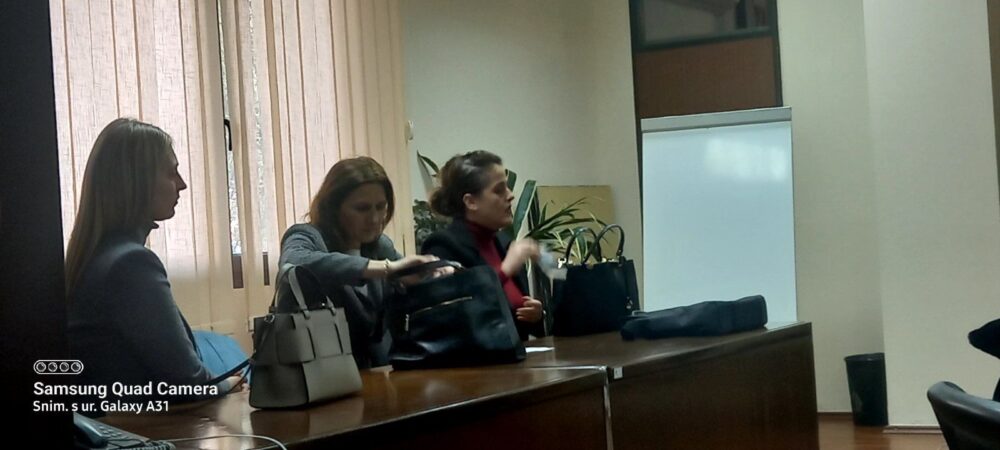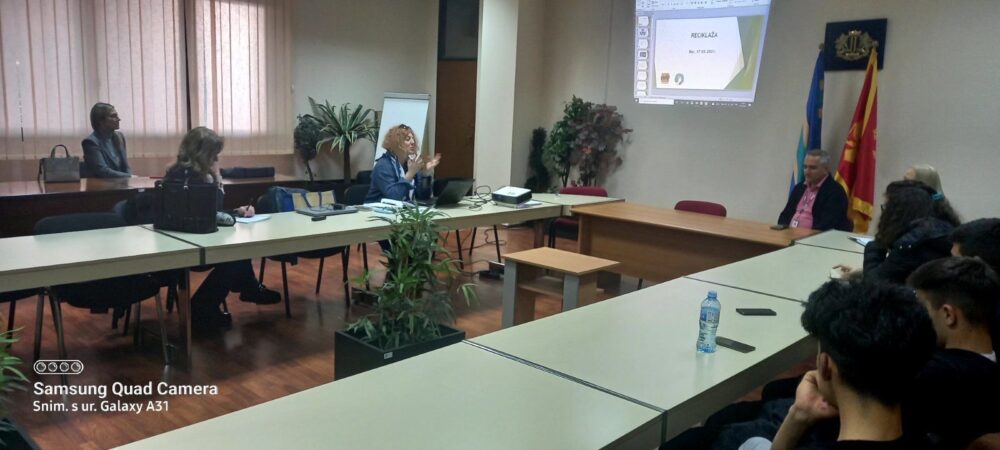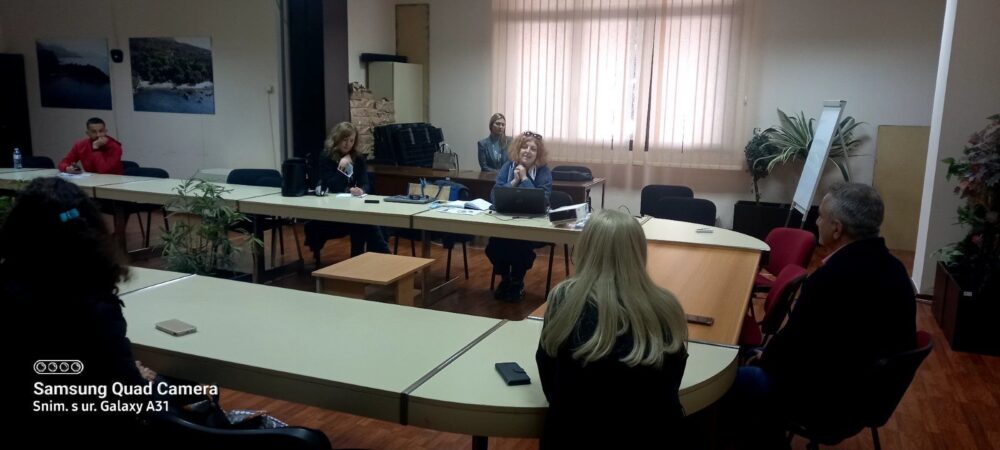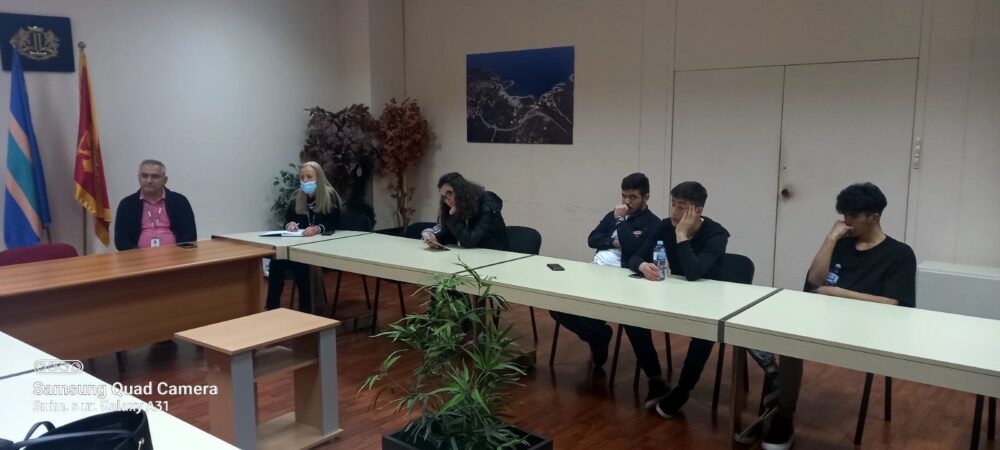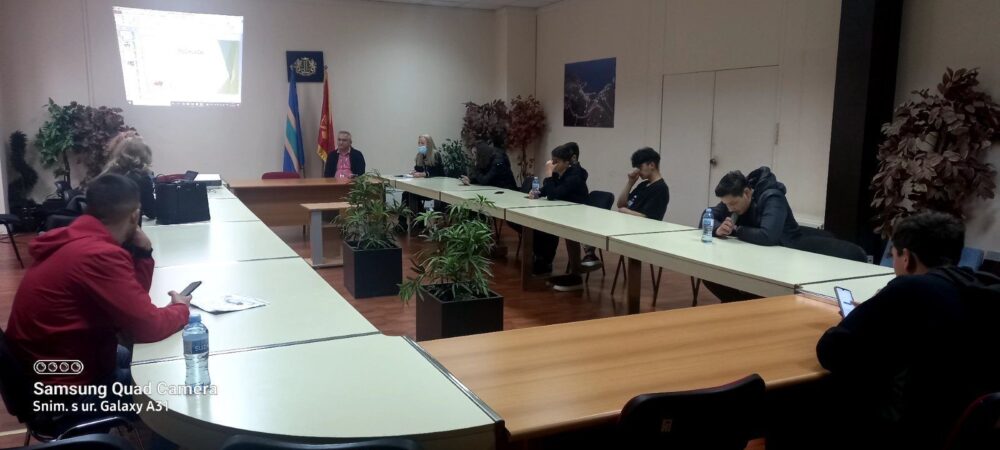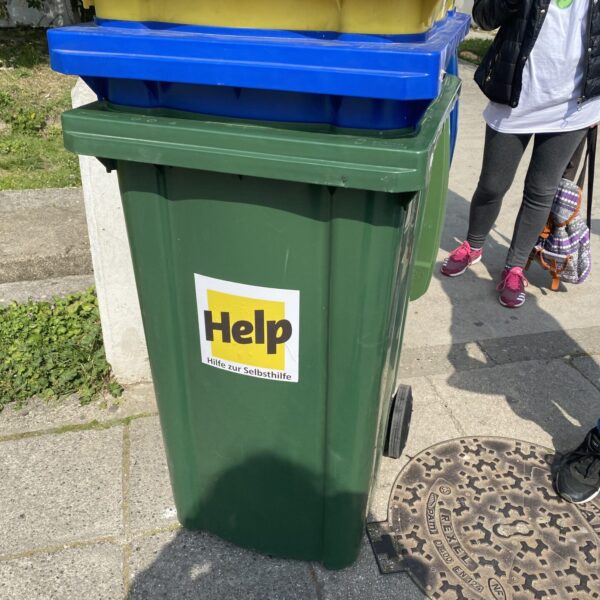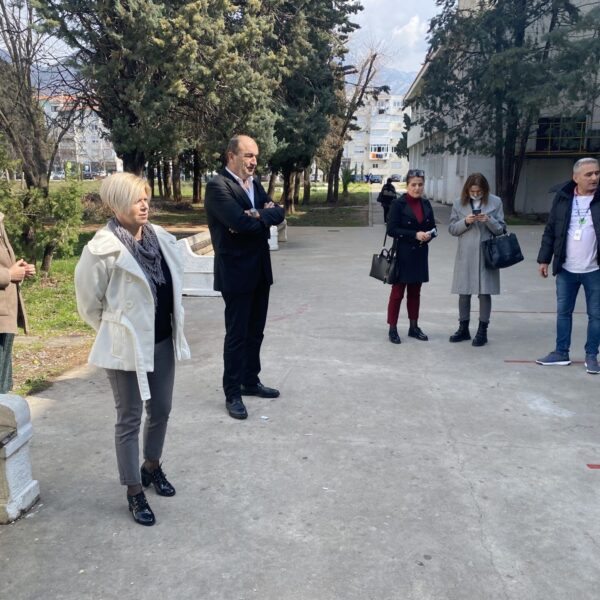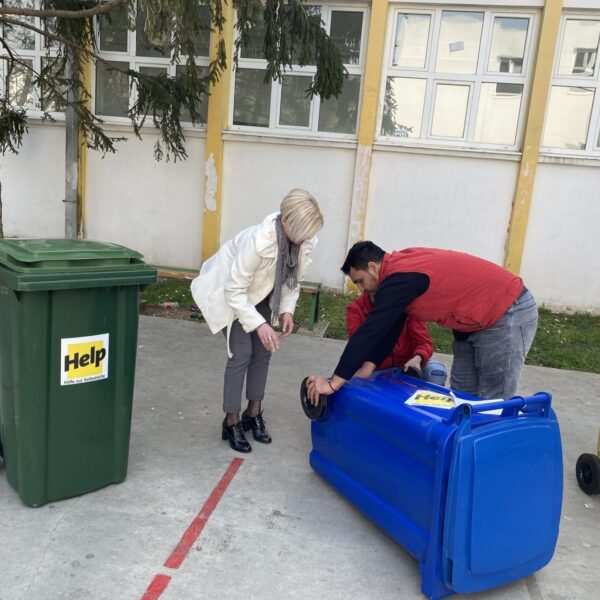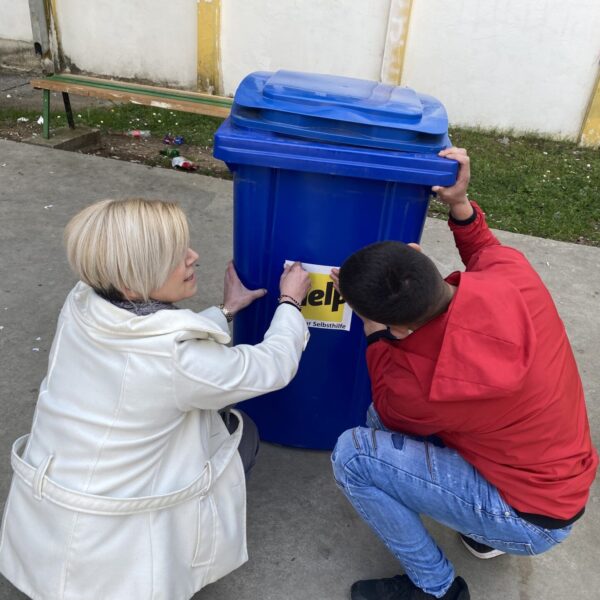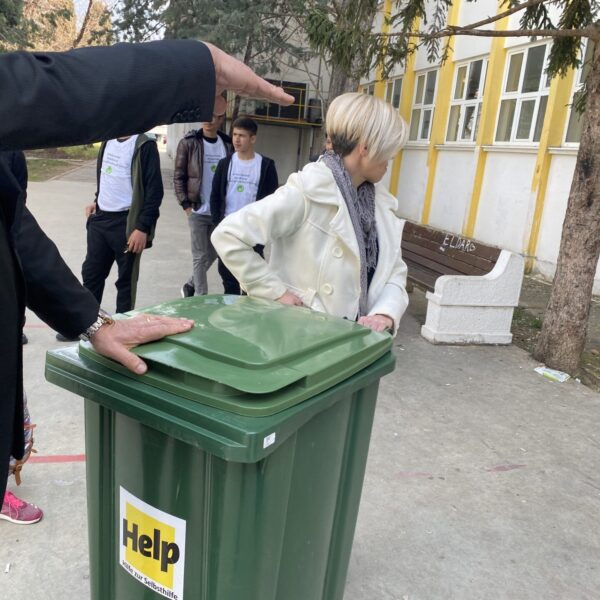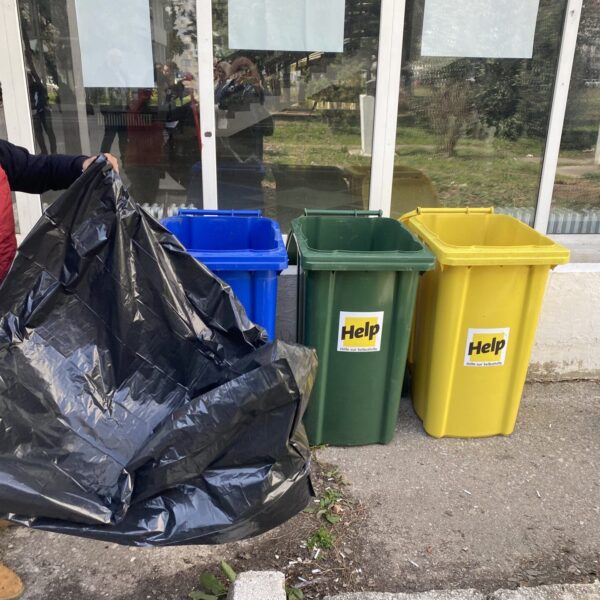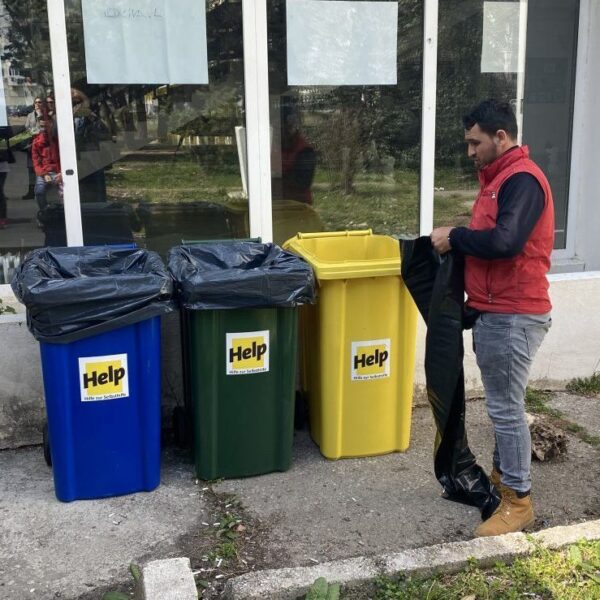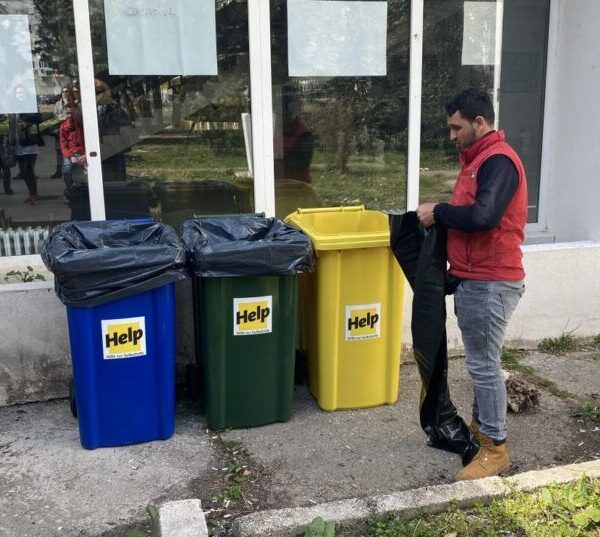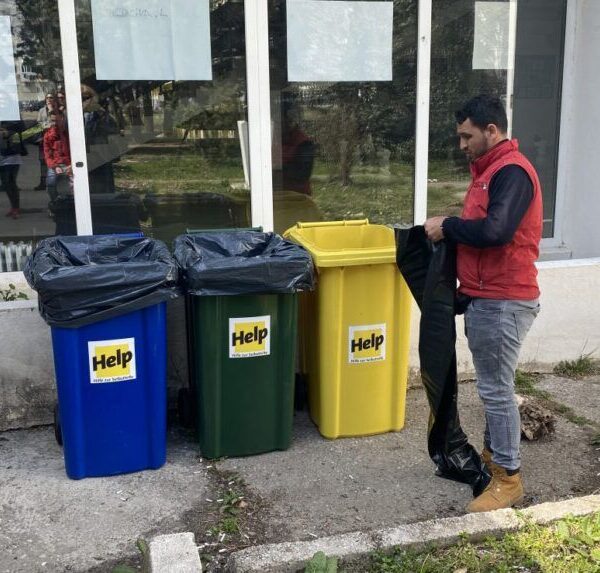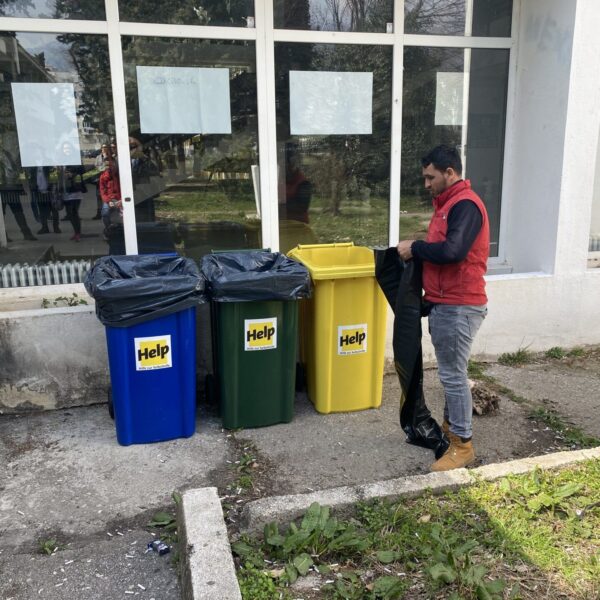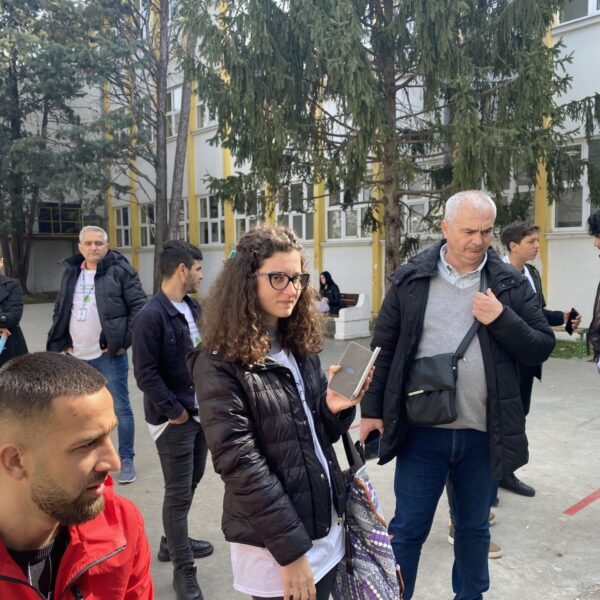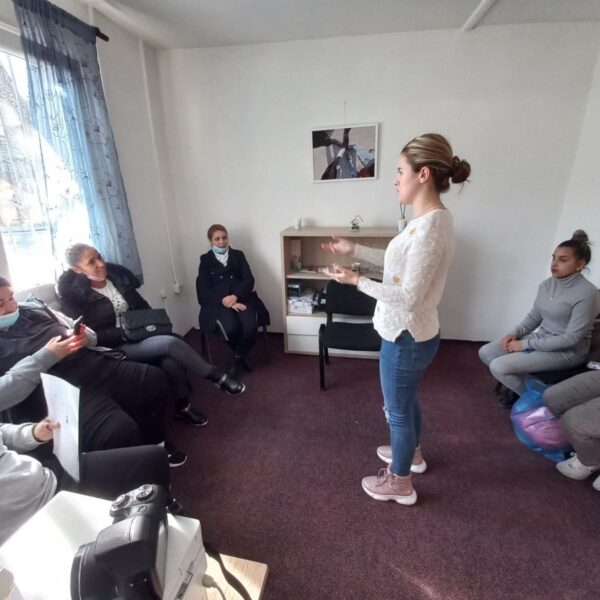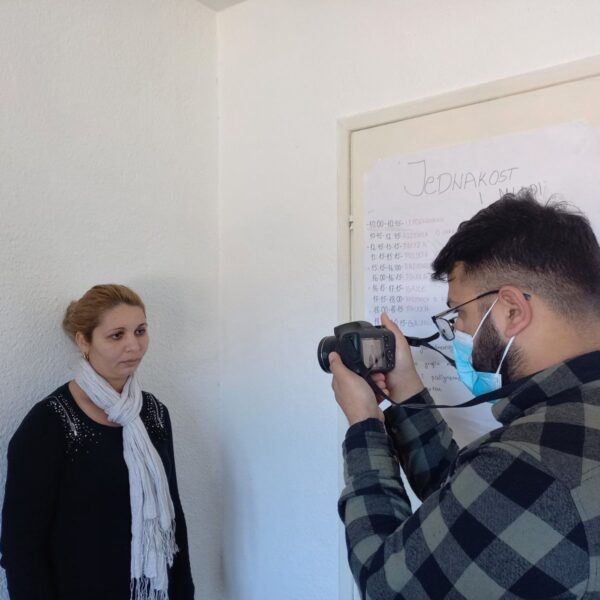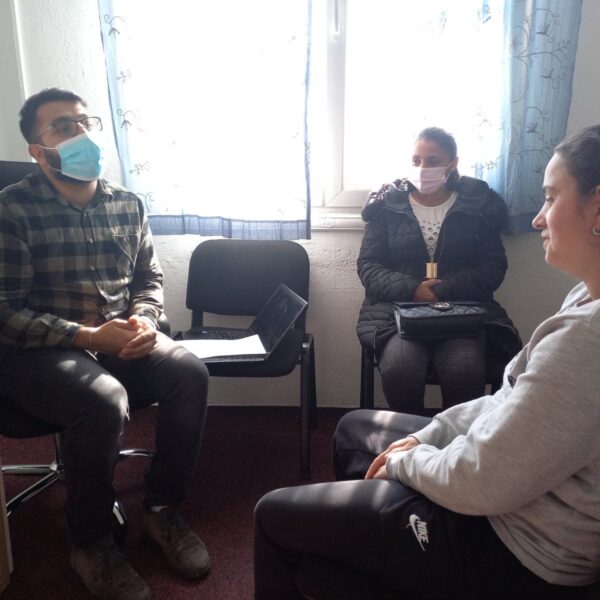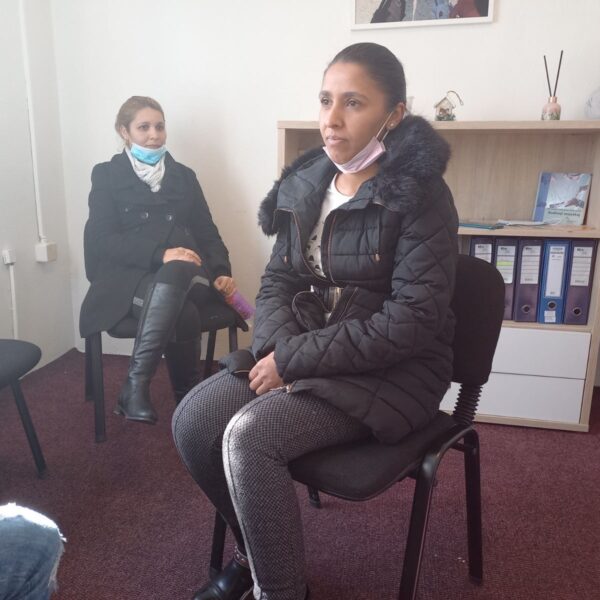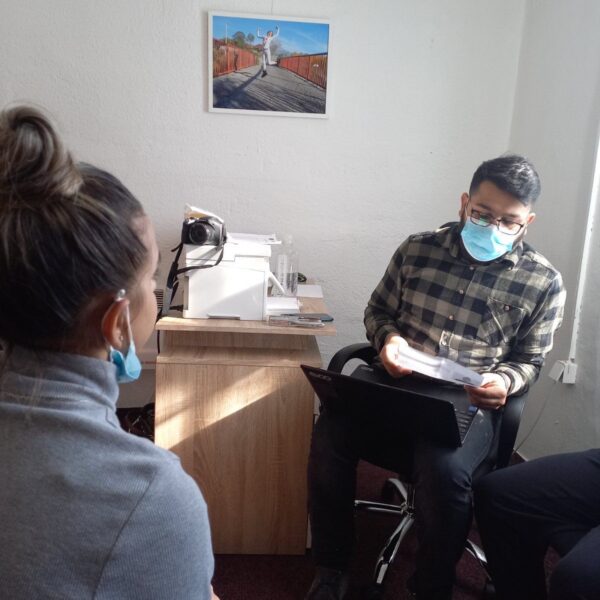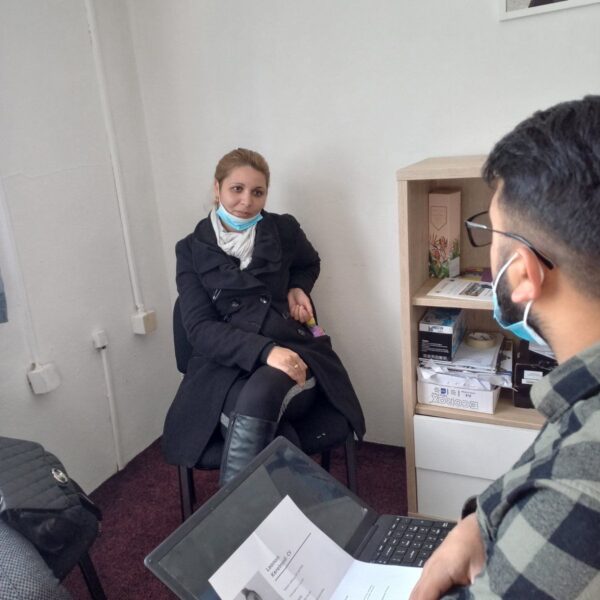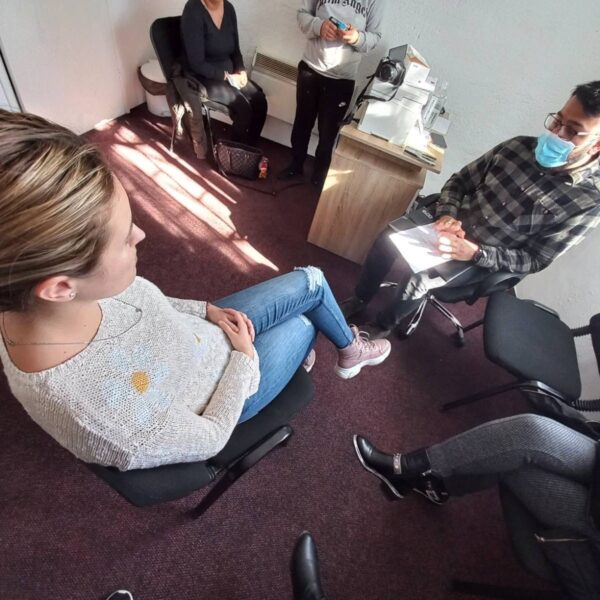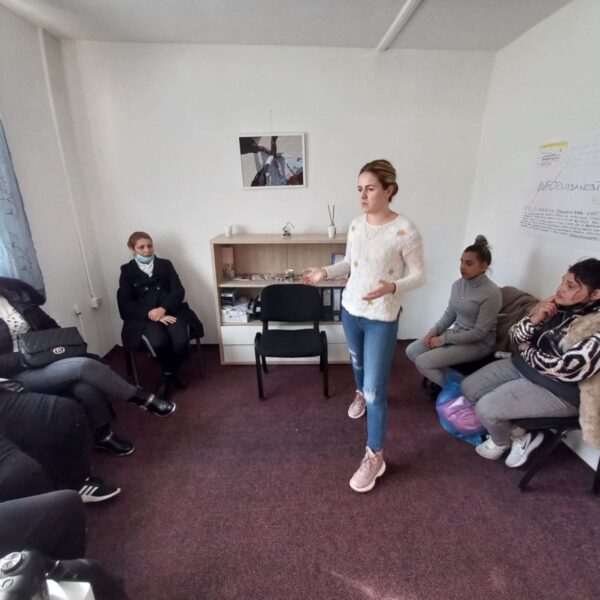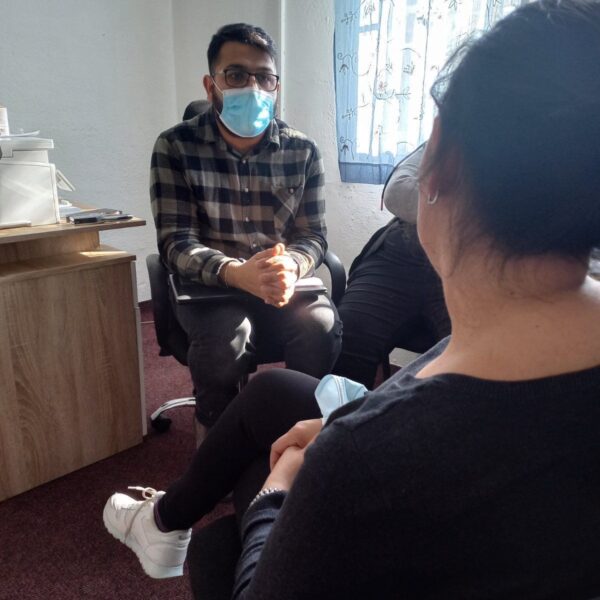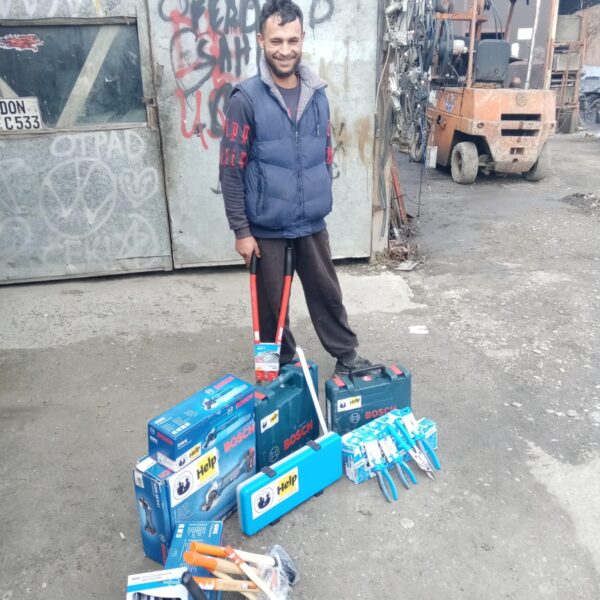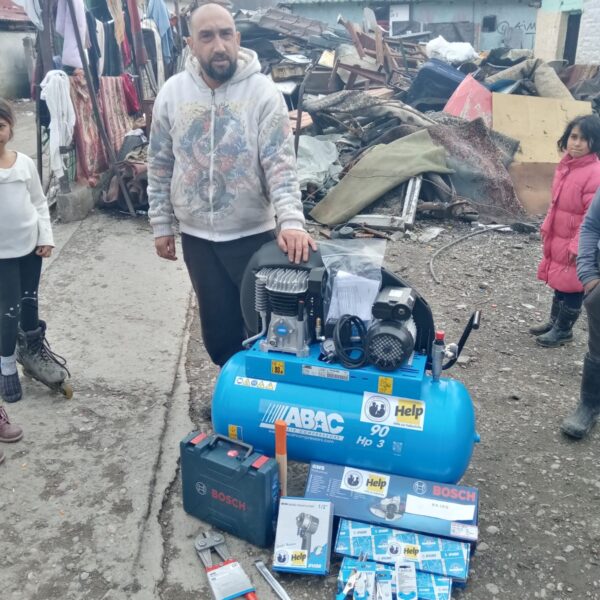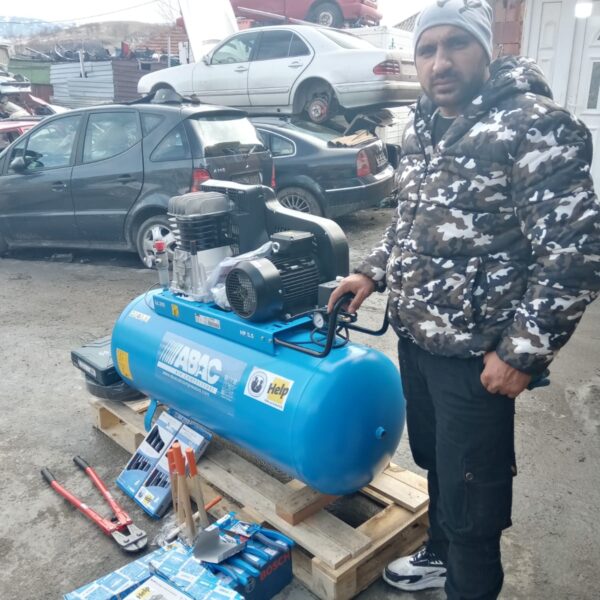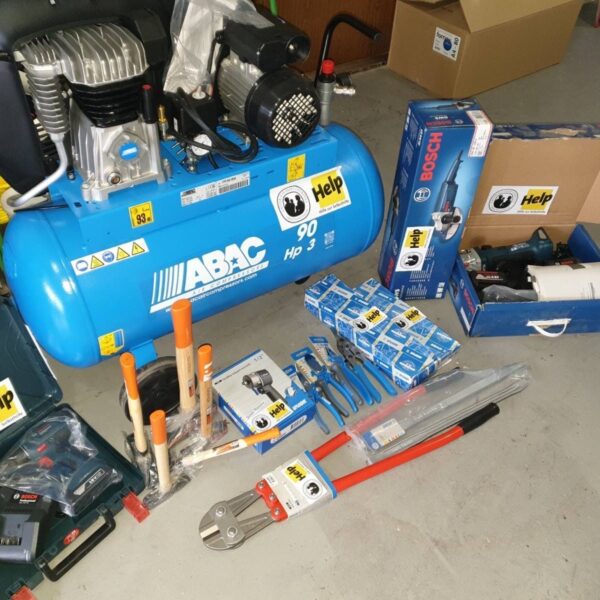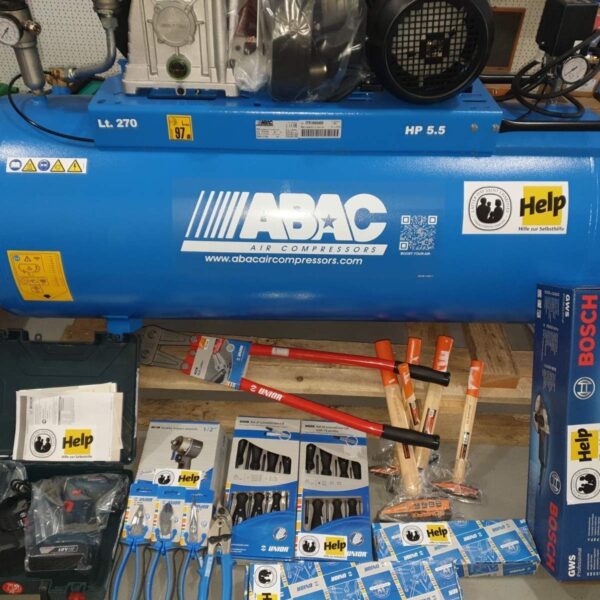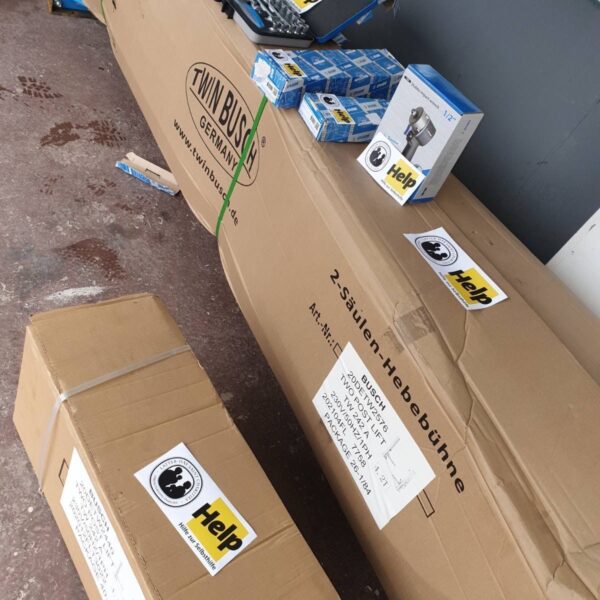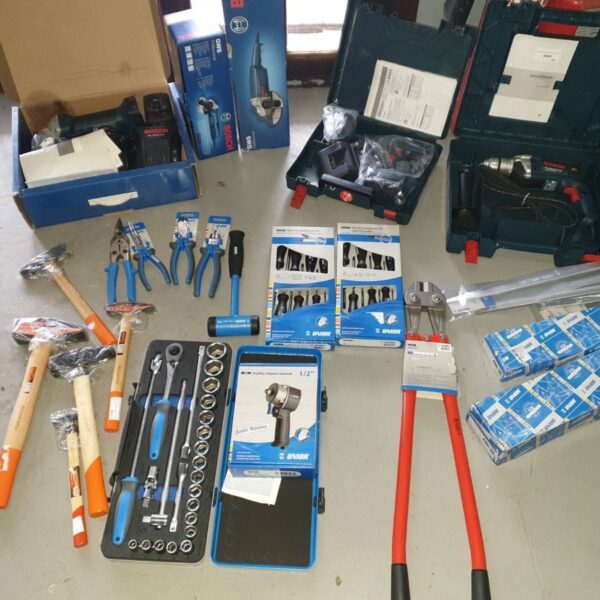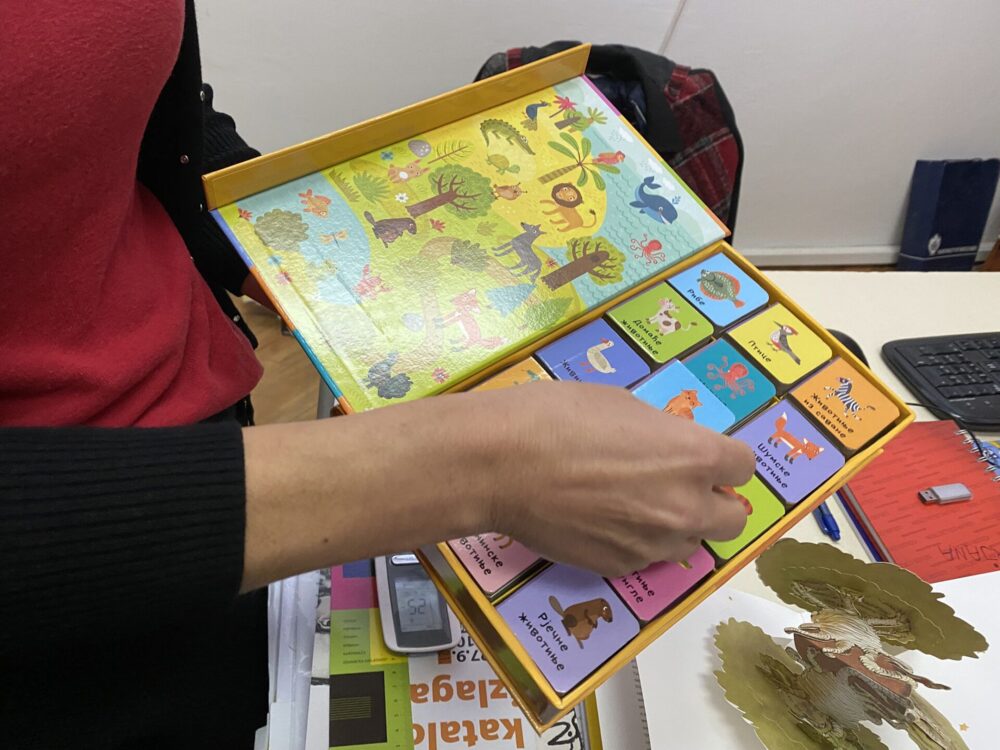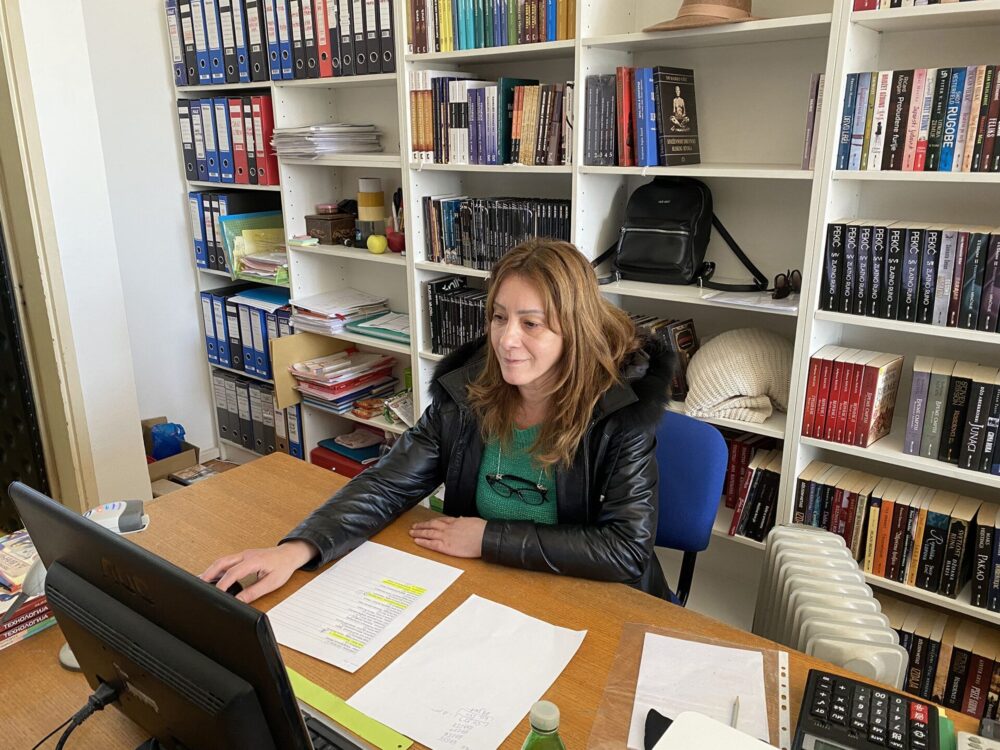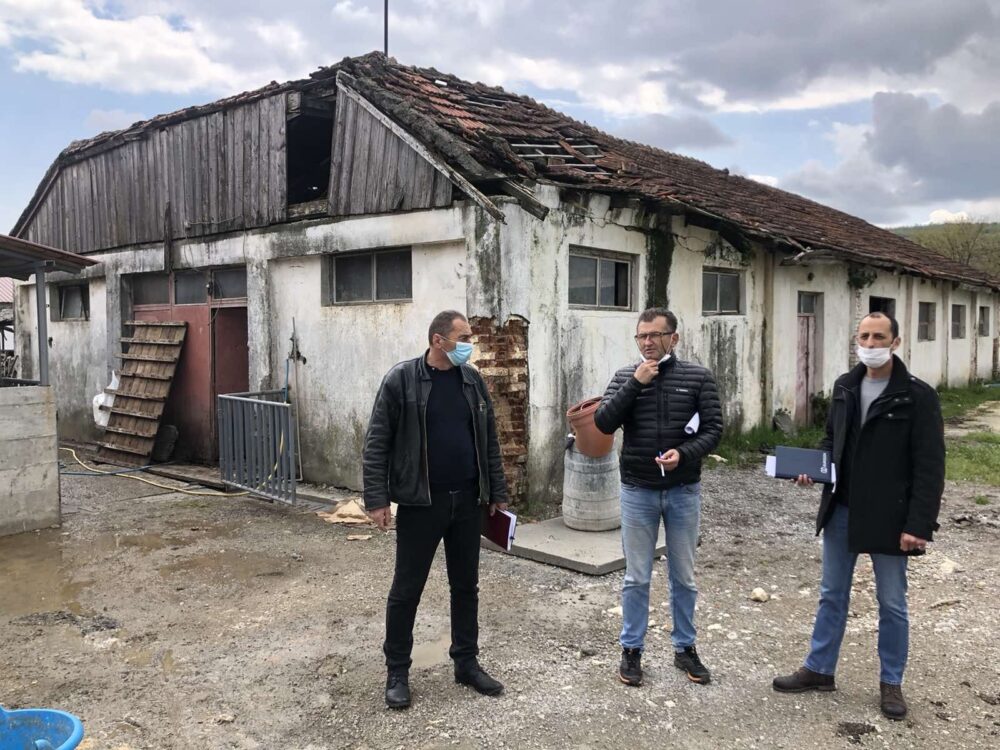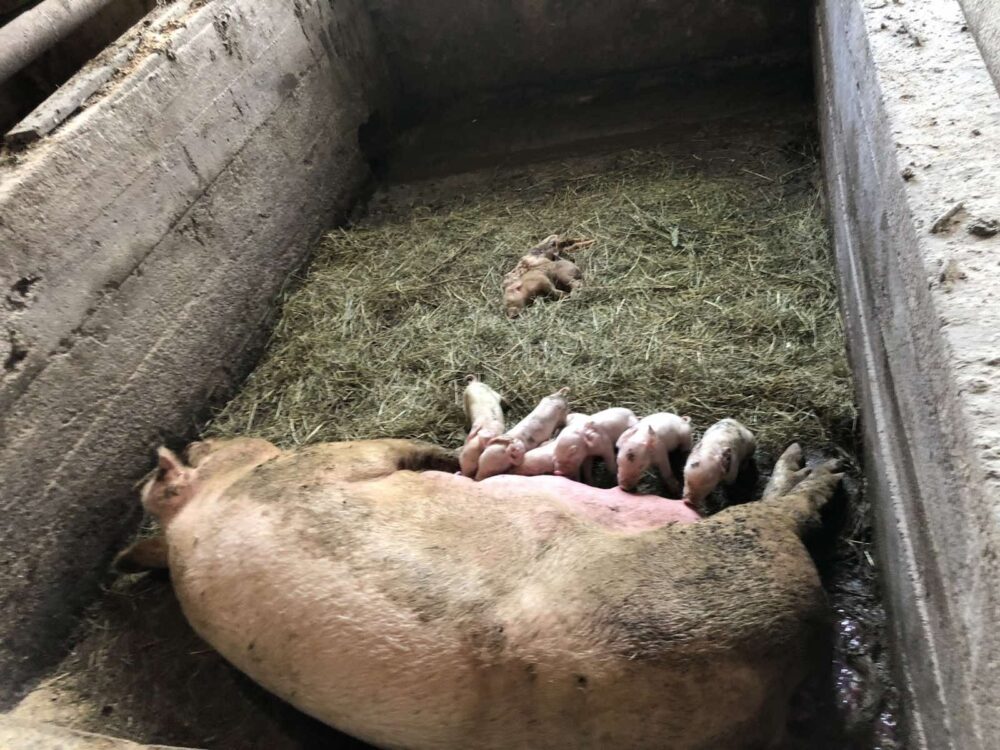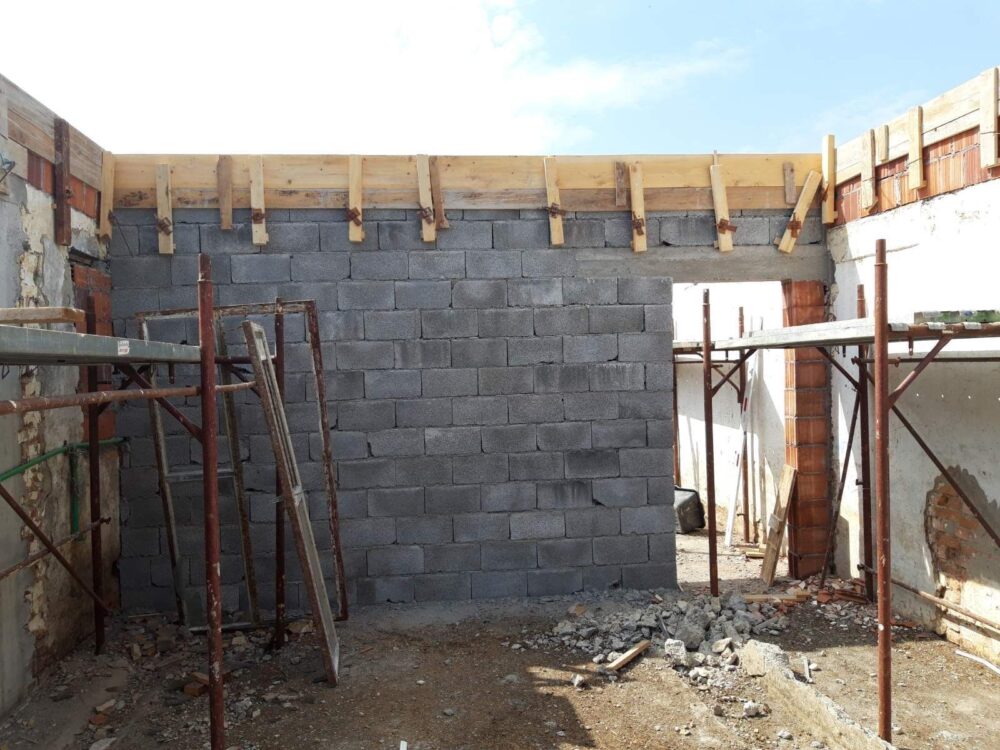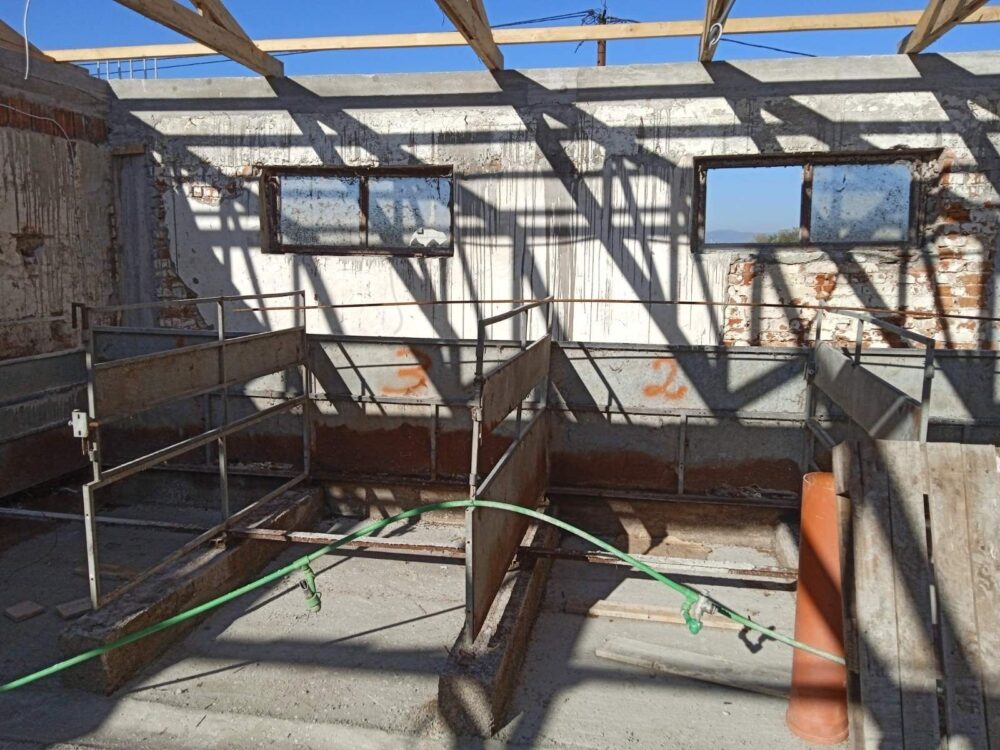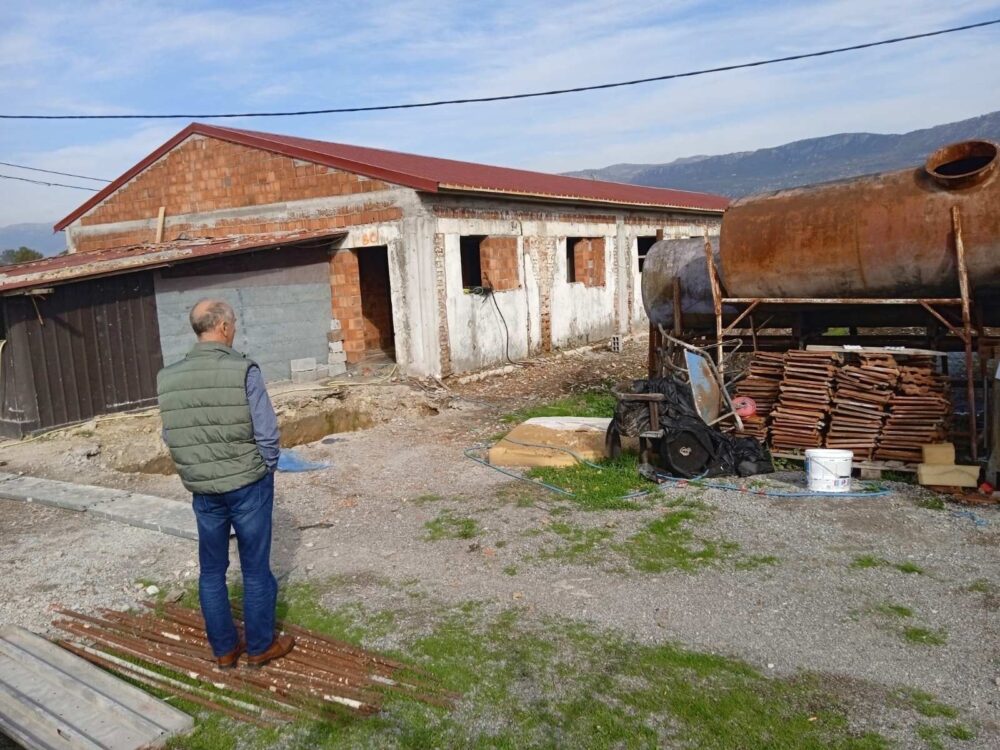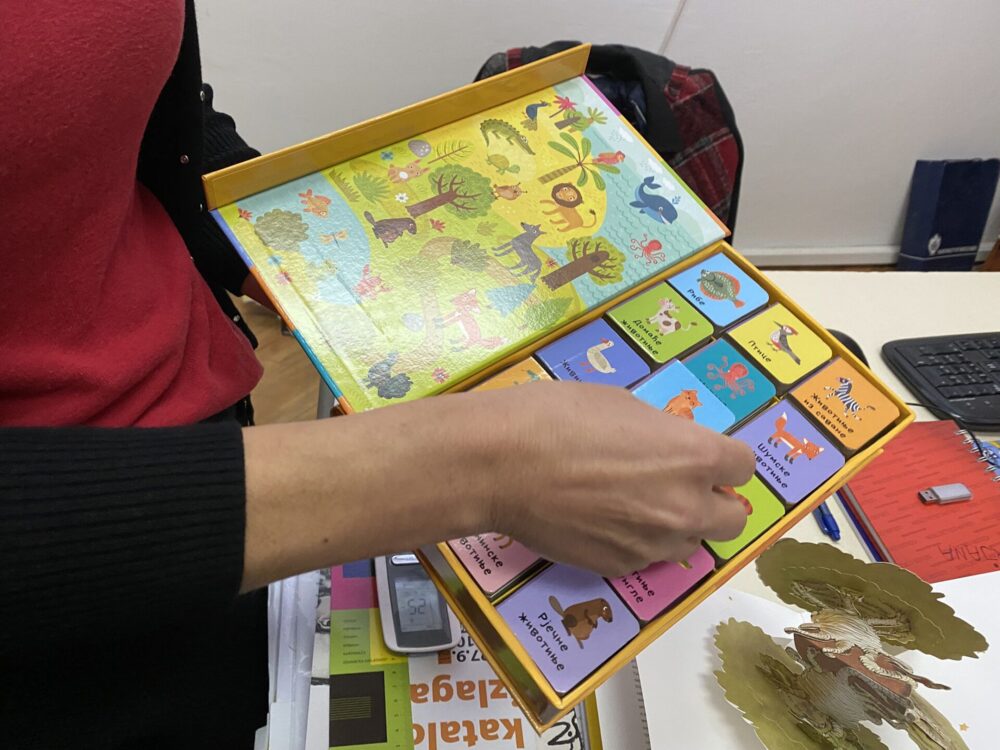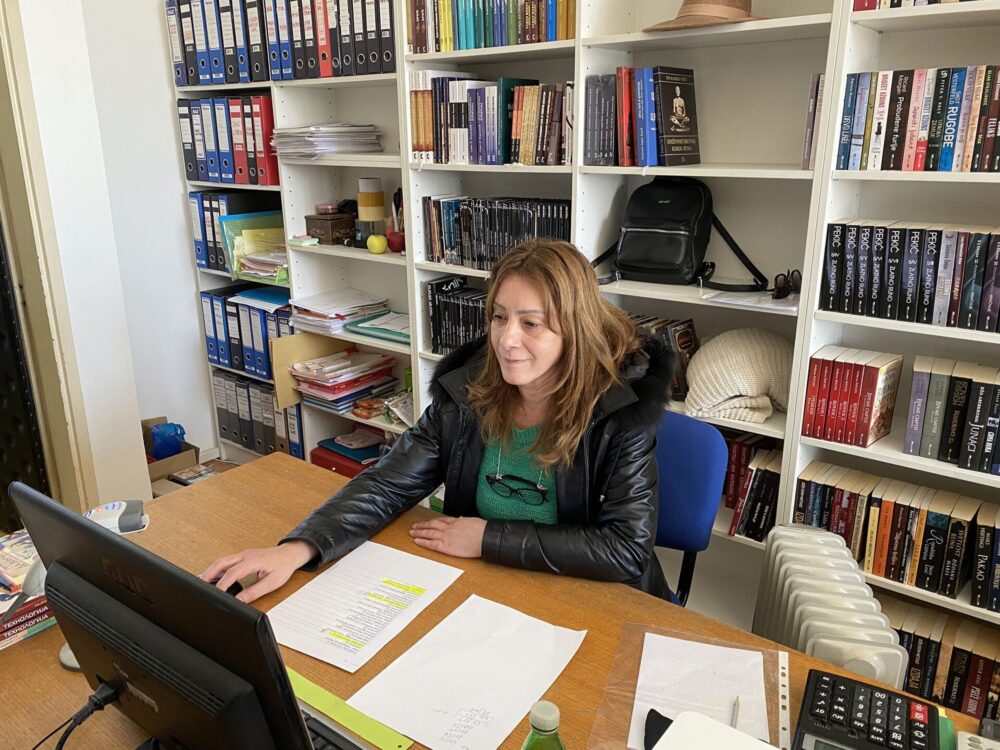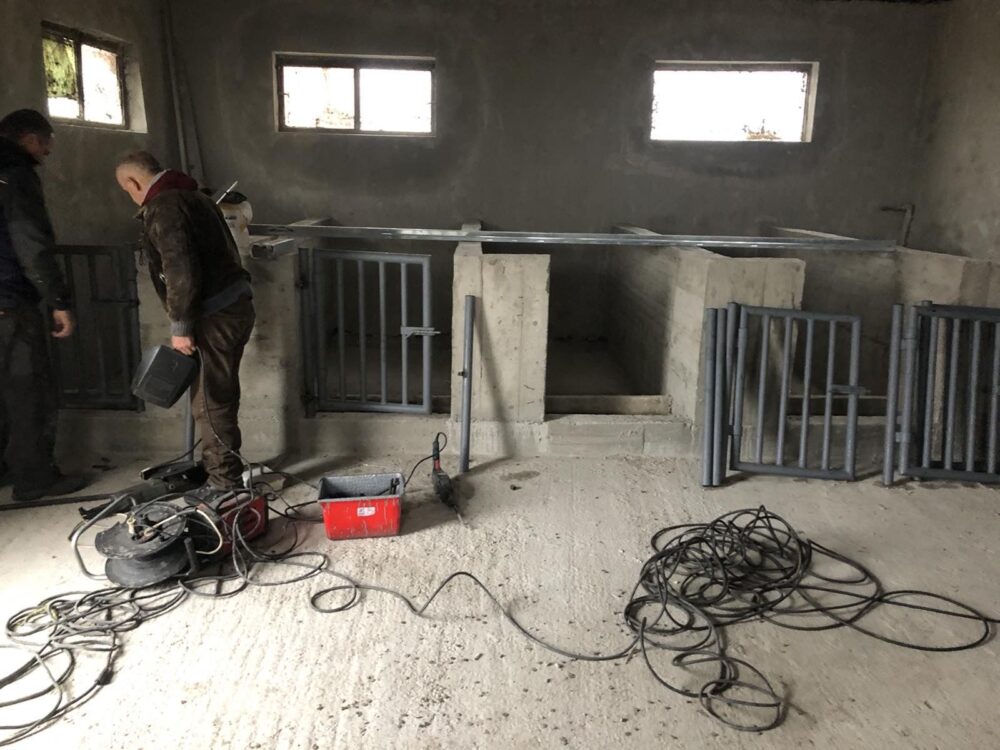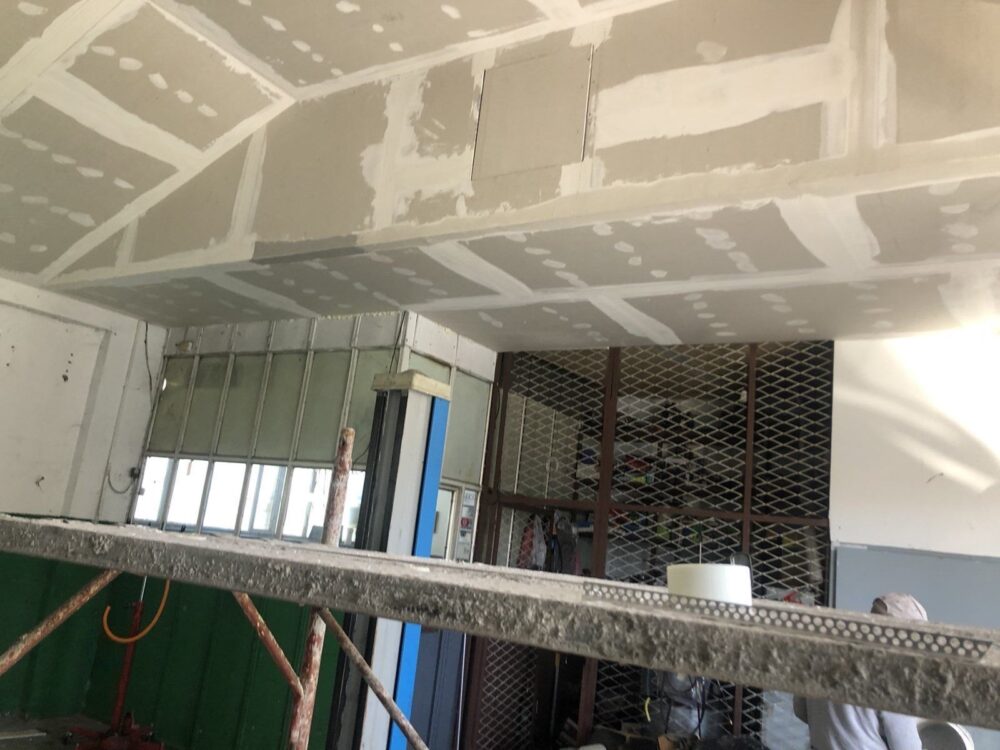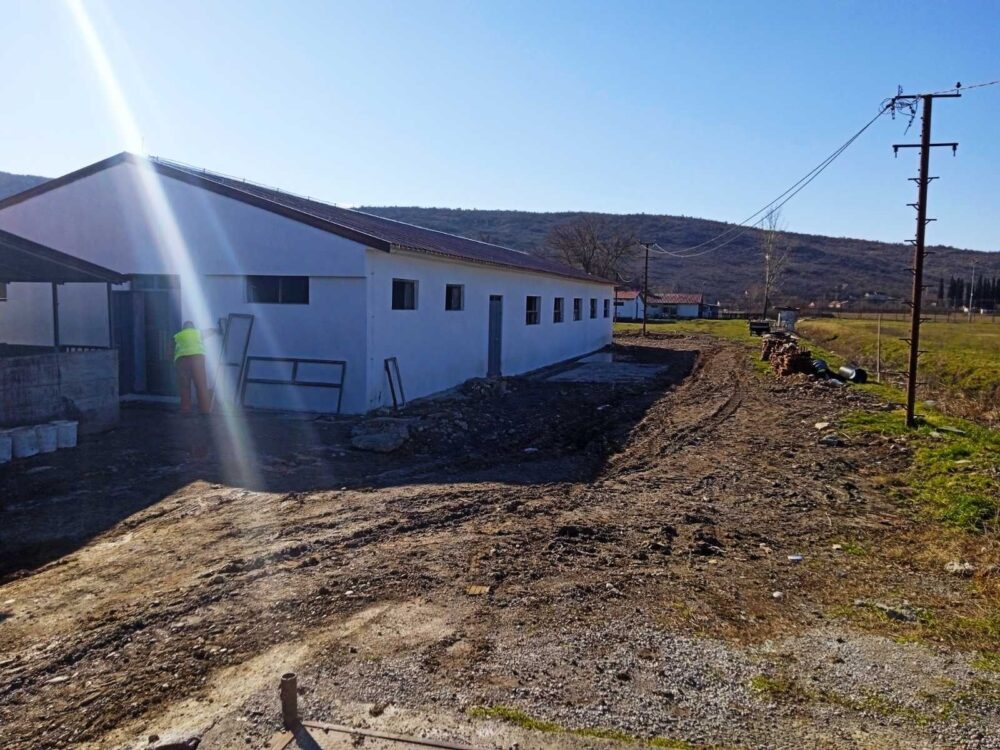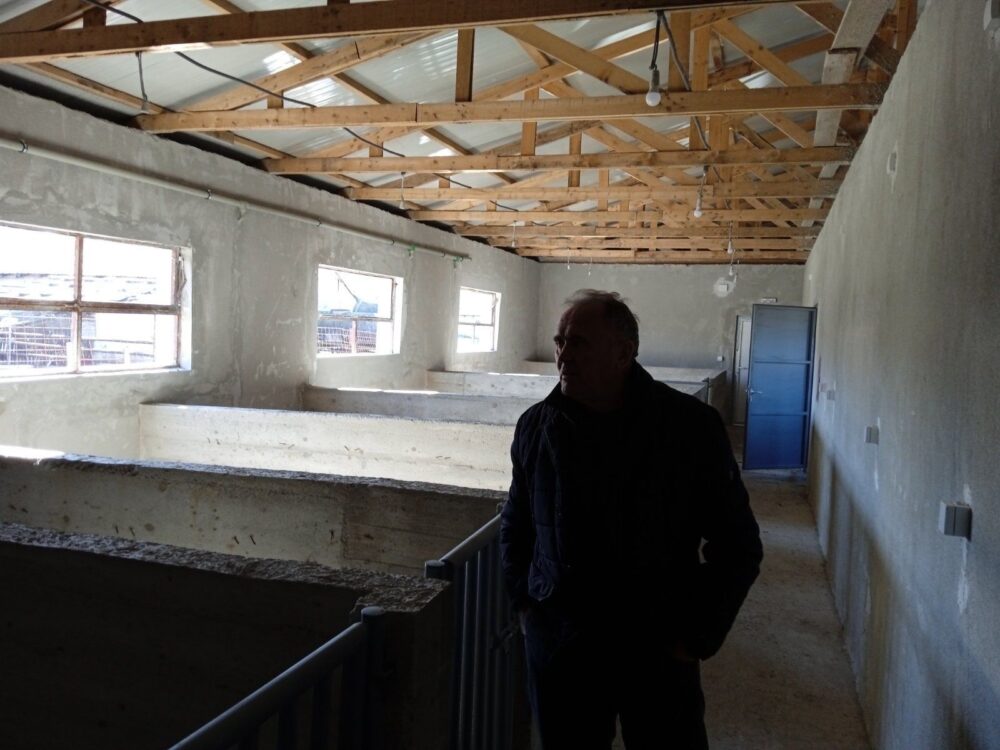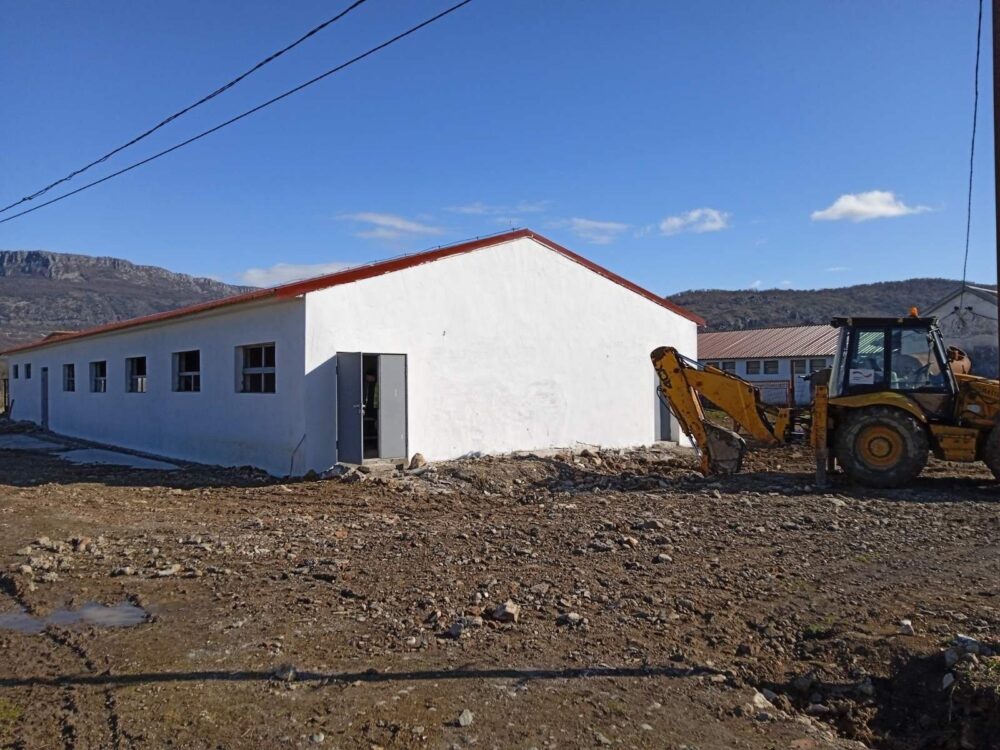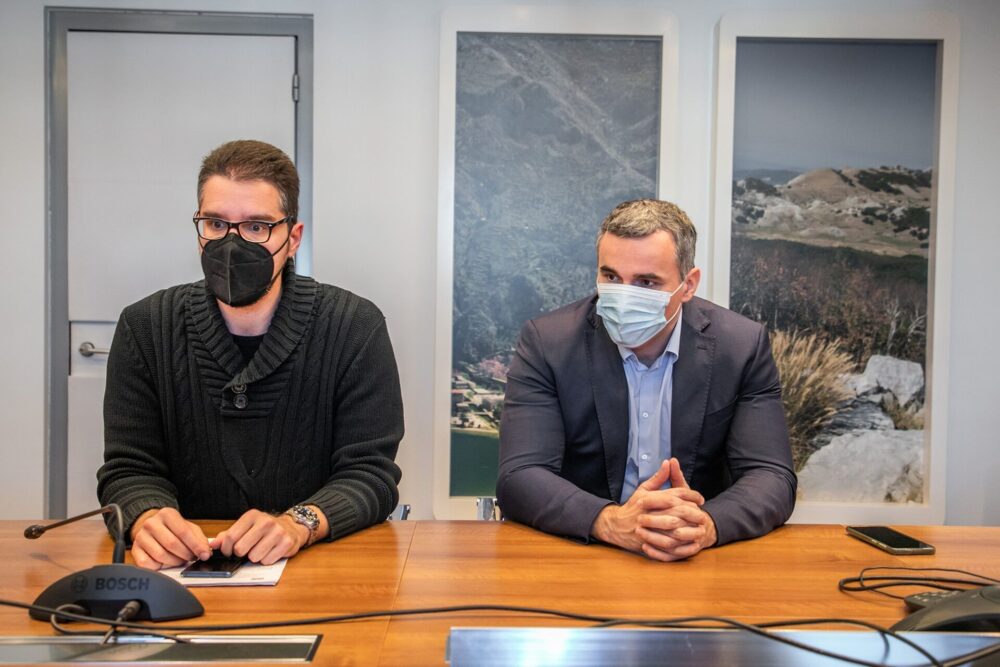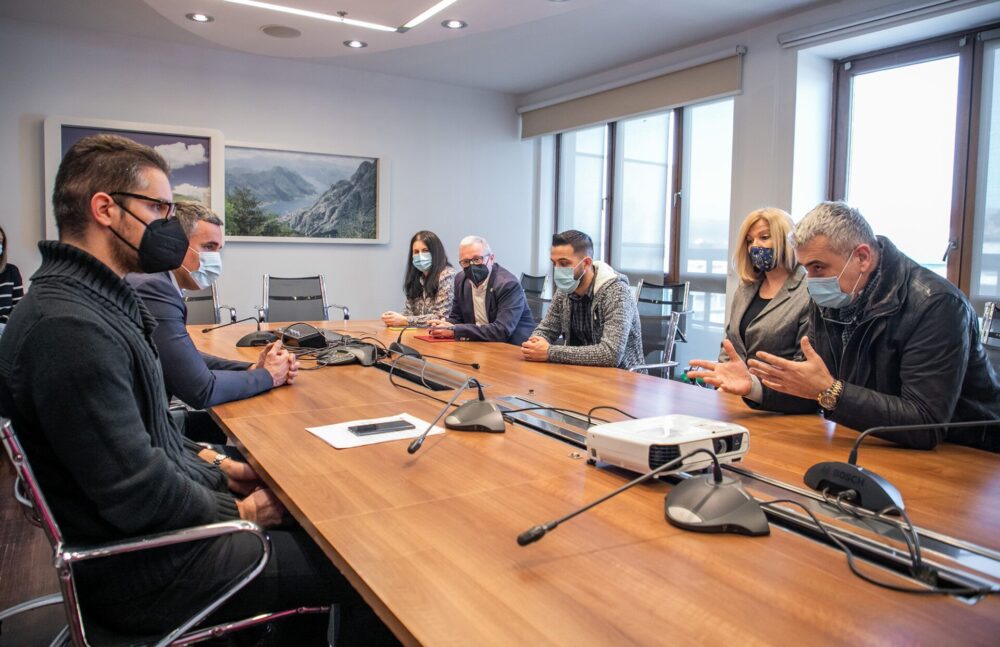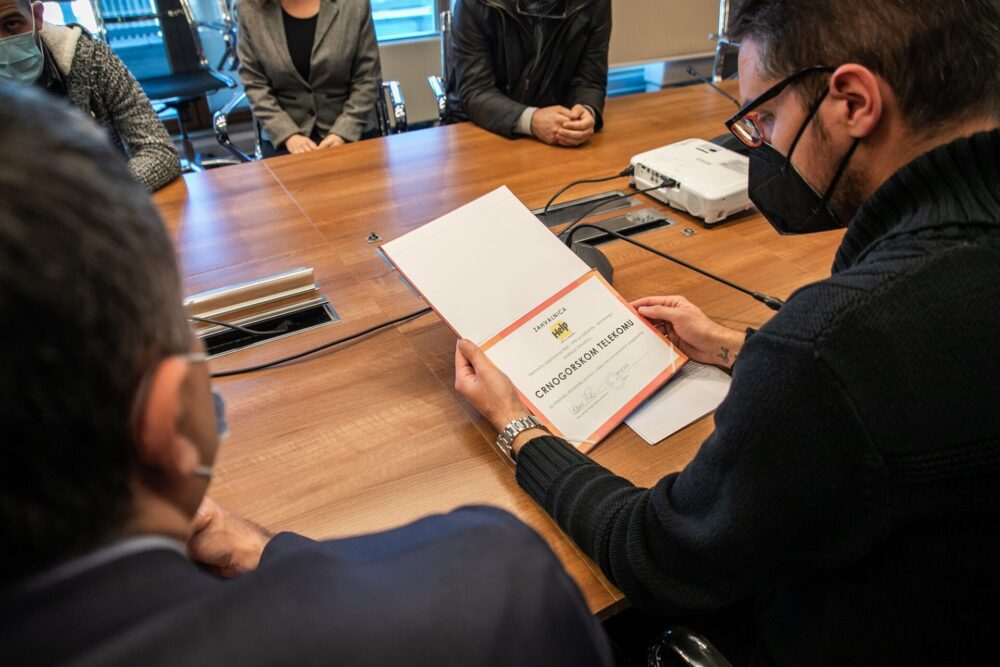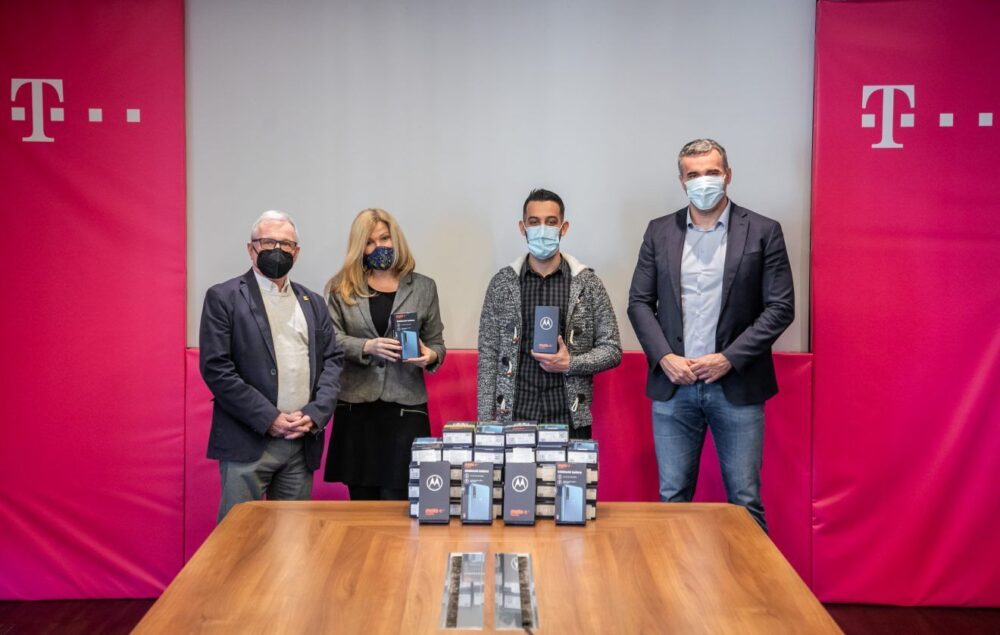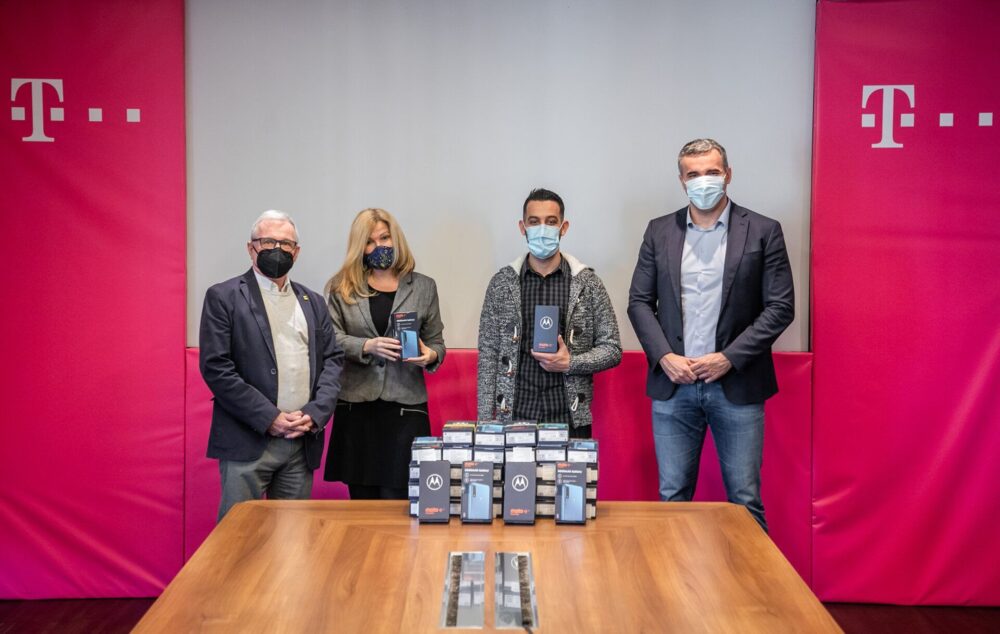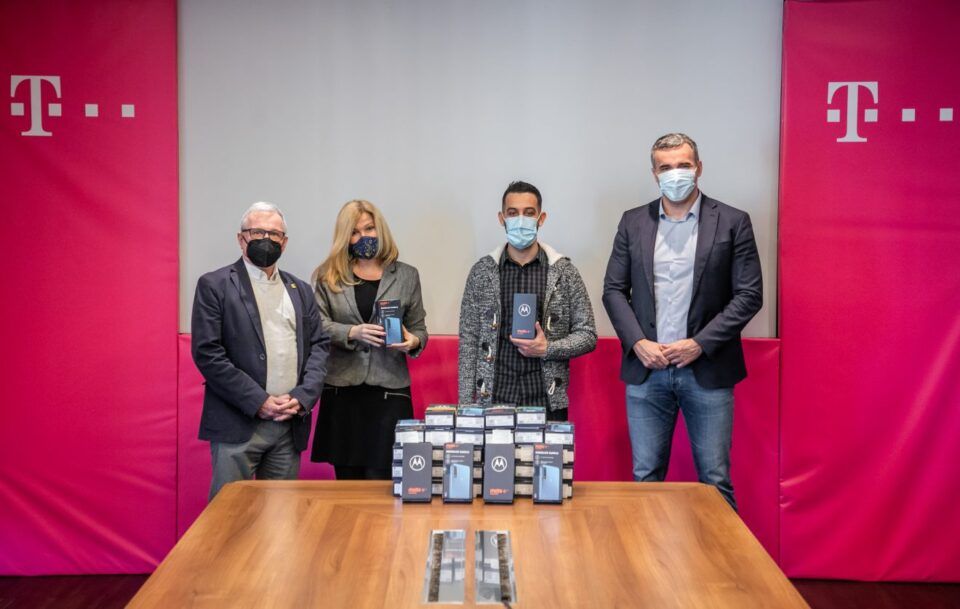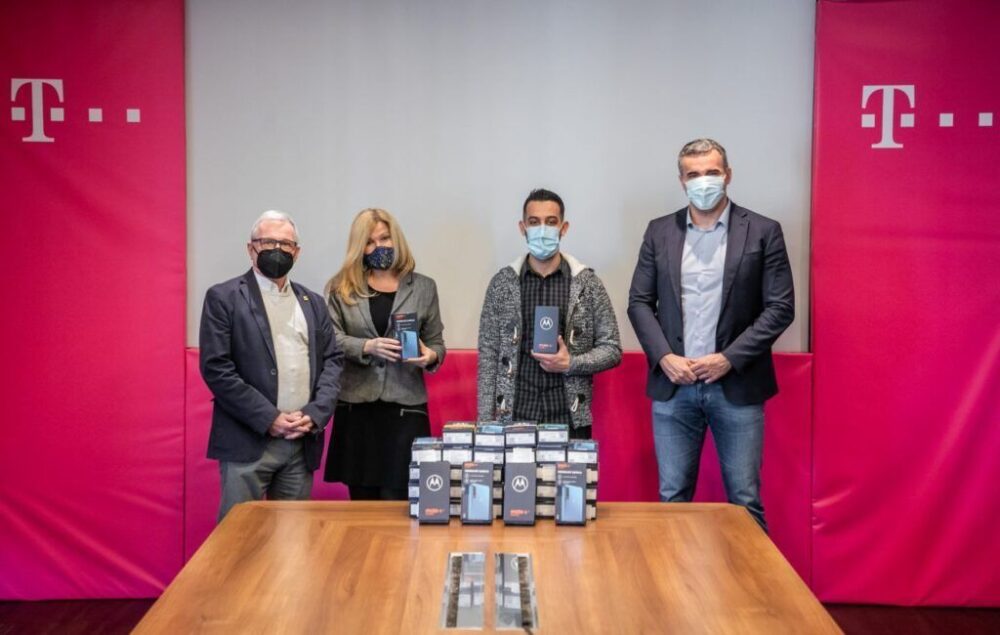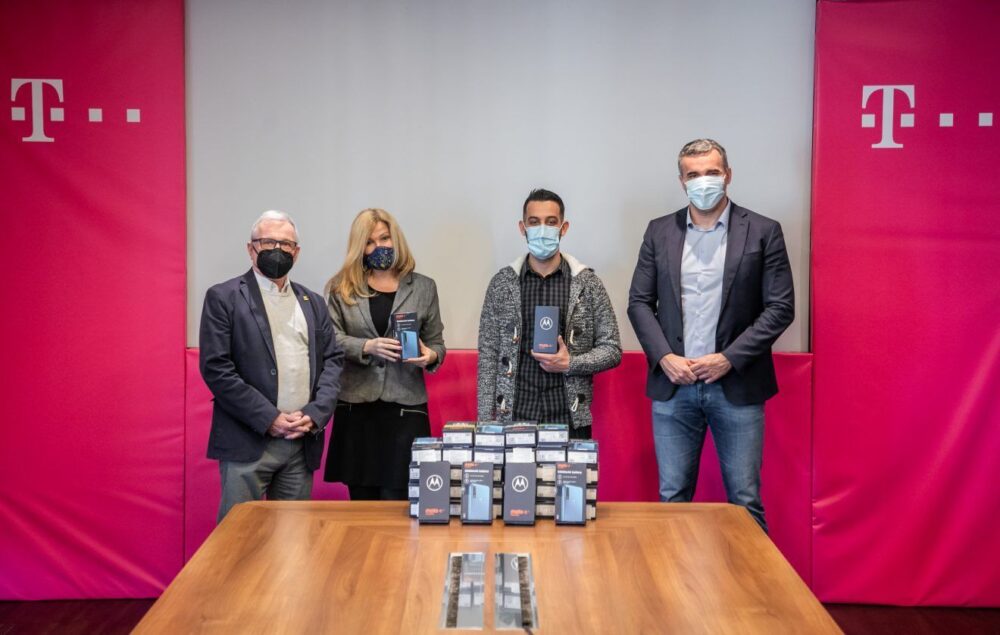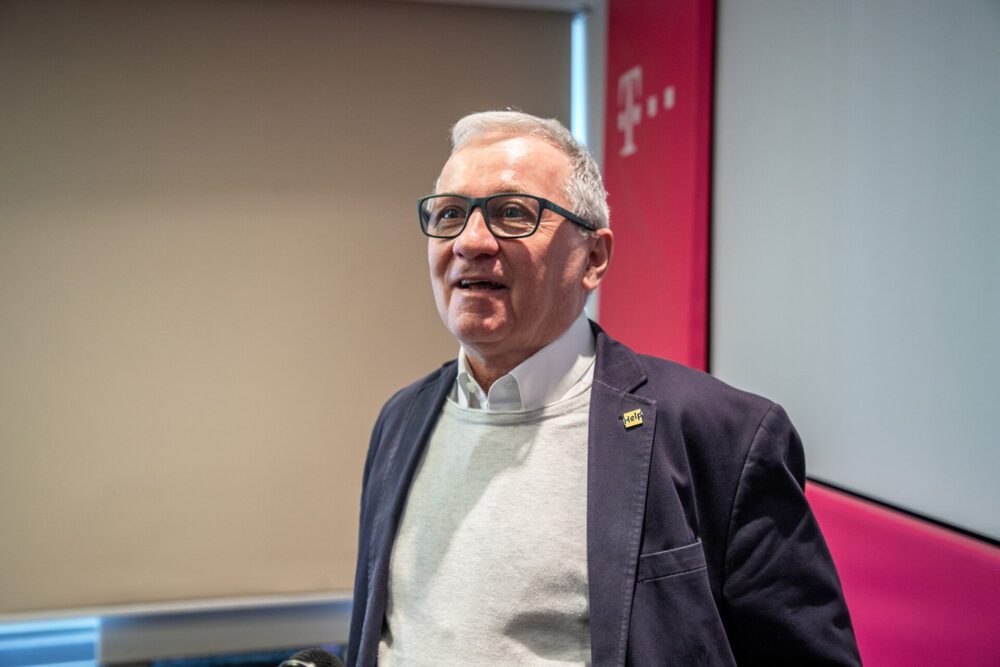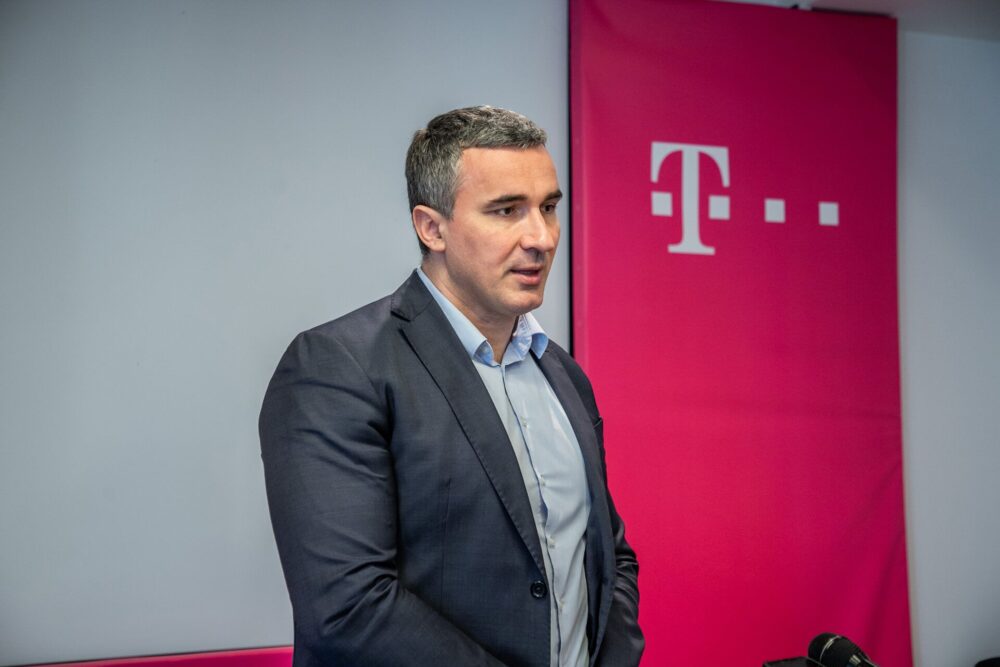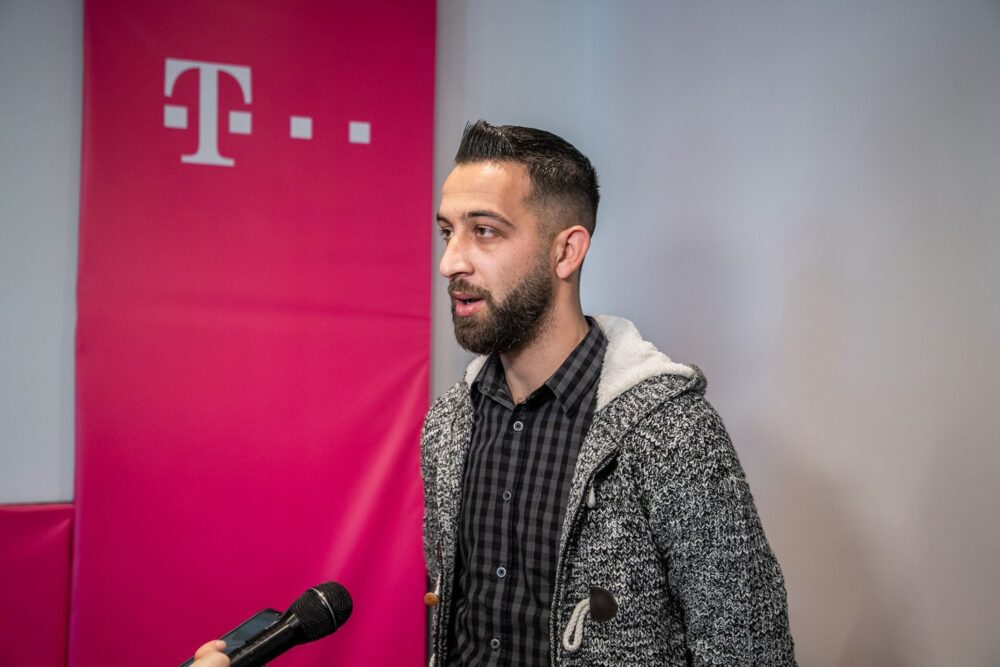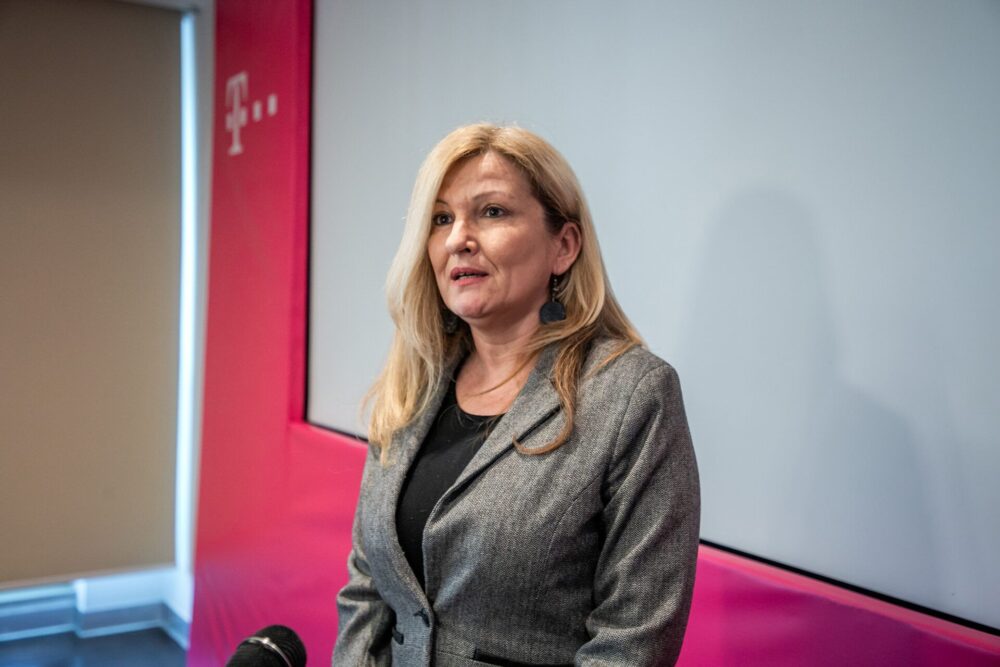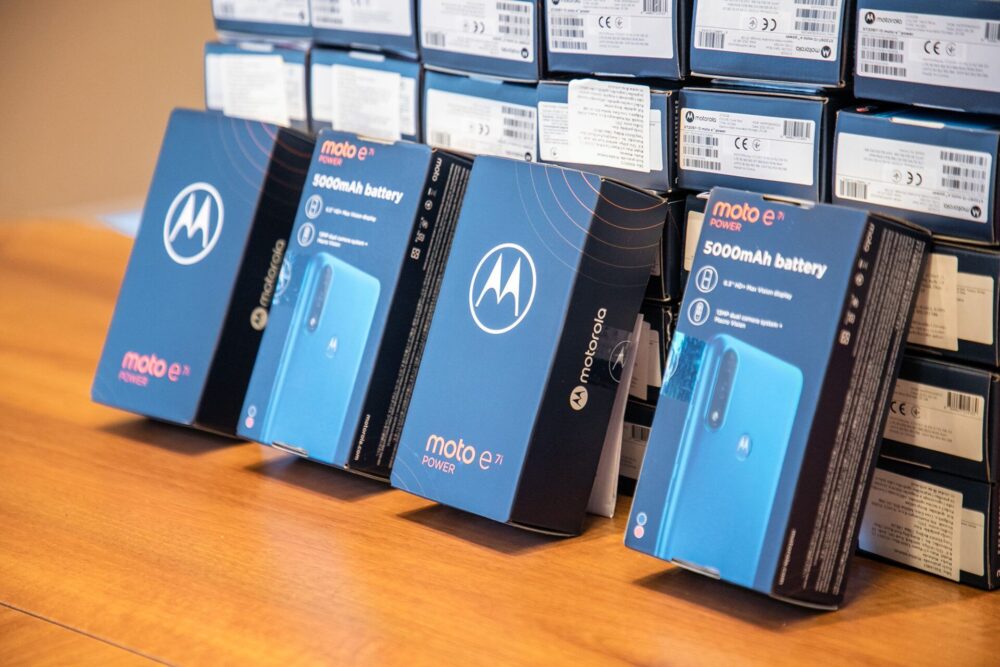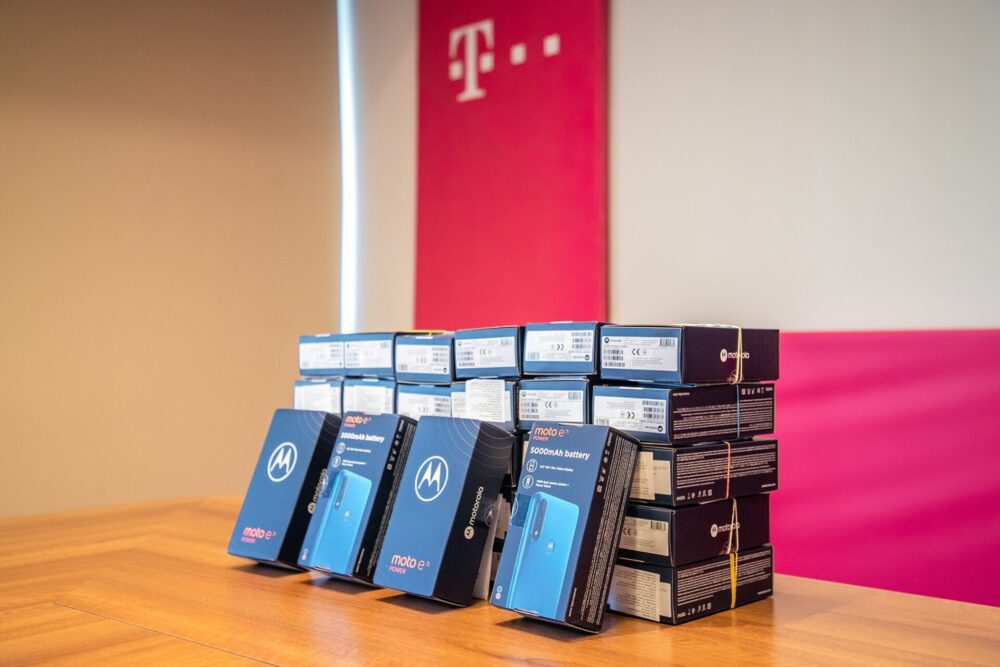Help continues to support Ukrainian refugees with language classes
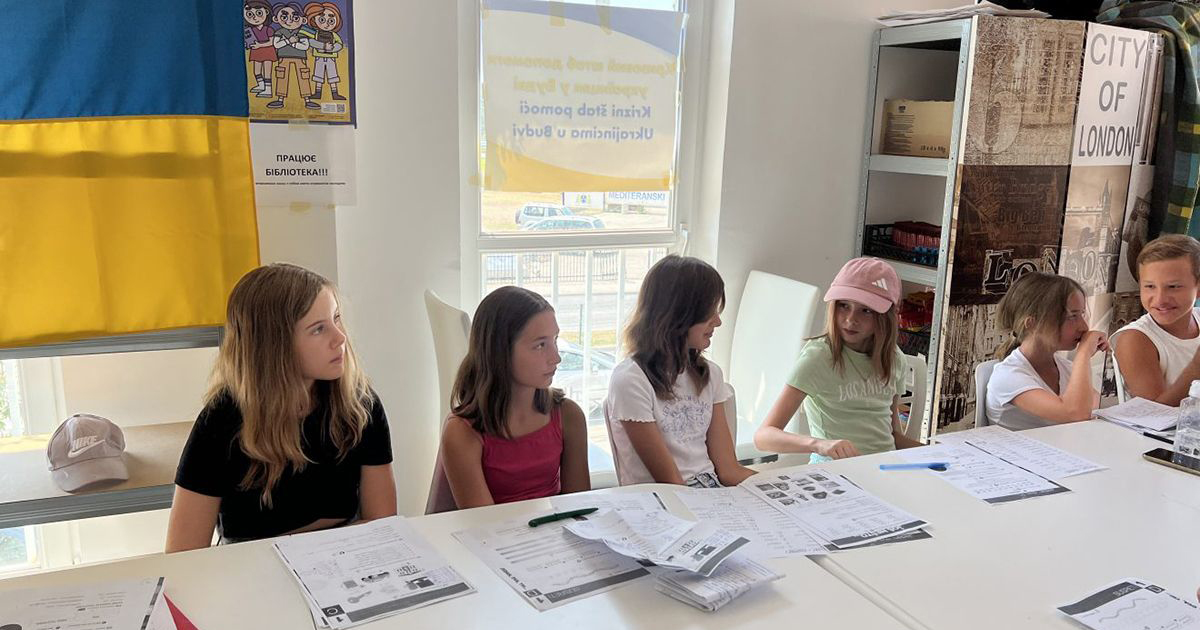
Help will continue its support for Ukrainian refugees in Montenegro, among other things, by providing language classes in Budva and Podgorica in the next six months.
The project “Supporting the integration of vulnerable communities in Montenegro via language classes” will include also the Roma and Egyptian (RE) population. The funding for this project in the amount of Euro 18.900 was provided by the Belgian King Baudouin Foundation.
Already within its first project to support Ukrainian refugees Help and the Ukrainian refugee organization „Good deed“ had identified that the learning of the Montenegrin language is one of the important segments for easier coping and adaptation to the new environment.
Huge interest in language learning was expressed by children, many of whom continued their education in Montenegro, as well as adults, for whom knowledge of the language will alleviate everyday communication and eventual job search.
Knowing the local language used by the majority population is a crucial prerequisite for a successful integration. It helps with communication in everyday life and enables access to quality jobs. It is exactly for this reason that Ukrainian refugees in Montenegro have named Montenegrin language courses as one of the top 3 priority needs.
The Roma and Egyptian communities in Montenegro whose mother tongues is Romani or Albanian face similar problems. Roma and Egyptian children often drop-out from the education system or finish their education being functional analphabets and as grown-ups have limited chance for a proper employment. The provision of language courses will help these 2 groups to overcome the language barriers and more easily integrate into the Montenegrin society
According to the data of the Ministry of Internal Affairs (MUP), about 9,000 people, who fled from the Russian aggression against Ukraine, which began on February 24, are currently residing in Montenegro. Most of them are located on the Montenegrin coast and in Podgorica. Language classes will be organized in Budva and the capital Podgorica.
In addition to supporting Ukrainian refugees, this project also provides language classes for members of the RE population.
For 23 years since Help has been operating in Montenegro, support for Roma and Egyptians has been constant, because they are one of the most threatened and discriminated community in Montenegro. We supported RE communities through different segments of assistance, with the goal is to get out of poverty, achieved economically and social empowerment and equal inclusion in social flows.
At the core of these efforts is education, as the key to improving the social and economic position of the RE population, especially young people and women, therefore, as part of this project, language classes will also be organized for the RE community for six months.
New Ukrainian Center opened in Budva with the support of Help
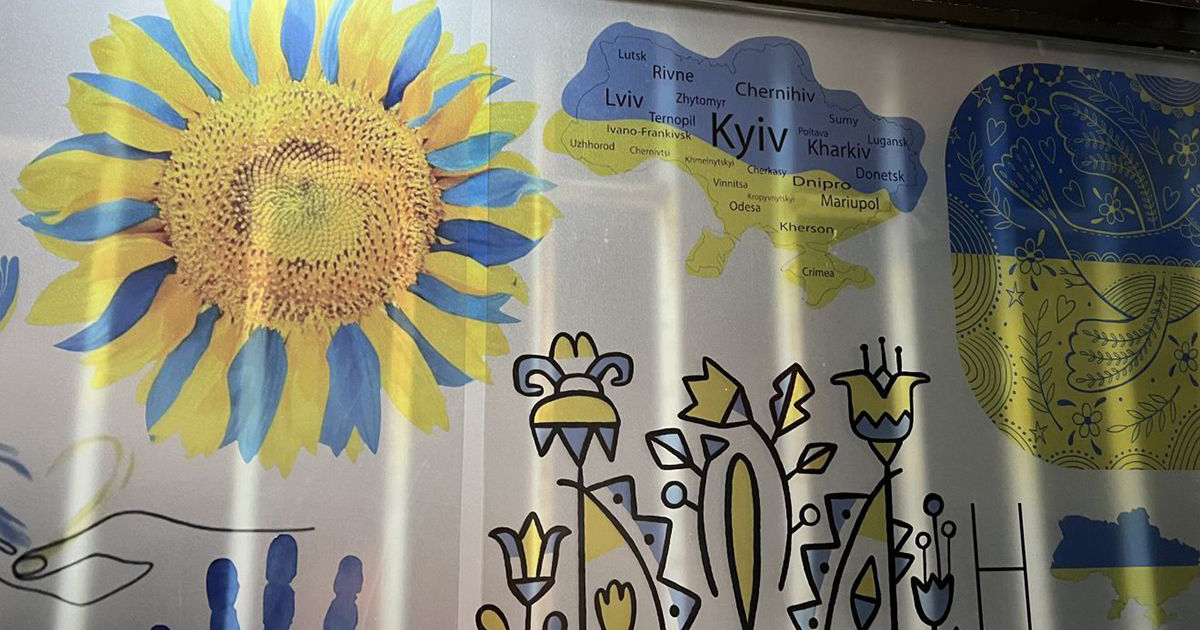
22. 11. 2022
Ambassador of Ukraine to Montenegro, Mr. Oleh Herasymenko, has opened another refugee Center, last night (21.11) in Budva, with the support of Help. Since the beginning of Russia’s aggression against Ukraine on February 24, about 9,000 Ukrainian refugees have arrived in Montenegro, and one of the largest communities is located in Budva.
Ambassador Herasymenko thanked the regional coordinator of Help, Klaus Mock, for the support that Help continuously provides to the Ukrainian people, who have sought refuge in Montenegro due to war.
He especially emphasized the support for the opening of Ukrainian centers in Herceg-Novi and Bar, as well as other types of support that Help, thanks to the network of German humanitarian organizations – Aktion Deutschland Hilft, has provided in the past months.
The largest number of Ukrainian refugees are located in Podgorica and cities on the Montenegrin coast, and Help, in coordination with the Ukrainian organization Good deed, provided different types of assistance for these people: food and hygiene packages, six summer camps for children, language classes for children and adults in Podgorica and Budva, tennis lessons for children in Podgorica and basketball in Budva, school supplies, sports equipment and children’s clothing.
As the ambassador said, the support of Help is of essential importance for the functioning of the Ukrainian refugee community in Montenegro, in this difficult conditions that forced these people to leave their homes. Mr. Herasymenko has expressed the hope that the cooperation will continue.
Help’s regional coordinator, Klaus Mock, emphasized that, in addition to Montenegro, Help provides assistance for Ukrainian refugees also in other countries where the German humanitarian development organization operates, including Ukraine itself.
In the occasion of the opening the Center in Budva, visitors had the opportunity to view an exhibition of Ukrainian children’s pictures about their homeland.
#WeStandWithUkraine
Minister Lalošević met three young Roma judo players
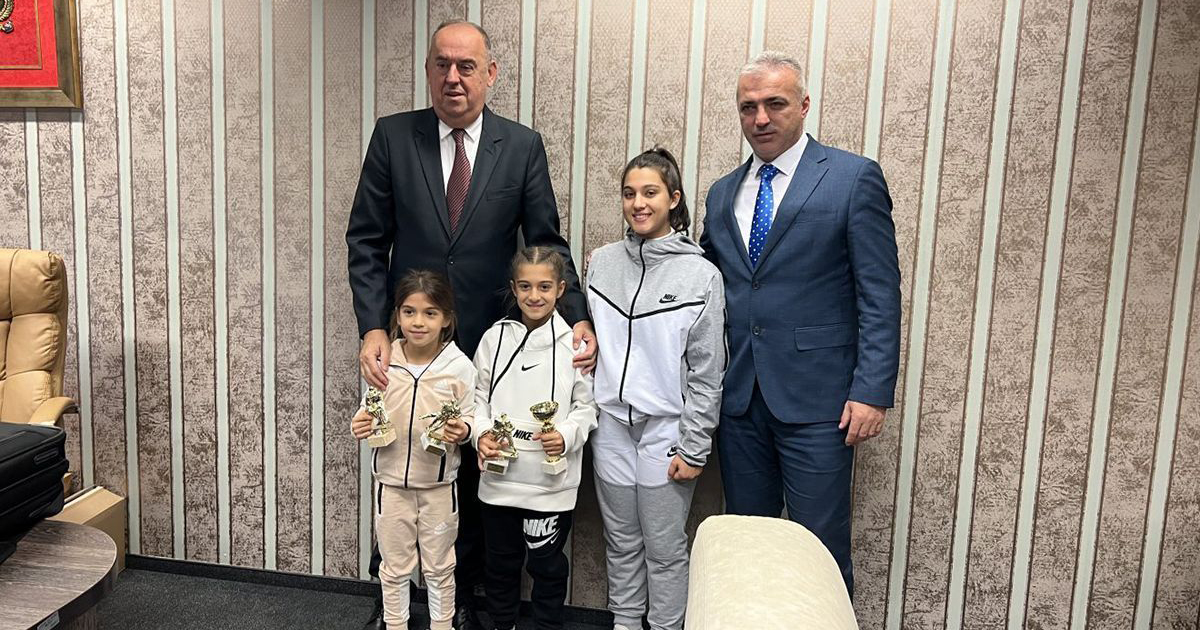
A statement of the Ministry of Sports and Youth of Montenegro:
Minister of Sports and Youth, Vasilije Lalošević, and the director of the Sports Directorate, Zoran Jojić, hosted three young judo players, members of the Judo Club “Milenijum”, Sabina Ramadanović, Monika Ramadanović and Leontina Ramadanović, who together already have around 80 medals in the country and abroad.
The meeting was also attended by the representatives of Help, a German non-governmental organization that has been operating in Montenegro for 23 years and deals with the inclusion of the Roma population, Biljana Jovićević and Dijana Anđelić.
Representatives of Help informed Minister Lalošević about the successes of young judo players, and representatives of the Ministry of Sports and Youth announced cooperation with the Judo Association of Montenegro and the Ministry of Human and Minority Rights, all with the aim of helping the Ramadanović sisters.”
Roma and Egyptian children in Pljevlja have received schools supplies and toys for kindergarten
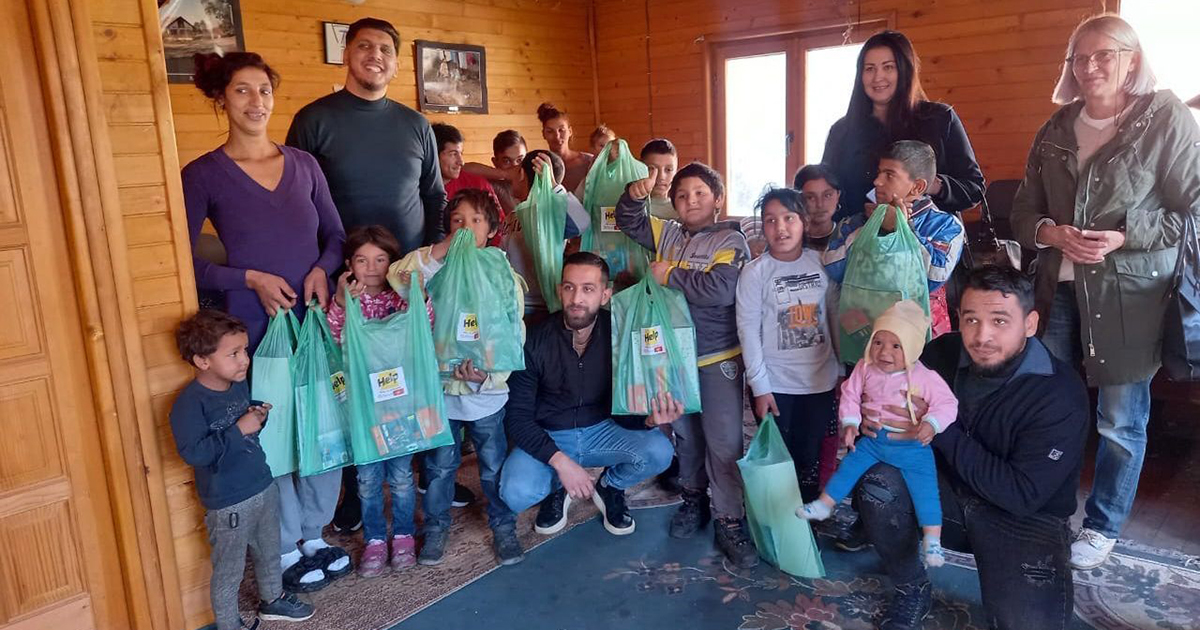
10. 11. 2022
On Wednesday, in Pljevlja, Help distributed packets of school supplies for Roma-Egyptian children in this town in the north of Montenegro, as well as materials and toys for preschool children who attend kindergarten.
Help’s mediators and the representative of the Secretariat of Social Activities in the Municipality of Pljevlja, Danijela Nenadić distributed support-
The assistance, provided by Help with the support of a network of German humanitarian organizations for quick action in disasters – Aktion Deutschland Hilft (ADH) is in line with our constant work to provide support to the RE community in Montenegro and improve the socio-economic status, education, health, and social protection – as most vulnerable category in Montenegrin society, which still face a great degree of discrimination.
Last month, Help in cooperation with the Red Cross, distributed 30 food packages to the most vulnerable members of the RE population in Pljevlja.
Montenegro introducing the first RE mediators in services at the local level
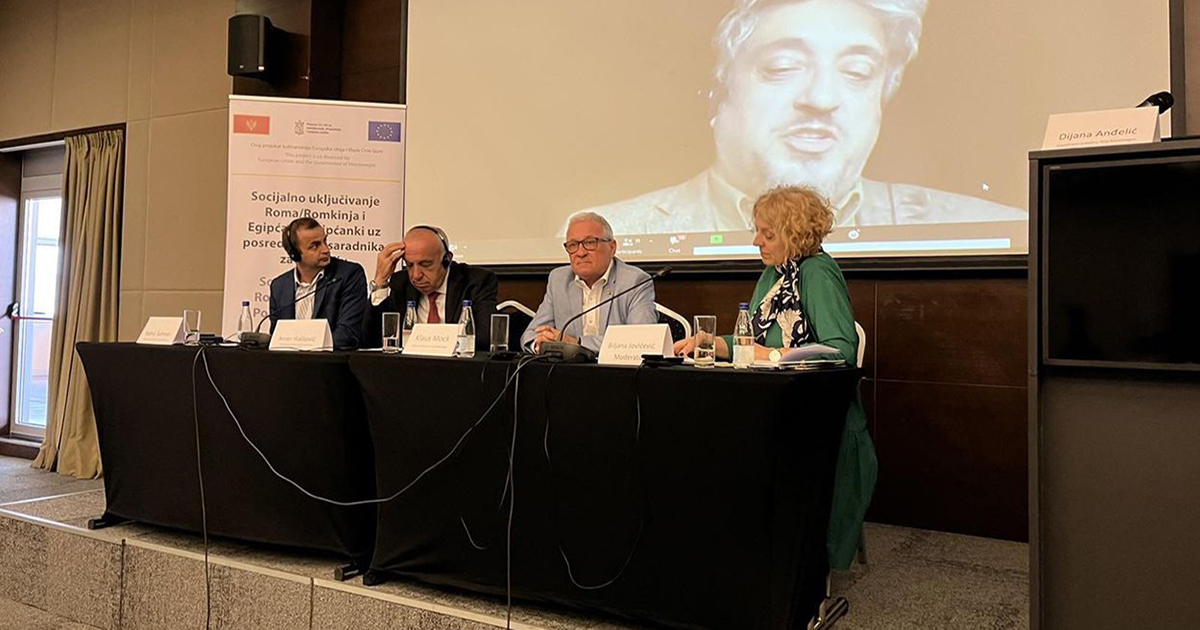
Institute of Roma-Egyptian (RE) mediators has proven to be one of the most successful models in the Western Balkans region, by enables RE community to have easier and faster access to basic rights at the local level, and now it is up to the authorities of Montenegro to do their part, i.e. to systematize the position of mediator in local services – it was mainly conclusions at the two-day international conference organized by Help on the occasion of finishing of the project “Social inclusion of the RE population through associates in social inclusion – RE Mediators”.
From the officials of the state institutions of Montenegro we also received assurances that their work is under way – to introduce the position of RE mediators in services at the local level. As the representative of the Ministry of Labor and Social Welfare, Budimirka Đukanović, said, the systematization of the RE mediator position is being introduced in the three Montenegrin municipalities, Podgorica, Nikšić and Bijela Polje, and it is also planned for Ulcinj and Bar.
Đukanović emphasized that, based on many years of experience and cooperation with Help’s mediators, the importance of this model for improving the inclusion and position of the RE community in Montenegrin society is being recognized, but, she also recommended for the future, that additional work needs to be done for improvement of the level of quality in formal education of RE mediators.
A head of department for RE population at the Ministry for Human and Minority Rights, Ramiz Šahman, pointed out that the plan is that Montenegro systematize 20 positions for RE mediators by the end of 2023.
In the past year, with the project financed by the EU, through the EU and Montenegro program for employment, education and social protection, Help had deployed, trained and certified RE mediators in 11 Montenegrin municipalities in employment offices, centers for social work and health centers, which helped citizens from the Roma-Egyptian community to easier exercise their basic rights.
Meanwhile, while waiting for the state to do its part, as announced, after the ending of the project, Help – with the support of German government, has decided to keep a number of mediators so that RE population, which recognized the importance of mediators, would not lose continuity and keep more easily access to local services provided by the state.
EU representatives have repeatedly emphasized that the RE mediators for social inclusion are one of the most successful projects that Brussels have financed in the Western Balkans, and it is a part of the recommendations for Montenegro, stated in the last EU Progress Report for Montenegro.
RE mediators have been introduced in different forms into the system of local services in Serbia and North Macedonia, and although the process is not fully completed, representatives of these countries shared their experiences, during the two-day conference, and presented advantages of RE mediators work, or as they calling them – coordinators for RE community, in the local services in the two countries.
The representative of the Ministry of Health of Serbia, Dragan Đorđević, said that social mediators are the best implemented program in Serbia from the Program of Roma Decade. Although in that country the position of RE mediators is not systematized, ever since 2008 they have a budget line from which they are financed, especially RE female health mediators. Serbia has an Association of health mediators and they are every day on the fields in the 70 of the 173 municipalities in Serbia.
As the president of Association, Svetlana Ilić, said, they gave priority to female mediators, because the goal was to improve the health situation first of all for RE women, so the female mediators gained the trust of the community more easily and quickly, and in a way they also became a model for Roma women.
Osman Balić from the YUROM Center pointed out that it is necessary to work on raising the level of professionalization of the position of mediators and suggested that this title should be harmonized with codification that exists for this profession in the International Labor Organization (ILO). He, as well as other panelists, especially representatives of local institutions where Help’s mediators worked, suggested that it is not necessary to link the profession of mediator only to the RE population, but also enable them to provide assistance for all vulnerable categories that need additional help.
Balić emphasized that it is very important to collect data and conduct analyzes during the mediator’s work, which can easily prove the benefit and profitability of mediator’s work, from the point of social and economic aspects, but also from the point of view of human rights.
Nadir Redžepi from the Initiative for social change – InSoC from North Macedonia, pointed out that at the beginning of the implementation of the mediators project in his country, there was a lot of resistance, but with the help of international organizations and RIC (Roma Information Centers) RE mediators managed to achieve significant results in the field of education and raising level of health services among Roma in North Macedonia. However, as he pointed out, stable financing is still a significant challenge and depends on the political will. As Redžepi stated, from 2016 to 2021, the act of the systematization of this profession was changed 18 times.
Help’s partners in implementation of the RE mediator project, financed by the EU and the Government of Montenegro, were the Capital City of Podgorica and the municipalities of Berane and Ulcinj. Jetmir Muja from the Municipality of Ulcinj, pointed out that the work of Help’s mediators over the passed year and the data they provided had a significant impact on the new local Action plan for Roma and Egyptians, as well as increase in the municipality’s budget plans for social benefits and inclusion.
Besides the importance of RE mediators, a day before the International day of the Romani language, the importance of Romani language for better inclusion of Roma in the majority population was discussed. Panelists pointed out that the enabling education of Roma children in their mother language, in line with the official language in use, would without doubts increase chance for better social inclusion.
They also reminded that Roma is the only community in Montenegro that does not have the opportunity to exercise their right to use their own language, guaranteed by the Constitution and international conventions. Rhetorically, emphasizes Elvis Beriša from the Youth organization “Walking together Phiren Amenca”, the state expresses will to enable citizens to enjoy that right, but for various formal reasons there is a delay in fulfilling this important means for promotion of education, culture and history of the fellow citizens of Roma nationality.
The special guest of the conference on the topic of Romani language was the poet Ruždija Sejdović, born in Montenegro, who lives and works in Germany, who is also a mediator for education and language in that country. He presented the German model by which Roma children as well as all others are provided with education in their mother tongue.
RE mediators – the right hand of the community as well as institutions
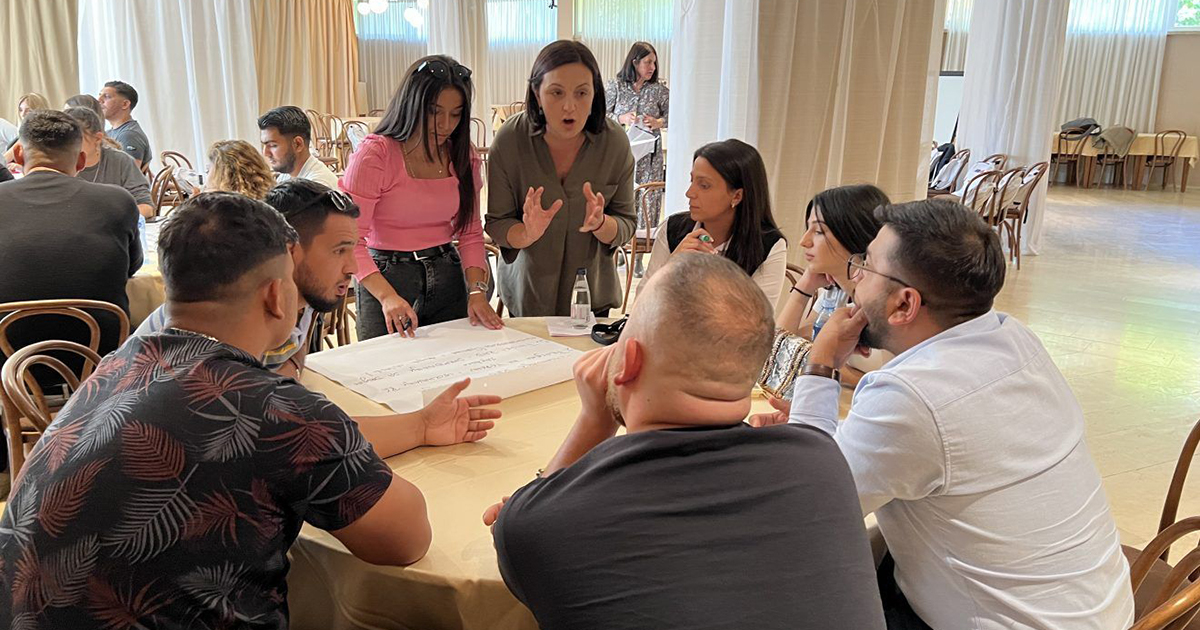
After a year of hard work it is up to the state of Montenegro and its institutions to valorize the knowledge and experience of Roma-Egyptian (RE) mediators through systematizing the position of mediators in healthcare, employment and social welfare, it was conclusion at the meeting of the National Network of Mediators held in Petrovac.
In the past year, after passing the trainings and get a professional certificates, Help’s mediators did their best to gain the trust of local institutions, where they worked as mediators, but also in the RE community itself, which recognized them as a bridge to local services – to easier and faster fulfill of their rights.
It was jointly conclusion that the mediators in 11 municipalities in the past period of time managed to become the right hand of institutions and the community as well.
After a two-day summary of the results of the work of Roma-Egyptian (RE) mediators over the past year, their Help’s mentor, Danijela Armuš, says that she is proud of these young people who have shown how ready they are to help their community in the institutions such as office for employment, health centers and centers for social work, but also what role models they have become for the RE community with their efforts, efforts and achievements.
RE mediators or mediators for the social inclusion of Roma and Egyptians are one of the most successful projects funded by the EU in the Western Balkans, and now it’s on Montenegro’s state turn to adopt the institute of RE mediators in order to facilitate the proper inclusion of the RE population within the framework of meeting European standards into social flows and more effective realization of the basic rights that the state offers to this socially and economically most venerable category of citizens. The systematization of the position of mediator in institutions/public services at the local level is also part of the Recommendations of the EC for Montenegro, as well as part of the State Strategy for the Social Inclusion of Roma until 2025.
Help, in cooperation with partners, the capital – Podgorica and the municipalities of Berane and Ulcinj, implements the project “Social inclusion of Roma and Egyptians with the mediation of inclusion associates”, through which 43 mediators were trained in social inclusion.
The beneficiary of the project is the Ministry of Human and Minority Rights, and a total of 34 Help mediators work from October 2021, for a period of 12 months until mid-October 2022, namely: 13 in the field of social protection, 11 in the field of employment and 10 in the field of health protection. The project is financed within the framework of the Program of the European Union and Montenegro for employment, education and social protection, and is implemented in 11 municipalities.
Below are also photos from the two-day meeting of the National Mediator Network held in Petrovac on October 6 and 7, 2022.
Help’s support for investing in young IT experts in Montenegro
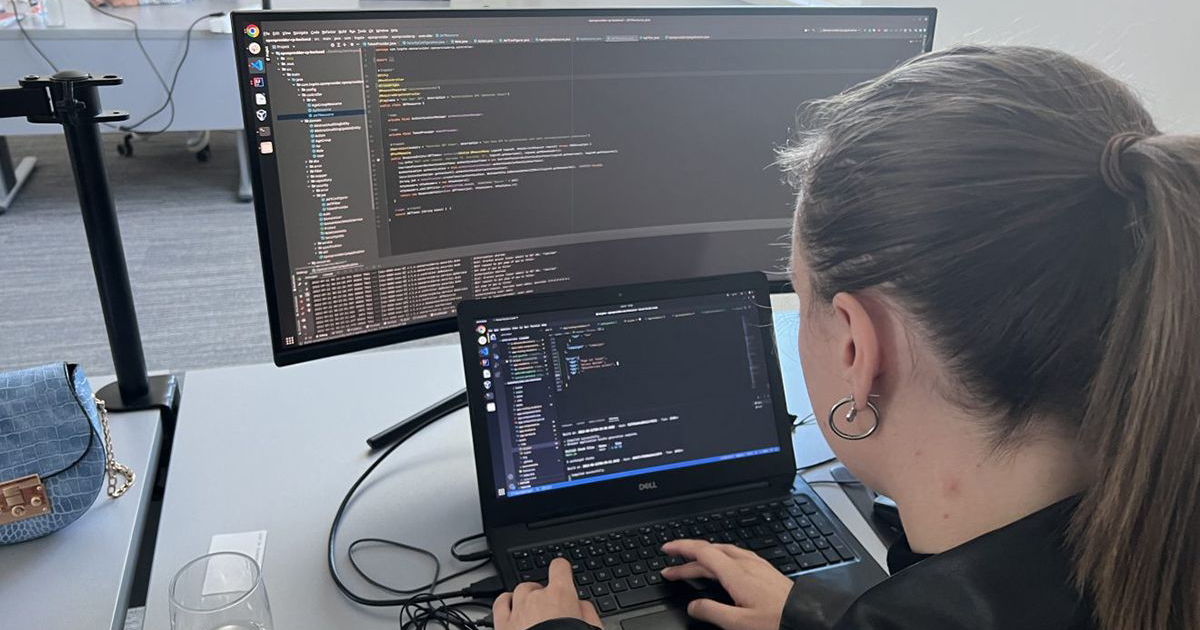
4.10 . 2022
Radojka Poleksić graduated from the Faculty of Science and Mathematics at the University of Montenegro (PMF) majoring in mathematics and computer science. Milica Radunović from the HR of the Finagate IT company included Radojka in Help’s training program with work within the project “Social and economic empowerment in the region of the Western Balkans” financed by the German government.
Poleksić says that this was the perfect opportunity for her professional development:
“I am very satisfied and I hope that they are also satisfied with me. Classical education provided me with theoretical knowledge, but we did not have the opportunity to deal with such practical things that are necessary for work in this profession. Here, we work directly on projects with a mentor who checks everything, and from whom we receive good, corrective critique, on how and what needs to be changed, and that means a lot in terms of the speed of work, as well as the pace at which new knowledge is acquired. I am extremely satisfied and I would like to stay here even after the training”.
When asked if she would recommends this type of training to young talented people after completing classical education, who see their future in the IT sector, Radojka Poleksić answers absolutely :
“Definitely, after classical education, which is the foundation, we have to go through this kind of training to learn what is expected of us in this job. I would recommend all my peers to get involved in projects like this, whenever the opportunity arises. Here we have the opportunity to work on the most modern programs and technologies that exist, as well as to be trained by the best people in the field, from whom we can learn a lot.”
Milica Radunović from the Finagete HR department says that this kind of programs are necessary and as an IT company they were very happy to participate in such a project, because it has multiple benefits. Also they hope that there will be more this kind of project in the future. Young beneficiary Radojka Poleksić, has a perspective within their company.
“We would also offer young people to come for training with us after finishing school, and to keep them later. We are absolutely satisfied with Radojka, I hope that we provide her with enough knowledge and opportunities to use all the skills she has acquired and will continue to acquire. And we would certainly have kept her even without this program, because she proved to be great”, says Radunović.
She explains how their process of recruiting young talent usually goes:
“Mostly, we contact people from the University to give us recommendations for certain number of the young people who did well in their respective studies, and to whom we could provide additional knowledge, improve them and then retain them. And of course young people today, especially those from the IT sector, contact us themselves, send their CV’s, so that’s a process in which we usually reach to them “.
However, Radunović says that there is still room for improvement and connection when it comes to young people from less developed areas, from the north part of Montenegro. Most of their employees, she notes, are from Podgorica and Nikšić. Unfortunately, young people from less developed areas only get a chance if they come forward themselves.
Ivan Bojanović graduated from vocational high school ETŠ “Vaso Aligrudić”, which work closely with IT companies, and applied for on-the-job training after he had previously attended the Logate Academy, where he was trained as a Java developer. He is very pleased that, thanks to the Help project, he had the opportunity to undergo a six-month on-the-job training at the Logate Institute.
Ivan told us that he was very satisfied, and, he believed, that he had used this great opportunity very well.
“I hope that at the end of the six-month training I will continue to work in this company,” says Ivan Bojanović.
Filip Kečina from the Logate Institute confirms Ivan’s words and he is also grateful for the opportunity to engage talented young people through such a project. Ivan, says Kečina, has the opportunity to be part of the Logate team, where they are already counting on him.
“We expect some top results from him. Ivan Bojanović has exceptional potential, even though he just finished high school, we are extremely satisfied with his potential, precisely because he is learning from some very good mentors and senior programmers. He has the opportunity to advance and be part of our team after he finish training on the job in this project. Ivan is a person we are already counting on, even after the conclusion of this project, so somewhere all the puzzle have come together. I believe that this opportunity for cooperation will continue to exist, we hope for successful cooperation with Help and with your partners in the future as well,” says Kečina.
Through the project “Social and economic empowerment in the region of the Western Balkans”, a total of 20 employers and the unemployed were supported and networked in this circle.
Within the program, Help supported 20 employers through a non-reimbursable grant in equipment and tools for work. The equipment was delivered to them in July and August, after a previously process of the public tender.
The average value of the non-refundable grant was 2413.61 Euro per user/employer, and a total of 48 272.2 Euro was spent for the purchase and delivery of equipment to the user. Professional equipment was given to employers for use until the end of the project.
The employer’s obligation was to sign a minimum 12-month employment contract with the beneficiary at the end of the six-month paid on-the-job training. According to the contracts signed by the employer, unemployed persons and Help, the six-month on-the-job training is planned to last until the end of October.
To the satisfaction of Help, as many as 13 unemployed persons are women, of which two are from the Roma-Egyptian (RE) population and seven are men. Of the 20 unemployed, 15 of them were additionally supported through the project with licensed professional training with the aim of empowering, creating better conditions for work and further advancement, as well as obtaining a valid certificate from the licensed providers of the Center for Vocational Education of Adults for a specific profession/profession.
By the end of August, 13 of them successfully completed a three-month licensed training in the following professional occupations: IT-basics of computers, digital marketing and web sales – five people, administrator – four, two maids, one accounting technician and one cook.
It is ongoing and by the middle of November, licensed training will be completed for two more unemployed persons, for the profession of tourist guide and waiter.
Furthermore, two public calls are underway within the same project financed by the German government through the Ministry of Foreign Affairs, with the aim of revitalizing the economy and promoting employment for new candidates for on-the-job training in the IT sector.
We especially encourage members of vulnerable groups such as: young people, women, people with disabilities and single mothers to apply for a new round of networking for the unemployed and employers.
Volunteers with Help in the cleaning action in Podgorica and Bar
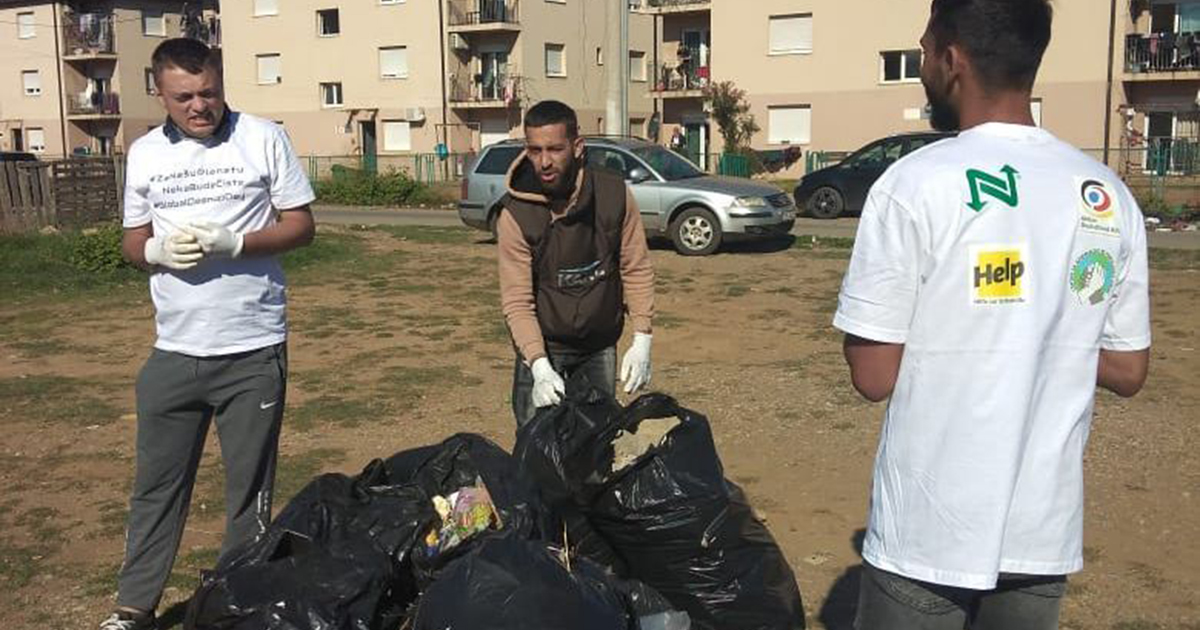
26.09.2022
About 200 kg of garbage were collected in Podgorica and Bar by Help activists, RE mediators, school students and citizens from the neighborhood, in a symbolic action organized on the occasion of World Cleaning Day. Instead of September 17, when is the World Cleaning Day, due to bad weather, our actions were postponed by seven days and held on Friday and Saturday (23-24 September)
In Podgorica, the cleaning was carried out at the location of the IPA settlement, in Konik. In Bar, where we had action with partners from the “Center for the Affirmation of the RE Population – CAREP” from Nikšić, has been cleaned in the Golo Brdo settlement and the beach in Sutomore. The activities were organized with the support of Nehlsen Group and RODIEK.
World Cleanup Day is an opportunity for millions of volunteers from the 191 countries to come together and contribute to the fight against global waste problems and to promote a sustainable future and development.
The Nehlsen Group, which supports this action, emphasizes that they want you to use this opportunity to be a pioneer in environmentally friendly waste and disposal as well as sustainable recycling.
More than three decades ago by adoption of the Declaration in Žabljak on September 20, 1991, Montenegro became the first ecological country in the world.
The declaration defines the country’s strategic determination to adopt and apply the highest standards and norms in the field of environmental protection, nature conservation and economic development, based on the principles of an ecologically sustainable system.
However, more than 30 years later, Montenegro is quite slow and in delay in this area, and the “wild beauty” environment is being destroyed in various ways, despite the declarative promises. Nevertheless, in accordance with the proclaimed goals of the ecological state, as well as obligations to the adopted of EU standards, in recent years certain efforts have been made to achieve the main goals: protecting nature, creating conditions for sustainable development and combating climate change.
Help regularly participates in actions aimed at promoting a cleaner environment and sustainable development in Montenegro.
Below are photos from actions in Podgorica and Bar:
Video – Ukrainian refugees, children and adults on the language classes

For Ukrainian refugees – children who arrived in Montenegro with their families, as well as for adults – Help has provided various types of assistance thanks to the network of German humanitarian organizations for quick action in disasters – Aktion Deutschland Hilft and in cooperation with the Ukrainian volunteer network Good deed. Learning the language for easier adaptation to the new environment is certainly one of the priorities.
Help supported language classes in Budva and Podgorica:
Video- Tennis and basketball in Podgorica and Budva for the youngest refugees from Ukraine
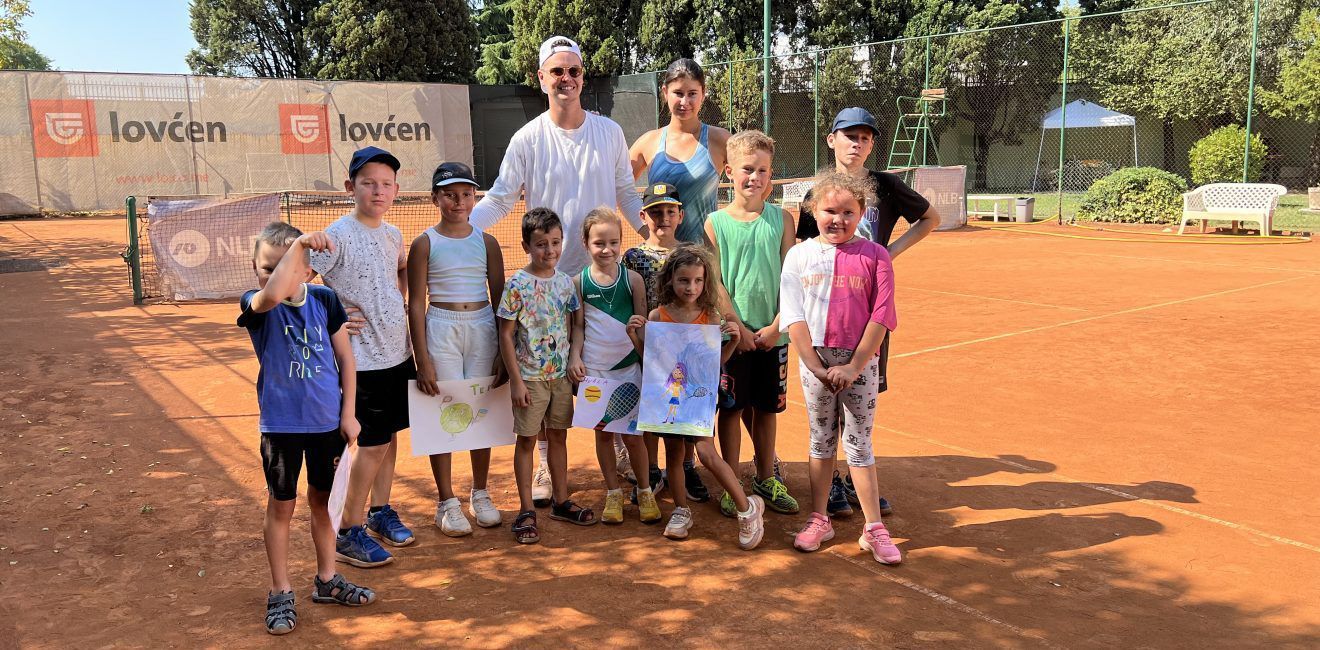
04. 02. 2022
For Ukrainian children who arrived in Montenegro with their families, Help together with the network of German humanitarian organizations for quick action in disasters – Aktion Deutschland Hilft (Akcion), and in cooperation with the Ukrainian volunteer network Dobro djelo, has provided support for the the tennis and basketball lessons in Podgorica and Budva.
Six months later – Ukrainian children in Montenegro
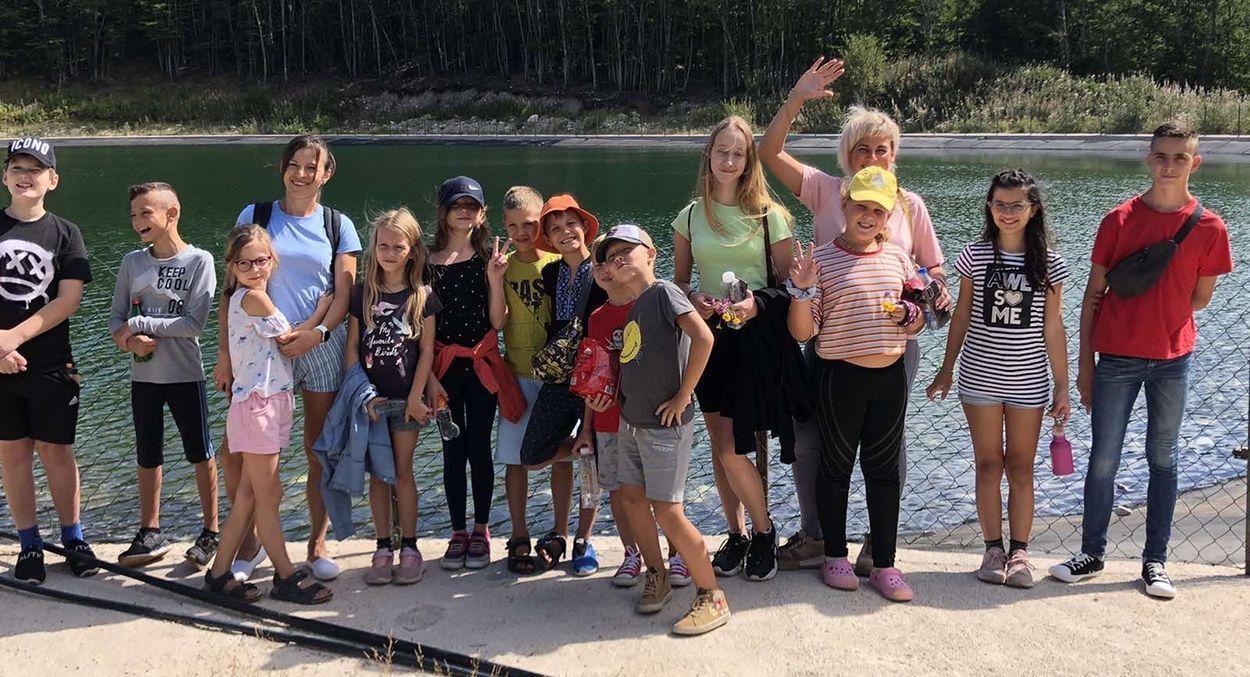
24. 08. 2022
It is the Day of Ukraina Independence and six months since the beginning of the Russian invasion of this wonderful country, whose yellow-blue flag symbolically represents endless wheat fields and the blue sky above them – Слава Україні! Героям слава!
Among the approximately 7,000 Ukrainian refugees who sought save haven in Montenegro, away from Russian aggression, many are the children for whom Help, in cooperation with the network of German humanitarian organizations for rapid action in disasters – Aktion Deutschland Hilft, has had organized summer camps – to spend a moments in socializing, playing and having fun, in a hope that they will forget the harsh reality they left behind.
In the past two months, among other activities, Help organized six summer camps in cooperation with the Ukrainian volunteer network Dobro djelo.
#westandwithukraine #helpmontenegro #helpgermany #actiondeutschland
Distribution of 200 food packages in three Montenegrin municipalities on World Humanitarian Day
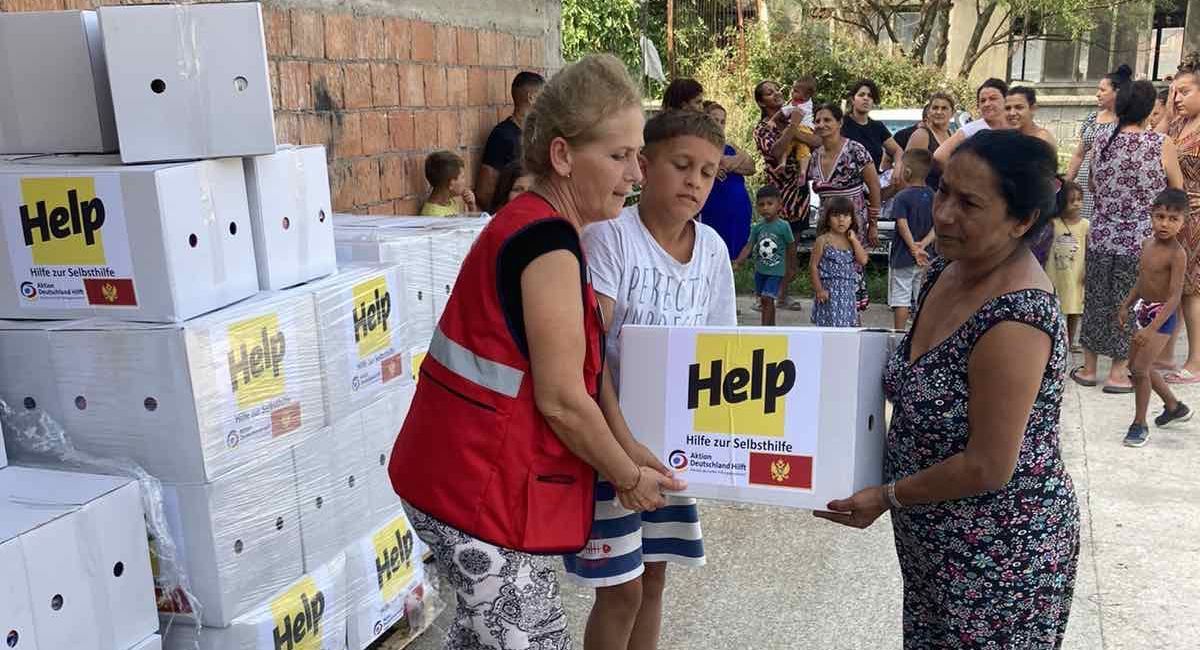
19.08.2022
On the occasion of World Humanitarian Day, the most vulnerable citizens of Rožaje, Budva and Podgorica will receive a total of 200 packages of food. This support has been provided by the German Organization Help, with the support of the network of German humanitarian organizations for rapid action in disasters – Aktion Deutschland Hilft and the Ministry of Labor and Social Welfare of the Government of Montenegro.
On this occasion, the Minister of Labor and Social Welfare, Admir Adrović pointed out that despite all efforts to eradicate it, poverty still remains a problem within Montenegrin society.
“Very aware of the fact that there are no mechanisms that can suppress poverty by 100%, we must, as a responsible society, work more intensively on reducing and tackling the consequences of poverty, and thus increasing the standard of living. It is therefore necessary for all of us together to put additional efforts to systematically address the problem of poverty, “Minister Adrović emphasized.
He added that today’s action, which was performed in partnership with Help, is another in a series of indicators that show that humanity and solidarity are the basic principles on which social justice is based, and that no individual or family, should be left behind.
Klaus Mock, Regional Coordinator of Help, has noted out that this is another opportunity to show that local institutions with international support can do a lot on providing assistance for the most vulnerable categories of the population.
“I am very glad that we are continuing our longstanding cooperation with the Ministry of Labour and Social Welfare in combatting poverty and alleviating the situation of so many socially disadvantaged families in the country. The international day for humanity is yet another occasion to show that local institutions and their commitment together with international support can provide much needed assistance to those in need”, he said.
An overall of 100 packages will be distributed through the Red Cross for the most vulnerable social cases in Rožaje. 70 packages have already been distributed in Budva in the Roma settlement of Palestine, and 30 packages for the most vulnerable social cases in Podgorica are being distributed by Help’s activists.
The total value of this support is 7,412 Euro.
How “Activate” changed the life of Lejla and Aleksandra
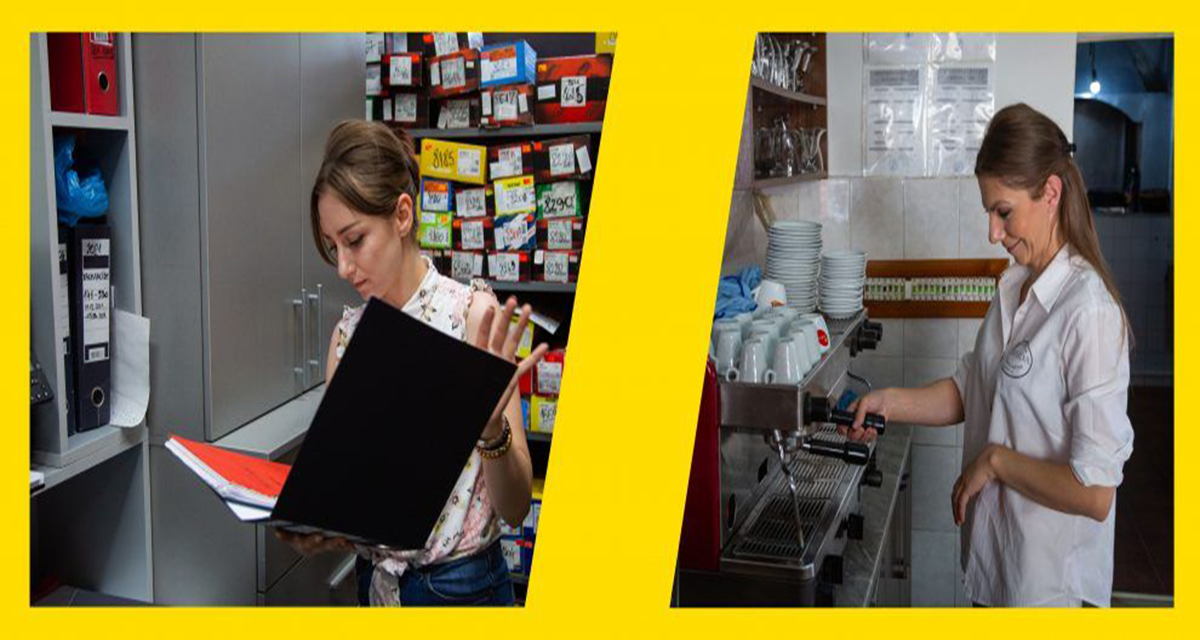
18.08 2022.
Two young, until recently unemployed and single mothers from Bijelo Polje, through the UNDP pilot project “Activate”, implemented by Help, got and used opportunity to find a jobs that fundamentally changed their lives.
Lejla Erović is a 25-year-old single mother – a customs technician by profession, has been registered at the Employment Office as unemployed. The program “Activate through training and mentoring” and as she stresses, “first off all” mentor Danijela Armuš, opened the door to her for training though working for the job of assistant accountant in the SUKI car service in Bijelo Polje. Six months after moving from Bar to Bijelo Polje, she got what she says is her “dream job”, for which she has a one-year contract – and she believes she will keep it after that. She is happy at work, and the employer is satisfied with her work, and fair to her.
“As unemployed for some time, I attended your motivational workshops for work activation. We also have a group on viber, where Danijela (Armuš), our mentor, regularly sent us links to websites that we can visit, in order to find a suitable job. That’s how an opportunity opened up for me, so I decided to respond to a job ad at the SUKI car service. I had training from April 1 to May 13, which I successfully completed and thus got this job,” Lejla told us.
As she says, she is “more than satisfied” with her job.
“I have excellent communication and cooperation with the coleagues in the service and work here, where I was given the opportunity to work and learn a good and interesting job. My colleagues are excellent and cooperative, they help me a lot, so I am very satisfied”.
From the point of view of Lejla Erović, the pilot program “Activate” fundamentally changed her life in a positive direction.
“The motivational workshops were very good, we learned a lot of good things there. For me a problem was the lack of courage to take that first step, and the workshops with a lot of young people, where we gave each other support and motivation, but also exchanged different experiences, helped me a lot”.
Work with the trainer from the workshops, communication specialist Radoje Cerović, and Help’s mentor Danijela Armuš, according to Lejla Erović, helped them immensely in discovering and opening new opportunities for the young and unemployed.
“If it wasn’t for that, I would probably still be wandering and looking for a job from one place to another.”
Lejla’s previous work experience was seasonal in the Bar, in a bakery and in a restaurant kitchen, but with the improvement of her job as an accountant’s assistant, she is very satisfied and would like it to be her permanent job. This was a new work experience in which, right from the training itself, she immediately found herself at ease and was happy to learn everything – a new software program, price leveling, and more – everything that the job of an assistant accountant entails.
“For now, I have signed a contract for one year. However, as things are developing and the fact that I have an excellent relationship with my employer, I am satisfied and they are satisfied with my work, I have a high hope for permanent employment. I really tried and I try to do my best, to learn and acquire routines in this job – I like it. It is the first job that I liked and I am very satisfied, so I hope that we will continue and renew the contract latter on. Now I just want to improve my skills as much as possible in this job, in order to become really good at it”.
“I think I found the job of my dreams, so to speak,” says Lejla Erović with a smile. She has a son with whom she lives alone and who goes to kindergarten. “Everything finally came together, much better than I had hoped,” this young woman told us, who now, instead of social security aid, lives off her hard work – with satisfaction.
Aleksandra Šćekić, single mother, tourist technician – has been registered with the Employment Service for a year, because she lost her job due to the consequences of COVID-19. Program “Activate yourself through training and mentoring” program and mentor Danijela Armuš motivated her to apply for the Job Fair. In the pastry shop ADI in Bijelo Polje, she is on the training at work as a bartender.
In parallel, every day after the end of the first shift, she goes to the close town Berane, where from 4 to 7 p.m. she also attends training for a teaching assistant – she would like to work with children.
“It’s great in any case, but if it weren’t for the UNDP project, Help and Danijela, I wouldn’t have achieved any of this,” says Šćekić.
For a year, she reported to the bureau as unemployed, because she lost her job as a surplus during the corona pandemic – she worked for a well-known chain of cosmetic and drug stores (House of chemical).
“Since I was regularly looking for a job, I had the opportunity to participate in this program, where we had extraordinary motivational workshops, now Dr. Cerović, during which we learned a lot of things that we didn’t know before – especially when it comes to communication, but also to meet our great mentor Danijela Armuš from Help. Her daily contact, motivation and work with us, in groups and individually, were crucial in our search for work and new opportunities. She helped us to prepare and report to the Employment Fair. It was at that fair that I found this job where I was accepted for training as a bartender, and where after three months I will receive a certificate for a bartender and be hired. ”
Aleksandra Šćekić made an extra effort and took part in another training, not in her own town but in the neighboring one, and she travels there every day after finishing her shift at the ADI bistro shop in Bijelo Polje.
“Parallel to this job, Help and my mentor Danijela enabled me to attend the training for a teaching assistant, which takes place in Berane, and I travel there by bus every day after the end of my shift here, where I work until 3 pm. In Berane, we have training from 4 pm until 7 in the evening and it’s wonderful for us. But really, if it wasn’t for this project and Help and Danijela, I wouldn’t have achieved any of this”.
Both Aleksandra and Lejla express special gratitude to their mentor Danijela Armuš, who was their driving force.
“She was persistent with all of us, as a group and individually, she opened up to us and showed us all the opportunities that arose and motivated us to apply. Three of us, beneficiaries of the project going to training from Bijelo Polje for Berane every day, and the Employment Office approved it for us. I really have to thanks to Daniela”.
When asked how, as a single mother, she manages to go to two trainings and the work, she says behind it is a “really good organization”.
“There is a kindergarten, there are grandparents, and somehow we managae . It is better to start from something than to sit at home. When you start from something, you can always look for something new and better. I’ve started in the tourist industry as a tourist technician, and then, after completing my training as a teaching assistant, there is a chance that I could get a job there as of September 1st. My child also starts school in the fall. Apart from being a mom, I also love children very much and would like to work with them”.
In that case, working in the pastry shop would be an additional source of income for her, and she wants to keep it, especially becaus, after a three-month training, she committed herself to nine months of work, and she wants to keep her promise.Also, the staff at the ADI pastry shop is also very good.
All the other participants of the pilot project Activate, in the contacts we had with them, about the impressions of this program, expressed their special gratitude to the mentors. Along with Help’s Danijela, for the young mothers and unemployed beneficiaries of material security (MO), according to their words, great help had been provide by the other mentors – Marija Ružić Stajović, Ivana Tomašević and Marina Došen.
UNDP and Help implemented a pilot project within the Activate! program, whose main goal is to help young and unemployed people up to the age of 35 to find employment more easily and quickly, through personal activation and engagement – working on themselves and their work profile.
Biljana Jovićević
Photo author: Marko Ilić
Support for Ukrainian children to learn the language, tennis and basketball
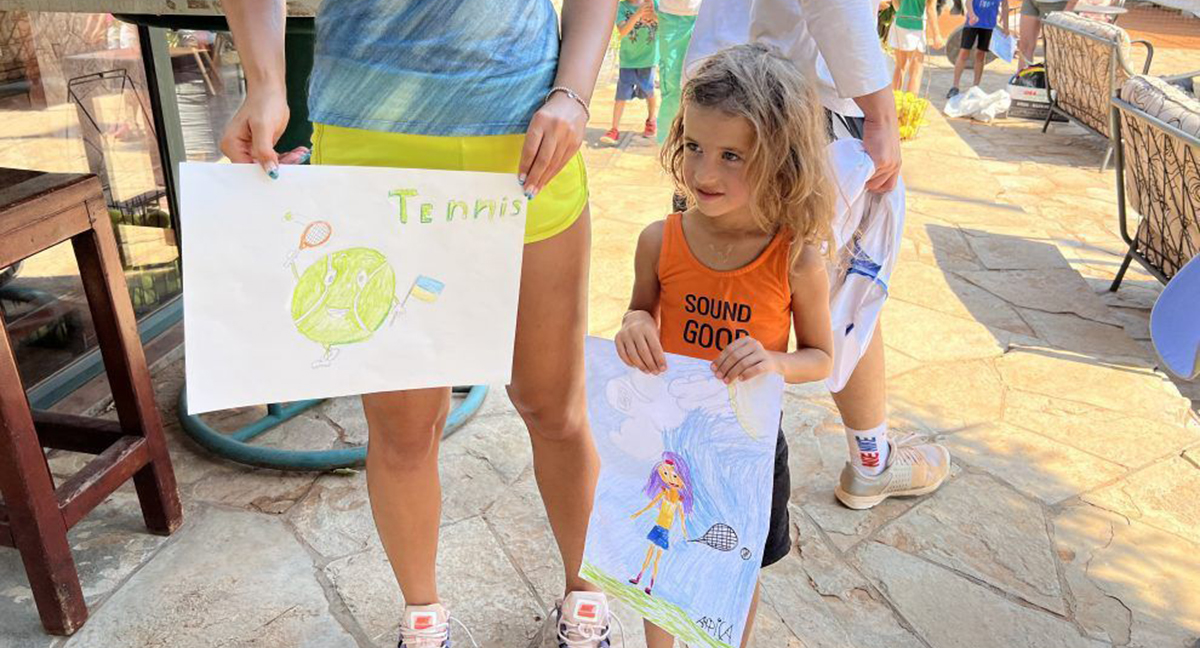
15.08.2022
Six months have passed since the Russian aggression against Ukraine started. It is more than clear that the war will last even longer. Around 7 thousand refugees who sought refuge in Montenegro will have to adapt to life here. Among the refugees is a large number of children of different school ages, and they will start attending local schools in September.
Among a number of activities financed by Help, thanks to the network of German humanitarian organizations for quick action in disasters – Aktion Deutschland Hilft, for the Ukrainian refugees, are lessons of the Montenegrin language for children and adults. The interest in attending these classes is very high. The classes are organized in volunteer centers for Ukrainian refugees in Podgorica and Budva.
Learning the language is of particular importance for children, who after the numerous stresses they have been exposed to in the past six months, will also face the challenge of continuing their education in a foreign language.
Professor Ms. Sanja Vojinović says that the language courses are based on the textbook, “Montenegrin language for foreigners”, which is a good starting point and base for upgrading knowledge fast.
“I think this is a good project, because it allows these people who were brought here by the tragic developments in Ukraine to live easier, better and happier. Going to school for children will be a big challenge, but for us here in Budva, despite the generally bad situation in education, it is still a little easier process, having in mind we have had experience for years with the enrollment of children who had to learn Montenegrin language, in addition to the regular curriculum.”
We attended classes and testified the enthusiasm with which both groups children and adults approach learning. Adults, says Professor Vojinović, are helped by the fact that it is a Slavic language with a lot of similarities. For children it is a bit more difficult; however, as we have seen, they can already introduce themselves and tell basic information about themselves and others.
When asked how they feel in Montenegro, everyone says it is pleasant, because they feel welcomed, and apart from the unbearable heat that lasts for a long time, which they are not used to, they have no complaints. They used the opportunity to thank the citizens of Montenegro for their hospitality and Help for the support provided.
In addition to language learning, Help supports Ukrainian refugees also through psychosocial assistance. Help organized six summer camps for children; the fifth one is ongoing now in Vučje. The previous four camps were organized in Vojnik mountain and in the Ethno village of Montenegro.
For the sake of better interaction, the groups include, apart from Ukrainian children, peers from Montenegro, along with instructors, who organize numerous joint activities for them.
Help also provided sports equipment for a number of sports activities in Podgorica and Budva. In the two towns, live Ukrainian tennis and basketball coaches, who have organized groups that regularly train these popular sports.
Previously, Help also supported Ukrainian refugees in cooperation with their volunteer organization Good Deed with food packages (400), as well as some clothes, shoes and other items for the children. Help supported the establishment of day care premises in Herceg Novi for Ukrainian refugees for their activities.
About 7,000 refugees live in Montenegro. They are mostly women with children and single mothers. Most of them are in Budva, Bar, Herceg Novi, Tivat and Podgorica.
Below is the atmosphere from basketball, tennis, language classes and summer camps.
The first of six camps for children from Ukraine started
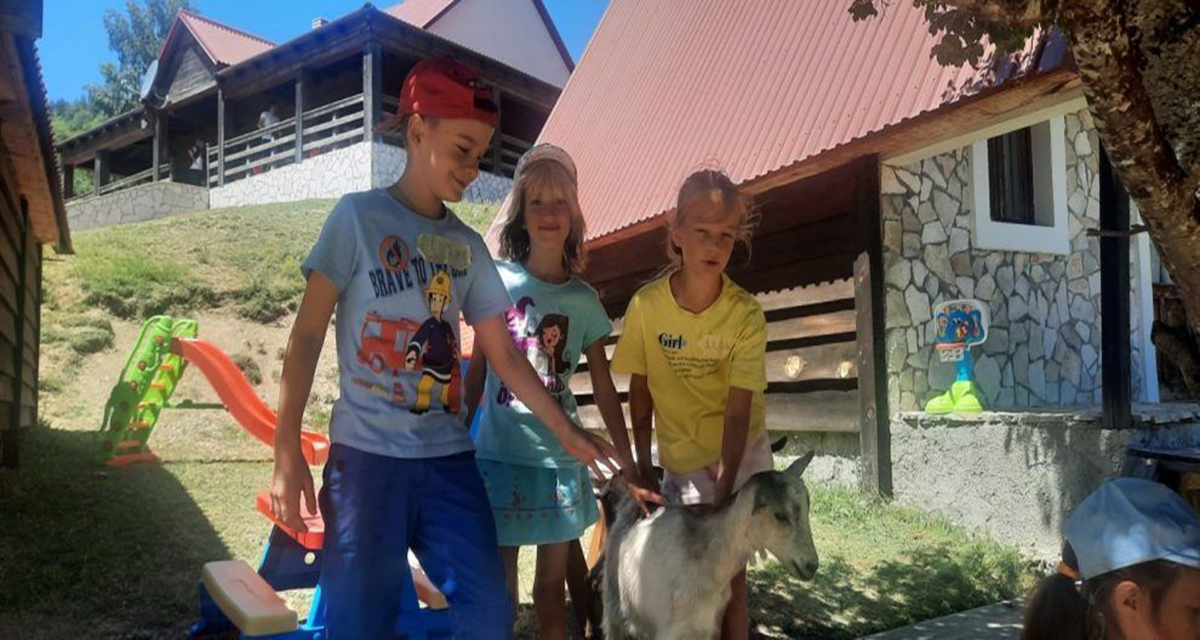
21. 07. 2022
The Ethno village of Vojnik hosted the first group of Ukrainian refugee children as the first of six summer camps that Help organizes as part of its assistance for refugees from Ukraine who fled to Montenegro from the raging war in their homeland, due to Russian aggression.
The first group of 15 Ukrainian children, together with five peers from the domestic population, with the support of coaches and several parents, have the opportunity to get to know the village of Miloševići in a rural setting, see and play with domestic animals, and participate in various mobile and social activities such as games, to paint and draw etc.
In addition to Vojnik, three more camps will be successively organized in Brezna and two in Vučje.
The assistance is financed through Aktion Deutschland Hilft, a network of German humanitarian aid agencies for quick and efficient action in disasters – abroad. Part of the financial resources, for children from the local population, was provided by the Montenegrin Ministry of Labor and Social Welfare. The summer camps are part of the aid package that Help organizes for Ukrainian refugees in Montenegro and include food aid parcels, clothes, toys and other items for children.
In the photos, we convey some impressions from Vojnik.
Help began the distribution of aid packages for Ukrainian refugees
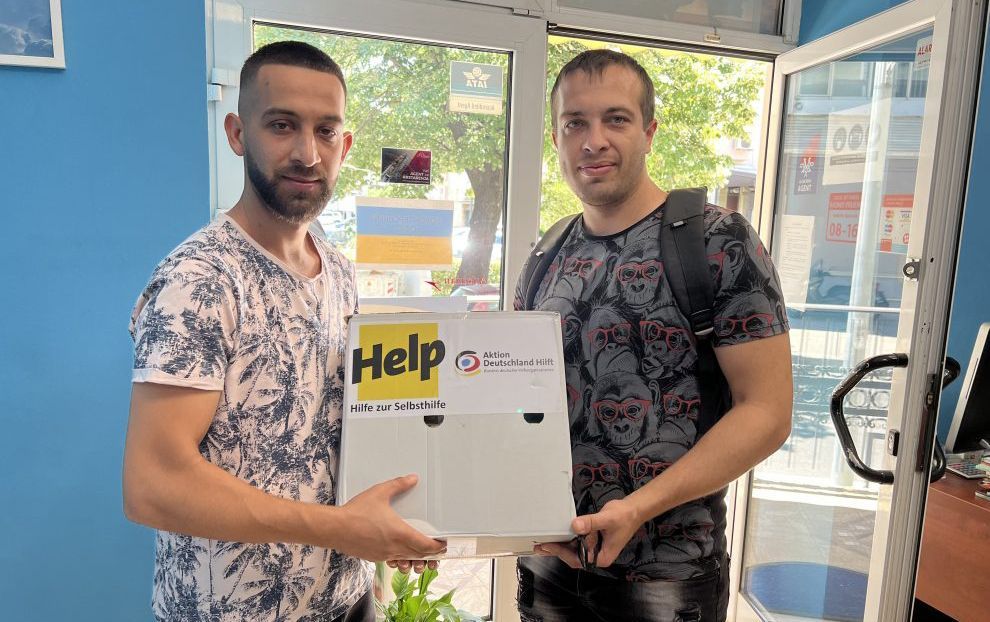
The distribution of 400 aid packages for Ukrainian refugees who have found refuge in Montenegro, has begun in Podgorica, where 30 food packages are going to be distributed. 280 packages have been delivered to Bar, which will be distributed to refugees, and 90 packages have been delivered to Herceg Novi.
This aid, which was provided by Help, is funded through Action Deutschland Hilft, a network of German aid agencies for rapid and efficient disaster relief abroad. The total value of the packages of food is 17,144 Euro.
Aid is being distributed through the Dobro djelo network, the five Ukrainian volunteer centres which were established with the help of the Ukrainian Embassy in Montenegro.
As a consequence of Russian aggression against Ukraine, there are between 6,000 and 7,000 refugees in Montenegro according to available records, the most of whom are mothers with their children, and the elderly.
In addition to providing food assistance, Help will also provide clothing, sports equipment and children’s props for a number of children, and from the beginning of next week, Ukrainian children will be in the first out of six designated summer camps where, for better socialization, and with an adequate and professional programme, a number of children from Montenegro will join them. In total, there will be 90 Ukrainian children on six planned camps, who will have the opportunity to socialise with 30 children from Montenegro.
In addition to Ukrainian refugees, Help will distribute some food packages for domestic socially disadvantaged persons made – possible by a contribution from the Montenegrin Ministry of Labour and Social Welfare.
Minister Gjeka and Help are working to support the systematization of the mediator job position
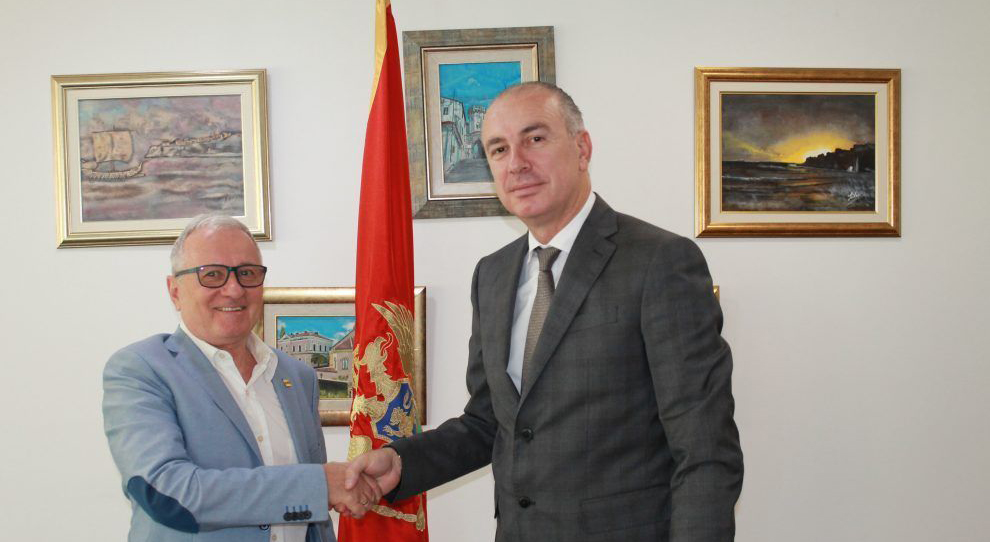
14.06.2022
Improved access to health, employment and social services is key to better inclusion of the Roma-Egyptian (RE) population in Montenegrin society, and the position of RE mediator has proven to be an effective model for better exercise of these rights, said the Minister for Human and Minority Righths Fatmir Gjeka during the meeting with the regional coordinator of Help, Klaus Mock.
Minister Gjeka, emphasized the importance of the social inclusion of the Roma and Egyptian communities in Montenegro and importance of co-operation in this area with international partners. Successful cooperation on the implementation of strategic policies is key to achieving the planned goals, said Minister Gjeka, who has emphasized better access of basic human rights.
“The results of the projects that we are implementing, in order to improve the position and quality of life of our citizens from the RE population, has been a motivation to intensify efforts and design further activities,” said the Minister.
Regional coordinator of Help, Klaus Mock, congratulated the Minister on his appointment and stressed the importance of the area in which Help cooperates with the Ministry of Human and Minority Rights.
Mock said that the project is a continuity of Help’s work on the inclusion of the RE population in Montenegro, and that the effects of the work of mediators in the fields of employment, social and health care are recognized by both the community and local institutions.
“The ultimate goal of this project is to systematize the position of RE mediator in institutions at the local level . In this way, Montenegro would fulfill one of the recommendations from the last Progress Report from European Commission. We need to use the momentum and resolve the issue primarily for the benefit of the RE population, but also as proof of Montenegro’s commitment to the adoption of European values”.
Help, in cooperation with partners, the Capital City of Podgorica and the municipalities of Berane and Ulcinj, is implementing the project “Social inclusion of Roma men and women and Egyptians with the mediation of inclusion associates”, through which 43 mediators in social inclusion were trained.
The beneficiary of the project is the Ministry of Human and Minority Rights, and a total of 34 Help Mediators have been working since October 2021, for a period of 12 months: 13 in the field of social protection, 11 in the field of employment and 10 in the field of health care.
Project coordinator, Diana Anđelić, reminded that the project is financed within the Program of the European Union and Montenegro for employment, education and social protection, and is being implementing in 11 municipalities.
“The Roma and Egyptian communities, due to their specifics, primarily due to the fact that most of them speak Albanian or Roma, have numerous benefits from the mediation of mediators in the access of guaranteed rights,” said Anđelić.
“Having in mind the importance of the role of mediators in the social inclusion of the Roma and Egyptian communities, the Ministry will give its full contribution from its competence to integrate the systematization of the position of the mediator into the public service system in Montenegro,” said Minister Gjeka.
It was agreed at the meeting that from their competencies, all involved stakeholders will help create conditions for permanent work engagement of trained mediators.
Minister Gjeka and representatives of Help also discussed other modalities of cooperation.
Help helping Ukrainian refugees in Montenegro
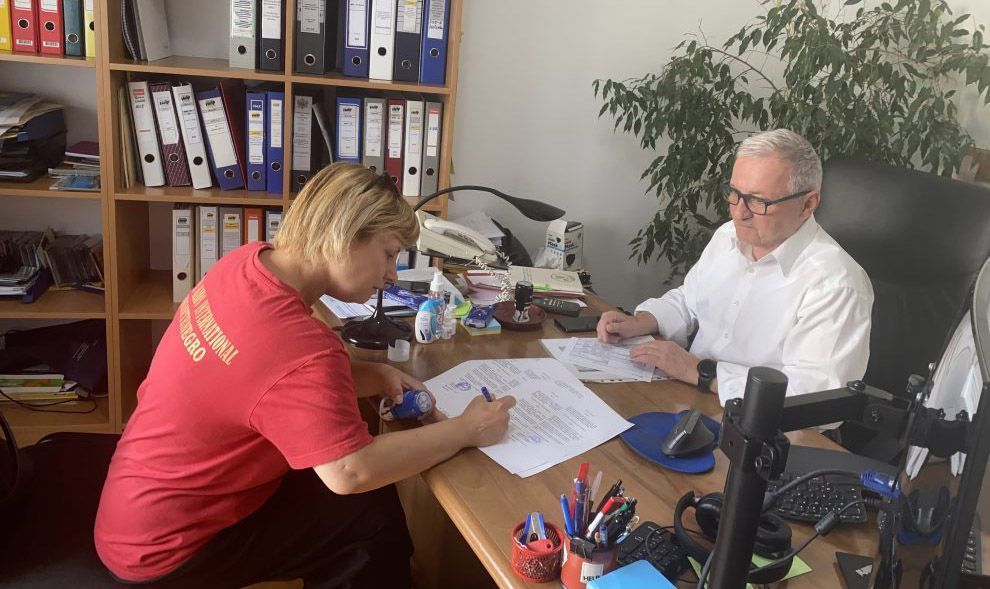
10. 06. 2022.
German Humanitarian Organization Help will provide assistance to vulnerable Ukrainian refugees in Montenegro, mainly located in Podgorica, Herceg Novi, Tivat, Bar and Budva. Assistance will be provided in food, clothes, medicines, materials for workshops, psycho-social support, summer camps for children and excursions for elderly refugees who have no other chances of leaving their immediate place of refuge.
These relief measures are funded by „Aktion Deutschland Hilft”, a federation of German aid organizations acting concert to provide quick and effective help in response to major disasters and emergencies abroad.
Help will cooperate in this project with the Ukrainian relief organization „Dobor djelo“ (Good deed) that disposes of a network of five Ukrainian volunteer centers that were established with the assistance of the Ukrainian embassy. Presently some 6,000 to 7,000 refugees are staying in Montenegro. While many of the Ukraininan refugees have the means to take care of their needs, there are others who are in dire need of assistance: accomodation, food, education for children, language courses and jobs.
Help’s budget for this relief projects amounts to Euro 86,182.
Help and the Good Deed Network today signed a Memorandum of Cooperation for the distribution of aid.
Among the refugees are more than 1, 000 children. They are mostly in Budva, more than 600 and about 300 in Bar. In the past few months, six babies were born, and another 15 women are expected to give birth. The largest number of refugees are women, mostly as single parents.
Since 1999, Help has been providing aid in Montenegro, as well as all other countries in which it operates, for the most vulnerable categories, especially refugees and displaced persons, minorities, women and children in accordance with its mission “to enable people to take control of their lives and live in dignity, peace and safety.”
Continuation of cooperation between Help and the Ministry of Labor and Social Welfare
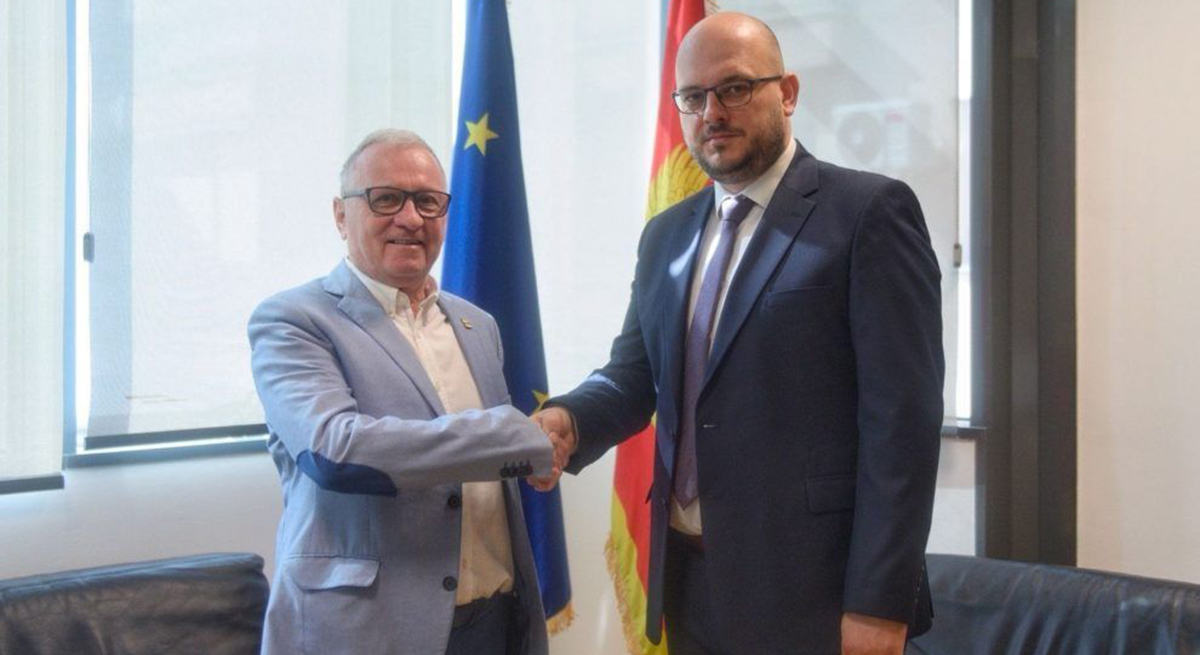
Help is an important partner in resolving humanitarian crises and providing assistance related to long-term economic reconstruction and development, it was assessed at the meeting of Montenegrin Minister of Labor and Social Welfare Admir Adrović and regional coordinator of Help Klaus Mock, on June 7.
They agreed that Help provided significant support to both, Montenegro and the countries of the region, in employment and self-employment projects, in supporting social and economic stability.
Minister Adrović and Mock discussed the current crisis due to Russia aggression in Ukraine, and the possibilities of cooperation in providing support to refugees from the country.
The Minister informed Mock about the activities that are being carried out at the level of the Government of Montenegro in order to provide support to refugees seeking refuge in Montenegro.
Minister Adrović pointed out the significant and successful work of Help, “which is seen through active participation in many projects that have contributed to improving the living conditions of smaller communities, vulnerable groups and their social inclusion in Montenegrin society.”
Help projects in Montenegro for years, among other things, are aimed at improving the living conditions of displaced persons and refugees, placed in private accommodation and collective centers, as well as Montenegrin citizens in a state of social need and vulnerable categories.
As it was announced, joint projects and programs of Help will be implemented in accordance with the defined activities with the Ministry of Labor and Social Welfare in these areas.
A new group of unemployed has started on-the-job training in the north and south
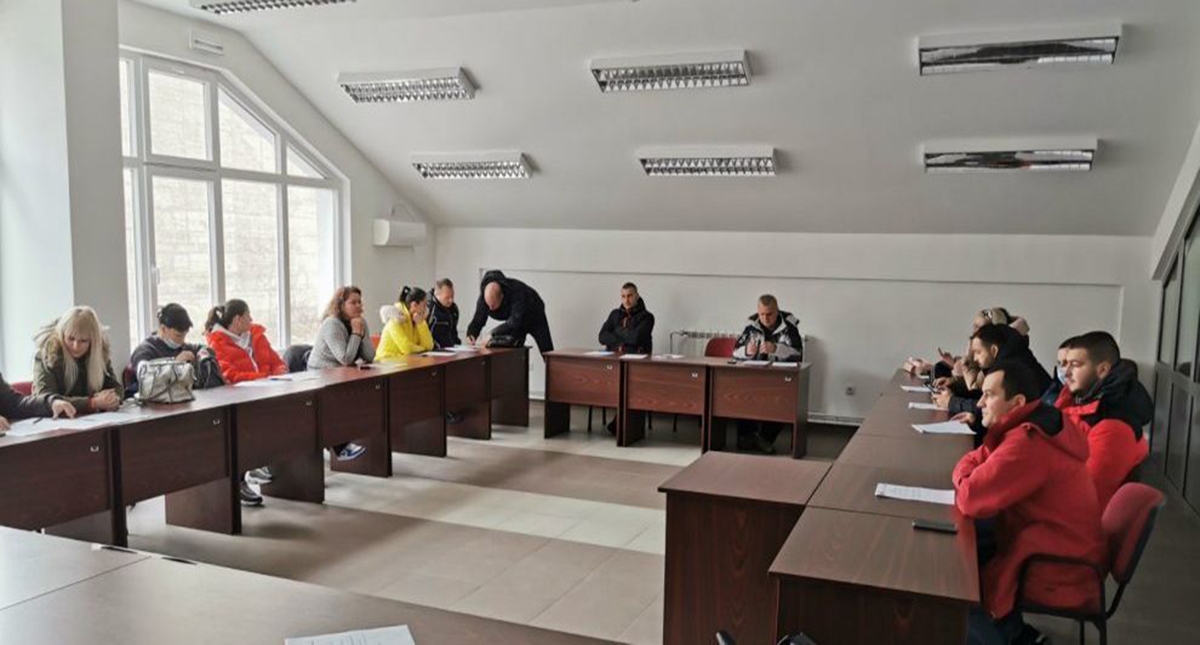
A new group of 20 unemployed persons began on-the-job training and licensed training lasting six months. The commission selected 20 employers and 20 unemployed, of which 12 in the north (Rožaje, Berane and Bijelo Polje) and 8 in the south (Ulcinj and Podgorica) of Montenegro.
Of the overall number of the hired unemployed – 14 are women and 6 men. They will be trained to work in the fields of IT, digital marketing, administrative work, accounting, and tourism services: as guide, cook, bartender, maid, salesman, etc.
At the end of April, contracts on practical training were signed at a work place, and after signing the contract, the unemployed started a six-month on-the-job training on May 1st.
In addition, contracts were selected and signed with three providers that will implement licensed training programs for 15 of the 20 hired unemployed by the end of the year.
A public tender has been announced for the procurement of equipment and funds for work, which is in progress and those interested can apply until June 9. 2022. An tender was conducted for the selection of adult education providers.
Employers, who have announced that they will keep people who have been trained with them after the training, will receive equipment as a form of incentive for hiring the unemployed. Thus, among other things, Help will provide employers with valuable IT equipment, refrigeration equipment, kitchen and bakery appliances, tools for repairing machines and more.
Everything is being implemented within the project that Help is implementing in the Western Balkans under a program worth 3.35 million Euro, with the support of the German government called “Socio-economic empowerment of the Western Balkans” to strengthen regional stability in 2021 to the end of December 2022.
The project coordinator Dženan Demić says that this is a continuation of good practice of the successful model in connecting the unemployed and the employers, which has been tested in Help for a long time, and enabling professional development through certified trainings.
“We pay special attention to the criteria. Among our priorities are the deficit occupations that employers themselves need, as well as providing vocational training to the most vulnerable categories of the unemployed, such as women and young people. We also take in consideration to give priority to the unemployed in the poorer north of the country, where there is a lack of jobs and skilled labor. As we have been implementing the same model for a long time, through different programs, except for the unemployed, the employers themselves have regained interest – they get a trained workforce and valuable equipment for business improvement. ”

Help at the European Projects Fair in Podgorica
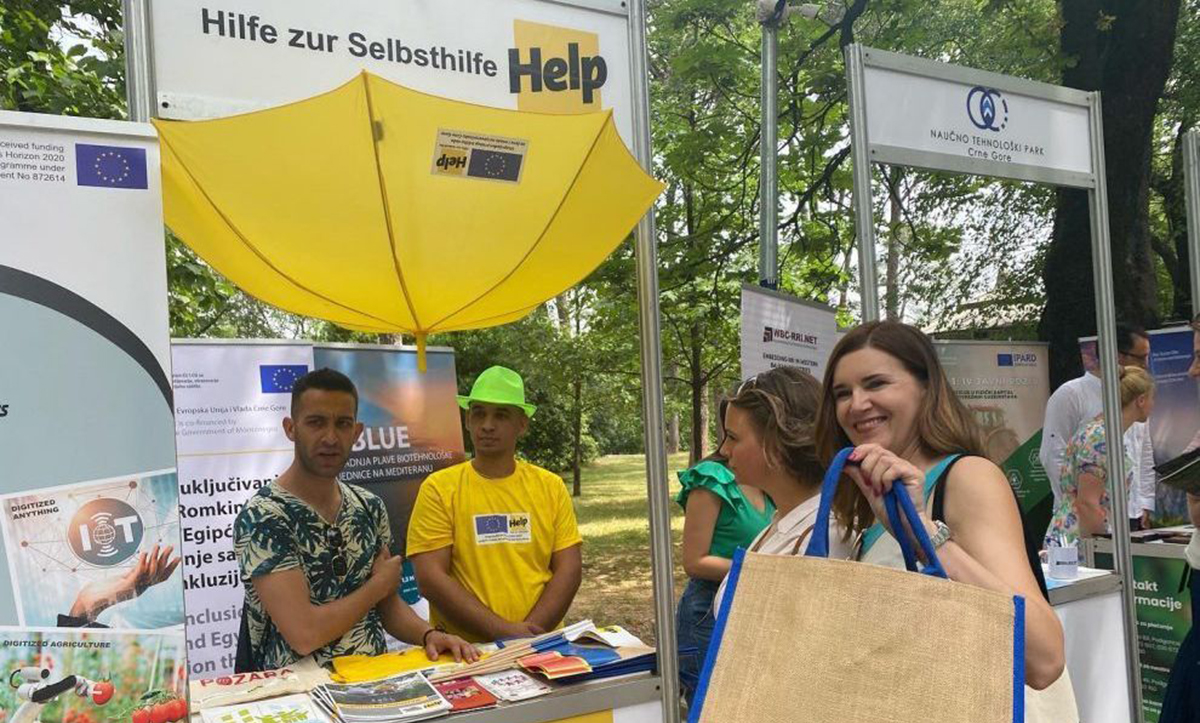
Chamber of Economy of Montenegro, in cooperation with the Ministry of European Affairs, organized the Fair of European Projects on May 28 in the Petrović Park in Podgorica.
Help’s stand was among more than 60 other stand at the fair.
For years, Help has been implementing EU-funded projects in Montenegro. A particularly important project at the moment, for the Roma-Egyptian (RE) community in Montenegro, with which Help has been working for more than two decades, is “Social inclusion of Roma men and women and Egyptians with the mediation of inclusion associates”, implemented in a total of 11 municipalities (Bar, Berane, Bijelo Polje, Budva, Cetinje, Herceg Novi, Nikšić, Pljevlja, Podgorica, Tivat and Ulcinj).
The project is funded by the European Union and Montenegro Program for employment, education and social welfare. Help’s partners on the project are the Capital City of Podgorica and the municipalities of Berane and Nikšić.
A total of 34 Help’s Mediators have been working in local institutions since October 2021, for a period of 12 months: 13 in the field of social welfare, 11 in the field of employment and 10 in the field of health care. The goal is: The State to recognize importance of the model of Roma mediator/associate for social inclusion through institutions/services and include it in the systematization of jobs at the local level, which will benefit the RE population in Montenegro, as well as contribute to their effective inclusion in society.
The event, organized as part of the celebration of The Month of Europe, was an opportunity for visitors to get acquainted with projects implemented by institutions, municipalities, companies, universities and NGO sectors, and to talk with potential partners about expected upcoming calls.
The fair was opened by the EU Ambassador to Montenegro, Ms. Oana Cristina Popa, the Deputy Prime Minister and Minister of European Affairs, Ms. Jovana Marović, and the host, the President of the Chamber of Economy of Montenegro, Ms. Nina Drakić.
Participation of overall of 45 institutions, organizations and companies in the Fair, which they were represented more than 200 projects that are implementing, on the over 60 stands, confirms that Montenegro has the capacity to work on itself and meet the set goals using the available support of European funds. While there’s always room for improvement, I think we have reasons to be proud of what is being done in this field. I hope that you all share my belief that we will use IPA III (funds) in an even higher percentage, especially taking into account all the benefits offered through it. So we are ready for upcoming calls that will be announced for the second half of the year, “said the President of the Chamber of Economy of Montenegro, Nina Drakić.
EU ambassador Oana Cristina Popa believes that the numerous projects presented at the EU-funded Fair not only prove that the Union is the largest donor to Montenegro, but also that their support is being used in the right way.
She pointed out that EU pre-accession funds are used for many important projects, from support to public administration reforms and strengthening the rule of law, to investing in environmental protection and transport infrastructure.
“Our new IPA funds will focus even more on the priority areas selected by Montenegro. We have already granted assistance to Montenegro worth 40 million Euro, which cover transport, environment, agriculture and others within the 2021 program, which will be implemented this and next year”, said Ms. Popa.
Deputy Prime Minister Jovana Marović pointed out that Europe is the main topic these days, considering that the European House has also been opened.
“European integration is at the core of the work of the new government, which is committed to Montenegro joining the EU as soon as possible and these projects contribute to achieving that goal,” says Marović.
She reminded that Montenegro has been using EU funds since 2007, and that numerous projects have been implemented with their support.
They are currently working on a framework for funds that will be used until 2027.
Below you can see the photos we took at the Fair. Ambassador Popa and Minister Marović visited the Help stand and our RE mediators:
Young Roma and Egyptians visiting high schools
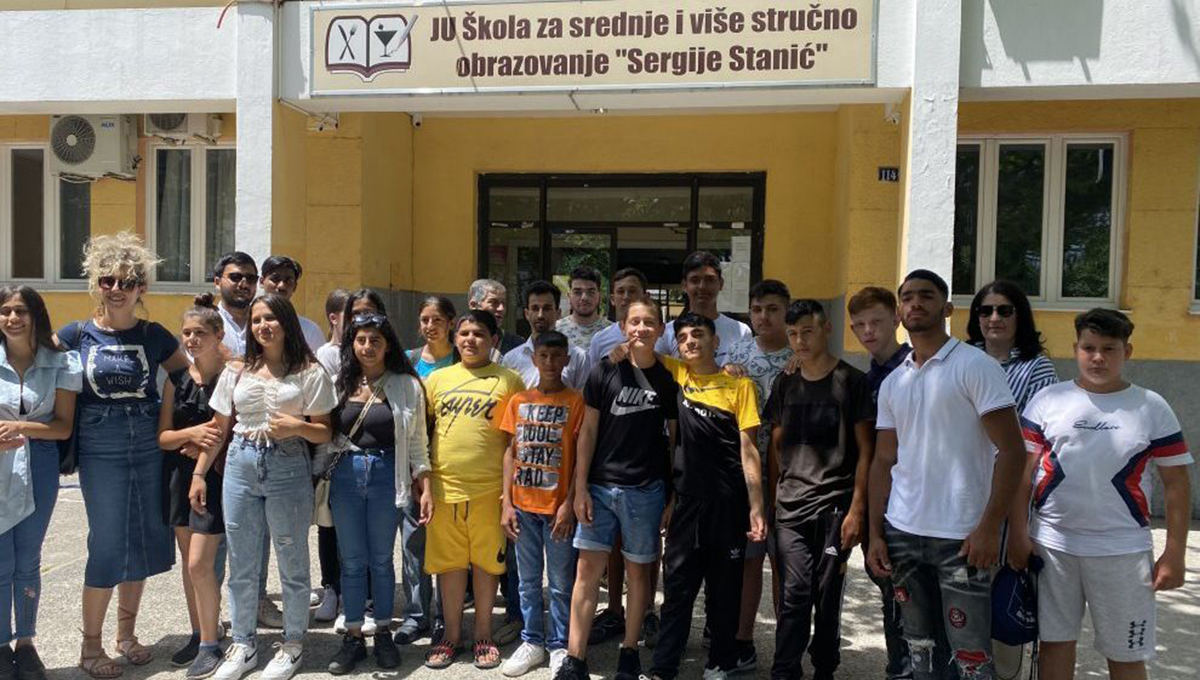
The question number 1 in front of primary school graduates is: Which high school to enroll in? Young graduates from the Roma-Egyptian (RE) population were in looking for a response to this dilemma, assisted by Help’s mediator Dejvid Sejdović, who organized a two-day visit to high schools in Podgorica, during which future high school students will be introduced to specific programs offered for further education in the Capital city of Podgorica.
Visits to the high schools began with 23 RE students at the “Sergije Stanić” School for Secondary and Higher Vocational Education, where, as school representatives told us, already are schooling RE high school students in each of the programs. Some of them are so successful that they recently participated in an international competition in Greece for high schools.
A group of students expressed a desire to meet their successful fellow RE students and share their experience with them, soon as possible.
School “Sergije Stanić” offers professional education in the area of various service hospitality and tourism industries. Representatives of the school, PR and pedagogue presented to future potential students all the educational modules they have, as well as which doors they are offered for work or continuing their education after completing three or four years of high school.
The children had the opportunity to ask questions and seek for answers, as well as to visit some of the classrooms where classes, practices and internships are conducted, which is of the great importance in this school.
Project coordinator Diana Andjelić, emphasized that the initiative is very important, especially because, when it comes to students from the RE population, drop out of enrollment in high school is still one of the key problems when it comes to education.
Apart from Help’s mediators, Sejdović, as well as Erdi Beriša and Nedžmedin Šalja, in the school visit were also the representatives of Help, as well as the head of the Roma office in the Capital Podgorica, Hristana Laban.
The Capital Podgorica, along with the municipalities of Ulcinj and Berane, is a partner with Help in the implementation of the project “Social inclusion of Roma men and women and Egyptians with the mediation of associates for inclusion” which is implemented in 11 municipalities (Bar, Berane, Bijelo Polje, Budva, Cetinje, Herceg Novi, Niksic, Pljevlja, Podgorica, Tivat and Ulcinj). The project is funded under the European Union and Montenegro Program for Employment, Education and Social Welfare.
A total of 34 Help Mediators have been working in local institutions since October 2021, for a period of 12 months: 13 in the field of social protection, 11 in the field of employment and 10 in the field of health care.
The goal is:the State, through institutions / services at the local level, to recognize the importance of the institute of Roma mediator / associate for social inclusion and include it in the systematization of jobs at the local level, which will solve this issue for the benefit of RE inclusion in the country broader society.
The visits to the high schools is just one of many activities, which mediators organize every day, in addition to regular obligations and responsibilities in the institutions at the local level, as a support of the RE community and its more efficient inclusion.
After the visit to the high school “Sergije Stanić”, the students and the mediators continued their tour of the high schools of medicine, mechanical engineering, construction, chemistry and electrical engineering. A group of students who will visit the school’s tomorrow will also visit the high school of economics in Podgorica.
Mediators and representatives of institutions exchanged experiences at the Forum
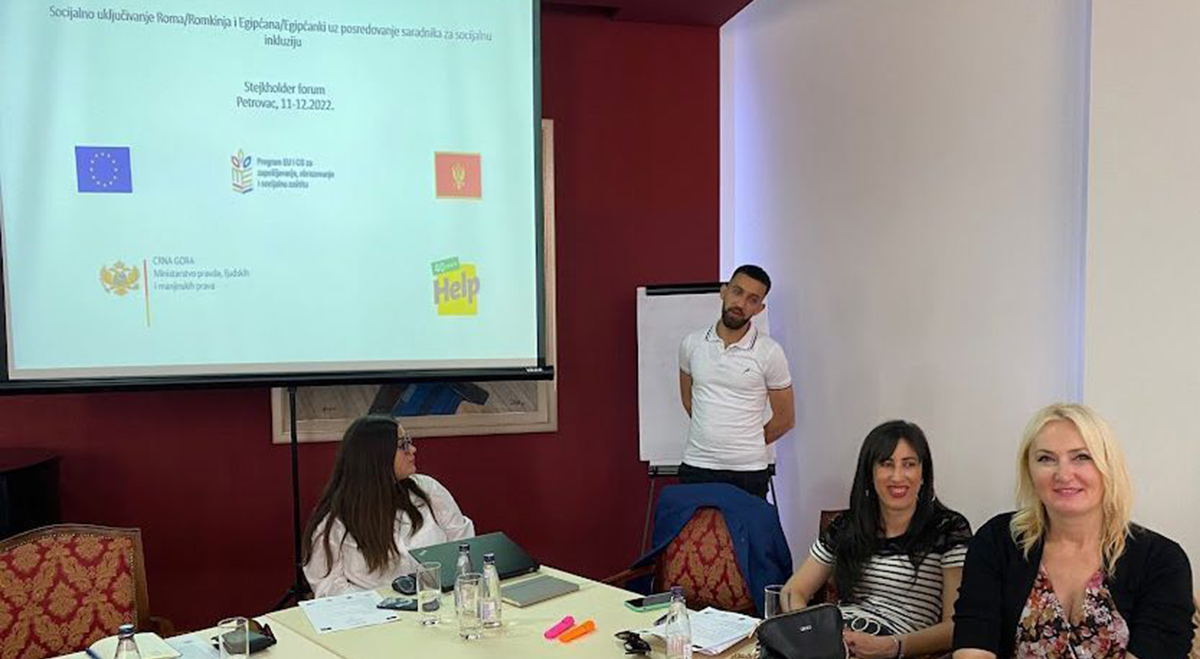
Roma-Egyptian (RE) mediators, who have been working in local institutions for more than half a year – employment bureaus, social work centers and health centers in 11 municipalities, mediating between the community and these services, exchanged experiences and positive practices in previous work with representatives of these institutions at a two-day Forum in Petrovac.
In addition to representatives of local services from the municipalities where the project is implemented, Help Forum was attended by representatives of state institutions: an adviser of the President of Montenegro, for Health and Social Policy – Dr. Amer Halilović, representative of the Ministry of Health – Nina Milović, representative of the Ministry of Justice and Human and Minority Rights – Ramiz Šahman and representative of the Ministry of Economy – Jasmin Lukačević.
The project “Social inclusion of Roma and Egyptians with the mediation of associates for inclusion” in the departments of health, social protection and employment, which Help is implementing together with partners: The Capital City of Podgorica and the municipalities of Berane and Ulcinj, is funded by the European Union and Montenegro Employment Program.
34 mediators, who had a professional training and received certificates, were deployed in 11 municipalities. The project coordinator, Dijana Anđelić expressed hope that these state services would recognize the importance of this project and in systemic way, by introducing the position of mediator for social inclusion in the systematization of jobs at the local level, as a good solution for the benefit of the RE population in Montenegro and their more efficient inclusion in society.
Proudly, we can point out that number of representatives from the institutions emphasized the importance of the work and commitment of Help’s mediators, for whom they did not lack words of praise. The general assessment is that the mediators have shown the importance of their work and role in using the rights of the RE population in a much faster and more efficient way than before.
Through group work, in addition to positive examples of newly established cooperation, mediators and representatives of local institutions exchanged experiences about certain problems that showed up through practice and considered ways in which these obstacles could be overcome.
Help hopes and expects that the representatives of institutions at the local and state level will convey their satisfaction with the work of mediators to their superiors and in that way we will all prove the importance of systematizing the work of mediators in these three areas within the public administration.
Have a look below – the photos from the Forum and two subsequently workshops that followed
Help’s RE mediators with President Đukanović
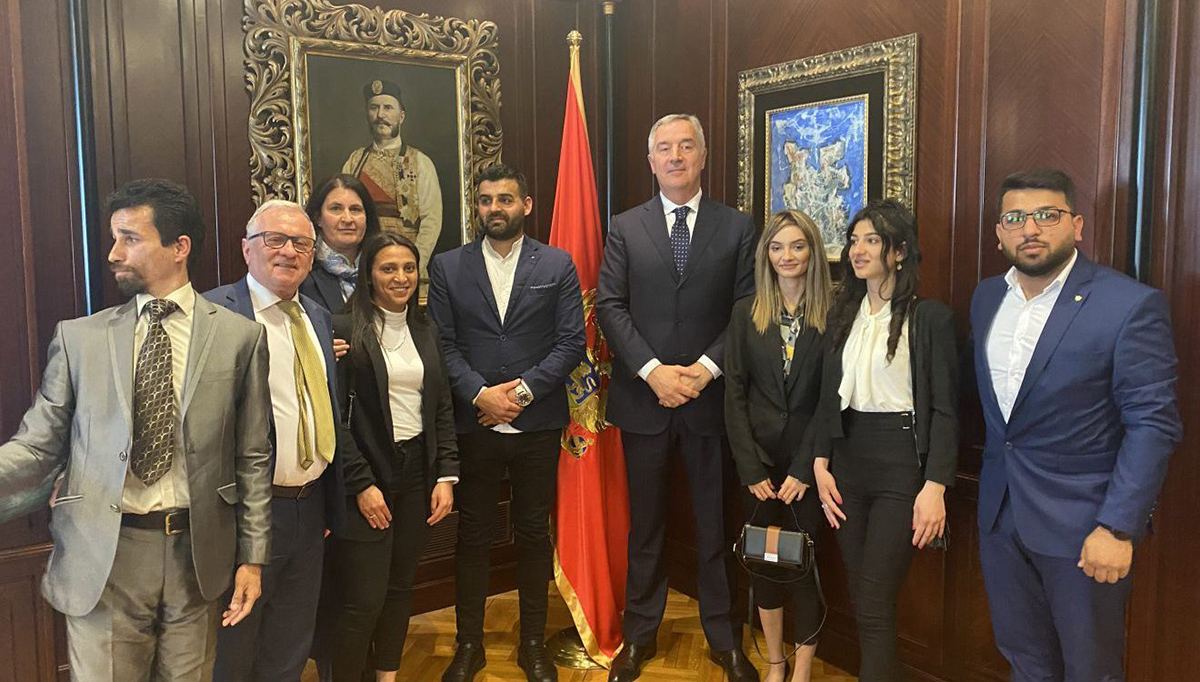
11.04.2022
President of Montenegro, Milo Đukanović met with Help’s Roma-Egyptian (RE) mediators and Klaus Mock, Regional coordinator of Help, as a part of marking Roma Day.
On this occasion, the Montenegrin President was introduced to the project aimed at social inclusion of the Roma and Egyptian population in Montenegro, “Social inclusion of Roma men and women and Egyptians with the mediation of associates for inclusion.” The project is implemented within the Program of the European Union and Montenegro for employment, education and social protection in 11 municipalities. Help partners on the project are the Capital Podgorica and the municipalities of Berane and Ulcinj.
The ultimate aim of the project is to recognize importance and accept the model of RE mediators and to systematize it as a job in institutions at the local level.
President Đukanović said he was glad with the meeting on the occasion of the recent World Roma Day, which is an opportunity to draw public attention and continue with affirmation the community of Roma and Egyptians in Montenegro.
Đukanović thanked Help “for the important mission they have been carrying out in Montenegro for more than two decades, both in the humanitarian field and in the emancipation of the entire society when it comes to the inclusion of Roma and Egyptians in social processes.”
In that sense, it is especially important to strengthen inclusion in the field of education, said the President, emphasizing that in the past few decades attention has been drawn to these issues and the results are seen, as well as the needs to have a much more responsible society.
Regional coordinator of Help, Klaus Mock, with gratitude for the reception, which is seen as a sign of support to the organization, mediators and the entire Roma community, presented the results of the activities of Help in Montenegro to the President, as well as the current program for mediators in order to involve them in the work of institutions at the local level in the field of employment, social protection and health.
Mediators Šejla Pepić, Denisona Beriša, Minira Delija, Nardi Ahmetović, Dejvid Sejdović and Enis Eminović expressed gratitude on behalf of the community for the support so far and said that such programs should be a priority of state policy in this area.
The President expressed readiness for full affirmation of actions aimed at overcoming the backwardness of the community in relation to social movements and strengthening the civic and multiethnic identity of Montenegro, which will be concretized through his address to the competent executive institutions.
Project coordinator Dijana Anđelic presented the project “Social Inclusion of Roma Men and Egyptians with the Mediation of associates for inclusion” to President Đukanović, emphasizing that the work of Help Mediators in the field, both through the project and through the years of model testing by Help, in the areas of education, health, social protection and employment, showed that local RE communities, in 11 municipalities where the project is implemented, have easier access to basic rights in local services, but also the institutions themselves for better and more efficient communication with Roma-Egyptian population.
A total of 34 mediators, who went through professional training and received certificates, were deployed in 11 municipalities. Anđelić expressed hope that a competent state services would recognize the importance of the project, and through the introduction of mediators for social inclusion in the systematization of jobs on the local level, solve this issue for the benefit of the RE population in Montenegro and their more efficient inclusion in society.
Get moving! Recycle and save the environment! in Nikšić
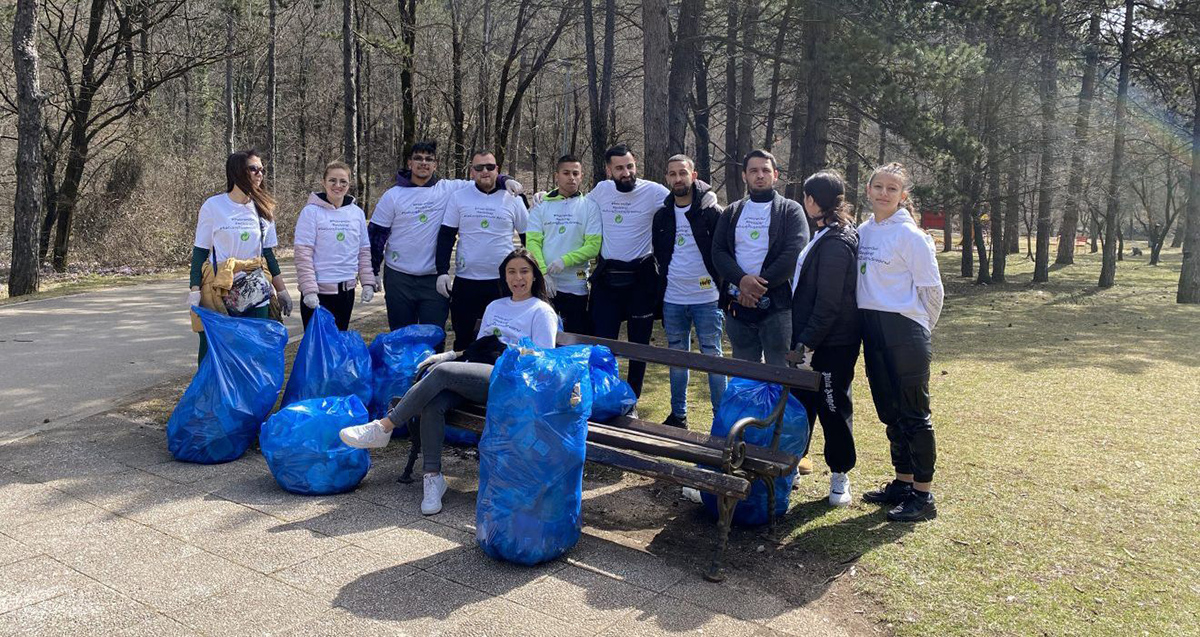
18.03.2022
By cleaning the park and the promenade around the Cathedral of St. Vasilije Ostroški, Museum and City Hall, Help and the Center for Affirmation of the RE Population – CAREP in cooperation with the Youth Club Nikšić marked the International Recycling Day with a symbolic action.
The action called ‘’Get moving, recycle and save your environment” after Bar, was also held in Nikšić.
We donated three containers for recycling at the School of Economics and Catering in Nikšić, where the practice of waste separation and recycling has been used for a long time; plastic, paper and metal, as the professor of ecology, Olivera Lučić, who also participated in the action of cleaning the park, explained to us.
According to her, the school has a contract with the local recycling center to separate waste, and they hope that other locals, especially numerous educational institutions, will follow this practice.
In the end, we talked with the representatives of the Municipality about the need for recycling and plans for better and more sustainable waste disposal. As Boro Vuković, an environmental advisor at the Secretariat for Environmental Protection, told us, several projects are planned that would more efficiently solve the disposal of 28,000 tons of waste, which is produced annually in Nikišić, which is 50 to 60 tons per day.
When it comes to the main city landfill on Buduš – Mislov do, the possibility is being considered to build so-called small gas container power plants in cooperation with Dutch experts in the field, which would produce electricity from flammable metal waste.
In Nikšić, large quantities of metal not only accumulate in the city landfill, but also at the private landfill for collecting metals, to which metal waste is delivered from other Montenegrin municipalities.
The second project is the first recycling center at Stubica, where a waste recycling plant would be set up for seven Montenegrin municipalities: Nikšić, Danilovgrad, Šavnik, Plužine, Kotor, Tivat and Herceg-Novi. This project would be implemented with partners from Austria.
And as the third idea presented to us by the representative of the Municipality, there is a factory for processing old tires from which bio oils would be produced in the area of Gračanica. That factory would not have a large capacity, but it would certainly be another place that would enable the employment of a number of people.
These are all ideas for a certain, long-termreduction of the major environmental and health problem which air pollution produces in Nikšić. Air pollution is 62 days a year above the permitted limit, according to ecologist Vuković..
We also heard that Nikšić lacks a systemic solution to the problem of construction and medical waste, but the realization of these three proposed initiatives would be the beginning towards more sustainable development of the second largest Montenegrin municipality.
Recycling Day – Metal waste is collected for years in Talum, Berane
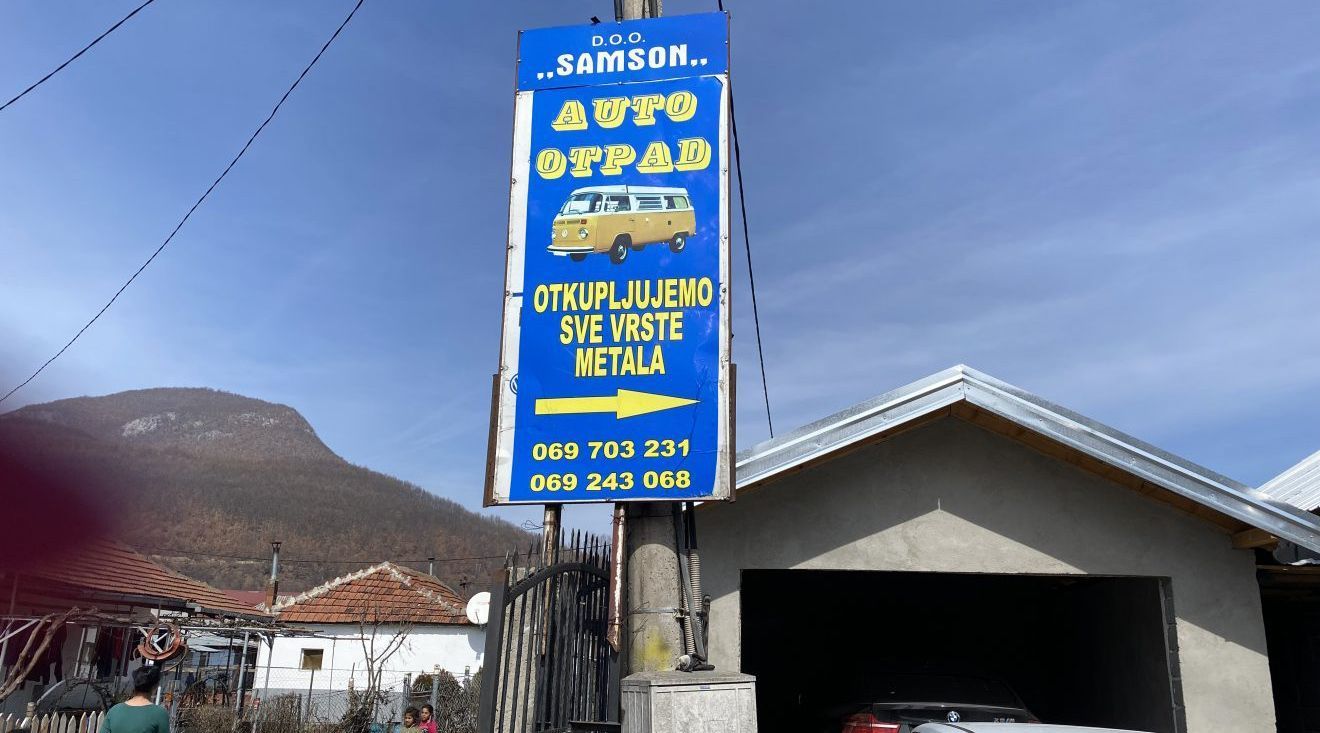
18. 03. 2022
On March 18, on the International Recycling Day, we visited the Talum settlement in Berane, where five Roma-Egyptian families have been collecting and separating metals for years, throughout the northern region of Montenegro. Help recently donated equipment to them to make their separation and recycling work easier.
We visited them:
Action “Get moving! Recycle and save the environment!” held in Bar
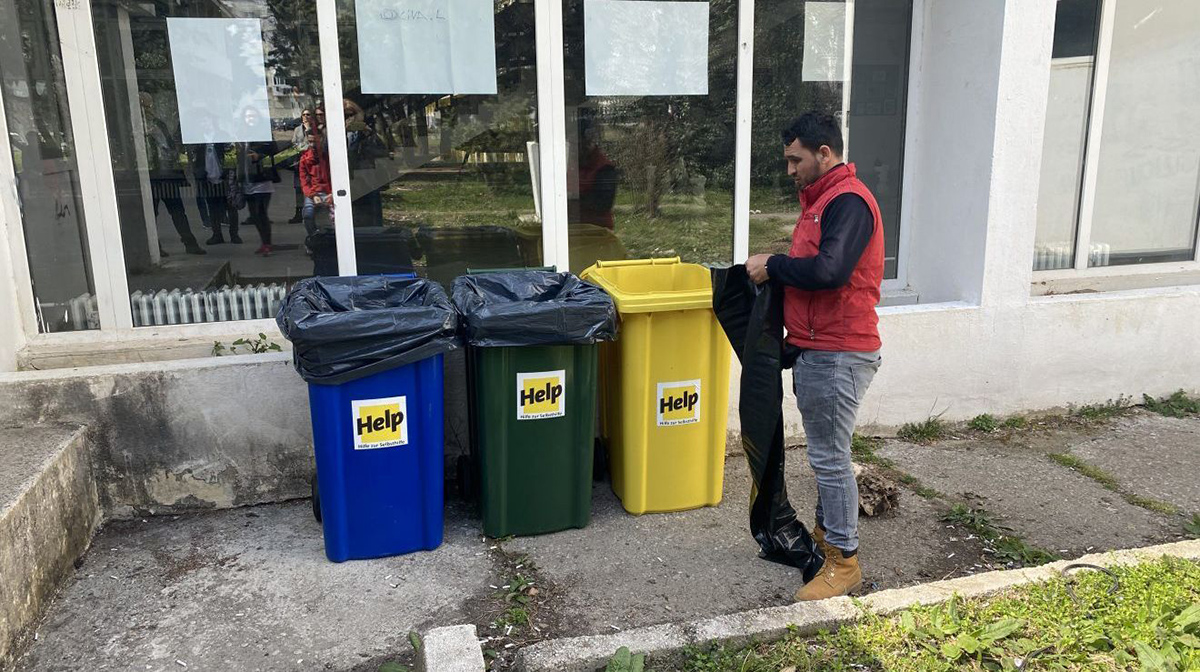
17. 03.2022
On the occasion of the International Recycling Day, in cooperation with the Center for Affirmation of the Roma-Egyptian Population CAREP and the Youth Club Bar, Help organized an action to clean the City Beach. Apart from Help and CAREP, activists of the Bar Youth Club and high school students also took part in the activity.
With this action we wanted to point out the importance of collecting and separating waste and recycling for the preservation of the environment. Bar, as activists, volunteers and municipal representatives who hosted us told us, is one of the cleanest cities in Montenegro, but much remains to be done to begin the systemic process of waste separation and recycling.
The school principal Đonović told us that we arrived at the right time with the donation, since the student council was already considering the idea of buying waste separation bins.
Pupils of both schools in one building, together with the administration, are working on maintaining the building from the inside. The yard that surrounds the school, although green, is much harder to maintain because the school is not fenced, so the park is available to everyone and it’s not treated properly – as a public good, but the management of both schools together with students are trying their best to maintain it. As you will see from the photos, the interior is beautifully painted, and they also have an inner green oasis, which includes probably the oldest ficus in Montenegro.
As Ms. Đonović told us, the ficus was brought in 1972, when the school, which was founded in 1920, was moved to the current building by the principal at the time. Take a look at how the 50-year-old ficus looks today as well as the students’ works in the photos below.
We ended the action in the meeting room of the Municipality of Bar, where we talked with the representatives of the Municipality about the importance of recycling for environmental protection, but also the possibilities that are opened by this action day.
It was mostly talked about how to move from symbolic and individual actions to a systematic solution to the problem of waste separation and recycling, what are the possibilities of the city administration, why previous attempts at separation and recycling in this city failed and how to revive the process.
It’s crucial to raise awareness of citizens about the need for proper disposal of garbage, and also separation and recycling.
U petak 18. marta, na Međunarodni dan reciklaže smo u Nikšiću gdje ćemo u saradnji sa Omladinskim klubom Nikšić i srednjoškolcima čistiće šetalište oko Crkve, Muzeja i Gradske kuće sa početkom u 10 sati. I tamo ćemo uručiti Srednjoj stručnoj školi kante za reciklažu a potom održati tribinu o reciklaži, kao važnom procesu za budućnost održivog ekološkog razvoja.
The next step of our action in Bar was to hand over the bins for waste disposal for recycling, plastic, paper and glass to the Gymnasium ‘’Niko Rolović’’ and the High School of Economics, which are located in the same building. The principal of the Gymnasium Marija Đonović gladly joined Help’s mediators / volunteers in installing waste bins in the school yard.
Mediators in Nikšić organized training for active job search for the RE population
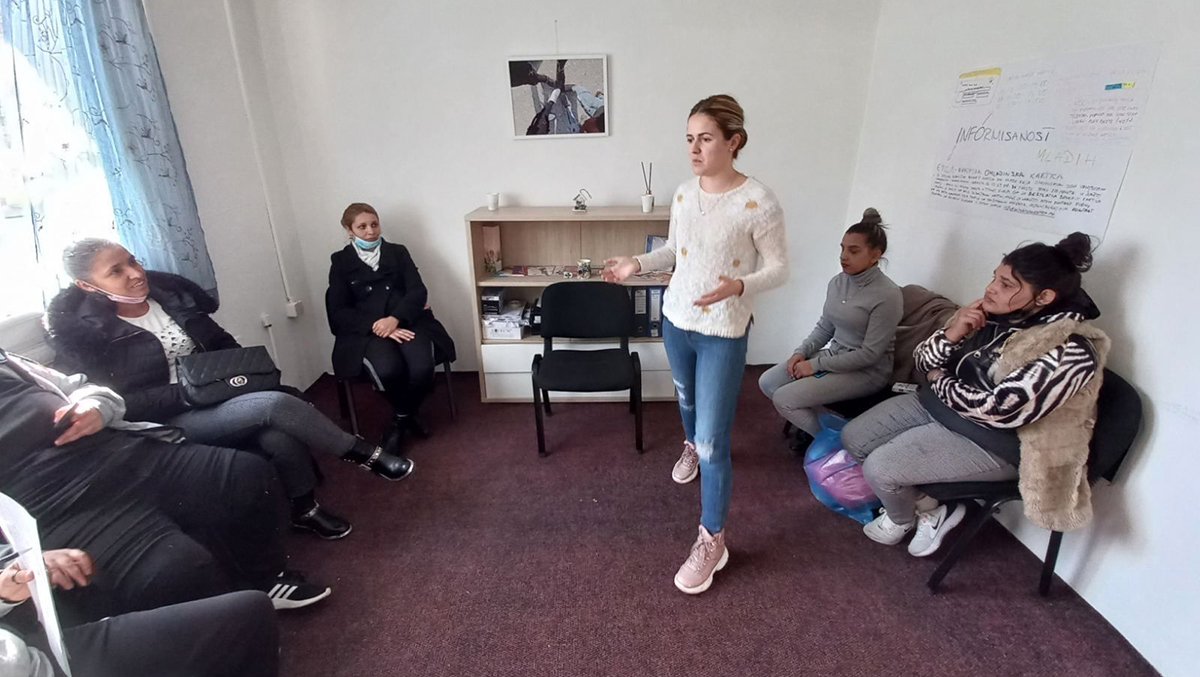
Help’s mediators in Nikšić organized a two-day training for unemployed Roma and Egyptians (RE), where they trained them with professional assistance on how to become more actively involved in job search. A total of 14 unemployed persons from the RE population, from the records of the Employment Bureau in Nikšić, with the help of pedagogue Milena Vlahović were trained – how to write a CV and how to become more actively involved in finding a suitable job.
The training was organized in the eve the employment fair, which is being held this week in Nikšić at the Onogošt Hotel, and which will, among other things, gather a large number of employers from the Montenegrin coast. It will be an opportunity for trained members of the RE population to present themselves to potential employers more easily and professionally.
Help’s mediator, Valentina Naza, hired as a social worker for employment at the Nikšić Labor Office, said this was a great opportunity for unemployed people from the RE community to learn the importance of CVs and active job search, and that the opportunity has now been created in order to make it easier to apply to any public call.
“Most of our community is illiterate, but they have work experience. Also, a large part of the Roma and Egyptian communities regularly register with the Bureau and are usually employed seasonally. But they never had the opportunity to prepare their CVs on their own or with the help of others. This initiative is very important, although a small number have passed our training so far, “said mediator Naza.
Training participant Leonora Kelemedni is pleased to have received her first professional bio, adding that she regrets not finishing high school, which would open up greater opportunities for her to find employment.
“I will continue to actively look for a job and I hope that there will be a place for me in a seasonal job, although I would be glad to get a job here in Nikšić. But I didn’t finish high school, and that’s my fault as well as my parents’. But I’m still looking for cleaning service job or something similar to that” says Kelemendi.
The head of the Regional Unit of the Employment Bureau in Nikšić, Aleksandra Radulović, says that 152 people from the Roma and Egyptian populations are on the records of the bureau, of which 92 are women and 60 are men. There are 86 of them without finished school, 29 unemployed with completed grades from 1 through 7, and 34 with completed primary school.
In 2020, 11 people were employed and in 2021, 19 people of the RE population. Seven of them are interested in getting involved in public works, and two people are interested in getting involved in projects for people with disabilities – said Radulović.
Everything is organized through a joint project of the European Union and the Government of Montenegro “Social inclusion of Roma men and women and Egyptians with the mediation of associates for inclusion” which is implemented within the European Union and Montenegro Program for Employment, Education and Social Protection.
The project is implemented by “Help”, which is also the employer of mediators deployed in institutions, in partnership with the municipalities of Podgorica, Ulcinj and Berane.
A total of 34 mediators, who underwent professional training and received certificates, were deployed in 11 municipalities, with the task of providing members of the RE community easier access to local services, and thus better integration into society.
Help’s project coordinator, Dijana Anđelić, point out that this initiative of Nikšić’s mediator Valentina Naza speaks in favor of the justification of the project and its final goal – to systematize the position of RE mediator in the competent state services.
“More such initiatives are expected, in all cities where our mediators work,” Andjelic said.
Help and UNDP in the new project – Motivation of young people and the unemployed
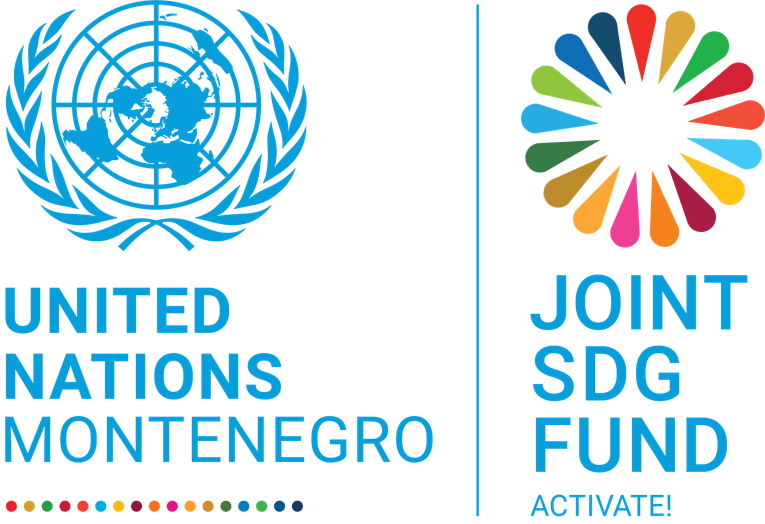
UNDP and Help are implementing a new pilot program, within the Activate! project whose main goal is to help young and unemployed people, under the age of 35, get employment easier and faster, through personal activation and engagement – working on themselves and their work profile.
With the help of experts in the field of employment and social protection, in the following five months, we engage in motivating young and unemployed people to, apart from registering to the labor office, take it a step further – working on themselves and building a work profile in order to be more prominent to employers on the job market.
Basic information:
Pilot project: Working activation of social protection beneficiaries
Location:
Montenegro: Podgorica, Tuzi, Golubovci, Nikšić, Plužine, Šavnik, Bijelo Polje, Ulcinj, Bar, Rožaje
Value:
45.000,00 Euro
Donator/Donor:
UNDP – Program Activate
Duration:
February 15 – July 15, 2022
Description:
Montenegro has had a low employment rate (especially among young people) for many years, and a low activity rate (especially among women) characterizes the labor market. Young people, especially from rural areas, are in an even more difficult position. Women continue to face specific barriers when getting a job, earn less and face difficulties in balancing work and household chores.
Youth unemployment rose to 37.7% in 2021, further exacerbating job prospects. Long-term unemployment affects two-thirds of unemployed young women in Montenegro, according to Monstat records. This suggests that new policies are needed to help young people find suitable jobs, get the opportunity for further education or training on time.
Three quarters of young people employed in Montenegro are mostly part-time, which is significantly more than in the 27 EU member states. The level of education affects the position of young people in the labor market, because the activity rate of young people with a low level of education (primary school or less) is below 10%.
The activity rate rises sharply with the level of education, emphasizing the importance of continuing education and providing adequate training and education opportunities for unqualified young people.
In Europe, after Turkey, Montenegro has the highest percentage of young people who are not in education, employment or training (NEET). According to the World Bank, NEET youth in Montenegro accounted for 28.6 percent. Local social institutions do not have specific strategies or capacities to deal with young people in NEET. In addition to the lack of strategies designed for this category of population, the RCC study also shows that there are many unreliable job search platforms, and young people are often uncertain about the jobs they apply for because there is not much information. Employers often provide unrealistic information about employment conditions, which often leads young people to inactivity and lack of motivation to find a job.
All this indicates not only the need for specific strategies and Institutional capacity building, but also the need for continuous motivation and support for the unemployed vulnerable population.
The European Commission’s recommendations also emphasize the importance of developing quality employment measures aimed at young people and women, people with disabilities, minorities and vulnerable groups affected by the pandemic.
Goals:
- Contribute to the work activation of the unemployed, with a focus on social protection beneficiaries, through services / programs that respond to the specific needs of beneficiaries
- Contribute to the integrated provision of activation and employment services, specifically for the user
- Test innovative approaches to integrated work activation and their potential for full realization
Results:
- Activation and improvement of employability of up to 100 young unemployed persons
- Strengthened institutional capacity to provide integrated activation services
Target group: young people (up to 35 years old), unemployed, able-bodied MOP beneficiaries
Main activities:
Agreeing on details of cooperation with national and local actors
Communication campaign towards beneficiaries / potential project participants
Selection of participants
Conducting training for work activation (soft skills)
Creating individual activation plans
Mentoring based on individual plans
Identification and presentation of positive role models
Sharing lessons learned with stakeholders
5 RE families in Berane received equipment for small business developmen

21.02.2021
A total of 5 Roma-Egyptian (RE) families from the Berane’s settlement Donji Talum received equipment as assistance for small business development in the field of recycling. In this way, Help will be helping raise of the living standard for 113 members of these families, who are one of the most socio-economically vulnerable categories in Montenegro.
The RE families that are supported through this project provide for their families from collecting materials for recycling, most often metals, which is a very difficult job and in which several members of the household are often involved. Through the project, which Help is implementing thanks to the financial assistance of the humanitarian organization of the Church of Jesus Christ of Latter-day Saints, these five families, and through them indirectly a total of 16 of them, received equipment that will facilitate their work and increase recycling productivity.
“The charity organization of Latter-day Saints really likes to provide help for all disadvantaged people. We believe that the best way to provide assistance to Roma and Egyptians is through employment and education. So we saw this as an opportunity to help Roma families to provide better conditions for their families by continuing to work on recycling,” said donor Larry B. Draper.
The value of the donated equipment is 10,000 euros.
With the project, Help continue to work on the improvement of economic and social status of Roma and Egyptians in Montenegro, and their minority community in Berane, which estimated about 900 members. They mostly live in settlements in Talum and Riverside, and they are mostly depended on social assistance because high unemployment rates.
German support for the empowerment of the Western Balkans – What was done so far

17.02.2022
The project “Socio-economic empowerment of the Western Balkans” with a budget of Euro 3.35 million, is supported by the German government and aims to strengthen regional stability in 2021 until the end of December 2022. The project is implemented in Serbia, Kosovo, Bosnia and Hercegovina, Albania and Montenegro.
As part of the program component for the revitalization of the economy in Montenegro 20 unemployed persons completed six-months on-the-job trainings. 12 unemployed and 12 employers were paired in the North of Montenegro, where unemployment is highest, and eight in the rest of the country.
At the end of June 2021, six-months on-the-job training contracts were signed between the unemployed and employers and Help. 15 unemployed expressed the desire to attend certified trainings for certain occupations. 9 are women and 11 are men, which is in line with Help’s policy of supporting marginalized groups, including women. Most interest was expressed for IT training (13), carpenter (2), cook (1), excavator (1) and tailor (1).
It is worth mentioning that the representatives of the Montenegrin government, among their priorities, have repeatedly promised to support the education of personnel in the IT sector, as one of the key occupations in all areas of economic and social development.
In parallel with the beginning of the six-month on-the-job trainings, as envisaged by the project, employers had the opportunity to apply for necessary equipment for business development, which in this case benefited 19 out of 20 employers.
The overall value of professional equipment provided by Help within this project was Euro 46,135.50. After the 6 months on-the-job training, employers are obliged to hire the trained for another year. This phase of the process began in late January 2022. Given that that on-the-job trainings have been provided for deficient occupations, some of the employers announced that within their financial capabilities a certain number of the employees could be kept in permanent employment.
Another component of the project is to improve the employment opportunities of prisoners after their release and the economic empowerment of the Directorate for the Execution of Criminal Sanctions in Spuž (UIKS). With this activity Help continued its longstanding cooperation with UIKS. As part of the project, the renovation and reconstruction of the pig farm within the premises of the prison was the main capital investment. The capital cost was co-financed by the prison administration. The works on the pig farm were completed in January 2022.
In addition to the reconstruction of the pig farm, a machine was bought – a system for knitting griffin iron worth Euro 23,000. Another intervention done was the reconstruction of the roof of the mechanic workshop – needed for the easier servicing of the prison’s vehicles. Finally, vocational training was provided for 4 prisoners, who received a certificates as cooks, which gives them the opportunity to find a work easier after their release from prison.
Telekom donated mobile phones with the Internet to 34 Help mediators for the RE population

Crnogorski Telekom, in cooperation with the organization Help, provided mobile phones with Internet for 34 mediators who help citizens of the Roma-Egyptian (RE) population in 11 Montenegrin municipalities to easily exercise their rights. The partnership between the German organization Help and Crnogorski Telekom is worth more than 11,000 euros.
Dušan Banović, Director of the Service Development and Digital Transformation Sector at Crnogorski Telekom, stated that by supporting the project ‘Social Inclusion of Roma Men and Women and Egyptians with the Mediation of Inclusion Associates’, Telekom continues its successful cooperation with Help, which started two years ago.
“At that time, in cooperation with the organization Help, we provided over 100 smartphones with mobile internet for RE children. Objective was to enable the children to follow classes from home on an equal footing and participate in the ‘Learn at Home’ program. The organization Help has proved to be a truly reliable partner, which sets realistic goals, and one of them is the social inclusion of vulnerable groups through digital inclusion”, Banović pointed out.
As he explained, the cooperation is expanding to RE mediators, who work in public Institutions in several Montenegrin cities.
“This time, together with the organization Help, we provided 34 smartphones with accessible services so that everyone could perform work tasks equally. An inclusive society is one that gives everyone an equal chance and that is why we believe that digital inclusion enables vulnerable groups to integrate much easier into society. So we will continue to be a good example of how to approach and solve the problem, in the right and responsible way”, Banović said.
The regional coordinator of the Help organization, Klaus Mock, thanked Crnogorski Telekom for their support and pointed out that the telephones received by the mediators are their most important tool to work and keep in touch with members of the RE community and Institutions.
“This is not the first time we have received support from Telekom. It means a lot to us and this is a great example of socially responsible action of a large company and we would like others to follow”, said Mock.
Dijamant Pajazitaj, Associate for Social Inclusion of Roma and Egyptians, thanked the European Union, the Government of Montenegro, Help and all partners implementing the project who gave a chance to Roma and Egyptians to help their community, and to improve the position of RE population in Montenegro.
“Mobile devices will facilitate our communication and give us new opportunities to share experiences with other colleagues and representatives of Institutions”, Pajazitaj said.
The mediator for Social protection and inclusion in the Help organization, Mihaela Čađenović, is also pleased that Telekom has once again shown how important it is to respect human rights and to integrate them into society.
“It’s one of the ways to European integration, and Internet, telephones and fast flow of information, build a window into the world and enable us to function better, work, learn and create a better society together”, Čađenović pointed out.
A total of 34 mediators support the citizens of the Roma-Egyptian (RE) population to more easily exercise their rights in the field of employment, health and social care in 11 Montenegrin municipalities. This is a joint project of the European Union and the Government of Montenegro ‘Social inclusion of Roma Men and Women and Egyptians with the Mediation of Inclusion Associates’ which is implemented within the EU-Montenegro Program for Employment, Education and Social Protection.
The project is implemented by Help, which is also the employer of the mediators – in partnership with the municipalities of Podgorica, Ulcinj and Berane.
The overall goal is that the state to recognizes the importance of RE mediators and institutionalizes the mediators’ work.
